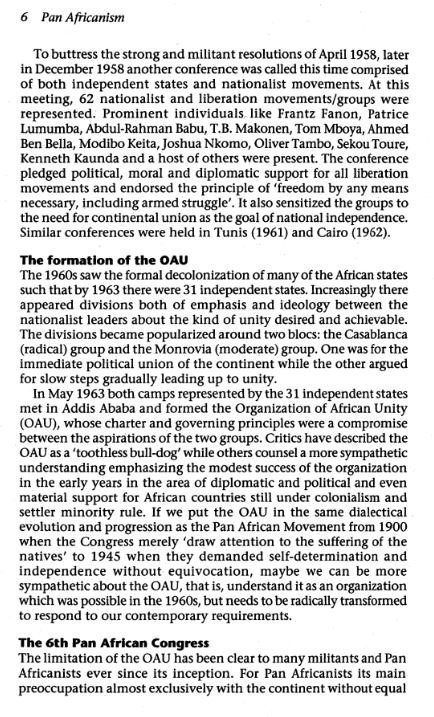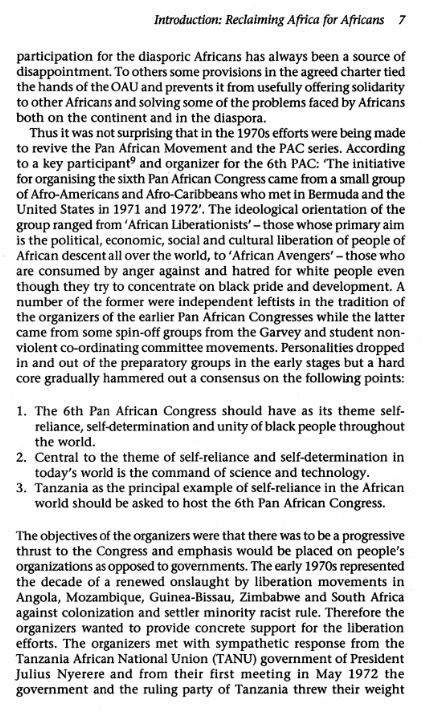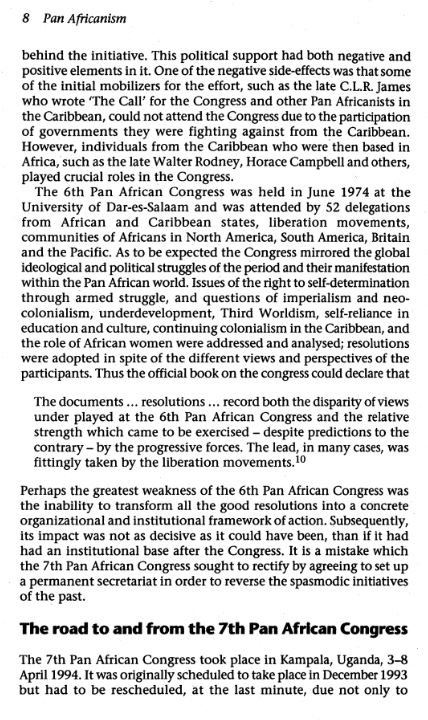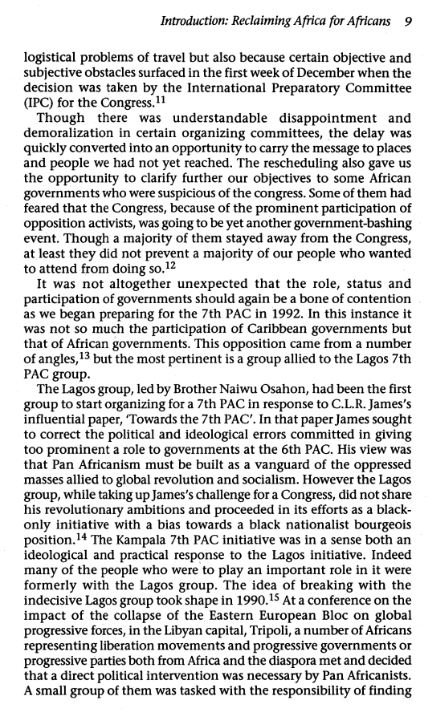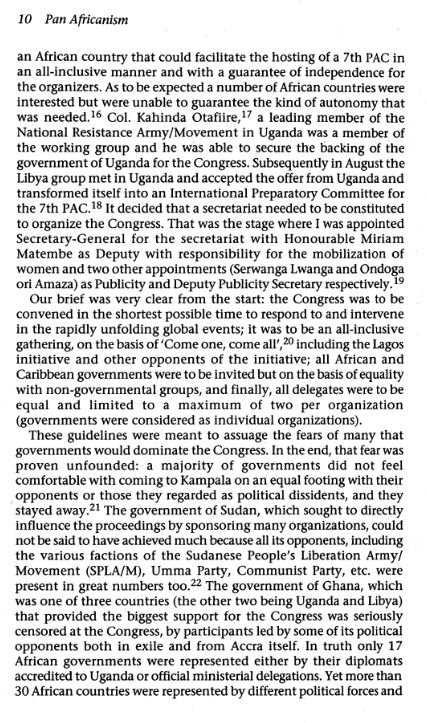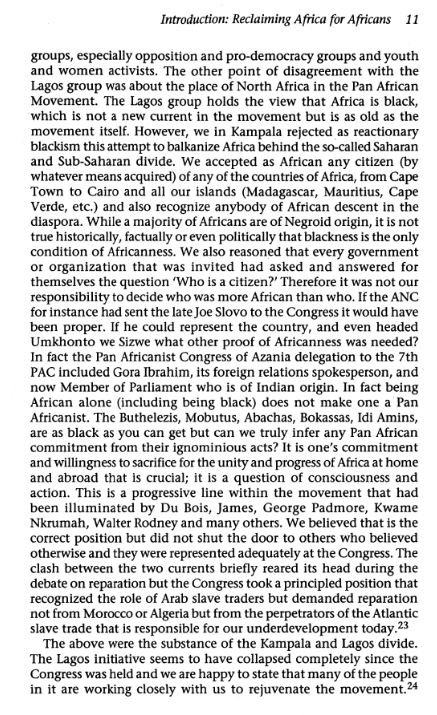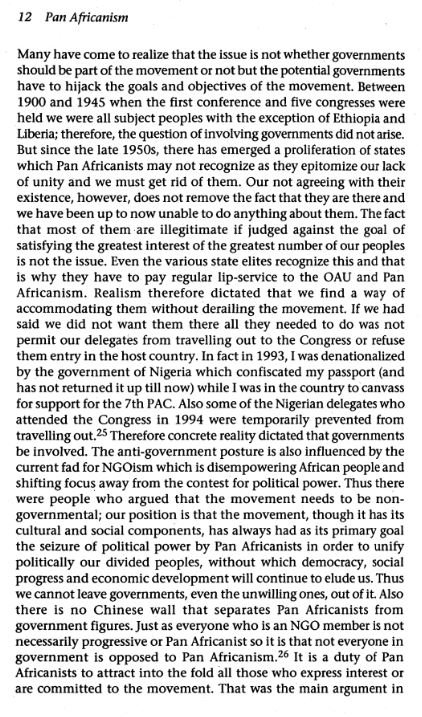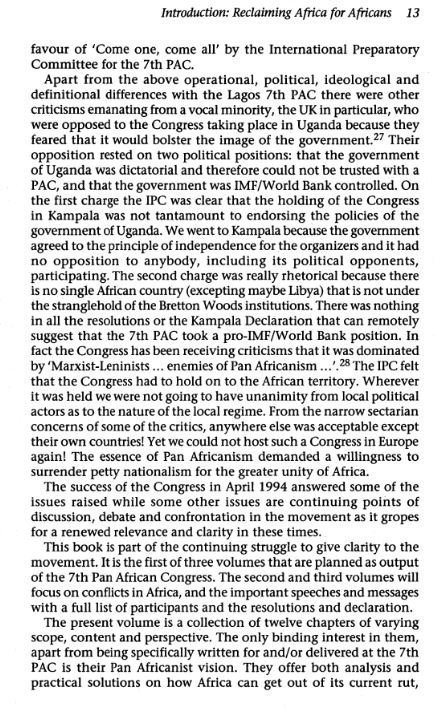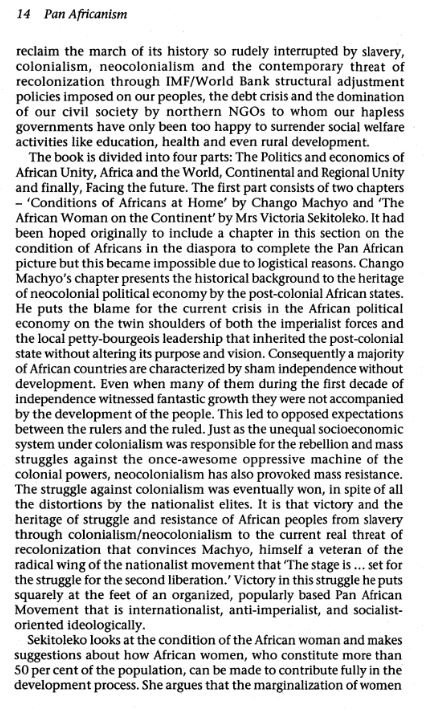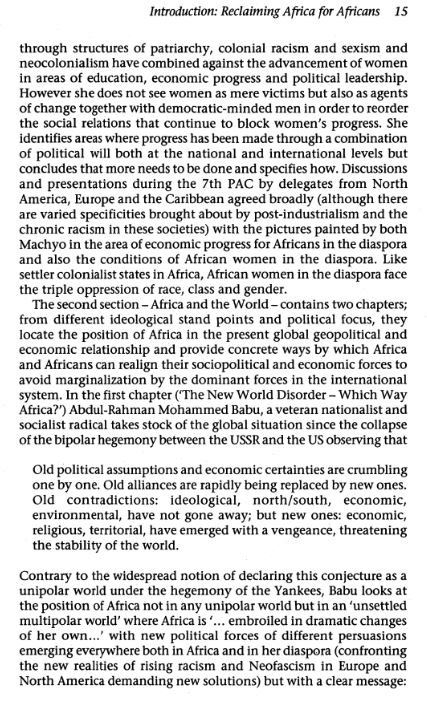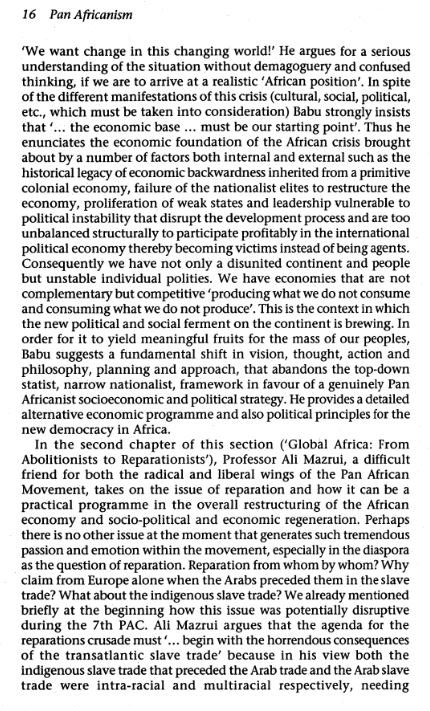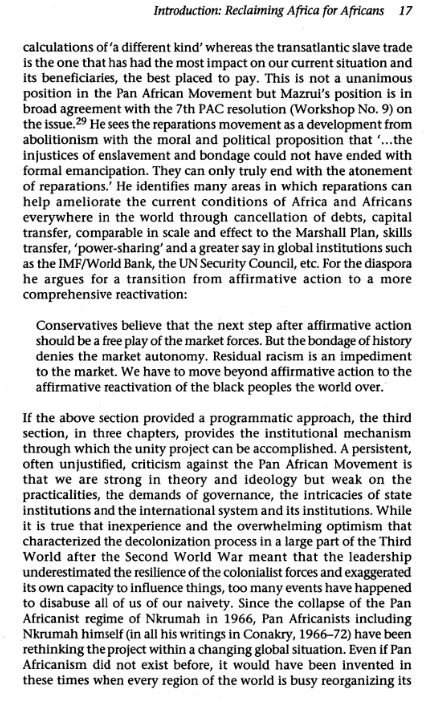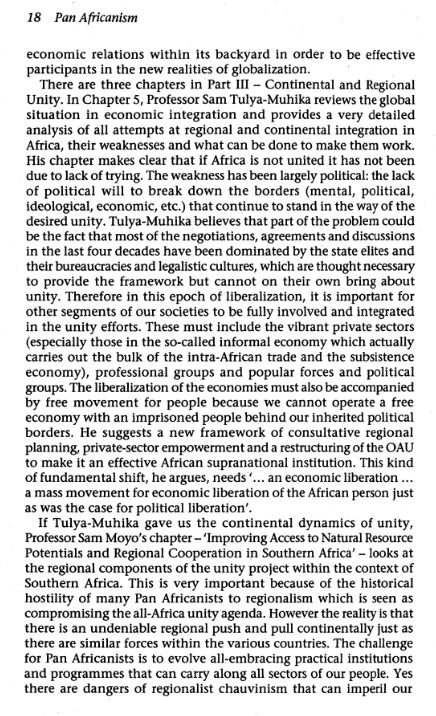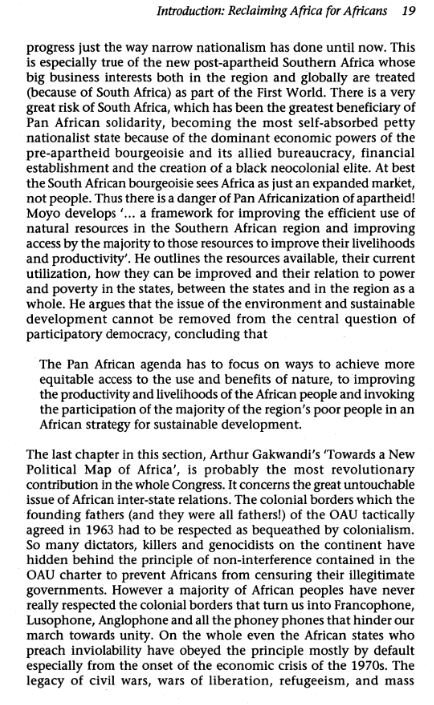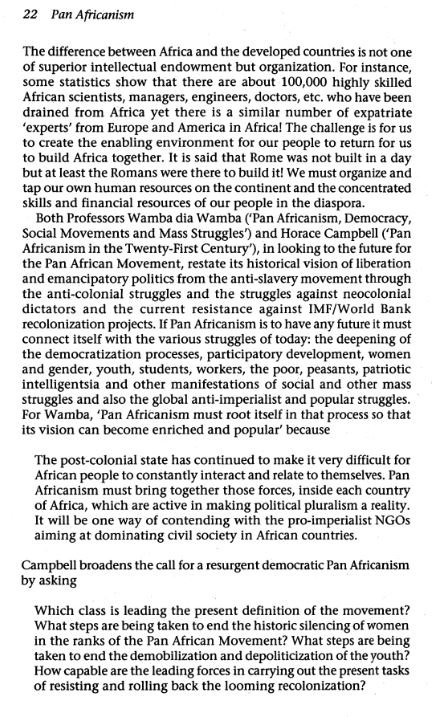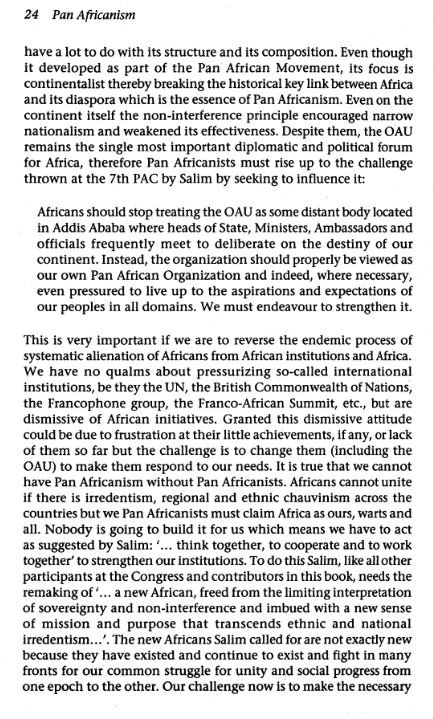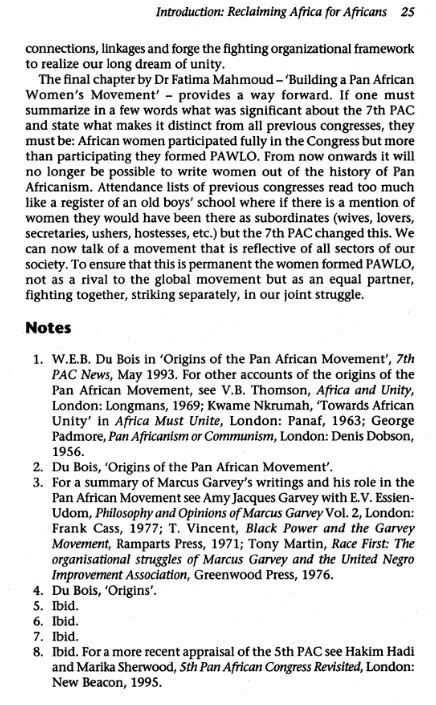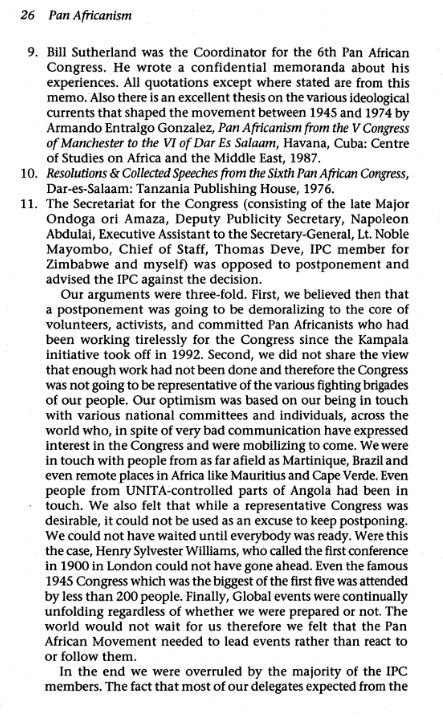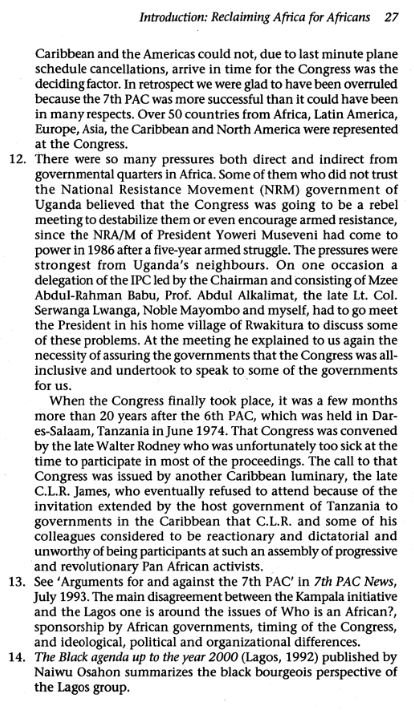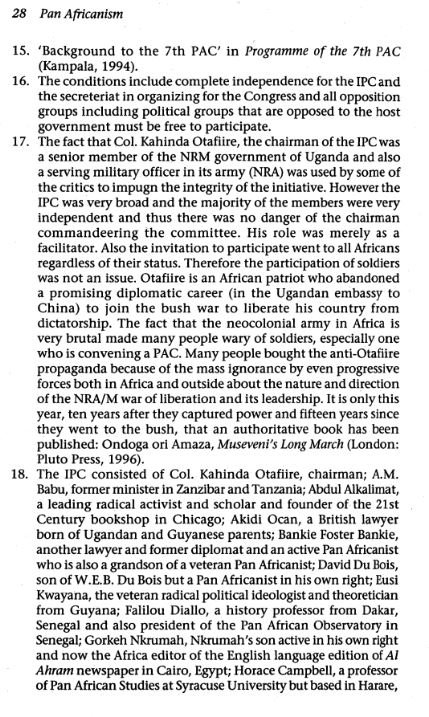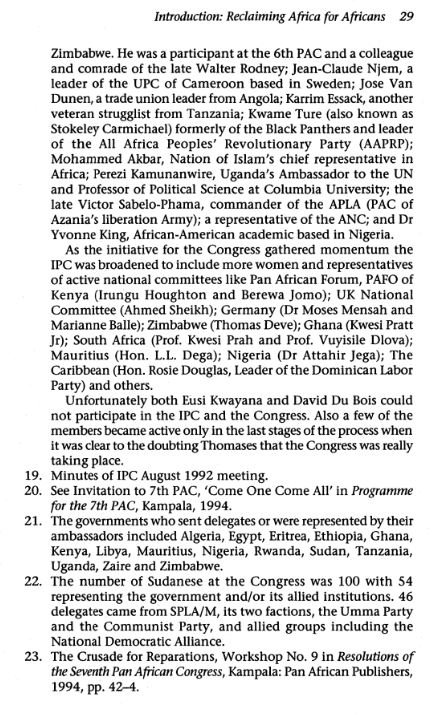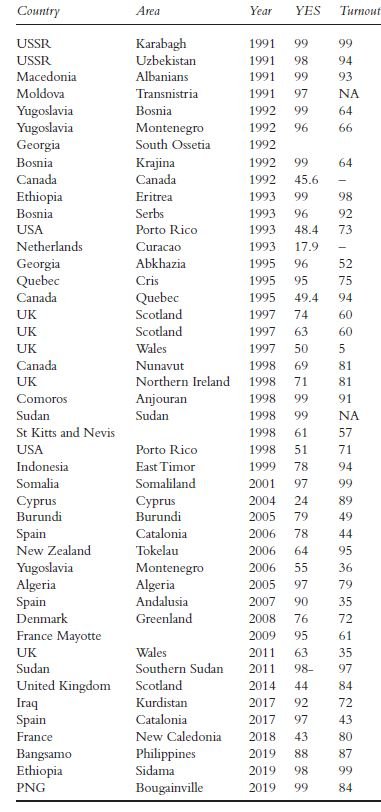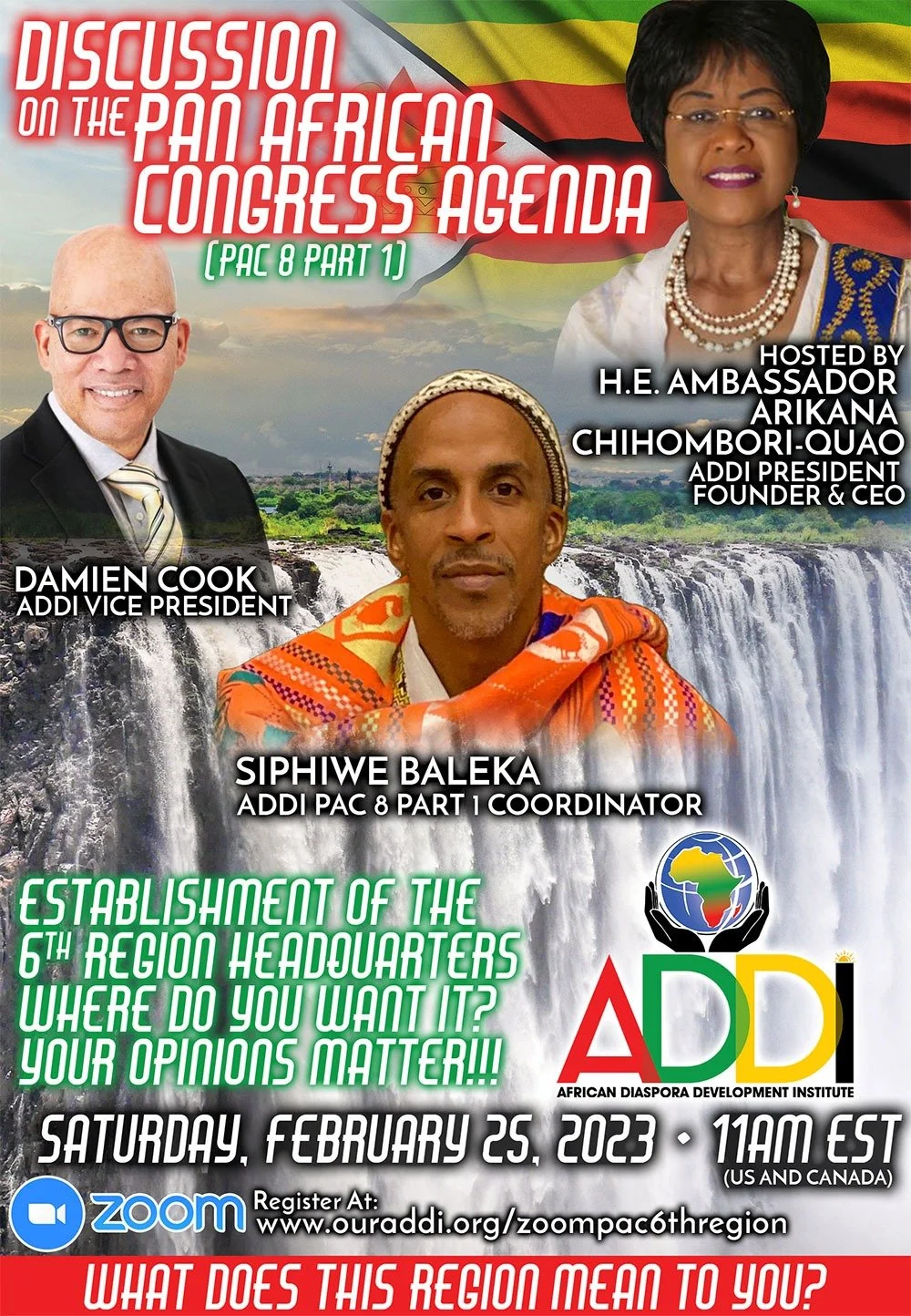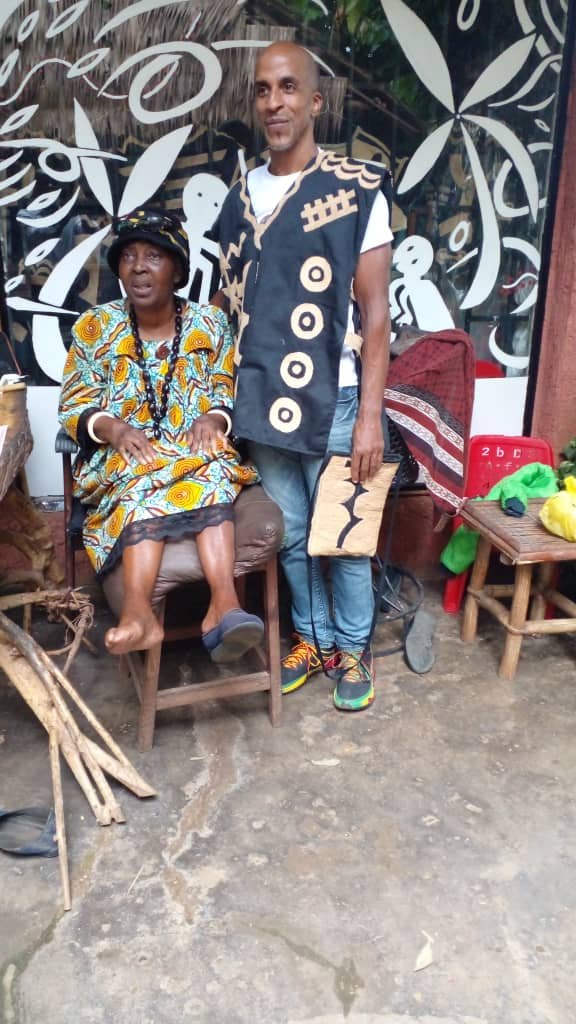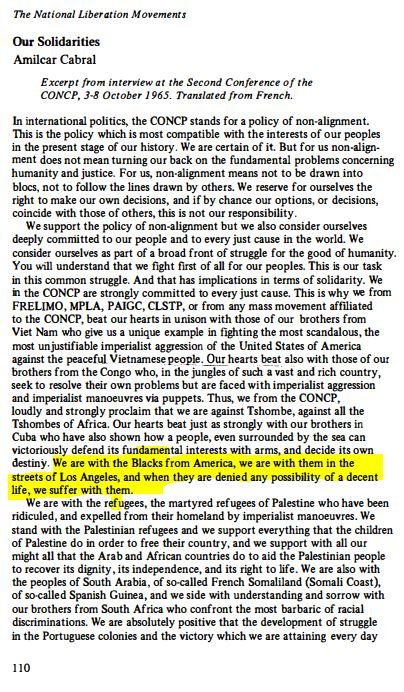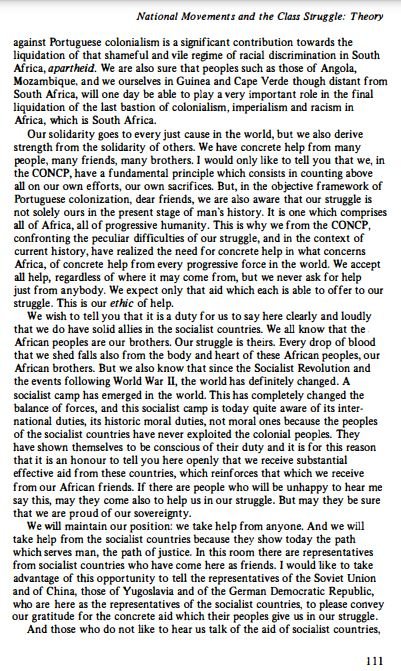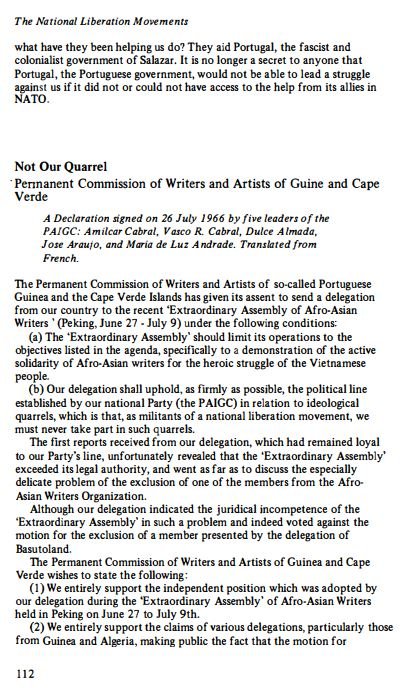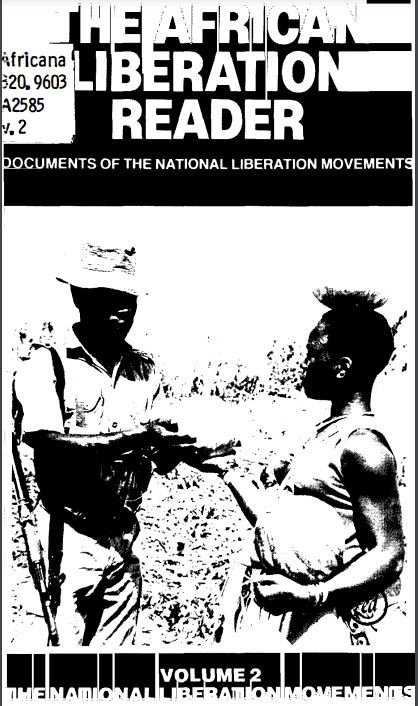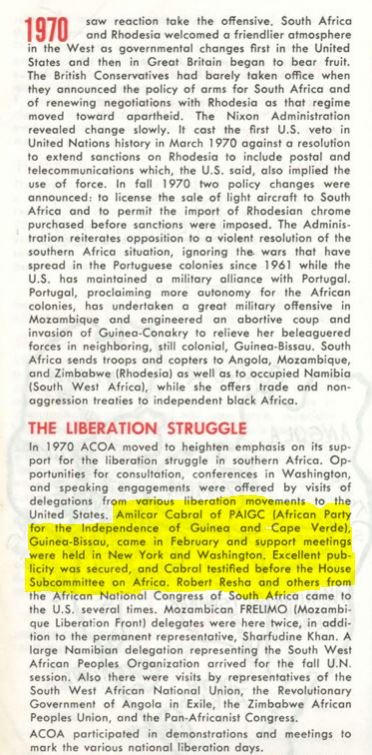-
July 2023
- Jul 9, 2023 ARCHIVE Jul 9, 2023
- June 2023
-
March 2023
- Mar 14, 2023 Outcome of the 4th Preparatory Meeting for the 8th Pan African Congress Part 1: Pan African TV and Radio Mar 14, 2023
- Mar 14, 2023 Council of Pan African Diaspora Elders Letter of Support to President Emmerson Dambudzo Mnangagwa of The Republic of Zimbabwe for the 8PAC1 Mar 14, 2023
- Mar 9, 2023 Outcome of the 3rd Preparatory Meeting for the 8th Pan African Congress Part 1: Diaspora Pan African Capital Fund Mar 9, 2023
- Mar 3, 2023 TOWARDS THE 8TH PAN AFRICAN CONGRESS PART 1: LESSONS FROM THE 6TH PAC AND 7TH PAC Mar 3, 2023
- Mar 2, 2023 Divide and Conquer Diplomacy of Lisbon and Washington 1973: Coopting the PAIGC and the Balanta People Mar 2, 2023
-
February 2023
- Feb 28, 2023 The African Union and the African Diaspora - Tracking the AU 6th Region Initiative and the Right to Return Citizenship: A Resource for the 8th Pan African Congress Part 1 in Harare, Zimbabwe Feb 28, 2023
- Feb 27, 2023 PREPARING FOR THE AFRO DESCENDANT/NEW AFRIKAN PLEBISCITE FOR SELF DETERMINATION IN THE UNITED STATES: UNDERSTANDING THE BERLIN CONFERENCE OF 1884 Feb 27, 2023
- Feb 27, 2023 PREPARING FOR THE AFRO DESCENDANT/NEW AFRIKAN PLEBISCITE FOR SELF DETERMINATION IN THE UNITED STATES: UNDERSTANDING DECOLONIZATION Feb 27, 2023
- Feb 27, 2023 PLEBISCITES IN WORLD HISTORY Feb 27, 2023
- Feb 27, 2023 African Liberation and the Use of Plebiscites Feb 27, 2023
- Feb 25, 2023 OUTCOME OF SECOND PREPARATORY MEETING FOR THE 8TH PAN AFRICAN CONGRESS PART 1 IN HARARE, ZIMBABWE Feb 25, 2023
- Feb 20, 2023 Outcome of the First Preparatory Meeting for the 8th Pan African Congress Part 1 in Harare, Zimbabwe Feb 20, 2023
- Feb 19, 2023 A BRIEF HISTORY OF THE MODERN RIGHT TO RETURN CITIZENSHIP MOVEMENT SINCE THE BERLIN CONFERENCE 1884: A PRESENTATION TO THE 8TH PAC PART 1 PREPARATORY MEETING DISCUSSING PATHWAYS TO CITIZENSHIP Feb 19, 2023
- Feb 14, 2023 Defining the Afro Descendants' Right to Return (RTR) to their Ancestral Homelands on the African Continent for the 8PAC Part 1 Feb 14, 2023
-
December 2022
- Dec 25, 2022 The African American Case for Independence at the International Court of Justice Dec 25, 2022
-
November 2022
- Nov 3, 2022 Secrets of the Forest People: Learning the Bantu Culture in Cameroon Nov 3, 2022
-
October 2022
- Oct 19, 2022 Celebrating the 50 Year Anniversary of Amilcar Cabral's Meeting With African Americans, October 20, 1972 Oct 19, 2022
-
September 2022
- Sep 7, 2022 THE POTENTIAL OF A MINORITY REVOLUTION IN THE USA - The Crusader, August 1965 Sep 7, 2022
- Sep 7, 2022 THE AFRICAN LIBERATION READER Sep 7, 2022
- August 2022
-
July 2022
- Jul 20, 2022 DESCENDENTES DE BALANTA LIDERAM MOVIMENTO DE REPARAÇÃO NO VATICANO: RESPONSABILIZAM OS REPRESENTANTES DE JESUS CRISTO PELA ESCRAVAÇÃO DOS POVOS AFRICANO Jul 20, 2022
- Jul 20, 2022 BALANTA DESCENDANTS LEAD REPARATIONS MOVEMENT AT THE VATICAN: HOLD THE REPRESENTATIVES OF JESUS CHRIST RESPONSIBLE FOR THE ENSLAVEMENT OF AFRICAN PEOPLE Jul 20, 2022
- June 2022
- January 2022
-
September 2021
- Sep 23, 2021 Lessons From Amilcar Cabral and Siphiwe Baleka: The Dum Diversas War and the Incomplete Independence of Guinea Bissau Sep 23, 2021
- Sep 2, 2021 BRIEF NOTES ON BALANTA HISTORY BEFORE AND AFTER GUINEA BISSAU INDEPENDENCE Sep 2, 2021
-
August 2021
- Aug 25, 2021 BRIEF NOTES ON BALANTA MIGRATION IN GUINEA BISSAU Aug 25, 2021
- Aug 19, 2021 Jornada de Quintino Medi para descobrir a Mãe Fula de Amílcar Cabral na Guiné-Bissau Aug 19, 2021
- Aug 19, 2021 Quintino Medi's Journey to Discover Amilcar Cabral's Fula Mother in Guinea Bissau Aug 19, 2021
- Aug 8, 2021 Space and Time in the African Worldview: Excerpt from Remembering the Dismembered Continent by Ayi Kwei Armah Aug 8, 2021
-
May 2021
- May 30, 2021 Historic Moment in Guinea Bissau: Denita Madyun-Baskerville is the First Balanta Woman to Return to Her Ancestral Homeland Since the Slave Trade May 30, 2021
- May 27, 2021 Sketches of the History of Balanta People in America: Anthology Series 1 now available! May 27, 2021
- May 5, 2021 MAY 5TH - THE MOST IMPORTANT DAY IN THE TWENTIETH CENTURY AND EVIDENCE THAT THE ANCESTORS OF AFRICAN PEOPLE COMMUNICATE TO THEIR DESCENDANTS ON EARTH AND SHAPE WORLD EVENTS May 5, 2021
-
April 2021
- Apr 6, 2021 CLARIFYING THE POLITICAL AND LEGAL STATUS OF 1,108 GENERATIONS OF MY FAMILY Apr 6, 2021
-
March 2021
- Mar 23, 2021 Balanta Marriage Customs: KWÂSSI, B-BÂSTI and MHÂH M-NANHI Mar 23, 2021
- February 2021
-
November 2020
- Nov 24, 2020 Oligarchy: The Spiritual and International Legal Wars Against the Balanta Nov 24, 2020
-
October 2020
- Oct 25, 2020 The Civil, Political and Legal Illiteracy of African Americans: Failure to Apply the Framework of the International Covenant on Civil and Political Rights Oct 25, 2020
- Oct 11, 2020 Notes on Hugo Grotius' Commentary on the Law of Prize and Booty (1604) Oct 11, 2020
- Oct 10, 2020 The Spiritual Protective Function of the Balanta Placenta Tradition, The United States Birth Certificate and the Spiritual Damage of Slavery Oct 10, 2020
- Oct 6, 2020 B’KINDEU & RANSOM: BALANTA PEOPLE REFUSED TO PARTICIPATE IN THE CRIMINAL EUROPEAN TRANS ATLANTIC SLAVE TRADE Oct 6, 2020
- Oct 1, 2020 From Nhacra to North Carolina: The Story of Brassa Nchabra and The Blake Family, 1760 to 1890 Oct 1, 2020
-
September 2020
- Sep 7, 2020 BALANTA AND THE POISON ORDEAL Sep 7, 2020
- August 2020
-
July 2020
- Jul 4, 2020 KNOW YOUR AMERICAN HISTORY: A BALANTA FAMILY ON JULY 4 1776 Jul 4, 2020
- Jul 3, 2020 LAND HAS ALWAYS BEEN CENTRAL TO THE SOLUTION OF AMERICA'S RACE PROBLEM Jul 3, 2020
-
June 2020
- Jun 24, 2020 The Black Liberation Movement (BLM), Balanta, Rastafari, and America's Drug War: Chicago Police Attacks on January 27, 1997 and August 6, 1999 Jun 24, 2020
- Jun 22, 2020 Revolutionary Action Movement (RAM) Reader Jun 22, 2020
- Jun 21, 2020 A BALANTA PANTHER: STEPHEN HOBBS AND THE CHICAGO BLACK PANTHER PARTY Jun 21, 2020
- Jun 9, 2020 REVISITING THE BATTLE PLAN: THE STRATEGY OF THE REPUBLIC OF NEW AFRIKA TO LIBERATE BLACK AMERICANS Jun 9, 2020
- Jun 8, 2020 JUNE 8, 1954: THE MOST IMPORTANT DAY IN 20TH CENTURY AFRICAN AMERICAN HISTORY Jun 8, 2020
- Jun 2, 2020 Marcus Garvey Message to the People: Lesson 16 Propaganda (and War), The Course of African Philosophy Jun 2, 2020
-
May 2020
- May 17, 2020 THE BALANTA STRUGGLE FOR JUSTICE AND EQUALITY: BRIEF SKETCHES OF ONE STRONG FAMILY'S ROLE IN AMERICAN HISTORY May 17, 2020
- May 9, 2020 KNOW YOURSELF, KNOW YOUR ENEMY: UNDERSTANDING EUROPEAN HISTORY PRIOR TO THEIR ARRIVAL IN WEST AFRICA May 9, 2020
- May 9, 2020 THE BOOK AFRICAN AMERICANS SHOULD BE READING: NOTES ON THE ORIGINS OF AFRICAN-AMERICAN INTERESTS IN INTERNATIONAL LAW May 9, 2020
- May 8, 2020 The B'rassa Fight Against the Befera: Learning from the Revolutionaries from India May 8, 2020
-
April 2020
- Apr 10, 2020 Black Bodies of Knowledge: Information Gangsters, Guerrillas and Notes on an Effective History by John Fiske Apr 10, 2020
- Apr 2, 2020 CREDO MUTWA ON THE RACE THAT DIED: A TALE OF TECHNOLOGY AND A WARNING TO THE FUTURE Apr 2, 2020
- March 2020
-
February 2020
- Feb 19, 2020 MISSING MIDDLE PASSAGE DOCUMENTS: THE CONSEQUENCE FOR BALANTA, MENDE, TEMNE AND OTHER SENEGAMBIAN PEOPLES BROUGHT TO THE UNITED STATES Feb 19, 2020
- Feb 3, 2020 THE MALI KINGDOM AND MANSA MUSA WERE IMPERIALIST SLAVE TRADERS: REVISITING AFRICAN HISTORY FROM THE POINT OF VIEW OF THE PEOPLE WHO WERE OPPRESSED Feb 3, 2020
-
December 2019
- Dec 29, 2019 AFRICAN HISTORIANS SPEAK ON BLACK-WHITE RELATIONSHIPS AND THEIR MIXED RACE OFFSPRING Dec 29, 2019
- Dec 3, 2019 Homosexuality Contemplated From African Spirituality Dec 3, 2019
- Dec 1, 2019 Befera: The White Christian Witches of the Balanta Worldview Dec 1, 2019
-
November 2019
- Nov 16, 2019 Balanta and the Banking System: A Case Study of the Criminal Application of Fictitious Corporate Statutory Law Nov 16, 2019
- Nov 6, 2019 SUMMARY OF LEGAL ISSUES CONCERNING BALANTA PEOPLE Nov 6, 2019
- Nov 6, 2019 DEVELOPMENT OF LEGAL ISSUES CONCERNING BALANTA PEOPLE Nov 6, 2019
- Nov 4, 2019 Timeline of American History And The Birth of White Supremacy and White Privilege in America Nov 4, 2019
-
October 2019
- Oct 29, 2019 LEGAL ISSUES EFFECTING BALANTA AS A RESULT OF CONTACT WITH THE ENGLISH Oct 29, 2019
- Oct 29, 2019 LEGAL ISSUES EFFECTING BALANTA AS A RESULT OF CONTACT WITH EUROPEAN CHRISTIANS Oct 29, 2019
- Oct 28, 2019 DEVELOPMENT OF LEGAL ISSUES DURING THE BALANTA MIGRATION PERIOD Oct 28, 2019
- Oct 28, 2019 ORIGIN OF LEGAL ISSUES CONCERNING BALANTA PEOPLE IN THE UNITED STATES Oct 28, 2019
- Oct 25, 2019 HOW THE AFRICAN UNION WAS ESTABLISHED TO INCLUDE THE AFRICAN DIASPORA Oct 25, 2019
- Oct 22, 2019 THE BALANTA FOUNDER OF THE AFRICAN UNION 6TH REGION CAMPAIGN Oct 22, 2019
- Oct 18, 2019 Amilcar Cabral Describes Balanta People Oct 18, 2019
- Oct 16, 2019 AN ANSWER TO THOSE WHO CLAIM THAT AFRICAN AMERICANS ARE HEBREW OR “LOST JEWS” Oct 16, 2019
- Oct 9, 2019 26 Principles of the Great Belief of the Balanta Ancient Ancestors Oct 9, 2019
-
September 2019
- Sep 19, 2019 Reviewing the Sudanic/TaNihisi Origins of the Balanta Sep 19, 2019
THE BALANTA WHO REVITALIZED THE ETHIOPIAN WORLD FEDERATION (EWF), CREATED A CITIZENSHIP POLICY FOR REPATRIATES AND TRIED TO SAVE THE SHASHEMANE LAND GRANT GIVEN BY EMPEROR H.I.M. HAILE SELASSIE I
The following articles, commentaries and reports are excerpted from the five volume, 1,500 page work entitled, COME OUT OF HER, MY PEOPLE! 21ST CENTURY BLACK PROPHETIC FAITH AND PAN AFRICAN DIPLOMACY. According to the book synopsis,
“When the World Trade Center was destroyed on September 11, 2001 – the same day that Ethiopians celebrate New Year’s Day – a few black men in America interpreted this event as the fulfillment of the biblical book of Revelations Chapter 18. Verses 4 and 5 commanded them to “Come out of her, my people, so that you will not share in her sins, that you will not receive any of her plagues; for her sins are piled up to heaven and God has remembered her crimes”. Obediently, Ras Nathaniel organized a mass Repatriation movement and led a diplomatic effort at the African Union on behalf of an estimated one million Rastafarians. There was just six years before the prophecy fulfilled for the Ethiopian Millennium which, on the western Gregorian calendar would begin on September 11, 2007.
In 1619, the first 20 Africans were brought to Jamestown, Virginia. They all had one common desire: return to their home in Africa. In every period since that time to the present, the most learned, respected and courageous of the Africans and their descendants concluded that they must either revolt against their enslavers or find some way to return to their home, the land which the Bible called “Ethiopia”. From this land a Universal Black King would be born with the titles King of Kings, Lord of Lords, Conquering Lion of Judah. Biblical prophets claimed that Princes would come out of her, that Ethiopia would stretch forth her hands, and her scattered, captive children would be brought home. In every period in American history, black men remained faithful to these scriptures and rejected America’s forced assimilation. Men like
George Liele, 1783
Prince Hall 1787
John Marrant 1791
Robert Alexander Young 1829
David Walker 1829
Martin Delaney 1836-1852
Henry Highland Garnett 1843
Edward Wilmott Blyden 1860’s
Bishop Henry McNeil Turner 1880
William Ellis 1903
Robert Athly Rogers, 1913-1924
Grover Redding, 1917
Clayton Adams (Charles Henry Holmes) 1917
Reverend James Morris Webb 1919-1925
Marcus Garvey 1919-1924
Malcolm X 1964
Ras Nathaniel adds his name to the list.
Come Out of Her My People! tells the story of how these biblical prophesies actually happened in the 20th Century and how the Black Exodus of Rastafari people ultimately failed.
Now, the original repatriates to Ethiopia started with Daniel Robert Alexander in 1908/1909. He was followed by Annie Harvey who lived in New York but was originally from Jamaica. Then, in 1928, Ato Gabrou Desta, then in the United States on a special mission to obtain economic and educational advisers, discussed Repatriation directly with Rabbi Arnold Ford whom the Abyssinian Mission of 1919 had made the first Repatriation offer. Ato Gabrou then issued the fourth invitation to Repatriate to Ethiopia in a message from Ras Tafari which stated,
“We would welcome them back to Ethiopia, their Fatherland . . . . There is plenty of room for them here and we are certain they would be of the greatest aid in restoring their ancient land to its pristine glory.”
Three months after this meeting, Ford’s congregation sent him to Ethiopia accompanied by Miss Eudora Paris, a singer of note among Harlem nationalists. Ford and Paris reached Addis Ababa in 1930, joining the elderly Daniel Alexander. They arrived just in time to attend the Coronation Ceremony on November 2, 1930, when Ras Tafari became Emperor of Ethiopia and was crowned Haile Selassie, King of Kings and Lord of Lords, Conquering Lion of Judah.” About 100 Africans from the Americas attend the Coronation of HIM Haile Selassie I. Many of those present are associated with the Elder Daniel Robert Alexander, who had been living in the country for 21 years and would become known as the Emperor’s blacksmith.
On January 4, 1931 Garvey’s UNIA followers march side by side with Rabbi Arnold Ford’s Black Hebrews in a street parade through Harlem, carrying framed life-size portraits of HIM Haile Selassie I and the Honorable Marcus Garvey. Garvey then sets sail for London to file a petition to the League of Nations which accused the United States and the nations of Europe of violating the human rights of African Americans and other African peoples.
ELEVEN DAYS AFTER GARVEY SET SAIL, DETROIT-AREA UNIA PRESIDENT EARL LITTLE (MALCOLM X’S FATHER), WHO WAS RESPONSIBLE FOR COLLECTING SIGNATURES FOR THE PETITION, WAS DISCOVERED DYING ON THE TROLLEY TRACKS NEAR HIS HOME.
𝐄𝐭𝐡𝐢𝐨𝐩𝐢𝐚𝐧 𝐄𝐦𝐩𝐞𝐫𝐨𝐫 𝐇𝐚𝐢𝐥𝐞 𝐒𝐞𝐥𝐚𝐬𝐬𝐢𝐞 𝐬𝐚𝐰 𝐭𝐡𝐞 𝐧𝐞𝐞𝐝 𝐭𝐨 𝐫𝐞𝐜𝐨𝐠𝐧𝐢𝐳𝐞 𝐭𝐡𝐞 𝐢𝐧𝐜𝐨𝐦𝐢𝐧𝐠 𝐑𝐞𝐩𝐚𝐭𝐫𝐢𝐚𝐭𝐞𝐬 𝐚𝐬 𝐂𝐢𝐭𝐢𝐳𝐞𝐧𝐬 𝐨𝐟 𝐄𝐭𝐡𝐢𝐨𝐩𝐢𝐚. 𝐓𝐡𝐮𝐬, 𝐰𝐡𝐞𝐧 𝐇𝐢𝐬 𝐌𝐚𝐣𝐞𝐬𝐭𝐲 𝐢𝐬𝐬𝐮𝐞𝐝 𝐭𝐡𝐞 𝐂𝐨𝐧𝐬𝐨𝐥𝐢𝐝𝐚𝐭𝐞𝐝 𝐋𝐚𝐰𝐬 𝐨𝐟 𝐄𝐭𝐡𝐢𝐨𝐩𝐢𝐚 𝐭𝐡𝐚𝐭 𝐛𝐞𝐜𝐨𝐦𝐞 𝐩𝐚𝐫𝐭 𝐨𝐟 𝐭𝐡𝐞 𝟏𝟗𝟑𝟏 𝐂𝐨𝐧𝐬𝐭𝐢𝐭𝐮𝐭𝐢𝐨𝐧, 𝐮𝐧𝐝𝐞𝐫 𝐒𝐞𝐜𝐭𝐢𝐨𝐧 𝟗 𝐍𝐀𝐓𝐈𝐎𝐍𝐀𝐋𝐈𝐓𝐘 𝟏𝟐(𝟐) 𝐇𝐚𝐢𝐥𝐞 𝐒𝐞𝐥𝐚𝐬𝐬𝐢𝐞 𝐩𝐫𝐨𝐯𝐢𝐝𝐞𝐝 𝐟𝐨𝐫 𝐂𝐢𝐭𝐢𝐳𝐞𝐧𝐬𝐡𝐢𝐩 𝐟𝐨𝐫 𝐁𝐥𝐚𝐜𝐤 𝐩𝐞𝐨𝐩𝐥𝐞 𝐨𝐟 𝐭𝐡𝐞 𝐖𝐞𝐬𝐭: (note this statement is my inference made after concluding my study of the Ethiopian laws at the Institute of Ethiopian Studies (IES) in Addis Ababa, where I was given special access to archives by the IES Director at the time, Ato Demeke Berhane)
“12(2) If the Imperial Ethiopian Government deems any foreigner who applies for Ethiopian citizenship to be of value or if it finds other special reason which convinces it that the applicant should be granted citizenship it may grant him/her Ethiopian citizenship even if he/she does not fulfill the [residency and language] requirements prescribed in Article 12(b) and (d) of the Nationality Law of 1930.”
By 1931, with a framework in place for the full Repatriation of Blacks from the West, Ato Gabrou informed Rabbi Ford and Eudora Paris of land concessions granted. Ato Gabrou sent word to Ford’s congregation in America to arrange passage for the next group of repatriates. Nine more members repatriated, including 𝐌𝐢𝐠𝐧𝐨𝐧 𝐈𝐧𝐧𝐞𝐬 (𝐰𝐡𝐨, 𝐚𝐥𝐬𝐨 𝐟𝐫𝐨𝐦 𝐁𝐚𝐫𝐛𝐚𝐝𝐨𝐬, 𝐦𝐚𝐫𝐫𝐢𝐞𝐝 𝐀𝐫𝐧𝐨𝐥𝐝 𝐅𝐨𝐫𝐝 𝐢𝐧 𝐀𝐝𝐝𝐢𝐬 𝐀𝐛𝐚𝐛𝐚 𝐚𝐧𝐝 𝐛𝐨𝐫𝐞 𝐡𝐢𝐦 𝐭𝐰𝐨 𝐬𝐨𝐧𝐬), 𝐀𝐥𝐛𝐞𝐫𝐭𝐚 𝐓𝐡𝐨𝐦𝐚𝐬, 𝐉𝐨𝐡𝐧 𝐒𝐚𝐧𝐝𝐢𝐟𝐨𝐫𝐝, 𝐌𝐚𝐫𝐲 𝐋𝐲𝐧𝐜𝐡, 𝐉𝐚𝐧𝐞 𝐅𝐨𝐬𝐭𝐞𝐫, 𝐀𝐝𝐚 𝐚𝐧𝐝 𝐀𝐮𝐠𝐮𝐬𝐭𝐢𝐧𝐞 𝐁𝐚𝐬𝐭𝐢𝐚𝐧 (𝐕𝐢𝐫𝐠𝐢𝐧 𝐈𝐬𝐥𝐚𝐧𝐝𝐬, 𝐔𝐍𝐈𝐀 𝐦𝐞𝐦𝐛𝐞𝐫𝐬), 𝐚𝐧𝐝 𝐓𝐡𝐨𝐦𝐚𝐬 𝐚𝐧𝐝 𝐍𝐚𝐧𝐜𝐲 𝐏𝐚𝐫𝐢𝐬 (𝐄𝐮𝐝𝐨𝐫𝐚 𝐏𝐚𝐫𝐢𝐬’ 𝐩𝐚𝐫𝐞𝐧𝐭𝐬). During this period, 1930-1931, approximately 100 Ethiopian “Blacks” from America repatriate to Ethiopia, including Horace W. Hendricks and William Weeks of Harlem, Oswald Nanton, James Alexander Hart (British Guiana), George A. Smith, and Mr. Helwig. Noted Black scholar J.A. Rogers twice visited Ethiopia during the early 1930’s.
Central to the story is the Ethiopian World Federation (EWF), established in the United States in 1937. Its aims were to mobilize support for the Ethiopians during the Italian invasion of 1935-41, and to embody the unity of Ethiopians (Black people) home and abroad. Sections were established in other parts of the Americas. Later, the EWF was given charge of an area of land in Ethiopia for housing returning emigrants. It would be responsible for the first major organized, state-sponsored repatriation progrem of the 20th century.
In 1942, George Bryan, Executive Secretary of the Ethiopian World Federation, Incorporated , wrote to His Imperial Majesty, Ethiopian Emperor Haile Selassie I the following message (excerpted):
". . . . 3. 𝐏𝐥𝐞𝐚𝐝 𝐟𝐨𝐫 𝐜𝐨𝐧𝐜𝐞𝐬𝐬𝐢𝐨𝐧𝐬 𝐨𝐟 𝐥𝐚𝐧𝐝 𝐟𝐨𝐫 𝐬𝐞𝐭𝐭𝐥𝐞𝐦𝐞𝐧𝐭 𝐨𝐟 𝐚 𝐥𝐚𝐫𝐠𝐞 𝐧𝐮𝐦𝐛𝐞𝐫 𝐨𝐟 𝐭𝐡𝐞 𝐦𝐞𝐦𝐛𝐞𝐫𝐬 𝐨𝐟 𝐭𝐡𝐞 𝐅𝐞𝐝𝐞𝐫𝐚𝐭𝐢𝐨𝐧 desiring to travel to Ethiopia for permanent settlement. 4. Plead for the easing of Visa restrictions to facilitate the voluntary entry of such members wishing from time to time to travel to Ethiopia to settle, visit and otherwise pursue ways for strengthening their relations with the Motherland.
Mr. Reginald Birch is fully authorized to act in the name and on behalf of the Ethiopian World Federation, this authority deriving from the exercise of the authority vested in the Executive Council as the policy making body of the Federation.
George A Bryan, Executive Secretary"
The Emperor's Initial response to the EWF did not mention any land grant. However, on June 3, 1959, T.E. Sealy, Editor of the Jamaican Daily Gleaner wrote to the Ethiopian government to verify the land grant. The Imperial Ethiopian Government Ministry of Foreign Affairs Addis Ababa, Sept. 9, 1959 responded by saying,
"In response to your enquiry and specifically as to whether or not lands have been made available by the Imperial Ethiopian Government for the "Ethiopian World Federation Inc.", we can confirm the substance of your letter thus:-
As a token of his appreciation for the services the "Ethiopian World Federation" rendered to the Ethiopian cause during the Fascist Invasion of our country, His Imperial Majesty Haile Selassie 1st, has been pleased to grant for the use of the "Ethiopian World Federation" lands not very far from the capital city of Addis Ababa."
At the start of the 21st Century, the EWF was in disarray and turmoil. To help save it and the Shasheman land grant, in stepped Ras Nathaniel, who was LEARNING FROM THE LEADERS THE PERSONAL COST OF AFRICAN LIBERATION: RESPONSIBILITY, RACIAL RE-EDUCATION, SPIRITUAL RE-CONVERSION, AND CLASS SUICIDE FOR A HOLY ORDER OF COMMITMENT.
In 2003, while serving as a journalist for the Rastafari Speaks newspaper published by Chicago’s very own Frontline Distribution, Ras Nathaniel. registered with the Federal Democratic Republic of Ethiopia Ministry of Information & Culture Press and Information Department as a journalist and began working at the African Union and the Economic Commission for Africa. He is the only African American to attend both the 1st Extraordinary Summit of the Assembly of the African Union in Addis Ababa, as well as the African Union Grand Debate in Ghana in 2007. As a result, Ras Nathaniel became the Director of the African Union 6th Region Education Campaign. He appeared on South African Broadcasting Company (SABC TV), negotiated the Rastafari citizenship issues in Ethiopia, helped the Central American Black Organization to elect its representatives to the African Union at their 12th Assembly in Honduras, and gave the inaugural Marcus Garvey lecture for the Government of Barbados’ Commission for Pan African Affairs. In 2006 he was the roommate of Dr. Kamarakafego, counselor, consultant, official and friend to Kwame Nkrumah, Julius Nyerere, CLR James, Walter Rodney and many others while organizing the 6th Pan African Congress in Tanzania in 1974. In 2007, while organizing the Global Unity Conference in Azania, Ras Nathaniel was given the name Siphiwe Baleka by a council of Elders. On September 28, 2010, his African Ancestry patrilineal test results showed that he was a descendant of the Balanta people.
Below are some of the documents from Ras Nathaniel’s archives.
ISSEMBLY FOR RASTAFARI INIVERSAL EDUCATION (IRIE) STAR ORDER REPORT: ETHIOPIAN IMMIGRATION POLICY AND THE RASTAFARI FAMILY WORLDWIDE
- May 13, 2003














SHASHEMANE CONTROVERSIES
- August 5, 2003
“ . . . it was the maladministration of the land grant in the late sixties and early seventies that caused the first serious problems on the Shashemane land grant. Well, upon arrival I learned that the majority of Rastafari non-EWF members view the EWF in Shashemane today as a secret society at best and gang at worst, mostly because of their closed-door meetings. Although I wasn’t an official EWF member when I arrived, because I was known to be organizing a chapter, I was allowed in to their meetings. Here I learned that for the past three years they, the Shashemane Local #14 have been dealing with the issue of their charter, which is not recognized by EWF Headquarters in New York. This is very strange because the EWF International Organizer lives in Addis Ababa and frequents Shashemane. So technically, the EWF Shashemane local can’t really do anything because it is not recognized by EWF headquarters! To make matters worse, the EWF members in Shashemane made it known that, as administrators of the land-grant, they decided everyone on the land grant must be members of the EWF, forcing a sort of organizationalgangsterism. This was quite an arrogant offence to some who had been living on the land grant for years. This prompted the Centenary Committee for Rastafari (CCR) Newsletter, 11th Edition Shashemane, Ethiopia April 2001 to report that, at the first ever public meeting of the EWF Shashemane Local, In a series of hot exchanges from the floor, the EWF leadership faced criticism for “landlord” tendencies and exclusiveness that had limited its role in the community. It was clear that changes would have to be made in the vision, policy, leadership, and constitutional interpretation of the present organ if it was to represent I&I at the international level. Needless to say, these changes haven’t been made, and the EWF continues to stand alone.”

















EWF Update
- November 2, 2004






















ETHIOPIAN MILLENNIUM REPATRIATION: RESTORING THE EWF AND THE SHASHEMANE LAND GRANT
- July 16, 2006










HIM HAILE SELASSIE I VISION FOR REPATRIATION







In 2017, the Ethiopian government adopted Ras Nathaniel’s immigration policy recommendations and finally recognized Rastafarians as nationals by issuing them with identity cards. The decision meant that they can enter the East African nation without visas and live without residence permits. This was an important step, not only because it gave them the right to legally live in Ethiopia, but also because it stopped the payments "illegal residents" had to make in order to be able to travel outside Ethiopia.
According to a 2019 article by Maria Gerth-Niculescu,
“Internal squabbles, economic struggles and the difficulty of integrating with the local Ethiopian community have led many Rastafarians to leave town, either to find work in the capital Addis Ababa, or to move to another country. Only about 200 still live in Shashamane. In the late 90s, they numbered approximately 2,000.
Recently, the Ethiopian government started the allocation of national residence cards to Rastafarians who have been living in the country for over 10 years. This was an important step, not only because it gave them the right to legally live in Ethiopia, but also because it stopped the payments "illegal residents" had to make in order to be able to travel outside Ethiopia. According to Ras Paul, "Now it's their chance to travel, see their families, they can come back when they want to... I'd say about a third of the population is out of the country now."
The allocation of the residence permit, which gives Rastafarians the status of "Foreign National of Ethiopian Origin”, was celebrated as a major step towards the community's recognition and integration. They now have the right to work and can legally send their children to school. But it is not enough for some. "I consider myself to be an Ethiopian returned home, and I have no desire to leave this country to live anywhere else," Ras Kawintesseb, who born in Trinidad and Tobago, said.
"It makes sense to me that I get to become an Ethiopian citizen. I'm not satisfied with being a foreign national, so I've applied for my Ethiopian citizenship," the Rastafarian who landed in Addis Ababa 23 years ago added. Married to an Ethiopian, Ras Kawintesseb is in touch with the Ethiopian community through his family and his multi-lingual music. But that's not the case for all Rastafarians in Shashamane: some are afraid that Ethiopians want to take their land away; others haven't had the chance to learn Amharic or adapt to the Ethiopian culture.
Ras Paul says he wishes to mingle more with Ethiopians. "But here it's very tense, because of the political problems of the country and the political emphasis on the land grant. There is big tension here, attacks on Rastafarians, seizing of Rastafarian land… Most of us have a story of a house being burgled, especially on his Imperial Majesty's birthday. On our most holy days they target us," he exclaimed, aggrieved. “
Disillusioned by the situation with the EWF and the development of the African Union 6th Region, Ras Nathaniel, now “Siphiwe Baleka” went on to fulfill the Repatriation mission in his ancestral homeland, taking what he learned from his experience in Ethiopia and applied it to launch the Decade of Return Initiative in Guinea Bissau, negotiate citizenship for the descendants of people taken from Guinea Bissau and enslaved in the Americas, and serving at the Coordinator for the 8th Pan African Congress Part 1 to be held in Harare, Zimbabwe at the end of 2023.
Outcome of the 4th Preparatory Meeting for the 8th Pan African Congress Part 1: Pan African TV and Radio
Later this year, the government of Zimbabwe will be hosting the “8th Pan African Congress Part 1 (8PAC1)”. On Saturday, March 11, more than 350 people attended the The Fourth Preparatory Meeting for the 8PAC1 that lasted five hours discussing the agenda item:
ESTABLISHMENT OF A PAN AFRICAN TV AND RADIO STATION/NETWORK
Nearly all organized efforts have a system of propaganda to convert people to their principles and get them to support them. Western Media, especially CNN, BBC, etc. has been and continues to be the highest form of systemic propaganda. That is why it is able in a major sense, to control the mind of the people of the world.Therefore, we must organize our propaganda to undo the propaganda of other people through a Pan African TV and Radio network that can rival CNN, BBC, etc.
LISTEN TO H.E. AMBASSADOR ARIKANA CHIHOMBORI-QUAO DISCUSS THE PROPOSAL FOR A PAN AFRICAN TV AND RADIO NETWORK WITH DELEGATES
During the meeting, 8PAC1 Coordinator Siphiwe Baleka emphasized the message in Marcus Garvey’s Course of African Philosophy: Lesson 16 Propaganda that serves as the rationale for establishing a Pan African TV network:
“Propaganda means to propagate or to make known extensively some particular phase of human intelligence. The desire is to convert or influence the people to the acceptance of the truth of that particular intelligence that is sought to be spread among them. Propaganda can be true or false in its origin or intent; but it is always directed at the public for the purpose of winning the support of that public to the sentiment expressed in the propaganda. . . . Nearly all organized efforts have a system of propaganda to convert people to their principles and get them to support them even though there may be no merit behind it all. Propaganda is all around you; to make you buy a special brand of cigarettes, although no good, but advertised to be the best; to make you drink or use a certain brand of tea; telling you of its wonderful qualities and its everlasting benefits when thee is absolutely nothing to it, and so on. . . . The press, cinema, pulpit, schoolroom are all propaganda agencies for one thing or the other. The pulpit carries religious propaganda, the schoolroom carries educational propaganda, the press carries out written propaganda, the platform carries on oral propaganda, the cinema carries out demonstrative propaganda. These methods have been devised by the white man to spread his ideas universally among men. That is why he is able in a major sense, to control the mind of the people of the world. The white man is a great propagandist. He fully and completely realizes the value of propaganda. Therefore, you must organize your propaganda to undo the propaganda of other people; if their propaganda affects your interest. . . . Tear up and burn every bit of propaganda that does not carry your idea of things. Treat them as trash. . . . You should always match propaganda with propaganda.”
Mr. Baleka likened television networks such as CNN and BBC to “fighter jets” and social media networks to “anti-aircraft artillery”. In his analogy, Mr. Baleka stated,
“Why do we need a Pan African TV station? Right now, African people at home and abroad are making great use of social media because the barrier to entry is very low. Anyone can do it from anywhere. So we are using our social media anti-aircraft artillery to partially nufflify the CNN and BBC jet fighters in the propaganda war for the minds of people. But foreigners, because they have these television networks, they have air superiority. . . We can win some of the media battles with our social media, but if we want to win the media war, the propaganda war, we need our own fighter jets, equal or better than the foreigners. We should not be afraind or limit our thinking to just the low hanging fruit of social media and winning sporadic battles over the narratives….”
Michael Thompson, founder of the Our Black Truch (OBT) and related platforms, gave an overview of the his Pan African social media system that will replace Facebook, Youtube, etc. Security issue related to the internet and social media were also discussed.
Council of Pan African Diaspora Elders Baba Baya added,
“Just wanted to suggest that we also pursue a Pan-African wire service to provide articles and commentaries to various newspapers throughout the Diaspora. There is a Pan-African news service already in existence however it is western socialist oriented. If the TV/Radio is the jet fighter, then the newspaper is the ground force. We have thousands of community newspapers throughout the Diaspora in French, Spanish, Portuguese and English-speaking community newspapers in the Diaspora community. A Pan-African news service that has access to online newspapers as well as conventional newspapers might also offer us a steady ability to shape our narrative at the community level. In many regions of the Diaspora, communities still read newspapers. We might want to include this as part of the conversation when it comes to us controlling the narrative.”
One of the outcomes of the meeting was the formation of the Pan African TV and Radio Committee for the 8PAC1. There is now a Citizenship Committee, a Technology Committee, an AU 6th Region Headquarters Committee, a Fund and Bank Committee, and a Youth Committee as well as a Council of Pan African Diaspora Elders.
If you would like to join a committee, please complete the form below
Council of Pan African Diaspora Elders Letter of Support to President Emmerson Dambudzo Mnangagwa of The Republic of Zimbabwe for the 8PAC1
African Diaspora Development Institute (ADDI) Vice President Damian Cook met with His Excellency, President Emmerson Dambudzo Mnangagwa of The Republic of Zimbabwe. Not Pictured: H.E. Ambassador Arikana Chihombori-Quao. Courtesy of ADDI
Harare, Zimbabwe - On Monday, March 13, 2023, H.E. Ambassador Arikana Chihombori-Quao and African Diaspora Development Institute (ADDI) Vice President Damian Cook met with His Excellency, President Emmerson Dambudzo Mnangagwa of The Republic of Zimbabwe, to discuss preparations for the 8th Pan African Congress Part 1 (8PAC1) later this year in Harare, Zimbabwe. Central to the discussion was an agreement on the dates for the 8PAC1 which were scheduled for April but have now been posponed pending details to be worked out by various ministries. President Mnangagwa assured Ambassador Quao that a meeting of all the ministers is being called to finalize the program and an agreement is expected very soon.
During the meeting, the following letter from the Council of Pan African Diaspora Elders in support of the 8PAC1 was delivered to President Mnangagwa:
Outcome of the 3rd Preparatory Meeting for the 8th Pan African Congress Part 1: Diaspora Pan African Capital Fund
“Others are becoming billionaires in Africa everyday. They are properly capitalized with enough money to buy all the equipment and in the mining sector, they quadruple their investment in just 3 months. If we get enough funding, we can be equal players.....that will benefit Africans at home and in the Diaspora. The only thing preventing us from competing on equal footing has been access to funding and capitalization. If we get this funding, it's going to be a game-changer. Africans and the African Diaspora can invest in Africa and become millionaires within months. Diasporans can benefit from their inheritance in Africa."
- H.E. Ambassador Arikana Quao
Later this year, the government of Zimbabwe will be hosting the “8th Pan African Congress Part 1 (8PAC1)”. One of the main Agenda items is African Economic Liberation through Diaspora Pan African Capital Fund, Diaspora Pan African Bank and Diaspora Preferential Investment Pathway for International Contracts. On Sunday, March 5, The Third Preparatory Meeting for the 8PAC1 discussed the agenda item:
Diaspora Pan African Capital Fund
$100 a month from 1 million African Diasporans (0.4% of the African Diaspora population) is $100 million a month. That’s $1.2 billion a year and $6 billion in five years. Investment through the fund qualifies for citizenship through Pathway 1. At maturity, money is deposited in a bank in the country of choice.
Below is a concept deck prepared by Nicole Holmes summarizing the vision of H.E. Ambassador Arikana Chihombori-Quao and the discussion during the meeting. To solicit input for the Zero Draft Resolutions working document for the 8PAC1 Harare Declaration, complete the form below.






Example: Lithium mine
Approximately $300K is neede to acquire a lithium mine. For lithium mining, you need an excavator and a jaw crusher. All one needs to do is dig up chunks of rock, crush them, load them up and they are ready to sell. Average cost of lithium (depending on the % of lithium in the rock) is
4% to 5% a ton of rock of lithium is $600 to $700;
5% to 6% is about $1000 per ton;
6% to 7% is up to $1,500 per ton.
You can dig up to six dump trucks each carrying 20 tons each per day for a total of 120 tons per day. Average is about 60 to 80 tons per day, or $36,000 minimum at 4% to 5% or $720,000 a month (20 days working out of 30). At a maximum of 120 tons at 7%, that’s $180,000 a day or $3,600,000 a month (20 days working out of 30).
Expenses to transport the lithium is about $1000 per truck. You can lease an excavator or a jaw crusher for $15,000 a month.
Subtract $30,000 per month for the excavator and jaw crusher, as well as $5,000 for the fuel. The returns are still huge!
If there is maximum production of 120 tons for 24 days at 5% to 6% ($1,000 per ton), that’s 2,880 tons of lithium worth $2,880,000. Subtracting the equipment and fuel cost, that’s a net profit of $2,845,000. After paying labor, there is a massive net profit.
Question: how much does it cost to do this with the least amount of environmental damages….?
The purpose of the Diaspora Pan African Capital Fund is to provide the capital for African Diaspora investment projects such as the lithium example above, whose profits are then reinvested in the communities themselves in the form of clinics, schools, etc. In this way, the African Diaspora can come into Africa and compete with foreignes who are already capitalized and extracting huge profits from the mining sector. The Diaspora Pan African Capital Fund is conceived to be a specific means for achieving
#AfricanEconomicLiberation
Please share your thoughts and ideas about the proposed Diaspora Pan African Capital Fund by completing this form. If you would like to serve on the Fund & Bank Committee for the 8PAC1, please email: pac8.1coord@ouraddi.org
“How noble and great a deed is the act of sacrificing one’s wealth, land and money, to one’s needy community instead of for selfish purposes!” - H.I.M. Haile Selassie I, January 12, 1963
TOWARDS THE 8TH PAN AFRICAN CONGRESS PART 1: LESSONS FROM THE 6TH PAC AND 7TH PAC
“Political conferences of the oppressed invariably attract a variety of responses - varying from cynical conviction that they are an utter waste of time to naïve optimism that they will change the face of the world. In actuality, popular struggle continues from day to day at many different and more profound levels; and its intensity at any given time primarily determines the relevance and utility of the conference as a technique of co-ordination. The Sixth Pan-African Congress scheduled for Dar es Salaam in June, 1974 consciously aims at being heir to a tradition of conferences which grew out of the response of Africans to their oppression in the first half of this century. Therefore, its rationale must be sought though a careful determination of the co-ordinates of the contemporary endeavours of the African people everywhere. . . .
Any 'Pan' concept is an exercise in self-definition by a people, aimed at establishing a broader redefinition of themselves than that which had so far been permitted by those in power. Invariably, however, the exercise is undertaken by a specific social group or class which speaks on behalf of the population as a whole. This is always the case with respect to national movements. Consequently, certain questions must be placed on the agenda: notably, the following:
- Which class leads the national movement?
- How capable is this class of carrying out the historical tasks of national liberation?
- Which are the silent classes on whose behalf 'national' claims are being articulated?”
Walter Rodney, Aspects of the International Class Struggle in Africa, the Caribbean and America
—————————————————————————————————————————————————
As the Coordinator of the Agenda for the Pan African Congress Part 1 (8PAC1) to be held in Harare, Zimbabwe later this year, I feel compelled to follow in Rodney’s footsteps and provide a rationale for the upcoming congress. As I stated in the article From the 8th Pan African Congress in 2014 to the 8th Pan African Congress in 2023, many grassroots Pan African activists are asking questions about the event. There will be some conflict over the Congress’s connection to Ugandan President Yoweri Museveni. There may be arguments over whether or not the Congress should be called the 8th PAC, the 9th PAC or even be called a PAC at all. Some veterans of the Pan African movement may feel slighted that, until now, they were not consulted from the start. And perhaps there may be many more objections.
But Rodney instructs us to make “a careful determination of the co-ordinates of the contemporary endeavours of the African people everywhere. . . .” The original call (June 2022) for the 8PAC1 stated,
“Dear Potential Delegate,
The African Union defines the African Diaspora as all people of African descent living outside of Africa. In 2002 after an increase drumbeat from people of African descent living outside Africa (The African Diaspora), The African Union incorporated the 6th Region as part of the African Union constitution. Since the amendment of the AU constitution, it has been brought to our attention the onus has been left to the African Diaspora to organize and collectively, in a united manner present demands to the African Heads of State as to how we wish to organize and formalize the 6th Region in the same way as the other 5 regions on the continent of Africa.
The Government of Zimbabwe has heard loud and clear the out cry from the African Diaspora and their desire to come back home. As such the President the Republic of Zimbabwe has agreed to host the African Diaspora Pan African Congress (ADPAC) which is scheduled to take place in Victoria Falls, Zimbabwe during the month of October 2022. . . .”
On September 6, the ADPAC was postponed. A letter to potential delegates stated,
“September 06, 2022
To: All delegates to the scheduled 9th Pan African Congress and Invest in Africa Spotlight Zimbabwe Conference . . . .”
Thus, from June to September, the conference changed from the African Diaspora Pan African Congress (ADPAC) to the 9th Pan African Congress (9thPAC). However, sometime between September and February, the event was re-branded the 8th Pan African Congress Part 1. After arriving in Harare, Zimbabwe on February 7th to join H.E. Ambassador Chihombori-Quao’s planning committee, I asked her why the conference was now being called the “8th PAC Part 1"” when it was most recently annouced as the “9th PAC”. Her response was that it was on the insistence of Ugandan President Yoweri Museveni, who intends to host the “8th PAC Part 2” next year in Uganda to commemorate the 30th Anniversary of the 7th PAC that was held in Kampala, Uganda. . . .
What’s important, however, and most relevant to Rodney’s insistance, is that the motivation for the event is that “The Government of Zimbabwe has heard loud and clear the out cry from the African Diaspora and their desire to come back home. “ Given this and the African Diaspora’s obligation “to organize and collectively, in a united manner present demands to the African Heads of State . . . .” it was proper to call the event the African Diaspora (who is meeting) Pan African Congress (concerning an issue that is foundational to all African People and concerning obligations of all AU Member States).
To be sure, the Ghana Tourism Authority predicted its 2019 Year of Return initiative would attract 500,000 extra visitors. Official data from January to September 2019 showed an additional 237,000 visitors - a rise of 45% compared with the same period the previous year. Minister of Tourism Barbara Oteng Gyasi said the Year of Return had injected about $1.9bn (£1.5bn) into the economy. Now, Sierra Leone, Guinea Bissau and other African states are follwoing suit and launching citizenship programs under a “Decade of Return” Initiative. But the Right to Return and citizenship issues has been fraught with problems on all sides.
The right to return and African citizenship issue was initially included in the
WORKING PAPER ON DESIRABLE RESULTS OF THE 6TH PAN AFRICAN CONGRESS, TANZANIA 1974
Since the formation of the African Union, citizenship for African Diasporans has been one of the major priorities that, after twenty years, has yet to materialize. Given that the post Ghana “Year of Return” Blaxit movement represents the largest Back-to-Africa rematriation phenomenon in history since the Dum Diversas War launched in 1452 and the criminal trans-atlantic trafficking of prisoners of war from the African continent, the rationale does indeed satisfy “a careful determination of the co-ordinates of the contemporary endeavours of the African people everywhere. . . .” in the context that African people everywhere want freedom of movement and continental citizenship and that a major catalyst for achieving this is developing a comprehensive African Diaspora citizenship policy.
In Pan-Africanism and Nationality Rights For the Diaspora: A Contemporary Perspective, in Pan-Africanism, African Nationalism: Strengthening the Unity of Africa and its Diaspora edited by B.F. Banke & K. Mchombu, A. Bernard puts it this way:
“The Pan-Africanist Law of Return: Quintessential Reparations
At a very basic level, if reparation is to repair the wrongs committed against African peoples through slavery and its apprentices, colonization and imperialism, the first wrong committed was taking millions of peoples from their homeland. Those taken from Africa lost, among other things, their citizenship and this is the first thing that needs to be given back. It is morally and philosophically the first step in the journey of a thousand miles that needs to be undertaken if Africa and African peoples are to move forward in a forceful, positive and determined manner in the 21st Century.
Concomitant with this position therefore is that the law of return can only be made possible by African governments/states, not the West. It is to be stated clearly nonetheless, that this is a right, not a concession or special privilege. Diasporan repatriates should not have to prove which part of Africa they are from. The loss of this specific identity is a part of the harm done by slavery, and cannot be used by African governments to reject Diasporans. Any African government which challenges the right to return to Africa for proof of specific identity is in breach of their own claim for compensation for slavery.”
Thus, the 8PAC1 is called and organized to fulfill one of the desired outcomes of the 6th PAC. Below is a review of the 6th and 7th PACs from some of our best thinkers involved in them so that the lessons learned are firmly implanted in our consciousness as we head towards the 8PAC1 in Zimbabwe.
6TH PAC INFORMATION OFFICER DISCUSSION WITH C.L.R. JAMES









Aspects of the International Class Struggle
in Africa, the Caribbean and America
BY WALTER RODNEY
(Pan-Africanism: Struggle against Neo-colonialism and Imperialism - Documents of the Sixth Pan-African Congress, Horace Campbell, ed. Toronto: Afro-Carib Publications, 1975, 18-41.)
“Yet, the realities of state power have predetermined that when the Sixth Pan-African Congress meets in Dar-es-Salaam in June 1974 it will be attended mainly by spokesmen of African and Caribbean states which in so many ways represent the negation of Pan-Africanism. One immediate consequence of the rise of constitutionally independent African and West Indian states is that for the first time such a gathering will be held on African soil and will be sponsored, directed and attended mainly by black governments rather than by black intellectuals as such or by small black protest organizations, as was the case up to the Fifth Congress in Manchester. Already it is clear that states will be represented as states and that the OAU will play some role.
When a few individuals began to contemplate this Congress some years ago, it was felt that it should be a coming together of black political movements, as distinct from governments. One school of thought envisaged that it would be a select conference of the most progressive elements in the black world. To a large extent, this was the significance of the All African People's Conference held in Accra in 1958. However, plans for a similar meeting in the 1970s would be hopelessly idealist. The African radicals of 1958 are by and large the incumbents in office today. The radicals of today lead at best an uncomfortable existence within African states, while some languish in prison or in exile. The present petty bourgeois regimes would look with disfavour at any organized programme which purported to be Pan-African without their sanction and participation.
None of the progressive African regimes, which are already isolated and exposed to internal and external reaction, would dare to host a Congress which brought together only those who aggressively urge a unity of the African working masses and the building of a Socialist society. Such a Congress would have to be held in a metropolitan centre, and would thus condemn itself to serve primarily as a forum for alienated intellectuals.
In the light of the above considerations, any African committed to freedom, Socialism and development would need to look long and hard at the political implications of participation in the Sixth Pan-African Congress.”
































Sixth Pan-African Congress: Planning, Preparation and Implementation, 1969 – 1974 By Sylvia I.B. Hill
“Brief Overview of the Sixth Pan-African Congress
Following in the tradition of the previous four conferences from 1919 – 1945, and of the Pan-African leadership from both H. Sylvester Williams, the first architect of the Pan-African Congress, and W.E.B. DuBois, who continued the Congress’ tradition until 1945, members of the Center for Black Education, in consultation with Bermudian Roosevelt Browne (Pauulu Karamarakafego) and Trinidadian revolutionary C. L. R. James, committed to organizing the Sixth Pan-African Congress. [Note: Pauulu Karamarakafego was my roommate at the Central African Black Organizations (CABO) XIIth Assembly in La Ceiba, Honduras in 2006]
After considerable planning with varying participants, serious planning for 6PAC began in 1972 in Washington, D.C. A steering committee consisting of Geri Stark Augusto, Edward Brown, Courtland Cox, Charlie Cobb, Jimmy Garrett, and Sylvia Hill began to meet. They also engaged in international travel to identify potential allies as organizers. The International Secretariat office was organized in 1973 in Dar es Salaam, Tanzania, by Courtland Cox as the Secretary-General, Geri Stark Augusto as communication liaison, and Edi Wilson and Kathryn Flewellen as the administrative support team.
The North America organizing infrastructure was organized regionally including Canada, the Caribbean, and the USA. While logistical organizing was housed in the Institute for African Education (an after-school children’s program administered by Drs. Sylvia Hill and JoAnn Favors at Macalester College in St. Paul, Minn.), Drs. James Turner of Cornell University and Julian Ellison of the Black Economic Research Center (BERC) were the leadership team responsible for hosting political discussions with the various groups opposed to the Congress’ convening.
Seth Markel, historian and international studies professor, captured the priorities of the Congress and the complexity of its proceedings when he observed, “the last section of The Call prioritized ‘complete and absolute’ liberation in southern Africa and the development of a pan-African science and technology center and agenda.” He continued to identify the primacy of the idea of self-reliance, which would mean “the fullest utilization of our own human resources instead of continued dependency on the West.” As Markel observed, fashioning a discussion internal to the delegation would be challenging since the leading personalities were embroiled in a debate on whether race or class predominated an analysis of the problem for Black people in the United States and the world while the declaration of the Congress asserted a class analysis. The listed references offer many interpretations of the Congress’ proceedings and the implications of the declarations.
Solidarity with Southern Africa Liberation Movements
A central agenda item of the Congress was to create an opportunity for liberation movements to build international solidarity with Black people from the different regions of the world to strengthen their cause: to defeat Portuguese colonialism and apartheid in South Africa, Namibia, and Rhodesia (Zimbabwe). By the time of 6PAC, some participants were familiar with the anti-colonial struggles in southern Africa because of the seminal visit of Amilcar Cabral to New York, which was hosted by African-American filmmaker Robert Van Lierop of the Africa Information Service and later published in 1973 as the groundbreaking book, Return to the Source: Selected Speeches of Amilcar Cabral. By 1971, the historic film A Luta Continua, produced, directed, and narrated by Van Lierop was being circulated for showing at college campuses, churches, and social gatherings throughout the USA. The film reinforced the central tenet of FRELIMO, MPLA, SWAPO, and PAIGC: that the national liberation struggle includes the armed struggle phase but most importantly the social reconstruction phase of nation-building in liberated zones. Film viewers grasped the importance of health centers, educational centers for the young, collaborative leadership with equity for women, and collective farming to feed the community. Most importantly, the film showed the elevation of women as partners in the armed struggle with men as well as nation-building activities in the liberated zones. The equality of women in the national liberation struggle was affirmed by posters that showed women with a rifle on their shoulders and children in their arms.
One of the organizational design complexities – with political implications that we did not fully appreciate in our zeal to forge a worldwide Pan-African agenda against imperialism – was the different power and class interests between the liberation movements and African as well as Caribbean nation-states. FRELIMO, ANC, PAIGC, and MPLA focused on asserting the interests of the liberation movements’ political agenda of international solidarity as a primary outcome and objective of the Congress’ agenda. While this was consistent with our agenda as Congress organizers, there were many logistical challenges to making the centrality of the liberation movements a reality in terms of allotted time on the agenda. For example, the Congress had several official languages such as Portuguese, French, Arabic, and Kiswahili that not only created the need for a variety of translators and the reproductions of proceedings daily in the different languages, but it also limited the time for delegate presentations and participant discussions.
FRELIMO, MPLA, and ANC feared that African-American delegates, in particular, would concentrate on the symbols of African cultural solidarity as in clothes, music, and art as opposed to identifying strategies they would wage against U.S. foreign policies in the southern African region. Samora Machel, FRELIMO leader and Mozambique’s first President, said it best when he urged that ‘international solidarity is not an act of charity; it is an act of unity between allies fighting on different terrains toward the same objective.’
Center for Science and Technology
Ronald Walters, an African-American political scientist and leading scholar of the Pan-African movement, observed that “in the prevailing atmosphere, the proposal for a Center for Science and Technology was attacked on the grounds that it represented ‘bourgeois science’ and was improperly understood by the collective delegation of representatives. In any case, this most promising of projects did elicit some useful resolutions concerned with 1) the mobilization of skilled scientific manpower; 2) the development of African natural resources for the benefit of the common heritage; and 3) the extension of health care benefits to the people and the rejection of ill-advised health practices.” Fletcher Robinson, a co-chair of the Science and Technology Committee along with Donald Coleman, captured the sentiments of many scientists when he stated, ‘When we left the conference in 1974, for many of us, it was the most devastating experience of our lives. We participated in an effort that we gave a lot to, over a period of about four years.’ He went on to explain in an interview with Black Books Bulletin that
‘our reception at a formal level was a terrific blow to many of us. We were not accepted in the kinship of Pan-Africanism. There could not be discussion of science and technology in terms of how we could use our expertise and training for African interest wherever we were in the world, because the discussion was entirely politicized. There were people from Arab countries who never allowed the discussion to get on the floor, because they claimed that there could be no serious talk with people who did not represent a country, who only represented themselves.
Not only that, ‘the Arabs also raised the question of why should there be talk about building a science center for science and technology, when Egypt had always welcomed their brothers from the South to their institutions?’ Another important characterization of these challenges by Dr. Robinson was his recollection that ‘this force was joined by people from Guinea, Somalia, and Congo-Brazzaville who said that we were pawns of the imperialists who came to bring forth whatever their doctrine was of imperialism.’ He continued with the observation, “Interestingly enough, when we would talk outside the meeting halls in the ad-hoc groups, then there was a feeling of Pan-Africanism—touching and getting to know each other’s experiences. When we did make our speeches and got a chance to show what we were talking about and why we came there, we got standing ovations.’
Nevertheless, plans for a Science and Technology Center were not adopted. Many local D.C. and national science and technology activists participated in the local planning for the Center such as Drs. Neville Parker and Donald Coleman from the engineering department at Howard University, Drs. Alyce Gulattee and Calvin Sinnette from Howard University Hospital as well as noted Afrocentric psychiatrist, Dr. Frances Cress Welsing.
Women and the Sixth Pan-African Congress
Aside from being the organizational heartbeat of 6PAC, the female participants forged a women-centered agenda during workshops and collective meetings in the after-hours as well as during the formal proceedings. The conference theme, “The role of women in the African liberation struggle” provided an important context for affirming the leadership role of women as delegates discussed with women of the African liberation movements the challenges of assuring girls’ education, women’s health care, and their leadership roles in organizations and societies. There had been a long tradition of USA and Caribbean women of African descent in leadership advocacy role of Pan-Africanism. Women like Amy Jacques Garvey, Queen Mother Moore, and many others were trailblazers for those of us participating in the 6PAC. Geri (Stark) Augusto captured the role of women in the conference when she observed that the position of sisters throughout the African world was discussed and a central part of the agenda.
In her seminal work, “Black Women Organize for the Future of Pan-Africanism: The Sixth Pan-African Congress,” Ashley Farmer noted an important observation that serves as a summary of the significance of the role of 6PAC when she wrote:
‘African-American women activists had always organized within an eye toward Africa. However, events like 6PAC created new opportunities to refine their commitments and Pan-African identities. Through their organizational skills, resolutions, and participation they shaped the direction of twentieth-century Pan-African organizing and the discourse on the intersection of women, gender, and Pan-Africanism.’
Outreach to Local USA Communities
A central objective of the 6PAC Steering Committee was the democratization of the North American delegation, particularly USA participants, that would have an opportunity to travel to Tanzania and participate directly or indirectly in the Congress’ cultural and political activities. Other forces like the traditional leadership of Pan-African and progressive thought, Amiri Baraka, and Owusu Saudaki, felt that only the Pan-African political leadership should attend the conference in order for the African-American view to be presented by intellectual and experiential leadership that would be equal to the nation-state leadership of other participants in the Congress.
Our analysis of social change – and this was particularly emphasized by Courtland Cox – was that in order to build people-to-people solidarity for the Pan-African movement, we needed to create an opportunity for the largest number of non-governmental African-American, Afro-Canadian, Caribbean, and other people of African descent worldwide to visit Tanzania to enhance their knowledge of and solidarity with the African world based on their experiences at 6PAC. Other countries invited and sponsored delegations, so the experiences of many participants went beyond opportunities to build solidarity ties with Tanzanians.
To accommodate the range of North America travelers, the North America Secretary-General organizational team created three categories of participants: delegates; observers, and visitors. A central organizing objective of the Secretariat was to be inclusive by negotiating an affordable airfare and by conducting outreach to women, seniors, young people, unions, community organizations, and professionals as well as within the cultural, religious, academic, and science and technology sectors. While many written and vocal commentaries chided the large number of North Americans, particularly African-Americans, attending the conference as delegates and observers while visiting Tanzania as visitors, there was a pragmatic decision made in the Secretariat that this permitted the lowest airfare and maximized the largest number of participants able to participate while accomplishing our political objective of renewing and building a contemporary constituency for Pan-African activism.
As part of the USA and Canada organizing efforts, participants collected medicines as well as medical supplies and delivered them to the liberation movements as an act of solidarity.
Outreach and Mobilization of Diaspora Communities
Roosevelt Browne (Pauulu Kamarakafego), one of the architects of the 6PAC at the behest of President Kwame Nkrumah traveled throughout the Pacific Islands, Australia, and Europe to mobilize participants to attend the conference. (Later, he coordinated housing and meal availability at the University of Dar es Salaam.) Thus, the Congress had a Pan-African representation including Afro-Europeans, Pacific Islanders from Fiji and New Hebrides (which later became Vanuatu), and Afro-Australians. Caribbean radicals were minimally represented, however, because some Caribbean governments refused to participate if radicals of their country were also permitted to participate. This was a concession that President Nyerere made in the interest of his governmental relations. As a result, Dr. C. L. R. James (interview transcript), one of the original 6PAC organizers, refused to participate in solidarity with the progressives from his region.
The Struggle Continues
By fall 1974, activists and fellow 6PAC organizers Sandra Hill, JoAnn Favors, Kathryn Flewellen, and I relocated to Washington, D.C. to raise public consciousness against U.S. foreign policies in Southern Africa. Our focus on this international Pan African solidarity work stemmed from a statement by Secretary General Courtland Cox, who said during his closing remarks, “Each of you who has participated in the Sixth Pan African Congress carries with you, as you leave this hall, an historical and political duty to translate your words into struggle.”
Closing Remarks by the Secretary General, Courtland Cox
Hindsight is always better than foresight. In retrospect I am keenly aware of the mistakes made in organizing this Congress. Having just participated in ten days of proceedings, I am also as aware as any one of you of the positive contributions of the meeting itself. I would like to remark first, if you don’t mind, on the positive contributions the Sixth Pan African Congress has made to the African liberation struggle.
As many speakers in this Hall have documented, the imperative of the African World at the time of the Fifth Pan African Congress was an end to colonialism. For that aim people organized and moved, and history remembers the energizing role of the Fifth Pan African Congress in the anti-colonial struggle.
Our world, the world which African people have such dynamic potential to change, has progressed since 1945. I believe this Congress has clearly advocated new imperatives: an end to neo-colonialism and imperialism, and the revolutionary social transformation of African societies and communities.
It remained for energetic people to give life to the call for an end to colonialism after the Manchester Congress. I believe it will remain for energetic people going out from this Congress to prove whether, by speaking against neo-colonialism and for a new social order, we were sowing the wind or planting a crop for liberation. I think it will take a few years to be sure, but we have at least been clear in this meeting about our determination.
Some have questioned all along the validity of calling together a meeting of African people in 1974, given an understanding that peoples of many races and geographies struggle against imperialism, oppression and exploitation. I think this Congress has ratified the validity of African people meeting to chart a political course for our common problems. We as African people still have an obligation to continue our own most important contribution to human advancement — the building of a strong, just Africa, and the forging of a United African People.
That we listened to each other under one roof has been tremendously important. That we exchanged ideas and assessments of problems — even if they were sometimes conflicting ideas — has been positive, because ideological struggle leads to ideological clarity. That those whose analysis has been shaped in the crucibles of different arenas of the struggle have met, argued, discussed, and written is important. I do not know of another forum which has brought together people struggling in Southern Africa, on African Islands elsewhere throughout the continent, with brothers and sisters from Britain, North and South America, the Caribbean and the Pacific Islands. As Brother Sadaukai remembered for us from Cabral—it is one thing to be Brothers and Sisters, and another to participate in the long struggle of African people for liberation which makes us comrades, as well. Any meeting which promotes this understanding is worthwhile.
Another positive contribution I believe the Sixth Pan African Congress has made is the introduction of the political use, and I stress political use, of modern science and technology, in the struggle to defeat our enemies and build our world. Again I believe it will be some years before the impact of some of these concepts about science and technology as tools in the liberation of the masses of our people will be fully felt.
There has been an emphasis in this meeting on the liberation struggles in Africa against the last vestiges of colonialism, and there has been a leadership role played by the representations of the liberation movements here. Our emphasis on support for the liberation of Southern Africa has been a reflection of the future course that Pan Africanism must take, and marks the recognition by African people everywhere that Southern Africa is one of our foremost battlegrounds.
I believe the major and most serious shortcoming of this Congress has been that some who should have been here were not. History will, I am sure, take us to task for this. There should have been more people’s movements represented, more women represented, more young people participating. That gap in participation in the Sixth Pan African Congress mirrors very real contradictions at work in the African World.
When, and if, there is a Seventh Pan African Congress, I believe the composition of delegates and the issues for discussion will show the progression of our struggle—for one thing is sure, the movement of African people forward towards total liberation is an irreversible process.
I wish to thank all delegates and guests for your participation, your patience, your understanding — and in the case of several hundred of you, for your blood, given to the blood bank for the Liberation Movements.
The Temporary Secretariat must also take this opportunity to thank TANU, the Afro-Shiraz Party, the University of Dar es Salaam, and the People of Tanzania for hosting the Sixth Pan African Congress. It made all the difference in the world that this Congress could be held on African soil.
I have only one final point to make which will end my closing remarks:
Each of you who has participated in the Sixth Pan African Congress carries with you, as you leave this hall, an historical and political duty to translate your words into struggle.”
The Sixth Pan-African Congress
By Dr. David Horne
“Between June 20 and 29, 1974, the sixth in the series of Pan-African Congress meetings occurred in Dar es Salaam, Tanzania, at the University of Dar es Salaam. The first congress, held in 1900, was organized principally by Trinidadian attorney Henry Sylvester Williams and took place in London. An attendee at that 1900 gathering, W. E. B. Du Bois, then took up the organizing mantle for five succeeding international gatherings to discuss and pass resolutions regarding defeating colonialism, improving African affairs, and emphasizing Africa's relationship with world progress. Called Pan-African Congresses by Du Bois to underscore the intention of passing strong mandates and legislatively influential decisions regarding African people, in 1919, 1921, 1923, 1927, and 1945 these gatherings took place in London, Paris, Brussels, New York, and Manchester, respectively. Intrinsically, these gatherings mainly involved the educational and activist elite among North American, Caribbean, and continental African delegations. The African masses were fervently discussed at all of these meetings, but representatives of the African masses rarely attended.
The Fifth Pan-African Congress, held in 1945, was considered at the time the largest and most consequential, as it spawned the first generation of independent African leadership in a post—World War Il environment, including attendees such as Hastings K. Banda (future first president of Malawi), Kwame Nkrumah (future first prime minister and president of Ghana), Wallace Johnson (future prime minister of a revived Liberia), and Jomo Kenyatta (future first president of Kenya).
The Sixth Pan-African Congress (6PAC), hosted by the newly independent Tanzanian government (representing the practical political union of Tanganyika and the island of Zanzibar), was the first Pan-African Congress held on African soil. The coordinators and organizers of that gathering did so in honor of Du Bois (who had died in 1963 as a citizen of Ghana) and Kwame Nkrumah (who had died in 1972 as copresident of Guinea and as one of the 1963 founders of the Organization of African Unity).
While the six earlier Pan-African gatherings had been relatively small, with none of them attended by more than 200 participants, 6PAC was the largest Pan African gathering in history, hosting more than 1,400 delegates and participants, with 300 attendees from the United States.
The 6PAC was also the first Pan-African Congress that relied on extensive community organizing and made a very serious attempt to involve all elements of African people in discussion—for example, official government representatives, academic intellectuals, then-existing African national liberation movements, students, grassroots folk, and elders. The previous Pan-African Congresses had generally been elite affairs, organized by, promoted to, and participated in by intellectual activists, writers, and those who would traditionally have been called the intellectual bourgeois and the petit bourgeois. Participants had to be able to afford international travel.
The previous Pan-African Congresses decried European colonization, imperialistic exploitation, and racism in resolutions, speeches, and manifestos. By the fifth conference, the call for African independence and Pan-African territorial unification had entered the top of the conversation. The 6PAC focused on finishing the movement toward African national independence (within the borders established by colonialism) and achieving economic viability. This sixth gathering was also about trying to achieve consensus on the best way forward for African states and how to more fully incorporate diaspora support in that effort. The older arguments on whether Pan-Africanism meant a collective union of all African states under some brand of scientific socialism (the earlier argument of the Casablanca group, Ghana, Guinea, Mali, Morocco, Libya, Algeria, and Egypt) or a racially focused coalescing of mainly sub-Saharan states into a Pan-African grouping that emphasized territorial sovereignty and continued engagement with former colonial powers (the argument of the opposing Monrovia group, including Liberia, Nigeria, Cameroon, Congo-Brazzaville, Ivory Coast, Burkina Faso, Gabon, Madagascar, Senegal, Chad, Ethiopia, Somalia, Sierra Leone, Tunisia, Dahomey, and Congo-Kinshasa) resurfaced in Tanzania with a big bang.
The resulting clamor left the general impression (for audiences that did not attend) that this larger 6AC was a failure in pushing Pan-Africanism forward. This was and is a mistaken impression.
At the Bermuda Black Power Conference of July 1969, Trinidadian scholar C. L. R. James, who had attended and participated in the 1945 congress in Manchester, chaired a political workshop that included a special discussion on Pan-Africanism. His closing remarks contained strong advocacy for the organizing of a new Pan African Congress. According to William Sutherland, who was a leading participant at the conference, there were two more crucial meetings held in Bermuda and in the United States during the following two years, 1970 and 1971, that resolved to reenergize the Pan-African movement in the wake of the early work of the Organization of African Unity and the ongoing African liberation movements. The attending groups of African Americans and Africans from the Caribbean, many of whom were experienced in Civil Rights and Black Power organizing, agreed to produce a Sixth Pan-African Congress that would have as its theme self-reliance, self-determination, and unity of Black people globally and would focus on Black and African progress and competency in science and technology and convince the government of Tanzania, recognized as the most progressive African state at that time, to host the 6PAC. The meeting participants all agreed that the next congress must be held on African soil for maximum credibility.
Professor James, a popular teacher at the Federal City College (later the University of the District of Columbia) and Howard University from 1966 to the mid-1970s, used his academic platform to begin preparing for the new congress. He organized a coordinating group from the principal survivors of the 1945 Manchester congress, including T. Ras Makonnen, Amy Ashwood Garvey (1897— 1969), and Shirley Graham Du Bois (1907— 1977). Their names as public sponsors and supporters provided an early luster to the effort. Additionally, Professor James induced some of his more progressive students to join, including Guyanese Walter Rodney, former Student Nonviolent Coordinating Committee (SNCC) member Courtland Cox, Marvin Holloway, and Bill Sutherland. Based in Washington, D.C., the Provisional Secretariat for a Sixth Pan-African Congress emerged.
The initial organizational plan produced by this Provisional Secretariat called for the creation of regional committees for North America, the Caribbean, South America, and Africa. The addition of European, Asian, and Pacific supporters was to be recognized by the secretariat on a case-by-case basis. In 1972, the secretariat issued its first public call to the Sixth Pan-African Congress, written largely by Professor James, Rodney, and Cox (and edited by Geri Stark). In 1973, it issued a 6PAC briefing paper. Rodney, who had moved to Tanzania and was teaching at the university, produced a provocative and much discussed paper, "Toward the Sixth Pan-African Congress: Aspects of the International Class Struggle in Africa," which was distributed by the secretariat in April 1974. A 1945 speech by W. E. B. Du Bois, "The Pan-African Movement," was also reprinted and distributed by the organizers during early 1974.
Between 1972 and 1973, three large regional meetings for North America—at Kent State University; at the Center for Black Education (CBE) in Washington, D.C.; and in Atlanta, Georgia—were held. One result was the establishment of the Temporary Organizing Committee for a Sixth Pan-African Congress, also headquartered in Washington. Courtland Cox from SNCC and the CBE was elected international secretary-general by acclamation. Sylvia Hill, also from the CBE, was elected secretary-general for North America, and Julian Ellison of Columbia University and the Black Economic Research Center (BERC) was elected associate secretary-general for North America. This trio became the Temporary Secretariat for 6PAC. Professor James Turner of Cornell University later accepted an invitation from this secretariat to head the future North American delegation. At a later North American regional meeting in Atlanta, Cox, Hill, and Ellison were formally elected as permanent officers. Cox, with Geri Stark as information offlcer, then left to establish a 6PAC headquarters in Dar es Salaam.
Official North American delegates to the 6PAC included Amiri Baraka of the Congress of African People, Barbara Britton of BERC, Carroll Clarke of Brooklyn College, David L. Horne from the University of California—Los Angeles, Oba T 'Shaka of San Francisco State University ((the latter two the California western regional coordinators.), Haki Madhubuti of Black Books Bulletin publishers, Julianne Malveaux of the Massachusetts Institute of Technology, Gay McDougall of Yale University, Matthew Meade of Yale, "Queen Mother" Audley Moore, Wentworth Ofuatey-Kodjoe of the City College of New York, and Owusu Sadaukai (Howard Fuller) of Malcolm X Liberation University. On June 9—10 at a final meeting of the delegates at Columbia University, Clarke and Ellison finalized drafts of North American position papers.
The Caribbean and South American Regional Steering Committee elected Eusi Kwayana chairman, with Tim Hector and Maurice Bishop among those selected as delegates in March 1974. However, no official nongovernmental delegation from this region participated in the 6PAC.
Postponed for two weeks, the 6PAC finally opened on June 20, 1974, in Nkrumah Hall at the University of Dar es Salaam. In the first order of business, Nyerere was elected president of the congress. Cox and Aboud Jumbe, the vice president of Tanzania (and president of Zanzibar), conducted the opening plenary session as comasters of ceremonies. They played a recorded message from Ahmed Sékou Touré, the president of Guinea, Scholars presented papers on the three major issues of the congress—politics, science and technology, and economics—the last of which Ellison persuaded the secretariat to add. Samora Machel and Peter Onu, deputy secretary-general of the Organization of African Unity, gave speeches devoted to politics. D. M. Nomvete of the United Nations Economic Commission for Africa, presented an economics paper. The congress proceeded, with daily plenary sessions followed by simultaneous sessions of Committees A, B, and C for political issues, economic development, and African science, technology, education, and culture, respectively.
Accomplishments of the 6PAC
According to Courtland Cox, the three primary objectives of the 6PAC were:
Broaden the African international community's understanding of the issues of achieving and maintaining African independence, including the struggle against apartheid in South Africa, and white settler colonialism in Rhodesia, and to increase the concrete base of support for the African liberation movements;
Discuss ways of decreasing and ending African economic dependency and exploitation, while pushing with examples of self-reliance, increased economic self-sufficiency in production, distribution, development, the application of science and technology, and economic cooperation between African communities;
Agreement on ways to complete the movement toward African political independence, including achieving African political unity, a federation of Caribbean states, bringing the masses into the struggle, and broadening the political cooperation between African states and African communities. (Cox 1974)
Did the 6PAC achieve these objectives? For the most part, yes it did. It certainly demonstrated both the intellectual potential and the political maturity of the North American delegation and led to a cementing of interest and permanent involvement of the Black Power advocates in the United States and Pan-African activism. For example, Sylvia Hill, one of the principal organizers, along with her colleagues Gay McDougall, Judy Claude, and Kathy Flewellen, organized the Southern Africa Support Project (in alliance with Trans-Africa) in the aftermath of the conference and helped to nationalize the antiapartheid struggle in the United States and the Caribbean. Their efforts led to the divestment movement and the yearlong protests in front of the South African embassy to end apartheid. Hill's group also organized Nelson Mandela's post—Robben Island tour in the United States.
The 6PAC also led to the relocation of thousands of African American and Caribbean émigrés to Africa. Leaders such as Tanzania's Julius Nyerere, Uganda's president Idi Amin, and Ethiopia's Haile Selassie put out permanent invitations for such residential transference. A large group of Jamaica Rastafarians settled in Ethiopia on land donated by Emperor Selassie. Additionally, Preston Wilcox, the Harlem activist and Black nationalist friend of Malcolm X, long known for his advocacy of Black community control over schools that educated Black youths, used his involvement in the 6PAC to inspire the cofounding of the National Association of Black Teachers, his involvement in the National Black Power Conference in 1972, and the establishment of AFRAM (acronym for African American), a Black community service agency and multinational library of newspapers, periodicals, magazines, books, and pamphlets. These publications covered progressive events in the African world community. He later donated those items to the Schomburg Center in New York.
Also at the 6PAC, Drs. Fletcher Robinson, Don Coleman, and Neville Parker made a very compelling presentation for the establishment of a Pan-African center for science and technology. That center was to serve all of Africa and be financed by independent African states. Because the idea did not garner enough votes to gain traction, it fell by the wayside. The North American delegation also pumped itself up with daily inspirational speeches at the 6PAC but never could hammer out any agreement on a shared position at the congress. African American delegates were, however, treated to exceptional courtesy by their Tanzanian hosts and were invited to travel to Somalia, Zanzibar, and Uganda (where they were granted symbolic African citizenship).The positive impact on their delegation included a higher level of interest in African affairs. Partially because of the 6PAC, there is still a very large and informed population of African diasporans who became involved in the production of the Seventh Pan African Congress in Uganda in 1994, and remained inspired to help build and develop the major institution of 21st-century Pan Africanism, the African Union.
The 6PAC strongly maintained the energy and impetus toward achieving real Pan-African unity and self-reliance.”
THE 7TH PAN AFRICAN CONGRESS, KAMPALA, UGANDA 1994
Excerpt below from: Pan Africanism: Politics, Economy, and Social Change in the Twenty-First Century by Tajudeen Abdul-Raheem
TAJUDEEN: FROM THE 6TH PAN AFRICAN CONGRESS TO THE 7TH
“According to a key participant and organizer for the 6th PAC: ‘The initiative for organizing the Sixth Pan African Congress came from a small group of Afro-Americans and Afro-Caribbeans who met in Bermuda and the United States in 1971 and 1972.’ The ideological orientation of the group ranged from ‘African Liberationists’ - those whose primary aim is the political, economic, social and cultural liberation of people of African descent all over the world, to ‘African Avengers’ - those who are consumed by anger against and hatred for white people even though they try to concentrate on black pride and development. A number of the former were independent leftists in the tradition of the organizers of the earlier Pan African Congresses while the latter came from some spin-off groups from the Garvey and student non-violent co-ordinating committee movements. Personalities dropped in and out of the preparatory groups in the early stages but a hard core gradually hammered out a consensus on the following poins:
The 6th Pan African Congress should have as its theme self-reliance, self-determination and unity of black people throughout the world.
Central to the theme of self-reliance and self-determination in today’s world is the command of science and technology.
Tanzania as the principal example of self-reliance in the African world should be asked to host the 6th Pan African Congress.
The objectives of the organizers were that there was to be a progressive thrust to the Congress and emphasis would be placed on people’s organizations as opposed to governments. . . . the 6th Pan African Congress was held in June 1974 at the University of Dar-es-Salaam and was attended by 52 delegations from African and Caribbean states, liberation movements, communities of Africans in North America, South America, Britain and the Pacific. As to be expected the Congress mirrored the global ideological and political struggles of the period and their manifestation within within the Pan African world. Issues of the right to self-determination through armed struggle, and questions of imperialism and neo-colonialism, underdevelopment, Third Worldisn, self-reliance in education and culture, continuing colonialism in the Caribbean, and the role of African women were addressed and analysed; resolutions were adopted in spite of the different views and perspectives of the participants. Thus the official book on the congress could declare that
‘the documents. . . resolutions. . . record both the disparity of views under played at the 6th Pan African Congress and the relative strength which came to be exercised - despite predictions to the contrary - by the progressive forces. The lead, in many cases, was fittingly taken by the liberation movements.
Perhaps the greatest weakness of the 6th Pan African Congress was the inability to transform all the good resolutions into a concrete organizational and institutional framework of action. Subsequently, its impact was not as decisive as it could have been, than if it had had an institutional base after the Congress. It is a mistake which the 7th Pan African Congress sought to rectify by agreeing to set up a permanent secretariat in order to reverse the spasmodic initiatives of the past.
The Road to and from the 7th Pan African Congress
The 7th Pan African Congress took place in Kampala, Uganda, 3-8 April 1994. It was originally scheduled to take place in December 1993 but had to be rescheduled, at the last minute, due not only to logistical problems of travel but also because certain objectives and subjective obstacles surfaced in the first weeks of December when the decision was taken by the International Preparatory Committee (IPC) for the Congress.
Though there was understandable disappointment and demoralization in certain organizing committees, the delay was quickly converted into an opportunity to carry the message to places and people we had not yet reached. The rescheduling also gave us the opportunity to clarify further our objectives to some African governments who were suspicious of the congress. Some of them had feared that the Congress, because of the prominent participation of opposition activists, was going to be yet another government-bashing event. Though a majority of them stayed away from the Congress, at least they did not prevent a majority of our people who wanted to attend from doing so.
It was not altogether unexpected that the role, status and participation of governments should again be a bone of contention as we began preparing for the 7th Pac in 1992. In this instance it was not so much the participation of Caribbean governments but that of African governments. This opposition came from a number of angles, but the most pertinent is a group allied to the Lagos 7th PAC group.
The Lagos group, led by Brother Naiwu Osahon, had been the first group to start organizing for a 7th PAC in response to C.L.R. James’s influential paper, ‘Towards the 7th Pac’. In that paper, James sought to correct the political and ideological errors committed in giving too prominent a role to governments at the 6th PAC. His view was that Pan Africanism must be built as a vanguard of the oppressed masses allied to global revolution and socialism. However, the Lagos group, while taking up James’s challenge for a Congress, did not share his revolutionary ambitions and proceeded in its efforts as a black-only initiative with a bias towards a black nationalist bourgeois position. The Kampala 7th PAC initiative was in a sense both an ideological and practical response to the Lagos initiative. Indeed many of the people who were to play an important role in it were formerly with the Lagos group. The idea of breaking with the indecisive Lagos group took shape in 1990. At a conference on the impact of the collapse of the Eastern European Bloc on global progressive forces, in the Libyan capital, Tripoli, a number of Africans representing liberation movements and progressive governments or progressive parties both from Africa and the diaspora met and decided that a direct political intervention was necessary by Pan Africanists. A small group of them was tasked with the responsibility of finding an African country that could facilitate the hosting of a 7th PAC in an all-inclusive manner and with a guarantee of independence for the organizers. As to be expected a number of African countries were interested but were unable to guarantee the kind of autonomy that was needed. Col. Kahinda Otafiire, a leading member of the National Resistance Army/Movement in Uganda was a member of the working group and he was able to secure the backing of the government of Uganda for the Congress. Subsequently in August the Libya group met in Uganda and accepted the offer from Uganda and transformed itself into an International Preparatory Committee for the 7th PAC. It decided that a secretariat needed to be constituted to organize the Congress. That was the stage where I was appointed Secretary-General for the secretariat with Honourable Miriam Matembe as Deputy with responsibility for the mobilization of women and two other appointments (Serwanga Lwanga and Ondoga ori Amaza) as Publicity and Deputy Publicity Secretary respectively.
Our brief was very clear from the start: the Congress was to be convened in the shortest possible time to respond to and intervene in the rapidly unfolding global events: it was to be an all-inclusive gathering, on the basis of ‘Come one, come all’, including the Lagos initiative and other opponents of the initiative; all African and Caribbbean governments were to be invited but on the basis of equality with non-governmental groups, and finally, all delegates were to be equal and limited to a maximum of two per organization (governments were considered as individual organizations).
These guidelines were meant to assuage the fears of many that governments would dominate the Congress. In the end, that fear was proven unfounded:a majority of governments did not feel comfortable with coming to Kampala on an equal footing with their opponents or those they regarded as political dissidents, and they stayed away. . . . In truth only 17 African governments were represented either by their diplomats accredited to Uganda or official ministerial delegations. Yet more than 30 African countries were represented by different political forces and groups, especially opposition and pro-democracy groups and youth and women activists. The other point of disagreement with the Lagos group was about the place of North Africa in the Pan African Movement. The Lagos group holds the view that Africa is black, which is not a new current in the movement but is as old as the movement itself. However, we in Kampala rejected as reactionary blackism this attempt to balkanize Africa behind the so-called Saharan and Sub-Saharan divide. We accepted as African any citizen (by whatever means acquired) of any of the countries of Africa, from Cape Town to Cairo and all our islands (Madagascar, Mauritius, Cape Verde, etc.) and also recognize anybody of African descent in the diaspora. While a majority of Africans are of Negroid origin, it is not true historically, factually or even politically that blackness is the only condition of Africanness. We also reasoned that every government or organization that was invited had asked and answered for themselves the question, ‘Who is a citizen?’ Therefore it was not our responsibility to decide who was more African than who. If the ANC for instance had sent the late Joe Slovo to the Congress it would have been proper. If he could represent the country, and even headed Umkhonto we Sizwe what other proof of Africanness was needed? . . . . We believed that is the correct position but did not shut the door to others who believed otherwise and they were represented adequately at the Congress. The clash between the two currents briefly reared its head during the debate on reparation but the Congress took a principled position that recognized the role of Arab slave traders but demanded reparation not from Morocco or Algeria but from the perpetrators of the Atlantic slave trade that is responsible for our underdevelopment today.
The above were the substance of the Kampala and Lagos divide. The Lagos initiative seems to have collapsed completely since the Congress was held and we are happy to state that many of the people in it are working closely with us to rejuvenate the movement.
Many have come to realize that the issue is not whether governments should be part of the movement or not but the potential governments have to hijack the goals and objectives of the movement. . . . But since the late 1950’s, there has emerged a proliferation of states which Pan Africanists may not recognize as they epitomize our lack of unity and we must get rid of them. Our not agreeing with their existence, however, does not remove the fact that they are there and we have been up to now unable to do anything about them. The fact that most of them are illegitimate if judged against the goal of satisfying the greatest interest of the greatest number of our peoples is not the issue. . . . Realism therefore dictated that we find a way of accomodating them without derailing the movement. . . . If we had said we did not want them there all they needed to do was not permit our delegates from travelling out to the Congress or refuse them entry in the host country. . . . Therefore concrete reality dictated that governments be involved. The anti-government posture is also influenced by the current fad for NGOism which is disempowering African people and shifting focus away from the contest for political power. Thus there were people who argued that the movement needs to be non-governmental; our position is that the movement, though it has its cultural and social components, has always had as its primary goal the seizure of political power by Pan Africanists in order to unify politically our divided peoples, without which democracy, social progress and economic development will continue to elude us. Thus we cannot leave governments, even the unwilling ones, out of it. Also there is no Chinese wall that separates Pan Africanists from government figures. Just as everyone who is an NGO member is not necessarily progressive or Pan Africanist so it is that not everyone in government is opposed to Pan Africanism. It is a duty of Pan Africanists to attract into the fold all those who express interest or are committed to the movement. That was the main argument in favor of “Come one, come all’ by the International Preparatory Committee for the 7th PAC.
Apart from the above operational, political, ideological and definitional differences with the Lagos 7th PAC there were other criticisms emanating from a vocal minority, the UK in particular, who were opposed to the Congress taking place in Uganda because they feared that it would bolster the image of the government. Their opposition rested on two political positions: that the government of Uganda was dictatorial and therefore could not be trusted with a PAC, and that the government was IMF/World Bank controlled. On the first charge the IPC was clear that the holding of the Congress in Kampala was not tantamount to endorsing the policies of the government of Uganda. We went to Kampala because the government agreed to the principle of independence for the organizers and it had no opposition to anybody, including its political opponents, participating. The second charge was really rhetorical because there is no single African country (excepting maybe Libya) that is not under the stranglehold of the Bretton Woods institutions. . . . From the narrow sectarian concerns of some of the critics, anywhere else was acceptable except their own countries! The essence of Pan Africanism demanded a willingness to surrender petty nationalism for the greater unity of Africa.
The success of the Congress in April 1994 answered some of the issues raised while some other issues are continuing points of discussion, debate and confrontation in the movement as it gropes for a renewed relevance and clarity in these times.”
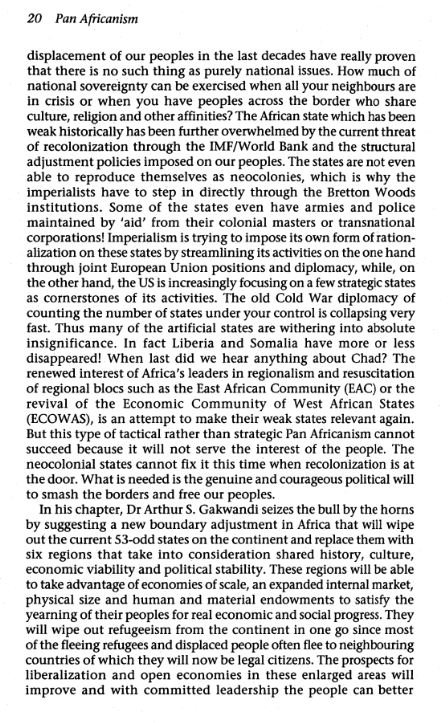
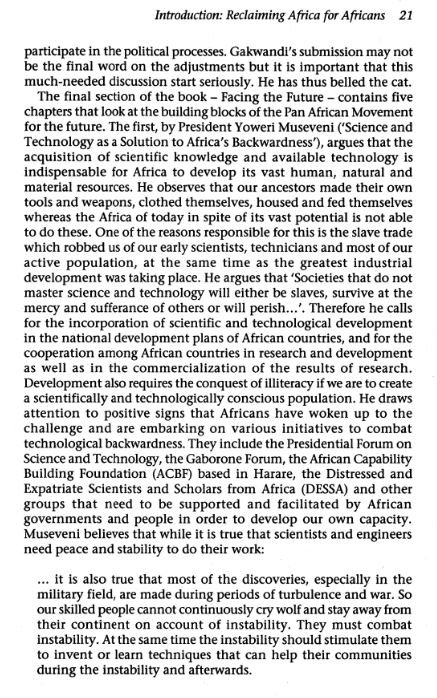
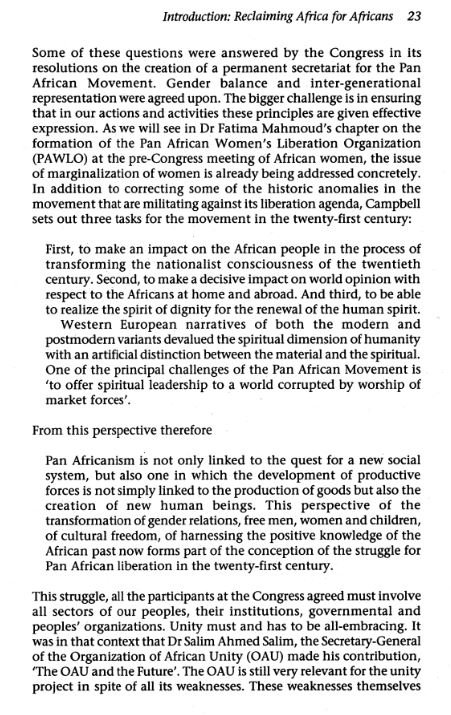
Pan-Africanism: The Tortuous Path Of A Race.
Excerpt by Naiwu Osahon
“The OAU, of course, did not fulfil the ambition of Kwame Nkrumah for a strong political union of all African states, but it opened the Pan-African ideology institutionally to non-Blacks. This is how George Padmore defended the trend at the time: “In our struggle for national freedom, human dignity and social redemption,Pan-Africanism offers an ideological alternative to communism on the one side and tribalism on the other. It rejects both white racialism and Black chauvinism. It stands for racial co-existence on the basis of absoluteequality and respect for human personality." I have no quarrel with all that, but I think we needed to haveasked Uncle Padmore:
(1) Why other races can join our institutions and would not let us join theirs?
(2) Why we are the only race of people in the world striving desperately to tag on to others. We have Black -Arabs, Black Marxists, Black-Muslims, Black-Eskimos and Black -Caucasians. Isn't that saying something forour mentality and self-esteem?
(3) Whether having a union of our own necessarily makes us any more racist than the EU, the Jewish WorldCongress, the Arab League etc?
(4) If our propensity to be seen to be identifying with our oppressors has helped to solve our being the racialunderdogs of the world?
(5) And whether we do not need to tackle our peculiar racial problems first before contributing our wonderful expertise at problem solving to the rest of the world? After all, charity ought to begin at home.
Also, Nkrumah and Padmore needed to have been asked to explain how their pan-continental politics was going to solve the deteriorating problems of the African Diaspora? Forty percent of the Black world do not live in Africa and are, as a result, ignored by the OAU.
The overall success of the 5th Pan African Congress blinded us to some of its not so sound pre-occupations. The 5th PAC set off many half-baked diversionary ideas, which unfortunately led to the failure of the 6th PanAfrican Congress. The conveners of the 6th PAC did not reckon, for instance, with the selfish interest of the newly independent African governments of the time so:
(a) They let government delegations dominate the congress,
(b) Who in turn prevented leading Pan Africanists from participating.
(c) Non-Africans, without obvious commitment to Pan-African ideals, were able to attend as delegates.
(d) The regular negative ideological division between our pseudo socialists and capitalists occupied centre stage.
(e) And, of course, University dons, as usual, were able to use congress to enhance their CVs and show off their borrowed language facilities and richly embroidered dashikis.
And yet, the 6th Pan African Congress succeeded in filling a yearning vacuum and keeping the movementalive, at least, in academic circles, 29 years after the 5th congress. More papers than ever before were submitted or read at the 6th PAC, and a great deal more resolutions were left behind for scholars to pore over till eternity as to their motives etc. The 6th PAC piled considerably more library materials, and gathered more delegates and observers, some 600 of them at one count, than all congresses before it, put together. To the extent that the 6th PAC achieved these feats administratively, therefore, it deserves to be recognized. But did the congress touch the lives of ordinary Africans in the streets? No. Was the 6th PAC any better than the jamborees called first, second, third and fourth congresses? No.
Ask any African in the streets of Europe and America about the 6th PAC and you would draw a blank. Ask any grassroots African on the continent about Pan Africanism today and he would think you are speaking Greek. The 6th PAC has not stopped the continued racial rape and murder of our people in the Diaspora nor has it educated Africans on the continent, sixteen years later, to think beyond the severely circumscribed OAU.
Only the 5th congress was able to make immediate direct impact on our lives with its independence fire sweeping rapidly across colonial Africa soon after the congress. The 5th PAC set the standard by which to measure the success of all future PACs.
The 6th PAC, therefore, was no more than a boring charade and if Pan Africanism is to be saved now, it must be moved beyond the constraining walls of our Ivory Towers, thedeadly hold of our narrow-minded political leaders, and deposited squarely on the laps of virgin grassroots Africans.
These were precisely the sources of my motivation when I began the campaign in 1982, as a private initiative,for the 7th Pan African Congress to convene within three years in a liberated African country. My principal ambition was to use the congress to institutionalize the Pan African Movement and unite the Black world. I was building a farmhouse facility (I called the Monument to African civilization), at Ilogbo-Eremi in the Badagry local government area of Lagos State in Nigeria, at the time, as venue for the 7th Pan-African Congress. The idea was to set up a possible meeting place that would be grand and yet rural in setting and relatively cost free to participants, to avoid recourse to government subvention or sponsorship and, therefore, influence. At the time, I thought that the congress could hold in Nigeria in 1985. A picture of the still being constructed 'Monument' was eventually published in the Guardian newspaper of Nigeria, on Saturday February 4th 1984, with the following caption:
"This is the house Mr. Naiwu Osahon is building. When completed it would be one of the most unique, artistically designed houses ever built anywhere, says Mr. Osahon of the house located on a suburban farmland. Mr. Osahon, ............... on the proposed retreat for local and visiting artistes says: 'Discussions are already being held abroad about holding the next Pan African Congress at the Craft farm house in 1985."
Obstacles, which I considered were mainly responsible for our disunity and lack of focus as a family included:
(1) Foreign religions and ideologies (which in all respects treat us as inferior human beings). These pull us in all sorts of directions to keep us divided despite our being the most marginalized people on the face of the earth already. It is not in the interest of any dominating ideology for victims to unite or have a common focus. Native spirituality serves to bind and encourage claims of ownership and birthright. Religion or spirituality is the greatest mobilizing strategy available to man and we have nothing of our own as a rallying force like Islam is to the Arabs, Judaism to the Jews, Christianity to the Whites or Buddhism to the Asians.
(2) Allowing colonizers, (particularly Arabs who do not consider themselves even remotely as Pan Africanists), to participate in and sponsor our congresses. Arab occupiers of Northern Africa continue to exploit and dominate original African native owners of the land. The war in Sudan is ethnic cleansing against our race and is funded massively by the Arab League through Libya and Saudi Arabia. Arabs have their League but do not want Blacks to have one. We as a race have not been able to focus on how to liberate Northern African Blacks, as we have done against white racists in Southern Africa, because Northern Africa Arabs are equal partners with Blacks in the OAU.
(3) Allowing our 'Movement' to be hijacked by reactionary African political leaders ruining our governments. These are leaders tied to the apron strings of our colonial masters for handouts, which our leaders promptly divert to their individual private accounts abroad for personal gains. They are too busy enriching themselves at our expense to care about our collective welfare.
I strongly believed that while we could excuse the OAU perhaps, to serve the interest of all and sundry as a continental contraption, our 'Movement' cannot afford such a luxury. Not when there is liberation, reparations and repatriation wars still to be fought and won world-wide.
Our Movement must aggressively tackle racism and our marginalization, if we are ever to collectively make progress as a people. And our 'Movement' must remain permanently on the alert thereafter. The best guarantee of this is a civil society controlled 'Movement,' with grassroots Africans from the continent linking with the grassroots Black Diaspora, to wrestle power from our opportunistic political elite controlling our governments. The grassroots Black world need to take their collective destiny into their own hands through an institutionalized 'Movement' that gives equal treatment to both governments and individual delegations. I was implacable over the 7th PAC institutionalizing the Pan African Movement as a vibrant civil society complimentor challenge to the lame-duck OAU.
To keep rancour to the barest minimum at congresses, I insisted that decisions and resolutions of the'Movement' must be fine-tuned and worked out at preparatory conferences and workshops etc., in advance, with congress being used only to endorse. The preparatory activities of the 7th PAC were, therefore, to focus principally on the following three planks:
(a) To agree a body of resolutions and decisions to be known as THE BLACK AGENDA, which could be up-dated now and again at regional and state conferences to become the bible or focus of activities of the Blackrace, including Black governments and individuals.
(b) To chisel out a strong and dynamic CONSTITUTION for the institutionalized 'Movement' welding together, Black governments and Black civil societies in a symbiotic relationship with leadership resting solely in the hands of civil society. The 'Movement' would have to develop a vibrant native spirituality for such a leadership (or moral leadership of the Black race) not to be controversial.
(c) To set up a 'Foundation' to ensure that the 'Movement' or Black League' would never have to beg for financial support from anyone, particularly from extraneous sources. The philosophy of the 'Foundation' (called PANAF at the time), being that every Black person in the world, alive or yet un-born, owes PANAF a hundred units of his or her local currency once in a life-time.
These pre-occupations were embodied in the first set of documents written and distributed lavishly by me around the world from 1982 to announce the convening of the 7th PAC in Africa in 1985.
Responses to my 'CALL' were generally enthusiastic, over the convening of 7th PAC (which was described as overdue), but lukewarm on Nigeria (which at the time was under the jackboot of a vicious military dictatorship), serving as host. C.L.R. James, who was one of the first renowned Pan Africanists at the time to receive our delegation in London, was full of support for an African country hosting the congress. He was not too fussy about the politics of the possible host African government.
However, the series of letters addressed to Babangida, the self-proclaimed Military President of Nigeria at the time, to provide 7th PAC with logistic support in the area of easy visas and adequate security for delegations were ignored. President Dos Santos of Angola wrote us the most inspiring letter of the time, but was sorry he could not play host because of the debilitating civil war in his country. Zimbabwe was more interested in hosting the Commonwealth Heads of State Conference at the time, and Ghana complained of poor financial resources.
While we were still shopping for a possible host country, the Foreign Minister of Nigeria, Professor Bolaji Akinyemi, out of the blue in 1987, announced the Nigerian government's interest in convening the 7th PAC. A failed coup de'tat caused some changes in the Nigerian government with Brigadier Ike Nwanchukwu replacing Prof. Akinyemi as Foreign Affairs Minister. The Brigadier was not interested in the 7th PAC and wanted to know what it meant and its affiliates. Apart from abysmal ignorance about self-history, South African Pan African Congress of Azania (PAC), added to his confusion. However, the earlier announcement of the Nigerian government's interest increased foreign focus on 7th PAC and my efforts, which were independent all along of the Nigerian government's attempted hijack.
The make shift leadership arrangement we had relied upon was formerly structured in 1987 involving a two-tier arrangement with the 7th PAC International Secretariat located in Lagos. The ultimate leadership committee was called the International Co-ordinating Committee (ICC) and had as pioneer members, Professor Kwesi Prah, a Ghanaian working in Kenya at the time, B.F. Bankie, a Ghanaian-Gambian living in London then and Naiwu Osahon, based in Lagos, as the Convener/Chairman.
Reporting to the ICC was the International Steering Committee (ISC), which had as members: Ayi Kwei Armah, Nee Kwati Owoo, Robert Hayfron-Benjamin Beye and Boutros Boutros Ghali.
By January 1989, the ISC had been scrapped due to lack of performance by its members perhaps because ofthe cumbersome two-tier system in operation, and was replaced by an expanded ICC comprising of Naiwu Osahon, Convener/Chairman, Prof. Antonio Neto, Angola, Tau Napata, Jamaica, Prof. Alfred Opubor, Nigeria, Dr. Boutros Boutros Ghali, Egypt (who wrote trying to discourage us from institutionalizing the Pan-African Movement but stayed on as committee member even when he became the Secretary General of the UN), Eunice Neto Foreid, Portugal, Dr. Ona Ekhomu, USA, Prof. H. Cunha Jr. Brazil, H. E. Dr. Henri Bangou, Guadeloupe, Dr. Laura M. Torres Souder, Guam, Amar Bentoumi, Algeria (who later withdrew because of the focus of the 'Movement'), Dr. Joycelyn Loncke, Guyana, Dr. Digna Castaneda Puerta, Cuba, Pauulu Kamarakafego (Roosevelt Brown, now late, who represented us at the UN and was the pioneer sponsor of the 6th PAC, Bermuda, Hon. Mr. Bernard Narokobi, Papua New Guinea's Minister of Justice at the time, Dr. Cyril.E. Griffith, USA, Grace Mera Molisa, Vanuatu, Prof. Mary Frances Berry, USA.
By 1990, we had received several letters of support from the likes of Leopold Sedar Senghor living in France at the time; C.L.R. James, before he died, insisting that the congress must be convened in an African country. The Prime Minister of the Commonwealth of Bahamas; the President of the United Republic of Tanzania; the Minister of Justice of Papua New Guinea; the governments of the Republics of Cote D' Ivoire, Liberia, Togo, Angola, Zaire, Ghana, Guadeloupe Senator in France, Boutros Boutros Ghali as Minister of State for Foreign Affairs in Egypt. We had influenced Chief Abiola of Nigeria sufficiently for him to try to steel our thunder by embarking on a 'Reparations' programme of his own, which was eventually sold to the OAU with our active lobby.
By 1992, we had established national branches or committees of the Pan-African Movement in the following countries; Angola, Australia, Barbados, Belize, Benin Republic, Bermuda, Botswana, Brazil, Cameroon,Canada, Congo, Costa Rica, Cuba, Curacao, Dominica, Equatorial Guinea, Fiji, France, Gambia, Germany-Benelux, Grenada, Guadeloupe, Guam, Guinea, Haiti, Ivory Coast, Jamaica, Kenya, Mexico, Mozambique, Namibia, Niger, Nigeria, Papua New Guinea, Portugal, Senegal, South Africa, St. Kitts, St Lucia, St. Maarten, Surinam, Swaziland, Switzerland, Tanzania, Togo, Trinidad, UK, USA, Zaire, Zimbabwe and several new national representatives were being cultivated.
The UK national branch was the very first committee of the 7thPAC to be set up by Naiwu Osahon. It was launched on the 10th of October 1988 at Flat 69, Schomberg House, Vincent Street, Westminster, London,S.W.1, occupied at the time by Prof. Antonio Neto. Founding members of the UK committee included Neto, Bankie, Babu, Pepukayi, Napata, Gotzmore and Bing who was elected the protem secretary.
We started having problems with London right from its take off because, as things turned out, the branch was dominated by self-declared Marxists. They wanted to take over the leadership of the ICC and move its International Secretariat to London because according to them, communications were easier from there. Besides, they were not comfortable with my anti-Marxism or anti-foreign ideology posture and attempt to institutionalize the 'Movement'. Also my determination to exclude Arabs of Northern Africa from the union was a headache. One of their staunchest supporters at the time was Prof. Kwesi Prah who wrote that: "We can notbind the next generation to an institutionalized 'Movement."
My answers at the time were to ask why that should stop us from trying. And how did other races achieve their institutions and union without some first steps? No answer to these questions ever came from Prah or London, or maybe it came through their gradual withdrawal from our fold to encourage and team up with a Uganda faction that eventually developed. They tried desperately to gain access to our International Secretariat's address list before they finally dropped out of our hold three years after their launch. Our (ICC) impression of them at the time was that they were on an ego trip desperate to etch their names on posterity for convening a Pan African Congress regardless of the quality of the congress.
My criticism of DuBois for bequeathing to us the culture of jamboree congresses appeared also to have alienated some supporters of the intellectual icon, including his son, who took offence and started looking for opportunities to scuttle our efforts. Nkrumah's son too soon became less active on the ICC because his father, along with Padmore were blamed for diluting the spirit of Pan-Africanism with their defence of all comers' congresses that welcomed Arab colonizers and Marxist domination all in one breath.
Preparatory conferences of the 7th PAC around the world included:
(a) Hamilton Bermuda (from July 20 - 22, 1990).
(b) Bridgetown, Barbados (from 21 - 22 September, 1991)
(c) Solidarity with Cuba (Saturday 7th December, 1991, Bridgetown, Barbados).
(d) Port-of Spain, Trinidad (Second regional conference of the Caribbean Pan African Movement (from 27 - 28August 1993).
(e) Savannah, Georgia, USA (from 1 - 3 May, 1992)
(f) Toronto, Canada (where ZAWADI KWAFRICA was launched for the first time in the world by Naiwu Osahon(from June 23 - 27, 1993).
The inaugural meeting of the BLACK THINK TANK (BTT) of the Pan-African Movement, now known as THE THINK TANK OF THE BLACK WORLD (TTB), took place from 1 - 8 August 1992, at ASCON, Topo, Badagry, Lagos, Nigeria. The BTT was attended by: Naiwu Osahon, Chairman, Catherene Acholonu, Nigeria, Denese Bradford, USA, Duane Bradford, USA, Tom Dalgety, Guyana, Viola Davis, Barbados, C.M. Eya-Nchama,Equatorial Guinea, Diane Forte, USA, Malinali Meza Herrera, Mexico, Onwuchekwa Jemie, Nigeria, Owei Lakemfa, Nigeria, Olusegun Maiyegun, Nigeria, Rudy Mattai, USA, Kinja Mulegwa-Migabo, Zaire, T.C Nwosu, Nigeria, Osagie Obayuwana, Nigeria, Yinka Ogunsulire, Nigeria, Yeye Akilimali Funua Olade, Nigeria, Charles C. Roach, Canada, Gbenga Sonuga, Nigeria. Two delegates who could not get to the venue of the BTT, but who had paid to attend were: Joycelene Loncke, Guyana and G. Mawa-Kiese Mawawa, Congo.
The BTT examined the issues: "Why are we so blessed and yet so poor?" "Why are we not benefiting as a people from the civilization we pioneered, and what are we to do to get back on our feet again as one family?" THE BLACK AGENDA is a product of the BTT's deliberations and it lays down the rules to guide the activities of Black governments, individuals, organizations, communities, family units, institutions. The BTT also produced the CONSTITUTION of the Pan African Movement, and approved ZAWADI KWAFRICA (ZA) as the name of the Pan-African Foundation. Zawadi Kwafrica are Swahili words meaning gifts of and from the peopleof Africa.
Members of the ICC in 1993 included: Naiwu Osahon, Chairman, Charles C. Roach, Vice Chair, PauuluKamarakafego, Vice Chair, H. E. Dr. (Senator) Henri Bangou, Guadeloupe, Dr. Thomas Cornell Battle, USA, Gerlin Bean, Jamaica, John Benjamin, Anguilla, Prof. Mary Frances Berry, USA, Farika Birhan, Maroons, Dr.Michael L. Blakey, USA, Duane Bradford, USA, Musa Cham, Gambia, Bobby Clarke, Barbados, Dr. John Henrik Clarke, USA, Tom Dalgety, Guyana, Viola Davis, Barbados, M.K. Dingake, Botswana, Babacar Diop, Senegal, Robert M. Dossou, Rep. du Benin, Noel Dossou-Yovo, Rep. du Benin, Prof. Quince Duncan, Costa Rica, Louise Edimo, Cameroon, C.M. Eya-Nchama, Equatorial Guinea, Januario Garcia Filho, Brazil, EuniceNeto Foreid, Portugal, Dianne Forte, USA, Roderick Francis, Jamaica, Major-General J. N. Garba, President of the UN General Assembly at the time, Dr. Boutros Boutros Ghali, (UN Secretary-General at the time), Siegfried Hazel, Curacao, Malinali Meza Herrera, Mexico, Dr. Byron R. M. Hove, Zimbabwe, Eddie Iroh, UK, Onwuchekwa Jemie, Nigeria, Senator Irvin Stephen Knight, Dominica, Pontiff His Grace Srila Bhakti-Tirtha Swami Krisnapada, USD/USA, Joan Lucas, Belize, Dr. Joycelynne Loncke, Guyana, Dr. F. L.Lwanyantika Masha, Tanzania, Kae Matundu-Tjiparuro, Namibia, G. Mawa-Kiese Mawawa, Grenada, Kinja Mulegwa-Migabo, Zaire, James Mutambirwa, PCR/WCC, Hon. Bernard Narokobi, Papua-New Guinea, Abdiasdo Nascimento, Brazil, Michel Ndoh, Switzerland, Prof. Anthonio Neto, Angola, Felipe Noguera, Trinidad, T.C. Nwosu, Nigeria, Frantz Obas, Haiti, Clement O' Garro, St. Kitts. Prof. Omolara Ogundipe-Leslie, Nigeria, Placide Prosper, St. Lucia, Dr. Digna Castaneda Puertas, Cuba, Mora Araceli Reynoso, Mexico, Omowale Satterwhite, USA, Mr. and Mrs Savane, Senegal, Bania Mahamadou Say, Niger, Dr. Jean Sindab, USA, Ghenga Sonuga, Nigeria, Dr. Laura M. Torres Sounder, Guam, Andre France deSousa, Portugal, Hassan A. Sunmonu, OATUU, Cheikh Tidiane Sy, PANA, Dr. Robert B. Sykes, Australia, Terrel Thomas, Suriname, Charles Pascal Tolno, Rep. du Guinea, Stewart M. Tsela, Swaziland, Siteri V. Tuilovoni, Fiji, Prof. Theo Vincent, Nigeria, Amelia Ventura, Mozambique, Alvin Williams, Bermuda, EmmanuelYork, St. Maarten.
Out of frustration for not finding a suitable host country for 7th PAC, we pursued Uganda, more for President Museveni's Guerilla war credentials than for any recognizable record of achievement in the realm of PanAfricanism. The man would not even tolerate dissent from within let alone from outside Uganda. Museveni's Uganda is in the pockets of the Arabs that are marginalizing our kith and kin in Northern Africa.
Our first letter to Museveni was in January 1990 followed by another in September 1990 and a third one in June 1991, inviting his government to be a possible host of 7th PAC without pre-conditions. At the end of March 1991, a number of documents arrived at our International Secretariat in Lagos from Kwame Ture, stating that Kwame Ture of the All African Peoples Revolutionary Party (AAPRP), Col. Otafiire, the personal assistant tothe Uganda Head of State, and four others, had met in Tripoli, Libya, on December 10, 1990, and decided to constitute themselves into a pre-preparatory committee which is to be enlarged to become the preparatory committee to convene a conference to create a mass Pan African organization.
Among the documents sent was an invitation to Naiwu Osahon to attend a preparatory meeting of their proposed conference in March 1991, in Uganda. Obviously that meeting did not hold because according to another notice from them later, the invitations were sent out too late and got to their destinations well after the March date of the proposed meeting. Three further attempts were made, up to the 27th of January, 1992, to put their preparatory meeting together without success but further documents were sent to the International Secretariat of the 7th PAC in Lagos and addressed as such. The documents specified that they were putting together:
(a) A conference focusing on anti-Zionism and
(b) To be called "All African People's Conference. “
Since the title of their conference was not in conflict with our own, we were not entirely opposed to co-operating with Uganda although we wrote back to say: "While we are not uncomfortable with your anti-Zionistfocus, we also want anti-Arab and anti-West focus for your proposed conference."
On the 7th August, 1991, we received a letter from Col. Otafiire, calling their group, the 7th Pan African Congress Committee, with Col. Otafiire as convener and Chairman, and President Museveni as their Patron, thereby constituting a direct challenge to the International Secretariat of the Pan African Movement in Lagos. On the 7th August, 1991, we addressed a comprehensive letter of our objection and discomfort on the matter to President Museveni. After waiting for a while without response, we wrote on the subject to all ourcommittees around the world. Several activities followed around the world after the Uganda bombshell, culminating in a long awaited first ever meeting between Kwame Ture and me, in my office in Lagos on Saturday 27 March 1993. It was an extremely warm and inspiring meeting lasting nearly four hours from about 4.45 p.m. The Secretary General of the 7th PAC national committee for Nigeria, Dr. Osagie Obayuwana, was in attendance mainly as an observer. Several issues concerning the way forward were discussed and the highlights of our agreement were:
(1) That everything humanly possible should be done to keep us and the Black world united. We felt strongly that our detractors must not be given any comfort on this issue. That we needed to close ranks and give purposeful direction at this critical point in our history otherwise posterity would judge us harshly.
(2) That no African government, not even the OAU, under any disguise, should finance or host the 7th Pan African Congress or any other Pan African Congress. They can participate at congress meetings but as equal partners with the rest of the Black world. Congress definitely does not need the authority of the OAU to hold since the OAU is a child of congress.
(3) That non-Black sources should not finance or host any Pan-African Congress.
(4) That the 7th Pan African Congress should be held in Africa, preferably in a country where:
(a) Blacks would have no problems obtaining visas to attend, because no Black person, for ideological,religious, or any other reason should be prevented from attending or speaking his or her mind freely on anyissue as affects the Black world at the congress.
(b) The lives of delegates and others attending congress would be safe and largely guaranteed.
(5) We did not discuss congress date in details but felt that the December 1993 Uganda date might be too soon considering the enormous task of preparing adequately (especially in area of fund-raising) for a meaningful congress. The August 1994 date proposed by the International Secretariat in Lagos, we felt, was feasible particularly for the launching of the institutionalized 'Movement.'
(6) We felt that there was a strong need to ensure qualitative attendance at congress and agreed that while the mass movement dimension of congress should not be hindered, it is necessary for the movement to be led by recognizable Pan-Africanists. In other words, there is a need to identify and agree on who serious Pan Africanists are right now, around the Black world, and either split congress dates to accommodate them or find ways to ensure that congress direction and decisions are controlled by them. If congress date is to be split, the institutional dimension of congress could be held first, say in August, 1994, as already scheduled, followed immediately by the Pan African leaders congress.
After further consultations on the above issues through correspondence with Kwame Ture and other Blacks of diverse interests world-wide, it was agreed that the Uganda conference slated for December 1993, should be a preparatory one for the 7th PAC of the International Secretariat in Lagos in August 1994. The Uganda team ignored our recommendation and announced that they were going ahead with their December 1993, 7thPAC charade.
With US$300,000 blood money to convene the 7th PAC from Gaddafi, Museveni was not only well fortified to play the devil's advocate, he was poised to launch his personal ambition to become the Emperor of a new Tutsi Hema Empire, annexing Rwanda and mineral rich Zaire (now DRC), under the behest of America. We immediately began circulating a strongly worded message warning the patriotic Black world not to go to Uganda.
On January 3, 1994, we received a phone call in Lagos from one of our deputy leaders, Pauulu Kamarakafegoin Bermuda, informing us that the December 1993 Uganda make-believe congress failed to hold. It was cancelled in the last minute because of the non-arrival of quality delegations. Several ordinary, innocent Blackfolks from the Diaspora, unaware of the high wire politics being perpetrated in the name of Pan-Africanism,and hoping to touch base perhaps for the first time in their lives with mother Africa, were turned back at theKampala airport.
A Uganda team, led by Col. Otafiire then set out on a tour of the Black world to deliver Museveni's invitation and offers of free return travel tickets and free accommodation in Uganda to government delegations and renowned intellectuals, who attend their rescheduled April 1994, 7thPAC. They had to move fast to nullify our pending August 1994, 7th PAC date. They arrived Nigeria on January 5, 1994, to deliver their invitation to the Nigerian government without visiting the 7th PAC International Secretariat.
And yet, no head of state attended the Uganda 7th AC debacle. Not even Nyerere who had received our warning message earlier on and who was the principal host of the 6th PAC in Tanzania would grace Uganda with his presence at least to demonstrate continuity. As predicted, the Uganda exercise turned out to be an attempt to be a convener of congress regardless of the outcome to the Black race.
A lot of bravado prevailed, loads of resolutions were passed, and delegates were feted lavishly be fore returning to their various countries, no better off than they were before the congress. In fact, the average Black person in the world today does not know that the 7th PAC has taken place in his or her name. Another jamboree has passed, one of the many failed attempts that litter our chequered history but Uganda achieved 'a me too.' Uganda succeeded in helping us waste another decade, another generation, while Museveni rides on his high visibility profile to destabilize his neighbouring countries to annex and exploit their mineral resources.
The Uganda 7th PAC set up a Pan-African office in Kampala as a propaganda tool of Museveni's Empire building machinery. That done, his hit man, Paul Kagame, a CIA protégé, with US military school training,brought down a plane carrying the Presidents of Rwanda and Burundi over Rwanda/Burundi and Uganda common border. The Presidents' death launched Rwanda's sack and pogrom, resulting in the death of over half a million Rwandans and the displacement of millions of others. Then they replaced the dreaded Mobutu with Laurent Kabila as President of the DRC. Kabila, a Lumumbist, refused to play along, so Uganda, Burundi and Rwanda occupied the mineral rich regions of the DRC in 1999 with America's technical backing. They massacred over two and a half million Congolese, while looting and plundering the DRC's mineral wealth.
But for the meddlesome intervention of the armies of Angola, Namibia, and Zimbabwe, Emperor Museveni was only a hair's breath away from his dream of usurping what potentially would have been the largest and richest modern Empire in Africa. The failed Emperor apparently had misled the President of South Africa, Nelson Mandela, into appearing to support his ambition because Mandela was waiting on a ship off the coast ofKinshasa at the time, to crown Wamba Dia Wamba, as Laurent Kabila's replacement, and Emperor Museveni's new surrogate in the DRC.
AFRICAN UNION (AU)
The latest version of the African Union concept revived from a totally discredited non-Black source with an OAU's special meeting bankrolled by Muamar Gaddafi in Sirte, Libya, in 1999. Gaddafi, as we all know, is the rascal or Satan behind all the modern civil wars in Africa. From Chad to Liberia to Sierra Leone, Gaddafi had his fingers on the rotten, smelly pie. He financed and trained Museveni's Guerrilla adventure, and he is the leading sustainer of Arab pogrom against Africans in the Sudan right now. After failing to build his, the United States of the Arab world dream, he turned to hapless Africa for relevance in international politics. His interest in the African Union is fiendish and totally opportunistic and was designed to lead to the setting up of the AU's headquarters in Sirte, Libya, with Muamar Gaddafi as the United States of Africa's first President. At first,Gaddafi's dream project was opposed by Presidents Obasanjo of Nigeria and Thabo Mbeki of South Africa. President Obasanjo and Abdoulai Wade of Senegal opposed the Reparations for Slavery and Colonialism strategy of the Black world at the 2001 UN World Conference in South Africa, against Racism. It was no surprise, therefore, that with Wade, Gaddafi and Obasanjo playing key roles in the formation of the AU, a constitution that delivers the AU as a neo-colonial appendage of the West and Arab domination was crafted.
NEPAD
The NEPAD team members went down on their knees to beg the West for a $64 billion handout but instead got $6 billion spread over a period of perhaps 64 years, to make it worthless. Obviously, that is where NEEEPAD comes from. The $6 billion bailout is to enable us continue to beg the West with loads of NEEEPADS bought from them.
The deputy leader of the Pan African Movement, Charles C. Roach, who is based in Canada, described the African leaders begging scene at the 2002 G8 conference in Canada this way:
"There is an amusing photograph of Prime Minister Chretien of Canada sitting astride a kneeling camel on his recent trip to Algeria and five other African countries over the NEPAD issue. The Prime Minister is entreating the camel not to stand up and this is understandable, because the way a camel gets up, unfolding its long legs is a roller-coaster ride for anyone on its back. Symbolically, Chretien was telling the African camel to stay on its knees while he perches on its back."
Earlier in 2002, President Moi of Kenya, said in a speech in Blantyre, Malawi, that Africa was doomed to perpetual poverty and backwardness unless African leaders free themselves of egocentricity. That
"no country in the West had an obligation to baby-sit and spoon-feed independent African nations. African leaders must accept this fact, however unsettling, and rethink about their development strategies."
Recently too, President Yahya Jammeh of the Gambia was reported to have described NEPAD as a charter for beggars. Hear him:
"NEPAD would not work. ....Africa is the richest continent in terms of mineral resources, but because of ignorance, Africa, in economic terms, is the poorest continent, and we Africans are the laughingstock of humanity. We have failed because some of us are agents of the same people we are supposed to fight against. We produce the bulk of the world's raw materials so why are we still poor? Some of us are fighting proxy wars in Africa for the benefit of others. Africa has never colonized anyone. Some people who prolonged apartheid are now waving the flag of democracy and freedom. The African debt is not globalized, it is Africanized."
At a forum in Addis Ababa in March 2002, Prof Shadrack Gutto of South Africa's University of the Witwatersrand was asked why NEPAD was presented first to the G8 before African governments had a chance to discuss it. Mr. Wiseman Nkuhlu, the South African president's special adviser on NEPAD, providedthe not so wise answer at the forum that it is because African governments have been pre-occupied with building the AU. In answer to another question at the forum, Mr. Nkuhlu admitted that consultation with civil society "is not where we would like it."
If the NEEEPAD team, backed by the West to perpetuate our developmental pains, would not consult with even their colleagues in African governments before inflicting the culture of the begging bowl on Africa all over again, does the African civil society have a right to expect a miracle from the AU? Where does that leave the Black Diaspora in the scheme of things? What about 'Reparations' and Repatriation'?
The answer is for African civil society to link up with the Black Diaspora civil society to establish a vibrant, uncompromising institutionalized 'Movement' for the Black world, independent of the AU that is currently dominated by Arab league members. The two priority areas of activities of the institutionalized 'Movement'would be:
(a) to pressurize the AU to produce a Pan-African Passport (PAP) to enable any Black or African,mregardless of nationality, return or visit home (Africa) at will without let or hindrance and
(b) to compel the West and Arabs, by any means necessary, to pay Reparations to the Black world for slavery and colonialism. The modern Pan-African Movement is known as the African Peoples' Union (APU), the counterpoise, conscience and spiritual beacon of the AU, wielding its authority as a pressure group through moral strength and scholarship of the Myk.”
NAIWU OSAHON Hon. Khu Mkuu (Leader) World Pan-African Movement); Ameer Spiritual (Spiritual Prince)of the African race; MSc. (Salford); Dip.M.S; G.I.P.M; Dip.I.A (Liv.); D. Inst. M; G. Inst. M; G.I.W.M; A.M.N.I.M.Poet, Author of the magnum opus: 'The end of knowledge'. One of the world's leading authors of children'sbooks; Awarded; key to the city of Memphis, Tennessee, USA; Honourary Councilmanship, Memphis City































Rebuilding The Pan African Movement, A Report on the 7th Pan African Congress.
“The 7th Pan African Congress benefited from the rich experiences of the African peoples and from the strength and weaknesses of the movement since the period of the Sixth Pan African Congress. Under the theme, "Facing the Future in Unity, Social Progress and Democracy" the Congress brought together over 800 delegates representing Pan African Organisations from Brazil to Botswana. In total there were over 2000 participants in all of the events to mark the Congress: the Women's Pre-congress Meeting, the cultural expressions at the Uganda National Theatre, the African Art Exhibition, the Opening of Africa Freedom Park and the Congress itself. There were three outstanding characteristics of the Congress: (a) the fact that the meeting took place despite the internal and external contradictions of the movement (b) the formation of the Pan African Women's Liberation Organisation and (c) the establishment of a permanent Pan African Secretariat The debates and actions of the Congress signalled a firm commitment to the idea that the Pan African Struggle was "one struggle, many fronts. The objectives of the Congress, as declared in the call, were inter alia to ‘articulate a vision for the 21st century and a programme of action for the Pan African Movement.’ Despite the internal debates within the movement as to the definition of an African and the external pressures whether Africa could afford the meeting, the force of the demand to resist recolonisation dictated that the meeting should take place. . . .There was a wide diversity of views in the conference, and this divergence was reflected both in the character of the resolutions and in the content of the declaration of the Congress. In reality, however, the fact that the Congress was dominated by grassroots organisations meant that the position of the African governments was not the dominant one in the meeting. . . .The exposure of different sections of the Pan African world to the issues and questions of different regions was one of the high points of the meeting. One whole day had been dedicated to sub regional networking with reports in aplenary from different regions. One of the most important aspects of the conference was the country reports. These reports directly addressed the first objective of the conference, that is, to locate the concrete condition and on going struggles of African peoples continentally and in the diaspora. . . . One major question for the movement was how to define the tasks of the Pan African struggle for the twenty first century. In this effort, the report of the Southern Africa regional conference assisted in clarifying the ways forward in relation to enriching the popular search for Pan African Unity. . . .The largest delegation in the Congress was the North American delegation from the United States and Canada. . . . The ideological divisions within the Pan African movement which had lingered since the period of the African Liberation Support Committee (ALSC) and the Sixth Pan African Congress erupted in the North American delegation. There were Pan Africanists of the Afrocentric mold, elements from the grassroots, workers, urban youth and the homeless, and members of the Nation of Islam and other religious formations. The struggles for the leadership of this delegation spilled over into the main meetings of the Congress to the point where the heated interventions interrupted one of the principal presentations. . . . So intense were these differences that some sections of the North American delegation were not able to benefit from the experience of freedom fighters and grassroots activists from all over the Pan African world. . . . The ideological struggles of the Congress not only spoke to the content of meetings such as the 7th Pan African Congress, but also to the form of the meeting which could inhibit genuine participation. . . . The creation of the Pan African Movement was consistent with the efforts by those present to break the individualism of the movement where the ideas of great persons would be celebrated as that of the movement. This thrust to move beyond periodic congresses to create a movement permeated the Congress. . . . Of these resolutions the most important was the question of the breaking down of the borders in Africa and the creation of a Permanent Secretariat to ensure sustained activism in order to achieve the goals of the 7th Pan African Congress. . . . The Ugandan government offered to host the Permanent Secretariat, mid this organisation will be the first of its kind with representation from all corners of the Pan African world. The Secretariat will be convening meetings in the nine designated regions of the Pan African world. The International Preparatory Committee was dissolved with a new governing council formed. . . . The Secretory General, Tajudeen Abdul Raheem, was given the task, along with the interim management committee, to merge the movement with the national committees so that there will be activities and meetings in all parts of the world so that the Pan Africanism on the streets can inform the political struggle for dignity and freedom. The Congress was considered a success by all those who participated as delegates or as participants and observers. Grassroots representation from the Ugandan Pan African committee ensured that the meeting was not an OAU type meeting. From the outset there were debates in the governing body of the meeting, the International Preparatory Committee (IPC), as to whether the Congress would be guided by principled political action or by protocol. The diversity of views did not detract from the fact that the main thrust was to reverse the depoliticisation and the demobilisation of the African peoples in this period of the reorganisation of the international system. . . . In the declaration of the Sixth Pan African Congress in 1974 in Tanzania, the call was that henceforth Pan Africanism was informed by the class struggle internationally. The declaration of the 7th Pan African Congress was that African peoples everywhere should resist recolonisation. Delegates left the Congress energised "to take action that will rid the world of the curse that has plagued humanity for over five centuries. We the African people are our own liberators and thinkers whose task is to make a mighty stride towards genuine freedom by any means necessary."








Divide and Conquer Diplomacy of Lisbon and Washington 1973: Coopting the PAIGC and the Balanta People
FOREIGN RELATIONS OF THE UNITED STATES, 1969–1976, VOLUME E–6, DOCUMENTS ON AFRICA, 1973–1976
67. Airgram A-172 From the Embassy in Portugal to the Department of State1 2
Lisbon, September 11, 1973
SUBJECT:
Moment of Truth Drawing Near in Portuguese Guinea?
REF:
Lisbon 3322
SUMMARY: Insistent reports that the PAIGC will soon declare Portuguese Guinea independent, coupled with the costly loss of aircraft in that territory, may have convinced Portuguese leaders that it is time to seek a political solution or, at a minimum, build a third option which could be used for an honorable exit if things get worse. The Portuguese have given the Guinean People’s Congress at least apparent political power and have provided that 90 percent of Congress participants will be selected by universal adult suffrage. The Balanta people, a major prop of the PAIGC, have been promised land of their own and a better future. It may be that these measures and other recent developments could provide Portugal with the basis for leaving Guinea in local hands with the sovereignty issue waffled, and, able to deny having been forced out by PAIGC.
There are signs that the PAIGC itself may be interested in reaching a political agreement with Portugal, and it has been reliably reported that the PAIGC has been in contact with the Portuguese Government in the past and is involved in talks with Portuguese representatives in Paris at the moment. There are some indications that the PAIGC is willing to drop its claim to the Cape Verde Islands; this, if true, would meet a major Portuguese goal. The Portuguese Communist Party has begun predicting a political settlement; we would not rule it out. END SUMMARY.
INTRODUCTION
A number of new elements in the political, military, economic, and social affairs of Portuguese Guinea suggest that the future of that territory may be shaped within the relatively near future. While not all present indicators point the same way—indeed, some are contradictory—we believe that the Portuguese, if not quite planning their departure, are at least building a new option for future contingencies. The basis of this option is the development of a strong political institution among the Africans in Guinea.
POLITICAL DEVELOPMENTS
The evolution of Guinea’s annual People’s Congress into something akin to a provincial legislature appears to be a major step in turning political decision-making over to the territory’s inhabitants. Under current law, the official legislative body in Portuguese Guinea is the Legislative Assembly, only five of whose 17 members are popularly elected. For even those five seats the franchise is restricted to 21-year old literates (and a few others). The law provides that the Legislative Assembly may “take note of the deliberations of the People’s Congress when asked to do so by the Governor.” This clause was seized upon by General Spinola and the Legislative Assembly to divest the Assembly of much of its legislative power in favor of the People’s Congresses.
At the opening session of the first Legislative Assembly on June 26, General Spinola made a speech which included the following:
“…It is not possible to govern unless decisions stand on an undisputed foundation of legitimacy, and no one could ever govern in Guinea without seeking that legitimacy in respect for Guinea’s social structure and in the real participation of its human groups in the defining and attaining of the objectives in view… I want to stress the necessity of complementing a transitional political architecture which does not yet meet the basic requirement of representativity, which is the essential condition of the legitimacy of political power.
“That is why the active participation of the African majorities must be assured… (This) is very difficult to achieve when it is confined by rigid subjection to orthodox institutions which are not yet adjusted to [Page 3]African reality. In search of a solution, we went as far as we could with the shaping of the Legislative Assembly, but everyone is perfectly aware that the fundamental problem remained without any real solution. With this in mind, the Congresses stood out as the solution which circumstances indicated and which even the most elementary notion of justice required.”
The Legislative Assembly session took up, as best we can tell, two matters only: its own rules, and a statute formalizing the People’s Congresses. The Assembly’s rules commit it to a much more intimate relationship with the Congress than “taking note of the deliberations of the Congress when asked to do so by the Governor,” but they stop short of requiring the Assembly to approve the acts of the Congress. Its rules require the Assembly to “take cognizance of the conclusions approved by the People’s Congresses and deliberate on the imperative and programmatic aspects of those conclusions, having in view the measures which are most suited to the interests and aspirations of the people, in order to provide the Government with any opinion which it might solicit, as well as in the exercise of the powers which are conferred by Art. 25, Section 1 of the provincial politico-administrative statute. (The article referred to reads, “The Legislative Assembly has the power to make laws on all matters which interest that province exclusively, unless reserved to the organs of sovereignty.”)
Having drawn up its rules and a statute to govern the People’s Congresses, the Legislative Assembly wound up its first session in nine days. At the last session, Governor Spinola (ex-officio President of the Assembly) made it clear that, at least in his mind, the People’s Congress was the policy-making body in Guinea:
“I think it fitting that we focus on the importance… of the link between the People’s Congress and the Provincial Legislature, a link without which the Congresses would be reduced to the role of adornment for a meaningless system; for what truly institutionalizes a political body is not the legal recognition of its existence, but its effective participation in public life, and such participation has now been unequivocally assured. In making it obligatory that the Legislative Assembly take up the conclusions of the Congresses, with a view to legislating when necessary, we have taken a great step forward, truly integrating the people of Guinea in the process of the formation of the policies which affect them.
“I would also like to stress the fact that the link between the two bodies has contributed to an appreciable increase in the effectiveness of this Assembly, whose legitimacy has been substantially strengthened in that the exercise of sovereignty, with respect for the people of Guinea, has been authenticated.” Spinola’s mention of “respect for the people of Guinea” is a reminder of his frequently-stated belief that the Congresses reach decisions in the African way.
THE PEOPLE’S CONGRESS
Each Spring since 1970, a People’s Congress has been held in Bissau (for background, see Lisbon A-136 of October 19, 1971). The new statute formalizes many of the practices already in force and aims to make uniform the process of selecting delegates and the procedures to be used at Congress sessions.
The annual People’s Congress takes place in two phases. The first phase is a district-level meeting attended by all tribal chiefs resident in the district, plus elected delegates up to a total of one-half of one percent of the entire population. Each sub-district is to have a representation proportional to its population, and each ethnic group is to be represented proportionally as well. The meetings are to last three days. The statute does not restrict the subjects which can be discussed, but provides that those problems which cannot be solved at the regional meetings will be taken up during the Congress’s second phase, which is to be a province-wide gathering.
At the regional meetings, participants are to elect one-fifth of their number to represent their districts (and, by indirection, their ethnic groups) at the provincial meeting. The provincial phase of the Congress, therefore, should draw about 500 participants, or one-tenth of one percent of the population. (The last Congress had 490 participants, according to press reports.)
Aside from the province’s 40-odd chiefs, who participate in the regional phase of the Congress by virtue of their position, Congress delegates are to be elected by universal suffrage. All persons over 18 are eligible to vote; there are no requirements for literacy, fluency in Portuguese, or anything else. If, as appears to be the intention of the Portuguese, the Congresses decide matters of public policy, Portuguese Guinea will have at least a quasi-legislative body based on popular suffrage, and with a claim to the “legitimacy” of the Spinola speeches.
It should be noted that the People’s Congresses are African affairs: whites and mulattoes do not take part. Given the leading policy-making roles that white Portuguese and persons of Cape Verdean ancestry have always played in Portuguese Guinea, this is of major significance. It may be speculated that the Portuguese realize the futility of concentrating political power in the hands of the miniscule white population and the attractiveness of passing political power to the native Africans over the heads of the province’s Cape Verdean elements, who long dominated (and may still dominate) the PAIGC. Since the conclusions of the Congresses must be approved by the Legislative Assembly before they become operative, it may be said that the whites and Cape Verdeans in Guinea will have to look to that body for the protection of their interests.
MILITARY DEVELOPMENTS
The PAIGC’s introduction of SA-7 missiles and the downing, in quick succession, of several Portuguese Air Force planes in the Spring of 1973 was followed by a period of gloom in Lisbon. At that time, rumors of GOP plans to throw in the towel were rife in Lisbon; it was widely believed that the use of missiles would end or severely curb air reconnaissance and support of ground operations by the Portuguese, thus giving the PAIGC a much freer hand.
New tactics by the Portuguese Air Force reportedly reduced the risk from missiles, however, and, together with reported poor judgment on the part of PAIGC gunners, blunted the effectiveness of the weapon. Much more important, however, in eroding the psychological advantage which the missiles gave the PAIGC was the success of the Portuguese in destroying a major PAIGC base camp in Senegal (Lisbon 1934). In that operation, the Portuguese forces, consisting of black commandos, reportedly killed 165 PAIGC soldiers and captured or destroyed more ordnance (including the destruction of 13 missiles) than in all of 1972. There was no protest from Senegal over this incident. As a result, the PAIGC cannot now be certain that any of its many base camps in Senegal are immune from attack. It may be expected that the PAIGC will devote more of its manpower and firepower to the protection of these facilities, thus reducing its strength within Portuguese Guinea. Possibly for that reason, military activity in Guinea has slackened appreciably this summer.
ECONOMIC AND SOCIAL DEVELOPMENTS
Both the Portuguese Government and the Gulbenkian Foundation have been generous in providing assistance for economic and social development in Portuguese Guinea, and as a result an impressive number of new health and educational facilities have sprung up in the last few years, staffed at present by military personnel for the most part. Little new private investment has moved into the territory, however, although it has been announced that both the National Development Bank and the Banco Totta e Acores will open branches in Bissau next year. The local administration has reportedly met with some success in developing agricultural cooperatives.
Much more dramatic than the foregoing, however, was the announcement a few months ago by General Spinola that the hitherto landless Balanta people, who have traditionally supplied labor for Fula landowners, would be given land of their own. At the most recent People’s Congress, Spinola told the Fulas: “The Fula group is the one with the greatest responsibilities… it is the one which has attained the highest cultural level… Would it not be unjust if they were not asked to do something so that the others might progress also? …It is intolerable that one ethnic group remain eternally superior to others.” To the Balantas, Spinola said, “In the new society that the Government is building, the Balanta tribe is the one which will benefit the most… The Government cannot accept that a landowner remain in Bissau while others work his land… In the future, the Balantas will only work for themselves.”
Subsequent to Spinola’s remarks, the giant firm Companhia Uniao Fabril announced that it was turning over its 25,000 hectare holdings in Guinea to African cooperatives, and the Banco Nacional Ultramarino revealed plans to do the same with its 15,000 hectares there. We assume that Balanta co-ops will get the lion’s share.
The Fula people have traditionally been pro-Portuguese, and few have worked with the PAIGC. The Balanta, on the other hand, have supplied a large percentage of the PAIGC’s fighters.
Spinola, in another passage of the speech to the Balantas mentioned above, recognized this and chided the Balantas for it:
“… the Balanta used to work for others, and nothing more… this was the basis for the Balantas’ complaints… Now those (Balantas) who go into the bush still work and die for others… Has the PAIGC ever asked the Balanta people what they want? You all have relatives or friends in the bush, in the PAIGC, and some of you continue to have dealings with the bush. The Government knows this… but does not fear it. But others among you continue to help the PAIGC, giving information and betraying the people of your own villages. Speaking with relatives (even if they are combatants) is one thing, but betraying the people is another. I ask the Balanta people: How have you benefitted from the PAIGC? What promises has the PAIGC ever kept?”
THE DIPLOMATIC FRONT
THE PAIGC
According to information available in Lisbon, the top leaders of the PAIGC are Luis Cabral, born in Bissau of a Cape Verdean father and an African mother, and Aristides Pereira, born in Cape Verde of Cape Verdean parents and educated in Cape Verde. Cabral and Pereira are said to belong to a four-man “Executive Committee for the Struggle Against the Portuguese,” along with Francisco (Chico Te) Mendes, born in Guinea of African parents, and Joao Bernardo (Nino) Vieira, likewise born in Guinea of African parents. This group, according to a Portuguese news agency report, was set up by Sekou Toure in order to increase the African element in the leadership of the PAIGC. Many Portuguese, however, believe that Toure himself controls the PAIGC, and some contend that President Senghor of Senegal also believes that Toure, whom Senghor hates, is in the saddle.
GOP/PAIGC CONTACTS?
One of General Spinola’s former top aides and another military officer related to him by marriage have told Embassy officers that the General was in frequent contact with the PAIGC and with Amilcar Cabral. A hypothesis widely accepted in Portugal is that Amilcar Cabral was killed as a result of strife within the PAIGC stemming from Cabral’s desire (and steps) to bring about a political settlement with Portugal. The Counselor of the Vatican Diplomatic Mission in Lisbon has told an Embassy officer that he understands that the Portuguese are meeting secretly with PAIGC representatives in Paris in an effort to reach an agreement to end the war. A well-informed reporter has the same story, with the added element that the meetings have been arranged with the help of the French Communist Party.
WHY END THE WAR?
We believe that the Portuguese might be willing to grant virtual independence to Portuguese Guinea if (a) it could be done under a formula which would not dishonor the past, would allow for future cultural and honorific links with Portugal, and would not appear to be the fall of the first African domino, and (b) Portugal retained undisputed title to Cape Verde. The PAIGC’s threat of a declaration of independence may hasten Portugal’s search for such a formula. Portugal has no real economic stake in Guinea, and the cost of hanging on may begin to look prohibitive if more aircraft are lost, since the GOP has limited access to replacements.
On the other hand, the PAIGC may be willing to accept half a loaf. The “revolution” in Cape Verde has been a non-starter, and dissension within the PAIGC, along with the Spinola policies mentioned above, may make the position of Cape Verdean in Guinea more and more tenuous. These aspects may tempt Cape Verdeans in the PAIGC to settle before things get worse for them. If, as some Portuguese believe, Sekou Toure wants a client PAIGC and a captive (though nominally independent) Guinea-Bissau, Senghor and such PAIGC leaders not interested in the Toure option may be pressing for a settlement. In this connection, it could be significant that recent PAIGC statements mention an independent “Guinea-Bissau” without reference to Cape Verde.
We note that the Portuguese Communist Party, in its radio broadcasts and clandestine propaganda, has repeatedly stated that conditions are ripening for an end to the “colonial wars.” A PCP document prepared in mid-August states, “…Facts will prove that the time is coming when the Government… will itself be forced to seek a political solution, to which the Government will try to give a demagogic and neo-colonialist cast, but which in fact will be the death-knell of Portuguese colonialism.” This looks to us like a warning that the party faithful should not be frightened by a “neo-colonialist solution.”
FUTURE LEADERSHIP
While we cannot judge the quality of the leadership of the PAIGC, it is safe to point out that, unlike Amilcar Cabral, the current PAIGC leaders are not particularly respected or even well-known in Lisbon. On the Portuguese side, the leadership is presently unimpressive. The one Guinean political figure who was well respected on the Portuguese side, National Assembly Deputy James Pinto Bull, was killed in a helicopter crash in 1970. Guinea’s only Deputy at the moment is Nicolau Martins Nunes, who is pleasant and intelligent but also timid and lackluster. One possible political leader might be Joaquim Batica Ferreira, a young Manjaco chief who worked closely with Spinola in the past. He is the brother of a physician resident in Lisbon. If the People’s Congress develops political muscle, it may be expected that new leaders will emerge from that body.
COMMENT: While the developments reported above do not lend themselves to sweeping conclusions, they do suggest that the Portuguese Government may be seeking to create a third option between the PAIGC route and the status quo. It appears that the Portuguese want to build a new political structure, in order to have a potential inheritor of political power should Portugal decide to leave, and thereby exercise pressure on the PAIGC to come to terms before that structure gains strength. The PAIGC’s strongest card at the moment appears to be its threat to declare independence soon. The Portuguese seem to believe that such a declaration would be recognized by many countries and would bring in its wake a host of unpleasant complications. To forestall or avoid this, it is conceivable that the Portuguese would go along with the integration of the PAIGC in GOP-created instruments like the People’s Congress or make some other arrangement which would allow Portugal to exit gracefully.
Source: National Archives, RG 59, Central Files 1970–73, POL 19 PORT-GUIN. Confidential. Repeated to Abidjan, Banjul, Conakry, Dakar, London, Lourenco Marques, Luanda, Madrid, Paris, Oporto, Ponta Delgada, and the U.S. Missions to NATO and the UN. Drafted by Thomas F. Herron, cleared by Wingate Lloyd and by Col. Perley L. Mosier, and approved by Chargé Richard S. Post
The Embassy described the internal situation in Portuguese Guinea, the prospects for independence, and the likelihood of a political agreement between PAIGC and Portugal.↩
PORTUGUESE PROPOGANDA CLIP:
The African Union and the African Diaspora - Tracking the AU 6th Region Initiative and the Right to Return Citizenship: A Resource for the 8th Pan African Congress Part 1 in Harare, Zimbabwe
WORKING PAPER ON DESIRABLE RESULTS OF THE 6TH PAN AFRICAN CONGRESS, TANZANIA 1974
————————————-
African charter oN HUMAN AND PEOPLES RIGHTS - 1981
Article 12
1. Every individual shall have the right to freedom of movement and residence within the borders of a State provided he abides by the law.
2. Every individual shall have the right to leave any country including his own, and to return to his country. This right may only be subject to restrictions, provided for by law for the protection of national security, law and order, public health or morality.
World Conference against Racism, Racial Discrimination, Xenophobia and Related Intolerance - Durban Declaration, 31 August to 8 September 2001
“54. We underline the urgency of addressing the root causes of displacement and of finding durable solutions for refugees and displaced persons, in particular voluntary return in safety and dignity to the countries of origin, as well as resettlement in third countries and local integration, when and where appropriate and feasible;”
“78. Urges those States that have not yet done so to consider signing and ratifying or acceding to the following instruments:
(a) Convention on the Prevention and Punishment of the Crime of Genocide of 1948;
(l) The Rome Statute of the International Criminal Court of 1998;”
Commentary: the 1949 Geneva Convention Article 4 (1) defines prisoners of war and Article 5 states,
“the present Convention shall apply to the persons referred to in Article 4 from the time they fall into the power of the enemy and until their final release and repatriation.”
The new Geneva Convention Protocol on Prisoners of War, which the United States has signed but not yet ratified and which went into force for some states on 7 December 1978, has provided in Articles 43 through 47 broader standards for prisoners of war, who come from irregular and guerilla units, than the terms of the 1949 Article 4. Article 45 of the 1978 Protocol states that a
“A person who takes part in hostilities and falls into the power of an adverse Party shall be presumed to be a prisoner of war… if he claims the status of war, or if he appears to be entitled to such status, or if the party on which he depends claims such status on his behalf.”
The African Diaspora, referred to as “Afrodescendents” has been determined by a competent tribunal -- the Third World Conference against Racism, Racial Discrimination, Xenophobia and Related Intolerance in the city of Santiago, Chile in the year 2000 - and confirmed in 2002 at the United Nations Conference for the Rights of Minorities in La Ceiba, Honduras to refer to the African Diaspora that
Were forcibly disposed of their homeland, Africa;
Were transported to the Americas and Slavery Diaspora for the purpose of enslavement;
Were subjected to slavery;
Were subjected to forced mixed breeding and rape;
Have experienced, through force, the loss of mother tongue, culture, and religion;
Have experienced racial discrimination due to lost ties from their original identity.
Thus, the designation or status of “prisoner of war” under the Geneva Convention is valid for Afrodescendants since they have yet to be repatriated to their land of origin.
“87. Urges States parties to adopt legislation implementing the obligations they have assumed to prosecute and punish persons who have committed or ordered to be committed grave breaches of the Geneva Conventions of 12 August 1949 and Additional Protocol I thereto and of other serious violations of the laws and customs of war, in particular in relation to the principle of non-discrimination;”
“IV. Provision of effective remedies, recourse, redress, and other measures at the national, regional and international levels
158. Recognizes that these historical injustices have undeniably contributed to the poverty, underdevelopment, marginalization, social exclusion, economic disparities, instability and insecurity that affect many people in different parts of the world, in particular in developing countries. The Conference recognizes the need to develop programmes for the social and economic development of these societies and the Diaspora, within the framework of a new partnership based on the spirit of solidarity and mutual respect, in the following areas:
Facilitation of welcomed return and resettlement of the descendants of enslaved Africans;
160. Urges States to take all necessary measures to address, as a matter of urgency, the pressing requirement for justice for the victims of racism, racial discrimination, xenophobia and related intolerance and to ensure that victims have full access to information, support, effective protection and national, administrative and judicial remedies, including the right to seek just and adequate reparation or satisfaction for damage, as well as legal assistance, where required;
“168. Urges States that have not yet done so to consider acceding to the Geneva Conventions of 12 August 1949 and their two Additional Protocols of 1977, as well as to other treaties of international humanitarian law, and to enact, with the highest priority, appropriate legislation, taking the measures required to give full effect to their obligations under international humanitarian law, in particular in relation to the rules prohibiting discrimination;”






























































First AU-Western Hemisphere Diaspora Forum in Washington, DC December 17-19, 2002
The Forum established the Western Hemisphere African Diaspora Network (WHADN) to interface with the African Union Commission. WHADN, which was given an 18 month mandate, put forward proposals for effective collaboration between the African Diaspora and the African Union which were refined by the AU Commission. One of those proposals, the Trade & Economic Development Committee proposed the following framework for recommendations as prerequisites to effective and meaningful participation in African trade and development by Africans in the western hemisphere Diaspora:
The African Union should consider the African Diaspora as Business partner, and
- Establish official programs to identify and qualify Diaspora businesses
- Issue a common visa, or eliminate business travel visas for Diaspora businesses.
IV. WORKING GROUP REPORTS
DEMOCRACY, GOVERNANCE AND THE RULE OF LAW
Selwyn R. Cudjoe (Chairperson)
Kwesi Addae,Lino D'Almeida,Carole Boyce-Davies,Cyril Boynes, Jr.,Howard Dodson,Earnie Ferreira,Tsita V. Himonyanga-Phiri,John W. Jackson,Michelle Jacobs,Kysseline Jean-Mary, Esq.,Dr. Nkamany Kabamba,Barbacar M'Bow, Mamabolo, Ibrahim Mohamed, Dr. Brimmy A.U. Olaghere, Kunirum Osia, Mohamed I. Shoush, Charles Kwalonu Sunwabe Jr., Yetunde Teriba, Barbara Tutani
“190. We, the participants of the above-named Working Group, move that the African Diaspora establishes itself for full regional representation at the African Union.”
The question of how to structure Diaspora representation was discussed, and it was agreed that the Western Hemisphere regions would be represented as follows:
i. Latin America (including Mexico and Central America)
ii. The Caribbean
iii. Brazil (given its language, size, and historical disconnect with the rest of Latin America)
iv. The United States
v. Canada (not grouped with the United States given the often different interests of the Diaspora of the two countries, as reported by members of the Working Group)
191. The question of citizenship was discussed extensively, and the following nonexclusive models were proposed:
i. Each Member-State legislate the right of citizenship to members of Diaspora,
ii. The African Union accords certain legal, civil and economic rights to members of the Diaspora,
iii. The African Union and Member-States declare all Africans in the Diaspora citizens of the New African Nation created, for the purpose of providing citizenship to people of descent. Through this process, members of the Diaspora will be accorded citizenship to the African Union, following the European Union model.
CLOSING REMARKS
Dr Jinmi Adisa, Senior Coordinator and Head of Conference on Security, Stability, Development and Cooperation (CSSDCA), Interim Commission of the African Union:
“236. We will take all your resolutions and recommendations to Chairman Essy and the Commission of the Union in Addis Ababa and through them to the Summit of the Union and while we may not be able to implement all of them immediately, you can be rest assured that they will eventually be reflected in the purposes, goals and programmes of the Union.”
RECOMMENDATION FOR COORDINATING BODY FOR AU-WESTERN HEMISPHERE DIASPORA
“December 19, 2002
250. The Meeting recommended that an office of the AU be established in Washington DC.
251. The meeting also recommended that the Foundation for Democracy in Africa serve as the coordinating body and be given the specific mandate to follow-up on the recommendations of the 1st AU-Western Hemisphere Diaspora Conference and work with the CSSDCA, enhancing the work of other African Diaspora NGOs internationally and in consultation with the AU Office in New York, within the next 18 months.”















































































CONSTITUTIVE ACT OF THE AFRICAN UNION (FEBRUARY 2003) AND PROTOCAL ON AMENDMENTS TO THE CONSTITUTIVE ACT OF THE AFRICAN UNION (JULY 2003)
On February 3-4, 2003, the first Extra-Ordinary Summit of the Assembly of the African Union meeting in Addis Ababa, Ehtiopia, adopted the historic Article 3(q) that officially, “invite(s) and encourage(s) the full participation of Africans in the Diaspora in the building of the African Union in its capacity as an important part of our Continent.” From this decision, the African Diaspora would become designated as the 6th Region of the African Union.” Article 3(q) was then adopted by the 2nd Ordinary Session of the Assembly of the Union in Maputo, Mozambique on July 11, 2003.





































Decision on the Development of the Diaspora Initiative in the African Union at the Third Extraordinary Session in Sun City, South Africa May 2003
In May, 2003, the Executive Council of the African Union met at the Third Extraordinary Session in Sun City, South Africa and issued the "Decision on the Development of the Diaspora Initiative in the African Union" This decision stated in point 4 that it
"Supports the initiative of the Commission to convene a technical workshop, as soon as possible, to develop a concept paper to generate proposals on the relations between the AU and the Diaspora. The proposed workshop would also address the following issues:
- the definition of the Diaspora;
- the role of the Diaspora in reversing African brain drain in line with the NEPAD recommendations;
- the modalities of the creation of a Diaspora fund for investment and development in Africa;
- the modalities for the development of scientific and technical networks to channel the repatriation of scientific knowledge from the Diaspora to Africa, and the establishment of cooperation between those abroad and at home;
- the establishment of a Diaspora database to promote and facilitate networking and collaboration between experts in their respective countries of origin and those in the Diaspora.
The Decision also stated:
"b. What can the African Union offer the Diaspora?
Discussions during the Washington Forum also offers a picture of some of what the Diaspora may expect - a measure of credible involvement in the policy making processes, some corresponding level of representation, symbolic identification, requirements of dual or honorary citizenship of some sort, moral and political support of Diaspora initiatives in their respective regions, preferential treatment in access to African economic undertakings including consultancies, trade preferences and benefits for entrepreneurs, vis a vis non - Africans, social and political recognition as evident in invitation to Summits and important meetings etc. These deliberations must also focus on possibilities, criteria and qualification for Diaspora representation in the Economic, Cultural and Social Council (ECOSOC), the Pan-African Parliament, etc.



ASSEMBLY OF THE AFRICAN UNION Second Ordinary Session 10 - 12 July 2003 Maputo, MOZAMBIQUE: DECISION ON THE AMENDMENTS TO THE CONSTITUTIVE ACT - Doc. Assembly/AU/8(II) Add. 10 - July 10 -12, 2003 Maputo, Mozambique









African Union Technical Workshop on the Relationship With The Diaspora held in the Port of Spain, Trinidad, June 2-5 2004
Working Group 4: Modalities for enhancing effective partnerships between the African Union and the African Diaspora and Diaspora participation in ECOSOC
Recommendations included:
vi. The AUC should develop policies allowing the heads of state of Black nations outside the continent of Africa (in particular the Caribbean) to be included in the deliberations of AU Heads of State Summits and that, in turn, AU Heads of State representatives be invited to Summits of Black nations Heads of State outside of the continent of Africa. The same can be said for reciprocal invitations between African and African Diaspora meetings of professionals, trade associations, and trade unions. For instance, the AU would facilitate and coordinate the appointment of representatives of African professional associations to the executive councils of counterpart professional associations in Black nations and in nations with counterpart national and regional professional associations (both African descent associations and dominant professional associations with African descent caucuses) in areas such as law, medicine, the sciences (social and natural), engineering, the arts and humanities, media, urban planning, rural development, and education, etc.
vii. We recommend that the AU encourage representation policies for summits, conferences, workshops, and key meetings, which would allow for the coming together of government ministers within specified Diaspora Regions in areas of responsibility such as culture, labor, education, and trade to collaborate with AU counterpart ministers to address public policy matters of pressing concern in Diaspora regions and sub-regions (as has happened with the recent WTO meeting in Cancún). When and where appropriate, these meetings could include representatives from NGOs, private industries, professional associations, and civil rights movements.
ix. The AU Diaspora Initiative should establish criteria for selecting NGOs, private industries, universities, professional associations, and primary and secondary educational systems for partnership in the AU Diaspora Initiative. Regarding NGOs, this refers to the development of selection and evaluation criteria for the twenty NGO positions allotted in ECOSOCC. NGOs. Coalitions of NGOs interested in ECOSOCC representation, and which are recommended by regional secretariats to the AUC, must demonstrate capacity to design, implement, and evaluate services, projects, and programmes which (a) improve the quality of life of African and African Diaspora nations, communities, populations, and institutional sectors; or/and (b) promote education and awareness about African and African Diaspora history and other issues; and (c) establish collaborative partnerships with other NGOs, private industries, cultural organizations, Black social movements, and educational institutions. It is recommended that African Diaspora NGOs and coalitions of NGOs interested in being regional consultative partners with the African Union register with their respective regional secretariats;
all NGOs and coalitions of NGOs in the Western Hemisphere desiring to participate in the African Union Development of the Diaspora Initiative should register with WHADN as the first step of membership in this movement.
The AU should set other selection criteria reflecting its organizational needs and determine policy on issues such as length of tenure of ECOSOCC NGOs and NGO coalitions and criteria for renewal of tenure as set by formal performance evaluation procedures and standards.
xii. The AU should mandate Regional Diaspora Secretariats to coordinate and mobilize when needed Diaspora regional associations, organizations, and institutional sectors and to develop programmes to ensure their capacity to engage in partnerships with each other and with associations, organizations, and institutional sectors on the African continent.
xvi. The AU should consider offering Diaspora federal citizenship options and recommend that the AU establish a task force of distinguished scholars and policy makers to comprehensively study this question and offer policy recommendations to the AU Assembly.”

































Report of the First Conference of Intellectuals of Africa and The Diaspora, October 6-9, 2004 in Dakar, Senegal
"59. The question on how to structure the Diaspora to make it as the 6th region was raised. To that effect:
- There is need to establish a representative body including the major regions of the world.
- 20 Diaspora organizations will be part of ECOSOCC, the advisory body of the African Union.
Recommendations
a) Setting up of an African experts group to serve as a 'think tank' to the AU.
e) Development of databases of associations to promote networking.
f) To promote the concept of African citizenship and the establishment of an African Passport.
87. Dr. Molefi Asante put forward five recommendations for the integration of the Diaspora and the continent. These include
i. the provision of curricula information from the African Diaspora in African schools,
ii. assigning responsibility to people in the ministries of African states to interface with the Diaspora
iii. operations from a perspective of strength rather than weakness,
iv. the need for African leaders to have precise knowledge of Diaspora communities as a basis for strengthening relations, and
v. the acceptance of the right of return for the African Diaspora.
Key issues and Recommendations
89. Five key issues were subject of recommendation. Preliminary discussions were held regarding the modalities for their implementation.
a. Creation of a specific structure of coordination as a follow up mechanism
i. The African Union should establish a Secretariat as a follow-up mechanism to engage in advocacy and to promote a permanent policy dialogue between intellectuals and policy makers in Africa and the Diaspora.
ii. The African Union should set up or adopt existing institutions to serve as 'Africa Houses' within strategic global and African locations to promote African interests abroad, improve awareness and knowledge about Africa, and support commercial and other links between the Diaspora and Africa.
c. Promotion of an African Citizenship Initiative
- In recognition of the importance of identity as a mobilizing factor for development, the African Union should develop a framework for a wider African Citizenship Initiative.
Modalities for Implementation
91. The African Union Commission should:
- Develop, in consultation with the Diaspora, proposals for a Bill of Citizenship that establishes rights, entitlements, and duties of African Citizens on the continent and in the Diaspora, including the responsibility of Member States and the African Union, and submit this to the Executive Council and Summit for consideration and approval.
c) Establishing The Diaspora as The Sixth Region of The African Union
- The Diaspora should initiate and, wherever it already exists should, broaden a process of consultation and regular meetings culminating in the establishment of transparent representative organs, to engage with the African Union.











































Meeting of Experts on the Definition of the African Diaspora, April 11-12, 2005 in Addis Ababa, Ethiopia
VIII. ADOPTION OF THE DEFINITION OF THE AFRICAN DIASPORA
18. Following the discussion above, the meeting adopted the following definition by consensus as read by the Chairperson:
“The African Diaspora consists of peoples of African origin living outside the continent, irrespective of their citizenship and nationality and who are willing to contribute to the development of the continent and the building of the African Union.”
Siphiwe Note: this definition is severely flawed in light of the "Out of Africa" DNA studies. What is to stop a blonde-haired, blue-eyed Swede desiring to contribute to the development of Africa, for example, from claiming status as a member of the African Diaspora since current science states that his or her ancestors (and all human beings) originated in Africa? At the time, I recommended the following definition:
"The African Diaspora consists of peoples of African origin, descent and heritage living outside the continent, irrespective of their citizenship and nationality and who are willing to contribute to the development of the continent and the building of the African Union."
Under this definition, the Swede would be excluded on grounds that he or she did not possess an African heritage.








From Roots to Branches: The African Diaspora in a Union Government for Africa by Hakima Abbas January 2008
—————————————————————————————————————————-
DECISION ON THE FIRST AFRICAN UNION DIASPORA MINISTERIAL CONFERENCE - DOC. EX.CL/383(XII) - january 2008
The challenges of Diaspora representation in the African Union’s ECOSOCC Assembly Francis N. Ikome














The African Union Diaspora Initiative, Presentation by Dr. Jinmi Adisa, Director, Citizens and Diaspora Directorate, CIDO, African Union Commission, to the Annual Diaspora Consultation with Formations and Communities in North America, New York, USA, 21-22 October 2010
”Soon after the launching of the African Union in Durban, South Africa in 2002 therefore, the Assembly of Heads of States met in Addis Ababa, Ethiopia to establish, among other things, a legal framework that would create the necessary and sufficient conditions for putting this decision into effect. Hence, it adopted the Protocol on the Amendment to the Constitutive Act of the Union which in Article 3 (q) invited the African 4 Diaspora to participate fully as an important component in the building of the African Union. In adopting the decision, the Protocol symbolically recognized the Diaspora as an important and separate but related constituency outside the five established regions of Africa – East, West, Central North and South. Thus although there is no specific legal or political text that states this categorically, it, in effect, created a symbolic sixth region of Africa. . . .
DEFINITION OF THE AFRICAN DIASPORA
The meeting of Experts from Member States met in Addis Ababa, from 11-12 April 2005 and adopted the definition as follows: “The African Diaspora consists of peoples of African origin living outside the continent, irrespective of their citizenship and nationality and who are willing to contribute to the development of the continent and building of the African Union.” This definition was adopted at the next Ordinary Session of Council and Assembly in July 2005. The definition has attracted some criticisms. Though it was adopted by consensus, two delegations at the meeting felt strongly on the need for a two-part definition, one of which would capture the academic or intellectual aspects and the other that would be related to the political needs of the Union. Another delegation insisted on the need to add “permanently” to “ living outside the continent.” Thereafter, others have argued that the phrase “willingness to contribute to the development of the continent and the building of the African Union” should be left out. Nothing should be demanded or expected from the Diaspora. They should simply be recognized ipso facto as is the case with the Jewish and Israeli Diaspora. The criticisms are useful but they do not sufficiently address the complexity of the subject. The definition was arrived at after serious and deep reflection. The Experts agreed that any working definition must combine the following key characteristics as necessary and sufficient conditions.
A. Bloodline and/ or heritage: the Diaspora should consist of people living outside the continent whose ancestral roots or heritage are in Africa
B. Migration: The Diaspora should be composed of people of African heritage, who migrated from or are living outside the continent. In this context, three trends of migration were identified- pre-slave trade, slave trade, and post-slave trade or modern migration:
C. The principle of inclusiveness. The definition must embrace both ancient and modern Diaspora; and
D. The commitment to the African cause: The Diaspora should be people who are willing to be part of the continent (or the African family)
The AU definition comprises all these elements. A two-part definition would not be a working definition. Also, the distinction between the academic and political in this instance will be artificial. The AU is intrinsically a political and economic organization. Adding “permanently” before those “leaving outside” will imply that economic migrants or the modern African Diaspora would not be part of the working definition. This would be discriminatory and would also ignore an important and dynamic element of the Diaspora community. The final criticism regarding implied commitment of the Diaspora to rebuilding the African Union ignores the debate and decision of the Assembly of African Heads of States at the 1st Extra-Ordinary Summit of the Union in January 2003 which allied the Diaspora project to the building of the Union. This is not to imply that the AU definition of the African Diaspora is written in stone. It is a working definition and working definitions can be revised or improved upon if there are ample justifications for it. The Diaspora Initiative would always be work in progress and any work in progress would involve refinements of working models. . . .
Our organizational approach is to enable the Diaspora to organize itself with AU support within the framework provided by executive organs of the Union, the Council and Assembly and with guidance of Member States of the Union within these organs. The approach has not been without its difficulties. The Diaspora programme has created a phenomenon of rising expectations among the family abroad. This is laudable because it proves commitment. Yet, there are obvious signs of impatience. Moreover, civil society formations have not fully appreciated the organizational demands and imperatives of the AU. More often than not, the AU Commission is the whipping board for associated anger and frustrations. This is a burden that we are happy to bear.
More disturbing still is that there is some competition for power and influence within the Diaspora communities. This is a normal human disposition except that we see tendencies that can prove disruptive and which we must all try to rise above. There are some elements of the Diaspora within the US that wish to assume the natural leadership of the Diaspora agenda and to organize and centralize the Diaspora effort.
Discussions at the Expert Workshop in Trinidad and Tobago provided clear evidence that such apparent paternalism would undermine the general effort.
The challenge of organizing the Diaspora movement must embrace the need for autonomous regional coalitions to evolve and federate, if willing, but only by consent, at hemispheric levels, as may be deemed appropriate. The success of the Diaspora initiative, (to be assured) must dissuade focus on power blocs and stress an organizing principle based on democracy, within and among regions. . . .
At the continent – Diaspora level, the focus must be on building bridges across the Atlantic with an organizational emphasis on commitment, common cause and reciprocal advantages. The Commission and the Union must encourage the formation and consolidation of cooperative structures for mutual collaboration as inputs for the next wider Pan-African Congress.












Declaration of the Global African Diaspora Summit south africa 2012
”In the area of political cooperation, we commit to the following:
h) Strengthen the participation of the Diaspora population in the affairs of the African Union so as to enhance its contributions towards the development and integration agenda of the continent;
j) Encourage African Union Member States to urgently ratify the Protocol on the Amendments to the Constitutive Act, which, inter alia, invites the African Diaspora, an important part of our continent, to participate in the building of the African Union;
k) Encourage the Diaspora to organize themselves in regional networks and establish appropriate mechanisms that will enable their increasing participation in the affairs of the African Union as observers and eventually, in the future, as a sixth region of the continent that would contribute substantially to the implementation of policies and programmes.
n) Support efforts by the AU to accelerate the process of issuing the African Union passport, in order to facilitate the development of a transnational and transcontinental identity;
IMPLEMENTATION AND FOLLOW-UP
We adopt the following implementation and follow-up mechanism/strategy:
8. Agree to set up a Diaspora Advisory Board, which will address overarching issues of concern to Africa and its Diaspora such as reparations, right to return and follow up to WCAR Plan of Action, amongst others;












The African Union’s diplomacy of the diaspora: Context, challenges and prospects
AU 50th ANNIVERSARY SOLEMN DECLARATION may 2013
We, the Heads of State and Government of the African Union assembled to celebrate the Golden Jubilee of the OAU/AU established in the city of Addis Ababa, Ethiopia on 25 May 1963,
Evoking the uniqueness of the history of Africa as the cradle of humanity and a centre of civilization, and dehumanized by slavery, deportation, dispossession, apartheid and colonialism as well as our struggles against these evils, which shaped our common destiny and enhanced our solidarity with peoples of African descent;
Recalling with pride, the historical role and efforts of the Founders of the Pan African Movement and the nationalist movements, whose visions, wisdom, solidarity and commitment continue to inspire us;
Reaffirming our commitment to the ideals of Pan-Africanism and Africa’s aspiration for greater unity, and paying tribute to the Founders of the Organization of African Unity (OAU) as well as the African peoples on the continent and in the Diaspora for their glorius and successful struggles against all forms of oppression, colonialism and apartheid; . . . .
Stressing our commitment to build a united and integrated Africa;
Guided by the vision of our Union and affirming our determination to “build an integrated, prosperous and peaceful Africa, driven and managed by its own citizens and representing a dynamic force in the international arena”; . .
Guided by the principles enshrined in the Constitutive Act of our Union and our Shared Values . . . .
ACKNOWLEDGE THAT: . . .
III. The implementation of the integration agenda; the involvement of people, including our Diaspora in the affairs of the Union; the quest for peace and security. . . remain challenges.
WE HEREBY DECLARE:
A. On the African Identity and Renaissance
i) Our strong commitment to accelerate the African Renaissance by ensuring
the integration of the principles of Pan Africanism in all our policies and
initiatives;
ii) Our unflinching belief in our common destiny, our Shared Values and the
affirmation of the African identity; the celebration of unity in diversity and the
institution of the African citizenship;
iii) Our commitment to strengthen AU programmes and Member States
institutions aimed at reviving our cultural identity, heritage, history and Shared
values, as well as undertake, henceforth, to fly the AU flag and sing the AU
anthem along with our national flags and anthems;
iv) Promote and harmonize the teaching of African history, values and Pan
Africanism in all our schools and educational institutions as part of advancing
our African identity and Renaissance;
v) Promote people to people engagements including Youth and civil society
exchanges in order to strengthen Pan Africanism.
B. The struggle against colonialism and the right to self-determination of
people still under colonial rule
i) The completion of the decolonization process in Africa; to protect the right to
self-determination of African peoples still under colonial rule; solidarity with
people of African descend and in the Diaspora in their struggles against racial
discrimination; and resist all forms of influences contrary to the interests of the
continent; . . .
C. On the integration agenda
Our commitment to Africa‟s political, social and economic integration agenda, and in this
regard, speed up the process of attaining the objectives of the African Economic
Community and take steps towards the construction of a united and integrated Africa.
Consolidating existing commitments and instruments, we undertake, in particular, to:
i) Speedily implement the Continental Free Trade Area; ensure free movement
of goods, with focus on integrating local and regional markets as well as
facilitate African citizenship to allow free movement of people through the
gradual removal of visa requirements;
ii) Accelerate action on the ultimate establishment of a united and integrated
Africa, through the implementation of our common continental governance,
democracy and human rights frameworks. Move with speed towards the
integration and merger of the Regional Economic Communities as the building
blocks of the Union.








Global African Stakeholders Diaspora Convention, Washington DC, 19- 22 November 2015
DECISION ON FREE MOVEMENT OF PERSONS AND THE AFRICAN PASSPORT AT THE 27th Ordinary Session in Kigali, Rwanda in July 2016
Protocol to the Treaty Establishing the African Economic Community Relating to Free Movement of Persons, Right of Residence and Right of Establishment at the 29th Ordinary Session of the Assembly of Heads of State and Government held in Addis Ababa in January/February 2018
“REITERATING our shared values which promote the protection of human and people’s rights as provided in the Universal Declaration of Human Rights of 1948 and the African Charter on Human and Peoples Rights which guarantees the right of an individual to freedom of movement and residence;
GUIDED by our common vision for an integrated, people-centered and politically united continent and our commitment to free movement of people, goods and services amongs the Member States as an enduring dedication to Pan Afrianism and African integration as reflected in Aspiration 2 of the African Union Agenda 2063;
RECALLING our commitment under article 4(2)(i) of the Treaty Establishing the Econmic Community, to gradually remove obstacles to the free movement of persons, goods, services and capital and the right of residence and establishment among Member States:” [Siphiwe note: Here should be inserted, FURTHER RECALLING Article 3(q) to the Constitutive Act of the African Union to ““invite(s) and encourage(s) the full participation of Africans in the Diaspora in the building of the African Union in its capacity as an important part of our Continent.” ]
NOTING FURTHER the decision of the Peace and Security Council adopted at its 661st meeting (PSC/PR/COMM.1 (DCLX) held on 23rd February 2017 in Addis Ababa, Ethiopia where the Council acknowledged that the benefits of free movement of people, goods and services far outweigh the real and potential security and economic challenges that may be perceived or generated;
REAFFIRMING our belief in our common destiny, shared values and the affirmation of the African identity, the celebration of unity in diversity and the institution of the African citizenship as expressed in the Solemn Declaration of the 50th Anniversary adopted by the 21st Ordinary Session of the Assembly of Heads of State and Government in Addis Ababa on 23rd May, 2013;
MINDFUL of the decision of the Assembly adopted in July 2016 in Kigali, Rwanda (Assembly?AU/Dec.607(XXVII) welcoming the launch of the African Passport and urging Member States to adopt the African Passport and to work closely with the African Union Commission to facilitate the processes towards its issuance at the citizen level based on international , continental and citizen policy provisions and continental design and specifications:
HAVE AGREED as follows:
Article 3 PRINCIPLES
The free movement of persons, right of residence and right of establishment in Member States shall be guided by the principles guiding the African Union provided in article 4 of the Constittutive Act.
Article 5 PROGRESSIVE REALIZATION
The free movement of persons, right of residence and right of establishment shall be achieved progressively through the following phases:
(a) phase one, during which States Parties shall implement the right of entry and abolition of visa requirements;
(b) phase two, during which States Parties shall implement the right of residence;
(c) phase three, during which States Parties shall implement the right of establishment
Article 10 AFRICAN PASSPORT
States Parties, shall adopt a travel document called “African Passport” and shall work closely with the Commission to facilitate the processes towards the issuance of this Passport to their citizens.
The Commission shall provide technical support to Member States to enable them to produce and issue the African Passport to their citizens.
The African Passport shall be based on international, continental and national policy provisions and standards and on a continental design and specifications.
Article 16 RIGHT OF RESIDENCE
Nationals of a Member State shall have the right of residence in the territory of any Member State in accordance with the laws of the host Member State.
A national of a Member State taking up residence in another Member State may be accompanied by a spouse and dependants.
States Parties shall gradually implement facourable policies and laws on residence for nationals for nationals of other Member States.



















AGREEMENT ESTABLISHING THE AFRICAN CONTINENTAL FREE TRADE AREA - MARCH 21, 2018





















































































CONCEPT NOTE African Union Continental Symposium on the Implementation of the International Decade for People of African Descent 18-20 September 2018 Accra/Cape Coast, Ghana
”The African Union Designation of the African Diaspora as the 6th Region of Africa The African Union Commission through its Citizens and Diaspora Directorate (CIDO) has instituted a program of Regional Consultative Conferences (RCCs) as a vehicle to enable the African Union to consult with the various Diaspora stakeholders around the world to give practical meaning to the designation of the African Diaspora as the 6th Region of the continent. Through this mechanism, CIDO has established and/or supported a growing number of AUaffiliated diaspora networks around the world, including in the Caribbean, Canada, Australia and Europe.”




Resolution on Africa’s Reparations Agenda and The Human Rights of Africans In the Diaspora and People of African Descent Worldwide - ACHPR/Res.543 (LXXIII) 2022
Dec 12, 2022
The African Commission on Human and People’s Rights, meeting at its 73rd Ordinary Session held in Banjul, The Gambia, from 21 October 2022 – 9 November 2022.
Recalling its mandate to promote and protect human and peoples' rights in Africa under Article 45 of the African Charter on Human and Peoples' Rights (the African Charter);
Recalling also the decision of the Assembly of the African Union to invite and encourage the full participation of the African diaspora as an important part of the Continent, in the building of the African Union;
Noting the commitment of members states in the African Union Diaspora Programme of Action of: (a) engaging developed countries with a view to creating favourable regulatory mechanisms governing migration, and to address concerns of African immigrants in diaspora communities; (b) working for the full implementation of the Plan of Action of the United Nations World Conference against racism; (c): engaging developed countries to address the political and socio-economic marginalization of diaspora communities in their country of domicile; and (d): strengthening the implementation of legislation and other measures aimed at eradicating child trafficking, human trafficking, child labour, exploitation of women and children in armed conflicts and other modern forms of slavery.
Reaffirming the Durban Declaration and Programme of Action as a comprehensive framework addressing racism, racial discrimination, xenophobia, and related intolerance;
Acknowledging the significance of the International Decade for People of African Descent (2015 – 2024) in advancing recognition, justice and development of people of African descent worldwide;
Reaffirming the obligations of States under the African Charter on Human and People’s Rights and relevant international human rights instruments, in particular the International Convention on the Elimination of All Forms of Racial Discrimination;
Recognizing that the human rights situation of Africans in the diaspora and people of African descent worldwide remains an urgent concern;
Expressing concern that Africans and people of African descent continue to suffer systemic racism, racial discrimination, xenophobia and related intolerance and other violations of their human rights;
Noting the emergence of contemporary forms of enslavement of Africans and people of African descent globally including in the Middle East and Arabo-Persian Gulf states;
Affirming that accountability and redress for legacies of the past including enslavement, the trade and trafficking of enslaved Africans, colonialism and racial segregation is integral to combatting systemic racism and to the advancement of the human rights of Africans and people of African descent;
Taking note of the ongoing discussions the calls from the African continent and Africa’s diaspora for reparations for legacies of the past including the trade and trafficking of enslaved Africans, colonialism and racial segregation;
Welcomes the reports of the United Nations Working Group of experts on people of African descent and its recommendations to eliminate racism, racial discrimination, xenophobia and related intolerance faced by people of African descent and Africans in the diaspora;
Welcomes also the recommendation by the Working Group of Experts on People of African Descent that work begins urgently to conceptualize Africa’s Reparations Agenda, seek the truth, define the harm, address the legacies of past tragedies, pursue justice and reparations and contribute to non-recurrence and reconciliation of the past;
The Commission:
1. Reinforces its collaboration with the Working Group of Experts on People of African Descent and other United Nations special procedure mechanisms concerning the human rights situation of Africans in the diaspora and people of African descent worldwide in the framework of the Addis Ababa Road Map.
2. Calls upon member states to:
promote and protect the human rights of African migrant workers worldwide including in the Middle East and Arabo-Persian Gulf states;
protect the human rights of migrants and ensure the right of all its citizens to receive full and authentic information about migration;
take measures to eliminate barriers to acquisition of citizenship and identity documentation by Africans in the diaspora;
to establish a committee to consult, seek the truth, and conceptualise reparations from Africa’s perspective, describe the harm occasioned by the tragedies of the past, establish a case for reparations (or Africa’s claim), and pursue justice for the trade and trafficking in enslaved Africans, colonialism and colonial crimes, and racial segregation and contribute to non-recurrence and reconciliation of the past;
respect their obligations under the International Convention on the Elimination of Racial Discrimination, the Durban Declaration and Programme of Action, and the Programme of Activities for the Implementation of the International Decade for People of African Descent;
fulfill their commitment under the African Union Diaspora Programme of Action to encourage and support its adoption and implementation, in different diaspora countries, policies that facilitate the elimination of racism and the promotion of equality of all races.
3. Invites civil society to document and report on human rights cases concerning people of African descent and Africans in the diaspora (or AU sixth region) including migrants in the Middle East and Arabo-Persian Gulf states.
4. Encourages civil society and academia in Africa, to embrace and pursue the task of conceptualising Africa’s reparations agenda with urgency and determination.
Done in Banjul, The Gambia, on 9 November 2022
PREPARING FOR THE AFRO DESCENDANT/NEW AFRIKAN PLEBISCITE FOR SELF DETERMINATION IN THE UNITED STATES: UNDERSTANDING THE BERLIN CONFERENCE OF 1884
The Berlin West Africa Conference was a series of negotiations (Nov. 15, 1884–Feb. 26, 1885) at Berlin, in which the major European nations met to decide all questions connected with the Congo River basin in Central Africa. Including a short break for Christmas and the New Year, the West African Conference of Berlin would last 104 days, ending on February 26, 1885. As noted by Al-Jazeera,
“In the popular imagination, the delegates are hunched over a map, armed with rulers and pencils, sketching out national borders on the continent with no idea of what existed on the ground they were parcelling out. Yet this is mistaken. The Berlin Conference did not begin the scramble. That was well under way. Neither did it partition the continent. Only one state, the short-lived horror that was the Congo Free State, came out of it – though strictly speaking it was not actually a creation of the conference.
It did something much worse, though, with consequences that would reverberate across the years and be felt until today. It established the rules for the conquest and partition of Africa, in the process legitimising the ideas of Africa as a playground for outsiders, its mineral wealth as a resource for the outside world not for Africans and its fate as a matter not to be left to Africans.
From the very start, the conference laid out the order of priorities. “The Powers are in the presence of three interests: That of the commercial and industrial nations, which a common necessity compels to the research of new outlets. That of the States and of the Powers summoned to exercise over the regions of the Congo an authority which will have burdens corresponding to their rights. And, lastly, that which some generous voices have already commended to your solicitude – the interests of the native populations.” It also resolutely refused to consider the question of sovereignty, and the legitimacy of laying claim to someone else’s land and resources.
American journalist Daniel De Leon described the conference as “an event unique in the history of political science … Diplomatic in form, it was economic in fact.” And it is true that while it was dressed up as a humanitarian summit to look at the welfare of locals, its agenda was almost purely economic. Few on the continent or in the African diaspora were fooled. A week before it closed, the Lagos Observer declared that “the world had, perhaps, never witnessed a robbery on so large a scale.” Six years later, another editor of a Lagos newspaper comparing the legacy conference to the slave trade said: “A forcible possession of our land has taken the place of a forcible possession of our person.” Theodore Holly, the first black Protestant Episcopal Bishop in the US, condemned the delegates as having “come together to enact into law, national rapine, robbery and murder”.
The outcome of the conference was the General Act (see below) signed and ratified by all but one of the 14 nations at the table, the US being the sole exception. Some of its main features were the establishment of a regime of free trade stretching across the middle of Africa, the development of which became the rationale for the recognition of the Congo Free State and its subsequent 13-year horror, the abolition of the overland slave trade as well as the principle of “effective occupation”.
The principle of “effective occupation” was to become the catalyst for military conquest of the African continent with far-reaching consequences for its inhabitants.
At the time of the conference, 80 percent of Africa remained under traditional and local control. The Europeans only had influence on the coast. Following it, they started grabbing chunks of land inland, ultimately creating a hodgepodge of geometric boundaries that was superimposed over indigenous cultures and regions of Africa. However, to get their claims over African land accepted, European states had to demonstrate that they could actually administer the area.
Continuing:
“Often, military victory proved to be the easy part. To govern, they found they had to contend with a confusing milieu of fluid identities and cultures and languages. The Europeans thus set about reorganising Africans into units they could understand and control. As Professor Terence Ranger noted, the colonial period was marked “by systematic inventions of African traditions – ethnicity, customary law, ‘traditional’ religion. Before colonialism Africa was characterised by pluralism, flexibility, multiple identity; after it, African identities of ‘tribe’, gender and generation were all bounded by the rigidities of invented tradition.”














The term Afro Descendent is the term adopted in 2002 by nineteen (19) countries at the United Nations Conference for the Rights of Minorities in La Ceiba, Honduras to recognise people of African descent as subjects of international human rights law. This meant that Afro Descendants are able to acquire rights and obligations directly in the international arena, according to the provisions of these international instruments. The term New Afrikan is defined as “African people with some Indian and European genes, living away from Africa” and expresses our racial, cultural, and social fusion of various African ethnic groups into one unique New Afrikan Nation with a common history, language, economic, life, and consciousness manifested in a community of culture and desiring freedom, self-determination and Independence much like other African nations that achieved political independence on the continent of Africa and New Afrikan nations that achieved political indpendence in the Caribbean since the 1960’s.
THE BEGINNING OF COLONIALISM AND THE SCRAMBLE FOR ARICA
FROM THE BERLIN CONFERENCE TO THE YALTA CONFERENCE
PREPARING FOR THE AFRO DESCENDANT/NEW AFRIKAN PLEBISCITE FOR SELF DETERMINATION IN THE UNITED STATES: UNDERSTANDING DECOLONIZATION
PLEBISCITES IN WORLD HISTORY
From Nationalism, Referendums and Democracy: Voting on Ethnic Issues and Independence, Second Edition edited by Matt Qvortrup
“Establishing a new state is a major political, legal and economic undertaking. Before considering the practicalities of such an endeavour, and the likely economic implications of it, it is necessary to outline some of the other examples for countries that gained their independence/seceded from other countries.
In the twentieth century, a large number for former colonies gained independence, and a good number of countries that hitherto were part of larger states seceded. While there were examples of this before the Second World War, for example, when the Philippines became independent in 1935, most new states were established after the Second World War. In this period, most of the new states were former colonies, for example, the former British Colonies, India, Kenya and the former French colonies Senegal, Togo and Cameroon.
By contrast, after the Cold War, most newly established countries were not former colonies but were areas which hitherto had been part of larger entities, for example, Croatia and Bosnia-Herzegovina in Former Yugoslavia, and Ukraine and Belarus, to name but two, which were previously part of the Soviet Union.
“The problem with these referendums is not only that they have occasionally – though not generally – resulted in war. The problem is also that many would-be states claim to have a right to self-determination, that they consider it legally right – and not just morally just – that they have a right to declare independence after a referendum. As the examples of Catalonia in 2017 and Kurdistan in the same year show, this belief is widespread, but it is based on legally dubious grounds. This duality is the subject of Peter Radan’s chapter. Surveying the legal practice from the American Civil War (which was predated by referendums on independence in several confederate states in the South), the author looks at the emerging legal doctrine surrounding independence referendums. While he acknowledges that a decisive vote may have moral force, his admirably dispassionate analysis is equally clear that there is no right to hold an independence referendum. Such votes, he shows, can only be held where there are constitutional provisions that allow them, following a peace deal or in cases where the territory in question is a former colony.
As a general rule, unilateral referendums on independence are only legally permissible in cases where the people in question have no other recourse through democratic means. Thus, the referendum in Kurdistan could conceivably be regarded as legally permissible, as Iraq is not a democratic state (as defined by Freedom House). Conversely, the Catalan referendum (notwithstanding unnecessary show of force by the Spanish Police) was not justified, as Spain is a democratic state.
It was one of the more spectacular moments in recent history, when President Carles Puigdemont issued his Declaració d’independència de Catalunya – the declaration of independence of Catalonia. It happened on the 1 October 2017, a couple of weeks after a majority of over 90% of the voters – on a less than 50% turnout – had voted for independence.
The declaration came to naught. Puigdemont’s political comrades were jailed, and he escaped to Belgium. The Spanish government dealt resolutely (some would say harshly) with, what they considered to be, an insurrection. But the Catalan crisis was not common. Indeed, the fact that it was peaceful makes it stand out. As Aleksandar Pavković writes, most declarations of independence in recent decades were made prior to military interventions by outside states which led to the eventual independence of these states. And all of these declarations, except the first three declarations in Kosovo, were made during or following the violent conflict on the territory whose independence is being proclaimed.
The fact that the Catalan Declaració failed might be explained by the fact that the territory was not supported by a strong, foreign, military power. Contrast this with declarations of independence in states with more dubious claims, such as South Ossetia and Abkhazia, and it is clear that power politics plays a stronger role than reference to ideals in international affairs.
It is one thing to declare independence, but it is quite another to be recognised. . . . But it might be useful to point out that recognition is now part of a legal process. In summary, this goes as follows: First, the state submits an application to the United Nations Secretary-General and a letter formally stating that it accepts the obligations under the UN Charter. Secondly, the Security Council considers the application. Any recommendation for admission must receive the affirmative votes of 9 of the 15 members of the Council, provided that none of its five permanent members – China, France, the Russian Federation, the United Kingdom of Great Britain and Northern Ireland and the United States of America – have voted against the application. Thirdly, if the Security Council recommends admission, the recommendation is presented to the General Assembly for consideration. And, finally, if membership is supported by a two-thirds majority in the General Assembly, the state in question is granted immediate membership.
In short, creating a new state is no easy task. Holding a referendum (sometimes of dubious legality), winning a majority in favour of independence, declaring independence and getting recognition, all of these steps require almost superhuman efforts. The benefits seem meagre. And yet, history has shown that the quest for national self-determination is one of the strongest urges in international politics. . . .
Ethno-national referendums after the fall of communism
There have been 114 ethno-national referendums since the Second World War. Sixty seven were held after 1989 and of these 35 of these were held between 1989 and 1993, and were all and more or less direct consequence of the fall of communism. That such momentous events shake the political kaleidoscope is not surprising, nor, perhaps, is it surprising that the developments left their mark on legal practice. There is a bit of a sea change in the new doctrine adopted after 1989. As Matthew Craven has observed, ‘Of the new states that were to emerge in the 1990s … most held plebiscites or national polls by way of authorization’ (Craven 2010: 234). It became a norm in international law that countries ought to win approval from the people in order to be recognised as an independent state, and it became recognised – at least in democratic states – that policies of difference management required positive approval from the citizens concerned.
As we can see from Table 2.8, most of the referendums held post-1989 were held in former communist countries. And 31 of the 66 votes were held in countries that were formerly ruled by one-party communist regimes, such as Eritrea (then part of Ethiopia), Ukraine, the Baltic States and various successor states in the former Yugoslavia. Yet other ethno-national referendums were – at least indirectly – a consequence of the end of the Cold War. The nationalist aspirations of the population of East Timor were well known before the fall of communism, but for geo-political reasons, the United States supported Suharto’s regime. Once the threat from the Soviet Union was gone, the USA loosened its grip and accepted (and some would even say encouraged) the fall of the autocracy, and as a result East Timor was allowed to vote on independence in 1999 (Steele 2002).
Another interesting factor is that referendums in democratic countries (here defined at ‘Free’ following the Freedom House classification) rarely vote for independence. After the 1995 vote in Quebec, a political scientist (who later became a leader of the Liberal Party!) wrote,
“There has never been a single case of secession in democracies if we consider only the well-established ones, that is, those with at least ten consecutive years of universal suffrage. The cases most often mentioned happened only a few years after the introduction or significant expansion of universal suffrage: Norway and Sweden in 1905, Iceland and Denmark in 1918, … Secessionists never managed to split a well-established democracy through a referendum or an electoral victory. We must conclude that it is very hard for them to achieve and maintain the magic number of 50 per cent support (Dion 1996: 269).”
20 MARCH 1921: UPPER SILESIAN PLEBISCITE (POLAND V GERMANY)
13 JANUARY 1935: THE SAAR PLEBISCITE TO REUNITE WITH GERMANY
1947 SYLHET PLEBISCITE (PAKISTAN)
6 JULY 1948 -THE KASHMIR PLEBISCITE THAT NEVER HAPPENED
1961 - SOUTHERN CAMEROONS PLEBISCITE
1986: PALAU PLEBISCITE
5 OCTOBER 1988 - CHILE - PINOCHET LOSES HIS OWN PLEBISCITE
BANGSAMORA PLEBISCITE
New Caledonia - December 2021
An independence referendum was held in New Caledonia on 4 October 2020. The poll was the second to be held under the terms of the Nouméa Accord, following a similar referendum in 2018.
Independence was rejected, with 53.26 percent of voters opposing such a change, a slight drop from the 2018 result in which 56.7 percent voted "no". Turnout was 85.69 percent. The Nouméa Accord permitted one further referendum to be held, should the Congress of New Caledonia vote for it. This third referendum was held in December 2021.
With a turnout of 85.6 percent, 53.26 percent of voters opted for "no", with the result that the islands remain French. This was a lower figure than the 2018 poll, in which 56.7 percent voted "no".[9] Results were strongly polarised geographically, with 71 percent of South Province residents rejecting independence, while the smaller other two provinces, North Province and Loyalty Islands Province, voted "yes" by 76 percent and 82 percent respectively.[27] In almost every commune, the share of "yes" votes increased.
As this was the second of three permitted independence referenda, it was expected that there may be a third and final referendum at some point before 2022.[9] Daniel Goa, of the pro-independence party Caledonian Union, expressed a hope that the shift in vote share towards the "yes" camp would lead to a successful third referendum. Meanwhile Sonia Backès, leader of Les Loyalistes, called for dialogue between the two sides although she acknowledged that it might be necessary to hold the third referendum before such a dialogue could commence.[28]
French president Emmanuel Macron expressed gratitude for the result, thanking New Caledonians for their "vote of confidence" in the Republic. He also acknowledged those who had backed independence, calling for dialogue between all sides to map out the future of the region.[27]
In April 2021, 26 pro-independence members of Congress requested that a third vote take place. On 2 June, the French government announced that the third referendum was scheduled for 12 December 2021. [29] This third referendum resulted in an overwhelming rejection of independence, with 96.49% of the electorate voting against independence and 3.51% for independence. However, turnout was significantly lower than in past referendums at only 43.90%.[2]
African Liberation and the Use of Plebiscites
A summary of the background on the issue is as follows: A plebiscite conducted in May, 1956, under UN supervision in British Togoland resulted in a 58% majority of the votes cast (approximately 170,000 voted out of an eligible list of about 194,000) for union with the Gold Coast (Ghana) when it obtains its independence (the date is set fori"Warch 6, 1957 ). The alternative offered in the plebiscite was separation of the Togoland Trust Territory from the Gold Coast -- it had been administered as an integral part. of that colony by the British -- and its continuation in trust status pending future developments leading to eventual freedom. As a result of the plebiscite and of subsequent general elections in the combined Gold Coast-Togoland area, which gave a clear majority over all other parties for the Convention Peoples Party (CPP), the advocates of a unitary state, the British government now urges an end to trusteeship and the integration of Briti sh Togoland into Ghana as soon as it becomes fully independent.
The great majority of tre speakers in the Fourth Committee have supported the British position, but it has been opposed by some representatives of both British and French Togoland groups, particularly as the result of recent developments in French Togoland: After plans were made for tr.e plebiscite in the British Trust Territory, the French government, which previously had not encouraged any nationalist political development, suddenly announced that the French Togolanders were ready to end trusteeship and detennine their future; a law was passed granting "universal suffrage, n and four months later the UN was asked to approve a Frehch•sponsored referendum to determine whether the Togo people wished to be "independent" under a new statute (giving the Togolanders territorial, administrative, and financial "autonomy" as to local matters, with 11 common 11 affairs determined by the French Parliament and the Assembly of the French Union, in which Togoland would be represented)., or to continue under trusteeship. Under the circumstances tre Trusteeship Council refused to supervise tl':e plebiscite; the French proceeded nevertheless to hold it in October of this year and announced that over three-quarters of tre voters had approved the end of trusteeship under the proposed new statute. Togolanders who oppose this future i'or the country claim that the voters' lists were 1!fixed11 and that force and fraud were used in tr.e election, which many of them boycotted as tre only feasible means of opposition. Partly as a result of these une,xpected events in French Togoland, African opposition to integration of British Togoland into Ghana on the part of the National Liberation movement in the Ashanti area of tre Gold Coast, the Nortrern Peoples Party, the Togoland Congress, and the All-Ewe Conference has emphasized the following arguments: (1) that it would separate the two parts of Togoland forever and leave French Togoland in an untenable position with no future but absorption by the French (although a united Togoland is claimed to be a real possibility in view of tre recent political dev~lopments in the French territory, tr~ common tribal traditions of the b'we people who live in both Togolands, and the potential viability of a united Togo state); (2) that integration into neighboring Ghana is an unfortunnte precedent which might be applied to the detriment of tra Cameroons, Ruanda-Uruncli, and other trust territories; and (3) that althoughh there was an overwhelming majority for union, large blocs of Togolanders voted by considerable margins against union, so that there was no real or sufficient consent. The French government exacerbated these fears by opposing simultaneous consideration of tre future of the two Togolands in the Fourth Committee and by refusing passports to French Togolanders who wished to argue for joint consideration until such time as the future of French Togoland was specifically before tre Fourth Committee. Opponents of integration have sought variously (a) continuation of trusteeship; (b) federation with Ghana (leaving open the possibility that French Togoland might also-federate at a later date); and (c) federation with a federated (rather than unitary) Ghana. Nevertheless, it appears likely that the great rnajority of the Fourth Connnittee will approve the proposed integration. Any division among the members of the Committee will be based not on any “cold war” consideration nor on any conventional bloc (India supports and Indonesia has quasi-integration), but rather on differing views of how best to solve the partly historical problems of this area.
The General Assembly approved the British request to end the British Togoland Trusteeship and to permit the integration of the Territory into the new state of Ghana, in accordance with the results of a referendum supervised by the UN. Despite some misgivings as to the effect of this action on the possibiJ.i ty of a future union of British and French Togoland Territories, which many petitioners from both areas desired, the Assembly vote favoring the British request was 63 too. Africa-UN Bulletein 6
British Cameroons: Plebiscite Postponed in South - 1958
At the 1958 session of the General Assembly no question aroused more bitterness than that of the future of the British and French Cameroons Trust Terri tories. These territories, halves of the pre-World War I German Kanerun colony, which first became League of Nations mandates and subsequently UN trust territories, in a cultural sense comprise three, rather than two, territories: the French terri to y, the Northern British Cameroons, and the Southern British Cameroons (the latter two separated by a thin slice of Nigerian territory). Determining their future last year, the Assembly acted as if three separate territories were involved and proposed different solutions for each. The 1958 Assembly voted to hold a plebiscite in the Northern Cameroonh this November in order to determine whether its inhabitants prefer to join an independent Nigeria (on October 1, 1960) or to defer a final decision on the territory's future until a later date. Surprisingly, the results of the plebiscite announced November 9 indicated that the people of the Northern Cameroons wished to have the trusteeship continue until a later time. Another plebiscite will be held after the French Cameroons and Nigeria have achieved independence, in 1960, to allow the people to choose whether they wish to join Nigeria, to join the French Cameroons, or to form an independent territory with the Southern British Cameroons. Following a bitter struggle which split the Afro-Asian bloc, the 1958 Assembly voted termination of trusteeship for the French Cameroons on January 1, 1960, when it is scheduled to receive full independence, without requiring prior elections, as demanded by the African countries. At that timeB Premier Ahijdo promised to hold elections immediately after independence; but at present he apparently needs French support to maintain order in the face of a minor rebellion presumably led by the banned UPC (Union des Populations Camerounaises). Therefore the liklihood of imme diate elections when the new state takes over its own internal security does not seem great. The uncertain state of affairs in the French Cameroons caused the difficulties the Fourth (Trusteeship) Committee faced this year in implementing its resolution of the last session relating to the Southern Cameroons. Largely as the result of elec tions held last fall in the Southern Cameroons, which brought into power the party opposing unification with Nigeria and favoring reunification of British and French Cameroons, the 1958 Assembly adopted a resolution requiring a plebiscite to be held this winter to determine the future of the area. The exact wording of the plebiscite question was left to be determined by this session of the Assembly, the hope being that the two major political parties could agree upon a satisfactory formula in the intervening year. However, at the beginning of this Assembly session the government leader, John Foncha, had not been able to reach any agreement with the opposition leader, E. M. L. Endeley, who favors union with Nigeria. Since Foncha's party had become frightened by the prospect of union with the French Cameroons in its current troubled state, page 2 Foncha felt obliged to ask the Fourth Committee to continue trusteeship over the Southern Cameroons until 1962, when he proposed that the plebiscite should be held. Endeley, sensing that current events were strengthening his party's position, sup ported an immediate vote. Eventually, under pressure from the Independent African States' Organization, the two leaders agreed on a plebiscite to be held between September 30, 1960, and March, 1961, in which the choice would be between achieving independence by joining an independent Nigeria or an independent Republic of the (Frenco Cameroons. Surprisingly, many delegates objected strongly to the temporary continuation of trusteeship over the Southern Cameroons, even with the consent of the major parties there. The objections of the outspoken Indian delegation were based on the doubtful legality of the resulting alteration of the British Cameroons trusteeship agreement (although the UN legal counsel did not have such doubts) and on the "bad precedent as to partition" (of the entire British Cameroons territory) which might be establsihed thereby. It seems possible that the Indians were still smarting from the rebuff handed the UN's 195 Visiting Mission to the Cameroons, which included an Indian delegate; its recommendation to unite the Northern Cameroons to Nigeria without a plebiscite was overruled, and its acceptance of the Ahijdo government of the French Cameroons as.fully representative was sharply challenged by all the African states, who demanded UN-supervised general elections prior to independence and the end of trusteeship. (It is clear that the Africans will again raise the question of elec tions in the French Cameroons if they have an opportunity.) Ultimately the Fourth Committee adopted the compromise worked out by Foncha and Edeley, including a provision that eligible voters should be limited to persons born in the Southern Cameroons or one of whose parents was born there. (This will bar many Nigerians and French Cameroonians whose interests do not necessarily coincide with those of the South Camerooians.) The General Assembly approved the draft reso lution on October 16.
South African Plebiscite Proposal for South West Africa - 1971





















OUTCOME OF SECOND PREPARATORY MEETING FOR THE 8TH PAN AFRICAN CONGRESS PART 1 IN HARARE, ZIMBABWE
From April 14 to the 17th 2023, the government of Zimbabwe will be hosting the “8th Pan African Congress Part 1 (8PAC1)”. One of the main Agenda items is the establishment of a continental pathway to citizenship for the descendants of the formerly enslaved. On Saturday, February 25, The Second Preparatory Meeting for the 8PAC1 discussed the agenda item, Establishment of AU 6th Region Headquarters . Below are the comments culled from the Questionnaire soliciting input on the location of the proposed AU 6th Region Headquarters for the Zero Draft Resolutions working document for the 8PAC1 Harare Declaration.
It was also decided that the following committees would be set up:
6th Region Headquarters Committee - to create specifications/criteria for host city nominations
ADD YOUR CRITERIA INPUT USING THE FORM AT THE BOTTOM OF THE PAGE!!!
INPUTS CONCERNING LOCATION OF PROPOSED AU 6TH REGION HEADQUARTERS









Outcome of the First Preparatory Meeting for the 8th Pan African Congress Part 1 in Harare, Zimbabwe
Later this year, the government of Zimbabwe will be hosting the “8th Pan African Congress Part 1 (8PAC1)”. One of the main Agenda items is the establishment of a continental pathway to citizenship for the descendants of the formerly enslaved. On Sunday, February 19, The First Preparatory Meeting for the 8PAC1 discussed the agenda item, Pathway to Dual-Citizenship for Continental Diaspora and Descendants of the formerly enslaved . Below are the comments culled from the Questionnaire soliciting input on citizenship for the Zero Draft Resolutions working document for the 8PAC1 Harare Declaration.
It should be recalled that in 1996 the Economic and Social Council of the United Nations granted consultative status to the Rastafari Movement who were represented by Ras Bongo Spear and Ras Boanerges. [Note: it is unclear which organization received the ngo consultative status. The Jamaican Observer, November 24, 1996 says it was the International Rastafarian Development Society while others say it was the IRGC and still others say it was the Barbados-based Africa Hall ngo.] In 1998, at the United Nations in Geneva, Switzerland, Ras Bongo Spear and Ras Boanerges ask: “What is the responsibility of the nations to Africans in the diaspora with respect to the age-old quest for Repatriation?” Said the Rasses, “Our advice from that committee and from the UN Office of Human Rights . . .. was simple.
The United Nations as an organization of states cannot at this time in any serious way entertain the issue of repatriation without the consent of the African states and the African Governments to which we want to go in Africa. So we were directed to seek the support of African governments with respect to the acquisition of land. And after that, the matter can be brought up again to the United Nations and the issue of [settlement] can take place.”
Pathway 1: Investment
Citizenship granted anywhere in Africa to African Diasporans who have bought a home, started a business, or invested $100,000 to $200,000 in one way or another in the country of their choice.
Inputs:
“I think this pathway will be rejected by most African Diasporans. It doesn’t reflect or respect the principle of “Right to Return” and seems elitist and class based. This could further divide African people. Most Diasporans can not afford this investment upfront and many if not most will not want to be a kind of “indentured servant” for three years to qualify.”
“I believe this requirement may be a bit of a hinderance for many in the Diaspora. There appears to be an underlying assumption that many can meet this requirement. That would be a poor assumption, if implemented as an only option. Yes, it is a pathway for some. However it may be perceived as a barrier to entry and should not be implemented alone in any African territory. Otherwise, I think this is a valuable offer for those who can accommodate the requirement, granted that there are multiple options for entry.”
“Favors the already privileged class. Would not favor this as the only pathway.”
“This sounds good for the economy and the repatriate, somewhat extensive in recommendations but fair.”
“It is a positive action plan for people who wish to move. However, there should be transparency. Some countries are lacking in the administration department, they need to be clear on the timelines. Do you get citizenship 2 minths from application?”
“I'm not opposed to this if I was looking for more than just to learn more about my heritage.”
“Is it possible to change the word "bought" a home to "Have" a home? There are people who may have been gifted properties.”
“This is a great idea. I particularly like the part about buying a home or investing in a business. That would open the door to many and would require us to have actual skin in the game.”
“I think that is fine. I invest through M1 finance.”
“This is limiting. One shouldn't be barred from getting to their home simply because they do not have money to purchase a home or start a business.”
“Yes its a good idea but look at us in Africa we are paying $500 thousand to invest in DRC but you are suggesting $200 thousand.”
“Yes, I think this is good but reduced the investment amount.”
“The $ amount is high and may be unaffordable for the average Diaspora member.”
“Home investment, and jobs for African countries.”
“This path should be approved in general, but streamlined and made less expensive.”
“Foreign direct investment is a way for Africa to support all continents. We've supported every continent for years, there are no African cellphones or cars, for this only for creating an extraction economy which isn't necessary anymore, land, mines and businesses can receive investment with easier access.”
“I suggest lowing the investment amount..”
“One concern with buying a home is whether or not you actually own it. I read that in Ghana and Kenya it was only a fifty to ninety-nine year lease. One of the reasons for going home to Africa is to have a sense of belonging. As a retiree having so many resources (land and home) tied up in property that you cannot pass on to your children is unacceptable.”
“I like this, it shows commitment from those who are coming back home and have the money to invest.”
“Since the intention is to develop Africa then the investment should be directed to the specific area what needs development. But this should be for Africans or the descendants of Africans that left on a volunteered vs forced departure. It should not be used as a requirement for African descendants whose parents were departed by enslavement. To keep in line with the UN resolution already approve the domicile of an African who have been the victims of enslavement retain the domicile of the last free parent.”
“The investment amount should be at minimum $50,000. Given the fact that it is not just an ordinary foreigner but a diaspora to whom special privileges should be considered.”
“Investment must be a smaller amount younger people who want to move and bring their ideas should have that opportunity. As ADOS (African descendants of Slaves) we didn't have much when our fore fathers built America. We must found a way for anyone who has a will we should making a way.”
“is it possible to include land acquisition too... Land is everything and should be first... our Ancestors have been taken from Their Land...”
“I plan to take this path in the next 2 years but will also be bringing my retired mother with me who has her own savings and will not require assistance. I am an entrepreneur but need to know that I move to the continent and quickly setup and run my business from the African country of my choice. Waiting on full citizenship to be able to have full access and liveable business expenses is extreme important to me. I can't move to an African country and afford to walk away from my business because of expired visas and exorbitant setup fees. I'm not sure if there is a residency step that can be implemented as part if the process for others who are entrepreneurs and have dependents moving with them but it needs to be considered. This includes access to business registration, drivers license, internet access etc without hassles because I'm not a citizen or additional fees. Same with buying and building a home, I don't want to rent especially since I'm a home owner now so I need the access to a lifestyle of a citizen while I wait for paper work-what are the options they can provide once we decide we want to stay. I also plan to invest or expand my business into other African countries, will not having citizenship cost me more as well?! I'm thinking of Canada and the USA where we can expand our business across provinces and states without concerns of citizenship or extra fees or have to deal with citizenship or residency. How can I grow my businesses and create jobs across the continent without concerns of extra fees and restrictions tied to citizenship and residency. Also processing time needs to be considered. If this is a true effort to accommodate us, it needs to be timrly and efficient. I can't financially afford to wait 3 years, then take another 3 or more years to process the paperwork. Efficient processes need to be put into place and support for local businesses like internet, banks, real-estate, motor vehicle licenses, electricity companies, etc. need to be given directives on how to handle our service applications as new residents/new citizens/etc... we need an end-to-end cross-functional process where all parties impacted are involved. This means laws and legal accountability and ways for us to be protected if local companies try to take advantage of us. This is like the issue we have in North American companies who claim they want to hire "diverse talent" but don't prepare the company to welcome the talent and endure they want to stay... Ghana is loosing face by doing this exact thing and we can't turn the Diaspora off behaving like thus. Thank you for starting this conversation.”
“I suggest a smaller amount investment amount, otherwise it may be seen as the elite can gain automatic citizenship while others take longer. If the amounts prove to be too low, we could propose a lower amount (example $10,000 - $25,000 plus 1 year residency). I suggest special considerations if investments are made in African businesses. Include children up to a certain age (example 22) gain citizenship with the parents. Questions: -- If a home is purchased using a down payment and payment for a certain period of time (example 5 years), would the citizenship only come when the final payment is made? -- Would paying home/apartment rental costs count as investment?”
“Please consider a tier step process where organizations, i.e., faith based organizations, charity foundations, and co-ops, whose members would be allowed citizenship if their organization have invested or plan to invest funds in Africa based on the following scale:
1 - 10 members, $20,000. 11- 25 members, $50,000. 25 - 50 members, $75,000. 51 - 75 members, $100,000. 76 - 100 members, $125,000. 101 members and over, $150,000.”
“For this pathway, I am in agreement with home ownership and business start up as a way to citizenship. I however feel that the $100,000 or $200,000 investment is a bit too steep. Again, the bar should not be placed too high for persons of African descent to gain citizenship in any country of their choice on the African continent. I suggest investments between $50,000 to $100,000.”
“This should be a lower amount so as not to be exclusive”
“I believe the investment of skill should be added. For example, one may not be able to buy a home, start a business or invest $100,000 but may have the skill of teaching or plumbing etc.”
“This should be an "alternate" option; definitely not the primary one; even with this being a consideration, it will "exclude" many in the diaspora with the investment amount that high. Recommend the amount be lowered considerably to not exceed $10,000 USD.”
Pathway 2: Work
Citizenship granted anywhere in Africa to African Diasporans who have worked for three years in the country of their choice.
Inputs:
“This is a great option for anyone in the African Diaspora seeking citizenship. It allows for a viable path to entry. It should also be one of the alternative paths to citizenship. I do not believe it should stand alone.”
“Many Countries will only grant you a work permit if you are working in an area that is considered to be a « skill shortage » area. Typically is you are working for three years then you are needed and established. Citizenship should be granted after this time.”
“Sounds good, and an easy fix for both Africa and the African Diasporian.”
“Good choice as you have invested time that country and have made a contribution, the commitment has been made.”
“I'm not opposed to this if I was looking for more than just to learn more about my heritage.”
“This is a wide category. What qualifies as "work." Does one have to have an employer? Is this folded into the first pathway? If one has to be eliminated we can perhaps leave this one in favor of number one.”
“I say 1 year.”
“Europe has allowed people who can prove that they have direct ancestry without any other further barriers. Citizenship should be granted ad such to allow lost and displaced people to find their ways back to their homes.”
“Already there is a lot of unemployment of in Africa after COVID 19 companies are closing down so how are we going to accommodate our brothers.”
“No I think we should be granted citizenship by just returning home to Africa.”
“Great Option.”
“The process re this path should also be streamlined and made less expensive. One should not have to apply for a residency permit along with an application for a work permit.”
“This would work well, making sure that they have multiple streams of income can also be made possible if we create a better infrastructure to help the diaspora.”
“I suggest a one-year work limit.”
“As the kidnapped children of Africa. I believe we should be granted residency from day 1 of acquiring a contract of work if our desire is to make that African country our home. After 3 years of working we should be able to be granted full citizenship.”
“I would prefer this pathway. I can bring my profession as a DNP/board certified FNP with a strong background in oncology and feel strongly that with my medical skills, I can contribute to the healthcare and wellbeing of my people.”
“I believe this is a viable alternative for those who wish to use it. One should, in my opinion, be a willing contributor to Africa.”
“Three years is a lot especially if you have to leave the country every 3-6 months. This is good however, for people who have been living on the continent already, and already put in the time.”
“Freedom is good and per ur choice”
“The idea of work in Africa also has to be specific because people can put in work that is counter to the development of Africa. As for descendants of enslaved Africans this should not apply. We will have to put in work for ourselves in order to survive. So those who left Africa on a volunteer departure to work or make money should share with Africa as a requirement for citizenship.”
“I think two years is a sufficient time.”
“I'm a retired paralegal and would be willing to work in some capacity, however, we discussed during the zoom making an exception for those of us who are purchasing homes and bringing our pensions.”
“from my research, and from what I have learned from those of the diaspora who are currently on Mother Land that entrepreneurship is the only real alternative...”
“I suggest making sure to include working remotely while in the country. Question -- Will this require 3 consecutive years, or 3 years within a certain time frame?”
“African Diasporas should be granted for those who have worked for at least 3 years regardless of where they may elect to reside moving forward.”
“The idea of working in Africa to gain citizenship is a great idea, however, I believe as diasporans it should be a maximum 2 years to gain citizenship via this pathway. We should have preferential treatment as people of African descent. The integration and unity of persons of African descent globally should be paramount and all avenues to do so should be given the utmost priority.”
“Agreed with a more detailed definition of the work to qualify”
“This is another "alternate" option to have; however, 1 year of work should be sufficient.”
“I agree with this, however 1-2 years is sufficient.”
Pathway 3: Residency
Citizenship granted anywhere in Africa to African Diasporans that have lived in the country of their choice for three years. For example, students, researchers, NGO workers, etc.
Inputs:
“This is a great option for anyone in the African Diaspora seeking citizenship. It allows for a viable path to entry. It should also be one of the alternative paths to citizenship. I do not believe it should stand alone.”
“If you have been a resident for 3 years than typically you would have been granted a residency permit. Typically a country will consider Citizenship after five years of being a resident. Three years for the diaspora or even two years l think is fair.”
“Yes, for those needing to get on their feet first, perfect”
“Another good plan. Lots of people have done this, NGOs etc, so their commitment is already there.
They have made contribution in person, in kind and in time.”
“I'm not opposed to this if I was looking for more than just to learn more about my heritage.”
“Bought land (50 Year lease) in Ghana and native Ghanaian squared on the land built home on it and land may have been sold by different chiefs. Discouraged any further attempts to relocate to Ghana.”
“This would be great. I would qualify it by adding with allowances for trips outside the country for up to 25% of the year. So, for people who are working or have investments in the U.S. they have the option of traveling outside the country without losing their pathway status.”
“I say 1 year once again.”
“Europe has allowed people who can prove that they have direct ancestry without any other further barriers. Citizenship should be granted ad such to allow lost and displaced people to find their ways back to their homes”
“Good idea”
“Given the opportunity to accept or reject citizenship at the airports”
“Great Option”
“Retiree bringing investments”
“This and the other pathways should be adopted, but the process her, as in the others should be streamlined and also made less expensive. Also, a shorter time period to the achievement of this should be recommend, and the waiting period for this should be reduced.”
“Their documentation can be sorted by PAC for their residency to be permitted easier if the PAC and ADDI has a formal partnership to handle those processes to make it less complicated.”
“I suggest a one-year residency.”
“Absolutely agree. Ties in with my answer for pathway 2. Only addition once again, would be to grant those who want it, Residency from day 1 if they are able to prove they can support themselves.”
“If indeed residency is a requirement (not domicile) then it is also reasonable.”
“This is very similar to Pathway 2 Is it possible to just combine 2 and 3 into one pathway. It stands to reason, if the worked there for 3 years then you probably have lived there for 3 years also.”
“3 years is to long for people who are the descendants of enslaved Africans. If taken into consideration the time the traditional rulers took to give the Tabom people of Ghana when they returned, they were given land and no request for visa or documents to fill out for citizenship. Or the people of the Armistad no visa or citizenship so why us now need those documents?”
“Again, I think two years is sufficient to determine whether the person has added value, also taking into consideration of the fact that the right to return should not be a long and drawn out period of time as if the person is a stranger to the motherland. While he or she was never born in the mother Africa, his or her forefathers would have contributed immensely to Africa before they were taken away two enriched the lives of the Colonial masters. Reducing the period of time to two years is a good gesture to the diasporas of Africa's empathy towards our cry to return home.”
“I began a 501 3c praise dance ministry in 2005 and in 2006 we sponsored an orphanage in Kenya where we visited and brought supplies I.e. schools supplies, toys , and other necessary items. We have also supported them monetarily each year by fundraising. Can something like this be included in this section.“
““Is it 3 years straight or could it be spread as well ? 3 years is not too long, (and it is a good opportunity to create or review the current "NGO" structures or create pan-African ones...)”
“My daughter has just started highschool and I would need high-school access to registration and no fees such as foreign student etc.”
“I suggest the following:
-- Automatic 1 year residency (for those that may not have an extended residency permit).
-- Permanent residency after 1 year.
-- Citizenship after 3 years.
-- Parents status can apply to children that may go outside the country for advance education (college/university/training) during the required residency periods.
-- Lower fees for residency and citizenship.
Question
-- Will this require 3 consecutive years, or 3 years within a certain time frame?”
“I find this option to be reasonable.”
“This pathway should be reduced to 2 years for persons of African descent in any circumstance whether they be students, NGOs or researchers.”
“Agreed with a more detailed criteria for NGO return to the community. For example, working for the Clinton foundation in Haiti should not be deemed as meeting the qualification given how little it returned to the Haitian people.”
“This is another "alternate" option to have for the diaspora; those who can show "previous" residency should be allowed to have that time counted as well.”
Pathway 4: DNA/ Right to Return
Citizenship granted to a specific country to African Diasporans that have taken an African Ancestry DNA test and have either a maternal or paternal African lineage.
Inputs:
“This makes the most sense to me. It respects the right to return as well as the principle of “each under his/her own vine and fig tree. It achieves lineage restoration, balanced repatriation and development.”
“This should be an automatic qualifier for exercising right to return rights. It can stand alone, but again should not be the only path as it may still present a significant barrier to access for too many in the African Diaspora. It is easily accessible by African Americans in particular. Consideration should be given for the accessibility challenges this may present.”
“I think this should happen. The country may want to protect itself however with review of any criminal background and granting a resident permit for a period of 1 year. They might want to receive from you a $1500 deposit in case they have to deport you for any reason during that one year. At the end of the one year, if you can show that you are stable with no criminal activity, then citizenship is granted and your deposit returned”
“This should be automatic.”
“This is a right, it should not be questioned.”
“I like this path the best. I should not have to pay to return to where I was stolen from. At this time, I'm not interested in living or working in my homeland. I would like to visit many times to learn more about my lineage.”
“I think DNA as a mechanism of entitlement to return to an Afrikan country of origin has severe limitations. Eligibility for Afrikan citizenship is ultimately a political and cultural issue that will never be satisfactorily answered by a turn to genetics. I actually believe that a reparations approach has to undo rather than reinforce the harms of colonisation and dispossession including the 1884-1885 Berlin Conference consensus that created states in the image and likeness of our peoples colonisers. I support the notion of a Pan-Afrikan citizenship rather than return to an existing country as a reparations measure. We cannot simply seek to fit into nation-construct that were designed to atomise our indigenous Afrikan sovereign peoples power. The Afrika many of us want as Pan-Afrikanists is premised on recognising indigenous forms of nationhood and governance as political entities and not simply the elevation of so-called distinct ethnic groups. Afrikan ancestry DNA tests do not provide foolproof answers to questions of Afrikan identity. Ethnicity is a sociocultural factor, it’s fluid, and it changes over time. It’s not purely biological.”
“Have been identified as Temne in Seirra leon. Have yet to pursue citizenship.”
“This is a hot topic. Many people do not trust DNA testing due to Medical exploitation by the west on our people.”
“This is the one I am most in favor of, with qualifications. This one can be pathway if the person satisfies at least one of the other pathways. This would make sure it is not used a loophole by other people who have not identified as African descended all their lives. Many non - African identified people have minute portions of African DNA. I don't believe they should qualify as returnees.”
“Good Idea.”
“That shouldn't be mandatory.”
“Great Option”
“My lineage is from Africa.”
“This should be the easiest path and the Sierra Leone process should be put forward for adoption.”
“This can work if African ancestry DNA is easily accessible through PAC. I would like an ancestry DNA test for myself and royal ancestry test as well just to make sure, I just need to have a place that does that.”
“I agree with DNA/ Right to Return.”
“African Enslavement harmed the entire continent of Africa. Black African Diaposans with DNA should be granted Universal Dual African Citizenship to All African Nations. To engage is a specific Country Right Of Return" is a false argument that should be avoided at all cost.”
“Absolutely agree.
This should be an automatic right to claim Citizenship.
Our ancestors are common to all who live in Africa today. We have as much right to claim Africa as our home. We should not have to beg. We should not have to jump through hoops. If our blood shows we come from a certain tribe we should be able to return to that Country without question. It is indeed worse than being kidnapped and sold from our home 400-500 years ago (by colonisers and other tribes) that now our own African Governments continues to perpetuate those wrongs that were committed against us by maintaining and enforcing the barriers to our return home and to once again join our brothers and sisters. To be denied by your own always cuts the deepest.”
“This also is another pathway I would glady take. Especially since I have already done my DNA testing through Africanancestry.com. I and my brother both did the test so we are aware of our maternal (matriclan) and paternal (patriclan) ancestry. It was one of most liberating things I've ever done for myself.”
“I SUPPORT QUIALITY BLACK OWNED AND OPERATED BUSINESS. The requirement of a single evaluator (African ancestry) is not viable as one should be able to verify with other companies the validity of their tests. IF THIS DATA EXIST SHOW IT. I understand the desire to use a company that claims its baseline is more African than any other, but where is the data. if such exist, then without a doubt it is the first choice. it is important when one is making life (permanent ) choices, this is important.”
“I agree, it should also be for anywhere in Africa especially if your DNA belongs to various countries.”
“I like this and am glad this is being considered as an option to citizenship. My question would be is it required that people become citizens only of the countries/peoples to where or to whom their DNA is traced? I.e., if I'm found to have Ibo ancestry, I'm limited to Nigerian citizenship or wherever Ibos live? If I have it from Guinea Conakry, I can only become a citizen of Guinea Conakry, etc.? Thanks.”
“This would be best for the descendants who are the descendants of Africans that were raped and lost their melanin and African physical features and characteristics of Africans.”
“This is a very good initiative. Sierra Leone is a great example and blueprint to patern from.”
“My first cousin took the African Ancestry test for me, paternal test. and the results were Portugal and Spain. Then I took the ancestry.com and 23andMe, both results were close showing the largest % in Nigeria. So, why just African Ancestry and not the others?”
“I noted that the RTR does not mention Our People who has been deported into slavery in India...
*(my DNA tests with African Ancestry come out on my mother's side as Afro-Indian descendant).”
“I have done my African Ancestry but not interested in going to Nigeria (matrican test proved 99%). Will they look at me as only eligible for Nigerian citizenship? What if Nigeria decides they will not join other countries who offer citizenship with proof. I also don't want to give up my Canadian citizenship due to future pension payments when I retire.”
“I suggest adding that the individual must have identified as African/African Descent for a certain period of time, and on official documents. Allow dual citizenship for all pathways.”
“I find this option to be reasonable and may be the most popular, especially for African Diaspora with limited financial resources.”
“Great idea to use DNA as a means to gain citizenship of an African country. However, if we want to unite the African Continent and the diaspora, persons should be free to decide which country they want to be a citizen of regardless of DNA links. We need to breakdown borders and the idea of them and us. It is WE. I do appreciate that the circumstances can be different on the ground for various reasons, but we must start somewhere.”
“For the DNA/Right to Return, Citizenship (or Residency) should be granted to the country of the person's choice not a specific country because the test proves African Ancestry not where the person's ancestors were taken. My African Ancestry Maternal test shows Guinea-Bissau, Sierra Leone, & Liberia but I feel a very high affinity to East Africa and specifically to Tanzania.
I lived in Tanzania for nine months (minus short trips to other countries) and not only did I feel at home but I met and befriended people who felt like family including one older Mama who not only looked like my late maternal grandmother but had her same behaviors and cooking skills.
That all being said, any African Descendant of Slavery (ADOS) should be granted Citizenship (or Residency until they decide) to the African country of their choice.”
“This pathway is crucial as more and more Africans in the diaspora, waking up and want to places to live work and raise their families. Someone places where they can retire in community with support and love.”
“We should not restrict it to one company. This company has many faults in their testing the are continually unresolved. All DNA tests should be accepted.”
“All Africans in diaspora should have this right. We shouldn’t have to prove anything but DNA bloodline from our fathers or mothers line. Our mothers and sisters have been raped and produced mixed seed and it’s not their fault. We need to have somewhere to go to be safe from the slavers, murderers and kidnappers. They still butcher us on the streets today like cattle or dogs in the street. I have the paternal DNA test that proves my father was Balanta.”
“This is a must and should be considered as the "primary" or "main" option for those who seek it. The "investment" has already begun once one in the diaspora has decided to find out who they truly are by DNA testing. It is with great respect, admiration, and honor to highlight what the African nation of Sierra Leone have done to do this and welcome Africans from the diaspora home. Our Ancestors demand that we be given our true, original citizenship from Mother Africa, and all the other African Heads of State must adopt the "Sierra Leone" model in this regard. Many hundreds of thousand have taken this DNA and want to be "officially" related to our ancestral homeland with "official" documentation/citizenship!”
“Please make this a more open option to settle in any country of choice once. DNA is established. The Scramble for Africa and colonization was the cause of many lines drawn, we must not conform to the mould created by Imperialization and colonization. If it must be limited it should be based on region of origin instead of a specific country or based on tribal location.”
The following was suggested during the meeting:
Pathway 5: Retirement
Citizenship granted anywhere in Africa to retirees upon submission of qualifying information
Input:
It was generally agreed that this was necessary.
TESTIMONIES
“I have visited Ghana as a tourist and am planning to visit other countries this year, again as a tourist. I have not have the opportunity to live or work in Africa. I am working to establish connections and do business with Africans in country while I plan on transitioning to become a resident. There are many countries I plan to visit while assessing where I would prefer to live.”
“Yes, Zimbabwe. President Mugabe called for African Americans to come and bring their skills. I headed the call. After having a 1000 deposit taken from me at the airport because l did have a return ticket and including going through six months of Bueracracy including being told that is illegal for me to seek a job on a tourist visa, l was finally granted a work permit.”
“I have not repatriated, it I have visited Ghana twice, Togo once, Benign once, and Kemet”
“I have set up two NGOs, in Gambia, too much red tape, not even transparency. Too many fees.”
“The costs are just exorbitant and extortionate”
“Am back in Africa and we have challenges we need to be considered to share our thoughts within these vitural meetings. We need to tell you whats on the Ground here in Africa.”
“Yes I bought land in Kenya”
“I plan to retire in America in less than 1 year and I would like to enjoy my retirement in my homeland in Africa.”
“Have not been to Africa as of yet.shall be their soon”
“I'm an entrepreneur looking to assist people find easier ways to live in Africa, the process to citizenship can be different in every country and I feel obligated to make Africa a developed continent.”
“I worked in South Africa with an NGO. I was excepted by the South African that I worked with.”
“I am from the Caribbean Island of Saint Martin but live in the United Kingdom for now, in 2021 I opened a branch in Uganda and one in South Africa, my company helps organisations solve their challenges and realise their ambitions through the application of leading-edge software and consultancy services. I am also in the process of setting up a packaging company in Uganda, Gambia and South Sudan, the idea is to grow across the continent quickly. My experience in Uganda was hectic I was ripped off, and extorted, and I had to pay facilitations to get things done from everyone from the police to the taxman to the company registration bureau. I learnt that I just can't throw money at people to help them, but I must lead by example and provide advice in hope that they would take it which 90% did not. It was definitely a wake-up call and a lesson in humility, in many ways I admire Ugandans because they deal with so much but yet remain calm and push on every day. This learning curve in Africa cost me money and time but it was well-invested I have grown in my knowledge of East Africa and as a person. This is why going forward I try to advise anyone diasporan that invests in East Africa and South Africa on what to expect as it would save them time and money two of the most precious commodities.”
“In 2008, I started AWOW International Girls Leadership Initiative, in Bogatanga, Upper East Region of Ghana. My quest was not without bribery, corruption or lies. However, I made the conscious choice to remain focus in order to achieve my vision. We have spann our reach into India, Costa Rica, Nigeria and Trinidad and Tobago. Nearly 15 year later, I can not express how priceless it is when I reflect on the number of young women and girls who's lives were forever changed. I am now at a crossroad in life and embarking upon new ventures. The possibility of manufacturing EV batteries and EV bicycle. Rwanda is the leading on the board: however we are visiting other countries . Accepting Africa With Opened Arms.
I pray some day she'll do the same for me♥️ Born and raised in The USA.”
“I have done volunteered work in several countries in Africa. Cameroon, Kenya, Tanzania and visited several other African countries. My experience was positive every country I visited. I would love to have a home in Southern region of Africa, willing to work anywhere on the continent.”
“No testimony since I've never lived, worked, or traveled in the continent. I'm just offering an opinion, and that is that I think it's unlikely that I'll be able to do much in regard to helping ADDI in its efforts because it seems like all the costs involved are prohibitive. I am low to moderate income person who cannot afford to own a home in the US, so it seems out of the question I'd be able to do it on the continent, so I'm thinking moving there is not possible. I'm wondering what other contributions can be made to the efforts of the organization in lieu of actual travel, moving, etc.”
“I repatriated to Africa in 2011. I moved into the rural area of Ghana along Volta river and I was treated just fine like on was one of them, I was dark enough to blend in...but my friend from NY who lived down the road from me was light skin was call "obruni" which is a derogatory name for a white foreigner. I would stand up for him and tell them the story of how Africans were raped during enslavement and that it was an insult to refer to him as a white man. There was some language barriers but not much of a problem because expressions that appear on people face in Ghana represent the same emotions on the faces of Black people from Chicago or the US. The only difference I can attest to is there is a difference in the twist of the tongue when Ghanains talk.”
“I've only been to Egypt as a tourist.”
“I have never been to Africa, BUT i long to return to the Land of my Ancestors.”
“I have not yet returned, however, I have invested over $10,000 in a business in West Africa and another group investment in excess of $60,000 in Eastern African. Currently, my investments will continue through the year 2023. My strategy was to invest so that in the future, when the opportunity arises, I, along with my group may be allowed to set up residency in a country of our choice. Our African elders that came from Ghana and South Africa to the USA between 1925 - 1939, taught us that in order to get something out of Africa, we must first put something into Africa.”
“I lived in Tanzania for nine months and was in the process of getting a business started with the wonderful Tanzanian friends I met but had to leave because of my mom having a stroke.”
“I lived in Africa in my 20s and now I’m in my 70s and I live in Africa, Zanzibar in particular six months out of the year.”
“It is hard to get to know the people. Language is a huge barrier. They see us as rich and expect opportunity beyond relationship.”
“Father had a desire to go to Africa to live permanently in the early 1960s so after meeting some students from Guinea he just decided to pack up a wife and two children, head to Paris, France, go to the Guinea embassy in Paris and volunteer to work in that country. At that time the president of Guinea was Sekou Toure. The embassy refused to grant him a visa. He then decided that he would take his family to Dakar, Senegal and apply for work as an educator. Once we arrived in Dakar he spent three months trying to get employment for he and my mother as educators to no avail. He was told that the Senegalese government would not touch him because he was not approved of by the U.S. Embassy. Finally he was able to secure teaching positions for he and my mother in Mali. We lived there however he became disillusioned with the way the Malian government treated him and decided to return to the U.S. after three years where he became a minister in the Nation of Islam. Fast forward to 1992. My wife and I were invited to attend the Black Think Tank conference in Bagdary, Nigeria. The Nigerian embassy was of no help to us in getting to Nigeria at that time even when we had a letter inviting us to attend the conference and refused to approve the visa. We attempted to get the visa approved in London because we were going to stop in Cote D'Ivoire first to stay with the family of a friend of ours. They would not approve the visa. While we were in Cote D'Ivoire my Godfather who had lived in Nigeria contacted a banker friend of his in Nigeria who was able to secure a visa for us. When we arrived in the airport in Lagos it was under military heavy military security. The military officer looking at our visas told under no uncertain terms not to make trouble in the country after we informed her that we were there a conference. In the meantime, white male oil executives were allowed to pass by with a smile.
These are two of my horror stories that have taken place. In both cases when we were able to be around the grassroots people, they treated warmly with open arms. Because government is about politics and politics is about political parties, it will become important for us to have conversations about dual citizenship not only with governments but also with political parties that will support the dual citizenship process in the government parliaments. They can influence legislation and the law making of the countries. It is also important to educate the heads of the different ethnic groups about the history of enslavement and the need for them to bring their children home from the diaspora. We can do this on the ground while we also adhere to the requirements of the African Union. The strongest internal advocates we can have are the grassroots people and ethnic groups that the heads-of-state come from.”
“No; however, I have visited 3 of the African countries in the last 13 months on 2 separate occasions; Dakar, Senegal (March 2022); Juffureh Village, The Gambia (March 2022); and Duoala, Cameroon (March 2023). I have had 4 DNA test taken with African Ancestry to find my maternal grandparents ancestors as well as my paternal grandparents ancestors, which are:
Maternal grandmother: Mandinka People of present day Senegal.
Maternal grandfather: Kru People of present day Liberia.
Paternal grandmother: Masa People of present day Cameroon.
Paternal grandfather: Samo People of present day Burkina Faso.
None of my ancestral countries listed above offer dual citizenship to African Americans in the disapora, and this is extremely disappointing. I am praying that this changes immediately to the same as what Sierra Leone grants for DNA testing.”
Please share your thoughts on the African Diaspora's Right to Return:
“The African 'people have been invaded enslaved and genocided and exported and exiled into perpetual slavery by european edicts.outside of Africa .for centuries No African Armies came to our rescue .we the survivors freed ourselves and made a stand in these foreing slave lands .since Africa was also under occupation by these inhuman europeans,who now controls our African continent.via proxy..now Africa is independent its time to return whats left of its prisioners of 400 years war upon our African forefathers and mothers, regardless of tribe nation or geography. We never left Africa ,we were shanghied and forced onto slave ships and they changed our African family names to destroy our cultures and identities.but we still have the evidence to this crime,its our DNA...we are our African Ancestors.and they want African govts to do the right thing and restore our African citizenships..so we can really come home to build as true Africans .not as tourists residents that can be deported any time one party sees fit.
Dual citizenship is our natural Inheritance ,but our African citizenship is non-negociable.bring the black diaspora home now.”
“The Afro Indian is not encluded :(
This is how i overstand the return of the diaspora based on Taubira Law (passed on 2001 in france) slavery is a crime against humanity, which means that france recognizes its crime against the African descents, and therefore afro-descendants should be able to return to their land in Africa without paying for a plane ticket, or passing through immigration services without taking into account their Western nationality any more and be wellcome and beeing provide with what needed to start a new life as far as ID document is concern...This is not applied, but shoulb be :)”
“I am an African (for lack of a better word) born in America. And it is my desire to return home. I have always had a spiritual connection to Mama Africa. I feel that we are all spiritual beings that have the right to move about this earth as we are directed divinely. There should be no place on earth restricting our presence. I know that all Human and Huwomb kind has origin from the Mamaland, we call Africa today. Therefore, why shouldn't I have the right to return?”
“RTR may appear from a carnal perspective, however, the return of Africans back to our Motherland is biblical prophecy. I truly believe that our African elder statesmen and stateswomen, will be let by THE MOST HIGH to carry out His will, but not greedy gain, if there be any. I pray for peace and cooperation for us all.”
“It was both bitter and sweet reading these words. Bitter, because of the centuries of trauma faced and still faced by people of African descent and Sweet, because it is recognised that this needs to be done to reconcile persons of African descent with their spiritual birthright. There is a long way to go but at least that journey has begun. Our right to return must be assured in law but also no time should be spared to develop cultural and economic links with the global Diaspora.”
“I cannot wait to return but I believe reparations should be earnestly pursued and Caricom's ten-point action plan should be seriously considered, then we can talk about RTR . We need to ensure that the spiritual, socioeconomic, and psychological impact of the legacies of slavery has to be repaired. or else we will return with a western mindset and defeat the whole purpose of the RTR and ADDI mandate. In the meantime, let's build our wealth base, owned by Africans, respect will be restored and the world will listen attentively and begin to apologise for that atrocious Acts against humanity- slavery.”
“Absolutely the right thing to do.”
“I agree 100%. Unity of all African people is required to heal the body, citizenship is needed to know where we belong and are wanted.”
“Displaced and enslaved African diasporans should have a fundamental right to return to the African continent due to historical injustice, the loss of cultural heritage, and the desire for self-determination.
Firstly, the history of African diasporans being forcibly displaced through slavery and colonialism has resulted in immense injustice. Millions of Africans were uprooted from their homeland, forcefully separated from their families, and subjected to brutal conditions. This historical injustice has had long-lasting effects on the descendants of these African diasporans, who continue to face systemic racism, discrimination, and inequality all over the world. Granting the right to return acknowledges this historical trauma and attempts to rectify the injustice inflicted upon them.
Secondly, returning to the African continent would enable African diasporans to reconnect with their cultural heritage. Centuries of forced assimilation, cultural erasure, and loss of ancestral ties have disconnected African diasporans from their original roots. By providing them with the opportunity to return, they can rediscover their customs, languages, traditions, and spirituality, reestablishing a strong bond with their African identity. This reconnection allows for the preservation and revitalization of diverse African cultures, reinforcing the value they add to global cultural exchange.
Lastly, the right to return empowers African diasporans to exercise their right to self-determination. Escaping the constraints of a system that perpetuates their marginalization, returning to the African continent allows them to actively contribute to the development and progress of their homeland. Their knowledge, skills, and experiences gained through resilience and adaptation in various countries could be leveraged to address the economic, social, and political challenges faced by African nations. This mutual exchange of ideas and resources benefits both the African diasporans and their home countries, fostering a sense of empowerment, agency, and belonging.
In conclusion, recognizing the fundamental right of displaced and enslaved African diasporans to return to the African continent is a step towards rectifying historical injustice, reclaiming cultural heritage, and promoting self-determination. By facilitating this return, societies can work towards creating a more inclusive and equitable world that values the experiences and contributions of all individuals, regardless of their historical past.”
A BRIEF HISTORY OF THE MODERN RIGHT TO RETURN CITIZENSHIP MOVEMENT SINCE THE BERLIN CONFERENCE 1884: A PRESENTATION TO THE 8TH PAC PART 1 PREPARATORY MEETING DISCUSSING PATHWAYS TO CITIZENSHIP






























Ethiopia, Malcolm X and the Liberation Story They Never Told You Part 2
Ethiopia, Malcolm X and the Liberation Story They Never Told You Part 3
These two one hour lectures combines the information from the articles:
JUNE 8, 1954: THE MOST IMPORTANT DAY IN 20TH CENTURY AFRICAN AMERICAN HISTORY
These are powerful history lessons that explain how the Back-to-Africa movement was subverted by planned integration and the significant role Malcolm X played in the unfinished African Liberation movement and repatriation back to Africa. It also lays the foundation for the proper structuring of African Diaspora citizenship policy in Africa.
Defining the Afro Descendants' Right to Return (RTR) to their Ancestral Homelands on the African Continent
It should be recalled that in 1996 the Economic and Social Council of the United Nations granted consultative status to the Rastafari Movement who were represented by Ras Bongo Spear and Ras Boanerges. [Note: it is unclear which organization received the ngo consultative status. The Jamaican Observer, November 24, 1996 says it was the International Rastafarian Development Society while others say it was the IRGC and still others say it was the Barbados-based Africa Hall ngo.] In 1998, at the United Nations in Geneva, Switzerland, Ras Bongo Spear and Ras Boanerges ask: “What is the responsibility of the nations to Africans in the diaspora with respect to the age-old quest for Repatriation?” Said the Rasses, “Our advice from that committee and from the UN Office of Human Rights . . .. was simple.
The United Nations as an organization of states cannot at this time in any serious way entertain the issue of repatriation without the consent of the African states and the African Governments to which we want to go in Africa. So we were directed to seek the support of African governments with respect to the acquisition of land. And after that, the matter can be brought up again to the United Nations and the issue of [settlement] can take place.”
Defining the Afro Descendants' Right to Return (RTR) to their Ancestral Homelands on the African Continent for the 8PAC Part 1
The Right To Return (RTR) is the recognition by international society that as many as 250 million members of the African Diaspora, recognized as the Sixth Region of the African Union, are descendants of the people taken as prisoners of war during what is commonly called the Trans-Atlantic Slave Trade. As such, we have the immediate right to be returned to the territory of our ancestor that survived the middle passage and be recognized as citizens with a unique immigration status, policies and programmes by the government(s) claiming the territory as within its national boundaries.
The RTR is based first on a principle of traditional African spirituality that identity was formed by the knowledge and preservation of one’s maternal lineage, transmitted from mother to daughter and paternal lineage, transmitted from father to son. Depending on each family’s village tradition, identity, and all that it included – language, culture, spirituality, land, and one’s place in the world and universe (history), was determined either by maternal or paternal lineage. Health and well-being, therefore, required the preservation of one’s lineage. If you did not preserve your lineage, you lost your location or place in the world. Thus, the first priority of the RTR is restoring the lineage identity of the descendants of the prisoners of war that were taken from territories on the African continent and subsequently suffered ETHNOCIDE - the loss of their ethnic and cultural identities.
The RTR is based second on the historical fact that Pope Nicholas V and the King of Portugal declared total War against the land of “Guine” on June 18, 1452 in a document called the Dum Diversas. The document stated,
“we grant to you full and free power, through the Apostolic authority by this edict, to invade, conquer, fight, subjugate the Saracens and pagans, and other infidels and other enemies of Christ. . . . . AND TO LEAD THEIR PERSONS IN PERPETUAL SERVITUDE, AND TO APPLY AND APPROPRIATE REALMS, DUCHIES, ROYAL PALACES, PRINCIPALITIES AND OTHER DOMINIONS, POSSESSIONS AND GOODS OF THIS KIND TO YOU AND YOUR USE AND YOUR SUCCESSORS THE KINGS OF PORTUGAL.”
This declaration of total war is now considered a crime against humanity and was followed up with monopoly contracts known as “Asientos” which were variously given to private merchants from 1518 to 1595, to Portugal from 1595 to 1640, to the Genoese from 1662 to 1671, to the Dutch and Portuguese from 1671 to 1701, to France from 1701-1713, the British from 1713 to 1750, and the Spanish from 1765 to 1779. In the United States, several colonies became combatants to the Dum Diversas War when they legalized slavery: Massachusetts in 1641; Connecticut in 1650; Virginia in 1657 and Maryland in 1663. Other colonies followed and the United States of America officially entered the Dum Diversas War trafficking of people from Guine after American independence in 1776. As a result of the Dum Diversas Declaration of War:
Portugal and Brazil were and are responsible for at least 7,300 slave voyages (26.8%) and at least 5,074,900 (45.9%) of the people who were forcibly, illegally, and immorally transported from the African continent and, using Cooper’s order of magnitude, were and are responsible for the murder, kidnapping and enslavement of more than 73 million people of African lineage and heritage;
Britain was and is responsible for at least 11,632 slave voyages (42.7%), and at least 3,112,300 (28.1%) of the people who were forcibly, illegally and immorally transported from the African continent, thereby being responsible for the murder, kidnapping and enslavement of 52.2 million people of African lineage and heritage;
France was and is responsible for at least 4,038 voyages (14.8%) and at least 1,456,000 (13.2%) of the people who were forcibly, illegally and immorally transported from the African continent, thereby being responsible for the murder, kidnapping and enslavement of 21.6 million people of African lineage and heritage;
Spain was and is responsible for at least 1,116 slave voyages (4.1%), and at least 517,000 (4.7%) of the people who were forcibly, illegally and immorally transported from the African continent, thereby being responsible for the murder, kidnapping and enslavement of 8.5 million people of African lineage and heritage;
The United States was and is responsible for at least 834 slave voyages (2.3%) from 1776 to 1808 and at least 114,960 (1%) of the people who were forcibly, illegally and immorally transported from the African continent, thereby being responsible for the murder, kidnapping and enslavement of 1.7 million people of African lineage and heritage;
Almost every country of the Western Hemisphere, and especially the British Mainland of North America, the British Leewards, the British Windwards and Trinidad, Jamaica, Barbados, Guyana, the Spanish American Mainland, the Spanish Caribbean, Northeast Brazil, Bahia, Southeast Brazil and other areas, participated in some degree, in the criminal Trans-Atlantic Trafficking of people with African lineage and heritage;
Finally, the RTR is based on a principle of justice expressed in the 1949 Geneva Convention: Article 4 (1) defines prisoners of war and Article 5 states, “the present Convention shall apply to the persons referred to in Article 4 from the time they fall into the power of the enemy and until their final release and repatriation.”
The Decade of Return Initiative will see that international society is held accountable for providing for the Repatriation (“Right to Return”) under the Geneva Convention, for all descendants of the prisoners of the Dum Diversas War.
Additionally, United States v The Libelants and Claimants of the Schooner Amistad - 1841 makes clear that
“it is admitted that the African . . . owe no allegiance to (any Nations laws) their rights are to be determined by the law which is of universal obligation - the law of nature. . . a former domicile is not abandoned by residence in another if that residence be not voluntarily chosen. Those who are in exile, or in prison, as they are never presumed to have abandoned all hope of return, retain their former domicile. That these victims of fraud and piracy - husbands torn from their wives and families - children from their parents and kindred - neither intended to abandon the land or their nativity, nor had lost all hope of recovering it, sufficiently appears from the facts on this record.”
Article 15 of the Universal Declaration of Human Rights states,
“Article 15
Everyone has the right to a nationality. No one shall be arbitrarily deprived of his nationality nor denied the right to change his nationality.”
Article 12 of the AFRICAN CHARTER ON HUMAN AND PEOPLES RIGHTS states,
“Article 12
1. Every individual shall have the right to freedom of movement and residence within the borders of a State provided he abides by the law.
2. Every individual shall have the right to leave any country including his own, and to return to his country. This right may only be subject to restrictions, provided for by law for the protection of national security, law and order, public health or morality.”
The World Conference against Racism, Racial Discrimination, Xenophobia and Related Intolerance Durban Declaration states,
“52. We note with concern that, among other factors, racism, racial discrimination, xenophobia and related intolerance contribute to forced displacement and the movement of people from their countries of origin as refugees and asylum-seekers;
(…)
54. We underline the urgency of addressing the root causes of displacement and of finding durable solutions for refugees and displaced persons, in particular voluntary return in safety and dignity to the countries of origin, as well as resettlement in third countries and local integration, when and where appropriate and feasible;”
On February 4th, 2003, the First Extra-Ordinary Summit of the Assembly of the African Union meeting in Addis Ababa, Ethiopia adopted the historic Article 3(q) that officially,
“invite(s) and encourage(s) the full participation of Africans in the Diaspora in the building of the African Union in its capacity as an important part of our Continent.”
The AU 50TH ANNIVERSARY SOLEMN DECLARATION states,
“We, the Heads of State and Government of the African Union assembled to celebrate the Golden Jubilee of the OAU/AU established in the city of Addis Ababa, Ethiopia on 25 May 1963,
Evoking the uniqueness of the history of Africa as the cradle of humanity and a centre of civilization, and dehumanized by slavery, deportation, dispossession, apartheid and colonialism as well as our struggles against these evils, which shaped our common destiny and enhanced our solidarity with peoples of African descent;
Recalling with pride, the historical role and efforts of the Founders of the Pan African Movement and the nationalist movements, whose visions, wisdom, solidarity and commitment continue to inspire us;
Reaffirming our commitment to the ideals of Pan-Africanism and Africa’s aspiration for greater unity, and paying tribute to the Founders of the Organization of African Unity (OAU) as well as the African peoples on the continent and in the Diaspora for their glorius and successful struggles against all forms of oppression, colonialism and apartheid; . . . .
Stressing our commitment to build a united and integrated Africa;
Guided by the vision of our Union and affirming our determination to “build an integrated, prosperous and peaceful Africa, driven and managed by its own citizens and representing a dynamic force in the international arena”; . .
Guided by the principles enshrined in the Constitutive Act of our Union and our Shared Values . . . .
ACKNOWLEDGE THAT: . . .
III. The implementation of the integration agenda; the involvement of people, including our Diaspora in the affairs of the Union; the quest for peace and security. . . remain challenges.
WE HEREBY DECLARE:
A. On the African Identity and Renaissance
i) Our strong commitment to accelerate the African Renaissance by ensuring
the integration of the principles of Pan Africanism in all our policies and
initiatives;
ii) Our unflinching belief in our common destiny, our Shared Values and the
affirmation of the African identity; the celebration of unity in diversity and the
institution of the African citizenship;
(…)
B. The struggle against colonialism and the right to self-determination of
people still under colonial rule
i) The completion of the decolonization process in Africa; to protect the right to
self-determination of African peoples still under colonial rule; solidarity with
people of African descend and in the Diaspora in their struggles against racial
discrimination; and resist all forms of influences contrary to the interests of the
continent; . . .
C. On the integration agenda
Our commitment to Africa‟s political, social and economic integration agenda, and in this
regard, speed up the process of attaining the objectives of the African Economic
Community and take steps towards the construction of a united and integrated Africa.
Consolidating existing commitments and instruments, we undertake, in particular, to:
i) Speedily implement the Continental Free Trade Area; ensure free movement
of goods, with focus on integrating local and regional markets as well as
facilitate African citizenship to allow free movement of people through the
gradual removal of visa requirements;
ii) Accelerate action on the ultimate establishment of a united and integrated
Africa, through the implementation of our common continental governance,
democracy and human rights frameworks. Move with speed towards the
integration and merger of the Regional Economic Communities as the building
blocks of the Union.”
The African Union Agenda 2063: Aspiration # 5: An Africa with a strong cultural identity, common heritage, values and ethics states,
“Pan Africanism By 2063, the fruits of the values and ideals of Pan Africanism will be manifest everywhere on the continent and beyond. The goal of the unity of the African peoples and peoples of African descent will be attained (2025). An Agency for Diaspora Affairs will be established in all member states by 2020 with the Diaspora integrated into the democratic processes by 2030. Dual citizenship for the Diaspora will be the standard by 2025. . . . “
In Pan-Africanism and Nationality Rights For the Diaspora: A Contemporary Perspective, in Pan-Africanism, African Nationalism: Strengthening the Unity of Africa and its Diaspora edited by B.F. Banke & K. Mchombu, A. Bernard puts it this wasy:
“The Pan-Africanist Law of Return: Quintessential Reparations
At a very basic level, if reparation is to repair the wrongs committed against African peoples through slavery and its apprentices, colonization and imperialism, the first wrong committed was taking millions of peoples from their homeland. Those taken from Africa lost, among other things, their citizenship and this is the first thing that needs to be given back. It is morally and philosophically the first step in the journey of a thousand miles that needs to be undertaken if Africa and African peoples are to move forward in a forceful, positive and determined manner in the 21st Century.
Concomitant with this position therefore is that the law of return can only be made possible by African governments/states, not the West. It is to be stated clearly nonetheless, that this is a right, not a concession or special privilege. Diasporan repatriates should not have to prove which part of Africa they are from. The loss of this specific identity is a part of the harm done by slavery, and cannot be used by African governments to reject Diasporans. Any African government which challenges the right to return to Africa for proof of specific identity is in breach of their own claim for compensation for slavery.”
It should be recalled that in 1996 the Economic and Social Council of the United Nations granted consultative status to the Rastafari Movement who were represented by Ras Bongo Spear and Ras Boanerges. [Note: it is unclear which organization received the ngo consultative status. The Jamaican Observer, November 24, 1996 says it was the International Rastafarian Development Society while others say it was the IRGC and still others say it was the Barbados-based Africa Hall ngo.] In 1998, at the United Nations in Geneva, Switzerland, Ras Bongo Spear and Ras Boanerges ask: “What is the responsibility of the nations to Africans in the diaspora with respect to the age-old quest for Repatriation?” Said the Rasses, “Our advice from that committee and from the UN Office of Human Rights . . .. was simple.
The United Nations as an organization of states cannot at this time in any serious way entertain the issue of repatriation without the consent of the African states and the African Governments to which we want to go in Africa. So we were directed to seek the support of African governments with respect to the acquisition of land. And after that, the matter can be brought up again to the United Nations and the issue of [settlement] can take place.”
These and other documents detail the basis of the African Diaspora’s Right to Return to their motherland. What do you think?
The African American Case for Independence at the International Court of Justice
“Today, there is no other mechanism in existence which permits a group to internationalize their struggle except the UN. All minority movements go there - if for no other reason than the UN is the crossroads where the world meets and makes decisions which come to represent the moral and legal authority of world opinion. As a pivotal arena of public opinion and thereby political power, the UN forces states to be concerned about its views. No state (nor indeed any serious liberation movement) questions its value.”
- Dr. Y. N Kly
On June 18, 1452, Pope Nicholas V issued the Apostolic Edict known as the Dum Diversas. This document declared total war against the people living on the African Continent. Every person captured and trafficked from their homeland on the African continent and enslaved in the Americas, and their descendants, are thus “prisoners of war”.
In 1841 the decision in United States v The Libelants and Claimants of the Schooner Amistad declared that AfroDescendant prisoners of war owe no allegiance to any Nation's laws and retain the right of return to their ancestral homelands. Page 841 of its decision states that,
“The law of nature and the law of nations find us effectively to render justice to the African . . . and in a case like this, where it is admitted that the African . . . owe no allegiance to (any Nations laws) their rights are to be determined by the law which is of universal obligation - the law of nature. . .
The presumption of law is, always, that the domicile of origin is retained until the change is proved . . . The burden of proving the change is cast on him who alleges it. . . .The domicile of origin prevails until the party has not only acquired another, but has manifested and carried into execution an intention of abandoning his former domicile and acquiring another as his sole domicile. As it is the will or intention of the party which alone determines what is the real place of domicile which he has chosen, it follows that a former domicile is not abandoned by residence in another if that residence be not voluntarily chosen. Those who are in exile, or in prison, as they are never presumed to have abandoned all hope of return, retain their former domicile. That these victims of fraud and piracy - husbands torn from their wives and families - children from their parents and kindred - neither intended to abandon the land or their nativity, nor had lost all hope of recovering it, sufficiently appears from the facts on this record. It cannot, surely be claimed that a residence, under such circumstances of these helpless beings . . . changed their native domicile.”
On July 2, 1864, an Act of Congress authorized the treasury agents to seize land and lease for one year all captured and abandoned estates and to provide for the welfare of former slaves. Property was declared abandoned when the lawful owner was opposed to paying the revenue. Certain tracts of land in each district were set apart for the exclusive use and working of the freedmen. These reservations were called Freedmen Labor Colonies and were under the direction of the superintendents. Schools were established, both in the Home Colonies and in the labor colonies. This new system went into operation the winter of 1864-1865. The treasury agents, in many cases, became corrupt, and these regulations remained in force only until the Freedmen’s Bureau was organized in 1865.
At the conclusion of the United States Civil war, the United States government upheld the Amistad decision and provided for voluntary, compensated repatriation back to Africa. It also decided to create New Afrikan self governing territories (colonies). On January 12, 1865 the United States Secretary of War Edwin McMasters Stanton and United States Army General William Tecumseh Sherman met in Savannah, Georgia with a New Afrikan government council of twenty people representing the new class of free persons. In response to General Sherman’s Fourth request to “State in what manner you would rather live - whether scattered among the whites or in colonies by yourselves, the spokesperson for the black Government council, Garrison Frazier answered: “I would prefer to live by ourselves, for there is prejudice against us in the South that will take years to get over; but I do not know that I can answer for my brethren.” The record shows that Mr. Lynch said he thinks they should not be separated but live together. All the other persons present, being questioned one by one, answer that they agree with Brother Frazier. As a result of these negotiations, the closest thing that New Afrikans had to a plebiscite to determine their will and aspirations as free men, General Sherman issued Special Field Order Number 15.
Forty-thousand New Afrikans were settled under General Sherman’s Special Field Order 15 dated 16 January 1865. Similar centers of the New African nation under New African Governments were established in Mississippi. Captain John Eaton, named Superintendent of Negro Affairs by General Ulysses Grant in 1862, had, by July 1864, settled 72,500 members of the new class “in cities on plantations and in freedman’s villages,” almost all of whom, Superintendent Eaton reported, were ‘entirely self-supporting.’ Davis Bend, Mississippi was occupied by the Union Army in December 1864. Here a New African government was established with all the property under its control and with districts under New African sheriffs and judges and other officers. Again, as on the east Coast, the center of New African Government in Mississippi remained under the protection of the United States Army and ultimately subject to United States law, like many of the Indian nations. But also, like the East Coast centers of the New African nation, these communities were established on land that was in territorial status, and they were composed of persons who, like the residents of the Thirteen Colonies, possessed the inalienable right to liberty. Thus, by word and action, did the American government recognize the fledgling New African nation and the right of the new class, in exercise of its inherent liberty, to independent Statehood.
The status of the New Afrikan self-governing territories and voluntary, compensated repatriation was removed through a United States official campaign of fraud and terrorism resulting from the assassination of Abraham Lincoln. As noted by Imari Obadele,
“Just as soon as the United States Government recognized the inalienable rights of the new class of free men - namely the right to seek admission, as citizens, to the American community; the right to return home, to Africa; the right to general emigration and the right to set up an independent State of its own; segments of American society began to narrow the options for the new class which it, the American community, as a matter of political action, would accept.
As early as December 1863 the United States Secretary of the Interior suggested that the new class of free men should not be sent away because they were needed in the United States Army. Also, in April 1865, General Butler replied to President Lincoln’s request for logistical information that ‘using all your naval vessels and all the merchant marine fit to cross the seas with safety, it wil be impossible for you to transport to the nearest place that can be found fit for them - and that is the Island of Domingo - half as fast as Negro children will be born here.’
In the report of the United States Congress’ Joint Committee of Fifteen, 18 June 1866, the Congress explains how this difficult logistical problem - meaning that the new class would stay in the United States and largely in the South - helped determine, from the viewpoint of the American community, that the new class should be given the vote and United States citizenship. The new class, as voters, could be counted upon to support the United States government in power, whereas that segment of the American community until recently denominated the Confederacy could be counted upon to oppose the government in power. If the new class remained voteless, as they were during slavery, when each slave was counted as only three-fifth a man in the basis of representation, their numbers as free men would nevertheless give the former Confederacy a huge increase in members in the House of Representatives and the Electoral College, because now, even if voteless, the free man would be counted as five fifths, instead of three-fifths, a man. Said the Committee: ‘The increase of representation necessarily resulting from the abolition of slavery was considered the most important element in the questions arising out of the changed condition of affairs, and the necessity for some fundamental action in this regared seemed imperative.’ Thus, the American community - reacting to its own need for black labor and reacting to what it believed to be a difficult logistical problem in emigration and reacting to a fear of increased political power for the Confederates - determined to limit the liberty of the new class of men, in the political arena, to the single option of the United States citizenship.
The Fourteenth Amendment, passed by Congress in June 1866 and ratified by the States in July 1868, was, then, the consecration of a campaign of war and fraud by the American community against the new class, wrongfully and illegally to prevent the new class from exercising the full range of political liberty that belonged to it. The new class was not to be barred from accepting membership in the American community - indeed, the Fourteenth Amendment attempted to order the new class into the American community - although that membership would be limited politically and socially. The new class would not be prevented from emigrating in small numbers and at its own expense. But it would be prevented - under this illegal campaign consecrated by the Fourteenth amendment - from establishing independent sovereignty over a land mass in what the American community deemed to be the actual and potential land of the United States. But the campaign was - and is- an illegal application of the Fourteenth Amendment.”
By 1917, Cyrl V. Briggs had reiterated Garrison Frazier’s petition to establish self-governing New African colonies, calling for “Colored Autonomous States”. This seemed to be the appropriate application of President Woodrow Wilson calls for self determination under his “14 Points”. By the time of the Paris Peace Conference and in its aftermath in 1919, the League of Nations decided to use Scientific Colonialism as the foundation of its Mandates System.
The Mandates system was applied to the former German and Ottoman colonies after the war. The broad outlines of which territories were to be included in the Mandates System had been clear after the Peace Conference, but no specific territories could be considered Mandates until the administering states had signed agreements to these selections. At the Paris Peace Conference the Supreme Council established the Committee on New States and for The Protection of Minorities. All the new successor states were compelled to sign minority rights treaties as a precondition of diplomatic recognition. The new treaties gave minorities the right to appeal directly to the League (and later, the UN General Assembly). Both W.E.B. DuBois and Marcus Garvey, as well as William Trotter, petitioned for self determination and independent statehood at the Paris Peace Conference. The League of Nations replied that a procedure required the United States to sign a special treaty agreeing to the international protection of its internal minorities. The question of the New Afrikan/AfroDescendants non-self governing territories and status as an internal colony of the United States was ignored. By mid-1920, the UNIA’s Declaration of Rights stated that “we as a race of people declare the League of Nations null and void as far as the Negro is concerned, in that it seeks to deprive Negroes of their liberty.”
In 1928, Harry Haywood helped develop the Black Belt Thesis: Self Determination for a subjugated black national territory in the United States. Three years later, in 1931, Marcus Garvey set sail for London to file a petition to the League of Nations which accused the United States and the nations of Europe of violating the human rights of African Americans and other African peoples. Eleven days after Garvey set sail, Detroit-area UNIA President Earl Little (Malcolm X’s father), who was responsible for collecting signatures for the petition, was discovered dying on the trolley tracks near his home. Nevertheless, in 1933, a New Afrikan National Movement for the Establishment of a 49th State was established. And a year later, W.E.B. DuBois resigned from the NAACP and drafted the statement, “A Negro Nation Within A Nation”.
In 1945, the United Nations was founded. According to the UN Charter, Chapter XI, Article 73 regarding Non-Self Governing Territories, the United States was obligated to assume responsibility for the administration of the former self-governing New Afrikan territories that reverted to non-self governing territories as a result of President Lincoln’s assassination and subsequent US government campaign of fraud and terror limiting the newly-freedmen’s political rights. Alternatively, the United States government could have declared these New Afrikan territories as trust territories, under UN Charter, Chapter XII Article 77.1.c trusteeship system (see below). Had the United States done so, then these New Afrikan territories - namely, the Black Belt - could have been subject to the Declaration on the Granting of Independence to Colonial Countries and Peoples (GA resolution 1514 (XV) of 14 December 1960). The question of self-determination, self-government and independence for New Afrikan/AfroDescendant peoples in the United States would thus have been handled by The Special Committee on Decolonization, or C-24 established in 1961 by General Assembly (GA) as its subsidiary organ devoted to the issue of decolonization, pursuant to GA resolution 1654 (XVI) to
Examine the application of the Declaration on the Granting of Independence to Colonial Countries and Peoples (GA resolution 1514 (XV) of 14 December 1960; and
To make suggestions and recommendations on the progress and extent of the implementation of the Declaration.
This is the issue that Malcolm X tried to bring before the World Court before his assassination in 1965. This is the case that still must be decided.
Thanks to the statement submitted by Siphiwe Baleka, the newly launched Permanent Forum on People of African Descent (PFPAD) has been made aware of this issue and a recommendation entered that PFPAD, under its mandate, request a special advisory opinion from the International Court of Justice (ICJ) to substantiate our status as prisoners of war under the Geneva Convention and as a people occupying non-self governing territories foremerly recognized by United States legislation desiring a plebiscite to determine the political destiny of New Afrikan people.
According to the New York Times,
“From the 15th century to the 20th century, European powers colonized huge portions of every continent except Antarctica. Starting in 1776 in North America, the people living in those colonies began to rebel against their colonizers with the goal of establishing their own independent countries. For the next two centuries, more than a hundred new sovereign nations were created around the world as one colony after the other declared its independence.” [See Times]
“The Mandates System broke down in the late 1930s, though the Mandates remained a topic of debate throughout the war. The post-Second World War colonial settlement was fundamentally conservative. Although Britain and France gave some Mandated territories de jure independence (particularly territories in the Middle East), they did not consider granting independence to the rest. The supervisory system of the Mandates survived the war, however, unlike other League expert bodies like the Minorities Commission. . . .
[A] group of US State Department officials, UN bureaucrats and African American activists were able to include petitioning into the UN Charter in the face of resistance from colonial powers. New post-colonial states in the United Nations took up the appeals of petitioners and turned them into sovereign complaints in the Trusteeship Council. Eventually, disputes over the African Mandates led to petitioning coming to the notice of the ICJ in the 1950s. Petitioning in the B and C Mandates was often more controversial than other kinds of appeals, as petitions came primarily from sub-state actors, as opposed to state representatives or those who claimed statehood. With no state or nation advocating for them (as in other tribunals in the League), League officials recognized that these petitioners came to the PMC in an individual capacity, complicating a system that had been designed to serve and facilitate negotiations between sovereign states. . . .
As Robin Kelley has argued, African American historians were thinking beyond the state from the nineteenth century onwards, in part because their citizenship within the state was often so tenuous. It was the very ‘statelessness’ of these petitioners writing about Africa that made their appeals to the League so controversial. The ‘state’ had failed African American petitioners to the League. Black international activism after Reconstruction and through the interwar years was an exercise in trying to leapfrog the state to access alternative spaces to push for emancipation. Especially with the reinvigoration of racial terror at the end of the First World War across the United States, with the support of the government in Washington, black activists had more reason than ever to look to alternative forums to bring claims against racial exclusion and oppression. . . .
Rayford Logan, Ralph Bunche and W.E.B. DuBois used the precedent of petitioning the Mandates System (of the League of Nations) to argue that the United Nations Charter needed an effective system of human rights petitioning to protect people, especially non-white people, from their own governments.”
During this period, many independent states came into existence. The question must be asked: why does the international community not support independence for African Americans?
List of National Independence: 1896 - 1918
1896: Ethiopia
June 12, 1898: The Philippines
January 1, 1901: Australia
May 20, 1902: Cuba
November 3, 1903: Panama
June 7, 1905: Norway
September 26, 1907: New Zealand
May 31, 1910: South Africa
November 28, 1912: Albania
December 6, 1917: Finland
February 24, 1918: Estonia
November 11, 1918: Poland
December 1, 1918: Iceland
List of National Independence: 1919 -1923
August 19, 1919: Afghanistan
December 6, 1921: Ireland
February 28, 1922: Egypt
October 29, 1923: Turkey
List of National Independence: 1929 - 1943
February 11, 1929: The Vatican City
September 23, 1932: Saudi Arabia
October 3, 1932: Iraq
November 22, 1943: Lebanon
Summary
African American people, known as AfroDescendants in internationl forums, are prisoners of the declared Dum Diversas War.
AfroDescendants owe no allegiance to any Nation’s laws.
At the end of the Civil War, the United States legislated voluntary, compensated repatriation and ceded territory for New Afrikan self-governing territories in pursuit of independence.
The assassination of President Lincoln led to a campaign of fraud and terror to deny New Afrikan’s right to return to their homeland, reduce the status of the recently established self-governing territories, and deny the full recognition of the New Afrikan’s political rights.
Cyril Briggs, W.E.B. DuBois and Marcus Garvey advocated for New Afrikan self-government and independence, the latter two petitioning the League of Nations for justice and for self determination. The United States, however, refused to sign a special treaty agreeing to the international protection of its internal minorities
The United States failed its sacred trust obligation under the UN Charter Chapter XI Article 73 to promote New Afrikan well-being and to “develop self-government, to take due account of the political aspirations of the peoples, and to assist them in the progressive development of their free political institutions.” It further failed to declare New Afrikan territories as trust territories, under UN Charter, Chapter XII Article 77.1.c trusteeship system.
The United States continues to violate the human rights, and in particular, the political rights, of New Afrikan/AfroDescendant peoples by continuing the campaign of fraud and terror limiting their political rights only to citizenship in the United States when it should be honoring its commitments to voluntary repatriation with compensation and recognition of New Afrikan self-governing territories made at the conclusion of the Civil War.
The Permanent Forum of People of Afrikan Descent (PFPAD) can request a special advisory opinion from the International Court of Justice (ICJ) on the New Afrikan status as prisoners of war under the Geneva Convention and the necessity of holding a plebiscite to determine their collective political destiny.
CONCLUSION: The United States territory is an acquisition of legal title by conquest that has been rejected as anachronistic and contrary to the Charter of the United Nations. Afro Descendant/New Afrikan presence on said territory is the result of a declaration of total war and the subsequent “Trans Atlantic Slave Trade” that has been acknowleged as a crime against humanity both now and then. Territorial acquisitions or other advantages gained through the threat or wrongful use of force cannot have legal effect, because international law cannot confer legality upon the consequences of wrongful acts incompatible with the Charter. In such cases, there should be full restitution. To claim that our status is “American citizen” is to confer legality on an acquisition of territorial legal title by conquest, a crime against humanity, and a campaign of fraud and terror by the government of the United States of America (after the assassination of President Lincoln and the 14th Amendment).
NEW AFRIKAN STATEMENTS ON OUR COLONIAL STATUS
Mary McLeod Bethune, a last-minute addition to the NAACP’s consultant team in San Francisco, spoke forcefully on how the UN Conference had painted in ‘bold relief’ that ‘common bond’ between African Americans and the colonial peoples. If anything, Bethune remarked, the UNCIO had made it very clear that the ‘Negro in America’ held ‘little more than colonial status in a democracy.’ The similarities were appallingly clear. The fight for colonial self-determination paralleled the battle to overturn the South’s racist voting restrictions. The efforts to revise the UN’s ‘domestic jurisdiction’ clause matched the assault on the states’ rights philosophy of the South. And the dissatisfaction with a trusteeship plan that denied colonies the right to lay their grievances before an international tribunal mirrored the opposition to America’s separate and unequal system of justice.
Harold Cruse: Revolutionary Nationalism and the Afro-American (1962): “From the beginning, the American Negro has existed as a colonial being. His enslavement coincided with the colonial expansion of European powers and was nothing more or less than a condition of domestic colonialism. Instead of the United States establishing a colonial empire in Africa, it brought the colonial system home and installed it in the Southern states. When the Civil War broke up the slave system and the Negro was emancipated, he gained only partial freedom. Emancipation elevated him only to the position of a semidependent man, not to that of an equal or independent being. . . .The Negro is not really an integral part of the American nation beyond the convenient formal recognition that he lives within the borders of the United States. . . The only factor which differentiates the Negro's status from that of a pure colonial status is that his position is maintained in the "home" country in close proximity to the dominant racial group. . . . Of course, the national character of the Negro has little to do with what part of the country he lives in. Wherever he lives, he is restricted. His national boundaries are the color of his skin, his racial characteristics, and the social conditions within his subcultural world.. . . Unlike the situation in the colonial area, the Negro could not seize the power he wanted nor oust "foreigners. . . . Their rejection of white society is analogous to the colonial peoples' rejection of imperialist rule. The difference is only that people in colonies can succeed and American Negro nationalists cannot . The peculiar position of Negro nationalists in the United States requires them to set themselves against the dominance of whites and still manage to live in the same country.”
The Provisional Government of the African American Captive Nation (PG-AACN) Declaration of Self-Determination of the African American Captive Nation by “Chief” Oseijeman Adefunmi President; Robert F. Williams, Prime minister; Abdul Rahman, First Deputy Prime Minister; Audley Moore, Second Deputy Prime Minister:
“Be it further resolved that all the land south of the Mason-Dixon line where our people constitute the majority, be partitioned to establish a territory for Self-Government for the African nation in the U.S.A.; and Be it further resolved that the United States Government take full responsibility for training our people for self-government in all of its ramifications, and Be it finally resolved that the Provisional Government of the African American Captive Nation be recognized by the Government of the United States as of now.”
Malcolm X:
“Every nation in Asia gained its independence through the philosophy of nationalism. Every nation on the African continent that has gotten its independence brought it about through the philosophy of nationalism. And it will take black nationalism -- that to bring about the freedom of 22 million Afro-Americans here in this country where we have suffered colonialism for the past 400 years.”
“America is just as much a colonial power as England ever was…what do you call second-class citizenship? Why, that's colonization. Second-class citizenship is nothing but 20th (century) slavery. How you gonna to tell me you're a second-class citizen? They don't have second-class citizenship in any other government on this Earth. They just have slaves and people who are free! Well, this country is a hypocrite! They try and make you think they set you free by calling you a second-class citizen. No, you're nothing but a 20th century slave.”
-Malcolm X, The Ballot or the Bullet
Max Stanford:
“There are two conflicting views; the first sees our people as citizens denied their rights and believes that they will be assimilated or integrated by revolution, reform, or other means into the White American way of life; which means exploitation of non-white peoples. The other sees our people as a nation within the boundaries of another nation, a nation in captivity striving to obtain independence, self-determination, or national liberation. . . . By the proportion of the population - in the South especially - AfroAmericans constitute a nation within a nation.”
Donald Freeman:
“Further the conference [1964 AfroAmerican Student Movement conference at Fisk University] maintained that the federal government's refusal to enforce the Fourteenth and Fifteenth Amendments renders AfroAmericans slaves or a colonized Black Nation, not American citizens, thus relegating them to a position analogous to that of Afro-Asian and Latin American nations under Western imperialism.”
Eldridge Cleaver, Head of the International Section of the Black Panther Party, stated,
“We have, in the United States, a ‘Mother Country Working Class’ and a ‘Working Class from the Black Colony. We also have a Mother Country Lumpenproletariat and a Lumpenproletariat from the Black Colony. Inside the Mother Country, these categories are fairly stable, but when we look at the Black Colony, we find that the hard and fast distinctions melt away. This is because of the leveling effect of the colonial process and the fact that all Black people are colonized, even if some of them occupy favored positions in the schemes of the Mother Country colonizing exploiters.
Kathleen Cleaver, Minister of Information for the Black Panther Party stated,
“There was an explanation for why our housing was bad, our education was poor, our political power was limited. And that explanation was that we were held as colonial subjects within the United States. It’s not a perfect explanation. It’s an analogy to situations in Africa and in Asia that we could see that ‘fit’ us. Therefore, colonialism had been denounced by the United Nations and people were entitled to their independence and they were justified in breaking out of that type of control. That was the basic American history.”
Huey P. Newton, founder of the Black Panther Party, stated,
“Police in our community couldn’t possibly be there to protect our property because we own no property. They couldn’t possibly be there to see that we receive the due process of law for the simple reason that the police themselves deny us the due process of law. And so it is very apparent that the police only in our community not for our security but the security of the business owners in the community, and also to see that the status quo was kept intact. . . . In America, black people are treated very much as the Vietnamese people or any other colonized people because we’re used, we’re brutalized. The police in our community occupy our area, our community as a foreign troop occupies territory.”
Imari Obadele made an explicit connection to our colonization and African national liberation movements:
“For no less than they have We boldly shed the nationality of our colonizer and gone to contest for independent land. . . .“ and “The essential strategy of our struggle for land is to array enough power ( as in jiu-jitsu, with a concentration of karate strength at key moments) to force the greatest power, the United States, to abide by international law, to recognize and accept our claims to independence and land. The purpose of this strategy can be further simplified: it is to create a situation for the United States where it becomes cheaper to relinquish control of the Five States than to continue a war against us to take back or hold the area.” - from Foundations of A Black Nation
In A Suggestion Towards the Framework of A Reparations Demand And A Set of Legal Underpinnings, Imari Abubakari Obadele Chairperson, the People’s Center Council (National Legislature) of the Provisional Government Republic of New Afrika And Associate Professor of Political Science, Prairie View A&M University, Texas writes,
“It is relevant to the charge of war against the United States that We were still an occupied and oppressed nation in this period between the Civil War and 1968. We were a colony living on territory claimed by the United States, subject until 1968 to a body of legislation and court decisions which defined our subordination to the White nation and facilitated the White nation’s economic and cultural exploitation of us, and our social degradation.”
Ramon Gutierrez writes in Internal Colonialism: An American Theory of Race (2004),
“The tangible results of the Civil Rights Movement remain evident through heightened levels of political representation, patterns of voting participation, and economic upward mobility for some, swelling the ranks of the Black rich and middle class leaving behind a much larger permanent underclass that has continued to fall further and further behind. The theory of internal colonialism was elaborated in the United States for them.”
Albert H. Dyson, Office of the General Counsel, Dept. of Defense, Chokwe Lumumba, Chairman, New Afrikan Peoples Organization, Brooklyn, N.Y., Nkechi Taifa-Caldwell, Minister of Justice, Republic of New Afrika, Washington, D.C., for Dr. Mutulu Shakur. - 690 F. Supp. 1291 (1988) UNITED STATES of America,
v. Marilyn BUCK, Defendant. UNITED STATES of America v. Mutulu SHAKUR, Defendant. Nos. 84 Cr. 220-CSH, SSS 82 Cr. 312-CSH. United States District Court, S.D. New York. July 6, 1988.
“As is the case with every colonial experience, the New Afrikan Nation as a colony has no independent economic structure. The vast majority of the population of New Afrika, however, has at all points in history been contained within the same imperialist economic structure, and has shared the misfortune of suffering discriminatory treatment within it. Indeed it is appropriate to say in the case of New Afrika, as in the case of most colonies, that New Afrikans as a National population are an underclass frozen at the bottom of the American economy.”
Nkechi Taifa, in Black Power, Black Lawyer: My Audacious Quest for Justice, writes,
“In one of my college papers, ‘The Political Economy of the Black Ghetto,’ titled after a book of the same name by William Tabb, I argued, ‘A colonial relationship presently exists between the Black ghetto and the larger society, having many similarities with the same oppressive dependence that exists between many underdeveloped countries and industrial nations.’ My paper’s conclusion was that the ‘Black ghetto was also a colony whose situation closely paralleled the political and economic relationships existing between many Third World nations and the industrially advanced countries.’”
Finally, it should be noted that the US Givernment’s response to Imari’s and Gaidi’s Obadele’s Article Three Briefs was:
The government’s response, the Brief in Support of Motion to Quash Indictment for Lack of Jurisdiction Under Article III, U.S. Constitution Brought by the Defendant states,
‘Every element of the limits of Sec. (b)(2) clearly exist, with the exception of Obadele showing that he is a person of foreign nationality. That question, however, is a matter of law and requires a decision upon the issue of whether black folks now within the United States have ever been converted, in accordance with settled principles of universally established law, into United States citizens, and divested altogether of their original foreign African nationality.’
The matter of our “conversion” is the substantive issue to be taken up at the ICJ….
A valid and legitimate question is: What is our status under international law? The immediate follow-up question is, How was/is this status determined? An honest assessment of the second question will show that any such status was obtained without the informed consent of our people and thus, invalidates the answer to the first question and finally provokes the recognition that our people themselves must determine their status through the exercise of free choice. This is the rational basis for the plebiscite. Our strategy should provoke the United Nations, through the ICJ, to make an advisory judgment on our status and force it to the conclusion that it cannot be determined, under the spirit and letter of the UN Charter ( Article 76) and principles of international law, without conducting a plebiscite.
_____________________________________________________________________________
UN Charter, Chapter XI, Articles 73-74 regarding Non-Self Governing Territories
Article 73
Members of the United Nations which have or assume responsibilities for the administration of territories whose peoples have not yet attained a full measure of self-government recognize the principle that the interests of the inhabitants of these territories are paramount, and accept as a sacred trust the obligation to promote to the utmost, within the system of international peace and security established by the present Charter, the well-being of the inhabitants of these territories, and, to this end:
a. to ensure, with due respect for the culture of the peoples concerned, their political, economic, social, and educational advancement, their just treatment, and their protection against abuses;
b. to develop self-government, to take due account of the political aspirations of the peoples, and to assist them in the progressive development of their free political institutions, according to the particular circumstances of each territory and its peoples and their varying stages of advancement;
c. to further international peace and security;
d. to promote constructive measures of development, to encourage research, and to cooperate with one another and, when and where appropriate, with specialized international bodies with a view to the practical achievement of the social, economic, and scientific purposes set forth in this Article; and
e. to transmit regularly to the Secretary-General for information purposes, subject to such limitation as security and constitutional considerations may require, statistical and other information of a technical nature relating to economic, social, and educational conditions in the territories for which they are respectively responsible other than those territories to which Chapters XII and XIII apply.
Article 74
Members of the United Nations also agree that their policy in respect of the territories to which this Chapter applies, no less than in respect of their metropolitan areas, must be based on the general principle of good-neighborliness, due account being taken of the interests and well-being of the rest of the world, in social, economic, and commercial matters.
Chapter XII, Articles 75-85: International Trustees
Article 75
The United Nations shall establish under its authority an international trusteeship system for the administration and supervision of such territories as may be placed there under by subsequent individual agreements. These territories are hereinafter referred to as trust territories.
Article 76
The basic objectives of the trusteeship system, in accordance with the Purposes of the United Nations laid down in Article 1 of the present Charter, shall be:
a. to further international peace and security;
b. to promote the political, economic, social, and educational advancement of the inhabitants of the trust territories, and their progressive development towards self-government or independence as may be appropriate to the particular circumstances of each territory and its peoples and the freely expressed wishes of the peoples concerned, and as may be provided by the terms of each trusteeship agreement;
c. to encourage respect for human rights and for fundamental freedoms for all without distinction as to race, sex, language, or religion, and to encourage recognition of the interdependence of the peoples of the world; and
d. to ensure equal treatment in social, economic, and commercial matters for all Members of the United Nations and their nationals, and also equal treatment for the latter in the administration of justice, without prejudice to the attainment of the foregoing objectives and subject to the provisions of Article 80.
Article 77
1. The trusteeship system shall apply to such territories in the following categories as may be placed thereunder by means of trusteeship agreements:
a. territories now held under mandate;
b. territories which may be detached from enemy states as a result of the Second World War; and
c. territories voluntarily placed under the system by states responsible for their administration.
2. It will be a matter for subsequent agreement as to which territories in the foregoing categories will be brought under the trusteeship system and upon what terms.
Article 78
The trusteeship system shall not apply to territories which have become Members of the United Nations, relationship among which shall be based on respect for the principle of sovereign equality.
Article 79
The terms of trusteeship for each territory to be placed under the trusteeship system, including any alteration or amendment, shall be agreed upon by the states directly concerned, including the mandatory power in the case of territories held under mandate by a Member of the United Nations, and shall be approved as provided for in Articles 83 and 85.
Article 80
1. Except as may be agreed upon in individual trusteeship agreements, made under Articles 77, 79, and 81, placing each territory under the trusteeship system, and until such agreements have been concluded, nothing in this Chapter shall be construed in or of itself to alter in any manner the rights whatsoever of any states or any peoples or the terms of existing international instruments to which Members of the United Nations may respectively be parties.
2. Paragraph 1 of this Article shall not be interpreted as giving grounds for delay or postponement of the negotiation and conclusion of agreements for placing mandated and other territories under the trusteeship system as provided for in Article 77.
Article 81 The trusteeship agreement shall in each case include the terms under which the trust territory will be administered and designate the authority which will exercise the administration of the trust territory. Such authority, hereinafter called the administering authority, may be one or more states or the Organization itself.
Article 82
There may be designated, in any trusteeship agreement, a strategic area or areas which may include part or all of the trust territory to which the agreement applies, without prejudice to any special agreement or agreements made under Article 43.
Article 83
All functions of the United Nations relating to strategic areas, including the approval of the terms of the trusteeship agreements and of their alteration or amendment shall be exercised by the Security Council.
The basic objectives set forth in Article 76 shall be applicable to the people of each strategic area.
The Security Council shall, subject to the provisions of the trusteeship agreements and without prejudice to security considerations, avail itself of the assistance of the Trusteeship Council to perform those functions of the United Nations under the trusteeship system relating to political, economic, social, and educational matters in the strategic areas.
Article 84
It shall be the duty of the administering authority to ensure that the trust territory shall play its part in the maintenance of international peace and security. To this end the administering authority may make use of volunteer forces, facilities, and assistance from the trust territory in carrying out the obligations towards the Security Council undertaken in this regard by the administering authority, as well as for local defense and the maintenance of law and order within the trust territory.
Article 85
The functions of the United Nations with regard to trusteeship agreements for all areas not designated as strategic, including the approval of the terms of the trusteeship agreements and of their alteration or amendment, shall be exercised by the General Assembly.
2. The Trusteeship Council, operating under the authority of the General Assembly shall assist the General Assembly in carrying out these functions.
9:00 am: Welcome & Opening Remarks
Prof. Gregory Shaffer, President, American Society of International Law
Prof. Verence Shepherd, Centre for Reparations Research, University of the West Indies
9:20 am: Opening Address
Judge Patrick Robinson, member, International Court of Justice
9:50 am: Keynote Address
Sir Hilary Beckles, Vice-Chancellor, The University of the West Indies
10:35 am: Discussion of the Legal Framework for Repraations
Judge Patrick Robinson, member, International Court of Justice
11:15 am: Calculation of Compensation for Trans-Atlantic Chattel Slavery
Dr. Coleman Bazelon, The Brattle Group
Dr. Alberto Vargas, The Brattle Group
12:15 pm: LUNCH BREAK
1:30 pm: First Discussant’s Panel
Dr. Mamadou Hébié, Associate Professor of International Law, Leiden University, Grotius Centre for International Legal Studies
Prof. Adrien Wing, Bessie Dutton Murray Professor, University of Iowa College of Law
* Participants in discussant panels will present their comments, observations, and responses to the topics covered in the Brattle presentation, encompassing both compensation and satisfaction as remedies for the multiple breaches of international law arising from trans-Atlantic chattel slavery and its consequences.
Secrets of the Forest People: Learning the Bantu Culture in Cameroon
On October 29, 2022, I visited the Museum of the Forest People as a guest of the African Roots and Heritage Foundation. I learned many things. Here are some of the lessons.
THE WRITING SYSTEM ORIGINATED AS A MUSICAL NOTATION SYSTEM AND COLORS WERE DESCRIBED USING ELEMENTS OF NATURE
. The forest people drew pictures of the various drum rhythms which then became their writng system.
MEASURING TIME
Spirit prepares the material. What is needed for the day is prepared in the night. That is why, for the forest people, the night is more important than the day because spirit does its work in the night.
MORE TEACHING ABOUT TIME
YOU MUST BE ATHLETIC
Any “lord” of the forest must appear to be so. Your physical appearance is an indication of your vital life force energy and wisdom.
PALM WINE TECHNOLOGY
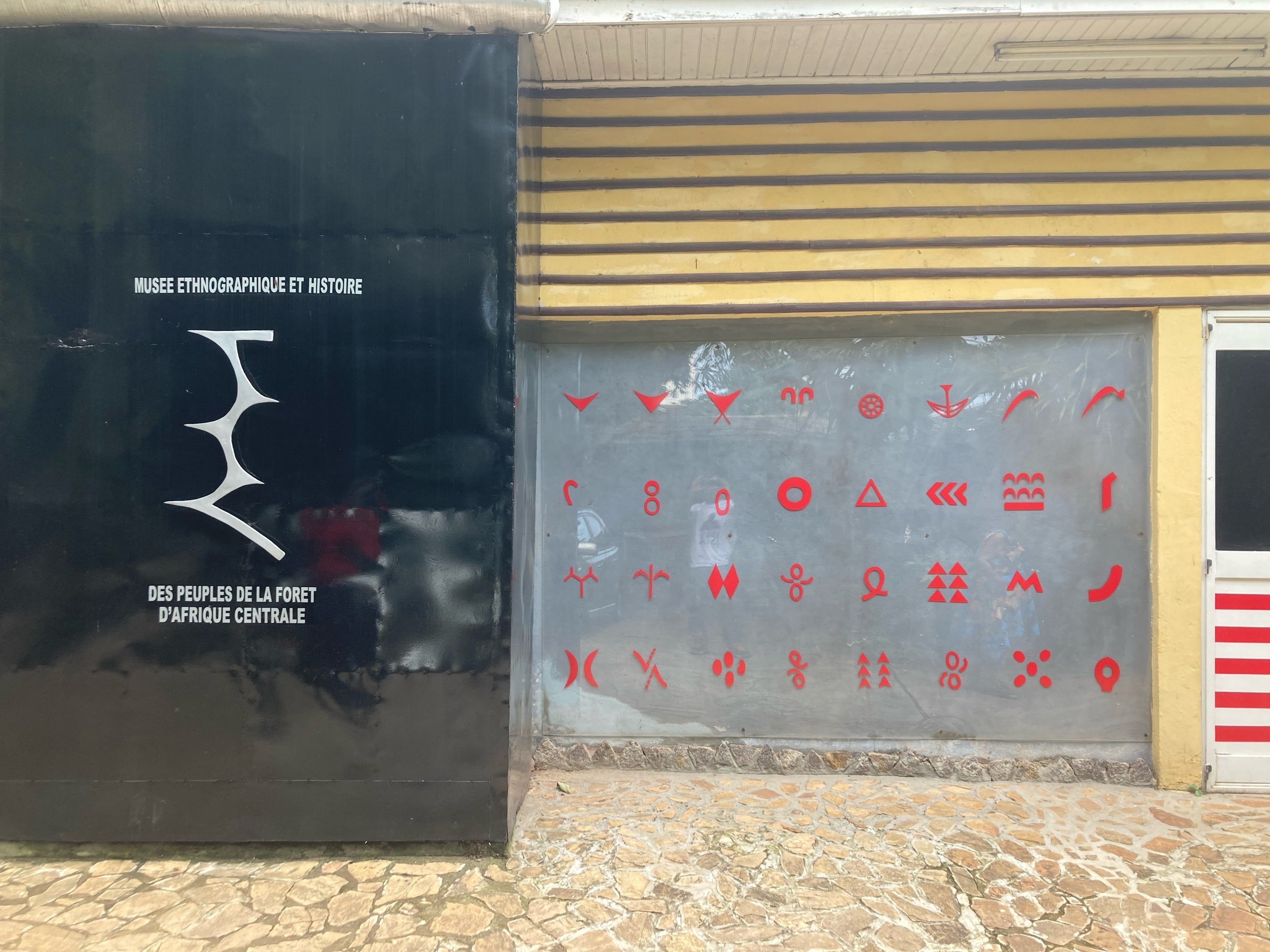
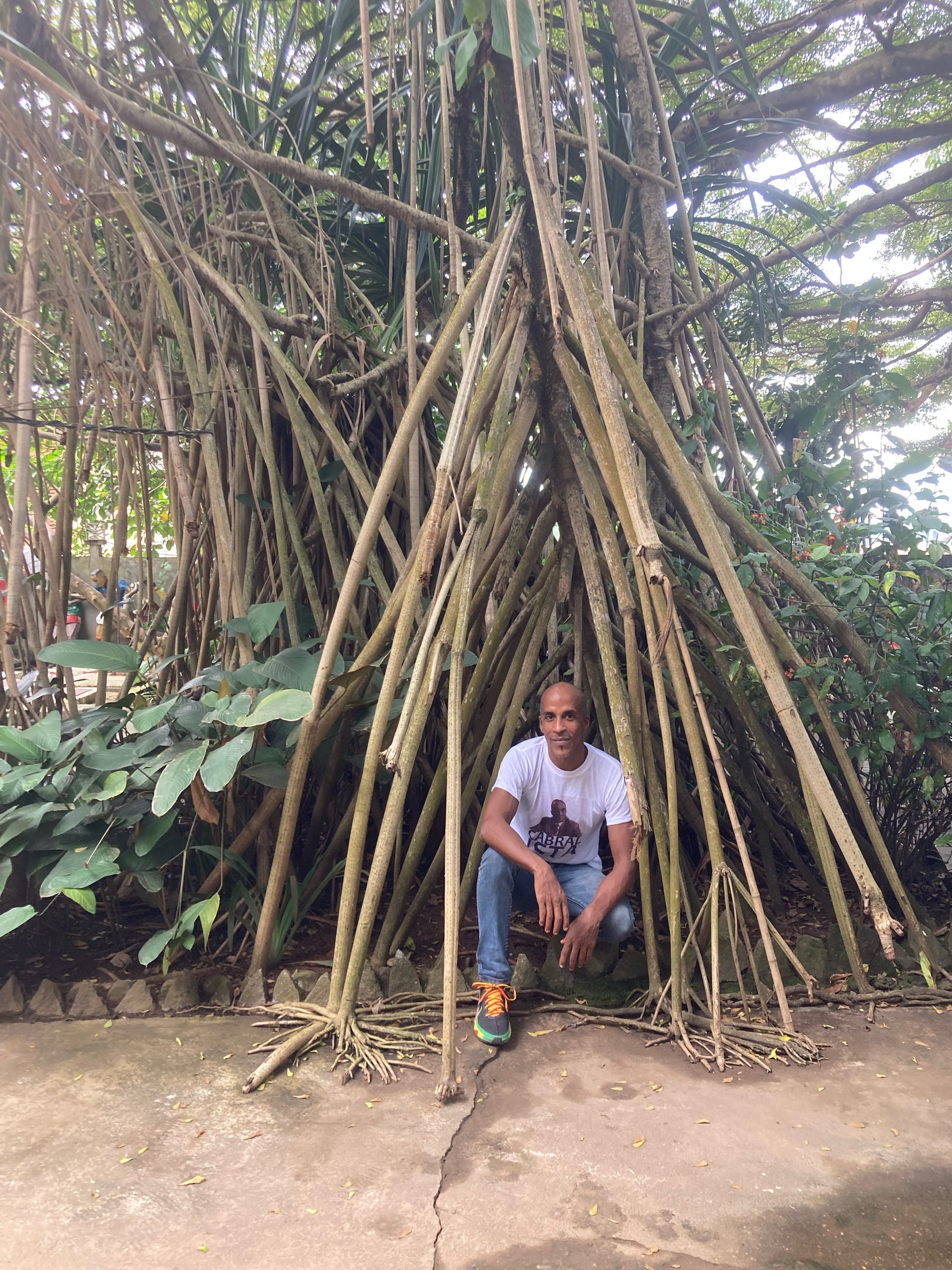
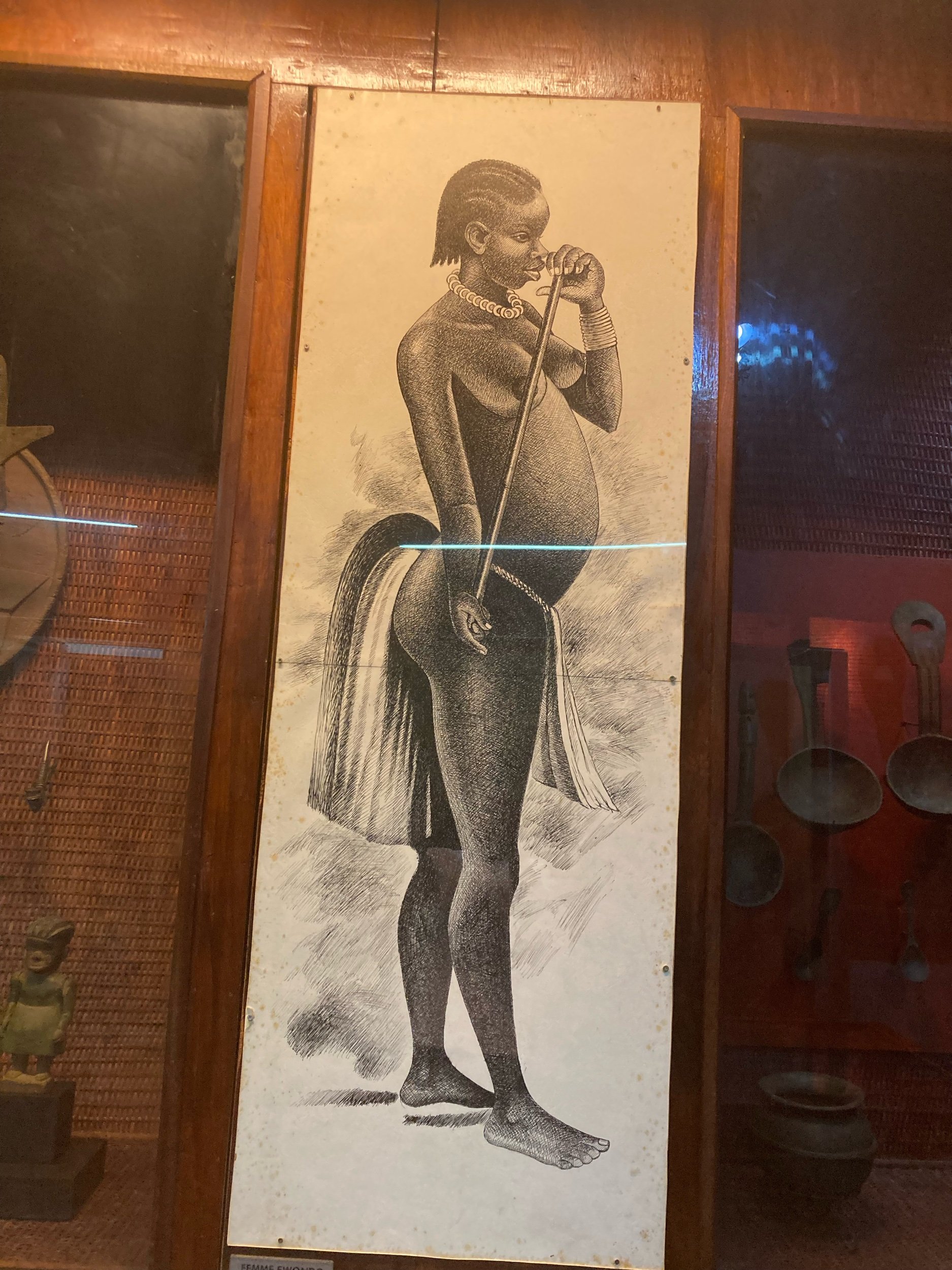
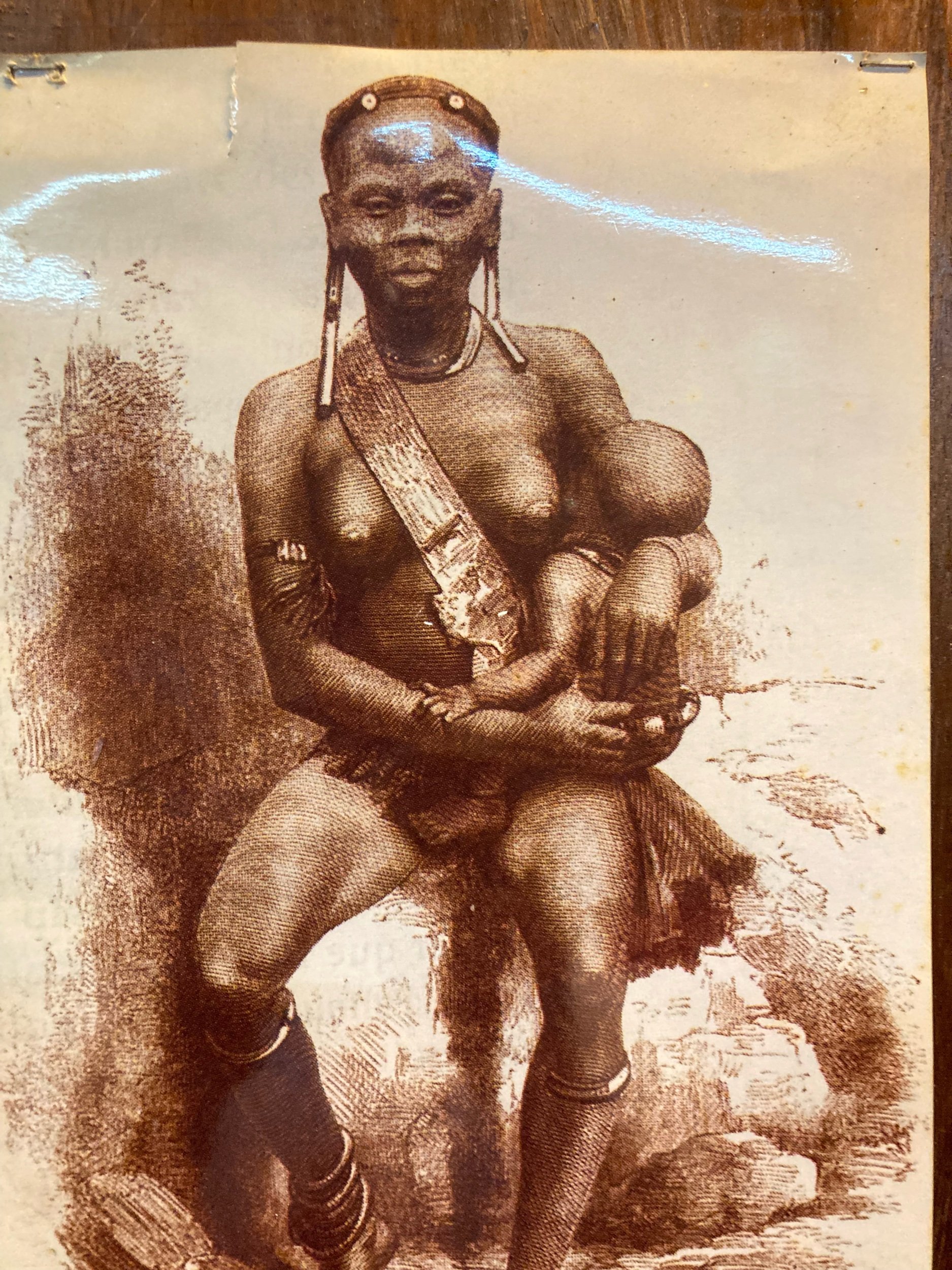
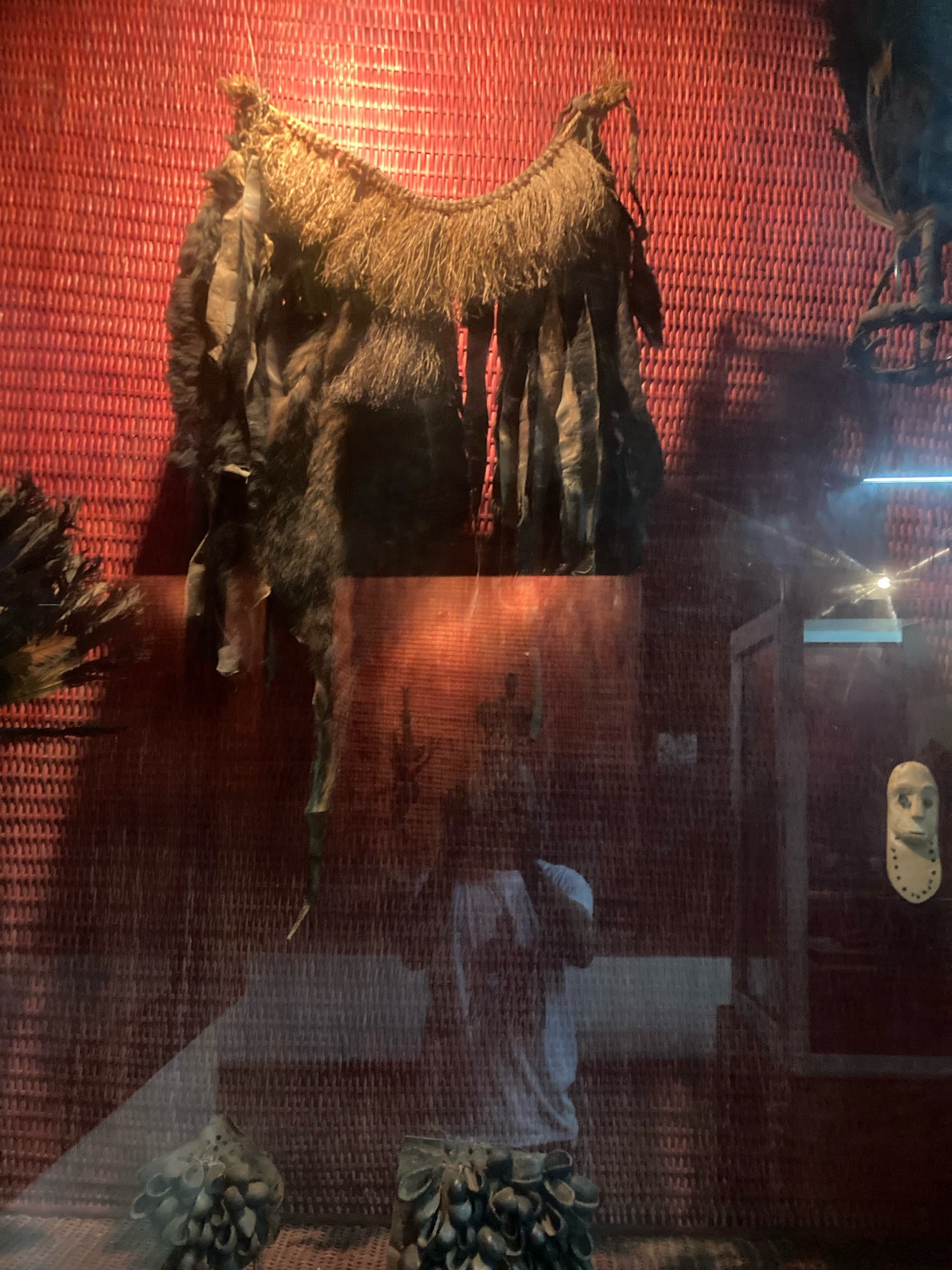
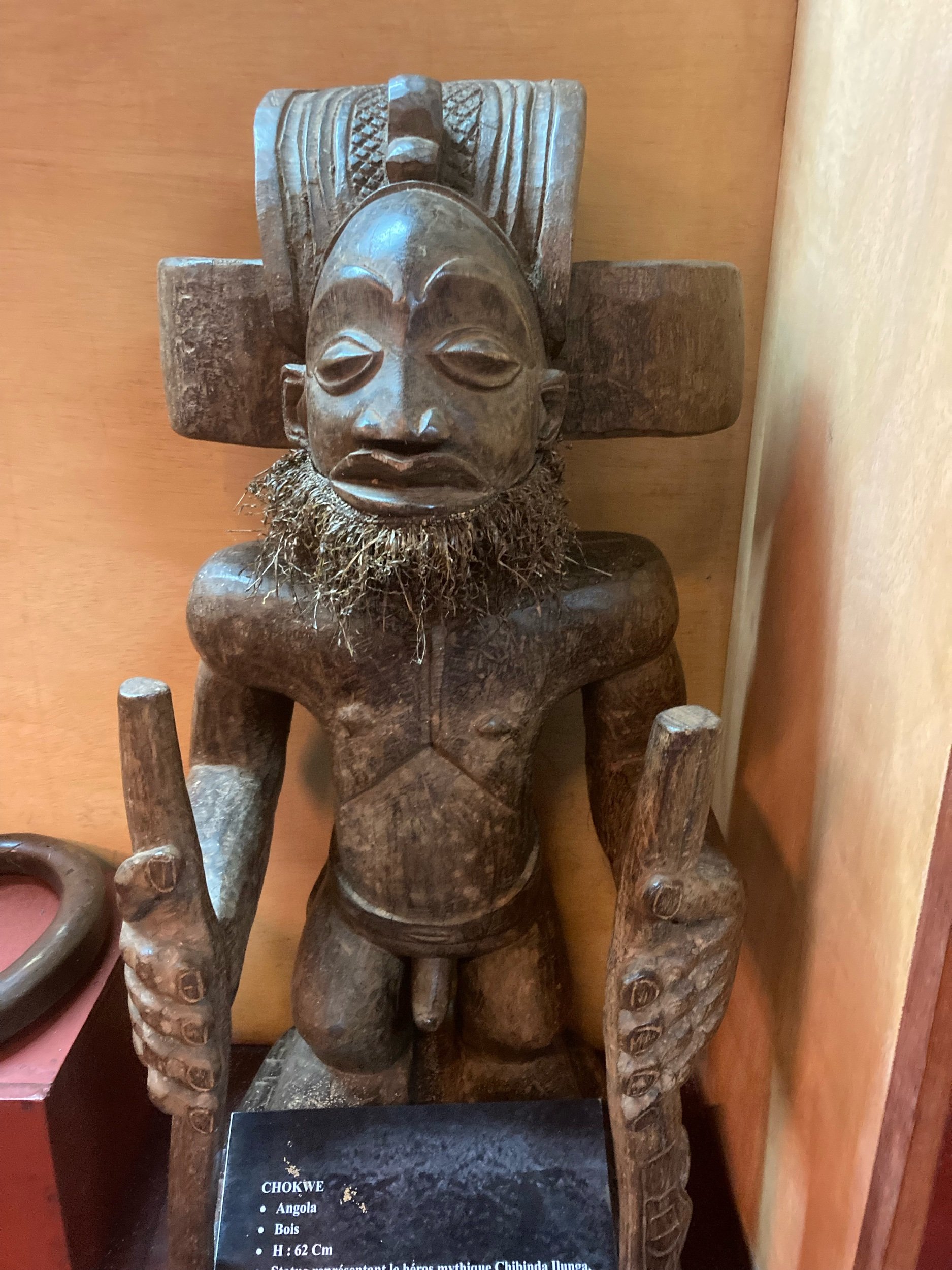
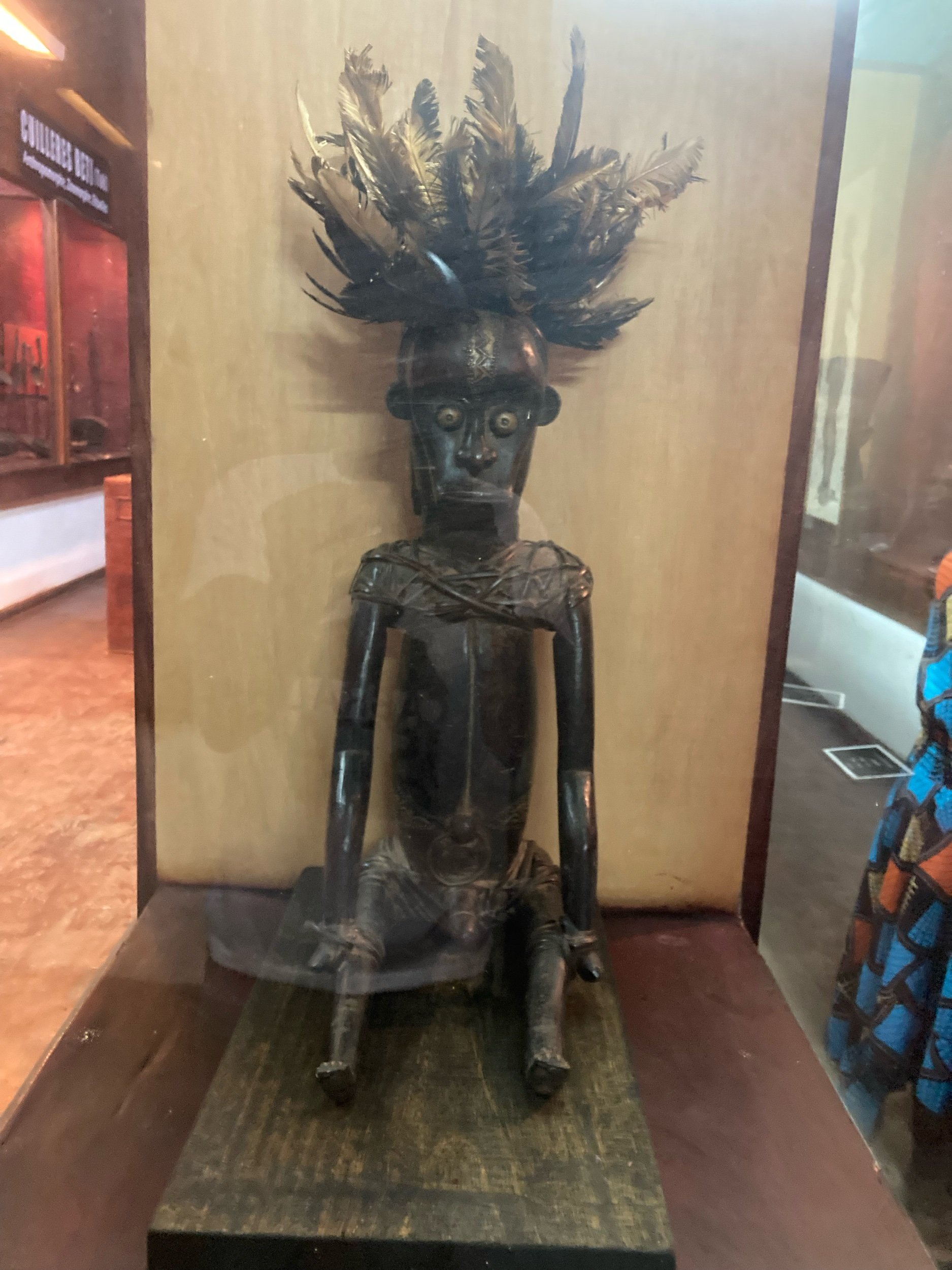
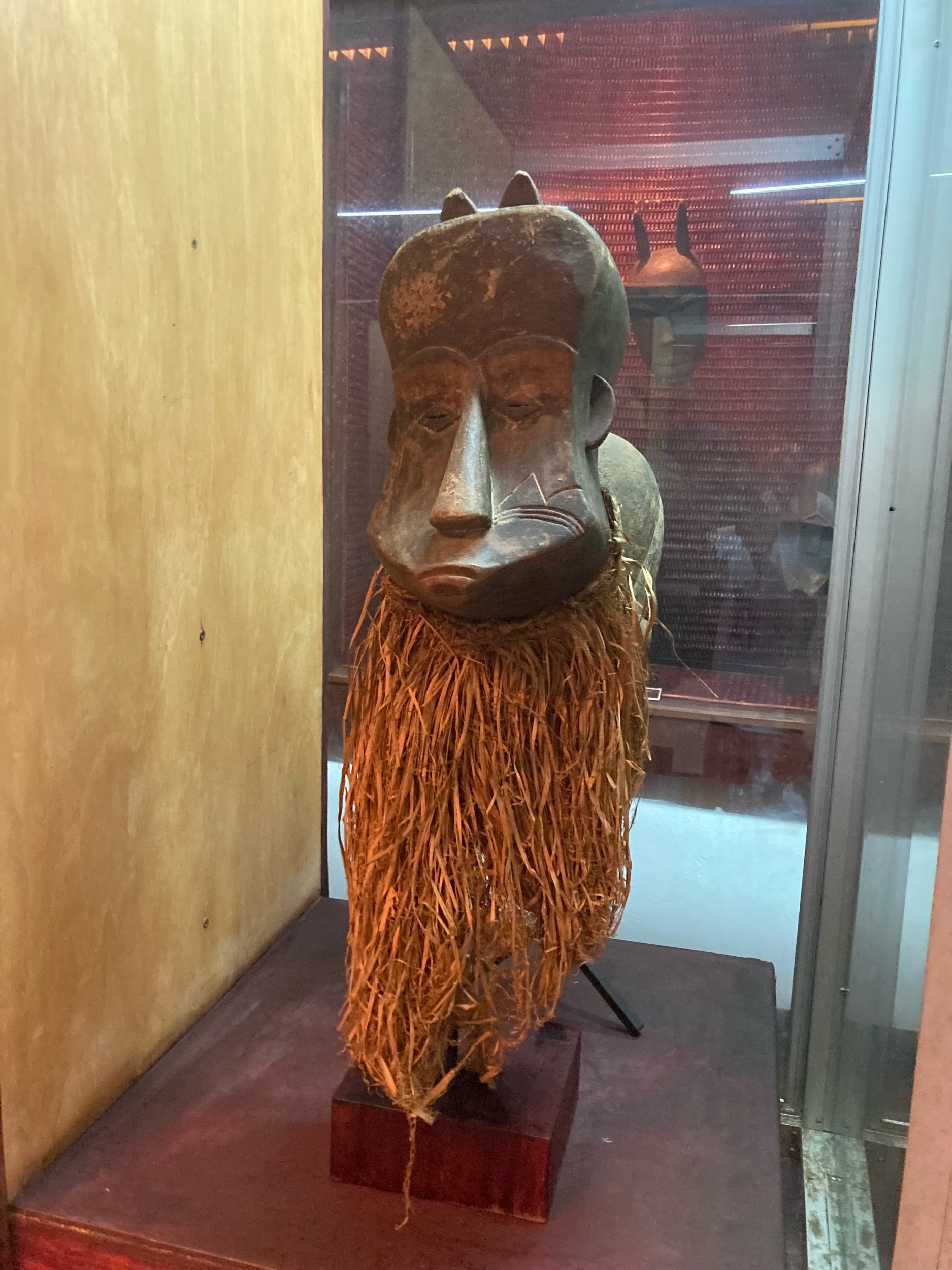
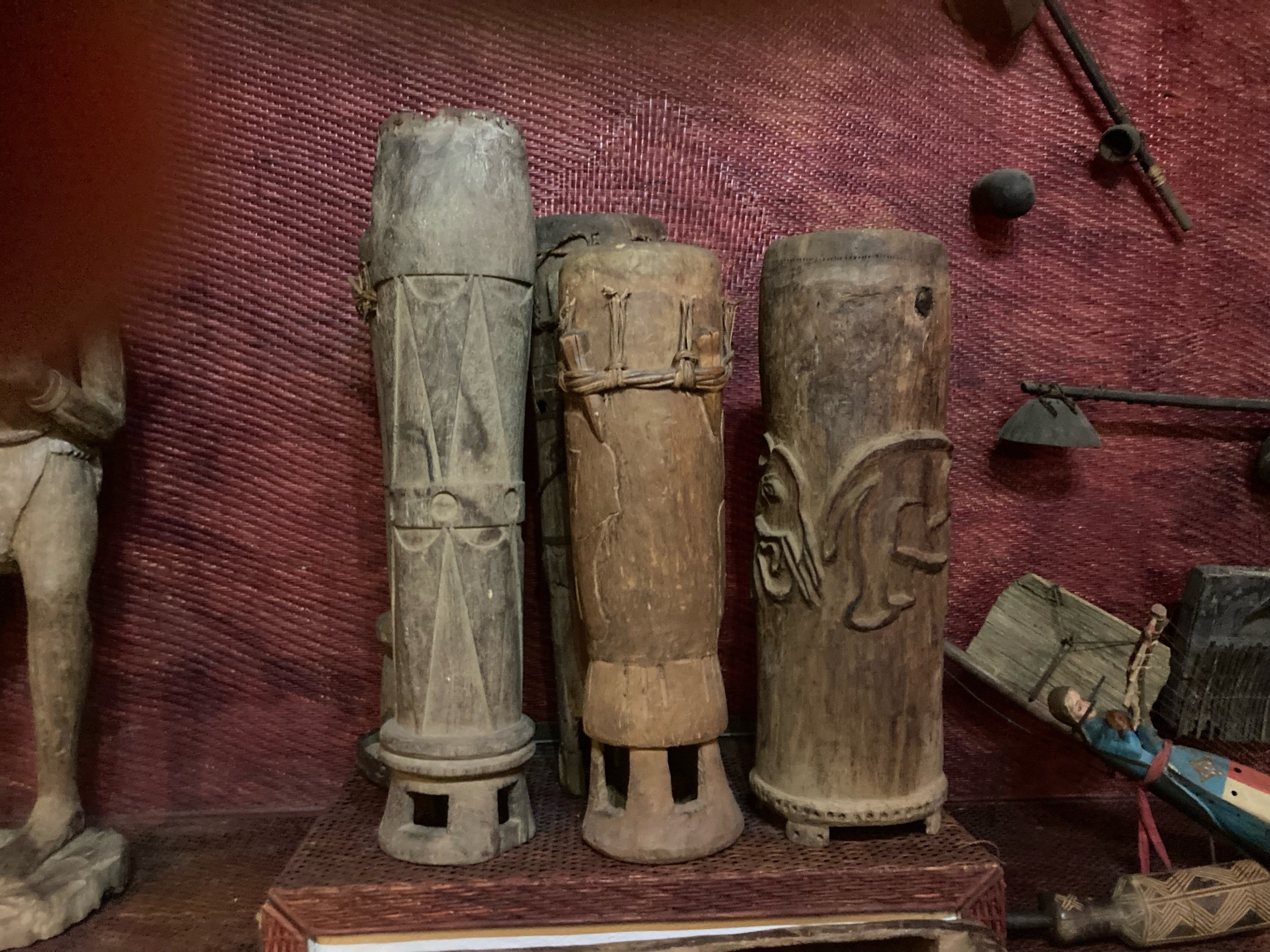
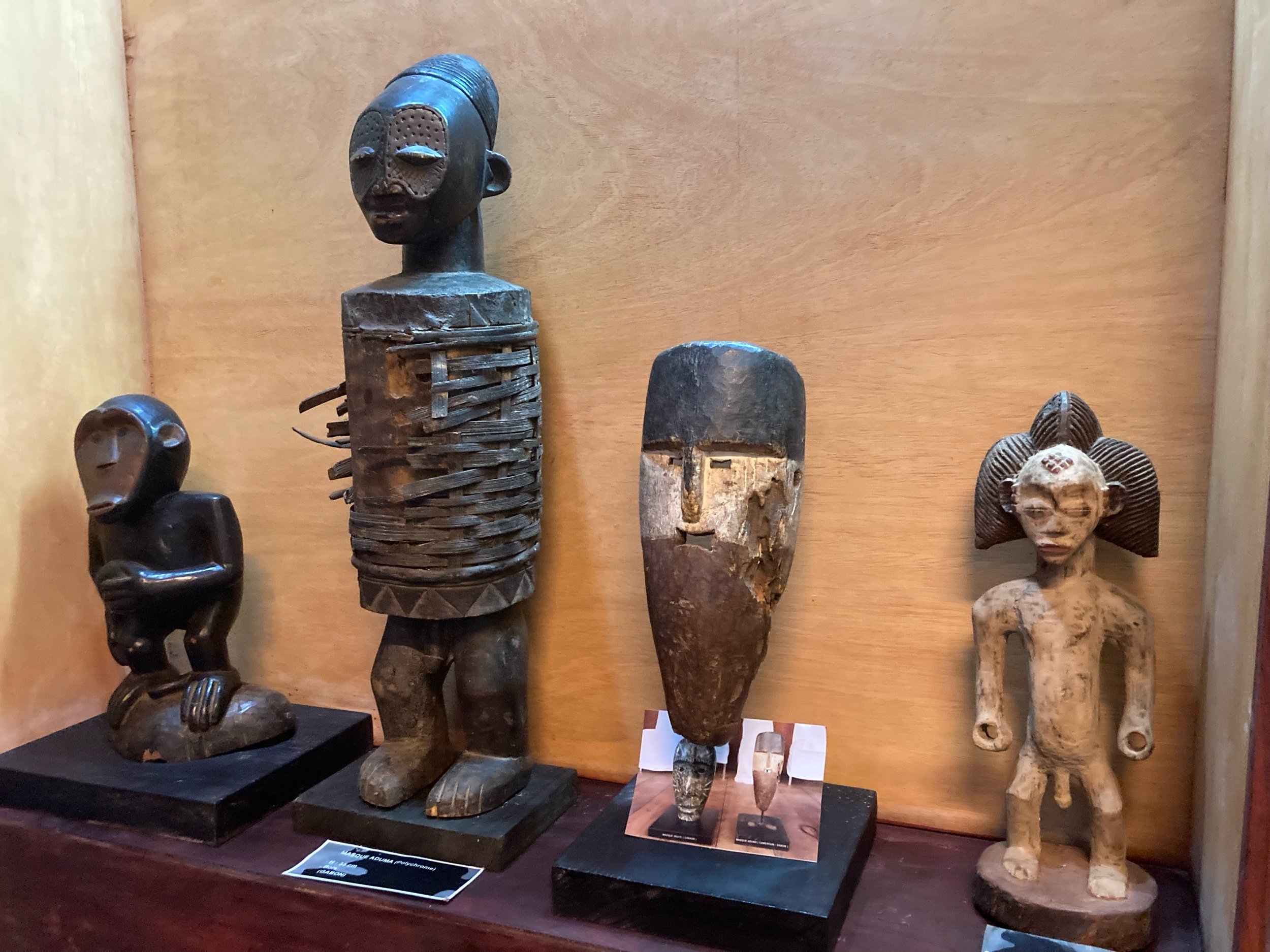
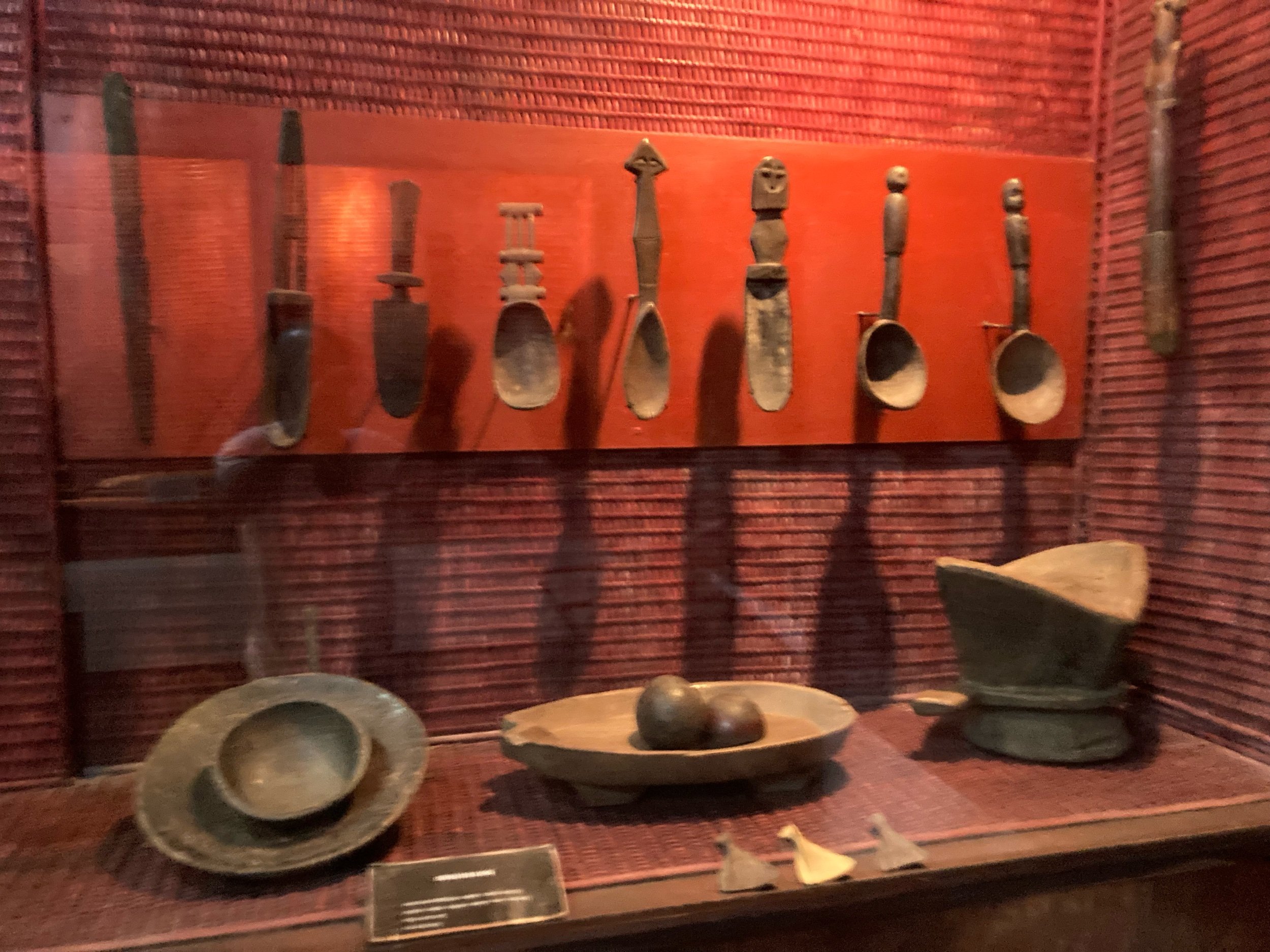
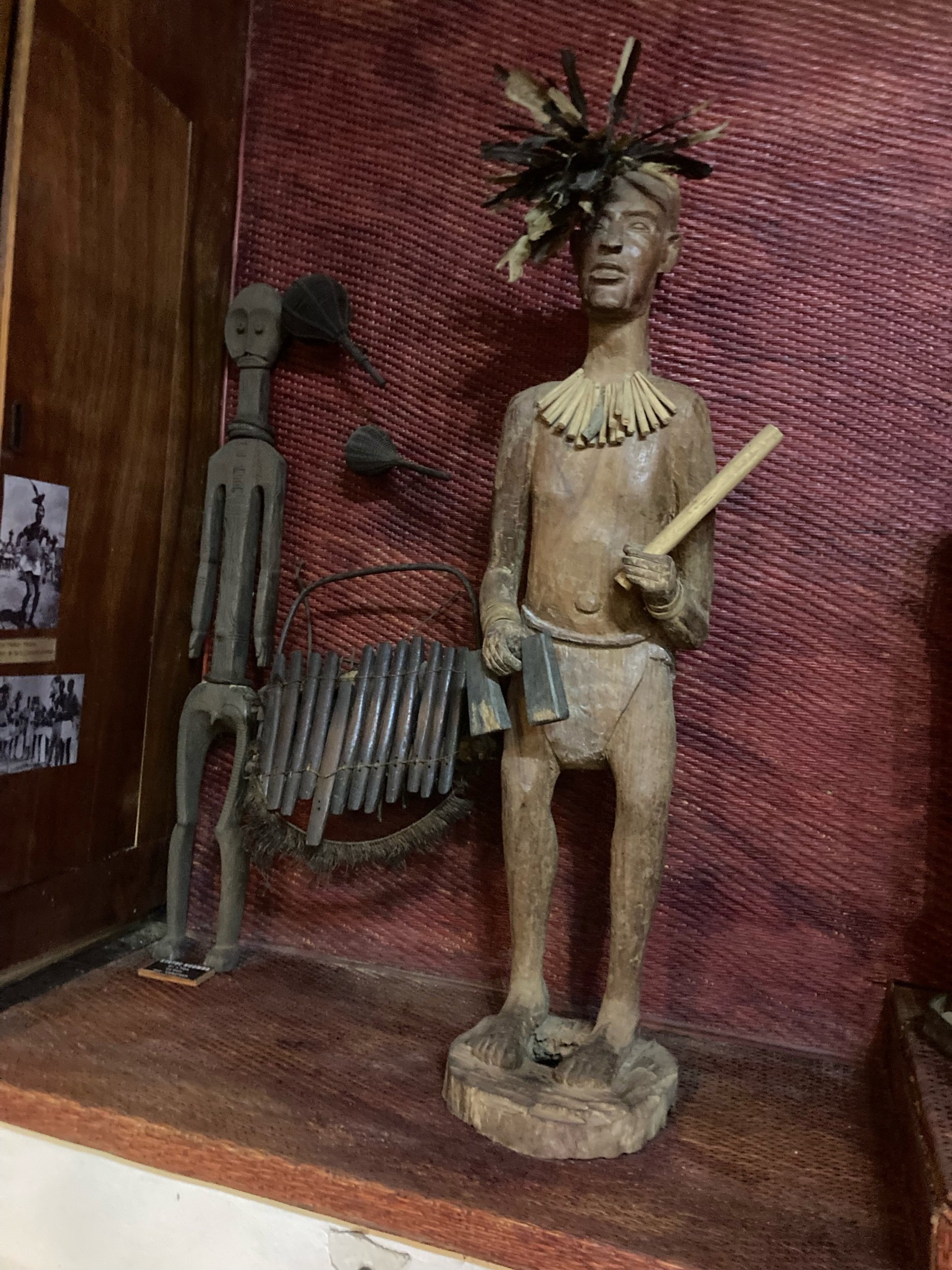
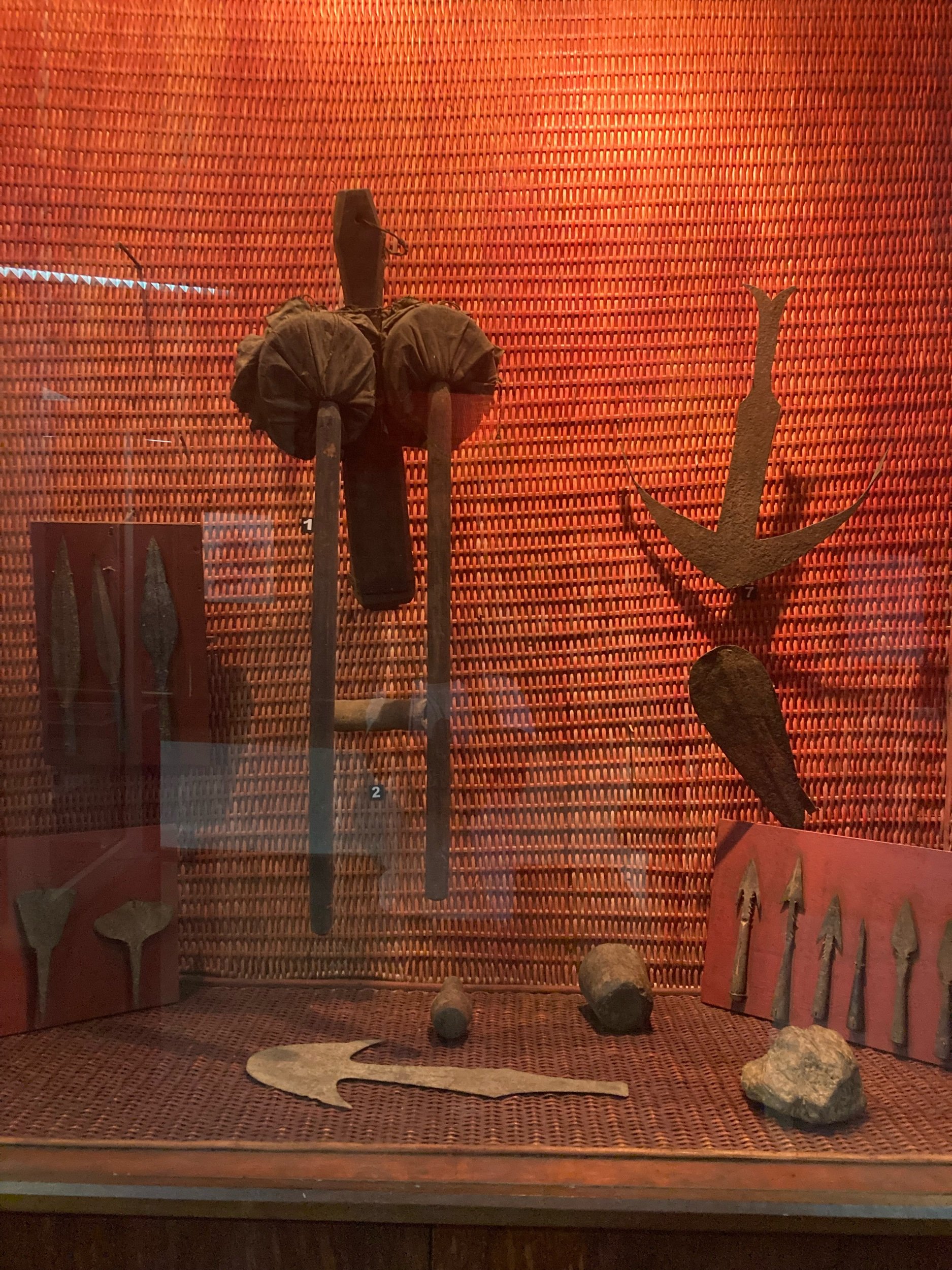
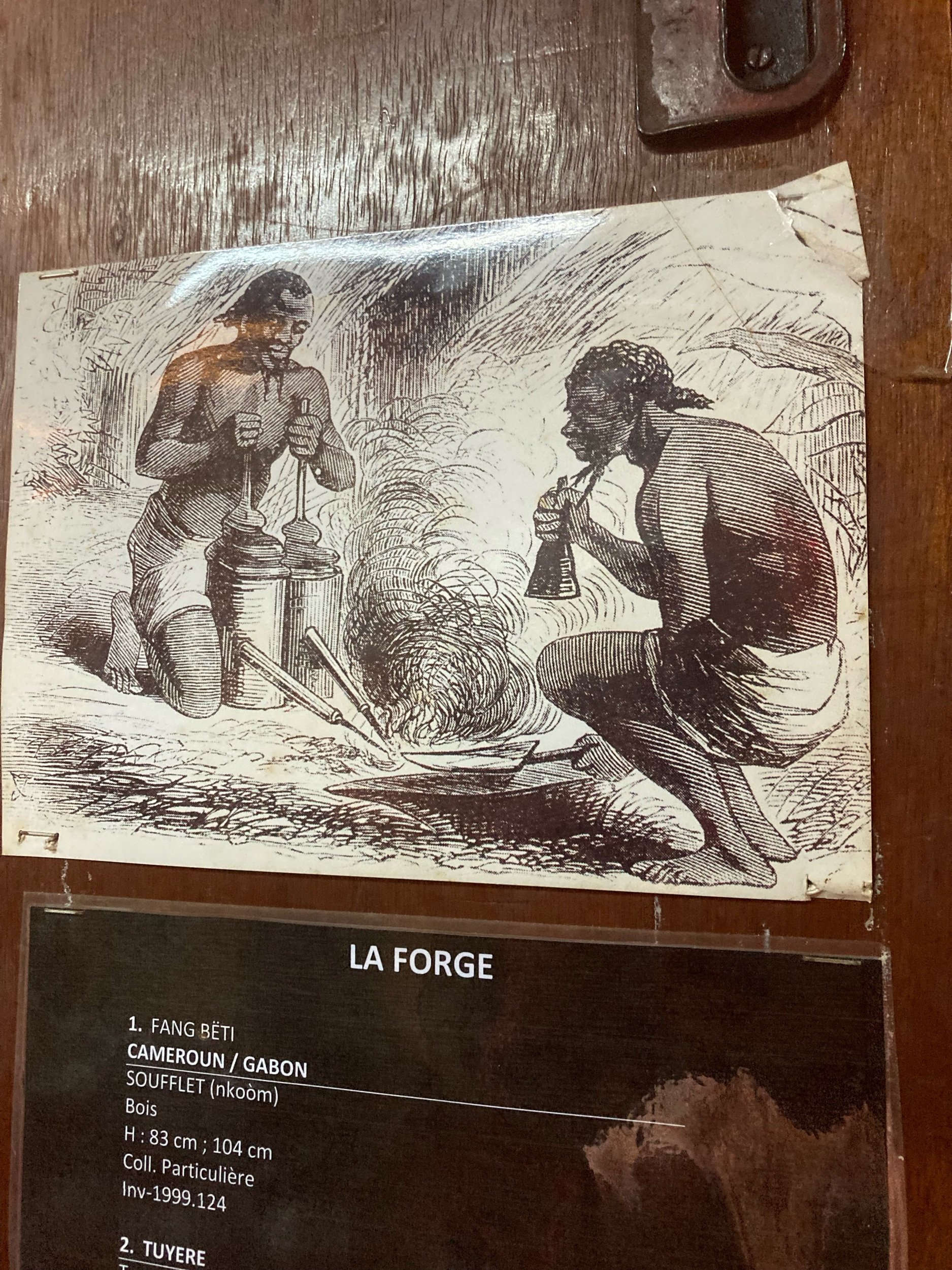
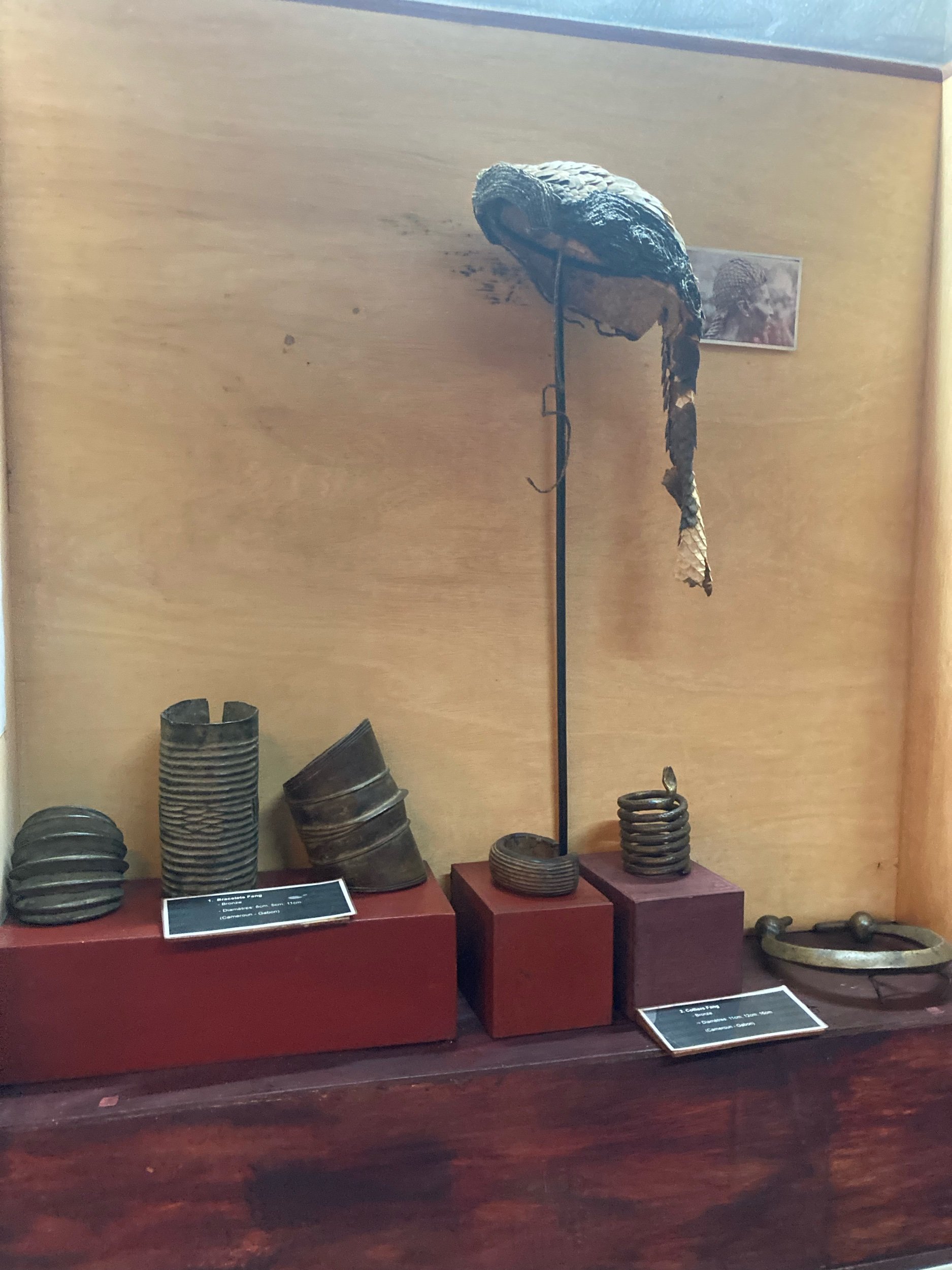
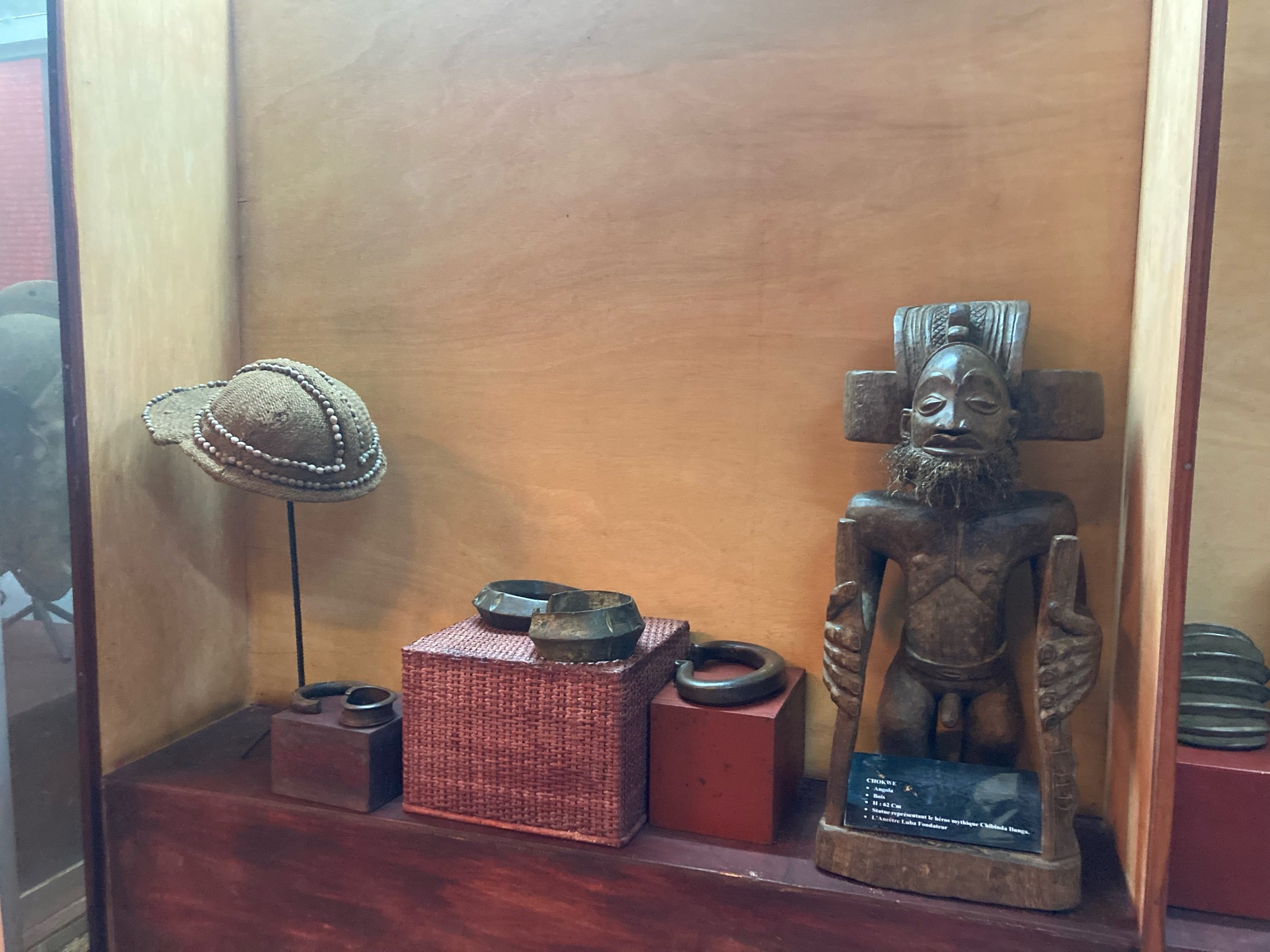
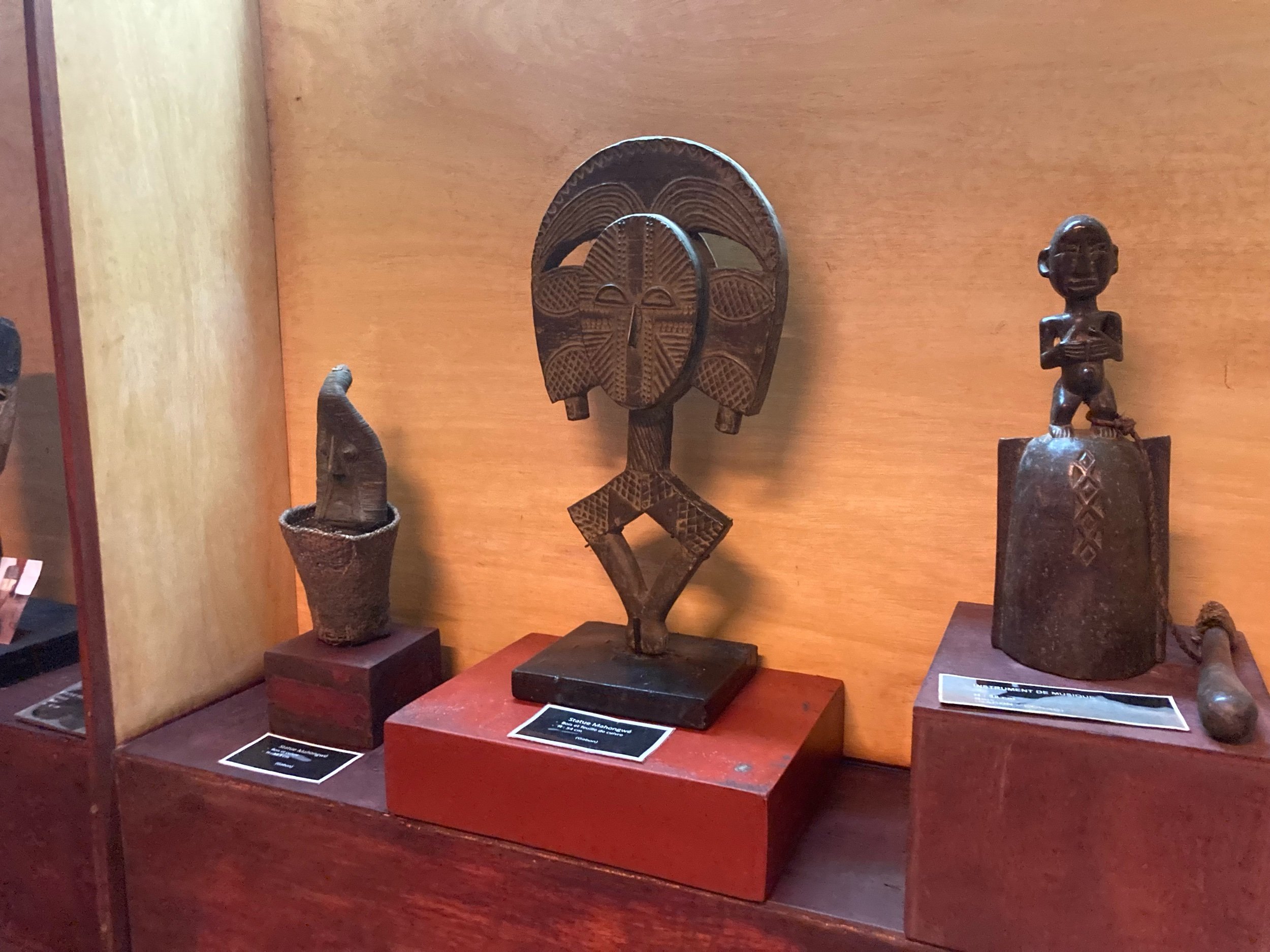
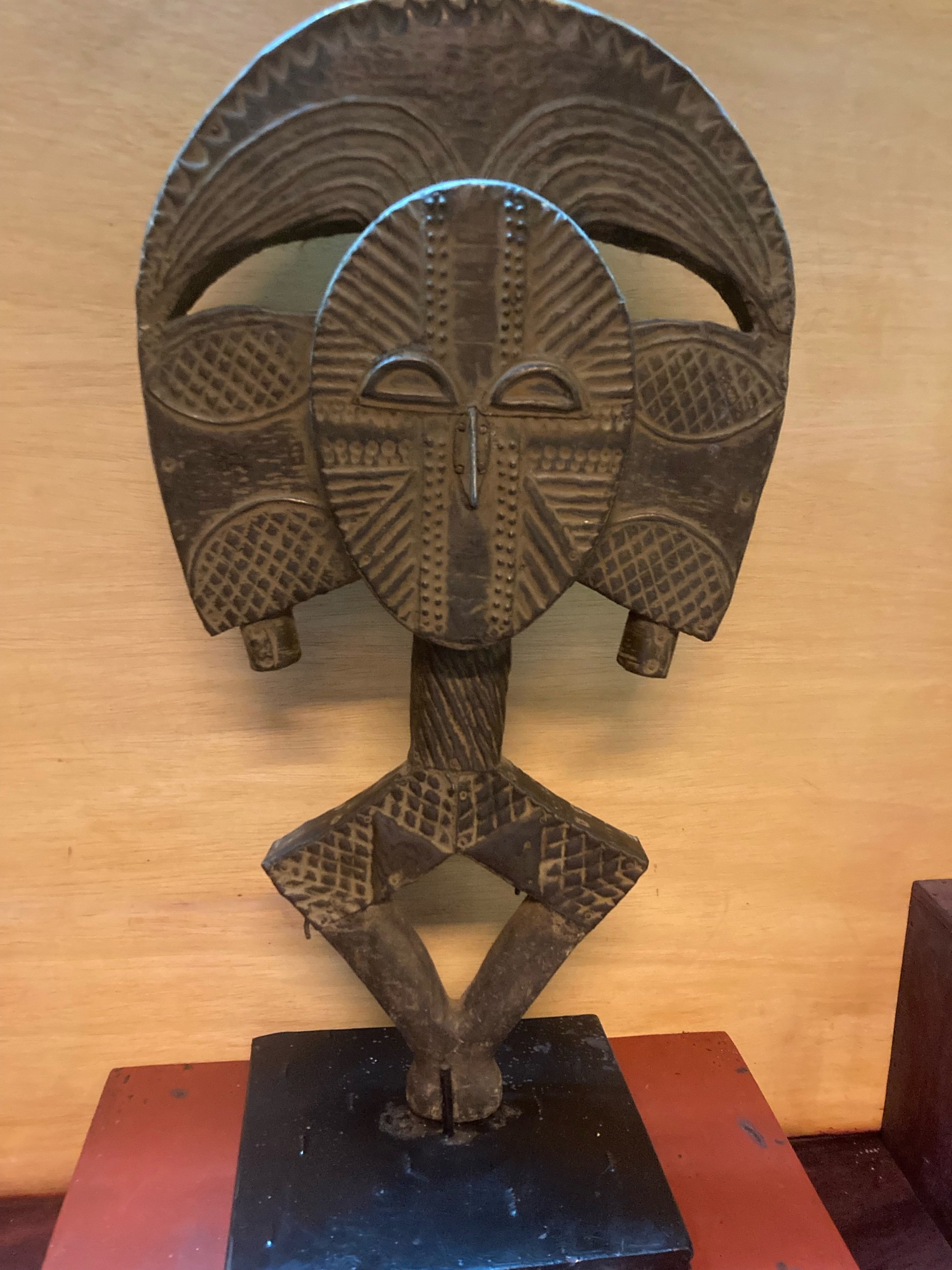
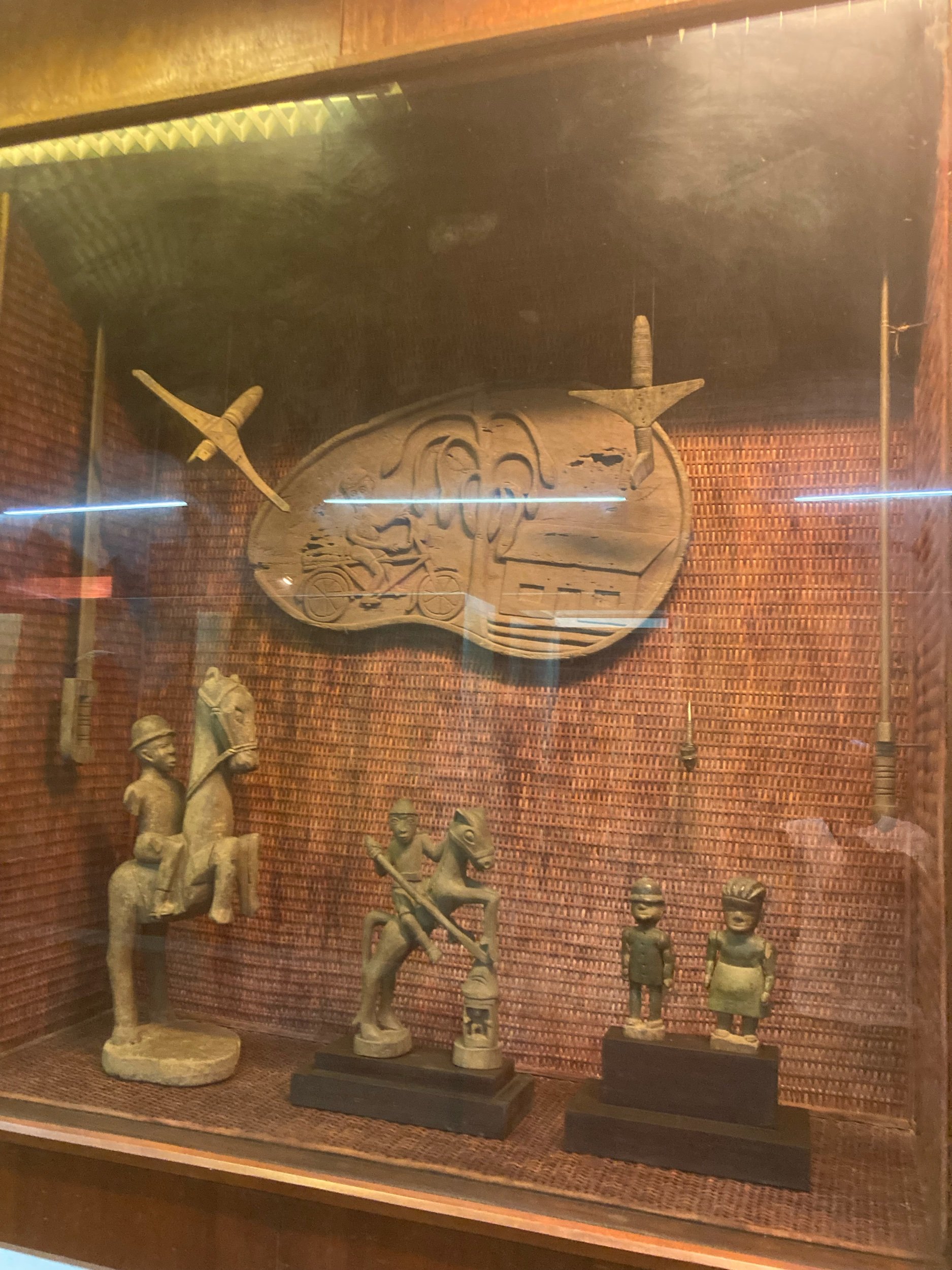
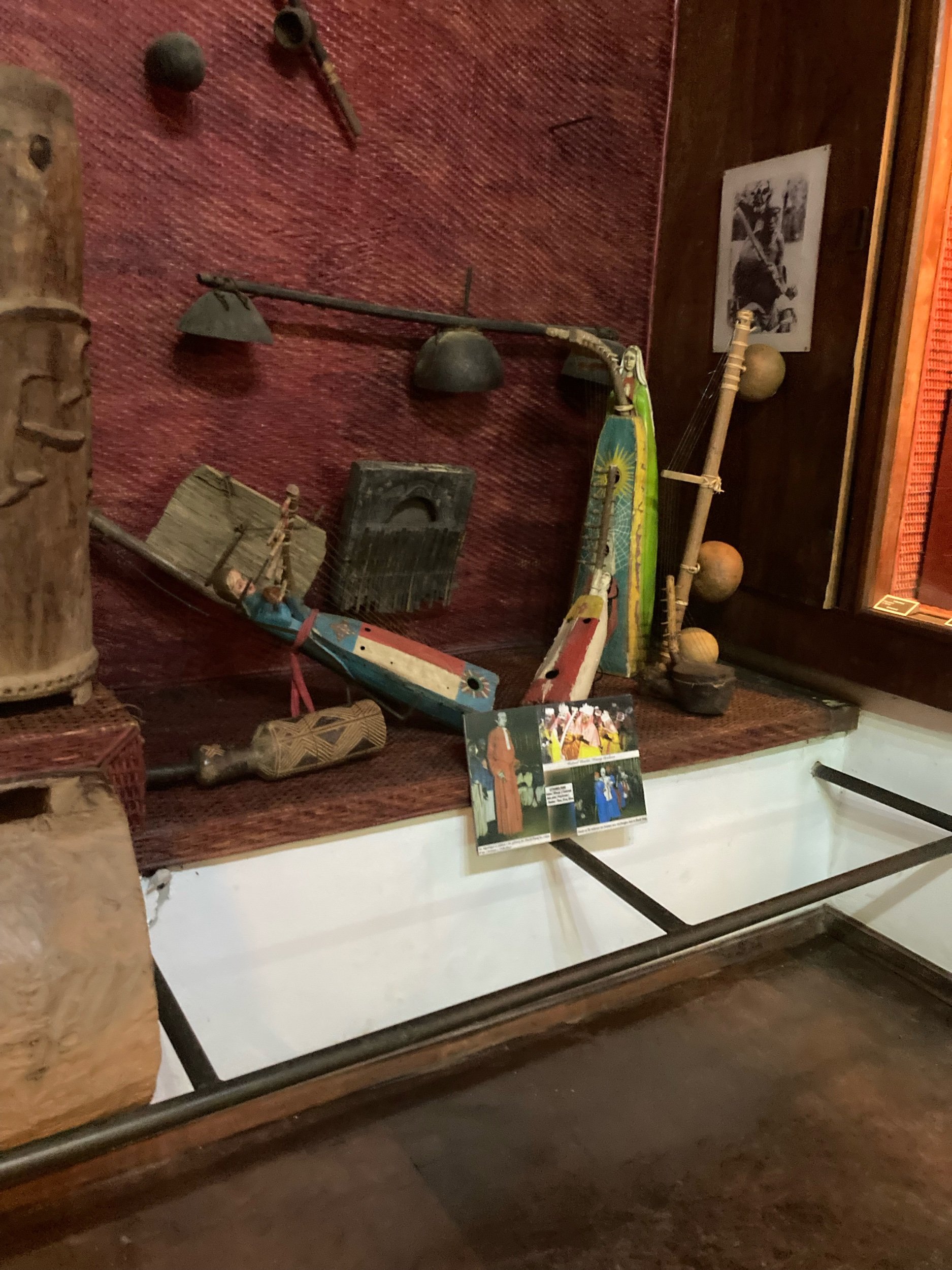
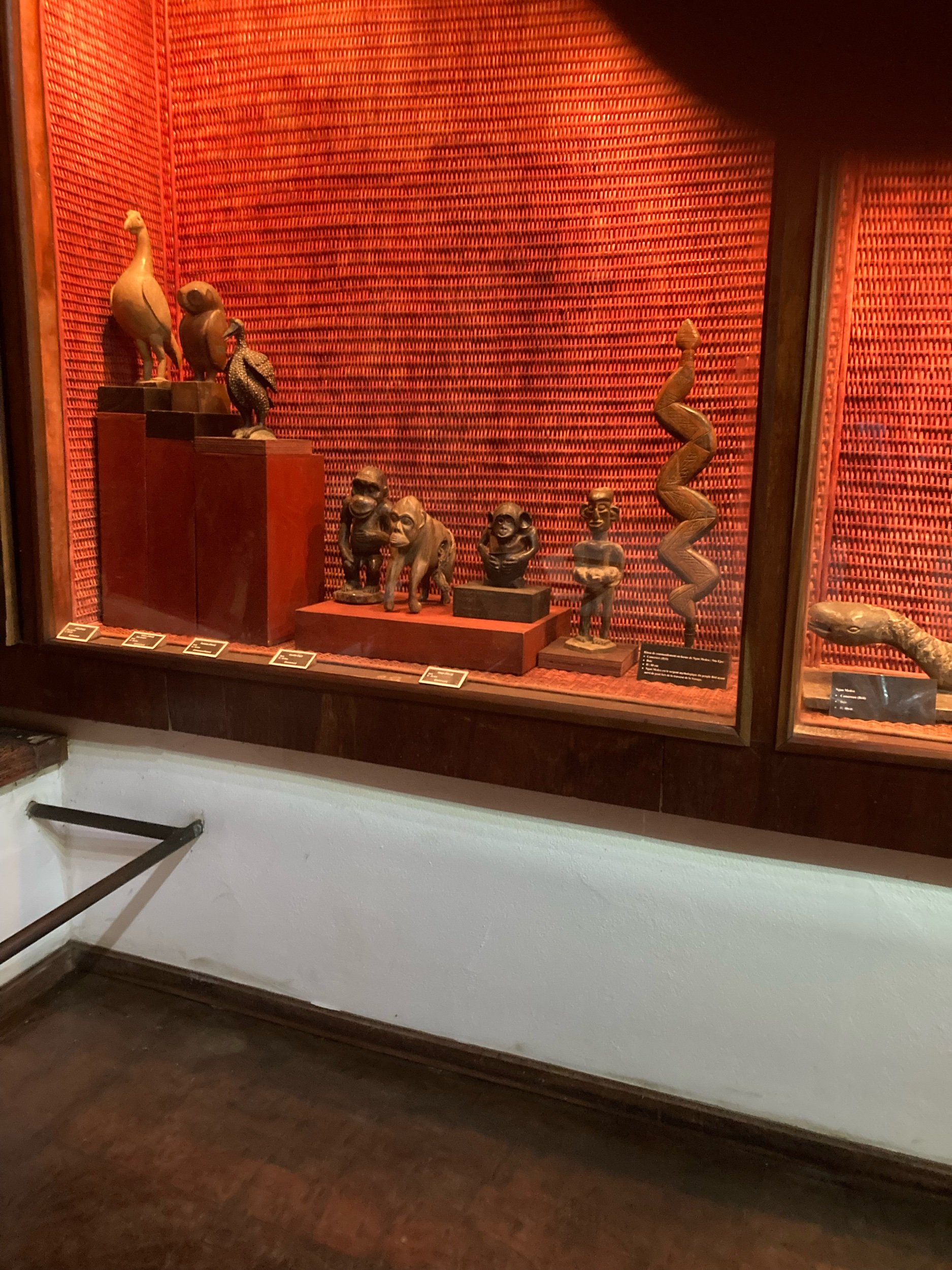
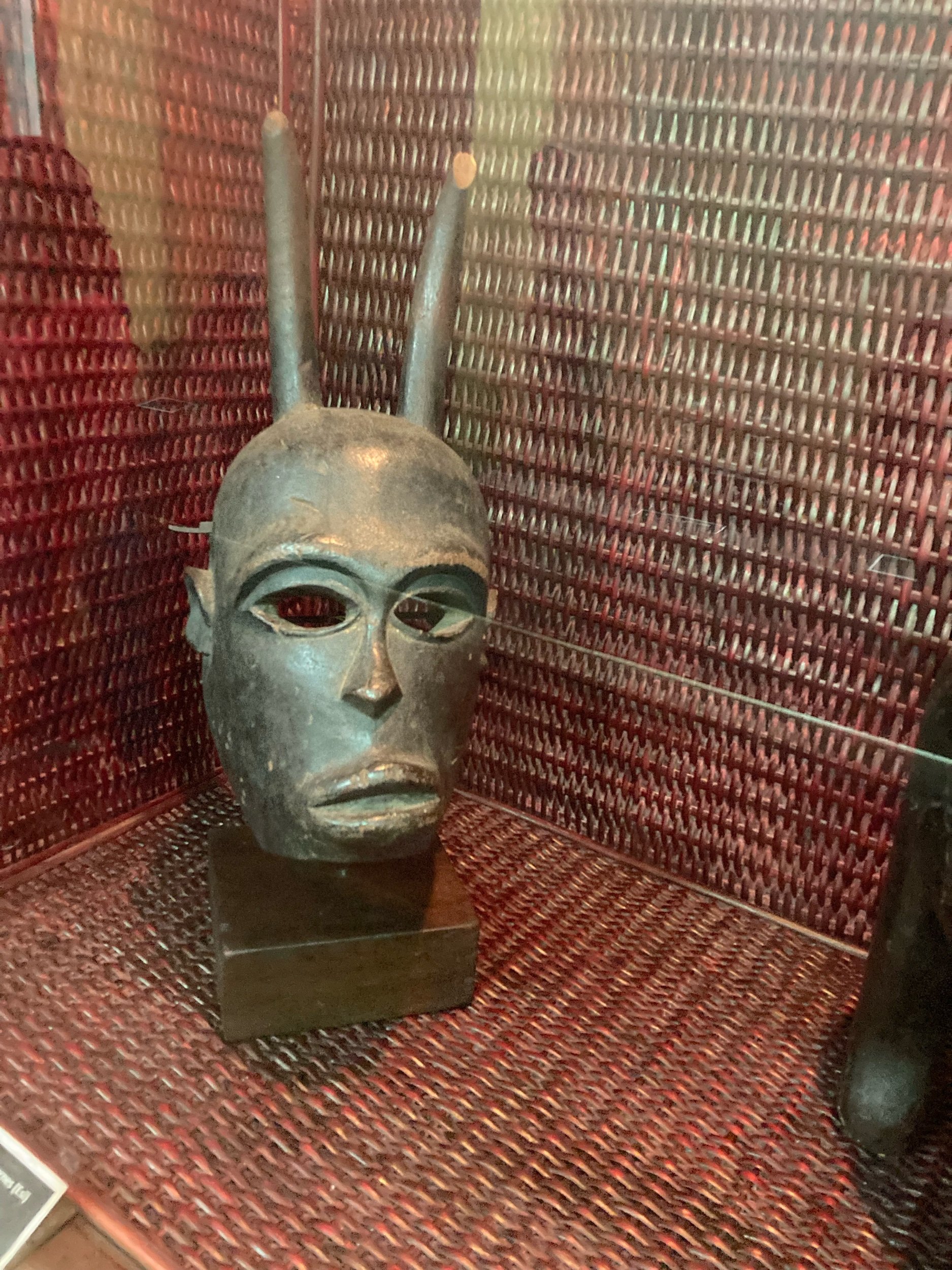
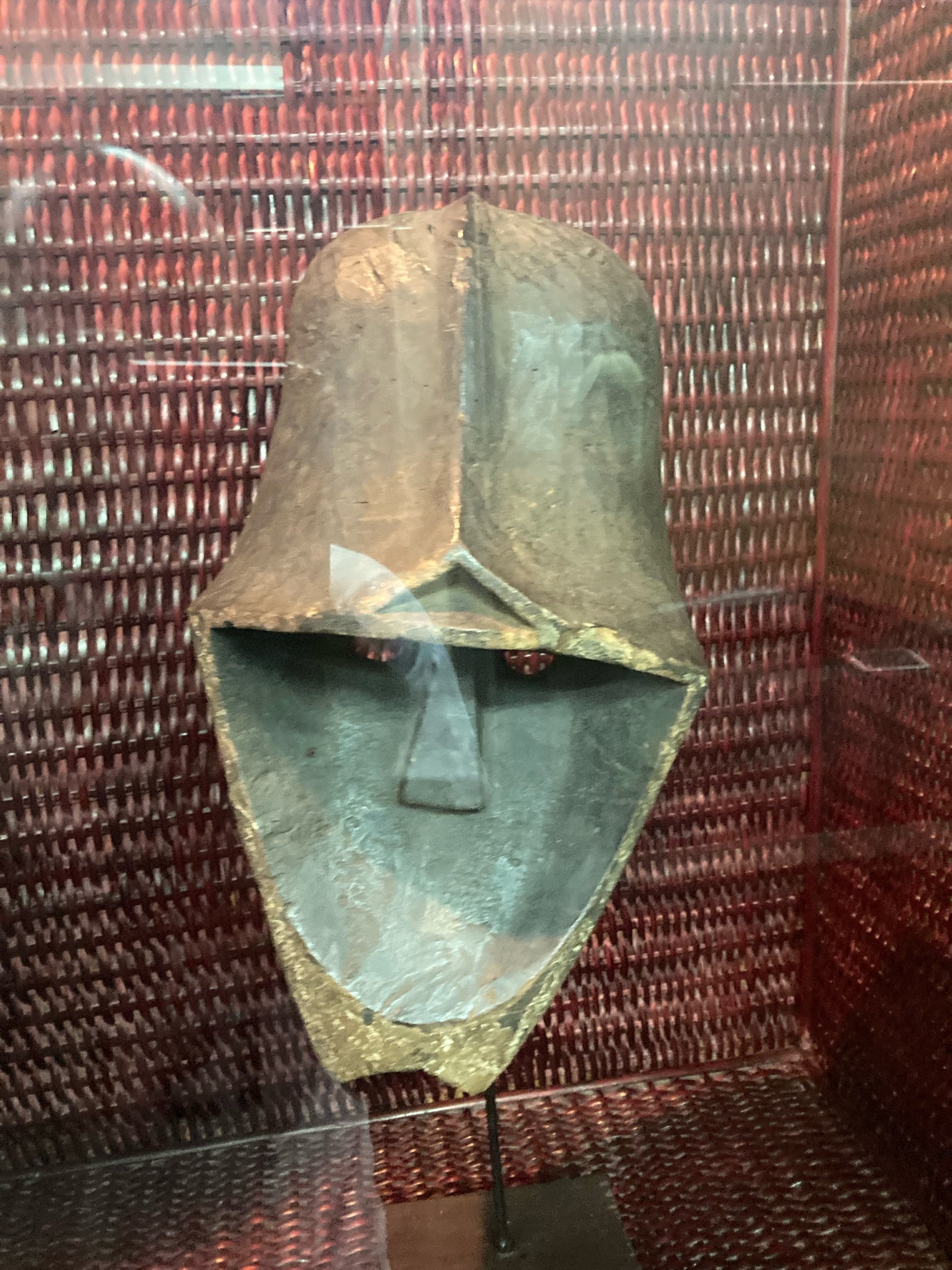
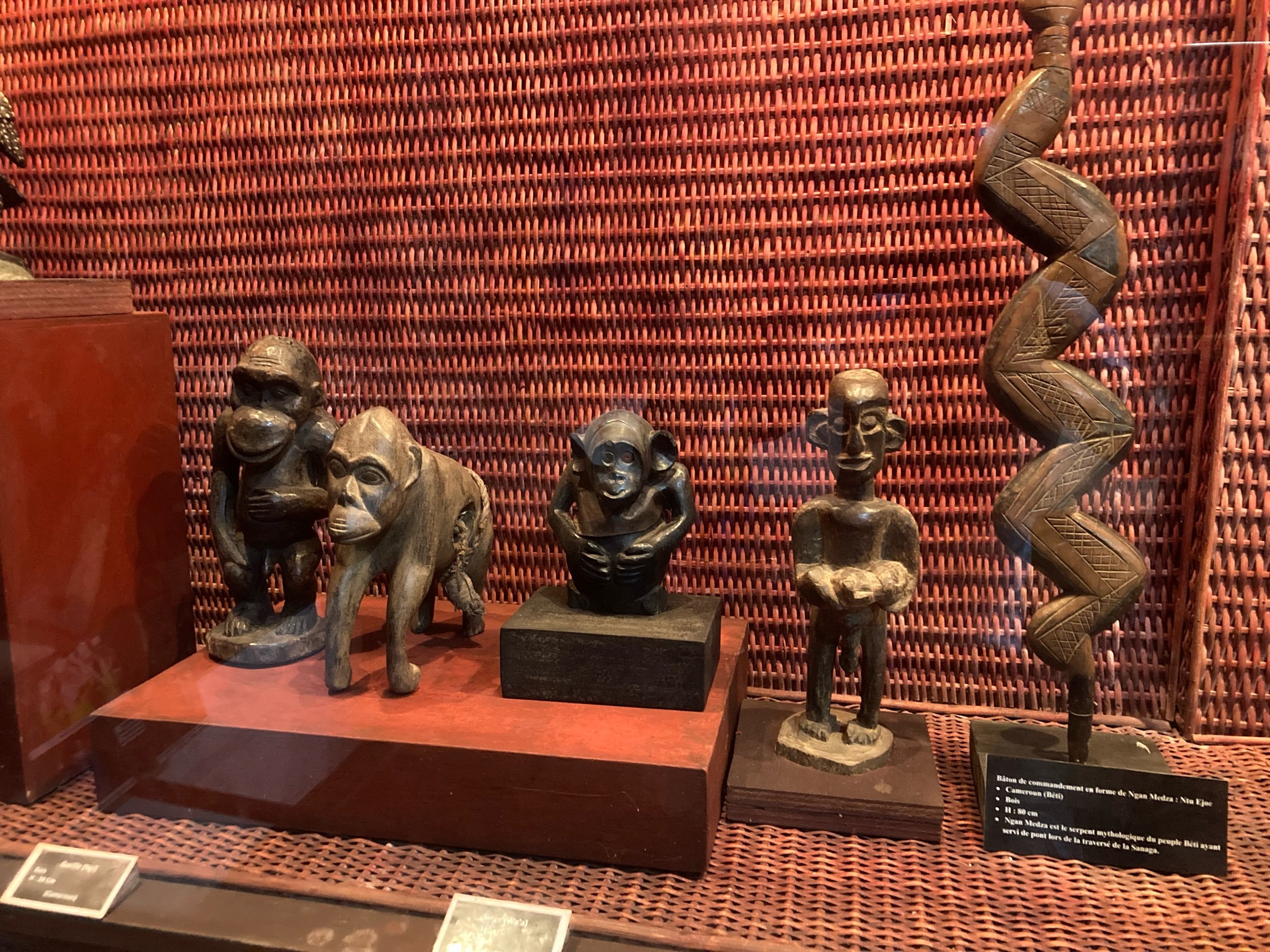
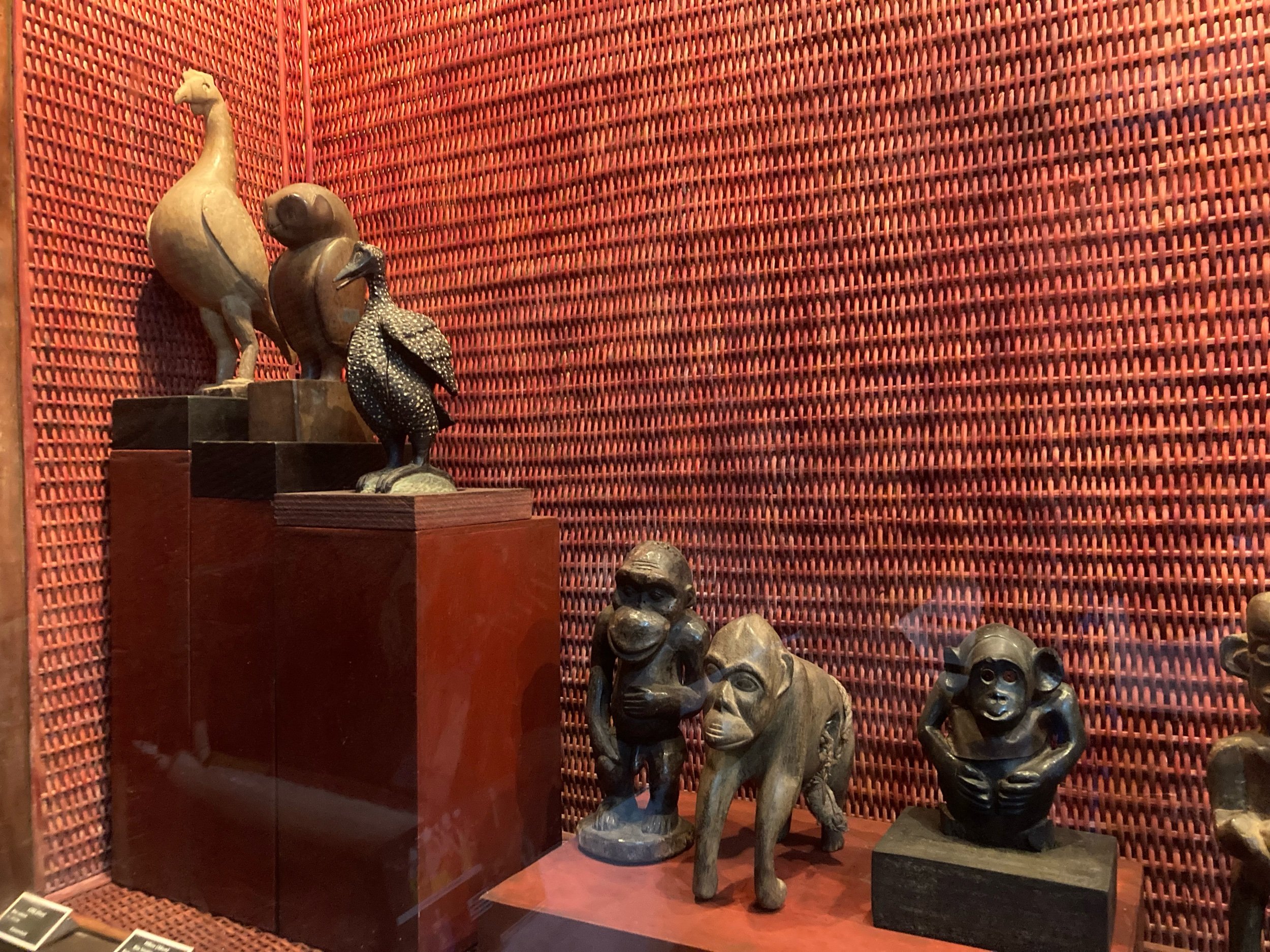
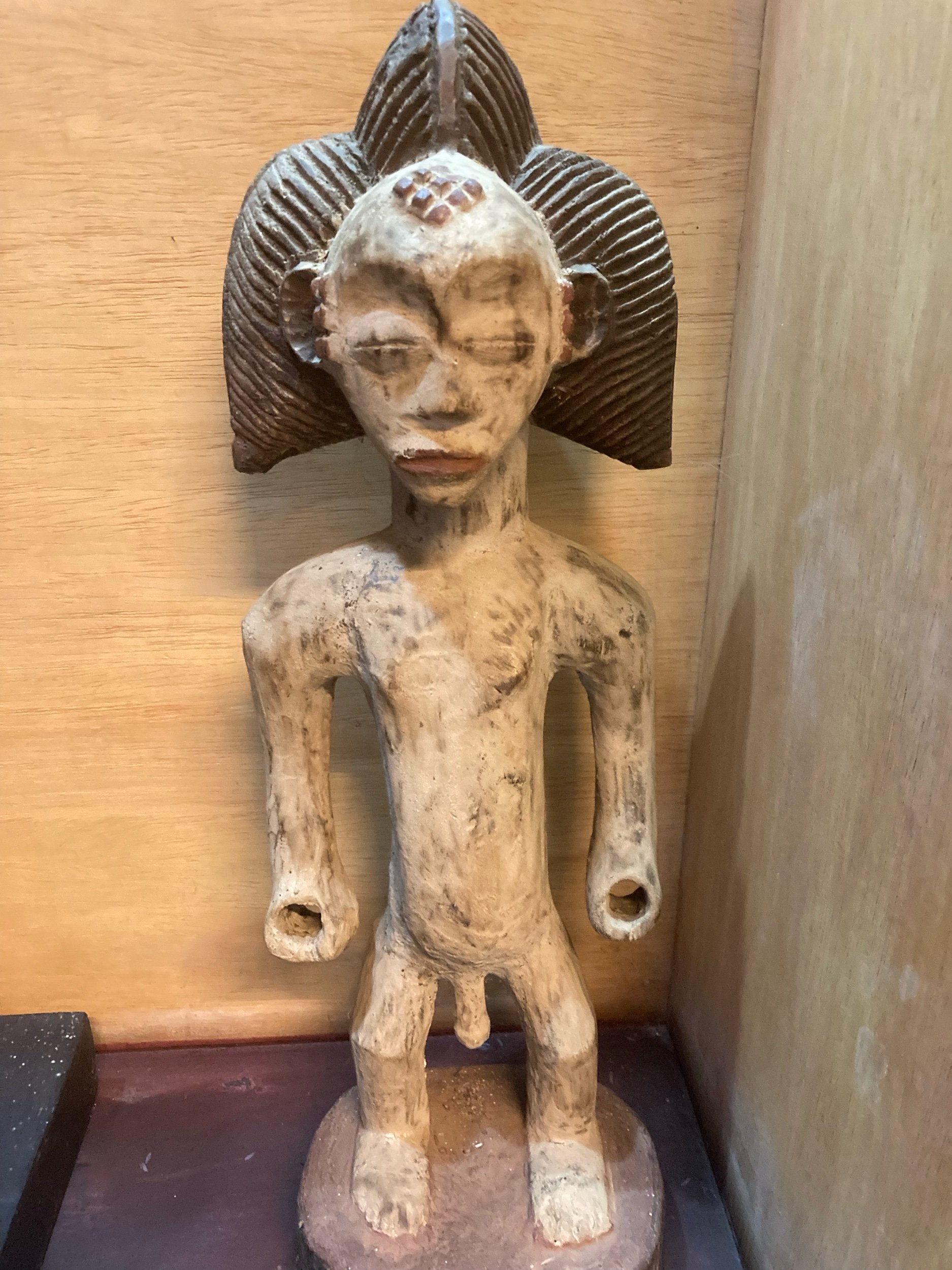
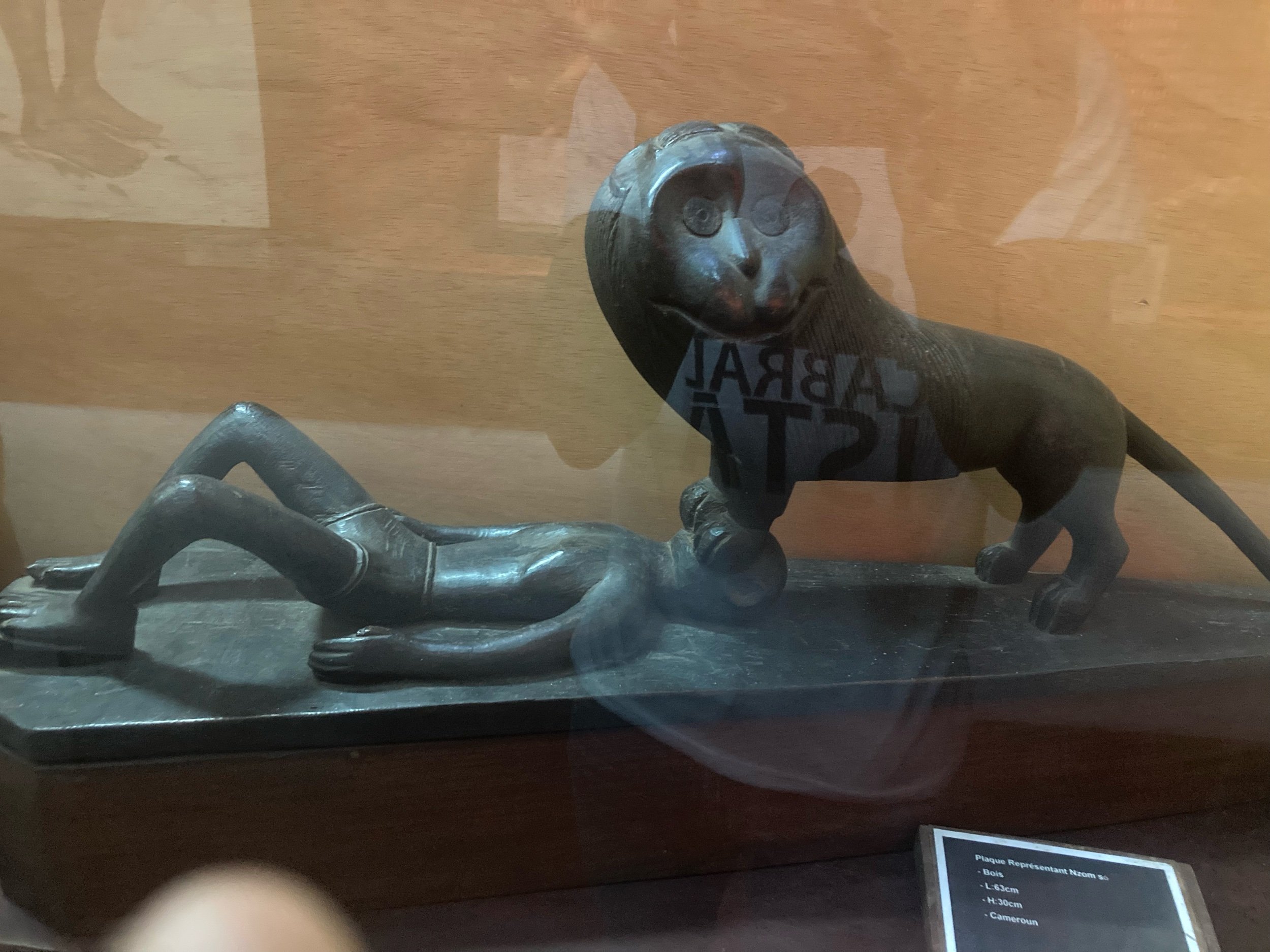
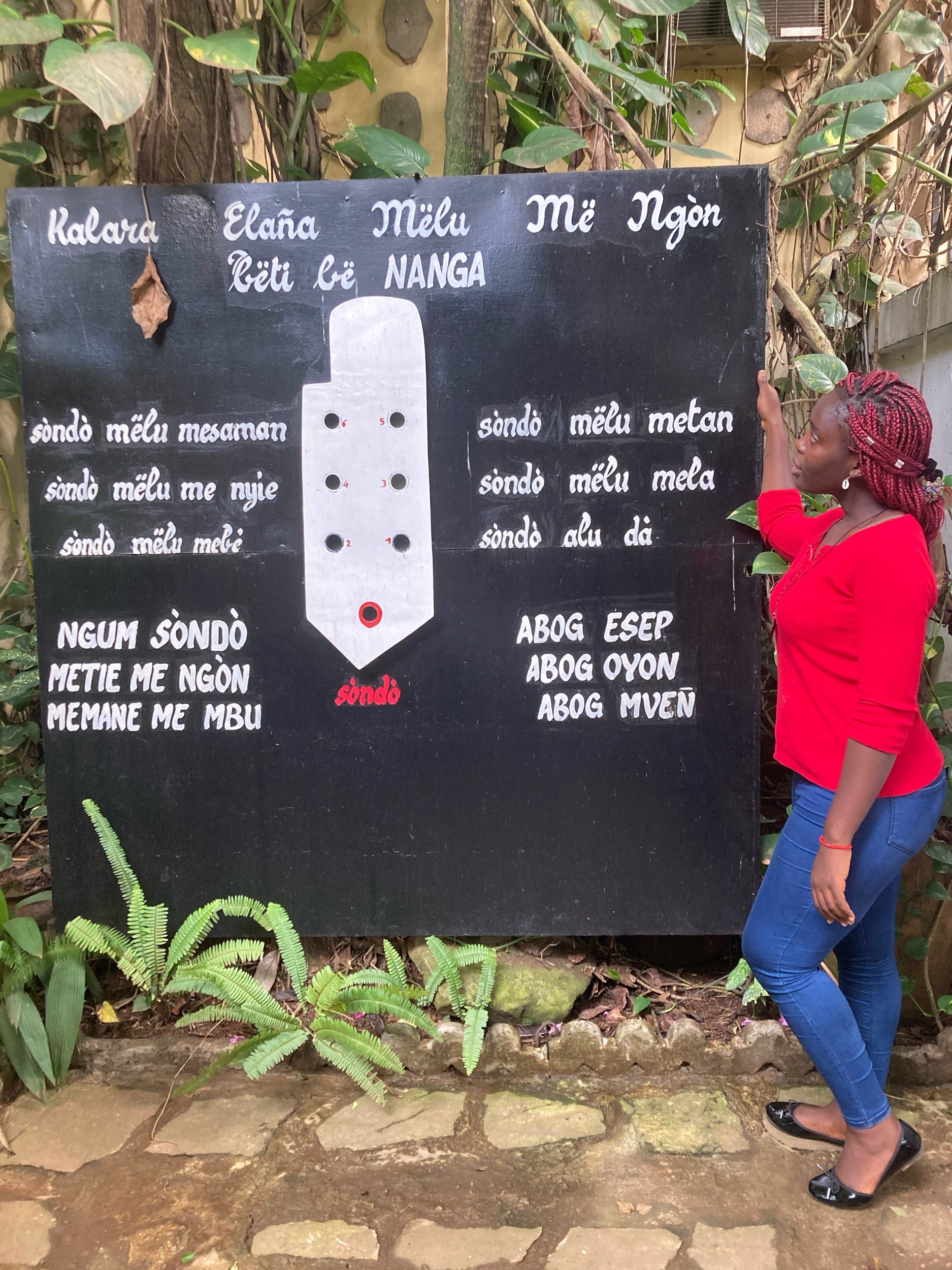
LEARNING ABOUT THE LORD AND HIS WIVES
The forest people are polygamous. According to a man’s vital essence, he can satisfy a woman, both materially, emotionally, and sexually. Because children, the continuation of the life force energy, are the purpose of the community.
For this video and the other “secret” videos, go to
SECRETS OF THE FOREST PEOPLE VIDEOS
Celebrating the 50 Year Anniversary of Amilcar Cabral's Meeting With African Americans, October 20, 1972
The Balanta B’urassa History and Genealogy Society in America organized events on two continents to commemorate the 50th Anniversary of Amilcar Cabral’s Meeting with African Americans in New York, October 20, 1972 in which he gave the speech, “Connecting the Struggles: An Informal talk with Black Americans”.
Watch the Premiere at 7:00 PM EST on October 20
https://youtu.be/6_YREg6hbdo
On October 15, 1972, Amilcar Cabral addressed an audience at Lincoln University where he received the honorary doctorate degree. The address was entitled, Return to the Source (see below).
Amilcar Cabral addressing an audience at Lincoln University where he received the honorary doctorate during his last visit to the United States in October 1972. (AIS/Ray Lewis)
Amilcar Cabral then asked the Africa Information Service (AIS) to organise a small informal meeting at which he could speak with different black organisations. The AIS contacted approximately 30 organisations and on 20 October 1972, more than 120 people representing a wide range of black groups in America crowded into a small room to meet with Amilcar Cabral. At the meeting, the vitality, warmth and humour of Cabral the person became evident to those who had not met him before.
“At the period when the great exploitation of African men as slaves in the world appeared. . . . they decided to turn the archpelago into a storehouse for slaves. Folk taken from Africa, namely from Guine, were placed. . . as slaves. . . .There was constant resistance to this force. If the colonial force was acting in one direction, there was always our force which acted in the opposite direction.”
- Amilcar Cabral, Part 1: The Weapon of Theory - Party Principles and Political Practice: 4. Unity and struggle
Amilcar Cabral also said,
“FOR THE AFRICANS WHO FOR FIVE CENTURIES HAVE LIVED UNDER PORTUGUESE DOMINATION, PORTUGUESE COLONIALISM REPRESENTS A REIGN OF EVIL, AND WHERE EVIL REIGNS THERE IS NO PLACE FOR GOOD.” [ PART 1: THE WEAPON OF THEORY, PORTUGUESE COLONIAL DOMINATION]
“I am bringing to you - our African brothers and sisters of the United States - the fraternal salutations of our people in assuring you we are very conscious that all in this life concerning you also concerns us. If we do not always pronounce words that clearly show this, it doesn’t mean that we are not conscious of it. It is a reality and considering that the world is being made smaller each day all people are becoming conscious of this fact.
Naturally if you ask me between brothers (and sisters) and comrades what I prefer then if we are brothers it is not our fault or our responsibility. But if we are comrades, it is a political engagement. Naturally, we like our brothers (and sisters) but in our conception it is better to be a brother (or sister) and a comrade. We like our brothers very much, but we think that if we are brothers we have to realise the responsibility of this fact and take clear positions about our problems in order to see if beyond this condition of brothers and sisters, we are also comrades. This is very important for us.
We try to understand your situation in this country. You can be sure that we realise the difficulties you face, the problems you have and your feelings, your revolts, and also your hopes. We think that our fighting for Africa against colonialism and imperialism is a proof of understanding of your problem and also a contribution for the solution of your problems in the continent. Naturally the inverse is also true. All the achievements towards the solution of your problems here are real contributions to our own struggle. And we are very encouraged in our struggle by the fact that each day more of the African people born in America became conscious of their responsibilities to the struggle in Africa.
Does that mean you have to all leave here and go fight in Africa? We do not believe so. That is not being realistic in our opinion. History is a very strong chain. We have to accept the limits of history but not the limits imposed by the societies where we are living. There is a difference. We think that all you can do here to develop your own conditions in the sense of progress, in the sense of history and in the sense of our total realisation of your aspirations as human beings is a contribution for us. It is also a contribution for you to never forget that you are Africans.
Does that mean we are racists? No! We are not racists. We are fundamentally and deeply against any kind of racism. Even when people are subjected to racism we are against racism from those who have been oppressed by it. In our opinion - not from dreaming but from a deep analysis of the real condition of the existence of mankind and the division of societies - racism is a result of certain circumstances. It is not eternal in any latitude in the world. It is not the result of historical and economic conditions. And we cannot answer racism with racism. It is not possible. In our country, despite some racist manifestations by the Portuguese, we are not fighting against the Portuguese people or whites. We are fighting for the freedom of our people - to free our people and to allow them to be able to love any kind of human being. You cannot love when you are a slave. It is very difficult.
In combating racism we don’t make progress if we combat the people themselves. We have to combat the causes of racism. If a bandit comes into my house and I have a gun I cannot shoot the shadow of this bandit. I have to shoot the bandit. Many people lose energy and effort, and make sacrifices combating shadows. We have to combat the material reality that produces the shadow. If we cannot change the light that is one cause of the shadow, we can at least change the body. It is important to avoid confusion between the shadow and the body that projects the shadow. We are encouraged by the fact that each day more of our people, here and in Africa, realise this reality. This reinforces our confidence in our final victory.
The fact that you follow our struggle and are interested in our achievements is good for us. We base our struggle on the concrete realities of our country. We appreciate the experiences and achievements of other peoples and we study them. But revolution or national liberation struggle is like a dress which must be fitted to each individual’s body. Naturally, there are certain general or universal laws, even scientific laws for any condition, but the liberation struggle has to be developed according to the specific conditions of each country. This is fundamental.
The specific conditions to be considered include economic, cultural, social, political and even geographic conditions. The guerrilla manuals once told us that without mountains you cannot make guerrilla war. But in my country there are no mountains, only the people. In the economic field we committed an error. We began training our people to commit sabotage on the railroads. When they returned from their training we remembered that there were no railroads in our country. The Portuguese built them in Mozambique and Angola but not in our country.
There are other conditions to consider as well. You must consider the type of society in which you are fighting. Is it divided along horizontal or vertical lines? Some people tell us our struggle is the same as that of the Vietnamese people. It is similar, but it is not the same. The Vietnamese are a people that hundreds of years ago fought against foreign invaders like a nation. We are now forging our nation in the struggle. This is a big difference. It is difficult to imagine what a difference that makes. Vietnam is also a society with clear social structures with classes well defined. There is no national bourgeoisie in our country. A miserable petit bourgeoisie yes, but not a national bourgeoisie. These differences are very important.
Once I discussed politics with Eldridge Cleaver. He is a clever man, very intelligent. We agreed on many things but we disagreed on one thing. He told me your condition is a colonial condition. In certain aspects it seems to be, but it is not really a colonial condition. The colonial condition demands certain factors. One important factor is the continuity of territories. There are others, which you can see when you analyse. Many times we are confronted with a phenomenon that seem to be the same, but political activity demands that we be able to distinguish them. That is not to say that the aims are not the same. And, that is not to say that even some of the means cannot be the same. However, we must deeply analyse each situation to avoid loss of time and energy doing things that we are not to do and forgetting things that we have to do.
In our country we have been fighting for nearly 10 years. If we consider the changes achieved in that time, principally in the relationship between men and women, it has been more than 100 years. If we were only shooting bullets and shells, yes, 10 years is too much. But we were not only doing this. We were forging a nation during these years. How long did it take the European nations to be formed - 10 centuries from the middle ages to the renaissance. (Here in the United States you are still forging a nation - it is not yet completed, in my opinion. Several things have contributed to the forming and changing of this country, such as the Vietnam war, though unfortunately at the expense of the Vietnamese people. But you know the details of change in this country more than myself.)
Ten years ago, we were Fula, Mandjak, Mandinka, Balante, Pepel, and others. Now we are a nation of Guineans. Tribal divisions were one reason the Portuguese thought it would not be possible for us to fight. During these ten years we were making more and more changes, so that today we can see there is a new man and new woman, born with our new nation and because of our fight. This is because of our ability to fight as a nation.
Naturally, we are not defending the armed fight. Maybe I deceive people, but I am not a great defender of the armed fight. I am myself very conscious of the sacrifices demanded by the armed fight. It is a violence against even our own people. But it is not our invention - it is not our cool decision; it is the requirement of history. This is not the first fight in our country, and it is not Cabral who invented the struggle. We are following the example of our grandfathers who fought against Portuguese domination 50 years ago. Today’s fight is a continuation of the fight to defend our dignity, our right to have an identity - our own identity.
If it were possible to solve this problem without the armed fight - why not?! But while the armed fight demands sacrifices, it also has advantages. Like everything else in the world, it has two faces - one positive and the other negative - the problem is in the balance. For us now, it (the armed fight) is a good thing in our opinion, and our condition is a good thing because this armed fight helped us to accelerate the revolution of our people, to create a new situation that will facilitate our progress.
In these 10 years we liberated about three-fourths of the country and we were effectively controlling two-thirds of our country. We have much work to do, but we have our state, we have a strong political organisation, a developing administration, and we have created many services - always while facing the bombs of the Portuguese. That is to say, bombs used by the Portuguese, but made in the United States. In the military field we realised good things during these 10 years. We have our national army and our local militias. We have been able to receive a number of visitors - journalists, filmmakers, scientists, teachers, writers, government representatives, and others. We also received a very good report about the situation in our country.
However, through the armed fight, we realised other things more important than the size of the liberated regions or the capacity of our fighters, such as the irreversible change in the attitudes of our men. We have more sacrifices to make and more attitudes to overcome, but our people are now accustomed to this, and know that for freedom we must pay a price. What can we consider better than freedom? It is not possible - nothing compares with freedom. During the visit of the special mission of UN to our country, one of the official observers, while on a long march, asked a small boy if he ever got tired. The boy answered, ‘I can’t get tired - this is my country. Only the Portuguese soldiers get tired’.
Now we can accelerate the progress of the liberation of the rest of our country. Each day, we get more and better workers. Now we need more ammunition in order to give greater impact to our attacks against Portuguese positions. Instead of attacking with 80 shells, we have to attack with 800, if not 2,000, and we are preparing to do this. The situation is now better in the urban centres. We are dominating the urban centres in spite of the Portuguese occupation. Links with our underground organisation in these centers are very good, and we have decided to develop our action inside these centres. We told this on the radio to the Portuguese. We told all the people because the Portuguese cannot stop us. We told them before they would be afraid, and they are. They are even afraid of their shadows.
Another very positive aspect of our struggle, is the political situation on the Cape Verde Islands. Some days ago, there were riots between our people and the police. This is a sign that great developments are coming within the framework of our Islands.
We have taken all measures demanded by the struggle, in the political as well as the military field. With the general election just completed in the liberated region, we are now creating our National Assembly. Naturally we are not doing a National Assembly like the Congress you have here (USA) or the British parliament. All these are very important steps in accelerating the end of the colonial war in my country and for its total liberation.
We have decided to formally proclaim our state, and hope that our brothers and sisters here (USA), our brothers and sisters in Africa, and our friends all over the world, will take the necessary position of support for our initiatives in the political field. In an armed fight like ours, all the political aspects have been stressed. They are stressed naturally when you approach the end. It is a dialectical process. In the beginning the fight is political only, it is then followed by the transformation into the armed stage. Step by step, the political aspect returns but at a different level, the level of solution.
I am not going to develop these things further, I think it is better if you ask questions. We are very happy to be with you, our brothers and sisters. I tell you frankly, although it might hurt my visit to the UN; each day I feel myself that if I did not have to do what I have to do in my country, maybe I would come here to join you.
QUESTIONS AND ANSWERS
CABRAL: I am at your disposal for any kind of question; no secrets, or ceremonies or diplomacy with you.
QUESTION: I am from Mali. I don’t know how comfortable you will be with this question, but given the nature of the fight you have been leading, are you satisfied with the type of moral, political and military aid you have been receiving from other African countries?
CABRAL: First of all, let me say to my brother that I am comfortable with any kind of question - there is no problem. Second, when one is in a condition that he has to receive aid, he is never satisfied. The condition of people who are obliged by circumstances to ask for and receive aid, is to never be satisfied. If you are satisfied it is finished, you don’t need aid. Third, we have to also consider the situation of the people who are helping us. You know the political and economic circumstances conditioning the attitudes of the African countries. It’s true the past decade of the 1960s was a great achievement for Africa - the independence of Africa. But we are not of this tree of independence of Africa. We must take our independence with force and our position is to never ask for the aid we need. We let each people give us aid as they can, and we never accept conditions with aid. If you give us aid like this, we are satisfied. If you can give more, we are more satisfied.
I have said to African heads of state many times that the aid from Africa is very useful, but not sufficient. We believe that they could do better, and so do they. Last June in the Rabat summit meetings (of the OAU) they agreed to increase their aid by 50 per cent. Why didn’t they do this before? We know that they had not only financial and economic difficulties, but political difficulties as well. In some cases, the difficulty was a lack of consciousness about the importance of this problem. But each day they are realising more and maybe when they fully realise the importance of this problem we will all be independent.
QUESTION: I would like to know what forward thrust your country would have in the absence of NATO support, that this country gives, and what the arguments are that the US offers for its participation in NATO which we all know is the conduit which supplies the Portuguese with their arms? This is something that we can take immediate political action on.
CABRAL: You see, Portugal is an underdeveloped country - the most backward in Western Europe. It is a country that doesn’t produce even toy planes - this is not a joke, it’s true. Portugal would never be able to launch three colonial wars in Africa without the help of NATO, the weapons of NATO, the planes of NATO, the bombs of NATO - it would be impossible for them. This is not a matter for discussion. The Americans know it, the British know it, the French know it very well, the West Germans also know it, and the Portuguese know it very well.
We cannot talk of American participation in NATO, because NATO is the creation of the United States. Once I came here to the US and I was invited to lunch by the representative of the US on the United Nations’ Fourth Committee. He was also the deputy chief of the US delegation to the UN. I told him we are fighting against Portuguese colonialism, and not asking for the destruction of NATO. We don’t think it is necessary to destroy NATO in order to free our country. But why is the US opposing this? He told me that he did not agree with this policy (US support of NATO) but that there is a problem of world security and in the opinion of his government it is necessary to give aid to Portugal in exchange for use of the Azores as a military base. Acceptance of Portuguese policy is necessary for America’s global strategy, he explained.
I think he was telling me the truth, but only part of the truth because the US supports Portugal in order to continue the domination of Africa, if not over other parts of the world. I must clarify that this man left his position in the UN and during his debate in the US Congress took a clear position favourable to ours and asked many times for aid to Portugal to be stopped, but the government didn’t accept.
What is the justification for this? There is no justification - no justification at all. It is US imperialism. Portugal is an appendage of imperialism, a rotten appendage of imperialism. You know that Portugal is a semi-colony itself. Since 1775 Portugal has been a semi-colony of Britain. This is the only reason that Portugal was able to preserve the colonies during the partition of Africa. How could this poor miserable country preserve the colonies during the partition of Africa? How could this poor miserable country preserve the colonies in the face of the ambitions and jealousies of Germany, France, England, Belgium, and the emerging American imperialism? It was because England adopted a tactic. It said - Portugal is my colony, if it preserves colonies they are also my colonies - and England defended the interests of Portugal with force. But now it is not the same. Angola is not really a Portuguese colony. Mozambique is not really a Portuguese colony. You can see the statistics. More than 60 per cent of the principal exports of Angola are not for Portugal. Approximately the same percentage of the investments in Angola and Mozambique are not Portuguese, and each day this is increasing. Guinea and Cape Verde are very poor and do not have very good climates. They are the only Portuguese colonies. Portugal is, principally for Angola and Mozambique, the policeman and the receiver of taxes. But they will not tell you this.
QUESTION: My question concerns the basis of law you are using in your country. Are you using the laws of the Portuguese in terms of the National Assembly? What kinds of criteria are you going to use?
CABRAL: If Portugal had created in my country an Assembly, we would not create one ourselves. We don’t accept any institution of the Portuguese colonialists. We are not interested in the preservation of any of the structures of the colonial state. It is our opinion that it is necessary to totally destroy, to break, to reduce to ash all aspects of the colonial state in our country in order to make everything possible for our people. The masses realise that this is true, in order to convince everyone we are really finished with colonial domination in our country.
Some independent African states preserved the structures of the colonial state. In some countries they only replaced a white man with a black man, but for the people it is the same. You have to realise that it is very difficult for the people to make a distinction between one Portuguese, or white, administrator and one black administrator. For the people it is the administrator that is fundamental. And the principle - if this administrator, a black one is living in the same house, with the same gestures, with the same car, or sometimes a better one, what is the difference? The nature of the state we want to create in our country is a very good question for it is a fundamental one.
Our fortune is that we are creating the state through the struggle. We now have popular tribunals - people’s courts - in our country. We cannot create a judicial system like the Portuguese in our country because it was a colonial one, nor can we make a copy of the judicial system in Portugal - it is impossible. Through our struggle we created our courts and the peasants participate by electing the courts themselves. Ours is a new judicial system, totally different from any other system, born in our country through the struggle. It is similar to other systems, like the one in Vietnam, but it is also different because it corresponds to the conditions of our country.
If you really want to know the feelings of our people on this matter I can tell you that our government and all its institutions have to take another nature. For example, we must not use the houses occupied by the colonial power in the way they used them. I proposed to our party that the government palace in Bissau be transformed into a people’s house for culture, not for our prime minister or something like this (I don’t believe we will have prime ministers anyway). This is to let the people realise that they conquered colonialism - it’s finished this time - it’s only a question of a change of skin. This is really very important. It is the most important problem in the liberation movement. The problem of the nature of the state created after independence is perhaps the secret of the failure of African independence.
QUESTION: Looking at Africa geographically, where does the African Party for the Independence of Guinea and Cape Verde Islands (PAIGC) get most of its support, North Africa, or Sub-Saharan Africa, and in a broader sense, how does support from Russia and China compare?
CABRAL: We don’t like this division of Africa. We have the support of the OAU for some years now. We have the total support of OAU. All African countries support PAIGC, no exceptions of any voice against us. And through the OAU, the liberation committee gives us financial help. There are some African countries, maybe not more than the fingers on the hand, that help us directly also. With them we have bilateral relations. Some are in the north, others in the west, and others in the east.
About China and the Soviet Union, we always had the support of the socialist countries - moral, political and material. Some have given more material support than others. Until now the country that has helped us most is the Soviet Union, and we have said it many times before at all kinds of meetings. Until now they’ve helped us the most in supplying materials for the war. If you want to verify this you can come to my country and see. This is the situation.
QUESTION: My question is about the role of women. What is the nature of the transformation from the old system under imperialism?
CABRAL: In our country you find many societies with different traditions and rules on the role of women. For example, in the Fula society a woman is like a piece of property of the man, the owner of the home. This is a typical patriarchal society. But even there women have dignity, and if you enter the house you would see that inside the house, the woman is the chief. On the other hand, in Balante society women have more freedom.
To understand these differences you have to know that in Fula society all that is produced belongs to the father. In Balante society all that is produced belongs to the people that work and women work very hard so they are free. It is very simple. But the problem is about the political role in the fight. You know that in our country there were even matriarchal societies where women were the most important element. On the Bijagos Islands they had queens. They were not queens because they were the daughters of kings. They had queens succeeding queens. The religious leaders were women too. Now they are changing.
I tell you these things so that you can understand our society better. But during the fight the important thing is the political role of women. Yes, we have made great achievements, but not enough. We are very far from what we want to do, but this is not a problem that can be solved by Cabral signing a decree. It is all part of the process of transformation, of change in the material conditions of the existence of our people, but also in the minds of the women, because sometimes the greatest difficulty is not only in the men but in the women too.
We have a big problem with our nurses, because we trained about three hundred nurses – women – but they married, they get children and for them it’s finished. This is very bad. For some this doesn’t happen. Carmen Pereira, for instance, is a nurse, and she is a member of the high political staff of the party. She is responsible for all social and cultural problems in the southern liberated region. She’s a member of the executive committee of the party. There are many others too, trained not only in the country but in the exterior also, in foreign countries. But we have much work to do.
In the beginning of the struggle, when we launched the guerrilla struggle, young women came without being called and asked for weapons to fight, hundreds and hundreds. But step-by-step some problems came in this framework and we had to distribute, to partition the war. Today, women are principally in what you call the local armed forces and in the political war - working on health problems, and instruction also.
I hope we can send some of our women here so you will be able to know them. But we have big problems to solve and we have a great problem with some of the leaders of the party. We have (even myself) to combat ourselves on this problem, because we have to be able to cut this cultural element, with its great roots, until the day we put down this bad thing - the exploitation of women, but we have made great progress in this field in these 10 years.
QUESTION: Comrade Cabral, you spoke about universal scientific laws of revolution. It is very clear that in this country, we too, are engaged in some stage of development of a revolutionary struggle. Certainly, one of the most controversial aspects of our struggle is the grasp of these scientific universal laws. Would you, therefore, talk about your party’s understanding of revolutionary theory, particularly as related to Cuba, China, the Soviet Union, and the anti-colonial wars of national liberation? So I wonder, would you speak on this problem?
CABRAL: You see, I think that all kinds of struggles for liberation obey a group of laws. The application of these laws to a certain case depends on the nature of the case. Maybe all these laws are applicable, but maybe only some, it depends. In science you know water boils at 100 degrees centigrade. It’s a law. Naturally, with the condition that we are speaking in centigrade degrees, this is a specification. What does it mean if we are measuring Fahrenheit - it’s not the same. And it is also only at sea level. When you go into the mountains this law is not true. It is sometimes more complex.
It’s the same in the field of the scientific character of the liberation struggle. Cuba, Soviet Union, China, Vietnam, and so on. Sometimes you can even explain conflicts between their people because of the different nature of their struggle, dictated by the different conditions of the countries - historical, economical, and so on.
I have to tell you that when we began preparing for our struggle in our own country, we didn’t know Mao Tse-tung. The first time I faced a book of Mao Tse-tung was in 1960. Our party was created in 1956. We knew less about the struggle of Cuba, but later we tried to know the experiences of other peoples. Some experiences we put aside because the difference was so great that it would waste time to study them. We think the experiences of other people are very important for you, principally to know things you should not do. Because what you do in your country you have to create yourself.
The general laws are very simple. For instance, the development of the armed fight in a country characterised by agriculture where most, if not all, of the population are peasants means you have to do to the struggle as in China, in Vietnam or in my country. Maybe you begin in the towns, but you recognise that this is not good. You pass to the countryside and mobilise the peasants. You recognise that the peasants are very difficult to mobilise under certain conditions, but you launch the armed struggle and step-by-step you approach the towns in order to finish the colonists.
For instance, this is scientific: in the colonial war there is a contradiction. What is it? It is that the colonial power in order to really dominate the country has to disperse its forces. In dispersing its forces it becomes weak - the national forces can destroy them. As you begin to destroy them they are obliged to concentrate, but when they concentrate they leave areas of the country you can control, administer and create structures in. You can tell me its not possible in the US, the US is not an agricultural country like this. But if you study deeply the conditions in your country maybe you will find that the law is applicable. This is what I can tell you because it is a big problem.
QUESTION (continued): I’d like to rephrase part of it. What I am trying to get at is how, in setting up a cadre training school that you set up in Conakry, did you access the revolutionary experiences of countries I mentioned? The point I am trying to drive at is not the form of waging a revolutionary struggle. I understand the differences in concrete conditions. I want to know how one moves through a colonial or a semi-feudal conditions into socialism (clearly the dominant revolutionary experience in the world). How were you able to set up a training program in which cadres were exposed to this information?
CABRAL: In the beginning we established in Conakry what you call a political school of militants. About one thousand people came from our country by groups. We first asked: Who we are? Where are we? What do we want? How do we live? What is our enemy? Who is this enemy? What can he do against us? What is our country? Where is our country? We asked things like this, step-by-step explaining our real conditions and explaining what we want, why we want it and why we have to fight against the Portuguese. Among all of these people some, step-by-step, approached other experiences. But the problem of going from a feudal or semi-feudal society or tribal society to socialism is a very big problem, even from capitalism to socialism.
If there are Marxists here they know that Marx said that capitalism created all the conditions for socialism. The conditions were created but never passed. Even then it is very difficult. This is even more reason for the feudal or semi-feudal tribal societies to jump to socialism - but it’s not a problem of jumping. It’s a process of development. You have to establish political aims based on your own condition, the ideological content of the fight. To have an ideology doesn’t necessarily mean that you have to define whether you are communist, socialist, or something like this. To have an ideology is to know what you want in your own condition.
We want in our country this: to have no more exploitation of our people, not by white people or by black people. We don’t want any more exploitation. It is in this way we educate our people - the masses, the cadres, the militants. For that we are taking, step-by-step, all the measures necessary to avoid this exploitation. How? We give to our people the instrument of control, the people to lead. And we give to our people all possibility to participate more actively each day in the direction of their own life.
Naturally, if an American comes he may say you are doing socialism in your country. This is a responsibility for him. We are not preoccupied with labels, you see. We are occupied in the content of the thing, what we are doing, how we are doing it, what chances are we creating for realising this aim. There are some societies that passed from feudal or semi-feudal stages to being socialist societies. But one of their specifics was having a state imposing this passage. We do not have this. We have to create for ourselves the instruments of the state inside our country, in the conditions of our history, in order to orientate all to a life of justice, work for progress and equality. Equality of chance for all people is the problem. The problem of equality is equality of chance. This is what I can tell you. This is a big discussion, philosophical if you want something like this.
QUESTION: What direct relationship does the OAU have with your party? You mentioned the OAU several times and I heard some things about the OAU, but I wanted to know whether or not it has been helpful to you, and if it has, in what ways?
CABRAL: Yes, they are good relations. Now we can even tell that we are nearly members of the OAU, because at the last summit conference in Rabat, they admitted the recognised liberation movements, like my party, to participate in the debate concerning their own cases. The relations are very good. We have the help of the OAU - not enough we think, but they are trying to increase this help and we think that in our own case, maybe next year, we will be a member, a full member of the OAU.
QUESTION (continued): Why? Do you see it as the organisation for Africa?
CABRAL: A real organisation for Africa? It depends. Now at this stage of the revolution in Africa, the OAU is a very good thing. It is such a good thing that imperialism is doing its best to finish it. Naturally, maybe for your ideas the OAU doesn’t answer well, doesn’t fully correspond to your hopes. Maybe you are right, but this is not the problem. In the political field, you have to know at each stage if you are doing the possible or not, and preparing the field for the possible for tomorrow or not. This is the problem.
QUESTION (continued): Yes, but how was it created and how is it being supported?
CABRAL: Oh, that’s a very big matter. You don’t know how it was created? They met in May 1963 in Addis Ababa, and they established a charter.
QUESTION (continued): Who is supporting this organisation?
CABRAL: Who is supporting it? The states - the African states? Yes, the African states. The imperialists - no, you are not right. You are not right, my sister. We can tell that some of the African states (interrupted)
QUESTION: (continued): If there is such an organisation why are we still where we are? It is just the leaders that elect to go there, not the kind of people like yourself, who are coming down to the masses and speaking the truth. These are neo-colonial leaders.
CABRAL: No. But that is not the problem. You are confused. You are making a mistake. One problem is the problem of the OAU. The OAU is an organisation of African states, it’s true. Are imperialists supporting the OAU? On the contrary, they do their best not to because there is a potential danger for them. The other problem is: are these African states all really independent? Some of them are neo-colonialist, but you have to distinguish this thing in order to do something. If you confuse all - it’s not possible.
QUESTION: (continued): But brother, why is it that each time the question of Pan-Africanism is brought to the discussion most of them take different views?
CABRAL: Oh, yes. You see you cannot demand all the African states to agree immediately on Pan-Africanism. Even if we discuss Pan-Africanism you would be surprised. I am for Pan-Africanism. I am for African unity. But we have to be for these things and do them when possible, not to do it now. You see, my sister, you here in the US, we understand you. You are for Pan-Africanism and you want it today. Pan-Africanism now! We are in Africa; don’t confuse this reaction against Pan-Africanism with the situation of the OAU. I can tell you, the head of state in Africa I admired the most in my life was Nkrumah.
QUESTION (continued): He was the only one. He was the father.
CABRAL: Nkrumah was not the father of Pan-Africanism. An American, Du Bois, was the father, if you want. Pan-Africanism is a means to return to the source. You see, it’s a very big problem. It’s not like this. Nkrumah told me in Conakry - unfortunately he is not alive, but I am not lying, I never lied in my life, he was one of my best friends, I’ll never forget him and you can read my speech at his memorial - you see he told me, ‘Cabral, I tell you one thing, our problem of African unity is important, really, but now if I had to begin again, my approach would be different.’
Unfortunately, I am leaving, but if I would like very much to speak with you in order to show you Pan-Africanism is a very nice idea; but we have to work for it, and it is not for me to accuse Houphouet-Boigny or Mobuto, because they don’t want it. They cannot want it! It is more difficult for some heads of state in Africa to accept African unity as defined by Nkrumah than it is for them to come here to the most racist of the white racists and tell them to accept equal rights for all Africa. You see, more difficult. It’s a great problem, my sister. And we think on this problem every day because our future concerns that.
We have a meeting at half past seven with the chairman of the decolonisation committee. We have to go there. It is about 20 minutes from here. I am late.
QUESTION: When will we see you again?
CABRAL: Again? I never know. It is difficult for me, but I hope in two years. Also for some of you, if you want, you can come to my country and see me and see our people.
QUESTION: How?
CABRAL: By paying the fare. (laughter)
QUESTION: What are some of the specific financial and political things we can do to further the struggle?
CABRAL: Personally I don’t agree with this question. I think that this meeting is a meeting of brothers and sisters. You represent several organisations. I am very glad because we want your unity. We know it’s very difficult - it’s more difficult to make your unity than Pan-Africanism maybe. But we would like you to consider this meeting a meeting between brothers and sisters trying to reinforce not only our links in blood, and in history, but also in aims. I am very glad to have been here with you and I deeply regret that it is not possible to be with you longer. Thank you very much.” BROUGHT TO YOU BY PAMBAZUKA NEWS
History Is A Weapon:
National Liberation and Culture
This text was originally delivered on February 20, 1970; as part of the Eduardo Mondlane (1) Memorial Lecture Series at Syracuse University, Syracuse, New York, under the auspices of The Program of Eastern African Studies. It was translated from the French by Maureen Webster.
”When Goebbels, the brain behind Nazi propaganda, heard culture being discussed, he brought out his revolver. That shows that the Nazis, who were and are the most tragic expression of imperialism and of its thirst for domination--even if they were all degenerates like Hitler, had a clear idea of the value of culture as a factor of resistance to foreign domination.
History teaches us that, in certain circumstances, it is very easy for the foreigner to impose his domination on a people. But it also teaches us that, whatever may be the material aspects of this domination, it can be maintained only by the permanent, organized repression of the cultural life of the people concerned. Implantation of foreign domination can be assured definitively only by physical liquidation of a significant part of the dominated population.
In fact, to take up arms to dominate a people is, above all, to take up arms to destroy, or at least to neutralize, to paralyze, its cultural life. For, with a strong indigenous cultural life, foreign domination cannot be sure of its perpetuation. At any moment, depending on internal and external factors determining the evolution of the society in question, cultural resistance (indestructible) may take on new forms (political, economic, armed) in order fully to contest foreign domination.
The ideal for foreign domination, whether imperialist or not, would be to choose:
either to liquidate practically all the population of the dominated country, thereby eliminating the possibilities for cultural resistance;
or to succeed in imposing itself without damage to the culture of the dominated people--that is, to harmonize economic and political domination of these people with their cultural personality.
The first hypothesis implies genocide of the indigenous population and creates a void which empties foreign domination of its content and its object: the dominated people. The second hypothesis has not, until now, been confirmed by history. The broad experience of mankind allows us to postulate that it has no practical viability: it is not possible to harmonize the economic and political domination of a people, whatever may be the degree of their social development, with the preservation of their cultural personality.
In order to escape this choice--which may be called the dilemma of cultural resistance--imperialist colonial domination has tried to create theories which, in fact, are only gross formulations of racism, and which, in practice, are translated into a permanent state of siege of the indigenous populations on the basis of racist dictatorship (or democracy).
This, for example, is the case with the so-called theory of progressive assimilation of native populations, which turns out to be only a more or less violent attempt to deny the culture of the people in question. The utter failure of this "theory," implemented in practice by several colonial powers, including Portugal, is the most obvious proof of its lack of viability, if not of its inhuman character. It attains the highest degree of absurdity in the Portuguese case, where Salazar affirmed that Africa does not exist.
This is also the case with the so-called theory of apartheid, created, applied and developed on the basis of the economic and political domination of the people of Southern Africa by a racist minority, with all the outrageous crimes against humanity which that involves. The practice of apartheid takes the form of unrestrained exploitation of the labor force of the African masses, incarcerated and repressed in the largest concentration camp mankind has ever known.
These practical examples give a measure of the drama of foreign imperialist domination as it confronts the cultural reality of the dominated people. They also suggest the strong, dependent and reciprocal relationships existing between the cultural situation and the economic (and political) situation in the behavior of human societies. In fact, culture is always in the life of a society (open or closed), the more or less conscious result of the economic and political activities of that society, the more or less dynamic expression of the kinds of relationships which prevail in that society, on the one hand between man (considered individually or collectively) and nature, and, on the other hand, among individuals, groups of individuals, social strata or classes.
The value of culture as an element of resistance to foreign domination lies in the fact that culture is the vigorous manifestation on the ideological or idealist plane of the physical and historical reality of the society that is dominated or to be dominated. Culture is simultaneously the fruit of a people’s history and a determinant of history, by the positive or negative influence which it exerts on the evolution of relationships between man and his environment, among men or groups of men within a society, as well as among different societies. Ignorance of this fact may explain the failure of several attempts at foreign domination--as well as the failure of some international liberation movements.
Let us examine the nature of national liberation. We shall consider this historical phenomenon in its contemporary context, that is, national liberation in opposition to imperialist domination. The latter is, as we know, distinct both in form and in content from preceding types of foreign domination (tribal, military-aristocratic, feudal, and capitalist domination in time free competition era).
The principal characteristic, common to every kind of imperialist domination, is the negation of the historical process of the dominated people by means of violently usurping the free operation of the process of development of the productive forces. Now, in any given society, the level of development of the productive forces and the system for social utilization of these forces (the ownership system) determine the mode of production. In our opinion, the mode of production whose contradictions are manifested with more or less intensity through the class struggle, is the principal factor in the history of any human group, the level of the productive forces being the true and permanent driving power of history.
For every society, for every group of people, considered as an evolving entity, the level of the productive forces indicates the stage of development of the society and of each of its components in relation to nature, its capacity to act or to react consciously in relation to nature. It indicates and conditions the type of material relationships (expressed objectively or subjectively) which exists among the various elements or groups constituting the society in question. Relationships and types of relationships between man and nature, between man and his environment. Relationships and type of relationships among the individual or collective components of a society. To speak of these is to speak of history, but it is also to speak of culture.
Whatever may be the ideological or idealistic characteristics of cultural expression, culture is an essential element of the history of a people. Culture is, perhaps, the product of this history just as the flower is the product of a plant. Like history, or because it is history, culture has as its material base the level of the productive forces and the mode of production. Culture plunges its roots into the physical reality of the environmental humus in which it develops, and it reflects the organic nature of the society, which may be more or less influenced by external factors. History allows us to know the nature and extent of the imbalance and conflicts (economic, political and social) which characterize the evolution of a society; culture allows us to know the dynamic syntheses which have been developed and established by social conscience to resolve these conflicts at each stage of its evolution, in the search for survival and progress.
Just as happens with the flower in a plant, in culture there lies the capacity (or the responsibility) for forming and fertilizing the seedling which will assure the continuity of history, at the same time assuring the prospects for evolution and progress of the society in question. Thus it is understood that imperialist domination by denying the historical development of the dominated people, necessarily also denies their cultural development. It is also understood why imperialist domination, like all other foreign domination for its own security, requires cultural oppression and the attempt at direct or indirect liquidation of the essential elements of the culture of the dominated people.
The study of the history of national liberation struggles shows that generally these struggles are preceded by an increase in expression of culture, consolidated progressively into a successful or unsuccessful attempt to affirm the cultural personality of the dominated people, as a means of negating the oppressor culture. Whatever may be the conditions of a people's political and social factors in practicing this domination, it is generally within the culture that we find the seed of opposition, which leads to the structuring and development of the liberation movement.
In our opinion, the foundation for national liberation rests in the inalienable right of every people to have their own history whatever formulations may be adopted at the level of international law. The objective of national liberation, is therefore, to reclaim the right, usurped by imperialist domination, namely: the liberation of the process of development of national productive forces. Therefore, national liberation takes place when, and only when, national productive forces are completely free of all kinds of foreign domination. The liberation of productive forces and consequently the ability to determine the mode of production most appropriate to the evolution of the liberated people, necessarily opens up new prospects for the cultural development of the society in question, by returning to that society all its capacity to create progress.
A people who free themselves from foreign domination will be free culturally only if, without complexes and without underestimating the importance of positive accretions from the oppressor and other cultures, they return to the upward paths of their own culture, which is nourished by the living reality of its environment, and which negates both harmful influences and any kind of subjection to foreign culture. Thus, it may be seen that if imperialist domination has the vital need to practice culturaloppression, national liberation is necessarily an act of culture.
On the basis of what has just been said, we may consider the national liberation movement as the organized political expression of the culture of the people who are undertaking the struggle. For this reason, those who lead the movement must have a clear idea of the value of the culture in the framework of the struggle and must have a thorough knowledge of the people's culture, whatever may be their level of economic development.
In our time it is common to affirm that all peoples have a culture. The time is past when, in an effort to perpetuate the domination of a people, culture was considered an attribute of privileged peoples or nations, and when, out of either ignorance or malice, culture was confused with technical power, if not with skin color or the shape of one's eyes. The liberation movement, as representative and defender of the culture of the people, must be conscious of the fact that, whatever may be the material conditions of the society it represents, the society is the bearer and creator of culture. The liberation movement must furthermore embody the mass character, the popular character of the culture--which is not and never could be the privilege of one or of some sectors of the society.
In the thorough analysis of social structure which every liberation movement should be capable of making in relation to the imperative of the struggle, the cultural characteristics of each group in society have a place of prime importance. For, while the culture has a mass character, it is not uniform, it is not equally developed in all sectors of society. The attitude of each social group toward the liberation struggle is dictated by its social group toward the liberation struggle is dictated by its economic interests, but is also influenced profoundly by its culture. It may even be admitted that these differences in cultural level explain differences in behavior toward the liberation movement on the part of individuals who belong to the same socio-economic group. It is at the point that culture reaches its full significance for each individual: understanding and integration in to his environment, identification with fundamental problems and aspirations of the society, acceptance of the possibility of change in the direction of progress.
In the specific conditions of our country--and we would say, of Africa--the horizontal and vertical distribution of levels of culture is somewhat complex. In fact, from villages to towns, from one ethnic group to another, from one age group to another, from the peasant to the workman or to the indigenous intellectual who is more or less assimilated, and, as we have said, even from individual to individual within the same social group, the quantitative and qualitative level of culture varies significantly. It is of prime importance for the liberation movement to take these facts into consideration.
In societies with a horizontal social structure, such as the Balante, for example, the distribution of cultural levels is more or less uniform, variations being linked uniquely to characteristics of individuals or of age groups. On the other hand, in societies with a vertical structure, such as the Fula, there are important variations from the top to the bottom of the social pyramid. These differences in social structure illustrate once more the close relationship between culture and economy, and also explain differences in the general or sectoral behavior of these two ethnic groups in relation to the liberation movement.
It is true that the multiplicity of social and ethnic groups complicates the effort to determine the role of culture in the liberation movement. But it is vital not to lose sight of the decisive importance of the liberation struggle, even when class structure is to appear to be in embryonic stages of development.
The experience of colonial domination shows that, in the effort to perpetuate exploitation, the colonizers not only creates a system to repress the cultural life of the colonized people; he also provokes and develops the cultural alienation of a part of the population, either by so-called assimilation of indigenous people, or by creating a social gap between the indigenous elites and the popular masses. As a result of this process of dividing or of deepening the divisions in the society, it happens that a considerable part of the population, notably the urban or peasant petite bourgeoisie, assimilates the colonizer's mentality, considers itself culturally superior to its own people and ignores or looks down upon their cultural values. This situation, characteristic of the majority of colonized intellectuals, is consolidated by increases in the social privileges of the assimilated or alienated group with direct implications for the behavior of individuals in this group in relation to the liberation movement. A reconversion of minds--of mental set--is thus indispensable to the true integration of people into the liberation movement. Such reonversion--re-Africanization, in our case--may take place before the struggle, but it is completed only during the course of the struggle, through daily contact with the popular masses in the communion of sacrifice required by the struggle.
However, we must take into account the fact that, faced with the prospect of political independence, the ambition and opportunism from which the liberation movement generally suffers may bring into the struggle unconverted individuals. The latter, on the basis of their level of schooling, their scientific or technical knowledge, but without losing any of their social class biases, may attain the highest positions in the liberation movement. Vigilance is thus indispensable on the cultural as well as the political plane. For, in the liberation movement as elsewhere, all that glitters is not necessarily gold: political leaders--even the most famous--may be culturally alienated people. But the social class characteristics of the culture are even more discernible in the behavior of privileged groups in rural areas, especially in the case of ethnic groups with a vertical social structure, where, nevertheless, assimilation or cultural alienation influences are non-existent or practically non-existent. This is the case, for example, with the Fula ruling class. Under colonial domination, the political authority of this class (traditional chiefs, noble families, religious leaders) is purely nominal, and the popular masses know that true authority lies with an is acted upon by colonial administrators. However, the ruling class preserves in essence its basic cultural authority over the masses and this has very important political implications.
Recognizing this reality, the colonizer who represses or inhibits significant cultural activity on the part of the masses at the base of the social pyramid, strengthens and protects the prestige and the cultural influence of the ruling class at the summit. The colonizer installs chiefs who support him and who are to some degree accepted by the masses; he gives these chiefs material privileges such as education for their eldest children, creates chiefdoms where they did not exist before, develops cordial relations with religious leaders, builds mosques, organizes journeys to Mecca, etc. And above all, by means of the repressive organs of colonial administration, he guarantees economic and social privileges to the ruling class in their relations with the masses. All this does not make it impossible that, among these ruling classes, there may be individuals or groups of individuals who join the liberation movement, although less frequently than in the case of the assimilated "petite bourgeoisie." Several traditional and religious leaders join the struggle at the very beginning or during its development, making an enthusiastic contribution to the cause of liberation.
But here again vigilance is indispensable: preserving deep down the cultural prejudices of their class, individuals in this category generally see in the liberation movement the only valid means, using the sacrifices of the masses, to eliminate colonial oppression of their own class and to re-establish in this way their complete political and cultural domination of the people.
In the general framework of contesting colonial imperialist domination and in the actual situation to which we refer, among the oppressor's most loyal allies are found some high officials and intellectuals of the liberal professions, assimilated people, and also a significant number of representatives of the ruling class from rural areas. This fact gives some measure of the influence (positive or negative) of culture and cultural prejudices in the problem of political choice when one is confronted with the liberation movement. It also illustrates the limits of this influence and the supremacy of the class factor in the behavior of the different social groups. The high official or the assimilated intellectual, characterized by total cultural alienation, identifies himself by political choice with the traditional or religious leader who has experienced no significant foreign cultural influences.
For these two categories of people place above all principles our demands of a cultural nature--and against the aspirations of the people--their own economic and social privileges, their own class interests. That is a truth which the liberation movement cannot afford to ignore without risking betrayal of the economic, political, social and cultural objectives of the struggle.
Without minimizing the positive contribution which privileged classes may bring to the struggle, the liberation movement must, on the cultural level just as on the political level, base its action in popular culture, whatever may be the diversity of levels of cultures in the country. The cultural combat against colonial domination--the first phase of the liberation movement--can be planned efficiently only on the basis of the culture of the rural and urban working masses, including the nationalist (revolutionary) "petite bourgeoisie" who have been re-Africanized or who are ready for cultural reconversion. Whatever may be the complexity of this basic cultural panorama, the liberation movement must be capable of distinguishing within it the essential from the secondary, the positive from the negative, the progressive from the reactionary in order to characterize the master line which defines progressively a national culture.
In order for culture to play the important role which falls to it in the framework of the liberation movement, the movement must be able to preserve the positive cultural values of every well defined social group, of every category, and to achieve the confluence of these values in the service of the struggle, giving it a new dimension--the national dimension. Confronted with such a necessity, the liberation struggle is, above all, a struggle both for the preservation and survival of the cultural values of the people and for the harmonization and development of these values within a national framework.’
ENDNOTES:
1. Eduardo Mondlane, was the first President of the Mozambique Liberation Front (FRELIMO). He was assassinated by Portuguese agents on Feb. 3, 1960.
We are African peoples. We have our own hearts, our own heads, our own history. It is this history which the colonialists have taken from us. Today, in taking up arms to liberate ourselves, we want to return to our history, on our own feet, by our own means and through our own sacrifices. African Party for the Independence of Guidean and Cabo Verde (PAIGC) - Chicago Committee for the Liberation of Angola, Mozambique and Guinea
Linking the struggles: Amilcar Cabral and his impact and legacy in the black liberation movement
Kali Akuno, Jan 22, 2014
“Of all the African political leaders none have made more profound theoretical and strategic contributions to the advancement of the black liberation movement than Amilcar Cabral. As long as capitalism, colonialism, white supremacy, patriarchy, imperialism, and neo-colonialism exist as forces that exploit and oppress African (and all) people, Cabral’s insights and analysis will always have relevance
‘Keep always in mind that the people are not fighting for ideas, for the things in anyone’s head. They are fighting…..for material benefits, to live better and in peace, to see their lives go forward, to guarantee the future of their children. National Liberation, War on Colonialism, building of peace and progress – independence – all that will remain meaningless for the people unless it brings a real improvement in the conditions of life.” Amilcar Cabral, from “Destroy the economy of the enemy and build our own economy’, 1965.[1]
Since the close of the Fifth Pan-African Congress in Manchester, England and the end of the second great inter-imperialist war (better known as World War II) in 1945, the radical-wing of the Black Liberation Movement in the United States (US) has been inspired by and drawn many lessons from its reciprocal interactions with the national and social liberation movements of Africa (primarily from 1945 through 1994) and the Diaspora (particularly those of the Caribbean).
The Black Liberation Movement or BLM is the historic movement of people of African descent within the territories now occupied and claimed by the settler-colonial government of the United States for self-determination and social liberation in three primary (and often mutually inclusive) forms[2]:
• Repatriation back to Africa
• The creation of a sovereign, independent national-state for Black or New Afrikan people in the southeastern portion of what is presently the United States
• The socialist and/or anti-capitalist transformation of the United States by an anti-racist, anti-imperialist multi-national alliance
The radical elements of the BLM - composed primarily of revolutionary nationalists, socialists, communists, and anarchists – have over the years learned and incorporated many of the critical aspects of the theories and strategies of radical social transformation developed by many of the twentieth century intellectual and political towers of the African world revolution, such as Kwame Nkrumah, George Padmore, Amy Ashwood Garvey, Aime Cesaire, Constance Cummings-John, Sekou Toure, Leopold Senghor, Amy Jacques Garvey, CLR James, Julius Nyerere, Walter Rodney, Patrice Lumumba, Govan Mbeki, Frantz Fanon, Robert Sobukwe, Winnie Mandela, Abdias do Nascimento, Mariam Makeba, Steven Biko, Maurice Bishop, and Thomas Sankara[3]. Of all of these leaders and theoreticians from Africa, the Caribbean and Latin America however, none have made more profound theoretical and strategic contributions to the advancement of the BLM than Amilcar Cabral.
All of the above named figures made valuable contributions to the BLM, particularly in the realm of providing ideological clarity on various questions, such as the relevancy of Marxism, Leninism, and Maoism to the struggles of African peoples worldwide, the exploratory power of dialectical and historical materialism, and the necessity of fighting for a United States of Africa and a unified Pan-African world guided by scientific socialism.
What separates Cabral from the others however, is that his work provided detailed theoretical and strategic clarity on a number of fundamental questions that were critical to understanding the transition from “American colonialism” to neo-colonialism following the defeat of legalized white supremacy in the early 1960’s. Some of Cabral’s particular contributions centered on the following questions[4]:
• The limitations of national liberation within the capitalist world-system
• The internal material basis for neo-colonialism within colonized and oppressed nations and the critical dangers associated with this form of capitalist penetration and imperialist rule
• The ideological and theoretical weaknesses and shortcomings of the peoples movements for liberation and the detriments they pose to the success of the movements
• The centrality of culture to anti-imperialist resistance and the need to create a new culture through struggle to restore oppressed people into full agents of their own history and identity
• The imperative of class struggle within the oppressed nation and the necessity of class “suicide” amongst critical segments of the nation (or nation-class as Cabral himself stated), but most particularly the petit bourgeoisie who often constitute the leadership of the movements given their strategic location within the capitalist mode of production and its national/international hierarchies
All of these questions and issues have haunted the BLM since the 1970s, and continue to pose some of the most quintessential challenges confronting the movement. Although the historic development of Guinea-Bissau is profoundly different than that of the Black or New Afrikan nation contained within the United States, there are some fundamental dynamics regarding how colonized and oppressed peoples are subjected and exploited within the capitalist world-system established through European colonialism and imperialism, that can be generalized to address the varied examples of the colonial experience. Cabral’s works not only discerned generalities of the colonial phenomenon that were applicable to the New Afrikan context, they also provided critical specificities that can and are still being used by various forces of the BLM to sustain and advance the struggle for liberation.
Cabral’s theoretical insightful works did not spring from thin air. Cabral was the product of a rather unique nexus of historical conjunctures that enabled him to directly experience and engage the various dynamics he wrote about and reflected upon. Cabral developed his theories on the motive forces of history, colonialism, imperialism, questions of national liberation, neo-colonialism, class and class struggle within national liberation movements, the transition to socialism, and the centrality of culture and identity to resistance and social transformation from his unique social experiences, central location in the struggle against Portuguese colonialism, and his critical study of the numerous challenges and failures of the national liberation movements on the African continent in the 1950s and 60s.
THE DEVELOPMENT OF A LEADER
Cabral was born in Guinea-Bissau in 1924 and was reared primarily in Cape Verde, a small island chain off the Northwest Coast of the African continent formerly ruled by Portugal. He attended university in Portugal and studied to be an agronomist. In the employment of the Portuguese colonial administration in the 1950s, Cabral was able to gain extensive knowledge of the cultures and social conditions of the various peoples of Guinea-Bissau and (to a lesser degree) Angola performing agricultural census studies. In September 1956, along with five other comrades from Guinea-Bissau and Cape Verde, Cabral established the Partido Africano da Independecia da Guinea e Cabo Verde or PAIGC (which translated into English means the African Party for the Independence of Guinea and Cape Verde), which lead Guinea-Bissau and the Cape Verde islands to political independence in the 1970s. While living in Angola, also in 1956, Cabral collaborated with Mario de Andrade and Antonio Agostinho Neto to form the Movimento Popular Libertacao de Angola or MPLA (in English this translates into the Popular Movement for the Liberation of Angola), which played a leading role in the liberation of Angola.
All-African People’s Conference in Accra, Ghana 1958
In 1957, as part of a conference in solidarity with the Algerian anti-colonial movement in Paris, Cabral again partnered with Mario de Andrade and Antonio Agostinho Neto to form the Movimento Anti-Colonista or MAC (which translated into English means Anti-Colonialist Movement) to discuss strategies to overthrow Portuguese colonial rule. In 1958, Cabral attended the All-African People’s Conference in Accra, Ghana organized by Kwame Nkrumah to coordinate support for the liberation movements from the existing independent nation-states and to unite the liberation movements on a continent wide basis [5]. In 1960, while in Tunisia, Cabral established the Frente Revolucionaria Africana para a Independencia Nacional das colonias Portuguesas or FRAIN (which translated into English translates into the Revolutionary Front for the National Independence of the Portuguese Colonies). FRAIN was established to coordinate the strategies and initiatives of the PAIGC and MPLA against Portuguese colonialism. In 1961, while in Casablanca, Morocco, Cabral helped to establish the Conferencia das Organizacoes Nacionalistas das Colonias Portuguesas or CONCP (which in English translates into Conference of Nationalist Organizations of the Portuguese Colonies) to expand upon and replace FRAIN to include FRELIMO from Mozambique and the MLSTP from Sao Tome and Principe to coordinate resistance to Portuguese colonialism on the African continent. In January 1963, Cabral and the PAIGC initiated the armed phase of the resistance movement in Guinea-Bissau, which lead to its formal political independence from Portugal in September 1974[6].
As these initiatives illustrate, Cabral was a principle architect in the overthrow of Portuguese colonialism and the weakening of imperialist domination of Southern Africa via the white settler colonial regime in South Africa. As the spokesperson for the PAIGC, MPLA, and CONCP, Cabral was able to travel extensively throughout the African continent (and the world). Cabral used the knowledge gained on his travels to judiciously assess the many failures of the first wave of national liberation movements and the national-state governments produced by many of these movements. These combined experiences shaped his worldview, theory, and most importantly, his practice as a revolutionary nationalist, socialist, and internationalist. It was Cabral’s particular ability to systematically and scientifically summarizes these experiences in a coherent and concrete fashion that made his work applicable to the ongoing struggle for liberation of people of African descent in the United States.
UNITING WITH OUR “COMRADE”
“I am bringing to you - our African brothers and sisters of the United States - the fraternal salutations of our people in assuring you we are very conscious that all in this life concerning you also concerns us. If we do not always pronounce words that clearly show this, it doesn’t mean that we are not conscious of it. It is a reality and considering that the world is being made smaller each day all people are becoming conscious of this fact.
Naturally if you ask me between brothers and comrades what I prefer then if we are brothers it is not our fault or our responsibility. But if we are comrades, it is a political engagement. Naturally, we like our brothers but in our conception it is better to be a brother and a comrade. We like our brothers very much, but we think that if we are brothers we have to realize the responsibility of this fact and take clear positions about our problems in order to see if beyond this condition of brothers and sisters, we are also comrades. This is very important for us.
We try to understand your situation in this country. You can be sure that we realize the difficulties you face, the problems you have and your feelings, your revolts, and also your hopes. We think that our fighting for Africa against colonialism and imperialism is a proof of understanding of your problem and also a contribution for the solution of your problems in the continent. Naturally the inverse is also true. All the achievements towards the solution of your problems here are real contributions to our own struggle. And we are very encouraged in our struggle by the fact that each day more of the African people born in America became conscious of their responsibilities to the struggle in Africa.
Does that mean you have to all leave here and go fight in Africa? We do not believe so. That is not being realistic in our opinion. History is a very strong chain. We have to accept the limits of history but not the limits imposed by the societies where we are living. There is a difference. We think that all you can do here to develop your own conditions in the sense of progress, in the sense of history and in the sense of our total realization of your aspirations as human beings is a contribution for us. It is also a contribution for you to never forget that you are Africans.” Amilcar Cabral, from “Connecting the Struggles: An Informal Talk with Black Americans”, October 20, 1972, New York City.[7]
The BLM came to know Amilcar Cabral and his work through a dynamic set of interlocking organizations and networks linking activists based in the United States with the national liberation movements in Africa and Asia (the Vietnamese in particular), and revolutionary and progressive governments and social movements in Latin America (particularly Cuba), Africa (primarily Ghana, Tanzania, Guinea, and Algeria), Asia (particularly China) and the Eastern Bloc. These links consisted of survivors from the anti-communist repression and purges of the late 1940s and 50s, from groups like the Council on African Affairs (CAA) headed by the likes Alphaeus Hunton, Paul Robeson, and W.E.B. DuBois, which was formally active from the late 1930s to the mid-1950s[8]; to liberal organizations like the American Committee on Africa (ACOA), started in the early 1950s[9]; and a host of religious and academic institutions, Black and white, that had been active, particularly around missionary activities in Africa and supporting students from Africa to attend academic institutions in Europe and the United States since the 19th century. Through these links, activists engaged in progressive social movements were able to encounter their international counterparts via international conferences, student exchanges, solidarity missions, and campaigns.
Another critical link that facilitated the introduction and ongoing communication between revolutionaries from the continent with revolutionaries from the BLM in the United States were Black ex-patriots that lived in Europe (particularly London and Paris) or on the African continent, particularly in Ghana after it gained its independence in 1957 and was able to host a number of Black radical activists, intellectuals, and artists like George Padmore, W.E.B Dubois, and Shirley Graham-Dubois[10]. Conversely, African students and political exiles based in the United States and Europe played this critical role in reverse.
The first major student and youth oriented organization to introduce the BLM to the likes of African revolutionaries like Amilcar Cabral, Eduardo Mondlane, and others was the Student Non-Violent Coordinating Committee or SNCC. Over the course of its 9-year existence from 1960 to 1969, SNCC took several delegations to various parts of Africa to exchange lessons in the struggle and engage in international campaigns. SNCC’s first major trip to the continent was in the fall of 1964, when a delegation of 11 members visited the Republic of Guinea, led by President Ahmed Sekou Toure [11]. The SNCC delegation was exposed to an extensive amount of literature about the national liberation movements on the continent while in Guinea, some of it invariably from Cabral and the PAIGC, which was operating out of Guinea at that time [12].
The next major SNCC trip to the continent was in the fall of 1965, when several members visited Ghana and attended the Organization of African Unity (OAU) conference being held in the capital Accra [13]. Cabral and several members of the PAIGC were in attendance at the OAU conference. However, it is unclear to what extent they were able to meet and exchange at the conference. But, they were definitely exposed to the PAIGC’s politics at the conference via presentations made by their representatives.
The first critical introduction of Cabral and his work to the BLM was provided by Immanuel Wallerstein, a renowned academic on African affairs, via an interview he conducted and published in 1965 entitled “Our Solidarities”[14]. This interview was one of the first major pieces on Cabral and the struggle of the PAIGC against Portuguese colonialism to appear in English. It received modest distribution via the left wing press in the United States, but was read and disseminated by Black activists in New York City, Detroit, Washington, D.C., Atlanta, Oakland and Los Angeles that were active in the Student Non-Violent Coordinating Committee (SNCC) and the Revolutionary Action Movement (RAM). Although its impact was limited at the time, it did serve notice to many activists who played critical roles in the development of the BLM over the course of the next twenty years, that there was a major struggle occurring in Guinea-Bissau and other Portuguese speaking colonies on the African continent.
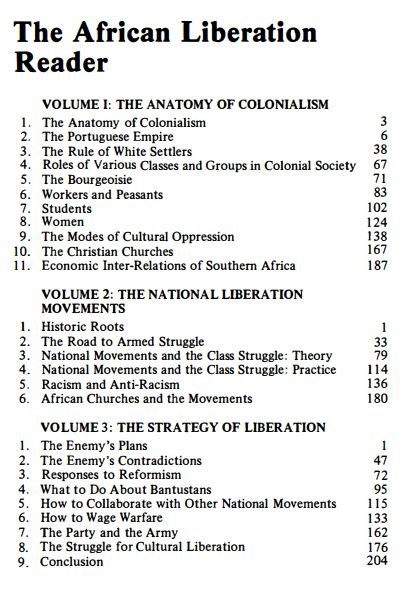
The BLM’s first major encounter with Cabral and his work occurred in January 1966 in Havana, Cuba on occasion of the Tri-continental Conference of Solidarity of the Peoples of Africa, Asia and Latin America [15]. Cuba, like Ghana, Guinea, and Tanzania on the African continent in the 1960s, played a critical role as a revolutionary socialist state engaged in active struggle against US and European imperialism. In this role, Cuba gave shelter, support, and resources to revolutionary organizations throughout Latin America and the world. In this same vein, Cuba was also home to many BLM exiles. The most prominent BLM exile in Cuba during the 1960s was Robert F. Williams. Robert Williams was a militant from North Carolina who fled into exile to avoid false imprisonment for an act of self-defense against white terror in 1961[16]. Williams was one of the most outspoken advocates for armed self-defense and the formation of Negro Gun Clubs in the late 1950s and early 1960s. His organizing, self-defense network, and militant advocacy had a major impact on the thinking of Malcolm X, the Louisiana and Mississippi based Deacons for Self-Defense and Justice, the Revolutionary Action Movement, and the Black Panther Party for Self-Defense.
In support of Williams and the BLM in general, the Cuban government provided him with contacts to the various revolutionary organizations that visited or had representatives stationed on the island and with access to printing and broadcast facilities to propagate his message back to forces within the United States[17]. Robert Williams, other BLM exiles, and several members of RAM attended the 1966 Tri-Continental Conference, and like most in attendance, were highly impressed with Amilcar Cabral and his address to the conference. This address, known as the “Weapon of Theory”, was a watershed moment in advance of revolutionary theory, particularly that branch of theory dealing with national liberation and neo-colonialism, called Tri-Continentalism by many following the conference.
Through the “Crusader” journal and his extensive personal correspondence with BLM partisans, Williams, along with the RAM cadre in attendance, introduced Cabral, his works, and the struggles of revolutionaries in Guinea-Bissau, Angola, and Mozambique to their first major audience within the movement. Following the Tri-Continental Conference BLM revolutionaries began critically studying Cabral and the national liberation movements against Portuguese colonialism in the pursuit of how they might help advance the struggle for Black national liberation within the territories claimed by the United States.
From 1966 through the 1970s, more and more BLM partisans visited Africa and engaged in regular and sustained contact with African revolutionaries, particularly those individuals and movements that were operating out of the progressive states of Algeria, Egypt, Guinea and Tanzania (Ghana was removed from this equation in 1966 following a military coup that overthrew the Nkrumah government) such as the PAIGC, MPLA, FRELIMO, the African National Congress (ANC), the South African Communist Party (SACP), and Pan Africanist Congress of Azania (PAC). These exchanges facilitated the deeper exposure of the BLM to the ideas and movements of African revolutionary leaders leading national liberation movements like Amilcar Cabral, or states engaged in socialist experiments like Sekou Toure in Guinea or Julius Nyerere in Tanzania.
In 1969, Basil Davidson, a progressive British Africanist scholar, published one of the most historically important works on Cabral, the PAIGC, and the national liberation movement in Guinea-Bissau entitled “The Liberation of Guinea: Aspects of an African Revolution”[18]. This work was read extensively by partisans of the BLM, particularly amongst college students in the late 1960’s and early 70’s in organizations like the Pan-African Union (PAU) in California and the Student Organization for Black Unity (SOBU) in North Carolina[19]. Another critical work also published in 1969 was “Revolution in Guinea: An African People’s Struggle”, by a British collective called Stage 1. This was one of the first English publications of a collection of Cabral’s speeches and writings, and received a decent distribution in the United States amongst BLM forces. It was from this publication that many in the BLM were introduced to the saying most commonly associated with Cabral, “Tell No Lies. Claim No Easy Victories”[20].
By 1969 there were several radical Black and multi-national solidarity committee’s operating throughout the United States that were providing material and political support to the national liberation movements against Portuguese colonialism and white settler colonialism in Southern Africa (Azania, Zimbabwe and Botswana in particular)[21]. The solidarity committee’s played a critical role in spreading Cabral’s ideas throughout the BLM. These networks also played a critical role in providing forums for African revolutionaries in the United States to make their case and present their ideas directly. Cabral and the PAIGC directly benefitted from this organizing on two occasions. Cabral first visited the United States in 1970, where he gave several lectures throughout the state of New York and held several dialogues and interviews in New York City related to the promotion of the PAIGC’s and allied CONCP organizations advocacy for self-determination and national independence at the United Nations. [22]
Watch the video at the 28:30 mark to see BLM leaders meeting with African revolutionary leaders in Algeria, including the PAIGC leader at the 33:25 mark.
In addition to Cabral’s first visit to the United States, another critical event occurred in 1970 that had a major impact on the spread of his ideas in the BLM. In February of that year, members from the Afrikan People’s Party (APP) and the House of Umoja (HOU) based in Los Angeles collaborated with Guyanese revolutionary Eusi Kwayana and the African Society for Cultural Relations with Independent Africa (ASCRIA), along with Forum from St. Vincent, the Afro-Caribbean Movement from Antigua, and the PAC from Azania to develop the Pan-Afrikan Secretariat (PAS) in Georgetown, Guyana[23]. Guyana, then lead by Prime Minister Forbes Burnham, was operating as a progressive base for revolutionary international coordination throughout the Caribbean, South America, and Africa, and was home to several BLM exiles and ex-patriots from the late 1960s to the 1990s. The PAS was the first organization to call for the international launching of African Liberation Day (ALD), originally called World Wide African Solidarity Day (WWASD), and held the first ALD observances in 1970 and 1971 respectively in Guyana, Canada, Europe and several cities in the United States[24]. WWWASD/ALD was specifically intended to promote the African World Revolution, giving particular focus to the struggles against Portuguese colonialism in Africa, settler-colonialism in Southern Africa, neo-colonialism in Africa and the Caribbean, and the New Afrikan Independence Movement within the confines of the United States.
A connected development occurred on the East Coast through the auspices of SOBU and Malcolm X Liberation University (MXLU). In the fall of 1971 Owusu Sadaukai, one of the founders of SOBU and MXLU, toured the liberated territories of Guinea-Bissau, Angola, and Mozambique. In Mozambique, Sadaukai was implored by Samora Machel, the leader of FRELIMO, to build an international campaign in support of the national liberation movements of Mozambique, Angola, and Guinea-Bissau. Upon his return, Sadaukai released a six-part report on his trip in the movement publication the “African World”[25]. This series was widely distributed in the movement and played a pivotal role in helping to launch and guide the formation of the African Liberation Day Coordinating Committee (ALDCC). The ALDCC, a broad coalition of BLM forces representing different tendencies and trends within the movement, called for and organized the groundbreaking May 27, 1972 ALD demonstration that mobilized more than 100,000 participants throughout the United States, including Washington, D.C., San Francisco, Los Angeles, and New Orleans. Following the success of ALD, the ALDCC expanded and transformed into a more permanent structure, the African Liberation Support Committee (ALSC), which was the fulcrum of support for the national liberation movements in African through the mid-1970’s[26]. ALD and the ALSC were very intentional in their promotion of the works of Amilcar Cabral and other national liberation leaders of the era, such as Eduardo Mondlane and Samora Machel of FRELIMO and Robert Sobukwe of the Pan-Afrikanist Congress (PAC).
At the request of the MPLA, in February 1976 the Cuban government hosted a seminar which brought together American sympathetic to their struggle in Angola. Twenty-six Americans, known as the Angola 26 Delegation, attended the seminar representing 19 organizations and five African American publications. Shown here (from left to right) is an unidentified man; Prexy Nesbitt of the Chicago Committee for the Liberation of Angola, Mozambique and Guinea-Bissau and the U.S. Out of Angola Committee; Brewster Rhoads from the Coalition for a New Foreign and Military Policy in Washington, D.C.; and an unidentified man.
African Liberation Day marchers leave Meridian Hill Park, also known as Malcolm X Park, and head toward Embassy Row, May 27, 1972. (Star Collection/D.C. Public Library)
Just as critical as the promotion Cabral and the views of other CONCP leaders was the film “A Luta Continua”, which was produced by Robert Van Lierop and disseminated by the Africa Information Service (AIS) in 1972[27]. AIS was founded by BLM activists Prexy Nesbitt and Van Lierop in 1971 specifically to distribute educational materials about the national liberation struggles against Portuguese colonialism lead by CONCP. The film was shot in 1971 in Mozambique and Tanzania, and focused on the armed struggle being waged by FRELIMO. The film spread like wildfire from 1972 through the mid-1970s, and perhaps more than anything made the ideas of Cabral and Machel real and concrete to millions of Black folks in the United States. AIS subsequently published “Return to the Source: Selected Speeches by Amilcar Cabral”, the first major collection of Cabral’s writings and speeches published in the United States, in 1973.
























































The AIS was also instrumental in coordinating Cabral’s final visit the United States in 1972. During this visit Cabral asked the Africa Information Service to set up a meeting with various leading forces in the BLM.[28" The meeting was held in New York City on October 20 and involved participants from over 30 BLM organizations. The speech was entitled “Connecting the Struggles: An Informal talk with Black Americans”, and had a profound and lasting impact on the BLM in all its diversity, as it clearly affirmed the interconnectedness between the African liberation struggles on the continent with those in the United States, the Caribbean, and beyond.
Agents of the Portuguese colonialists assassinated Amilcar Cabral shortly after his last trip to the United States on January 20, 1973[29]. The effectiveness of Cabral’s work and leadership in helping to guide a peoples’ revolutionary movement proved the notion of “cut off the head and body will whither” theory to be false in this case. Following his assassination, the PAIGC escalated the war against the Portuguese and not only lead Guinea-Bissau to political independence in 1974, but resulted in the overthrow of the Fascist Salazar-Cateano regime in April 1974, that ruled Portugal since 1932, by a group of Portuguese military officers called the Movimento das Armed Forcas or MAF (which translated into English means Armed Forces Movement) admittedly influenced by the theories and moral example of Amilcar Cabral[30].
Half a world away, Cabral’s works had also become common parlance within the BLM by the time of his death. His works greatly aided the political and theoretical development of the BLM in the 1970s, which unfortunately played itself out in many fractious debates, broken alliances, and organizational splits during the middle of the decade (many greatly aided by the provocations of the Federal Bureau of Investigation or FBI). Despite the fragmentation of the BLM during this period, Cabral’s work has had a lasting influence on the movement, as it is still being studied and referenced today in the formulation of strategy and the programmatic orientation of revolutionary nationalist and Pan-Afrikanist organizations like the All African People’s Revolutionary Party (AAPRP), the African People’s Socialist Party (APSP), the Organization of Black Struggle (OBS), the Pan-African People’s Organization (PAPO), the Provisional Government of the Republic of New Afrika (PG –RNA), the Malcolm X Grassroots Movement (MXGM), and the New Afrikan People’s Organization (NAPO).
Chicago Committee for the Liberation of Angola, Mozambique and Guinea
A LUTA CONTINUA!
In the 41 years since his untimely death, Amilcar Cabral’s political legacy lives on in the strategies and tactics used by the forces of the BLM to defeat the neo-colonial control of Black communities, the advance of neo-liberal exploitation and social decomposition, to counter the consolidation of the Black faction of the trans-national capitalist class, to stop the genocidal assault against the working class via mass incarceration and economic displacement, and build self-determining institutions and communities to liberate our people.
What the radical forces in the BLM have learned to be undeniably true is that as long as capitalism, colonialism, white supremacy, patriarchy, imperialism, and neo-colonialism exist as forces that exploit and oppress African (and all) people, Cabral’s insights and analysis will always have relevance.
From the Lincoln University Bulletin, 1973
Protest against the assassination on January 20, 1973 of Amilcar Cabral of the liberation movement PAIGC. Some 75 demonstrators gathered in front of the Portuguese government's Casa de Portugal in New York. The demonstration was organized by the American Committee on Africa, the Committee for a Free Mozambique and the Southern Africa Committee. The banner is the photograph was produced by Youth Against War and Fascism. https://africanactivist.msu.edu/record/210-849-32713/
In our opinion, the foundation for national liberation rests in the inalienable right of every people to have their own history, whatever formulations may be adopted at the level of international law. The objective of national liberation, is therefore, to reclaim the right, usurped by imperialist domination, namely: the liberation of the process of development of national productive forces. Therefore, national liberation takes place when, and only when, national productive forces are completely free of all kinds of foreign domination. The liberation of productive forces and consequently the ability to determine the mode of production most appropriate to the evolution of the liberated people, necessarily opens up new prospects for the cultural development of the society in question, by returning to that society all its capacity to create progress.
“A people who free themselves from foreign domination will be free culturally only if, without complexes and without underestimating the importance of positive accretions from the oppressor and other cultures, they return to the upward paths of their own culture, which is nourished by the living reality of its environment, and which negates both harmful influences and any kind of subjection to foreign culture. Thus, it may be seen that if imperialist domination has the vital need to practice cultural oppression, national liberation is necessarily an act of culture.” Amilcar Cabral, from “National Liberation and Culture”, February, 20, 1970 Syracuse, New York.[31"
REFERENCES:
BOOKS
Braganca, Aquino de, Wallerstein, Immanuel (1982) The African Liberation Reader, Three Volumes, Zed Press, London, England.
Bush, Roderick D. (2009) The End of White World Supremacy: Black Internationalism and the Problem of the Color Line, Temple University Press, Philadelphia, Pennsylvania.
Bush, Roderick D. (2000) We Are Not What We Seem: Black Nationalism and Class Struggle in the American Century, New York University Press.
Cabral, Amilcar (1973) Return to the Source: Selected Speeches by Amilcar Cabral, edited by Africa Information Service, Monthly Review Press, New York, New York.
Cabral, Amilcar (1969) Revolution in Guinea: An African People’s Struggle, Stage 1, London, England.
Cabral, Amilcar (1979) Unity and Struggle: Speeches and Writings of Amilcar Cabral, Monthly Review Press, New York, New York.
Chabal, Patrick (2003) Amilcar Cabral: Revolutionary Leadership and People’s War, Africa World Press, Trenton, New Jersey.
Cruse, Harold (2002) The Essential Harld Cruse: A Reader, Palgrave Macmillian.
Davidson, Basil (1969) The Liberation of Guinea: Aspects of an African Revolution, Penguin Books, Middlesex, England.
Ferguson, Herman (2011) An Unlikely Warrior: The Evolution of a Revolutionary, Black Classic Press.
Gaines, Kevin K. (2008) African Americans in Ghana: Black Expatriates and the Civil Rights Era, University of North Carolina Press.
Grady-Willis, Winston A. (2006) Challenging U.S Apartheid: Atlanta and Black Struggles for Human Rights 1960-1977, Duke University Press.
Johnson, Cedric (2007) Revolutionaries to Race Leaders: Black Power and the Making of African American Politics, University of Minnesota Press, Minneapolis, Minnesota.
Kadalie, Modibo M. (2000) Internationalism, Pan-Africanism, and the Struggle of Social Classes, One Quest Press, Savannah, Georgia.
Lumumba, Chokwe (1991) The Roots of the New Afrikan Independence Movement: Revolution Requires Maturity, New Afrikan Productions, Jackson, Mississippi.
Meriwether, James (2009) Proudly We can be Africans: Black Americans and Africa 1935-1961, University of North Carolina Press.
McCulloch, Jock (1983) In the Twilight of Revolution: The Political Theory of Amilcar Cabral, Routledge and Kegan Paul, London, England.
Minter, William, Hovey, Gail, and Cobb, Charles Jr. (eds) (2008) No Easy Victories: African Liberation and American Activists over a Half Century 1950 – 2000, Africa World Press, Trenton, New Jersey.
Sherwood, Marika (2011) Malcolm X Visits Abroad, Tsehai Publishing, Los Angeles, CA.
Tyson, Timothy B. (2001) Radio Free Dixie: Robert F. Williams and the Roots of Black Power, University of North Carolina Press.
Van Deburg, William (1993) New Day in Babylon: The Black Power Movement and American Culture 1965-1975, University of Chicago Press.
Von Eschen, Penny (1997) Race Against Empire: Black Americans and Anti-Colonialism 1937-1957, Cornell University Press, New York, New York.
Young, Robert J. C. (2001) Postcolonialism: An Historical Introduction, Blackwell Publishing, Oxford, England.
ARTICLES
Davidson, Basil (1984) On Revolutionary Nationalism: The Legacy of Cabral, Latin American Perspectives, Issue 41, Volume II, pp. 15-42.
Magubane, Bernard (1983) Toward a Sociology of National Liberation from Colonialism: Cabral’s Legacy, Contemporary Marxism: Journal of the Institute for the Study of Labor and Economic Crisis, No. 7.
Mullen, Bill V. (2002) Transnational Correspondence: Robert F. Williams, Detroit and the Bandung Era, Works and Days, 39/40, Volume 20.
UNPUBLISHED DOCUMENTS
Tyehimba, Watani Sundai Umoja (2012) ‘NAPO/MXGM Roots and Timeline: A View from the House of Umoja’, Unpublished, Atlanta, Georgia.
[1] Cabral, Amilcar (1979) Unity and Struggle: Speeches and Writings of Amilcar Cabral.
[2] Chokwe Lumumba (1991) The Roots of the New Afrikan Independence Movement: Revolution Requires Political Maturity, page 1-2.
[3] For biographies on many of these individuals see Adi, Hakim, and Sherwood, Marika (2003) Pan-African History: Political figures from Africa and the Diaspora since 1787.
[4] There are three key speeches of Cabral that present the clearest articulations of his theories and strategic reflections and which have had the most profound and enduring impact on the BLM. These speeches are: “the Weapon of Theory” (1966), “National Liberation and Culture” (1970), and “Identity and Dignity in the Context of the National Liberation Struggle” (1972).
[5] Mario de Andrade (1979), “Biographical Notes”, Unity and Struggle: Speeches and Writings of Amilcar Cabral, Monthly Review Press.
[6] Ibid, and Young, Robert J. C. (2001) Postcolonialism: An Historical Introduction, pp. 283-292.
[7] Cabral, Amilcar (1973) Return to the Source: Selected Speeches by Amilcar Cabral, pp 75-76.
[8] Von Eschen, Penny (1997) Race Against Empire: Black Americans and Anti-Colonialism 1937-1957.
[9] Minter, William, Hovey, Gail, and Cobb, Charles Jr. (eds) (2008) No Easy Victories: African Liberation and American Activists over a Half Century 1950 – 2000, pp 15-22.
[10] See Ibid, pp. 59-150, Sherwood, Marika, (2011) Malcolm X Visits Abroad, and Gaines, Kevin K. (2008) African Americans in Ghana: Black Expatriates and the Civil Rights Era.
[11] See Ibid, pp 83-112.
[12] Wilkins, Fanon Che (2007), The Making of Black Internationalists: SNCC and Africa before Black Power 1960 – 1965.
[13] Ibid.
[14] See reference in Minter, William, et al, (eds) (2008) No Easy Victories: African Liberation and American Activists over a Half Century 1950 – 2000, and Braganca, Aquino, Wallterstein, Immanuel (1965) The African Liberation Reader Volume 1: The Anatomy of Colonialism.
[15] Young, Robert J. C. (2001) Postcolonialism: An Historical Introduction, pp. 204-216.
[16] Mullen, Bill V. (2002) Transnational Correspondence: Robert F. Williams, Detroit and the Bandung Era.
[17] Ibid.
[18] Davidson, Basil (1969) The Liberation of Guinea: Aspects of an African Revolution.
[19] Tyehimba, Watani (2012) A View from the House of Umoja, and Johnson, Cedric (2007) Revolutionaries to Race Leaders: Black Power and the Making of African American Politics, Chapter 4.
[20] Amilcar Cabral, “Revolution in Guinea: An African People’s Struggle”, published by STAGE 1, 1969.
[21] Johnson, Cedric (2007) Revolutionaries to Race Leaders: Black Power and the Making of African American Politics, Chapter 4, and Minter, William, et al, (eds) (2008) No Easy Victories: African Liberation and American Activists over a Half Century 1950 – 2000, chapters 3 and 4.
[22] Minter, William, et al, (eds) (2008) No Easy Victories: African Liberation and American Activists over a Half Century 1950 – 2000, Chapter 3 and Cabral, Amilcar (1979) Unity and Struggle: Speeches and Writings of Amilcar Cabral.
[23] Tyehimba, Watani (2012) A View from the House of Umoja.
[24] IBID, page 20.
[25] Johnson, Cedric (2007) Revolutionaries to Race Leaders: Black Power and the Making of African American Politics, page 138 – 139 and Minter, William, et al, (eds) (2008) No Easy Victories: African Liberation and American Activists over a Half Century 1950 – 2000, Chapters 3 and 4.
[26] Johnson, Cedric (2007) Revolutionaries to Race Leaders: Black Power and the Making of African American Politics, Chapter 4.
[27] Minter, William, et al, (eds) (2008) No Easy Victories: African Liberation and American Activists over a Half Century 1950 – 2000, chapter 4.
[28"> Minter, William, et al, (eds) (2008) No Easy Victories: African Liberation and American Activists over a Half Century 1950 – 2000, page 93, and Cabral, Amilcar (1979) Unity and Struggle: Speeches and Writings of Amilcar Cabral.
[29"> Cabral, Amilcar (1979) Unity and Struggle: Speeches and Writings of Amilcar Cabral.
[30"> See Immanuel Wallerstein biography in Cabral, Amilcar (1979) Unity and Struggle: Speeches and Writings of Amilcar Cabral.
[31"> Cabral, Amilcar (1979) Unity and Struggle: Speeches and Writings of Amilcar Cabral.
*Kali Akuno
A shorter version of this article was printed in ‘No Easy Victories: The Legacy of Amilcar Cabral,’ edited by Firoze Manji and Bill Fletcher Jr, 2013 by CODESRIA.
* THE VIEWS OF THE ABOVE ARTICLE ARE THOSE OF THE AUTHOR/S AND DO NOT NECESSARILY REFLECT THE VIEWS OF THE PAMBAZUKA NEWS EDITORIAL TEAM
* BROUGHT TO YOU BY PAMBAZUKA NEWS
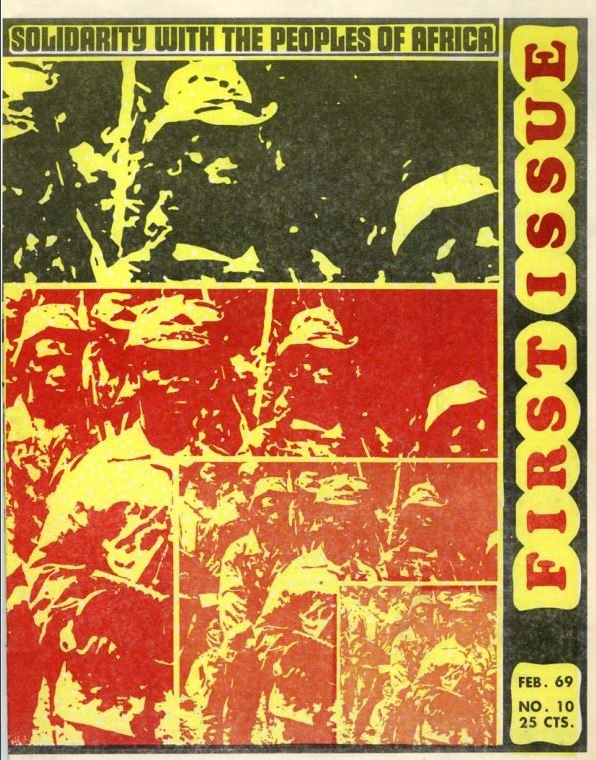
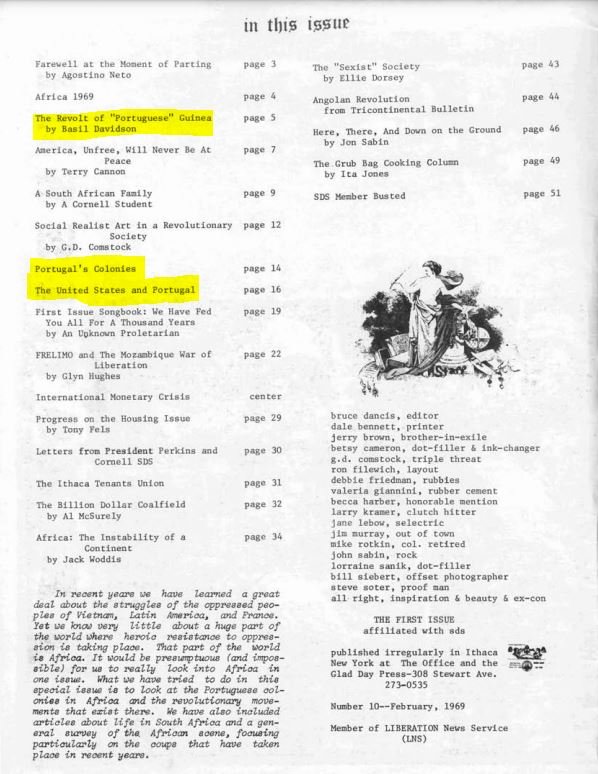
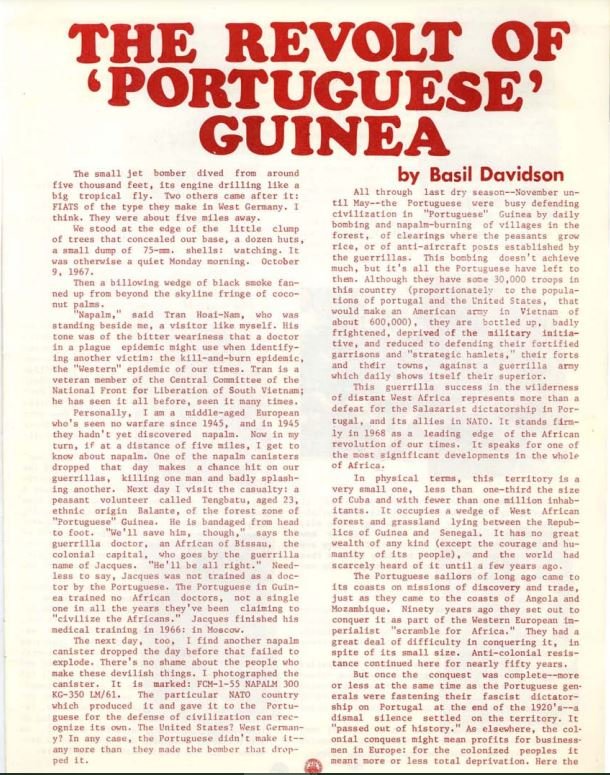
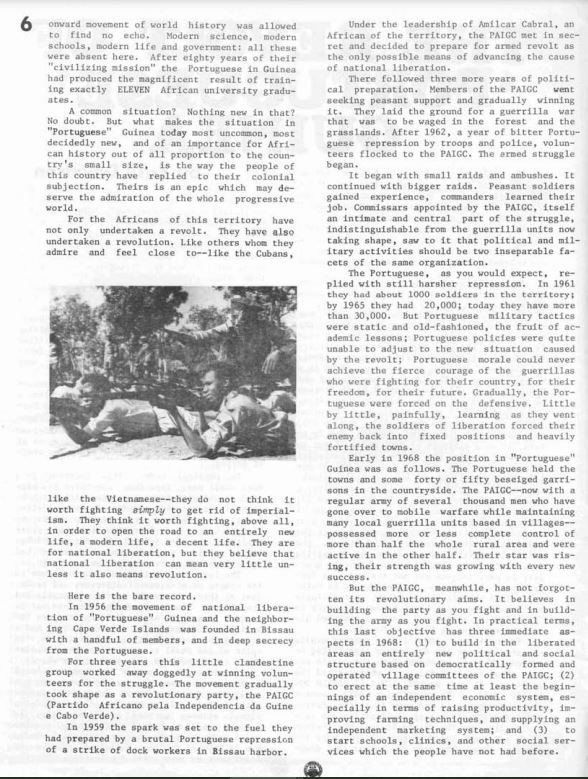
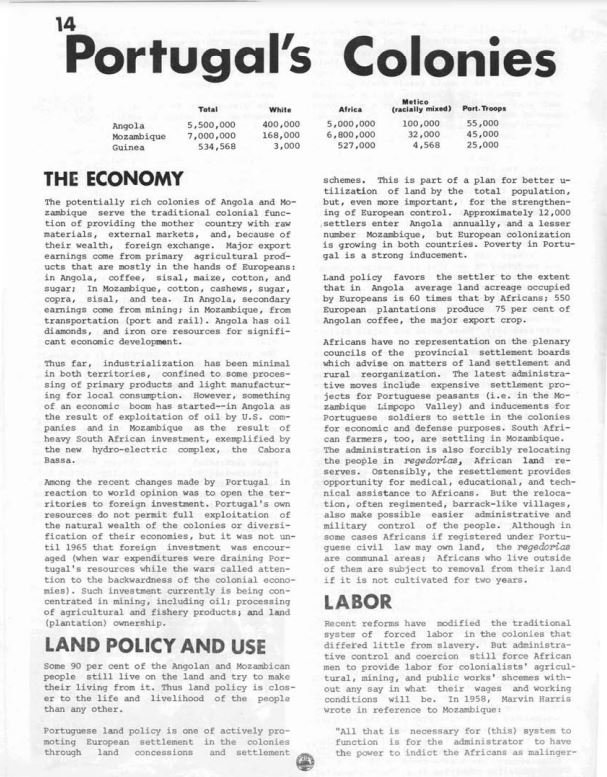
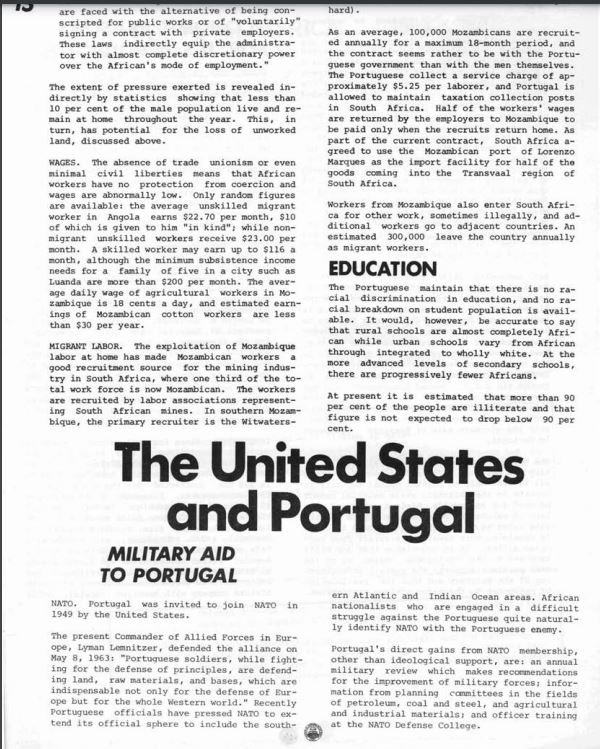
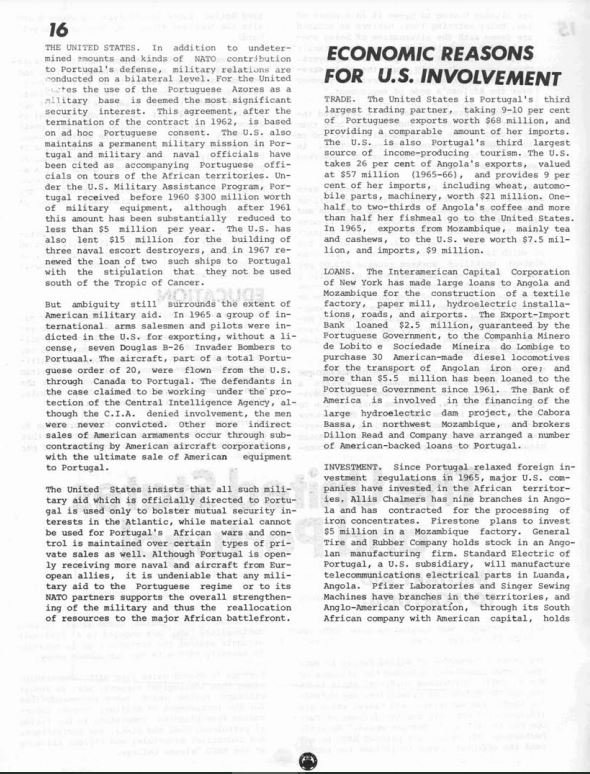
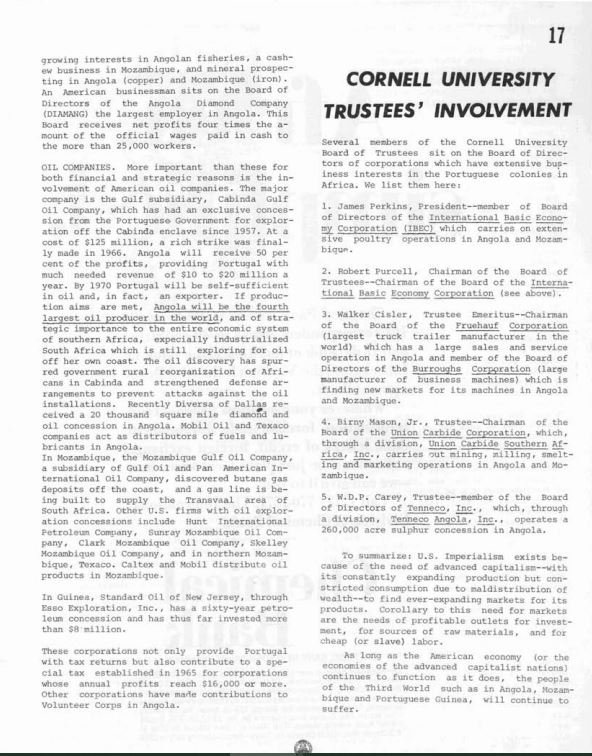
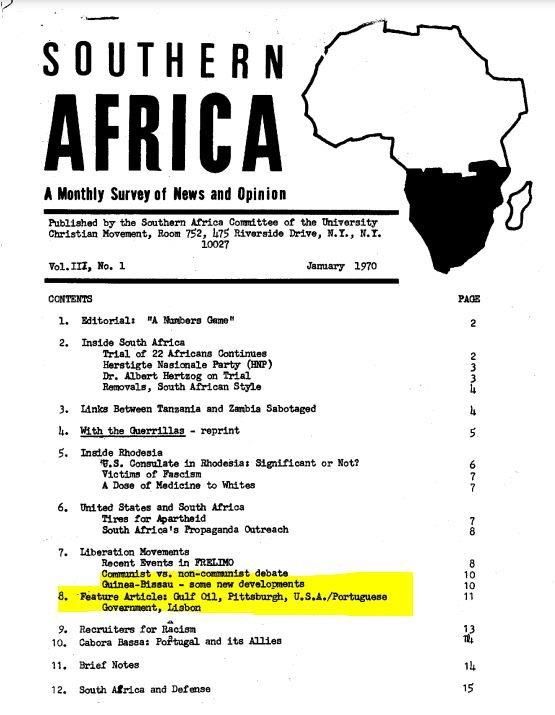
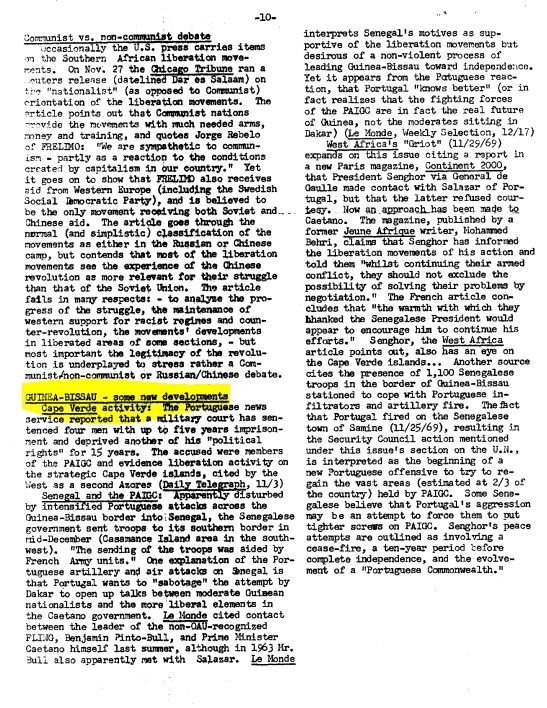
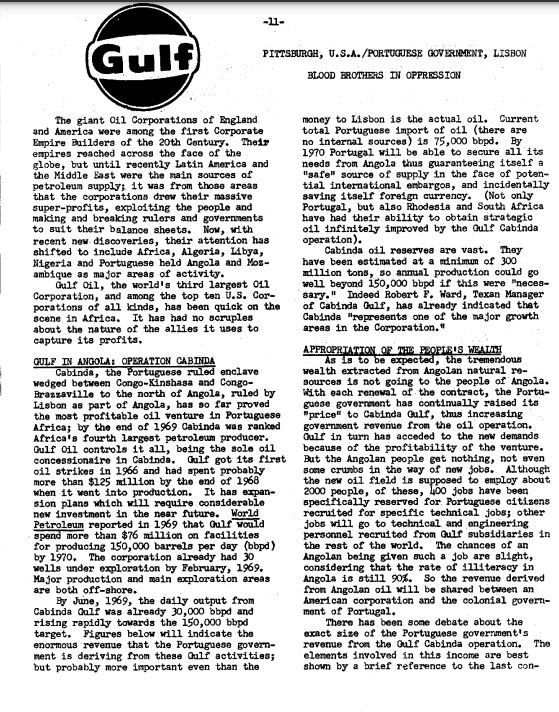
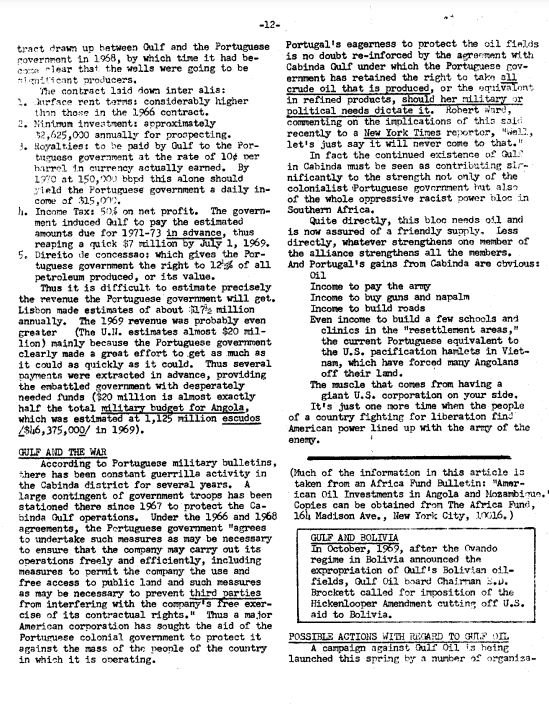
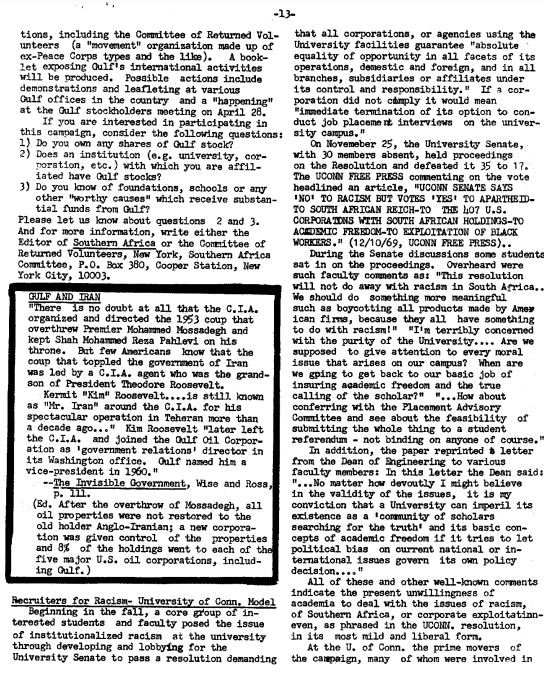
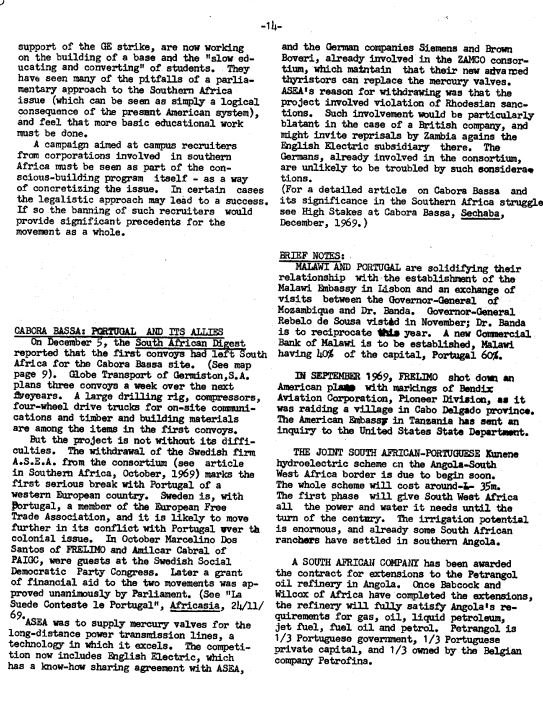
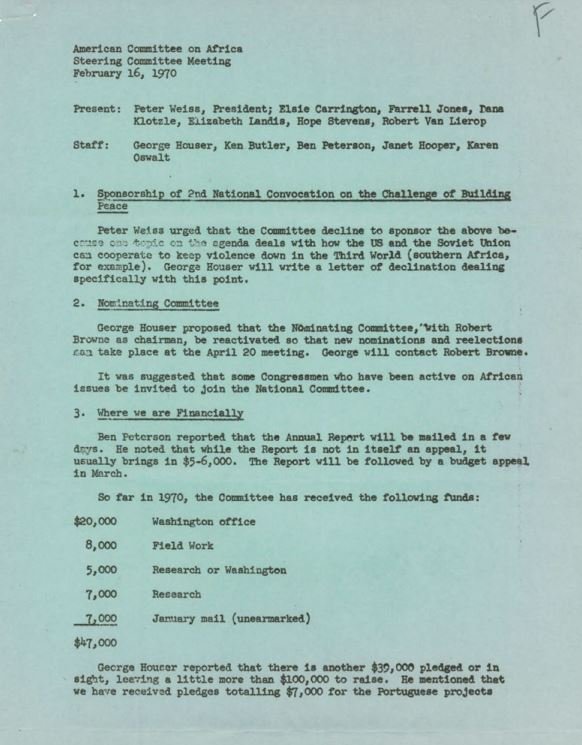
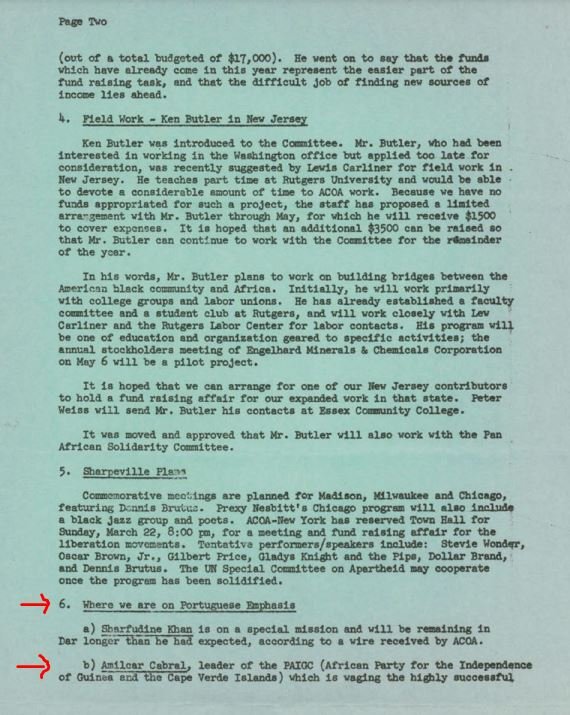
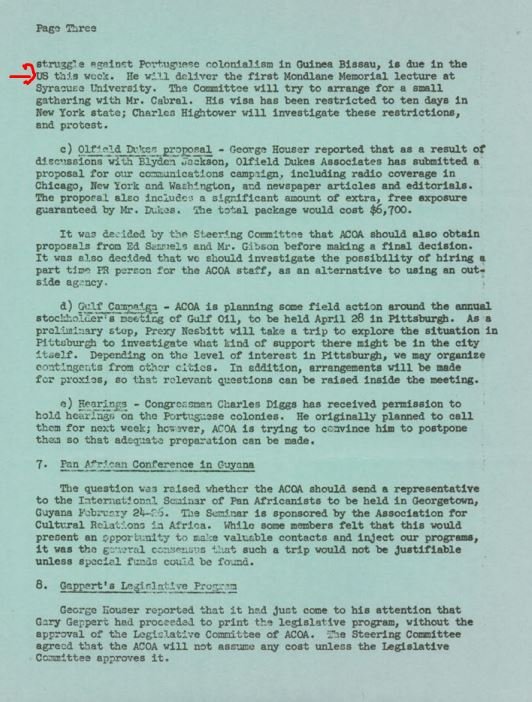
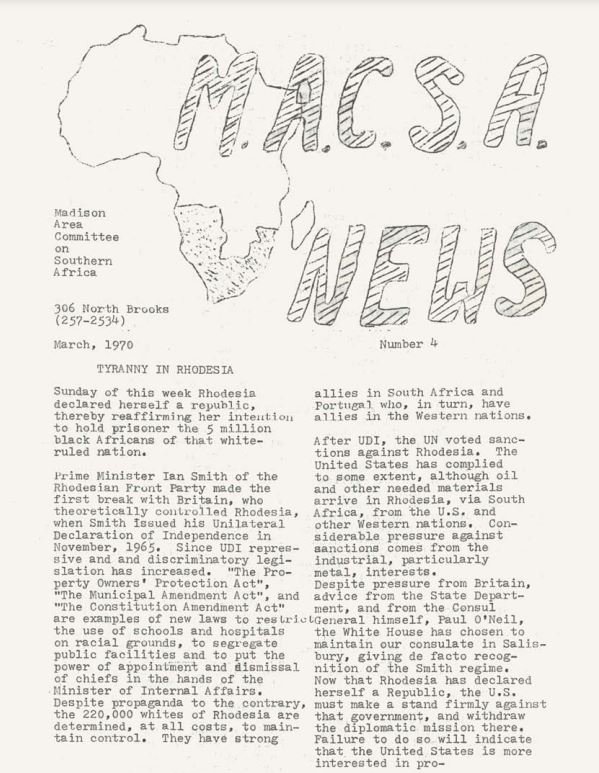
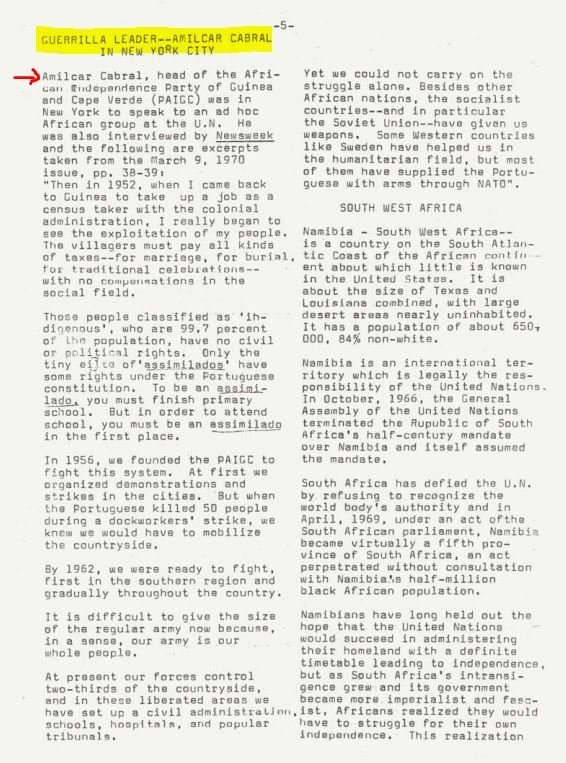
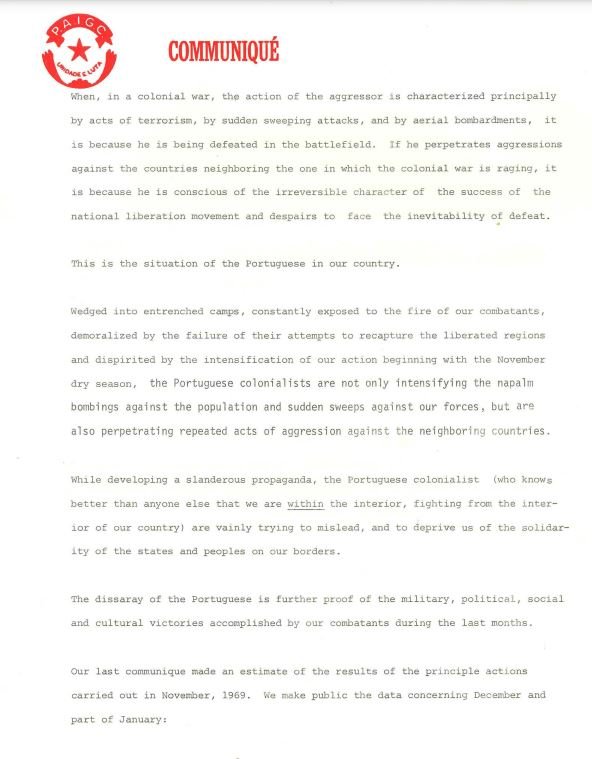
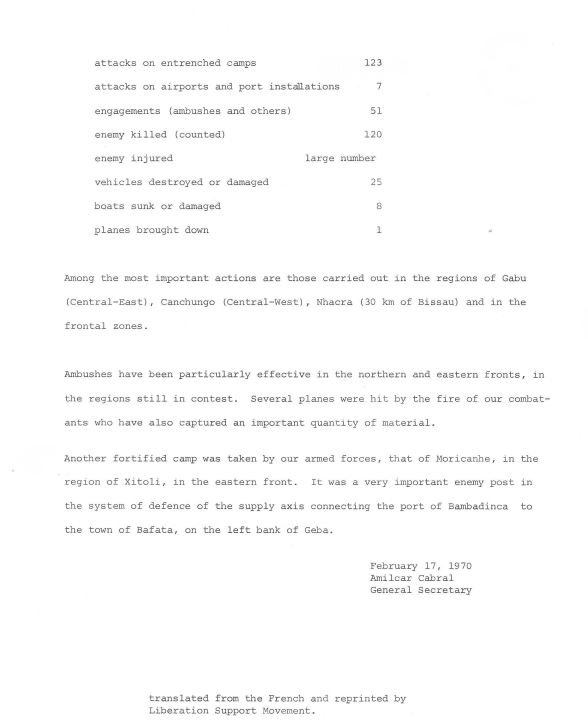
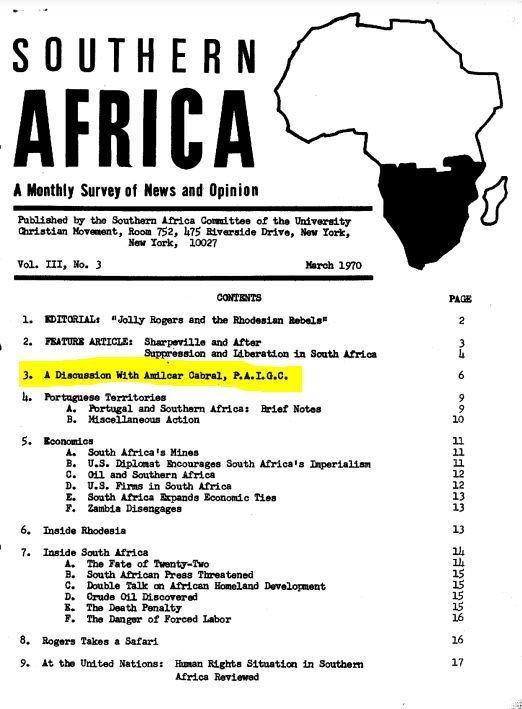
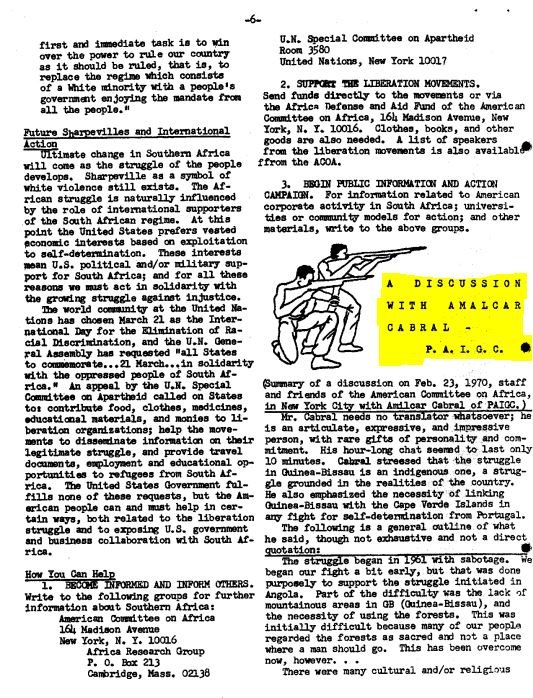
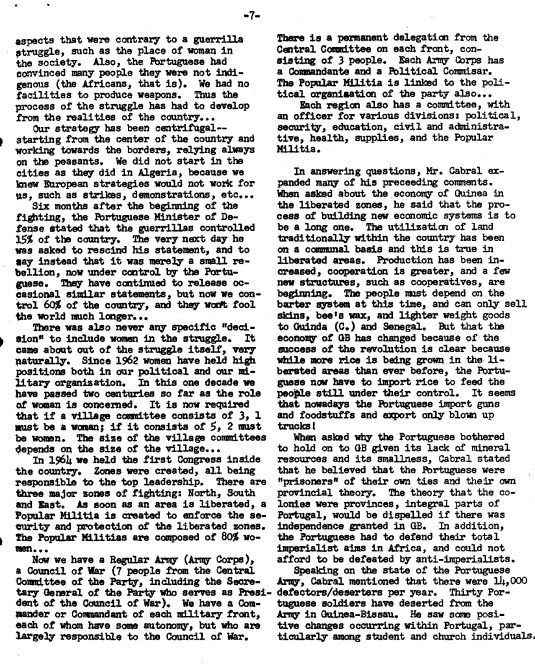
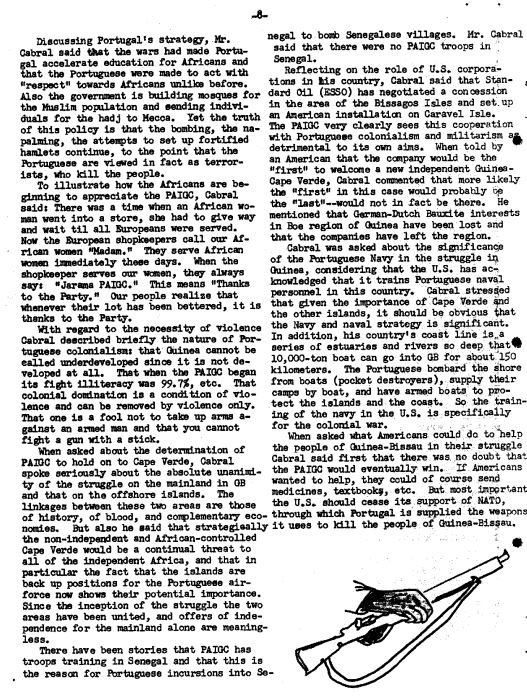
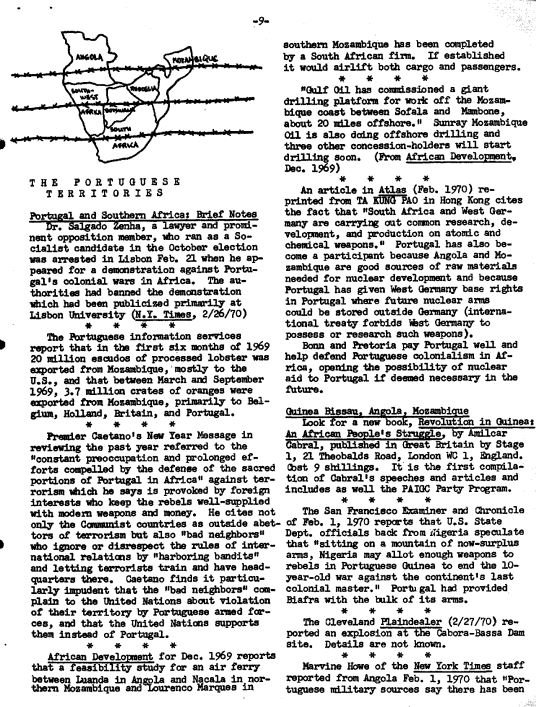
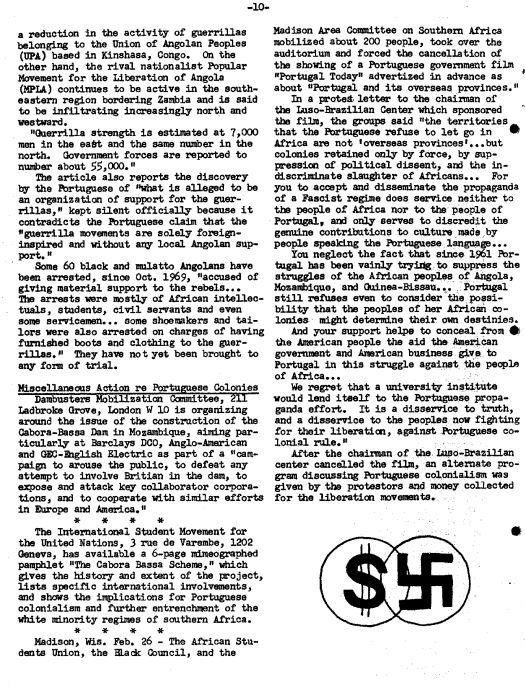
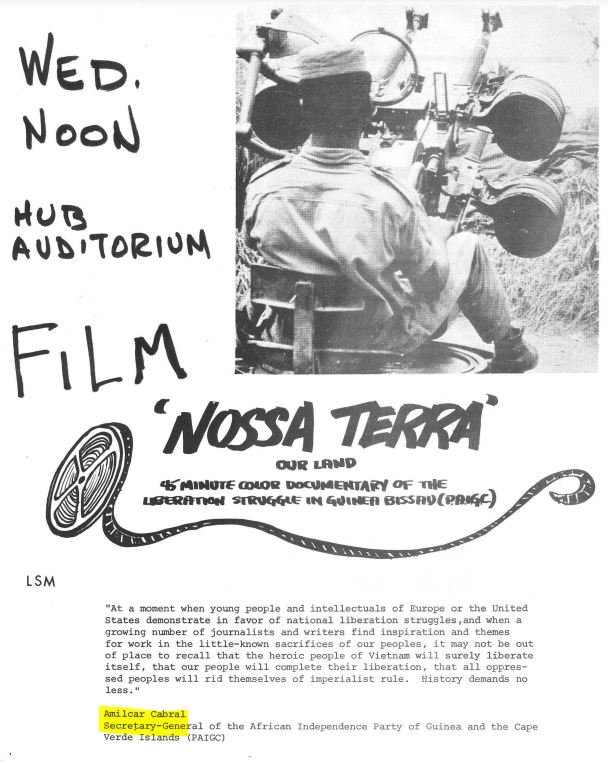
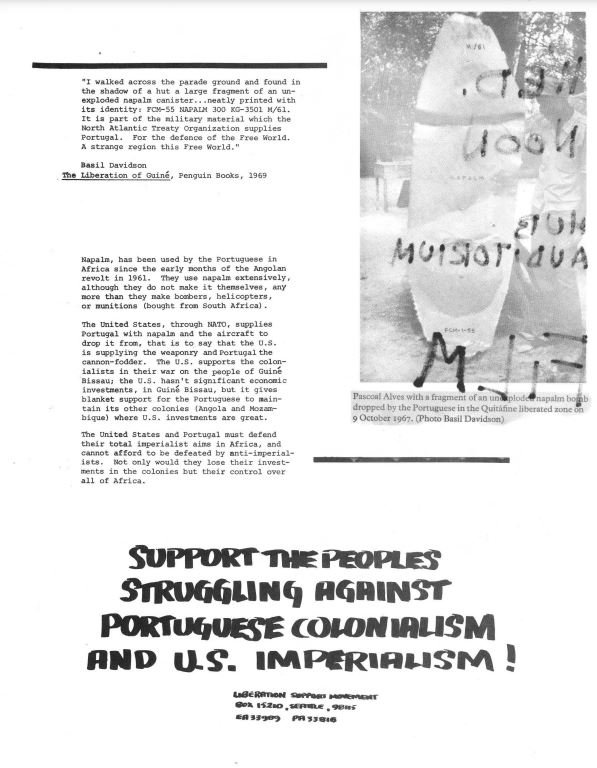
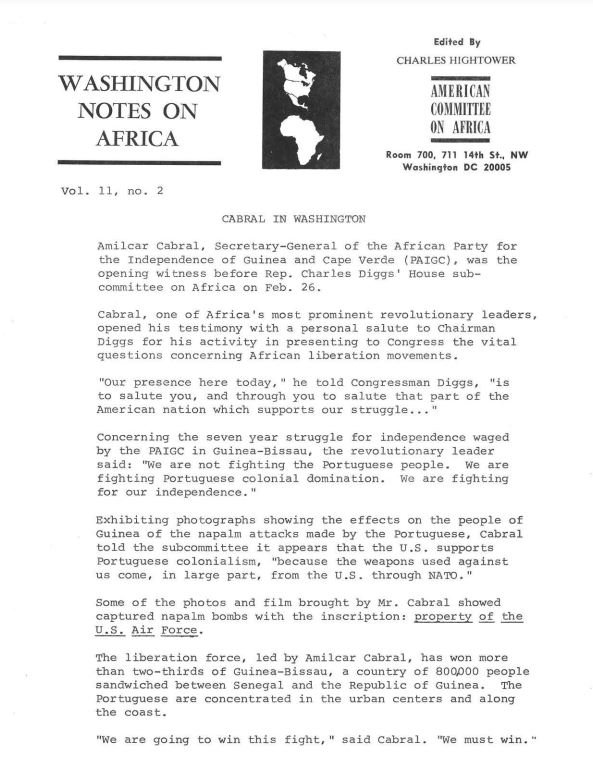
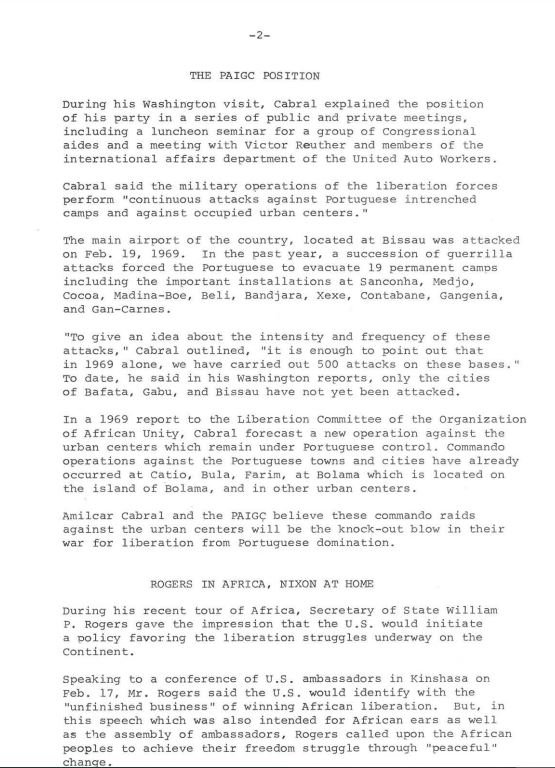
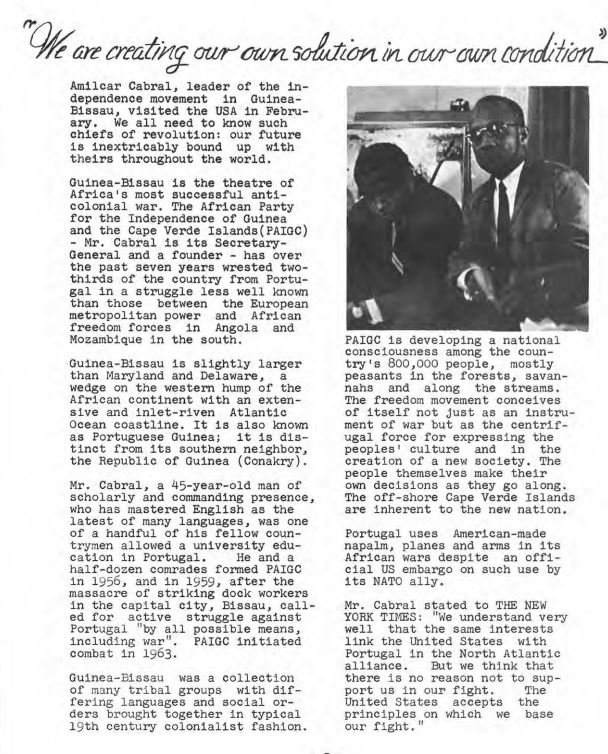


















































































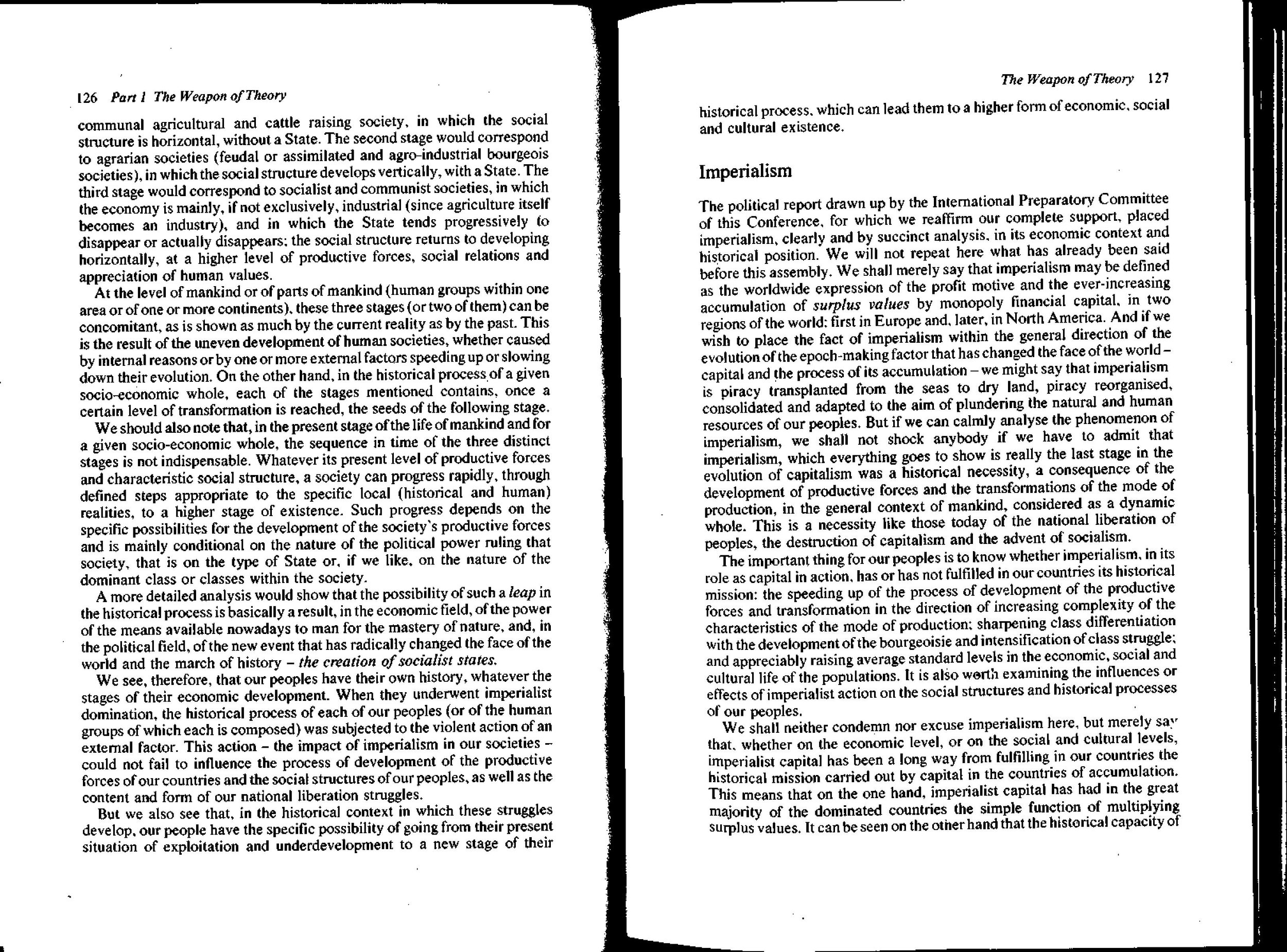
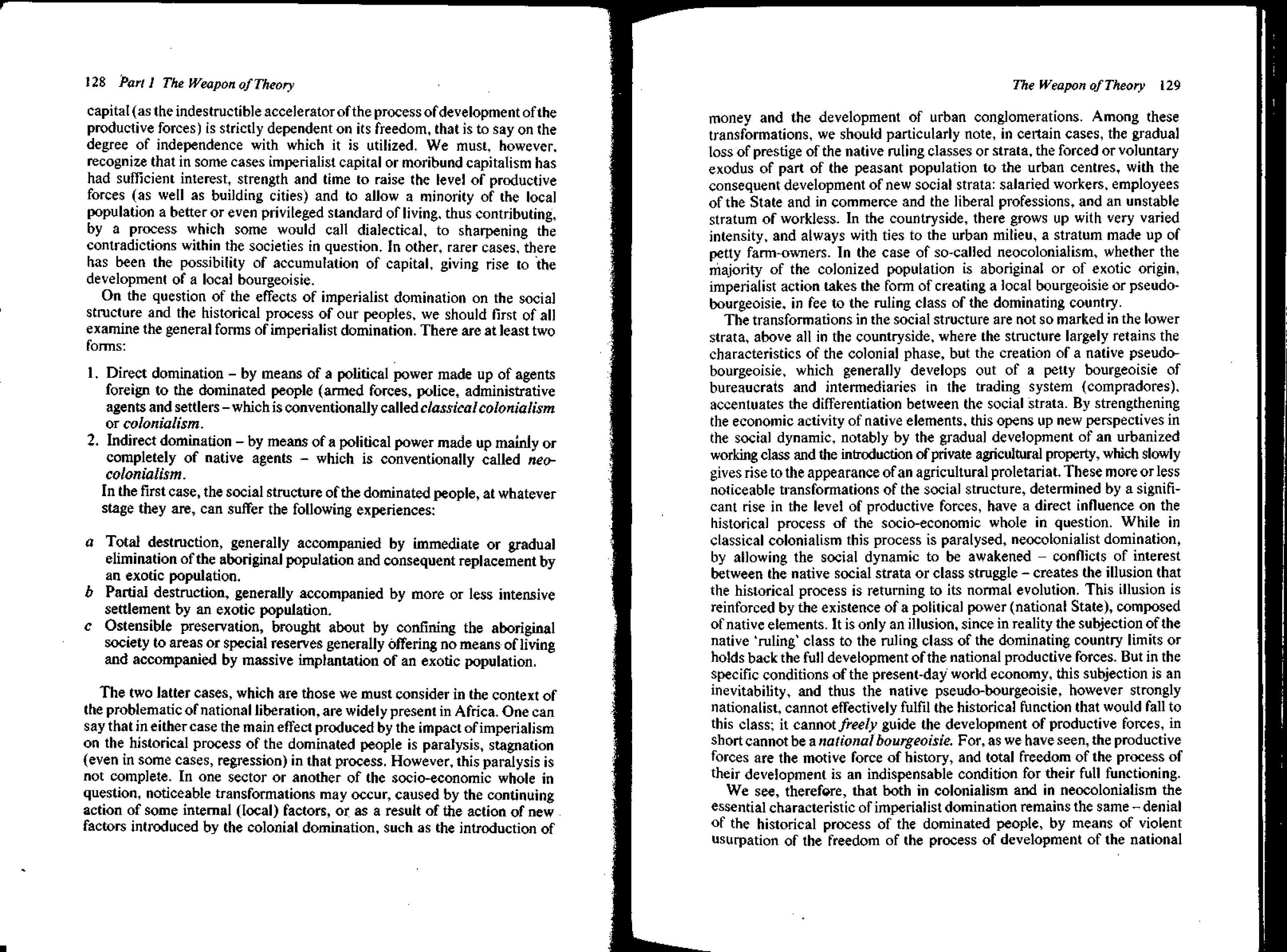
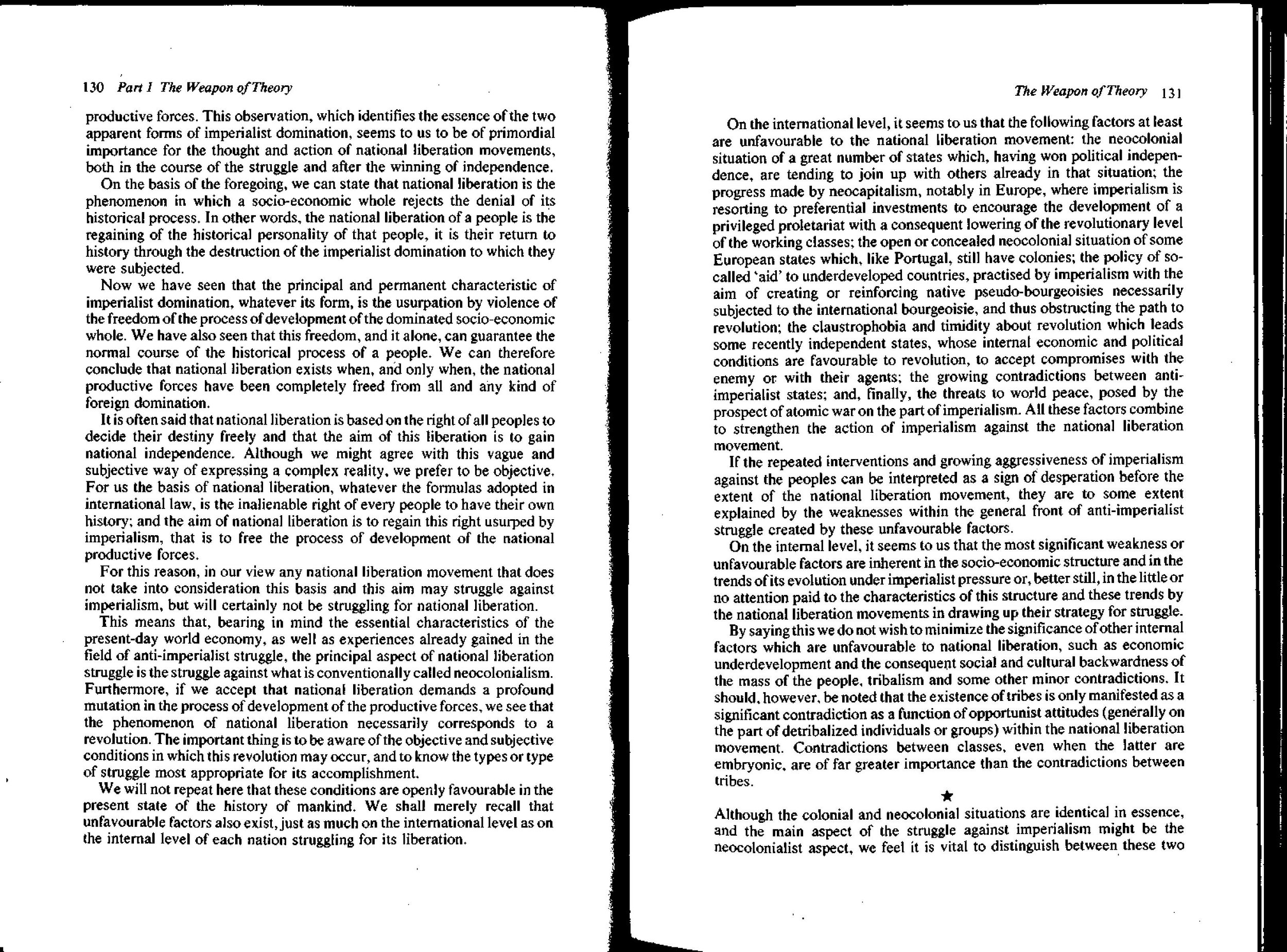
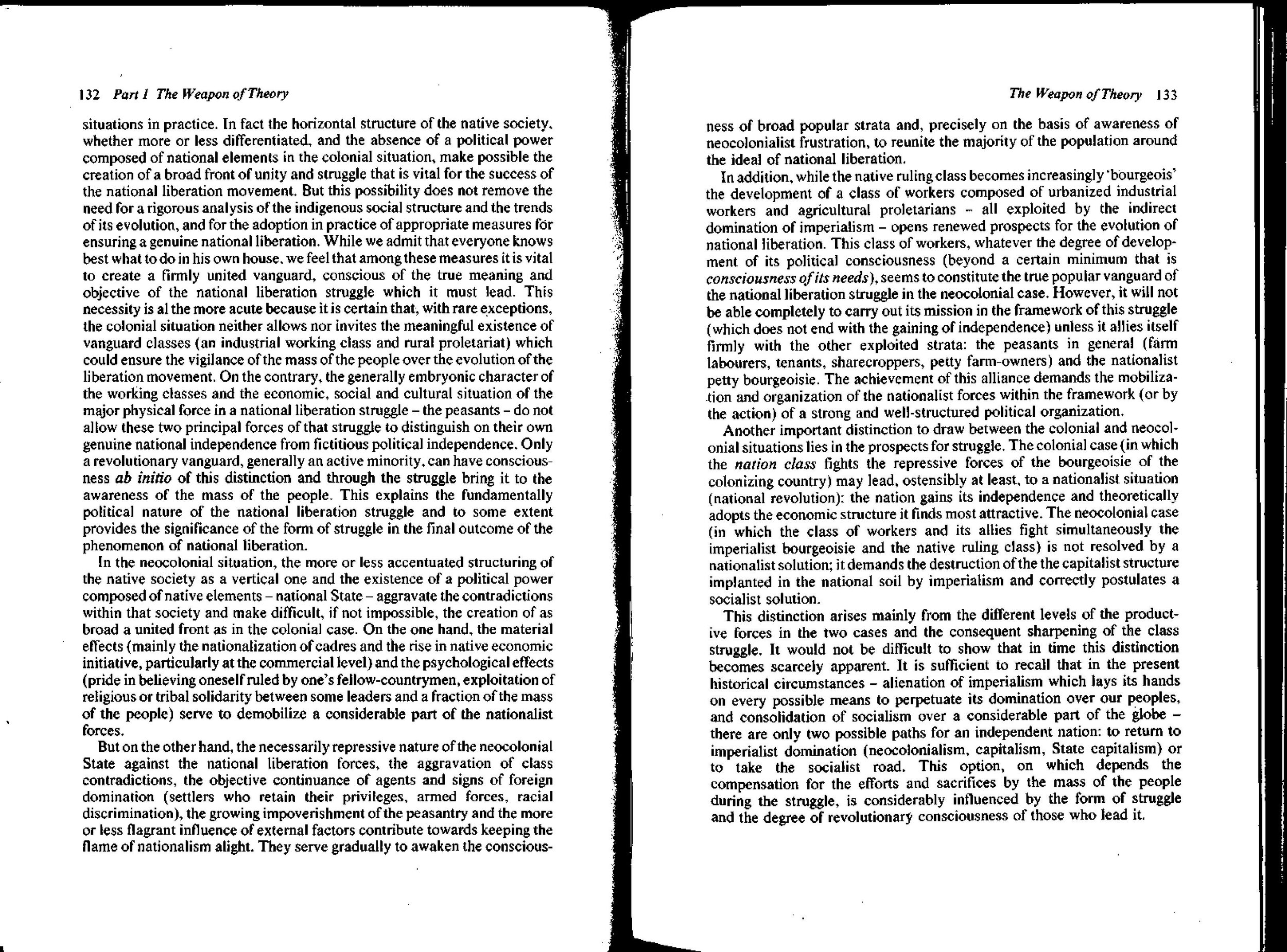
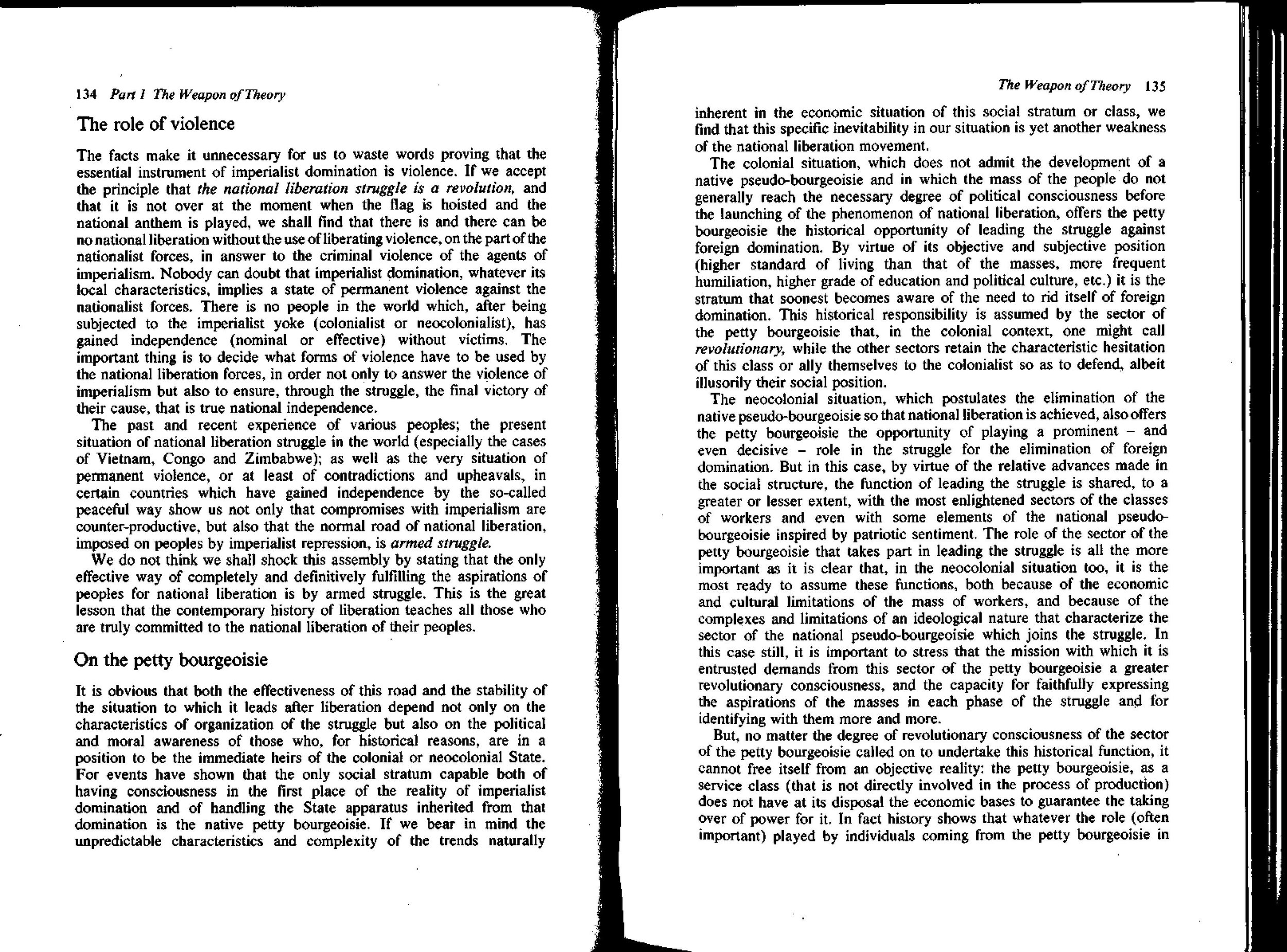
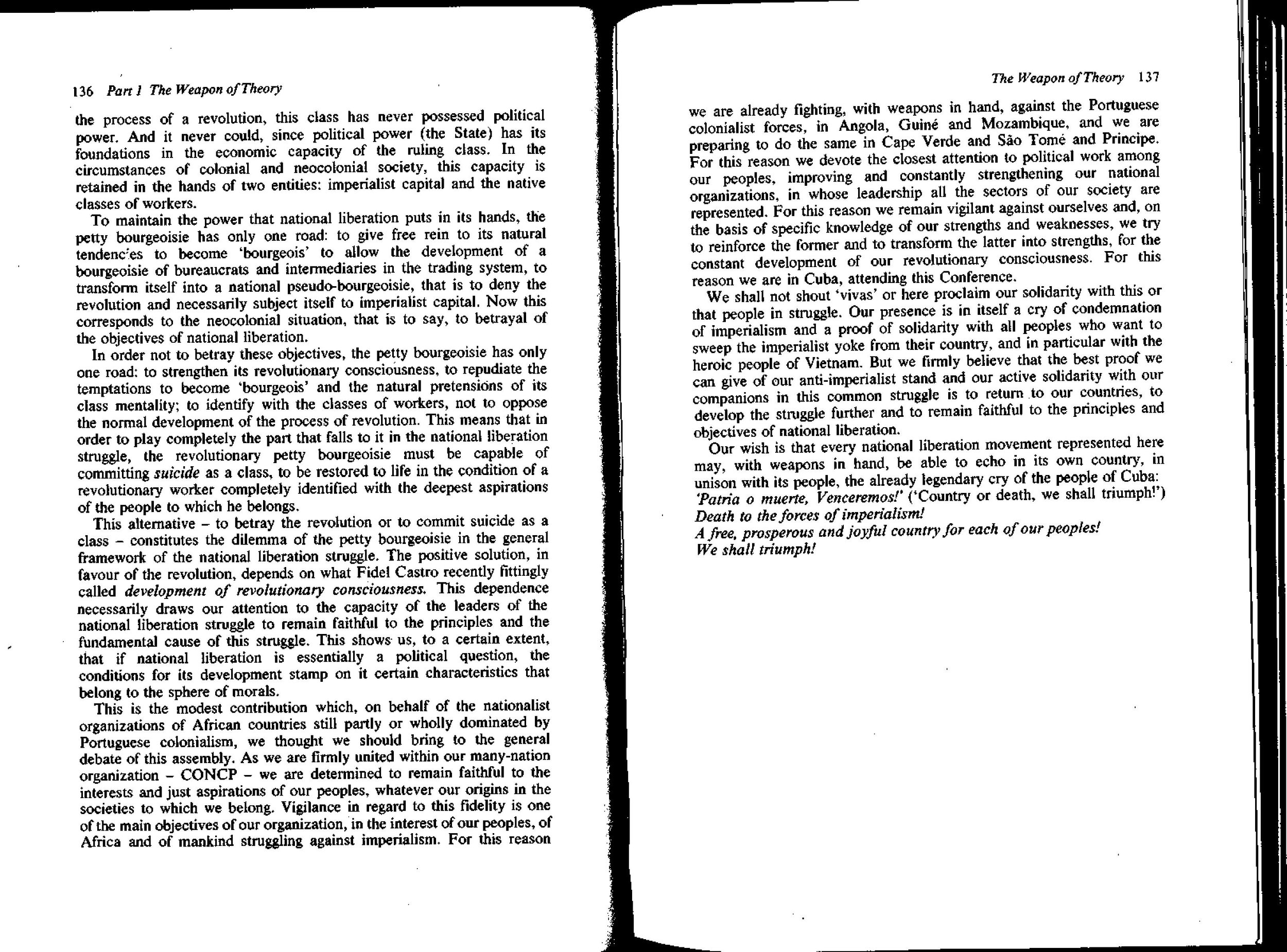
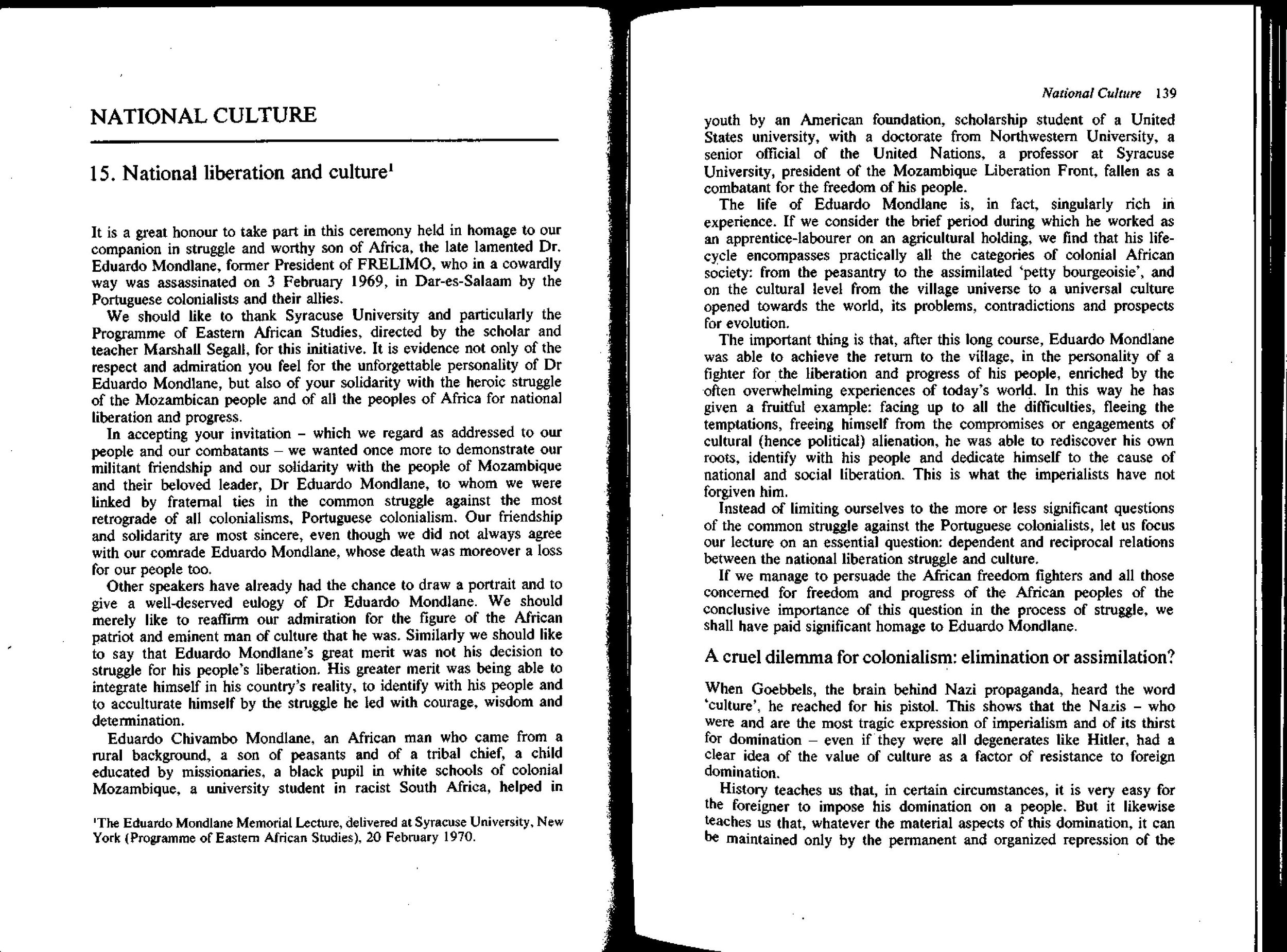
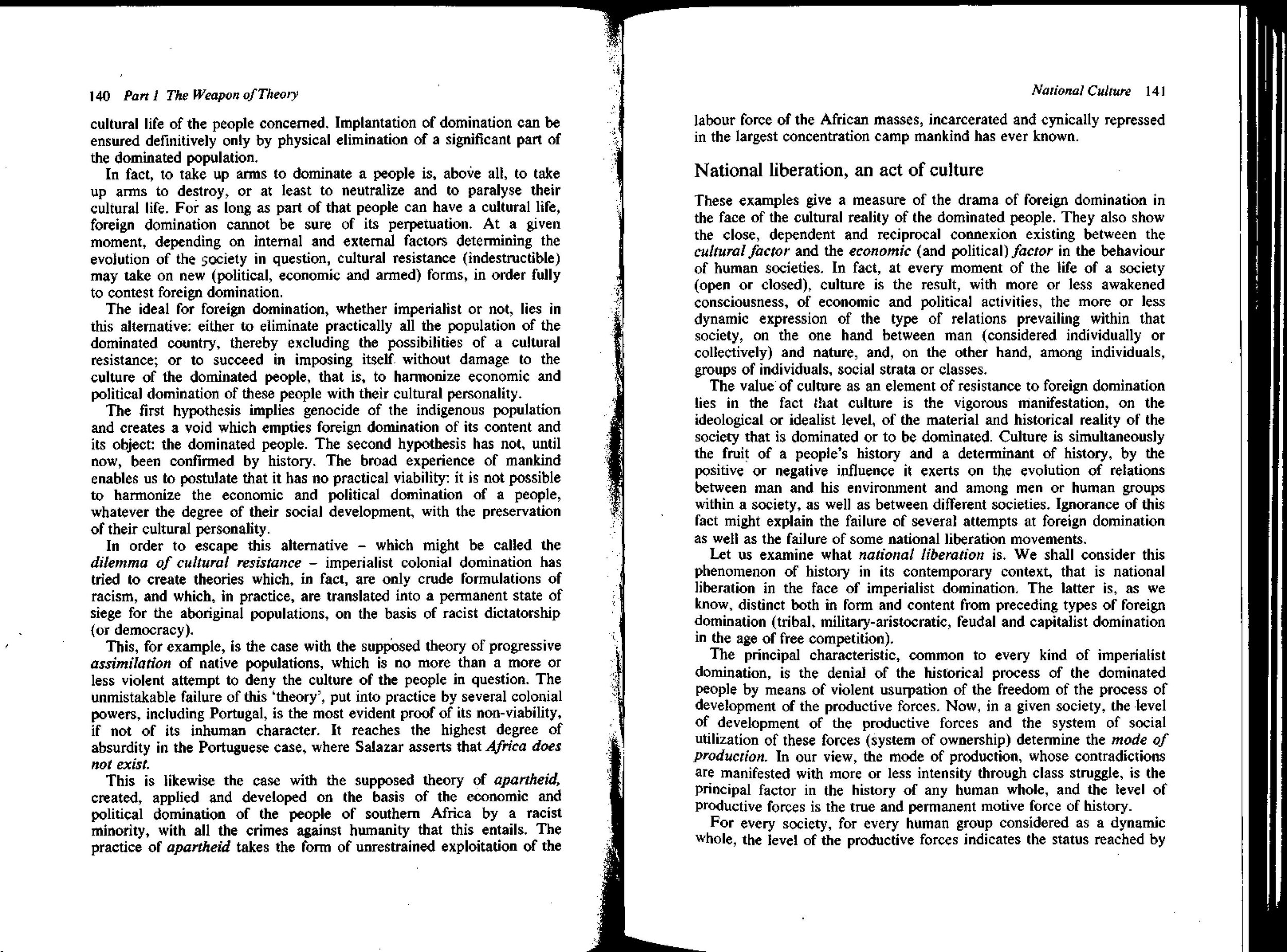
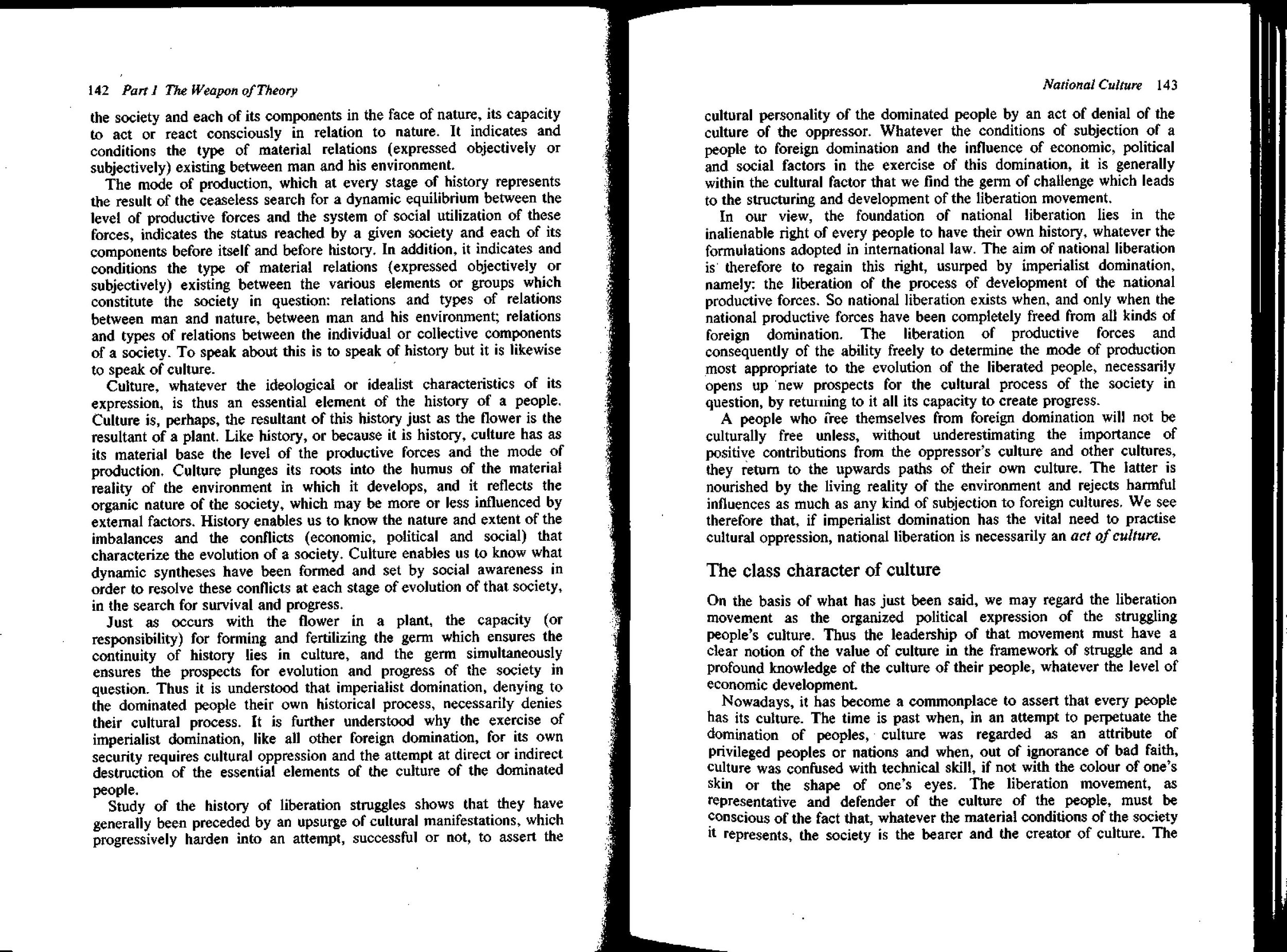
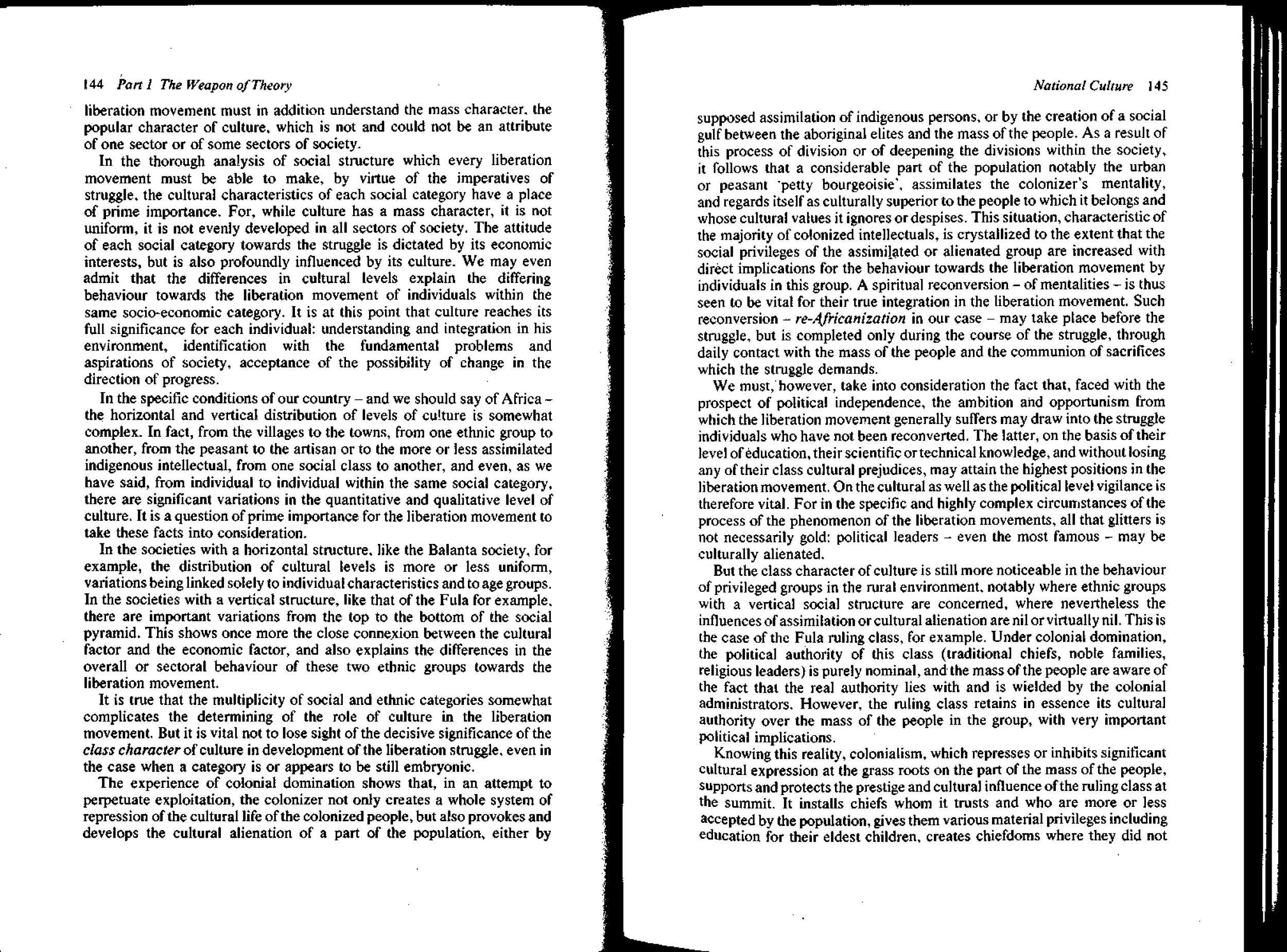

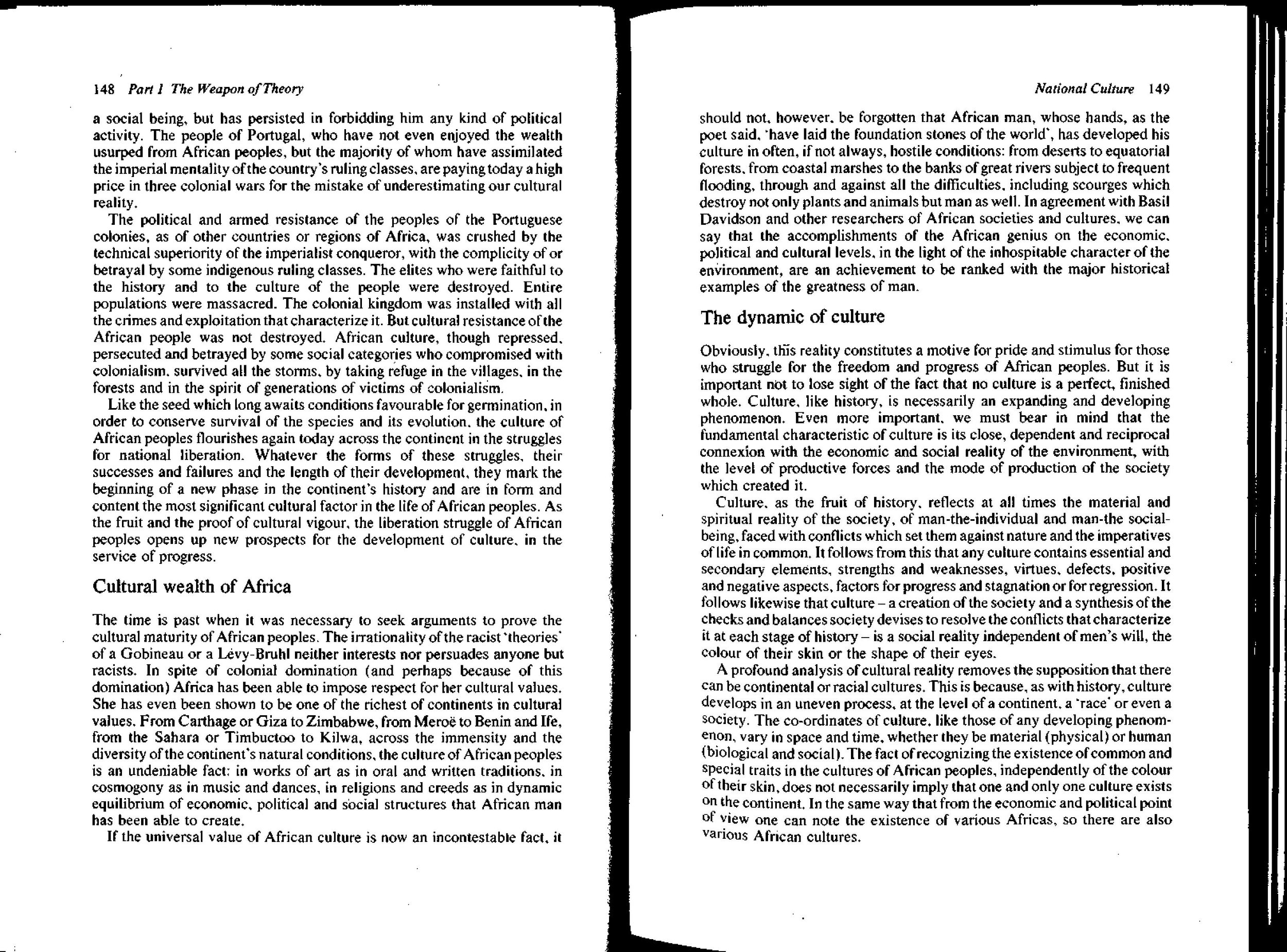
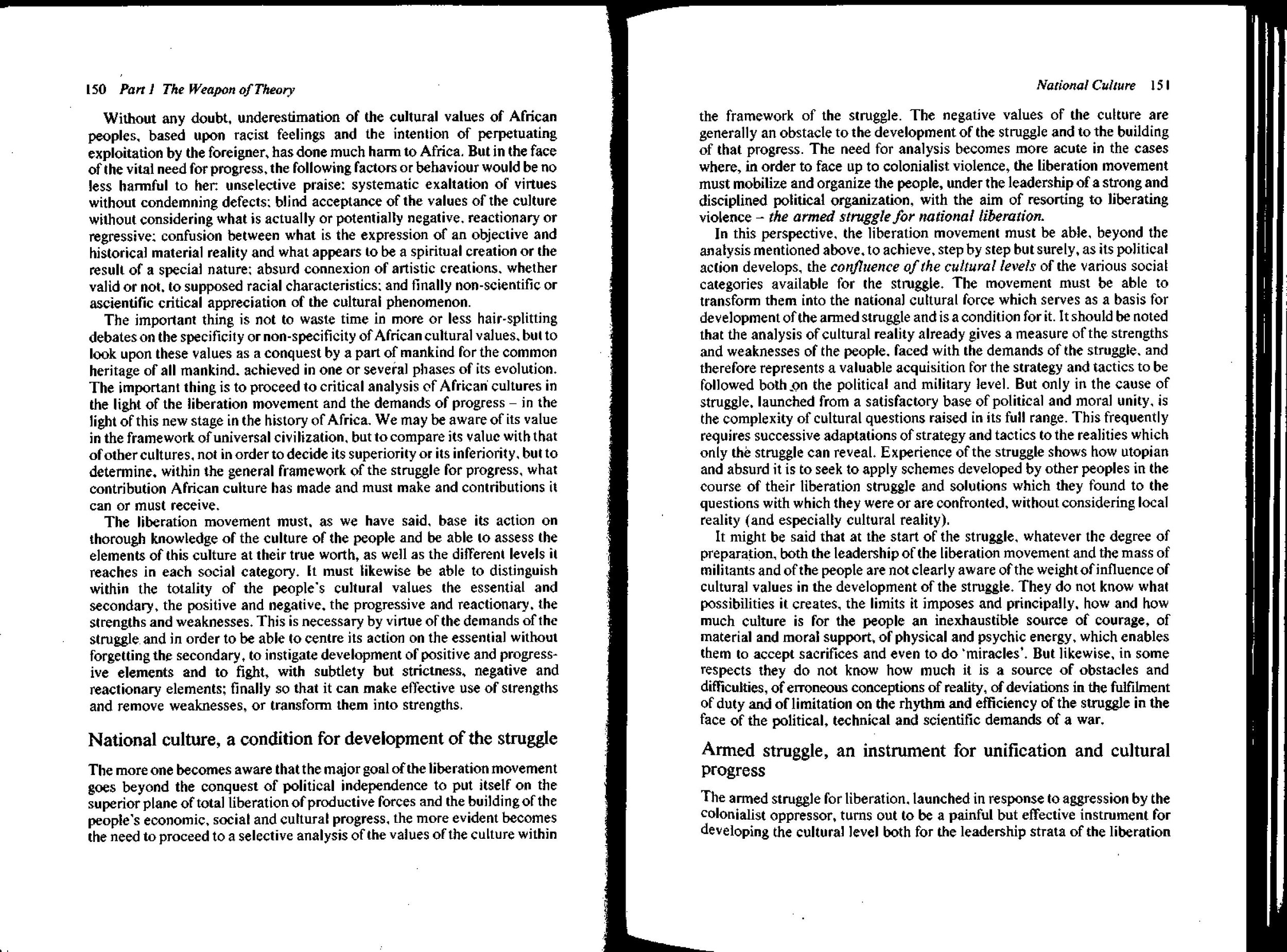
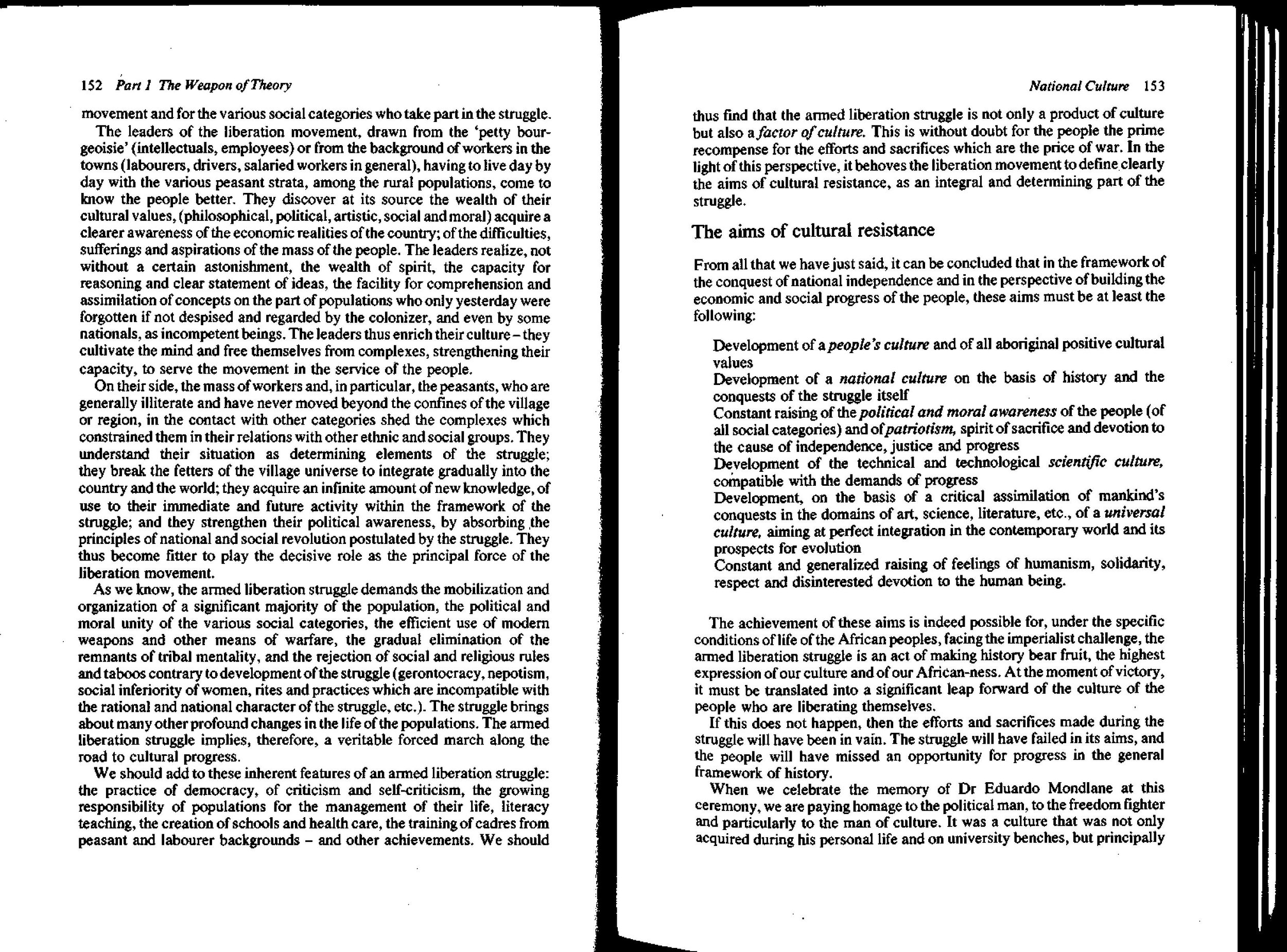
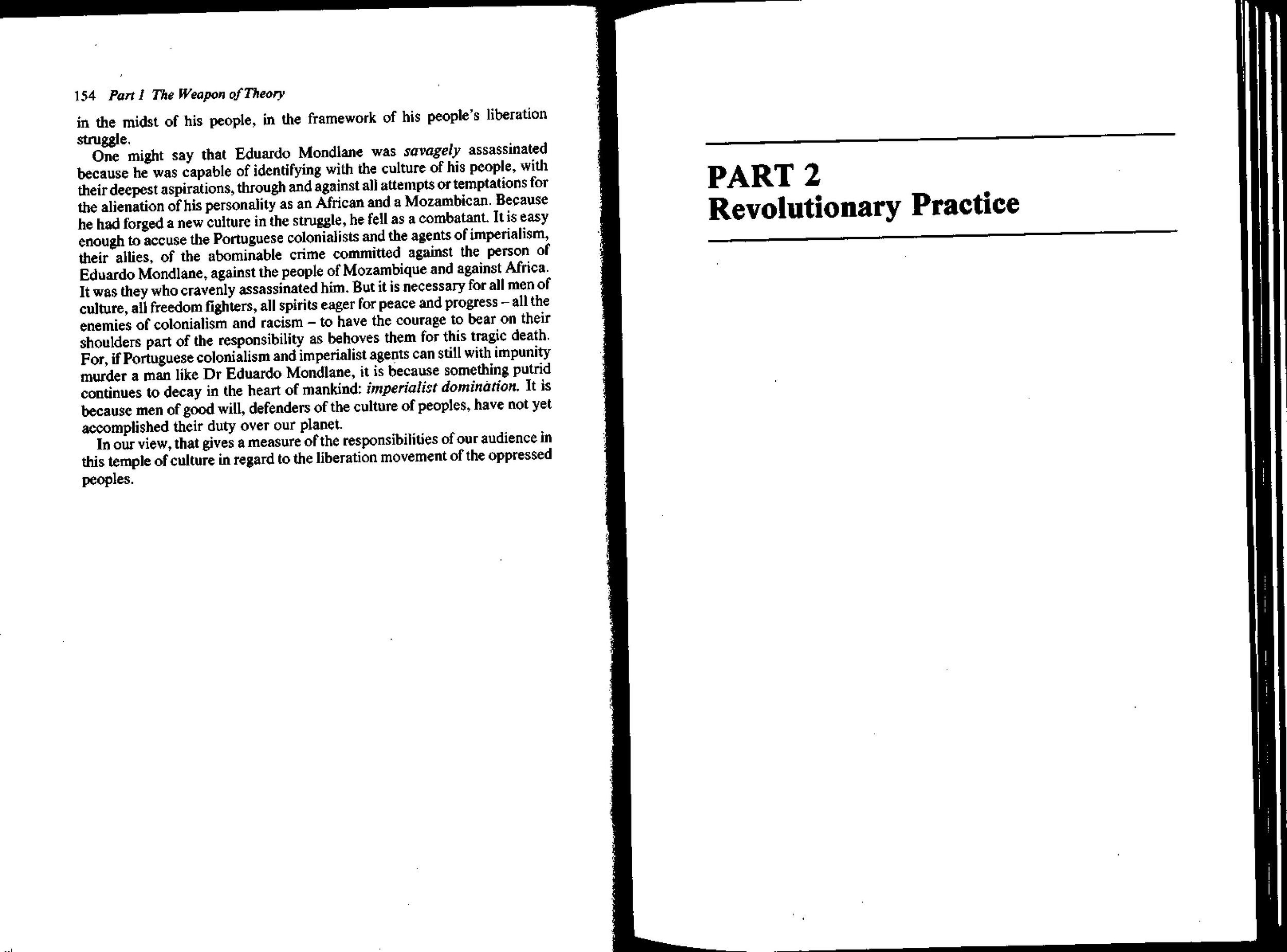
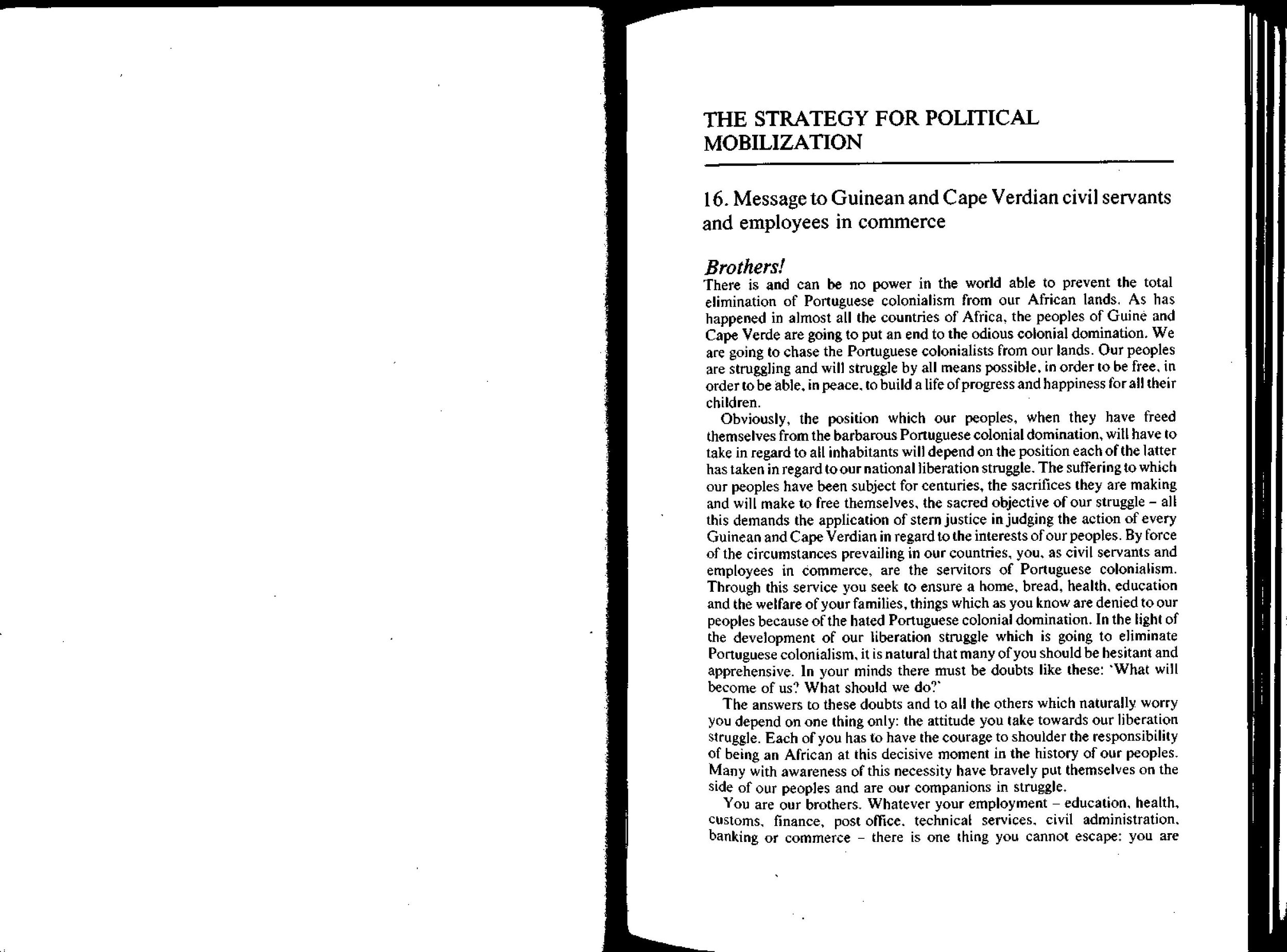
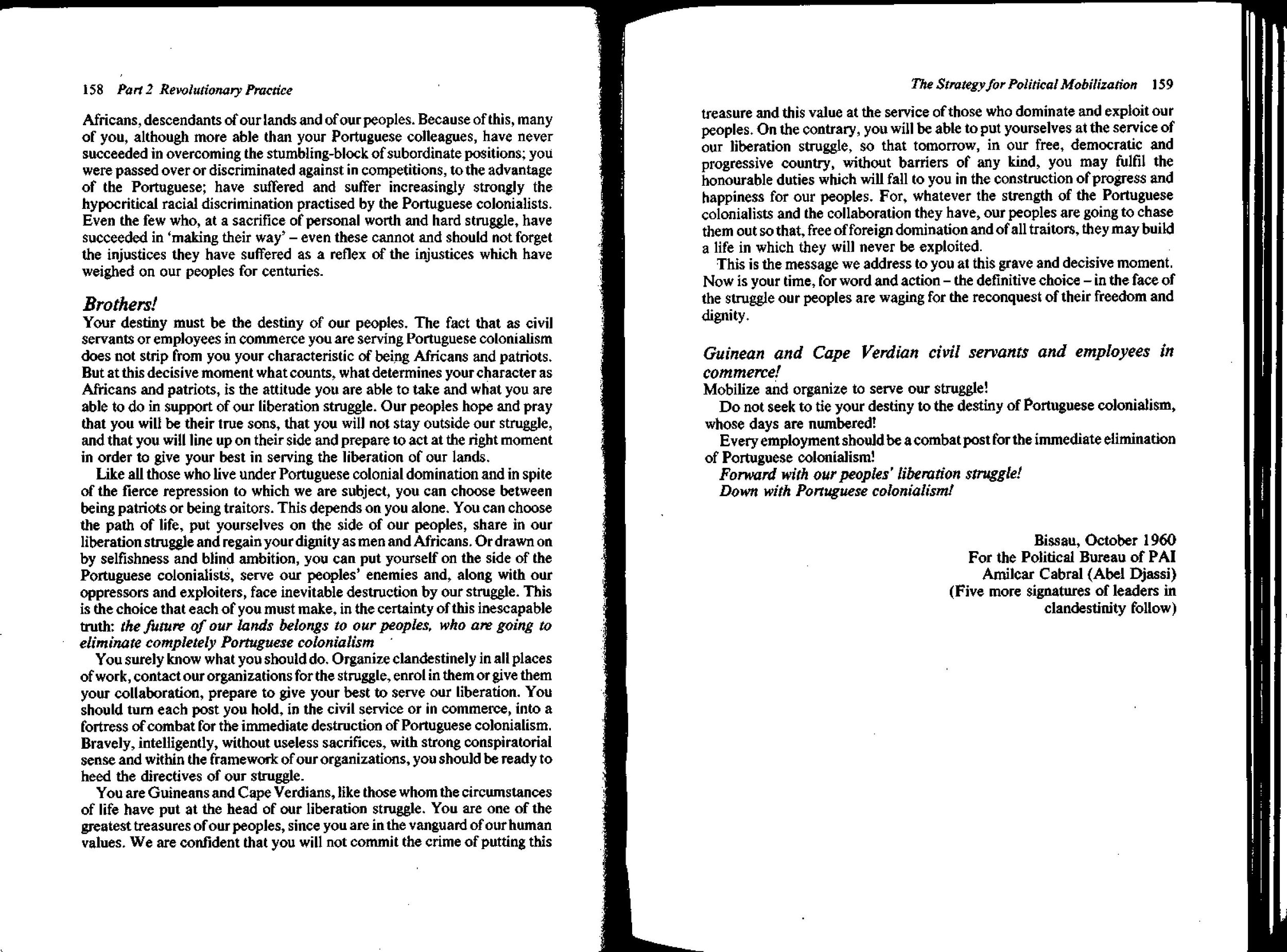
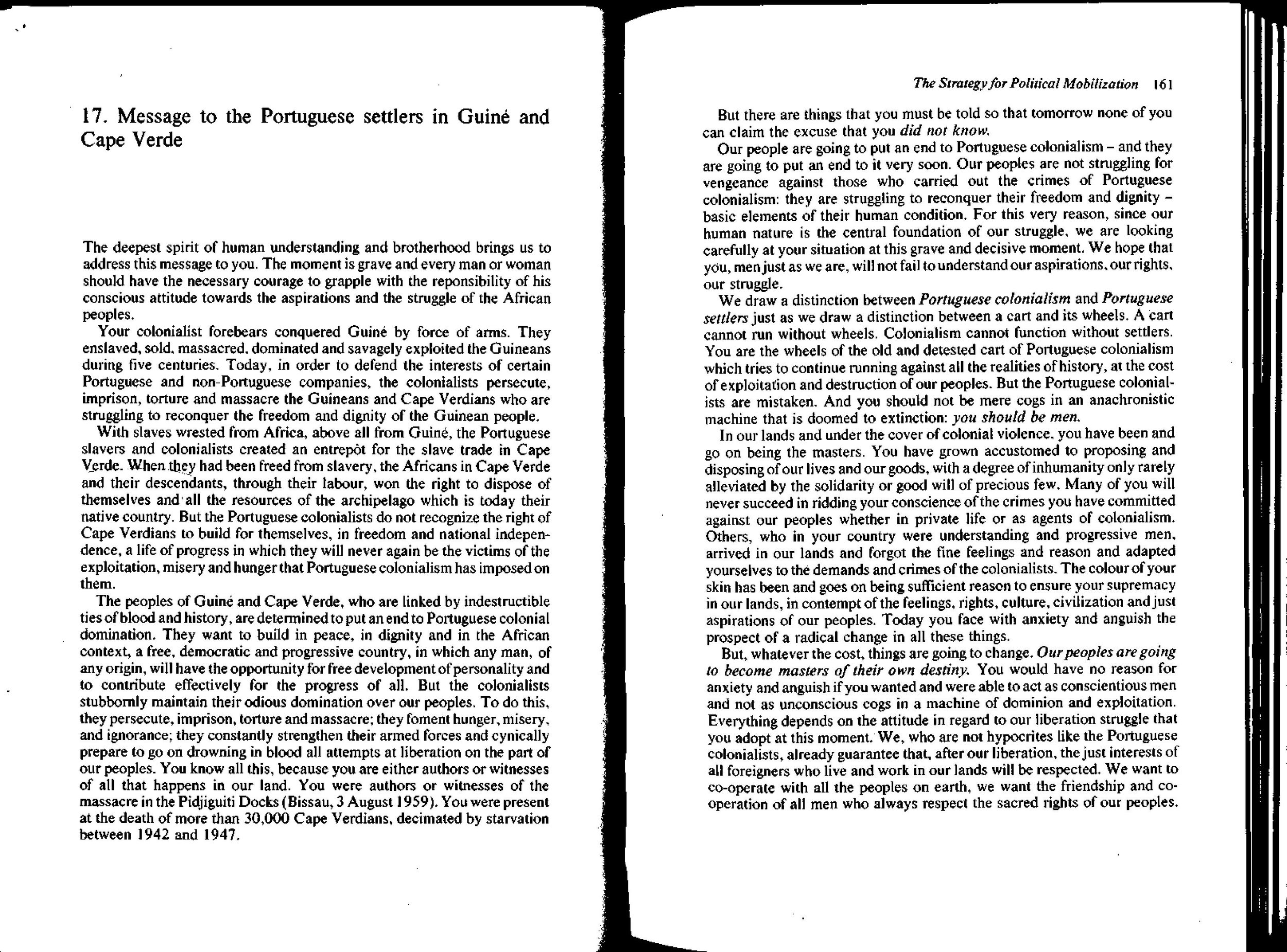


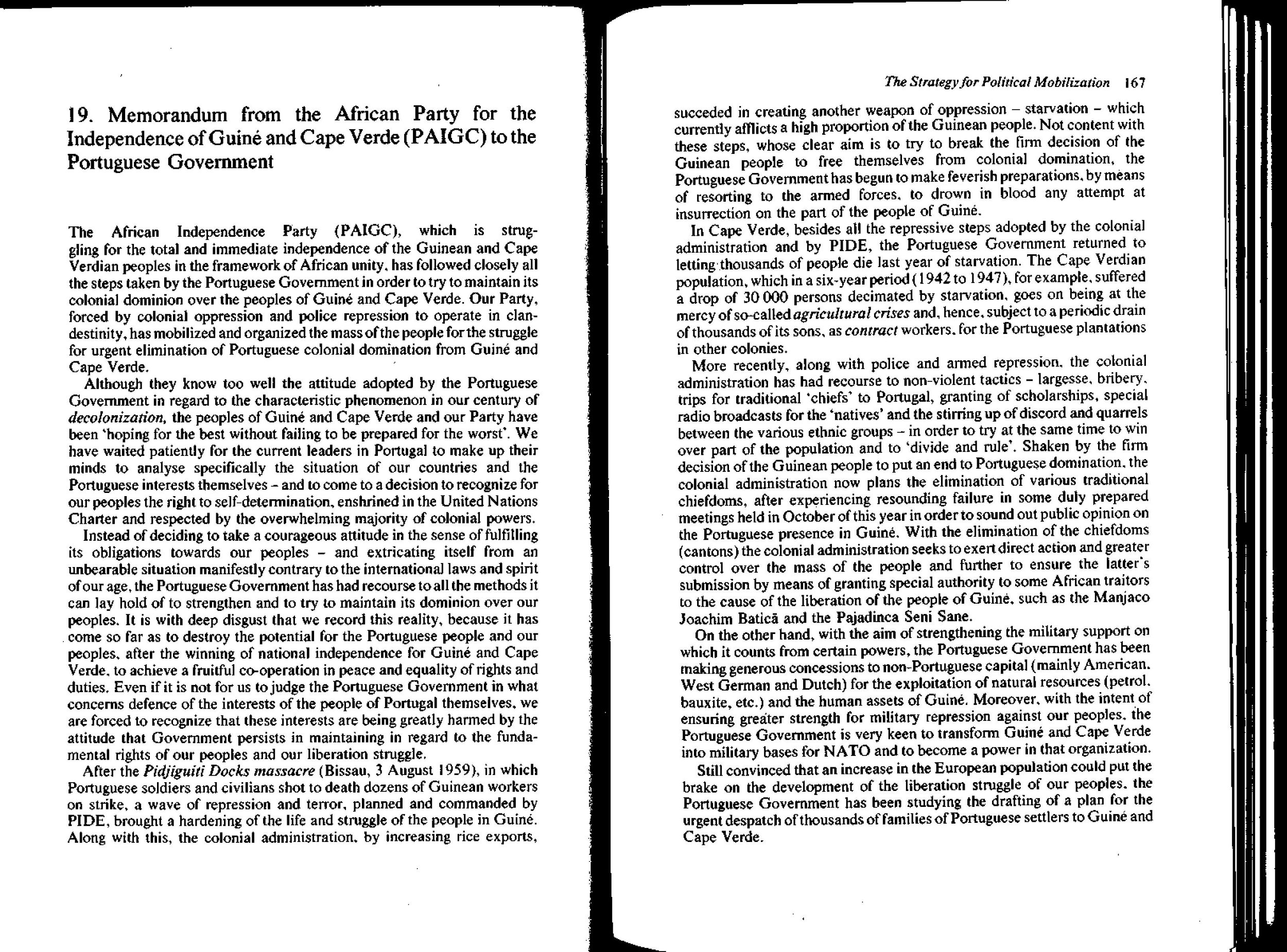
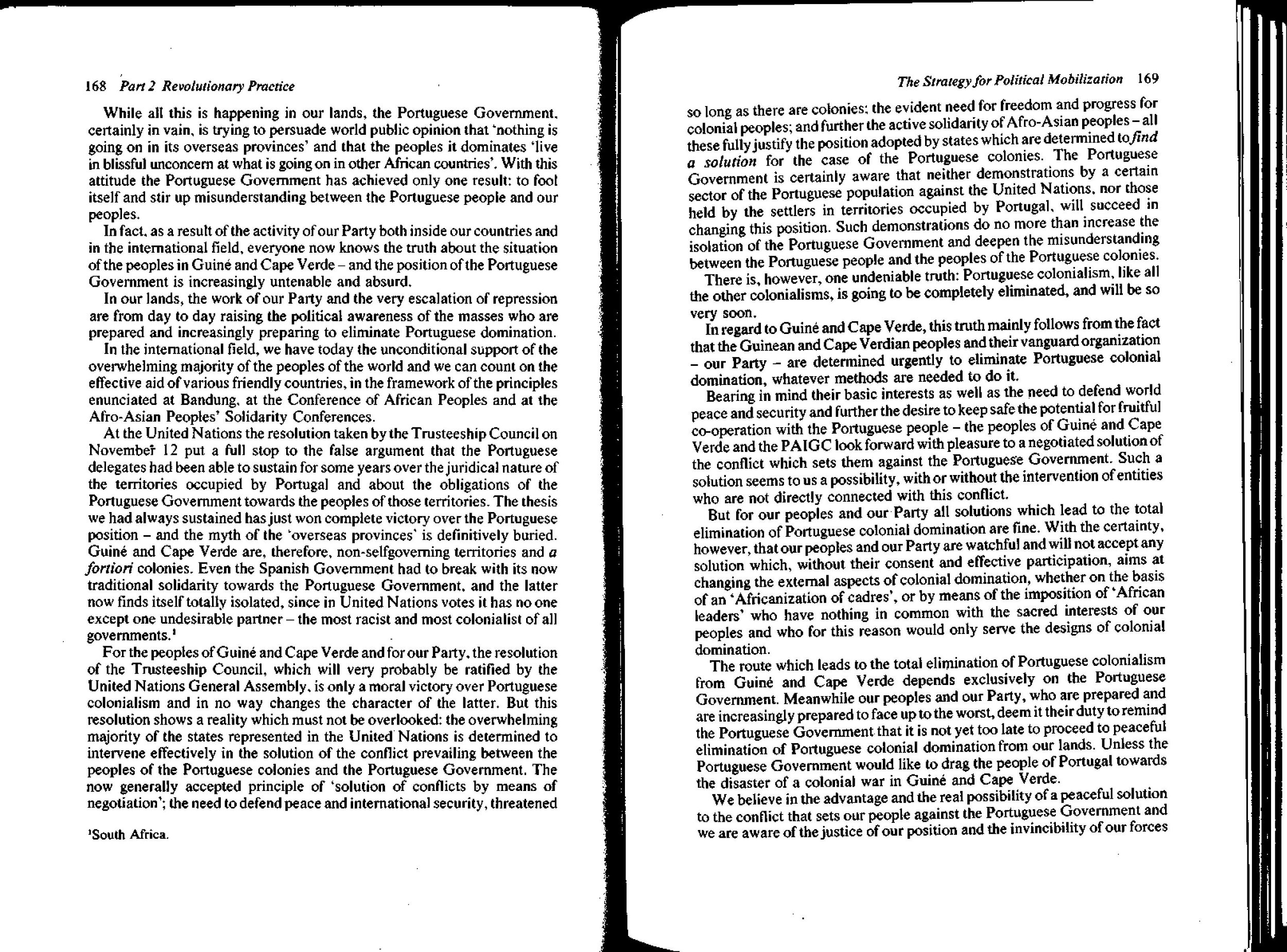
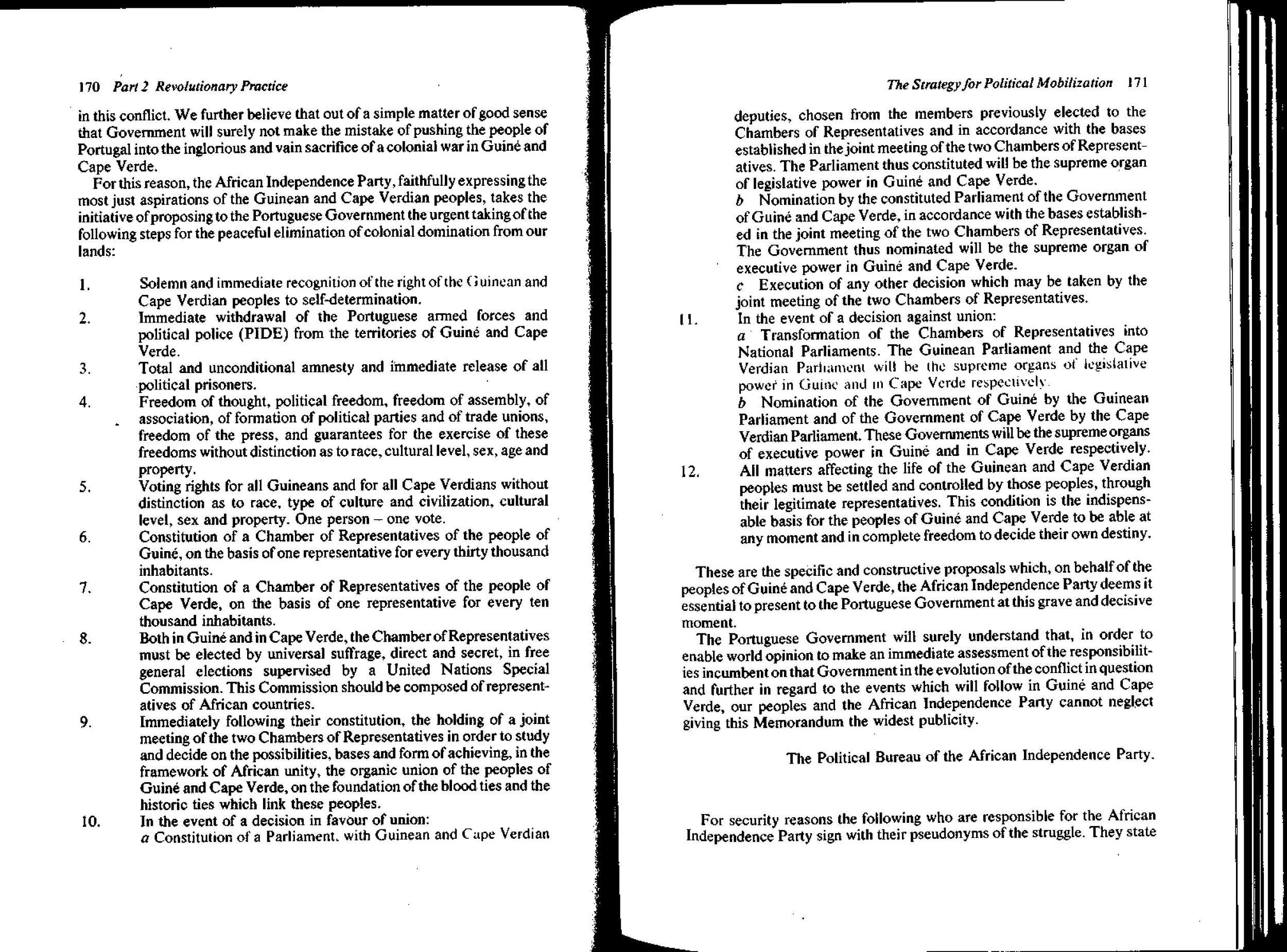
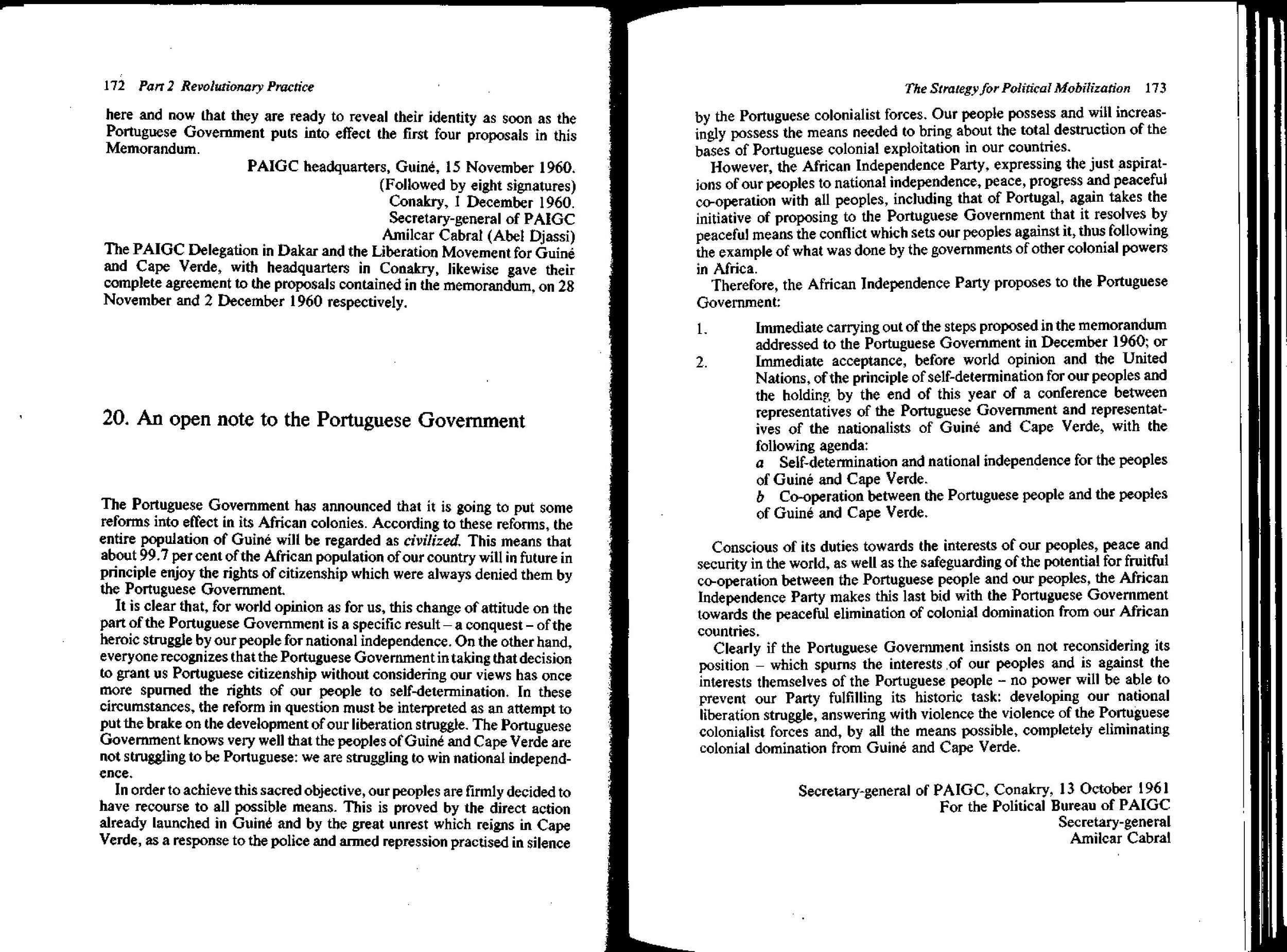
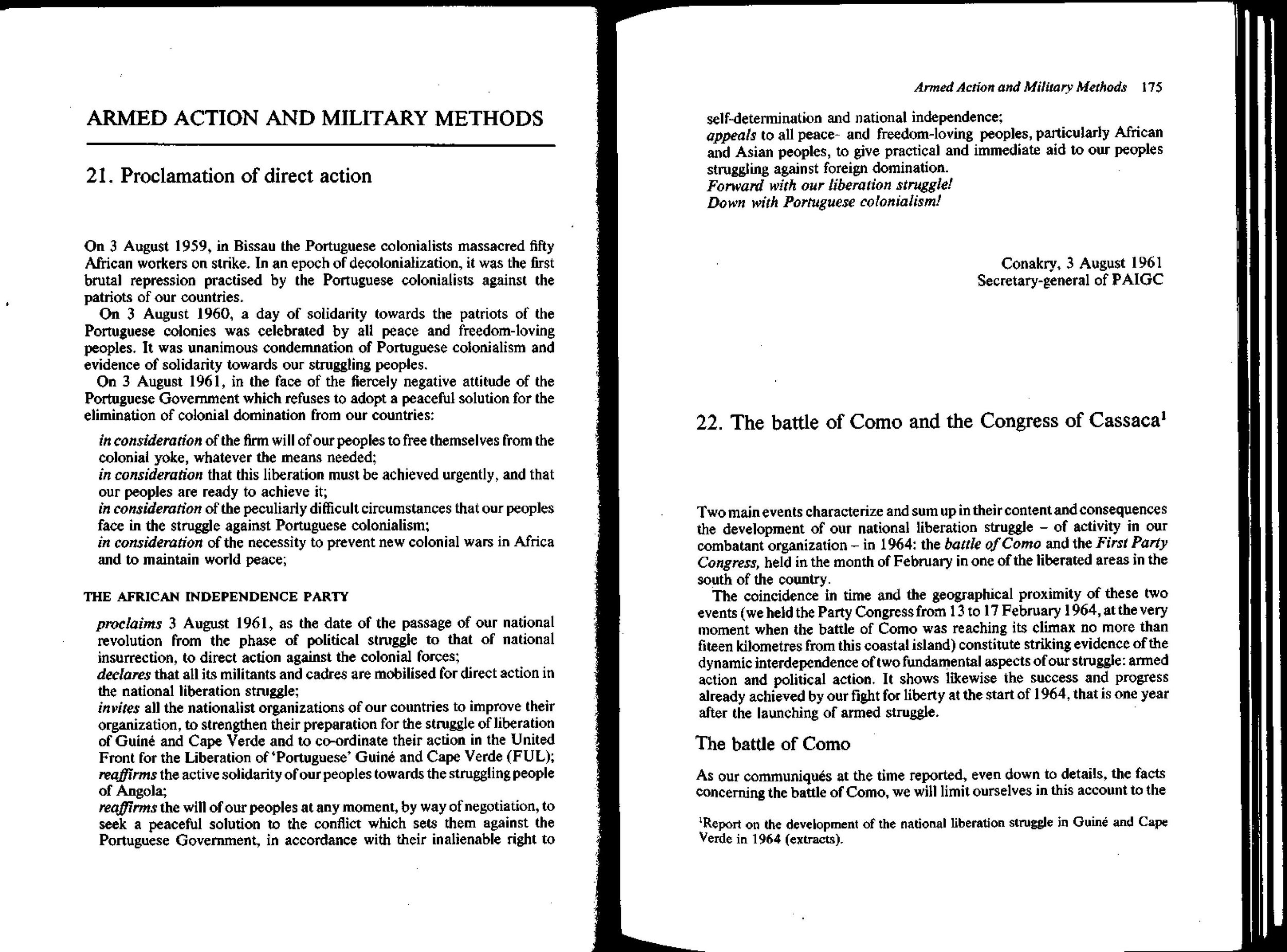
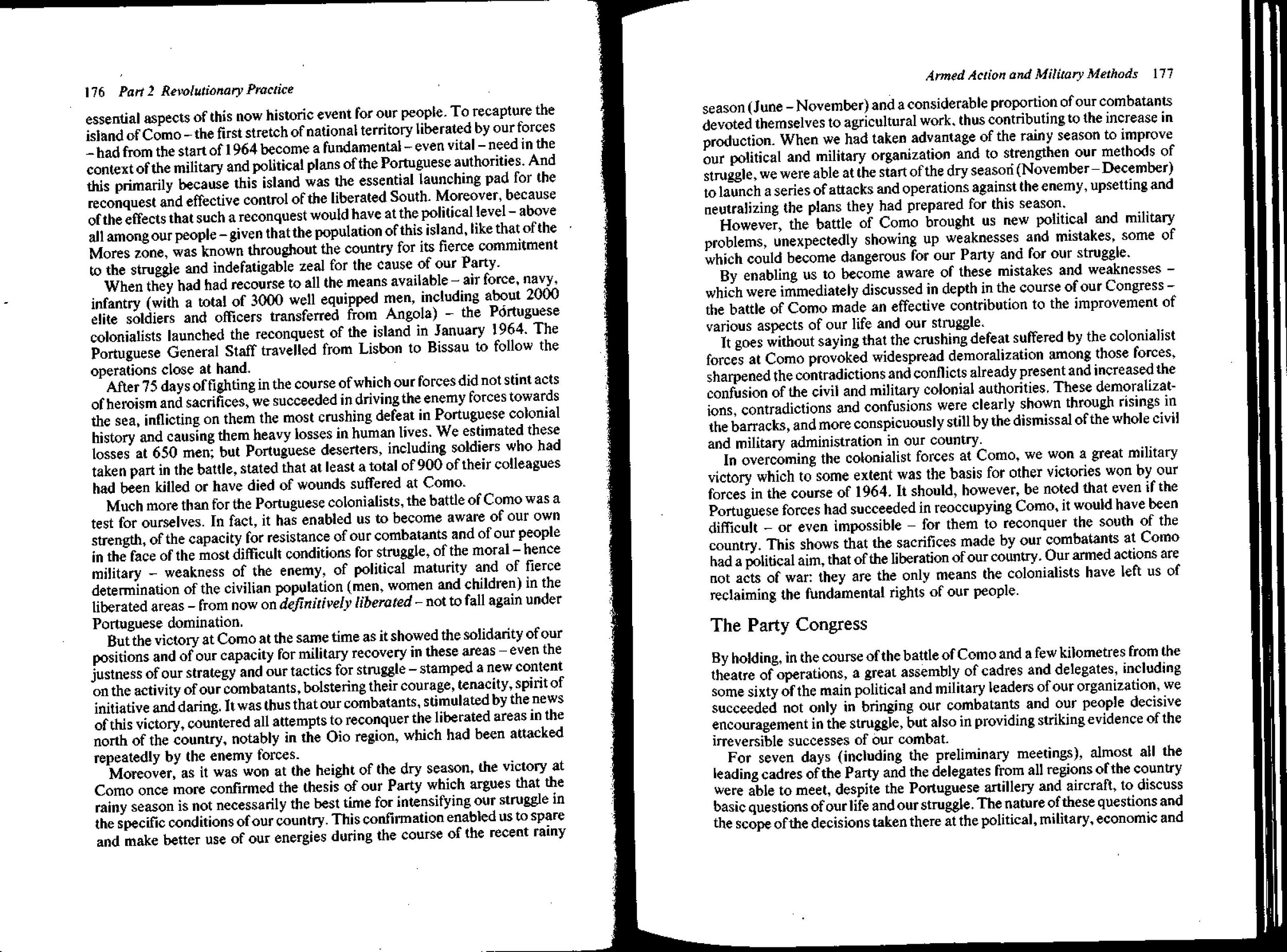
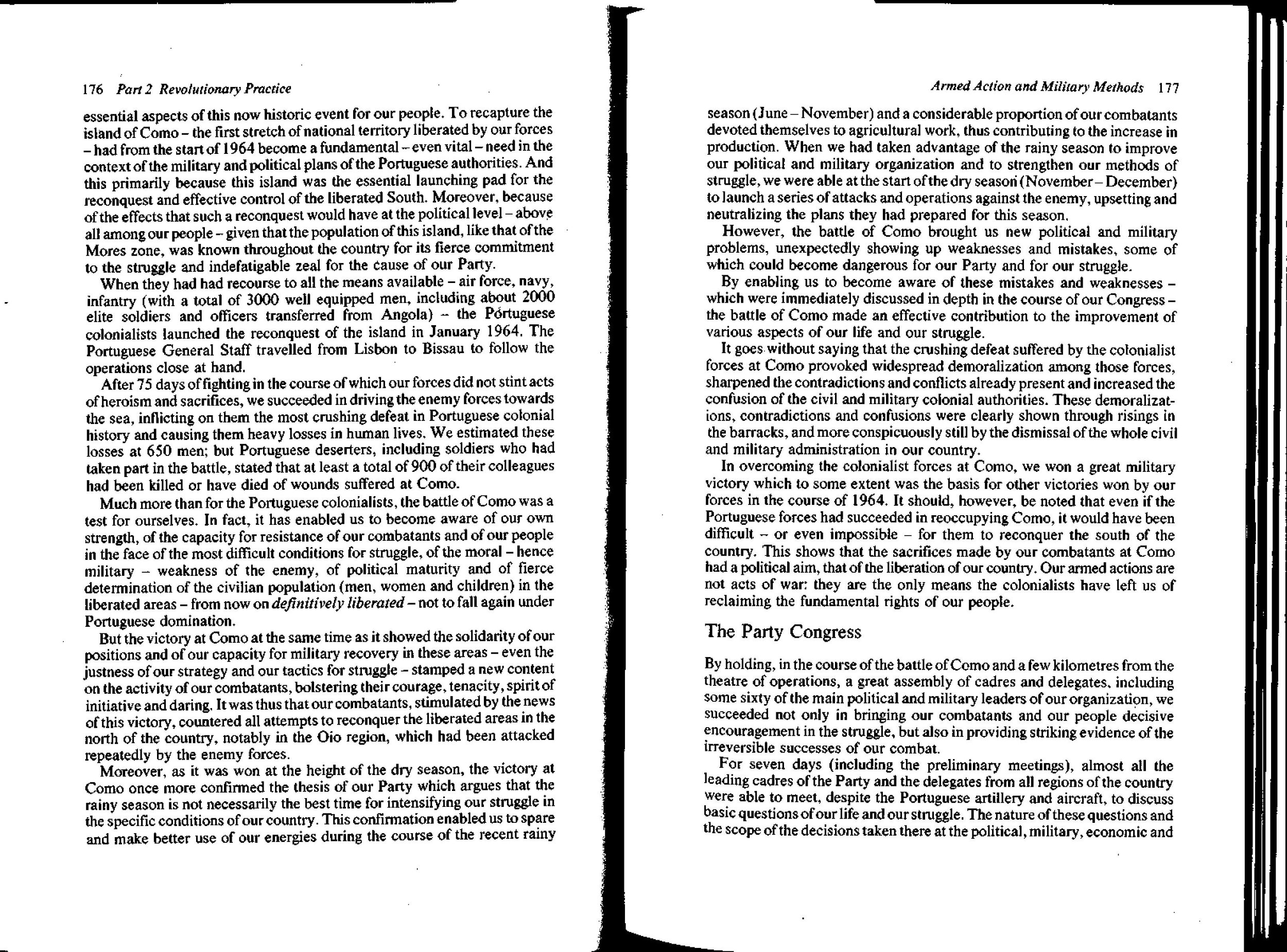



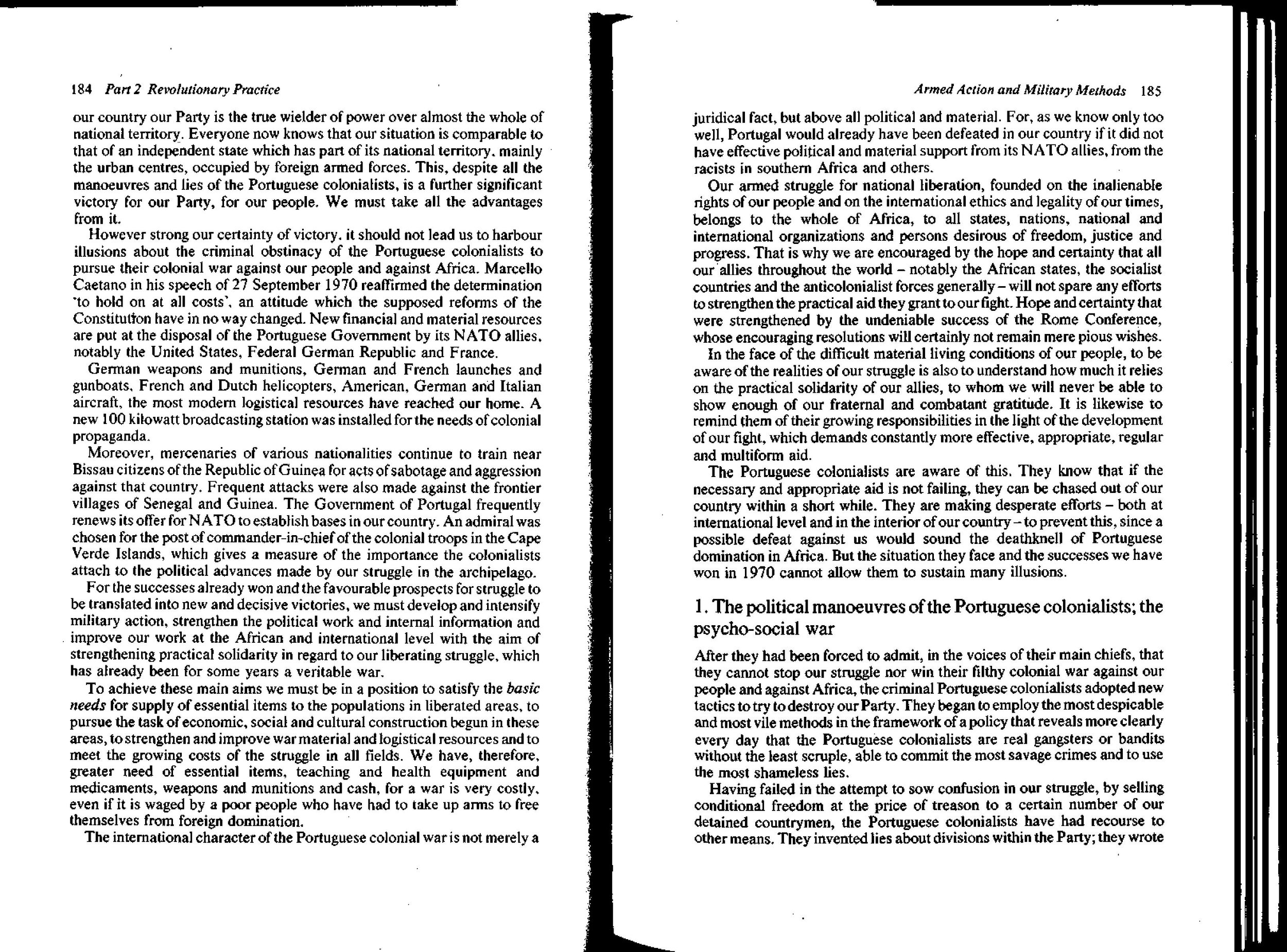
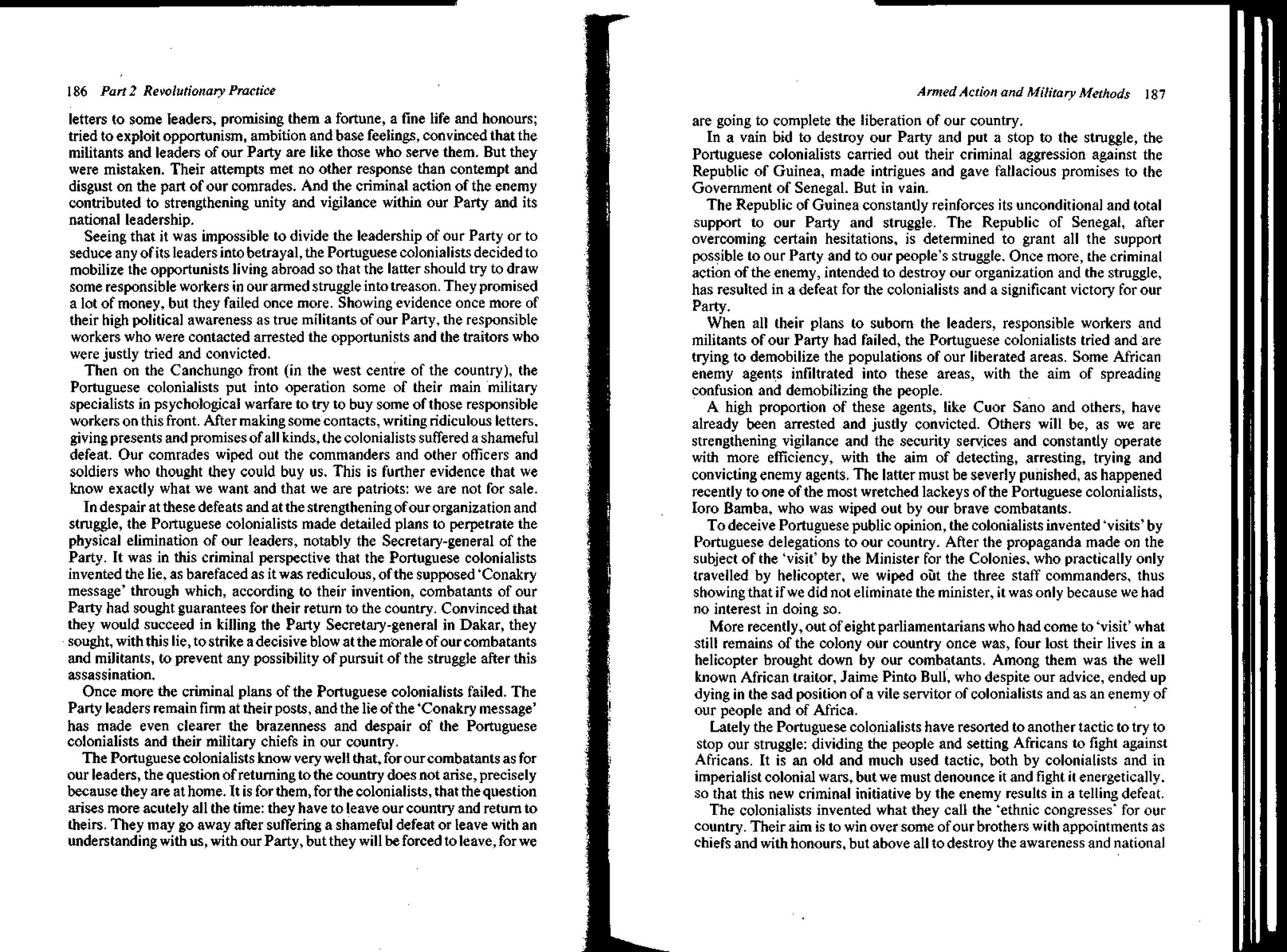

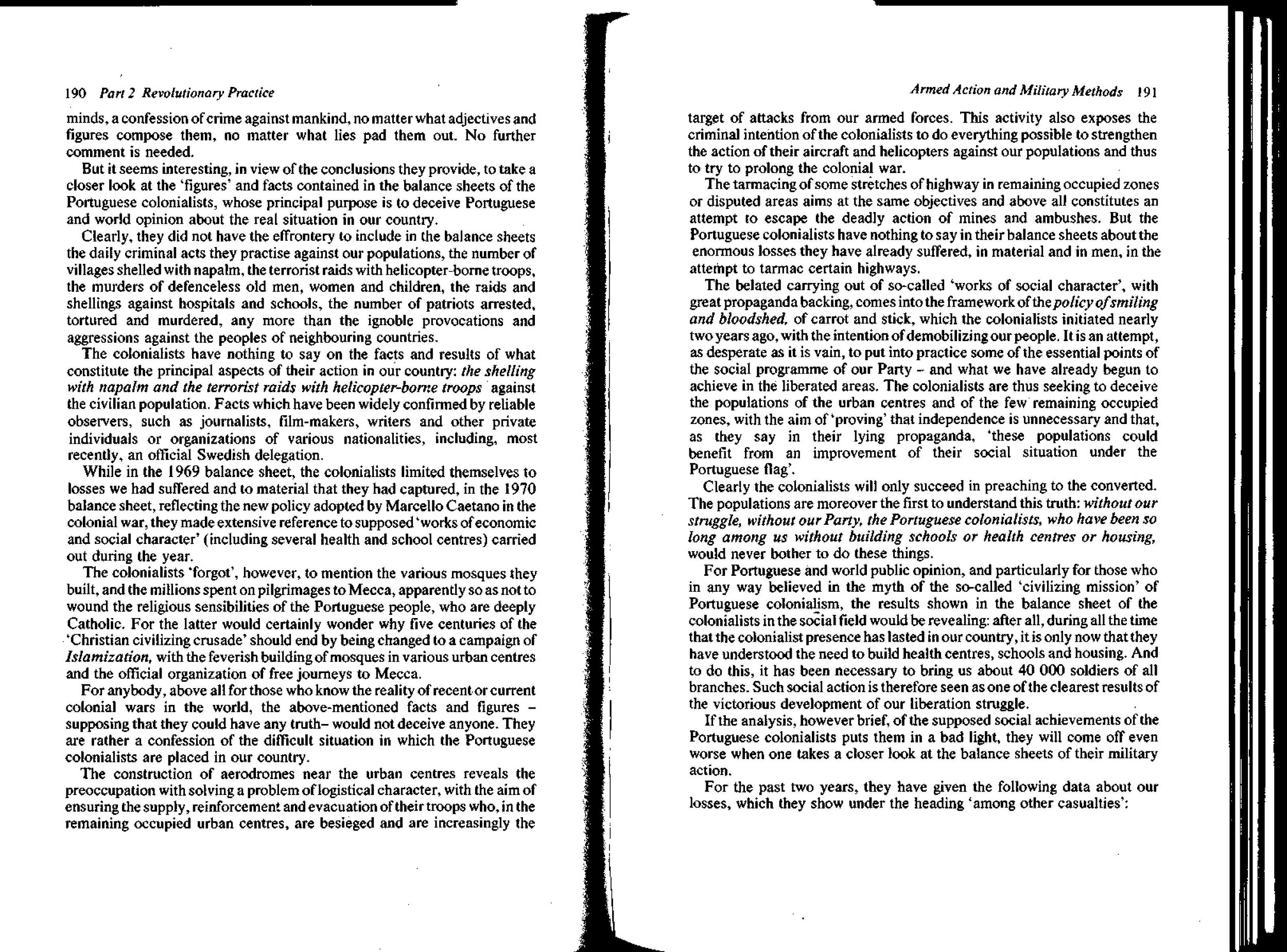
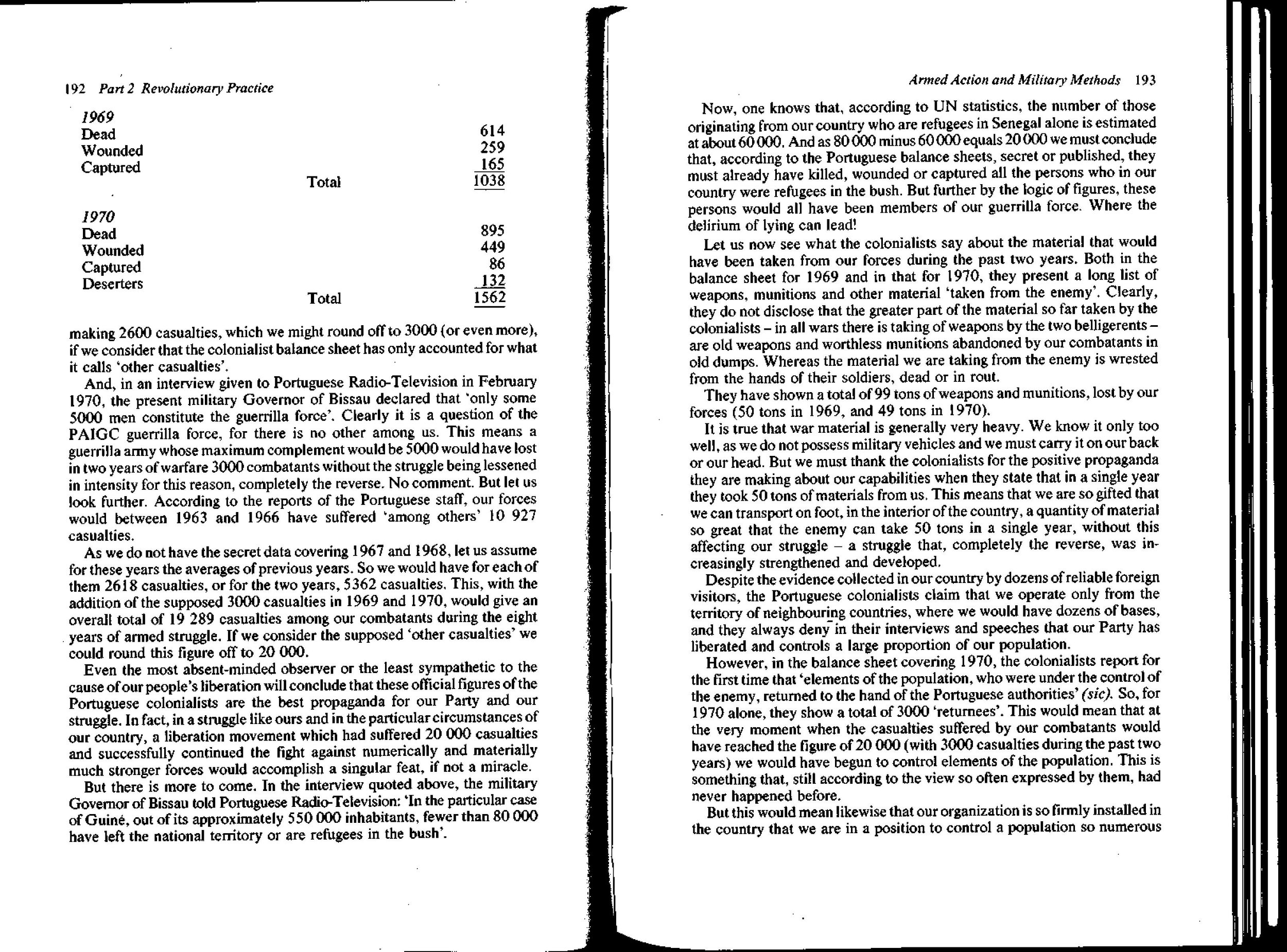
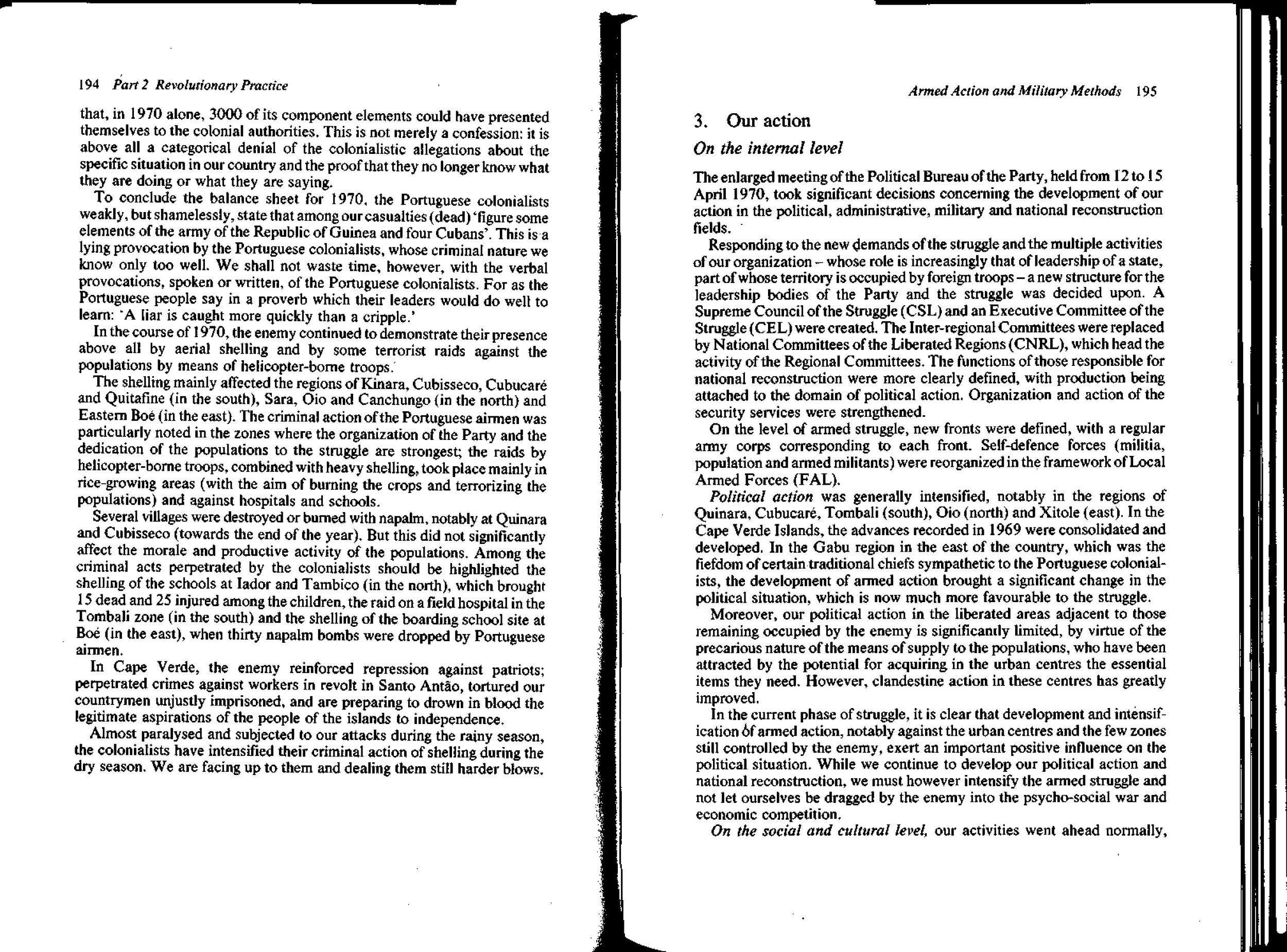
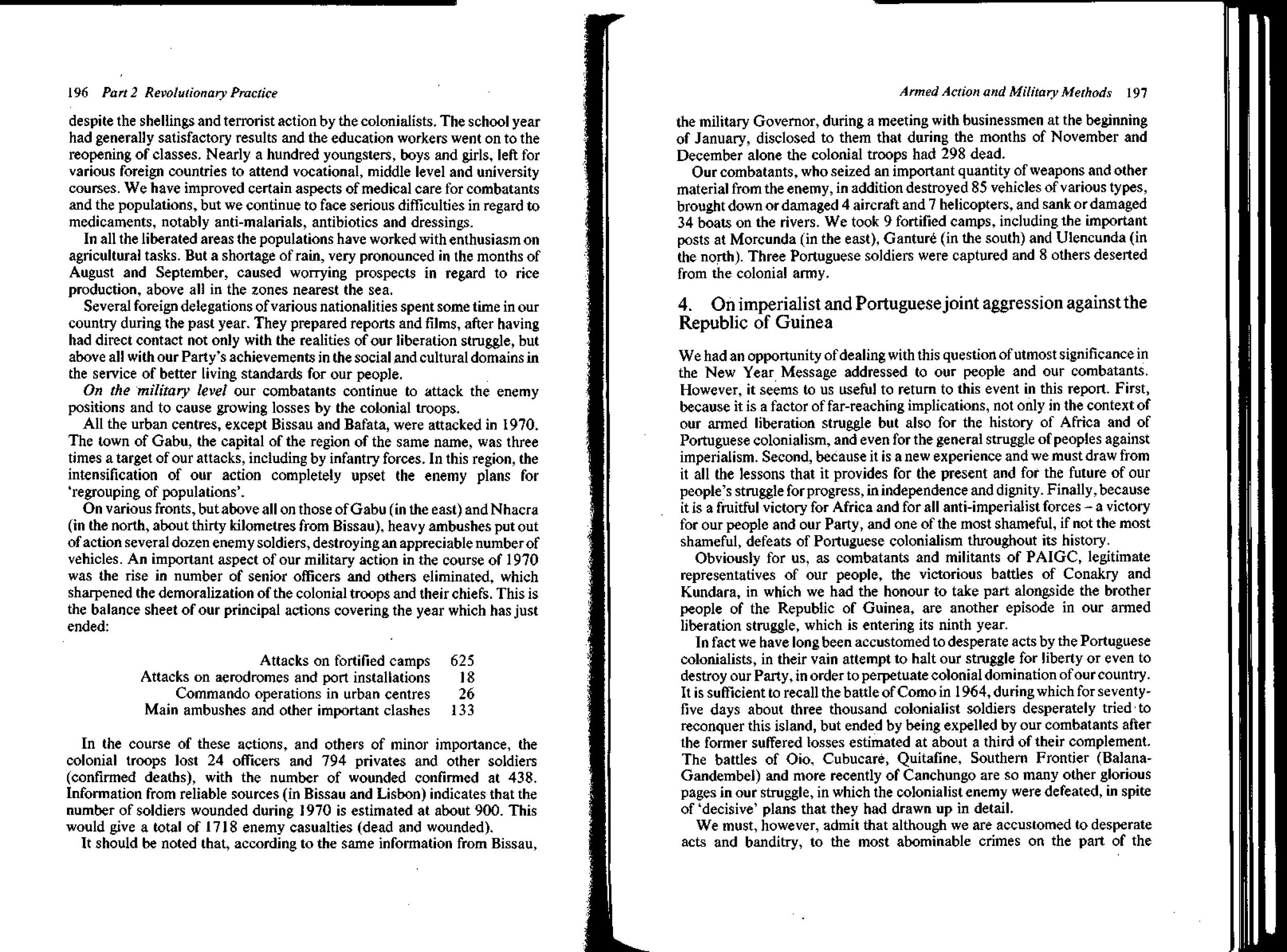
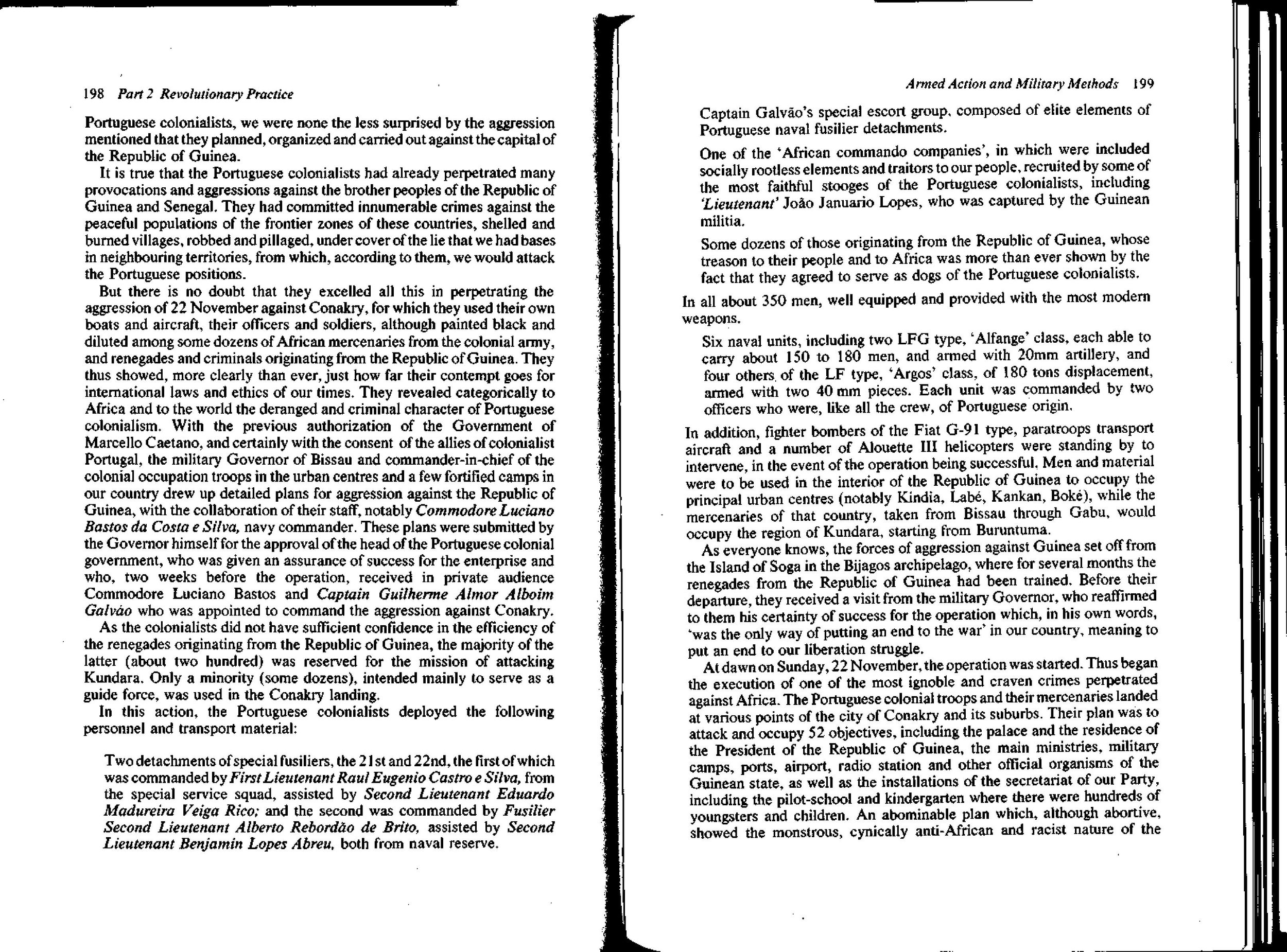



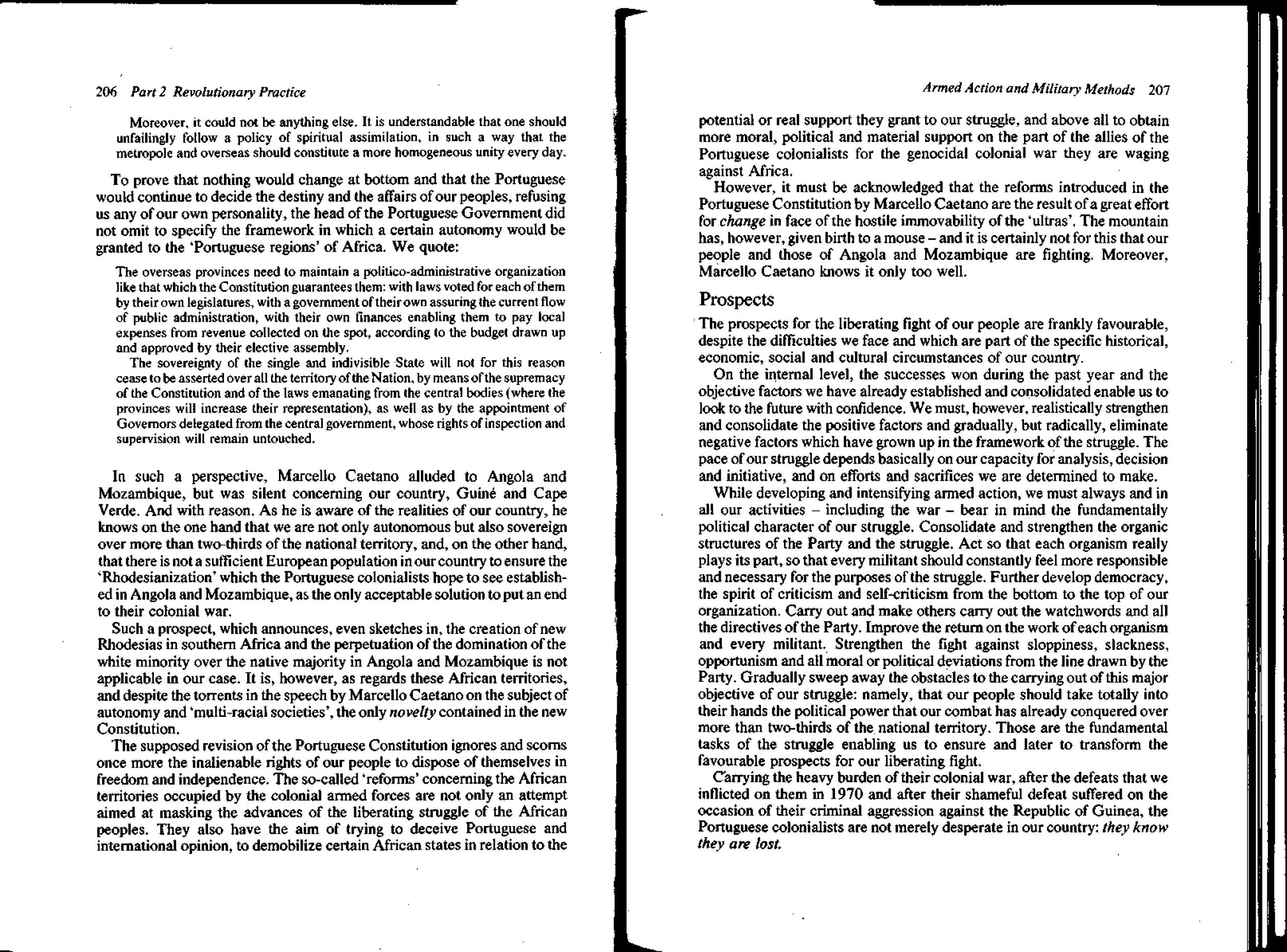
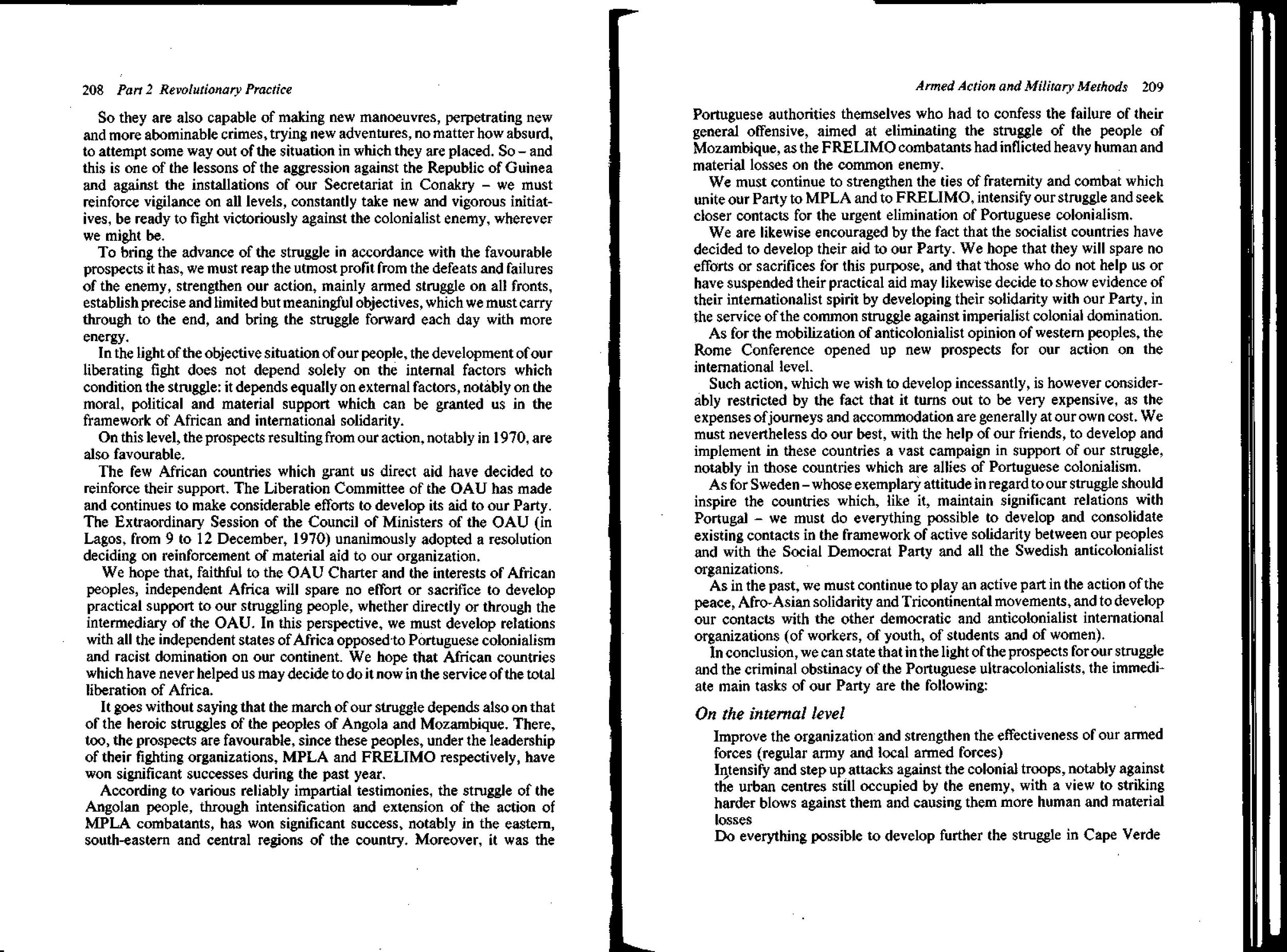

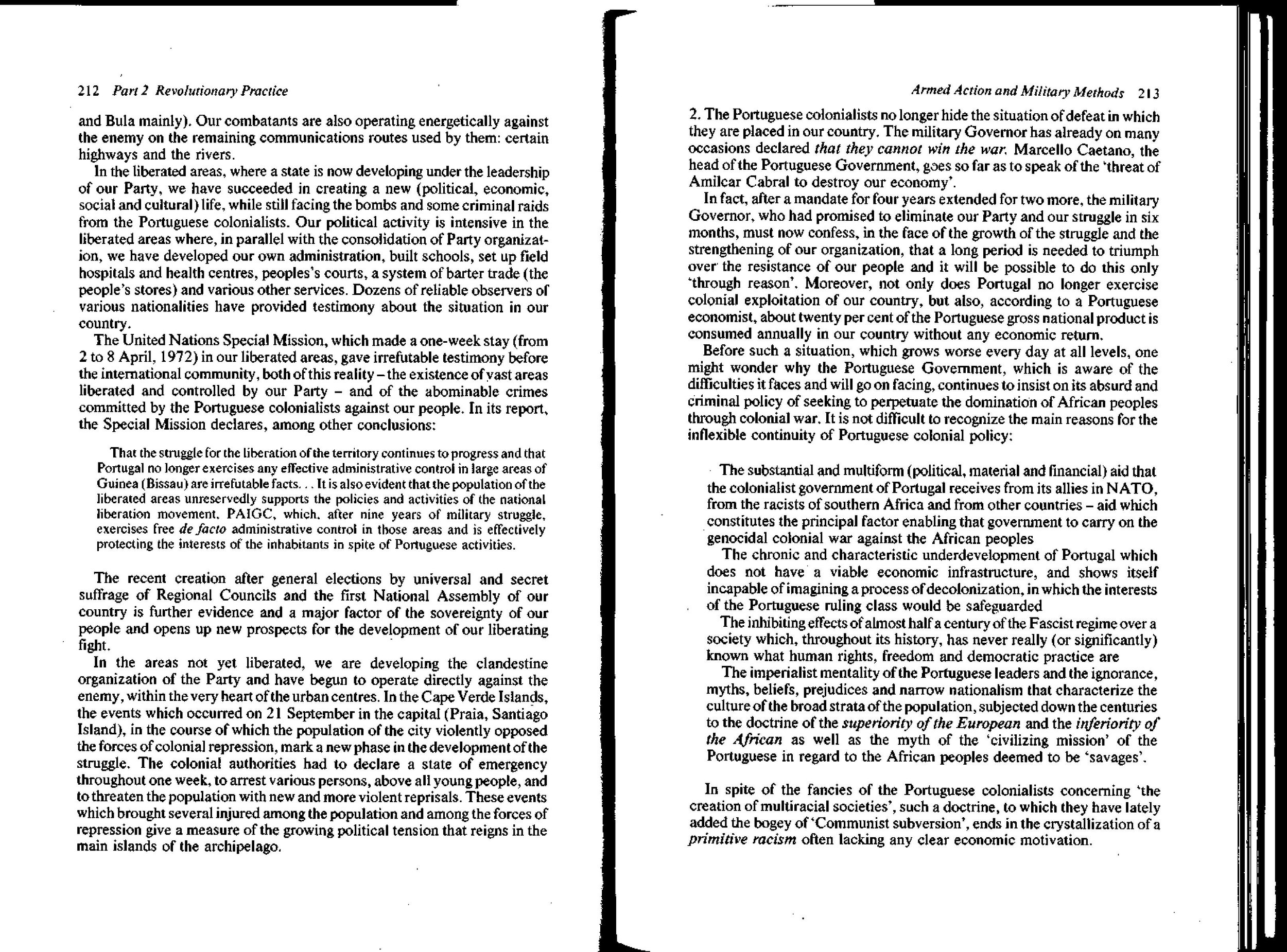
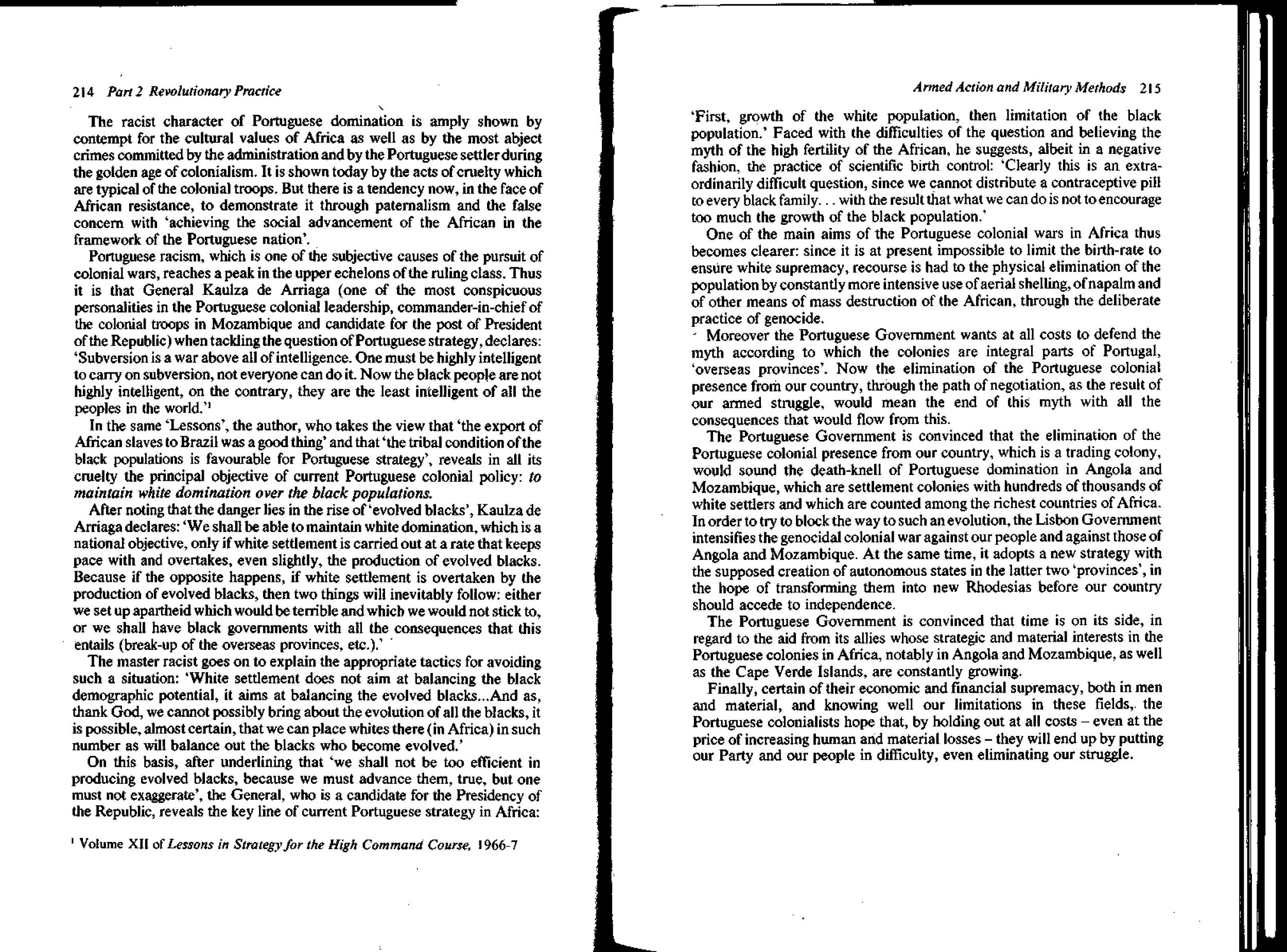
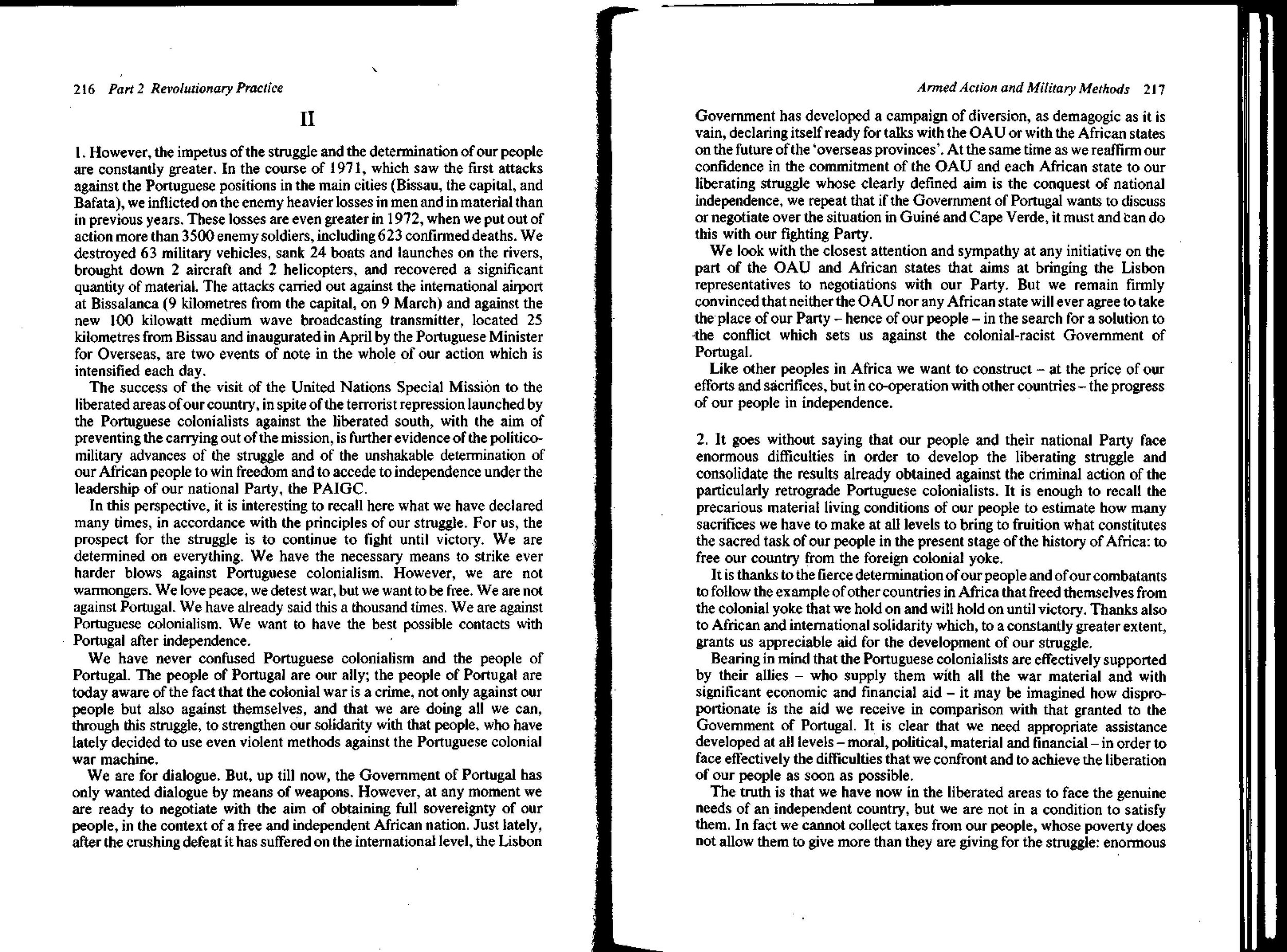


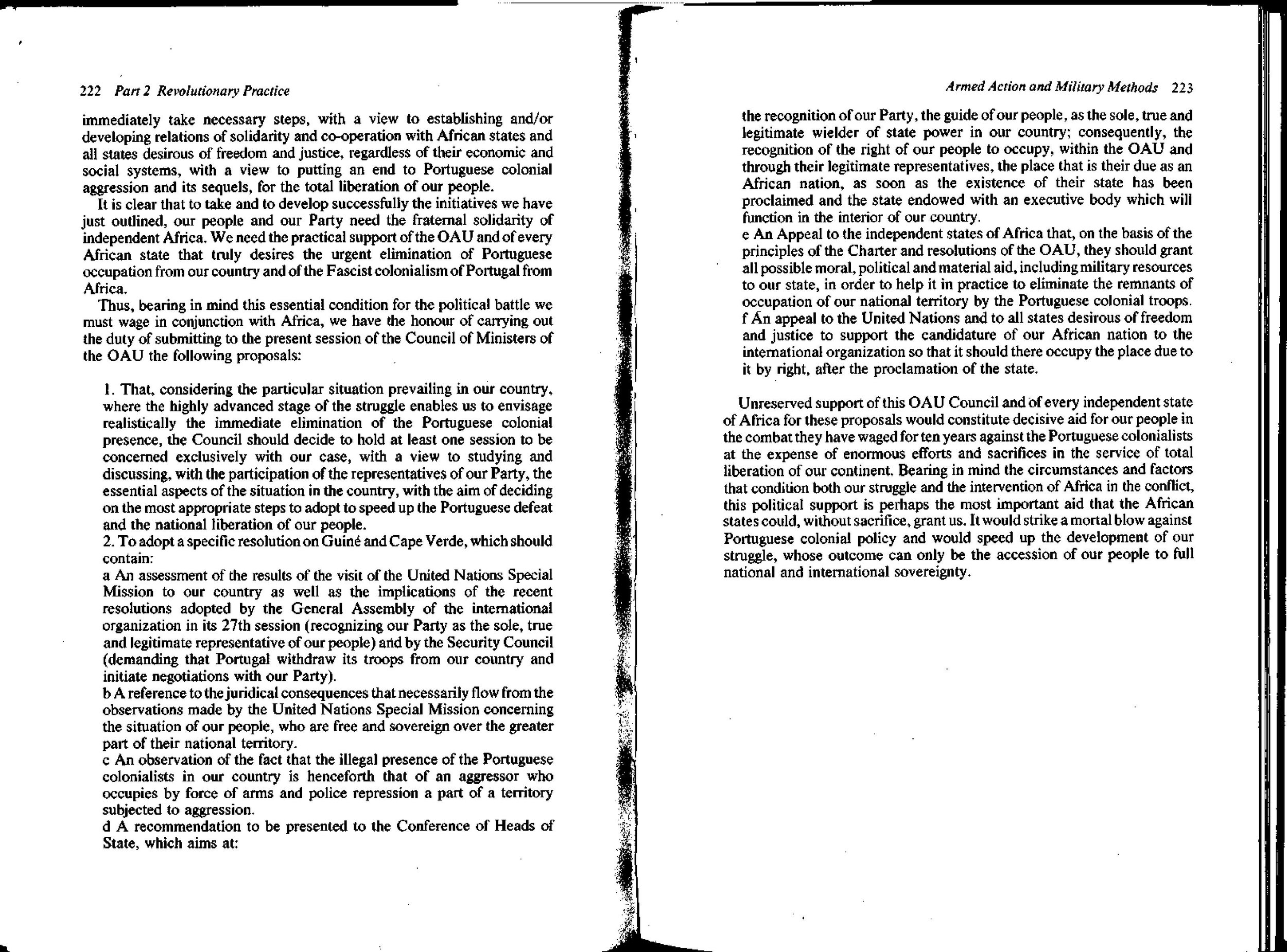
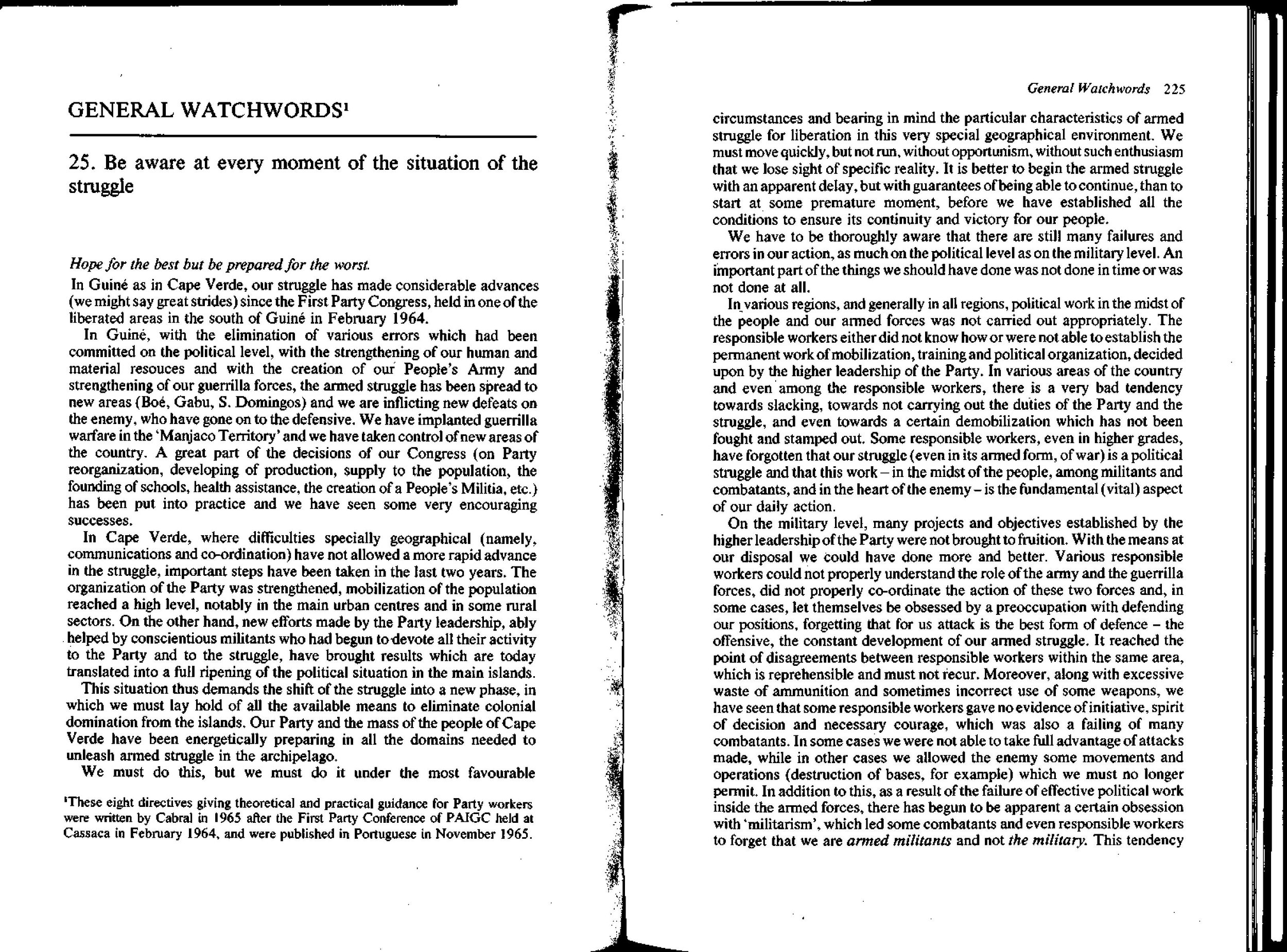
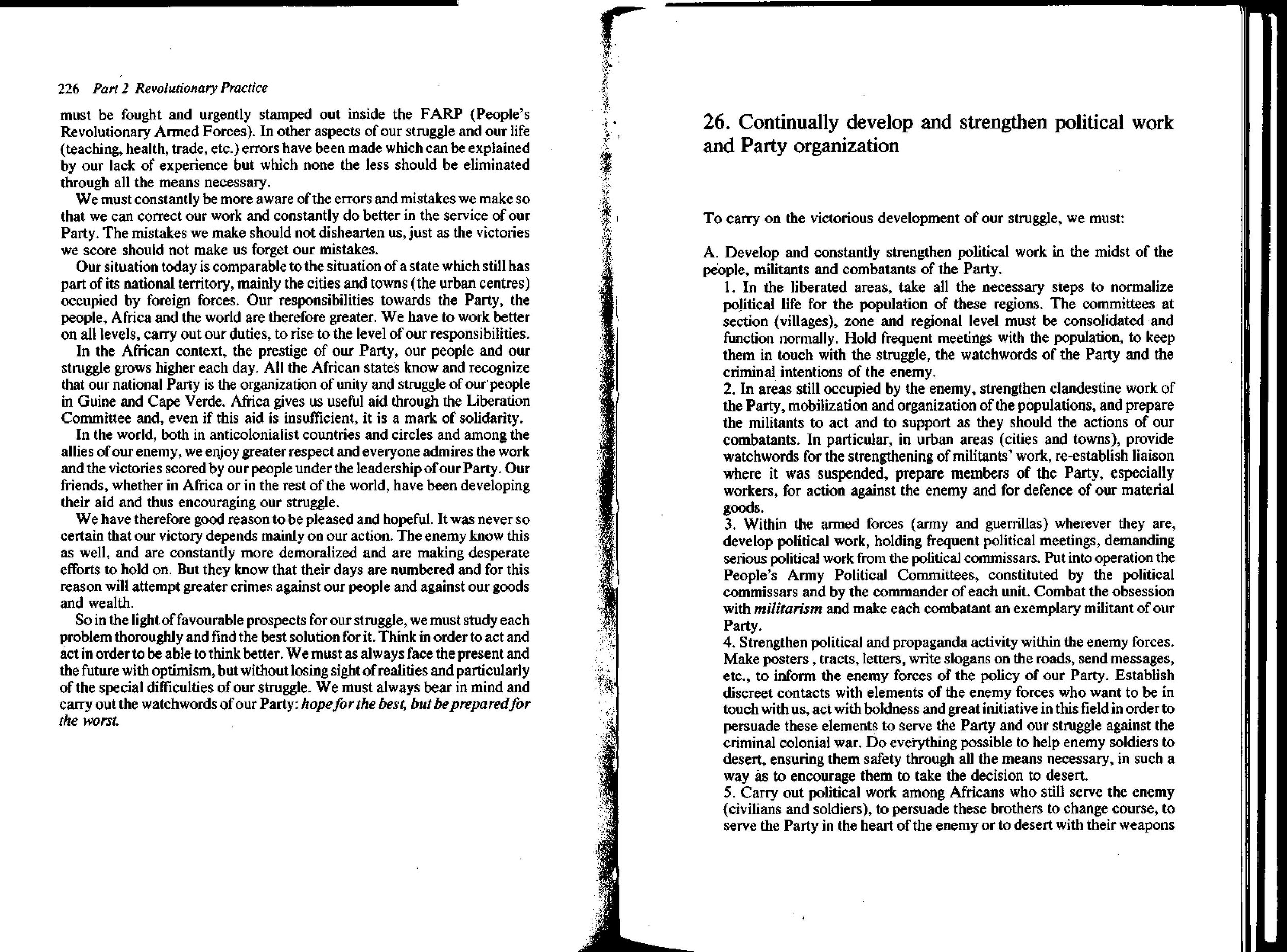
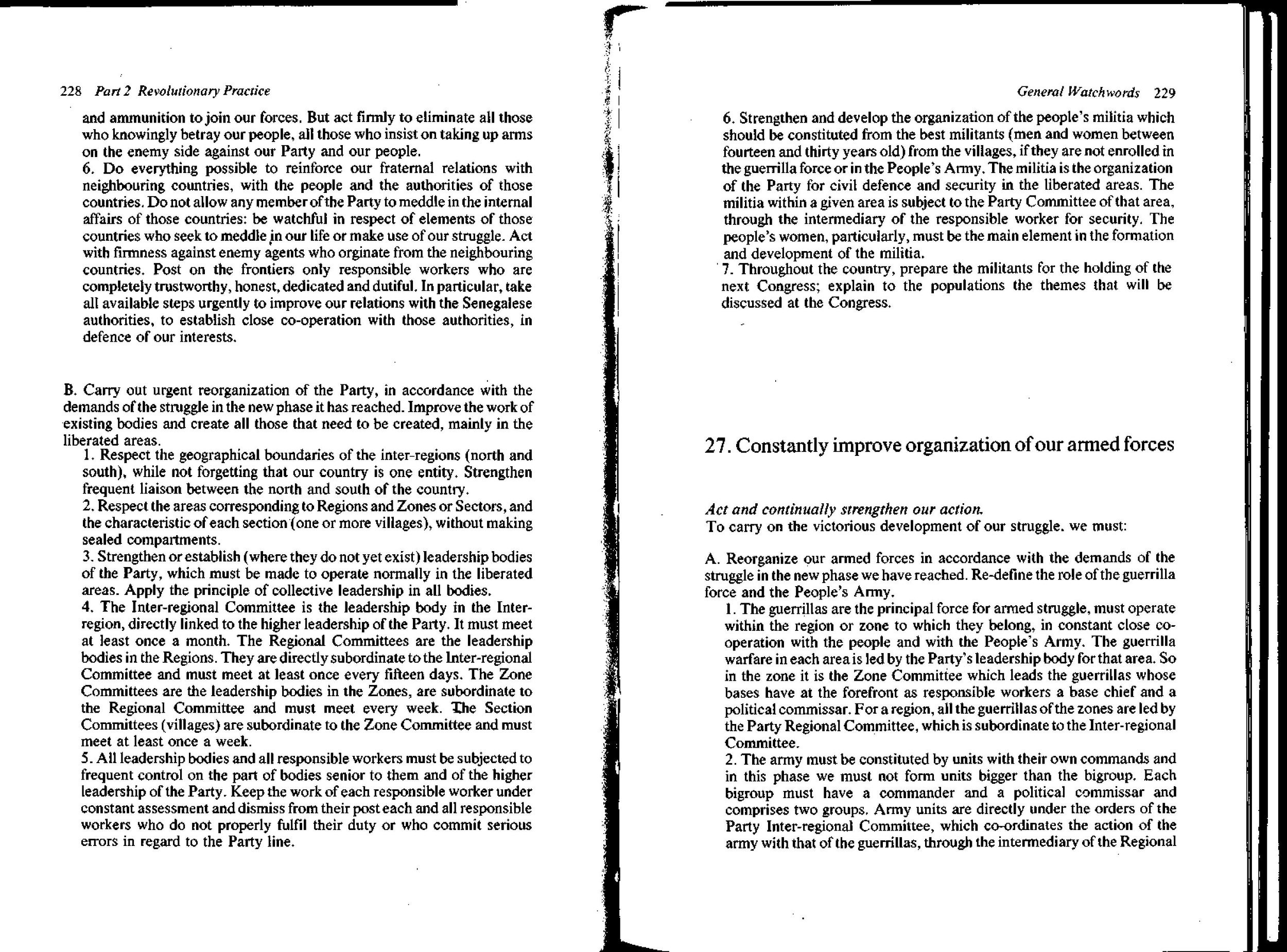
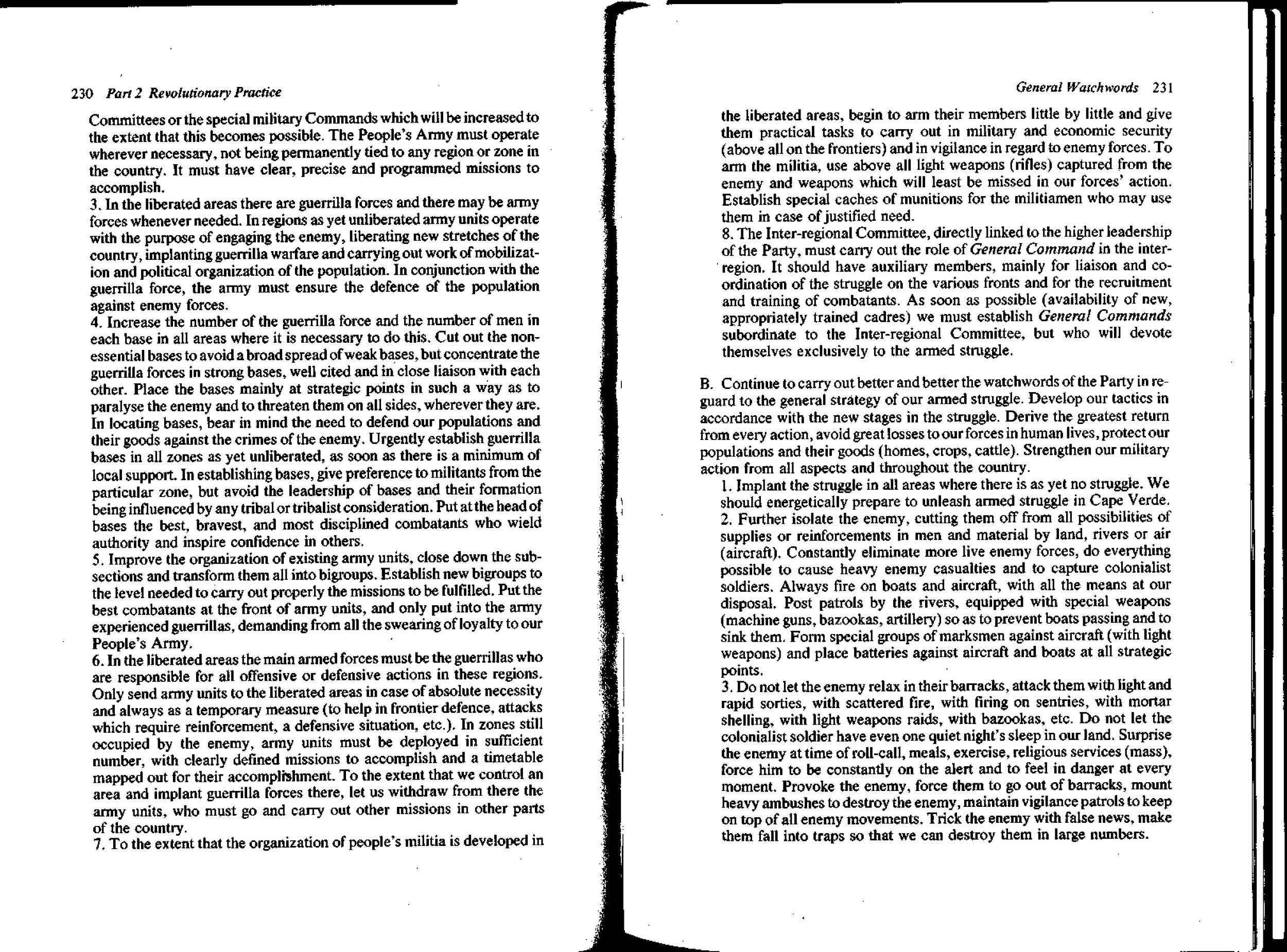
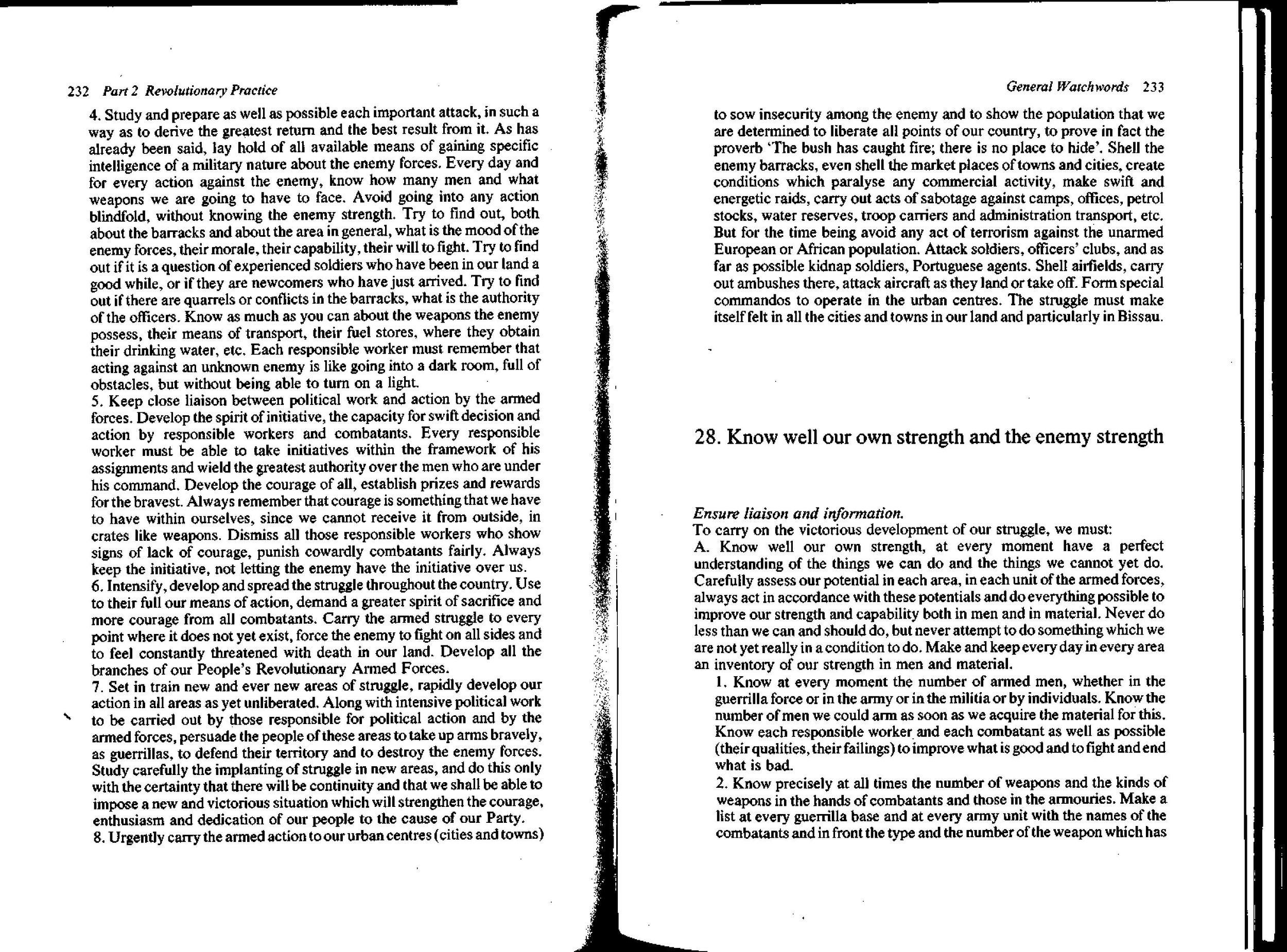
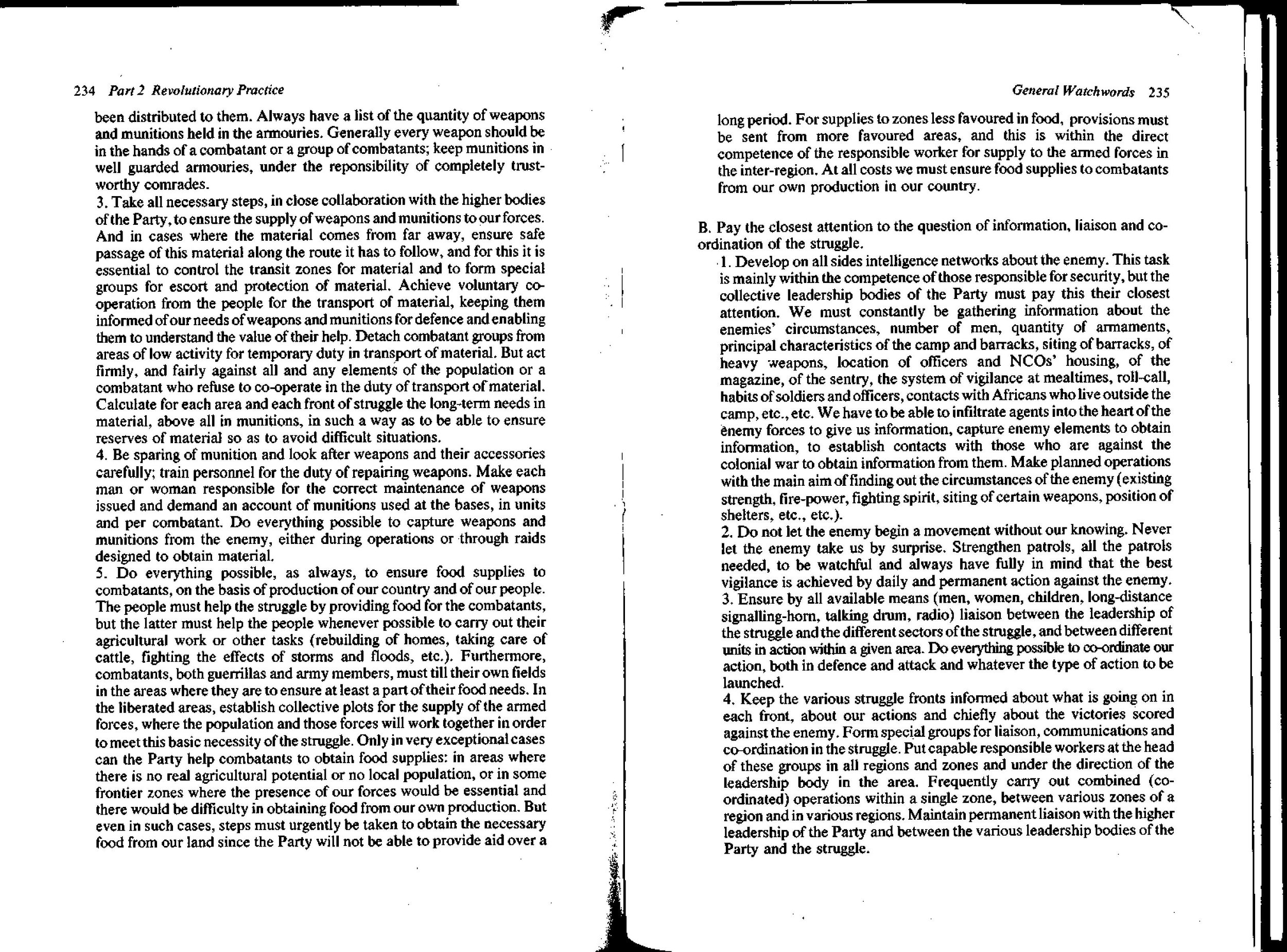
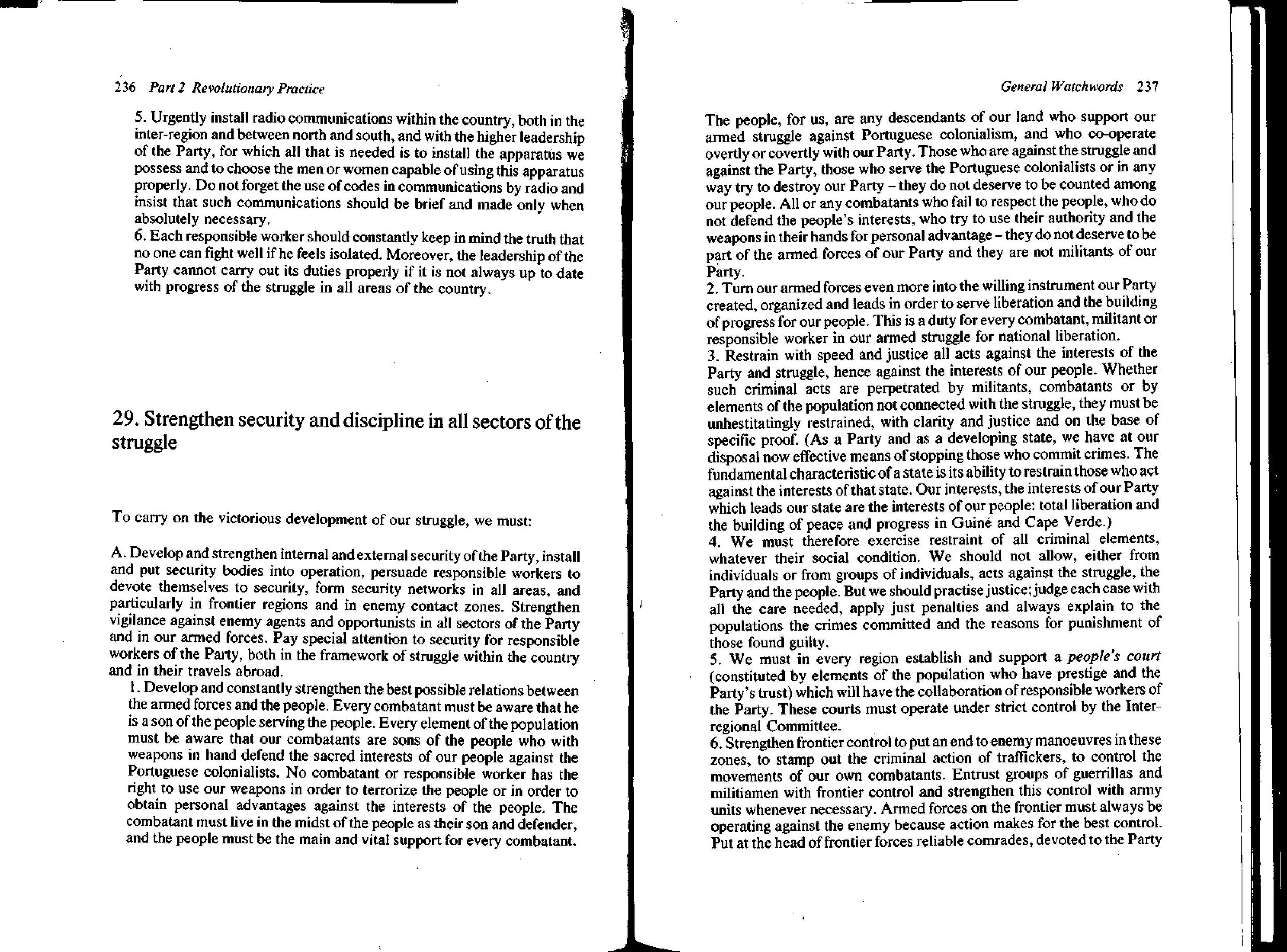
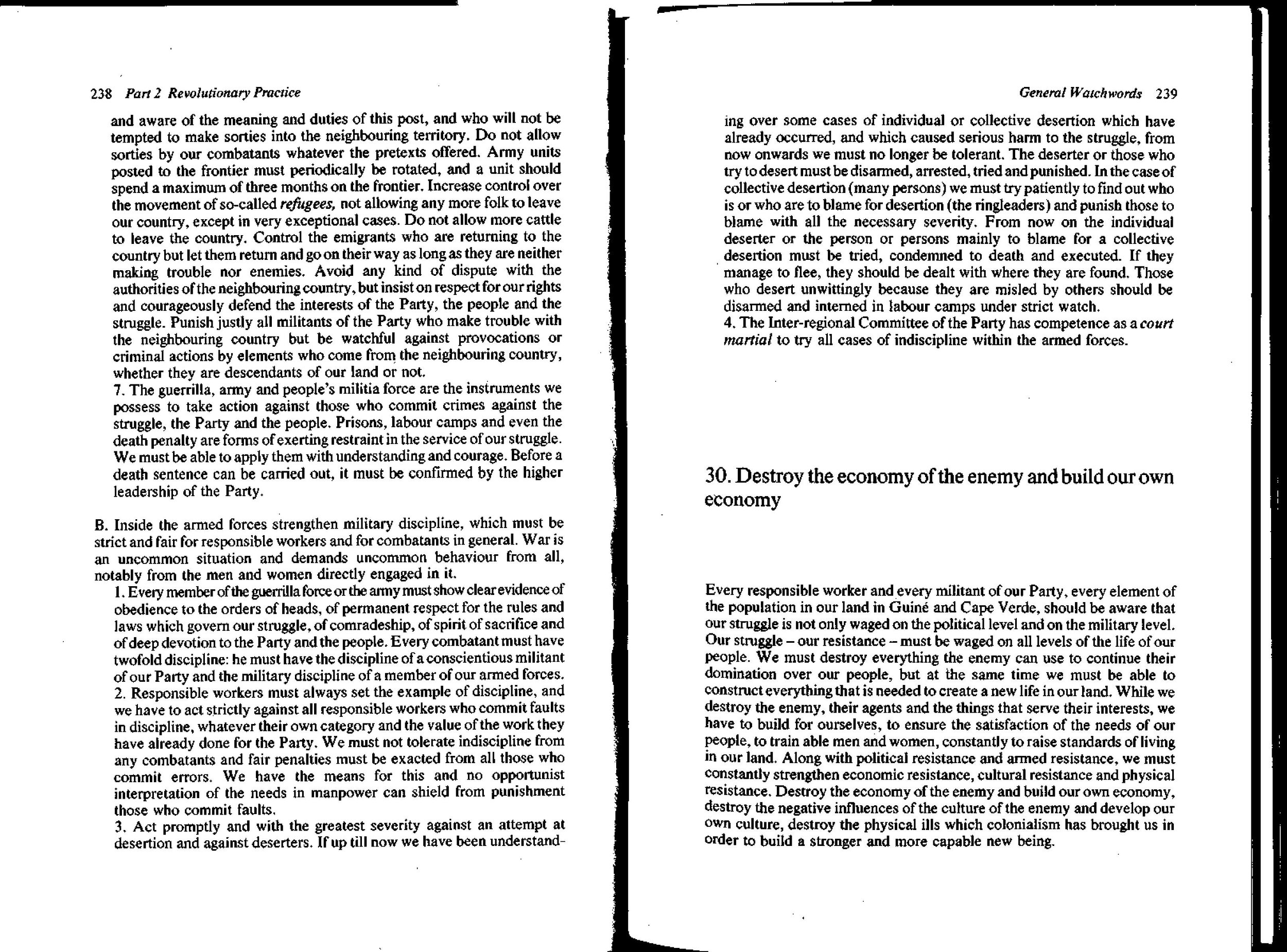
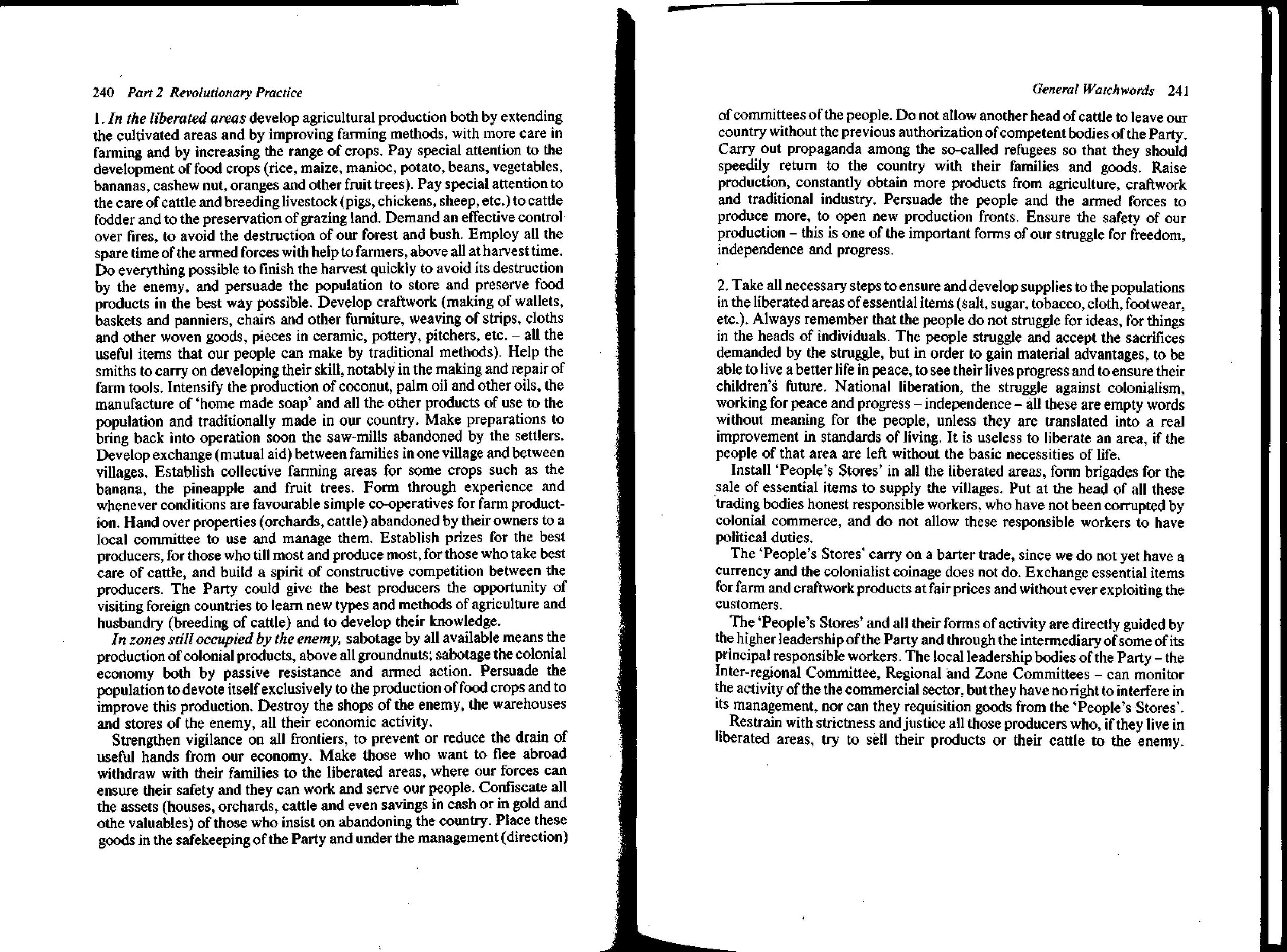
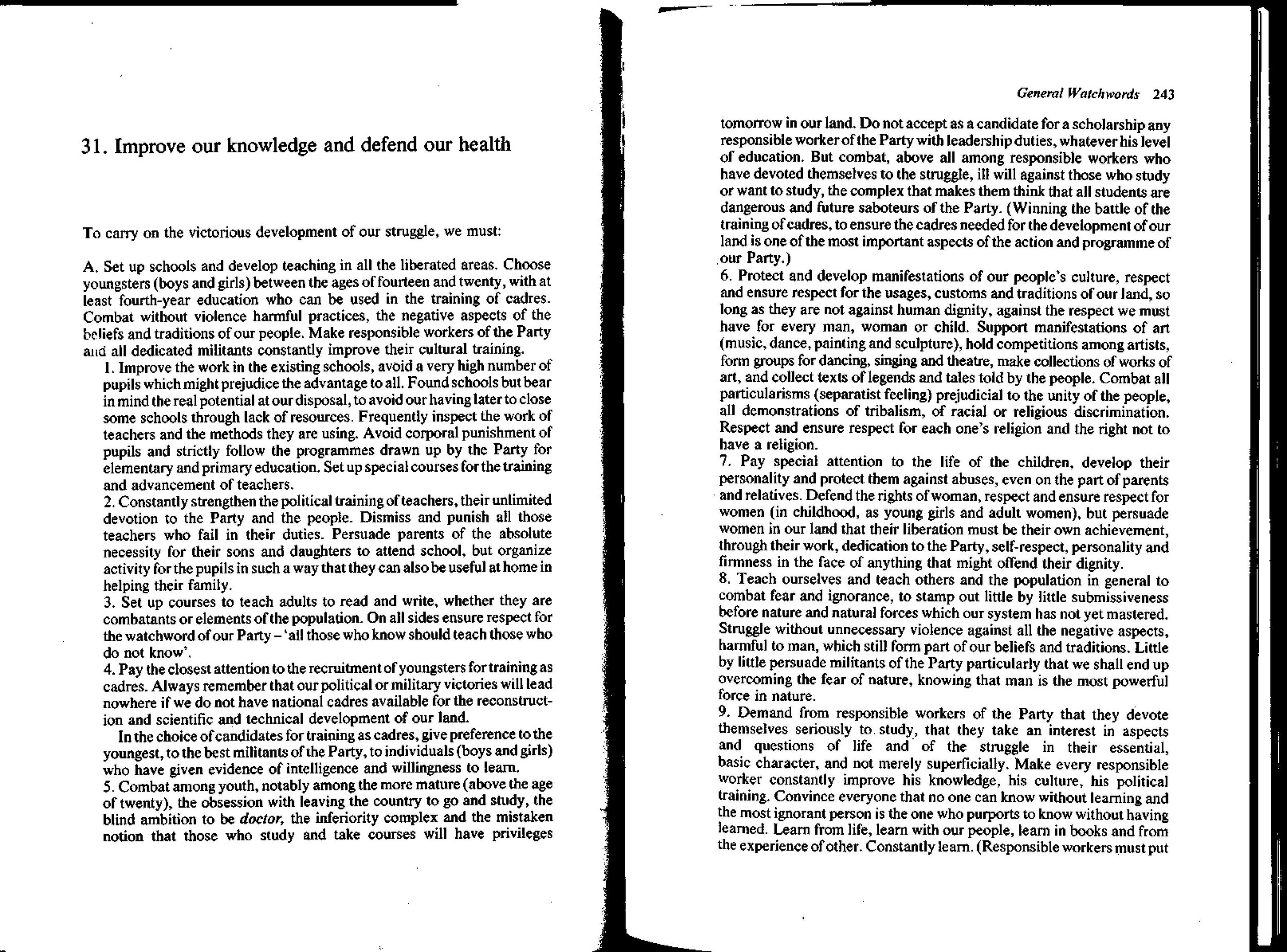
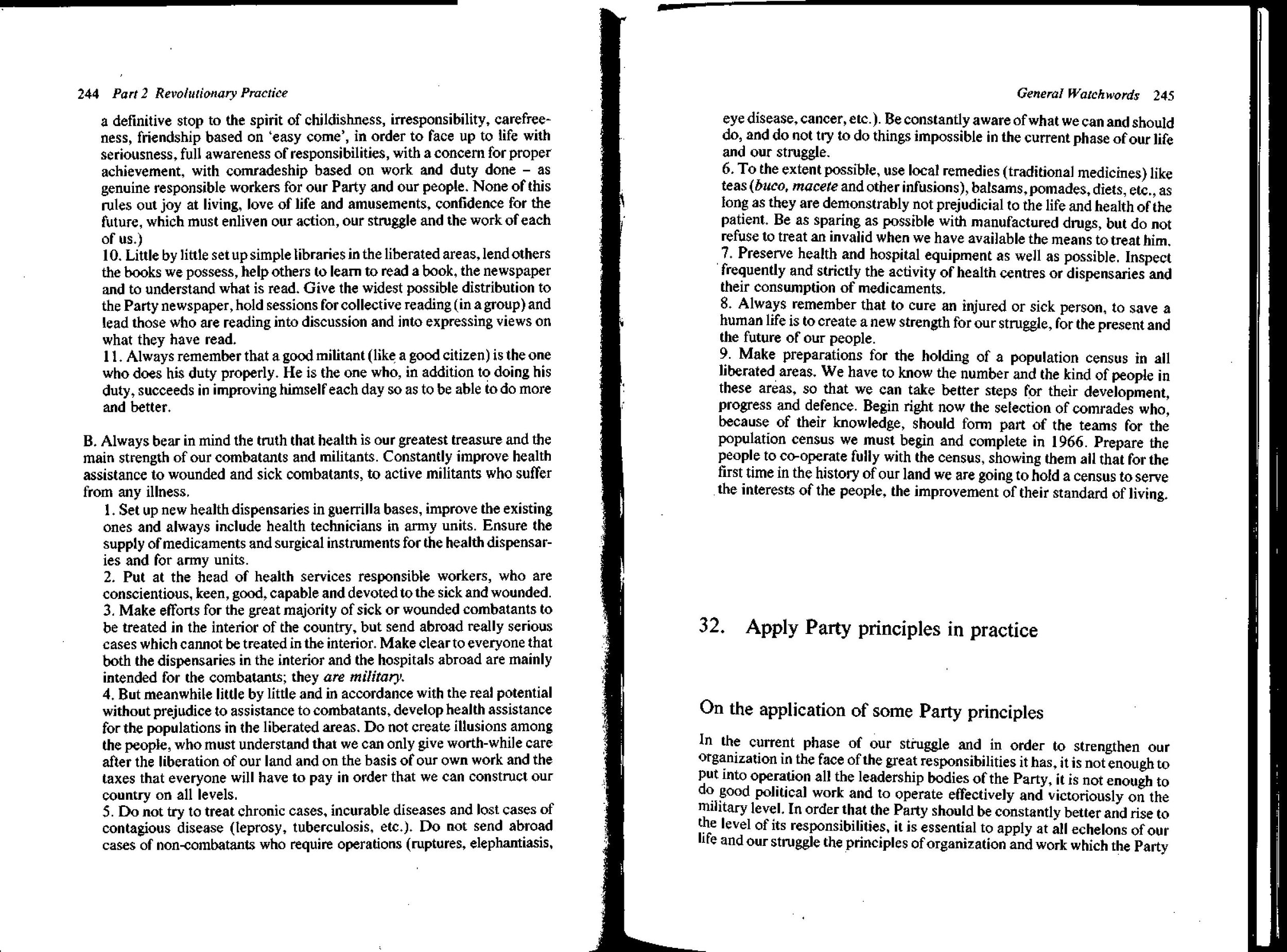
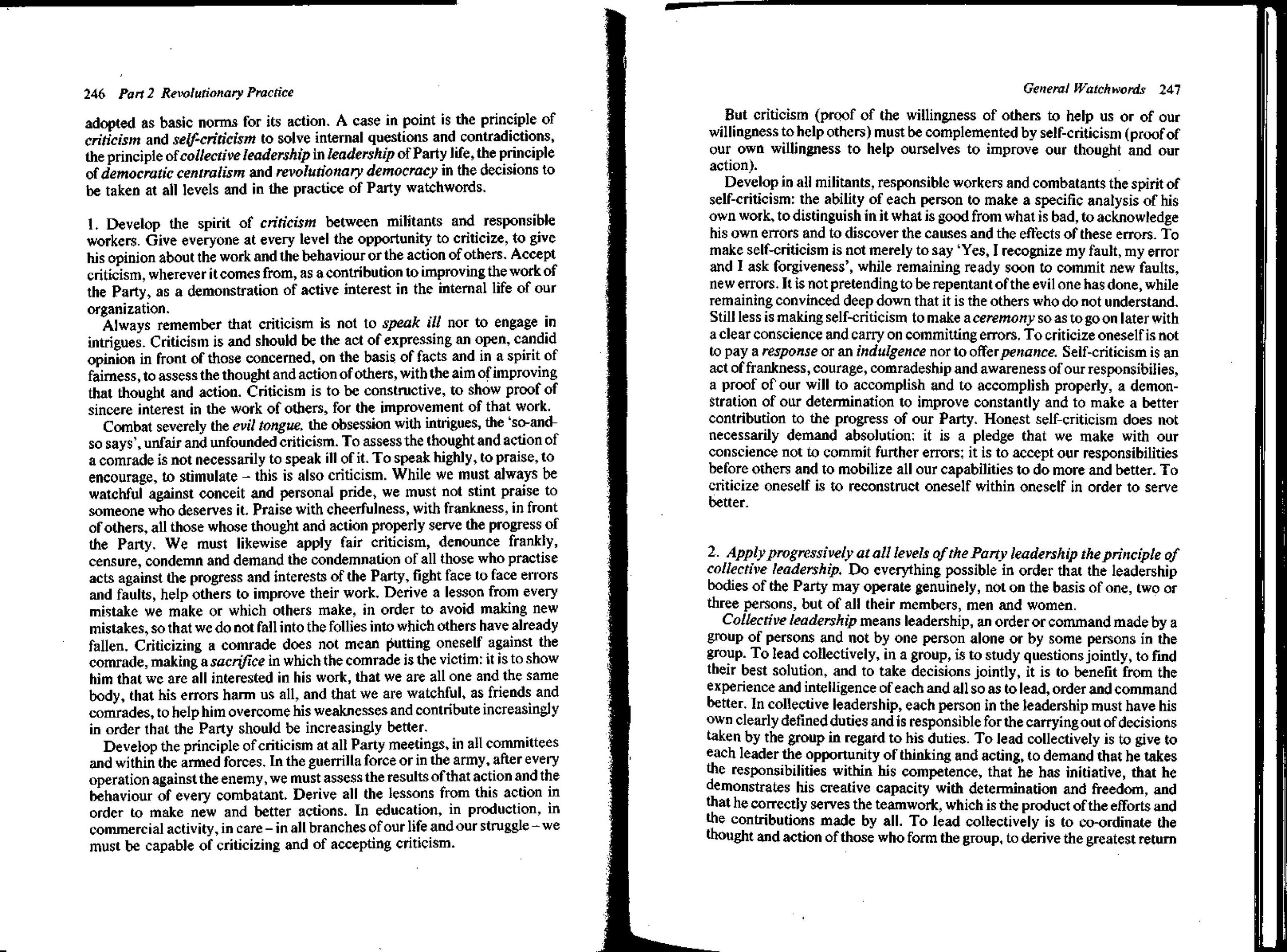
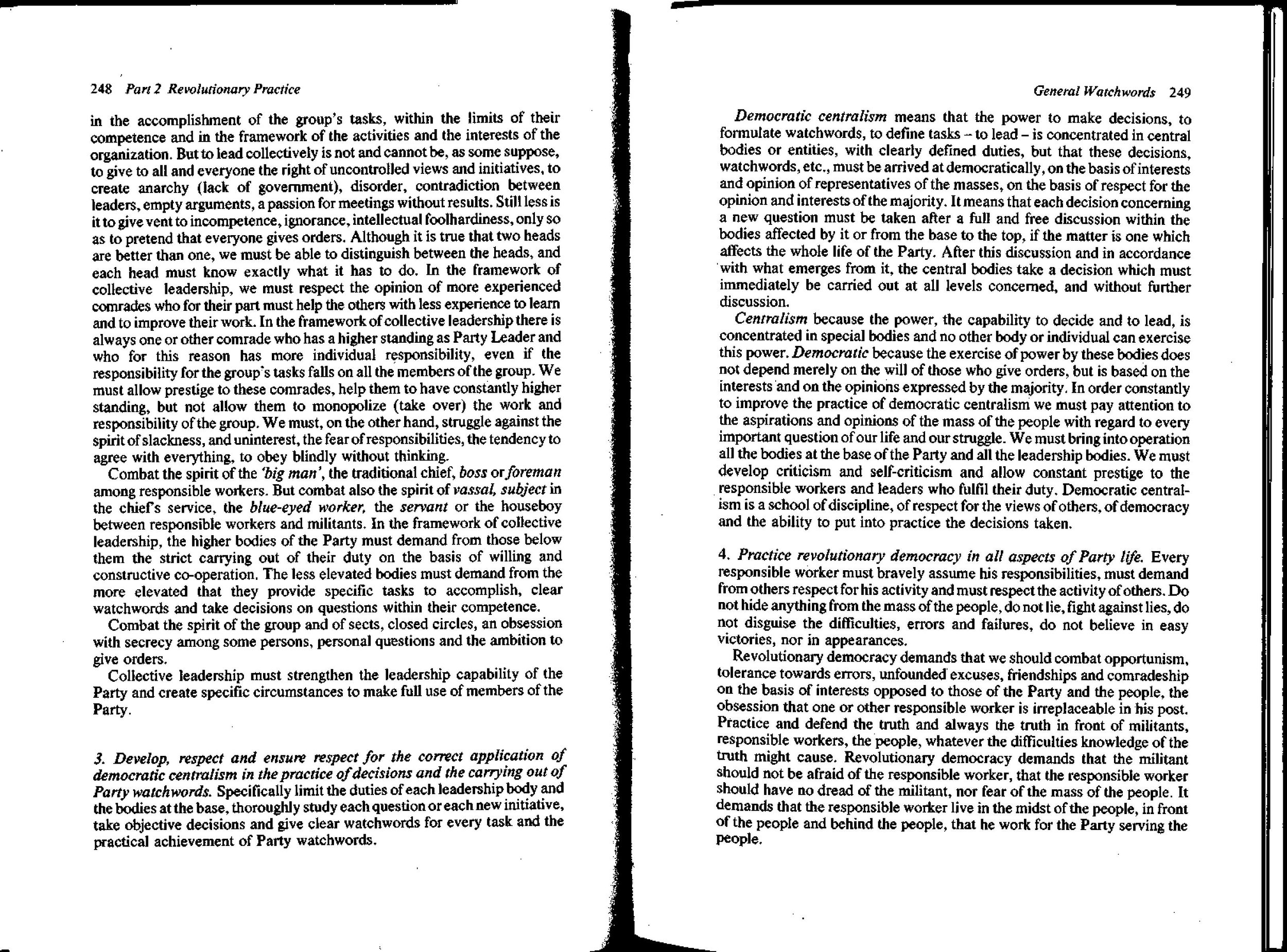
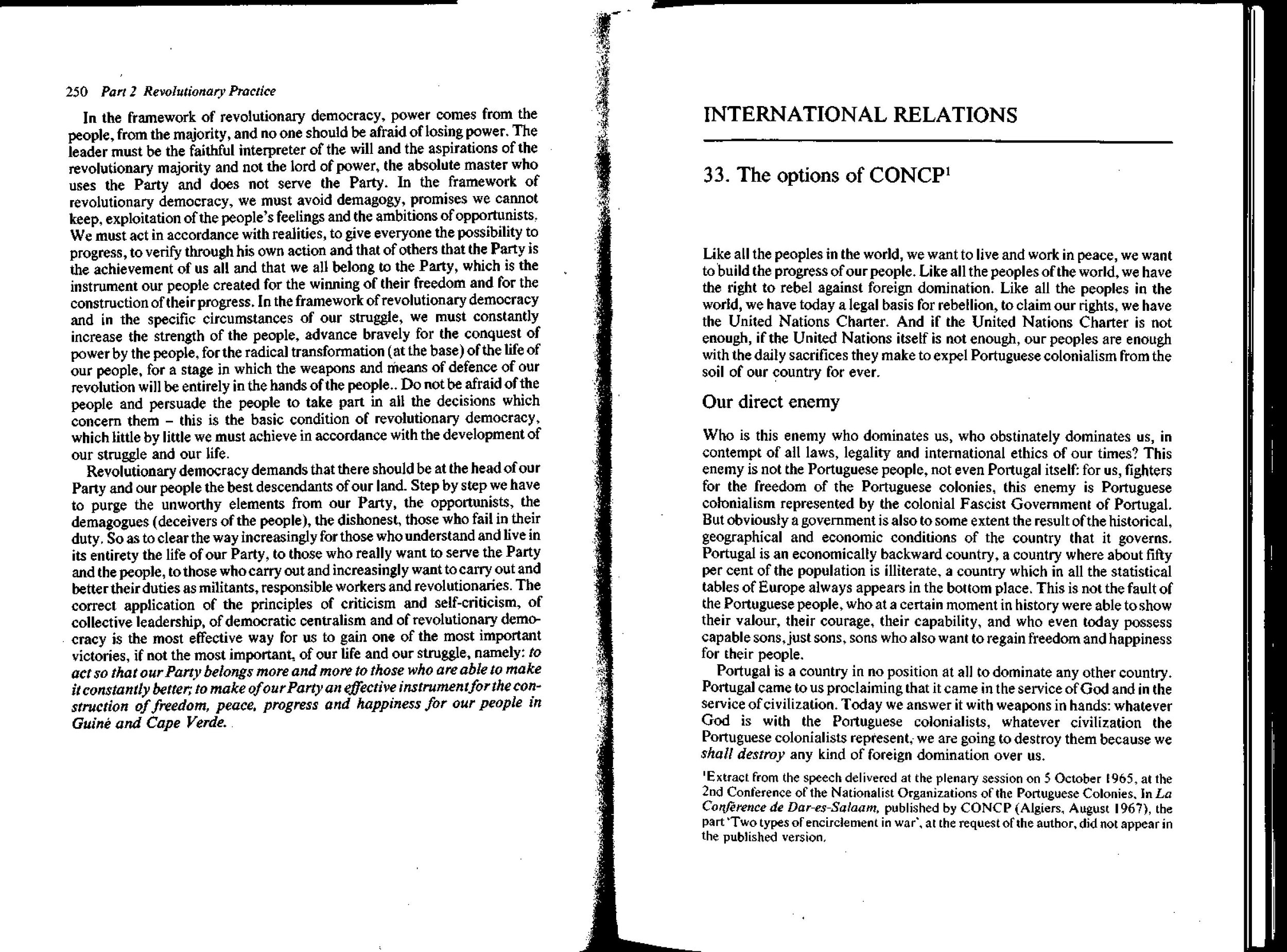
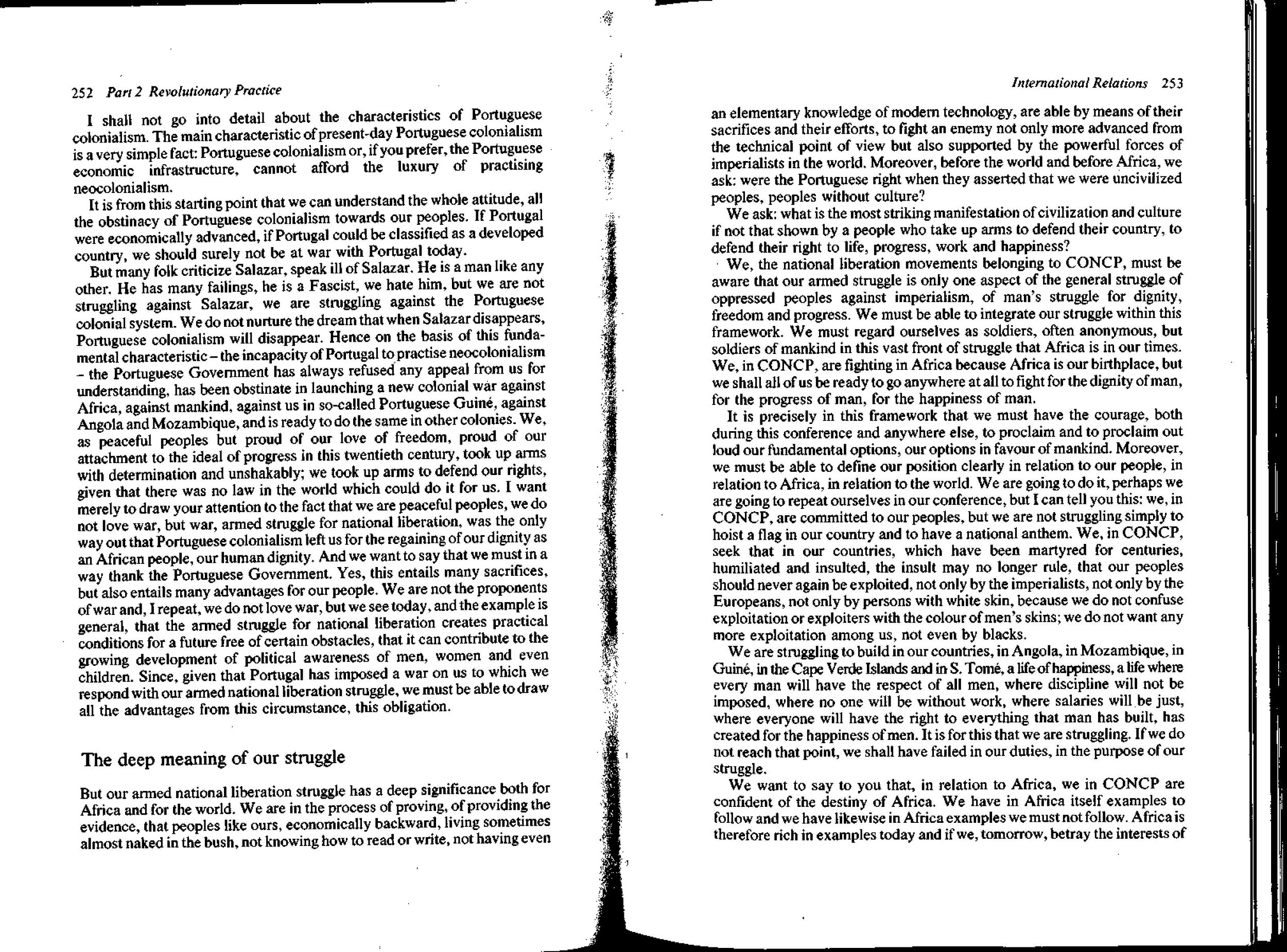
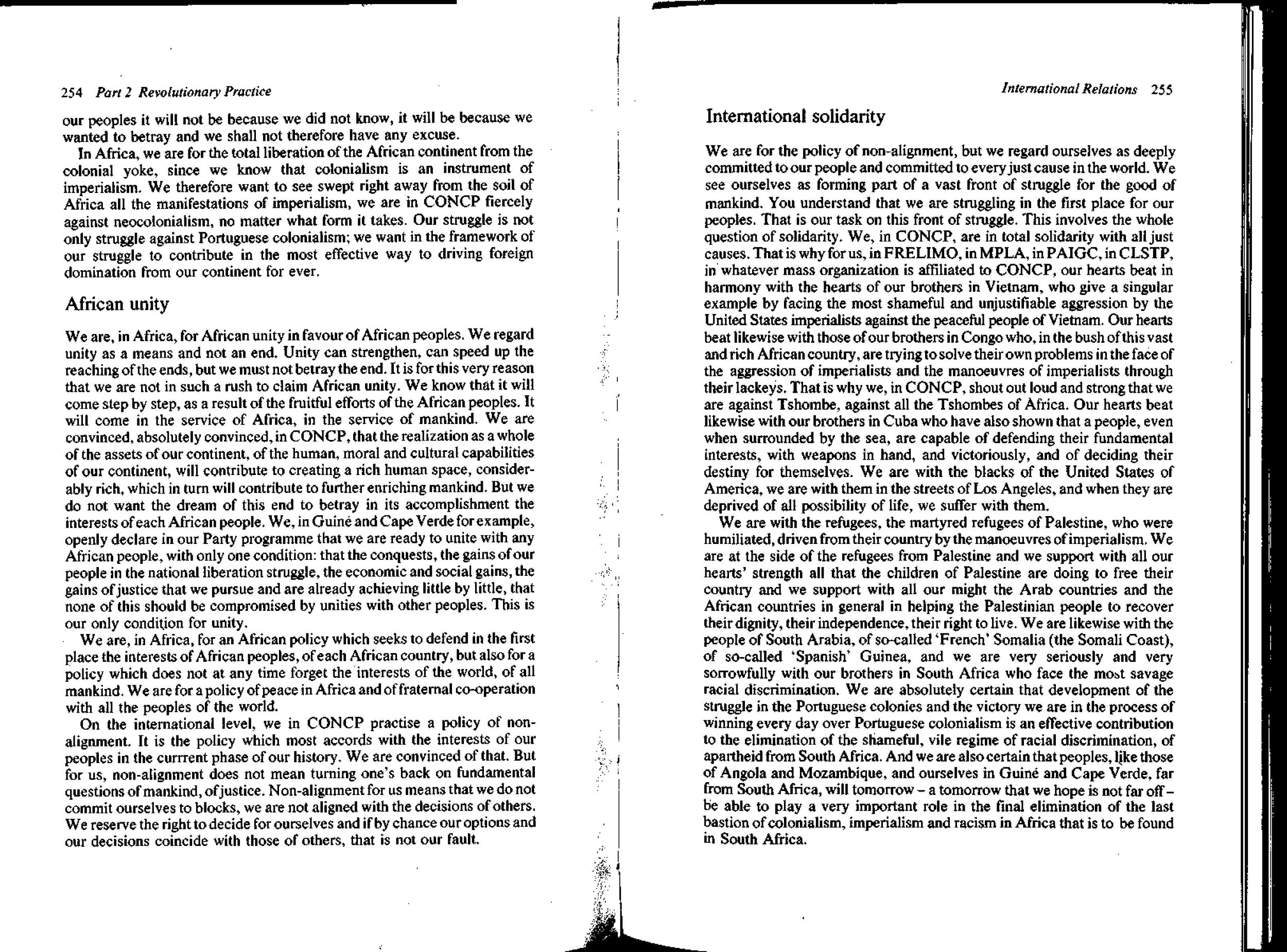
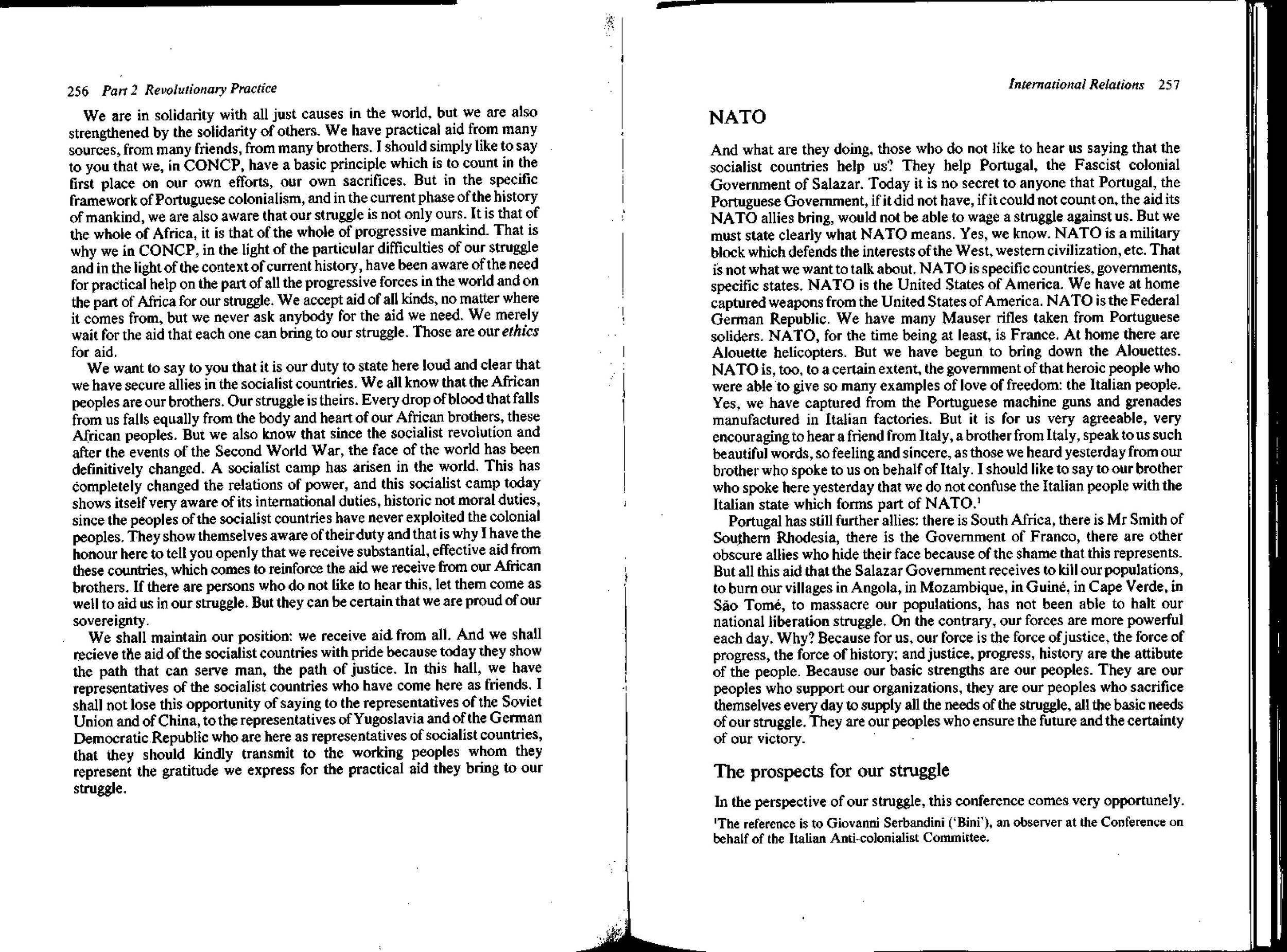
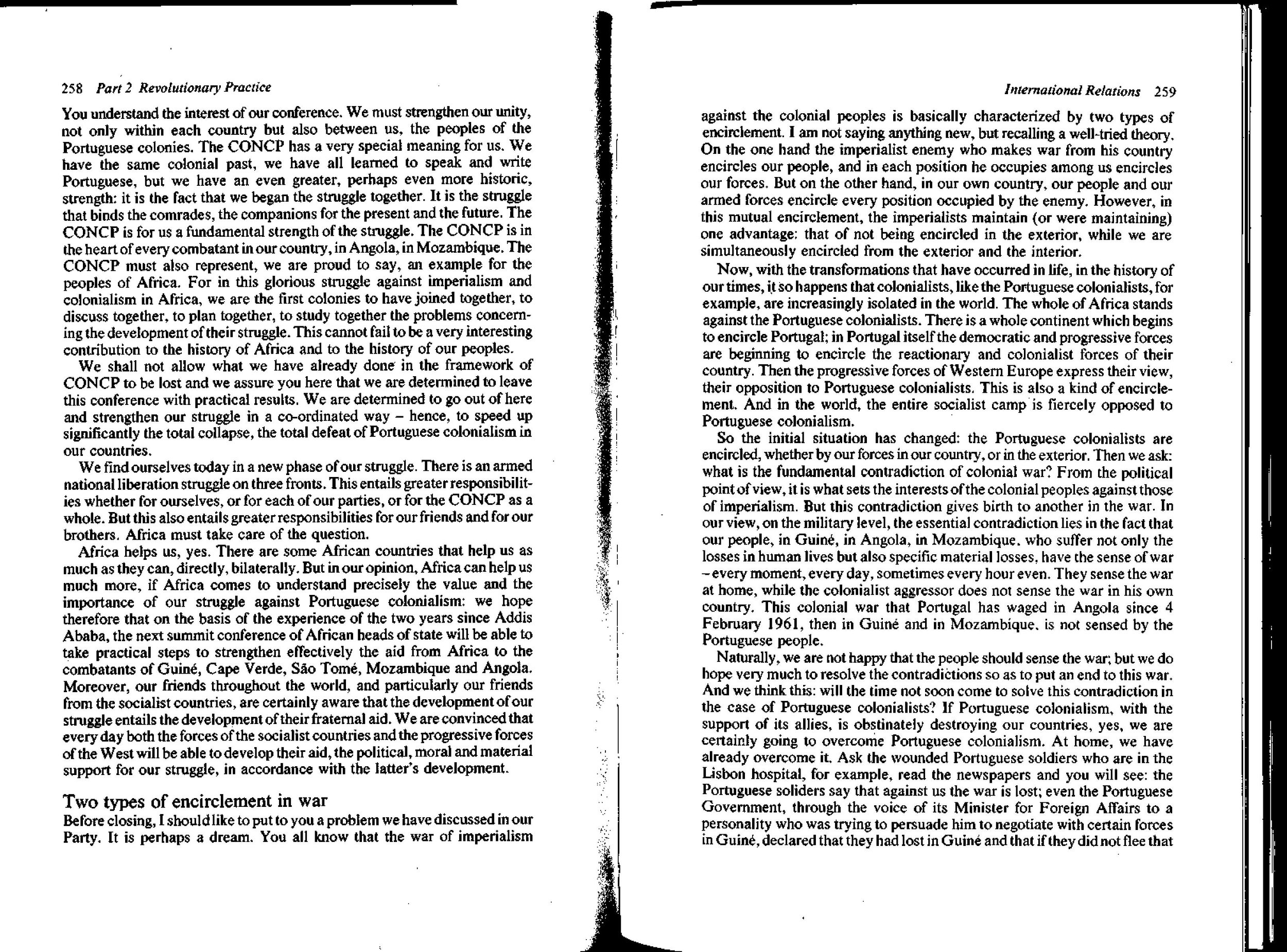

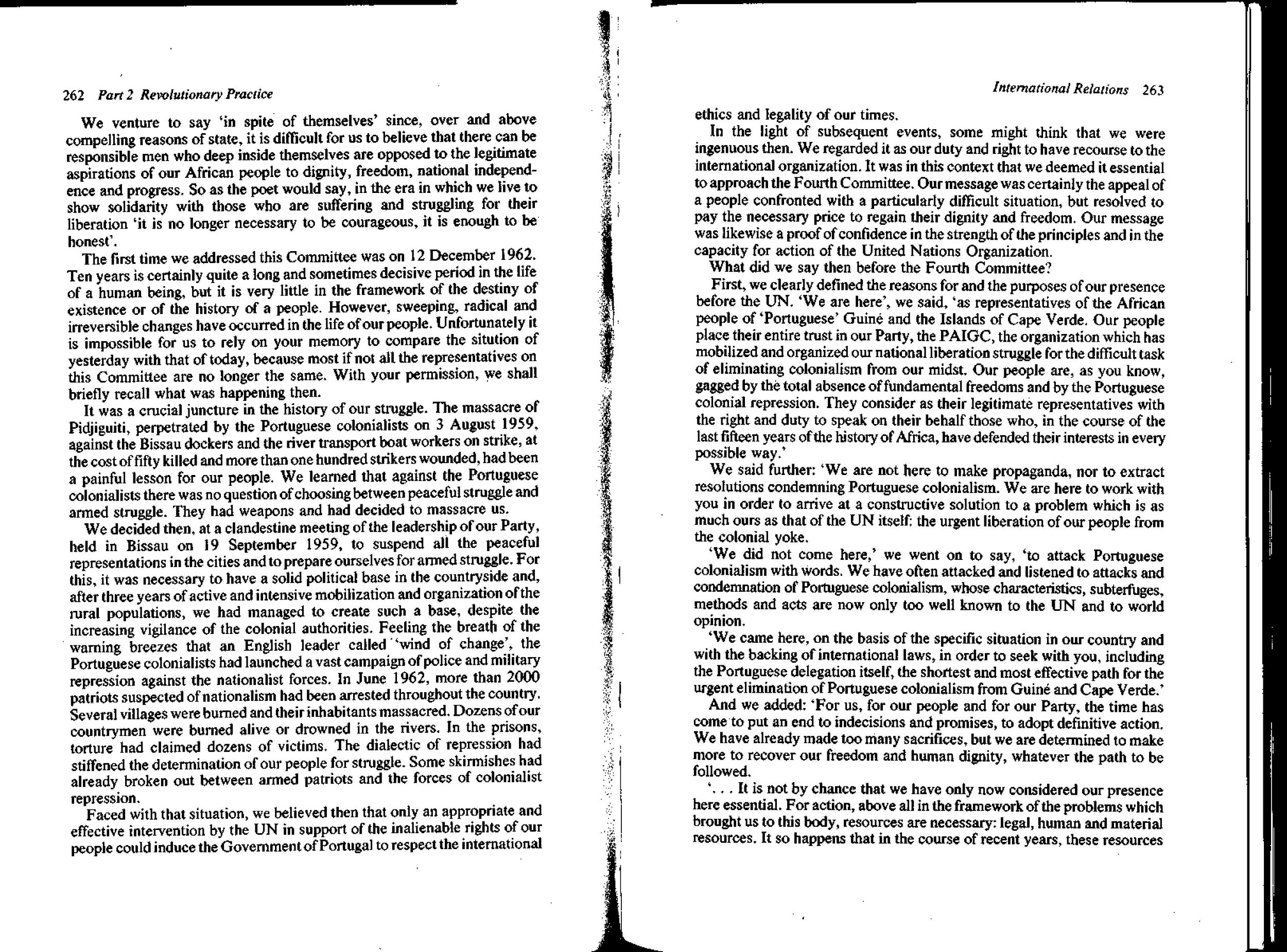

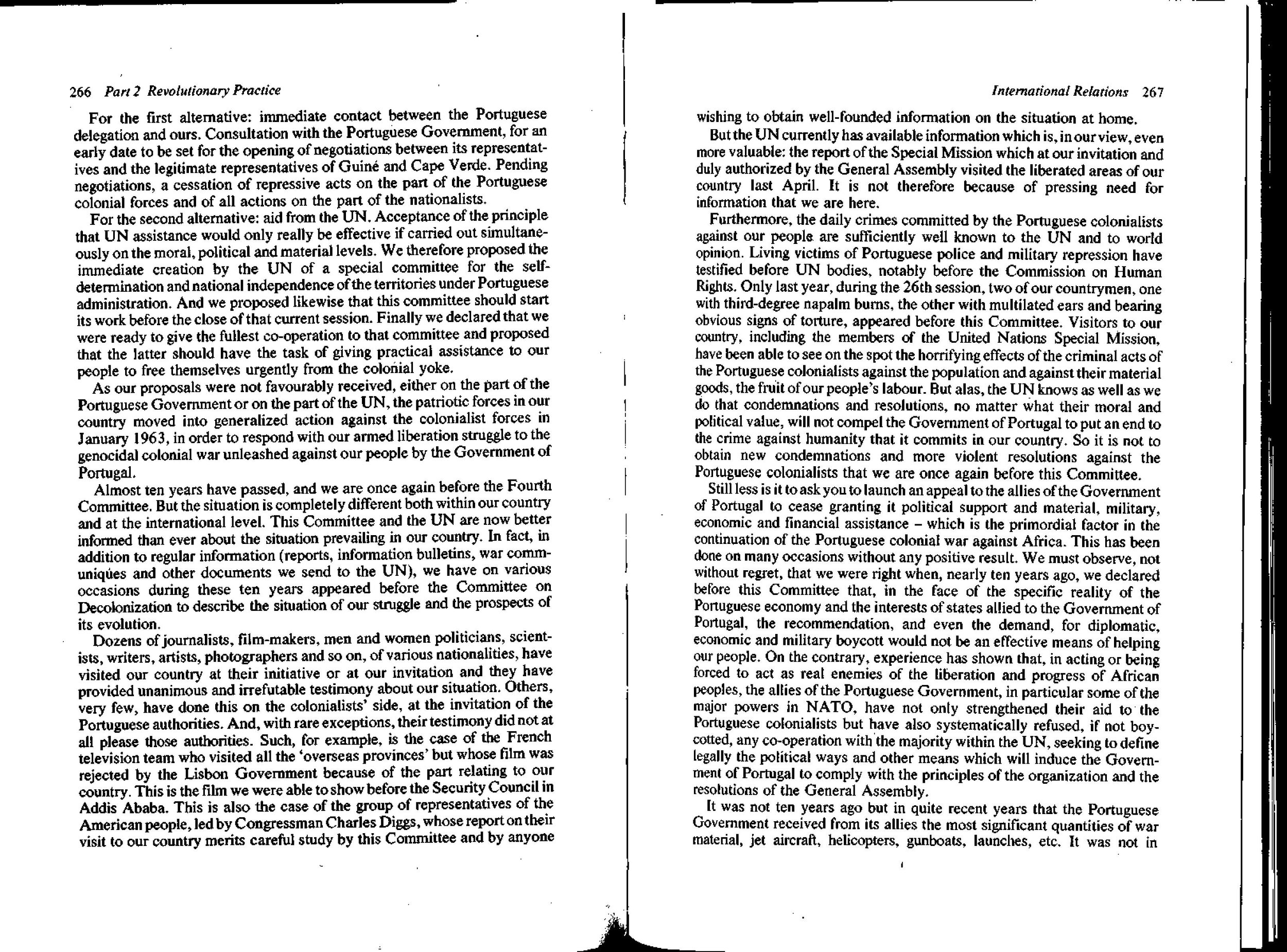
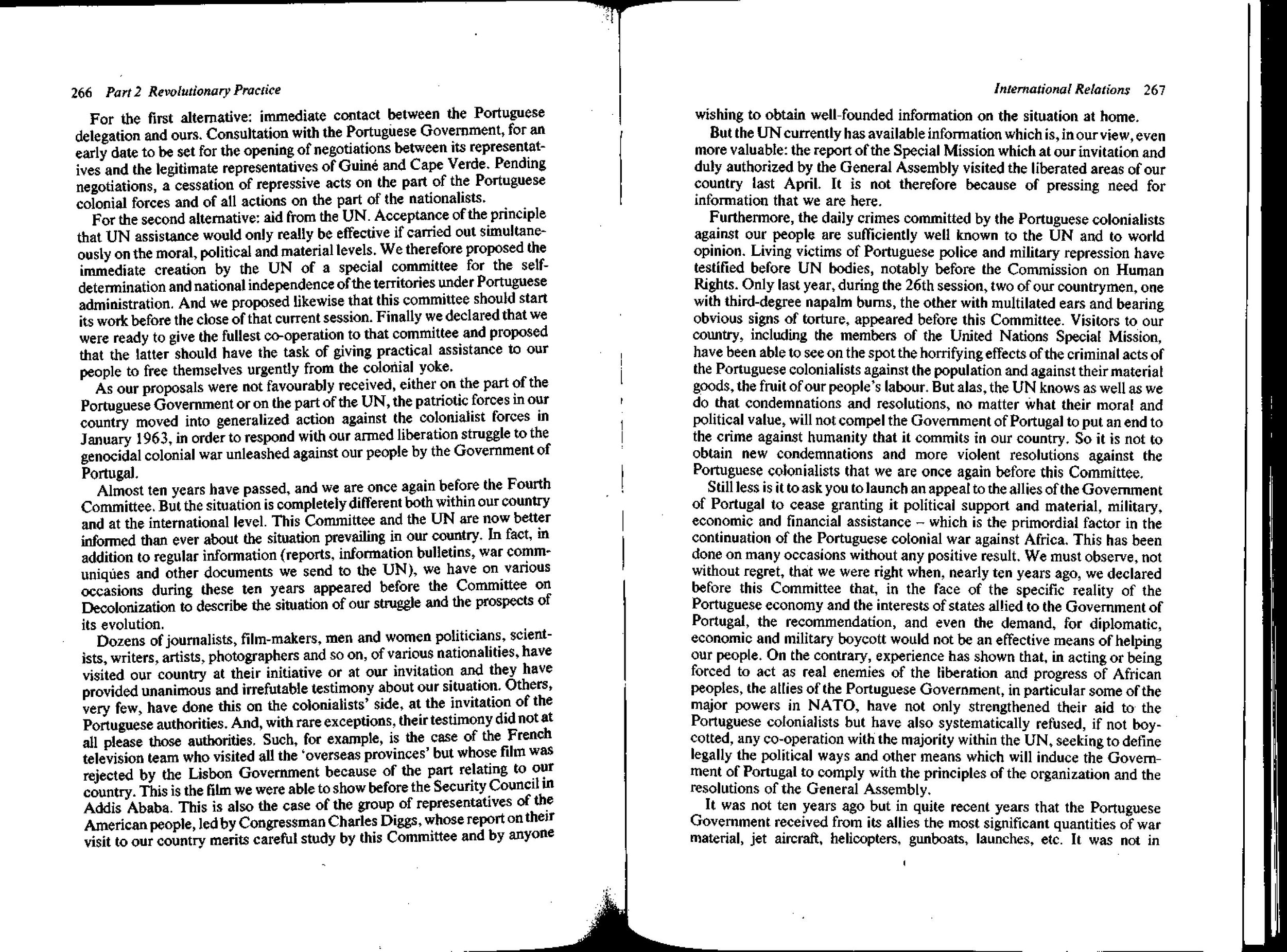
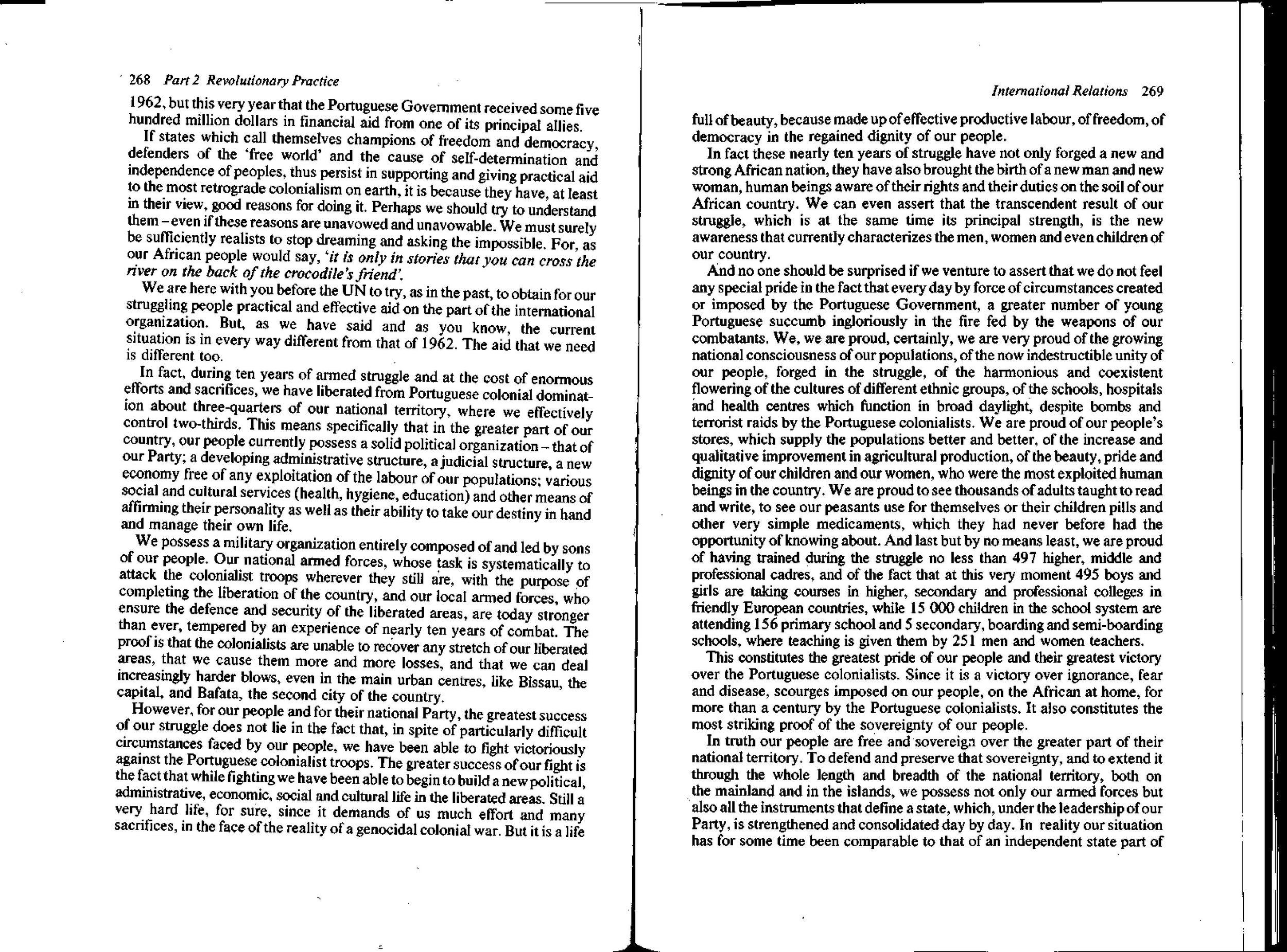
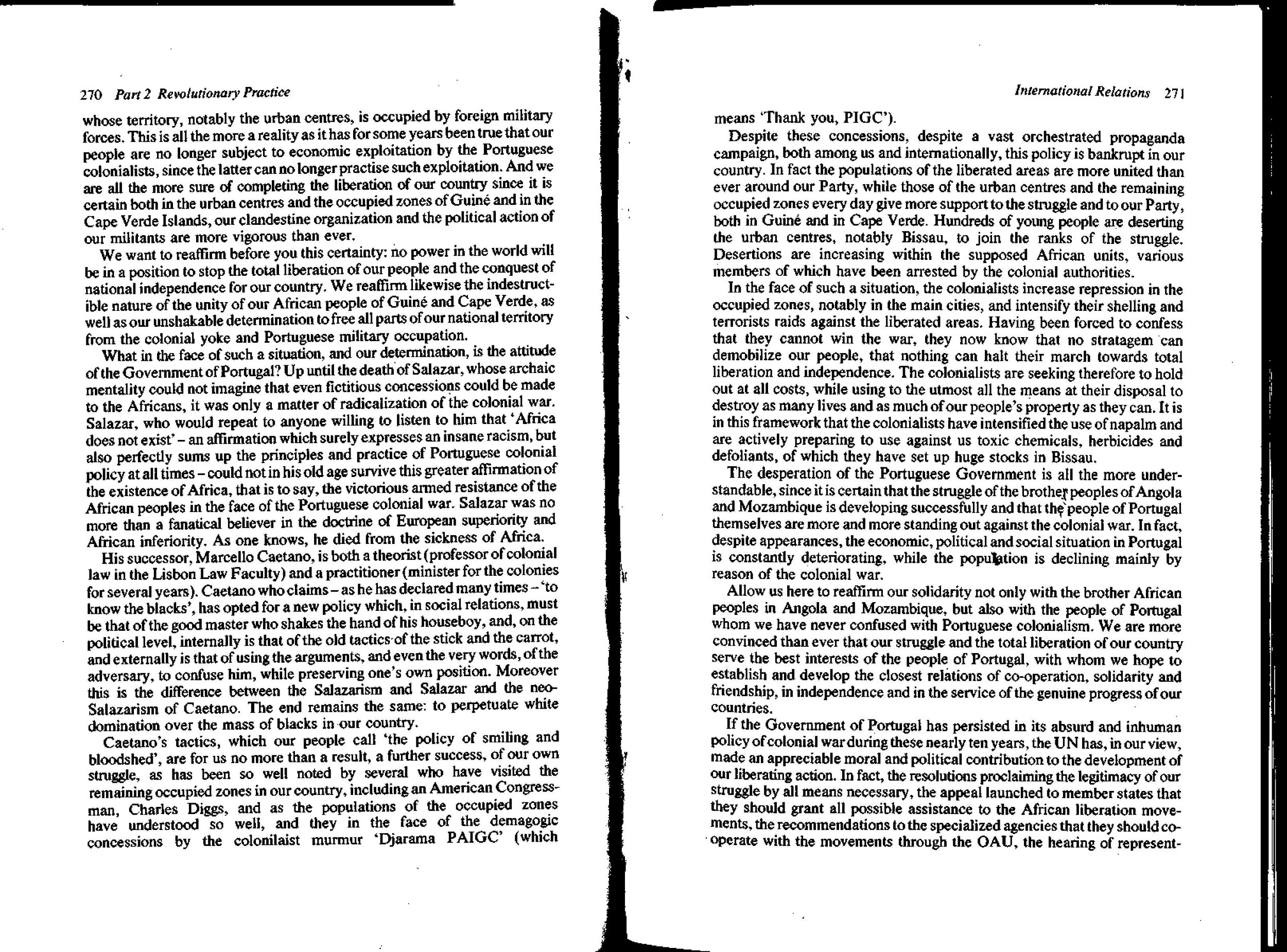
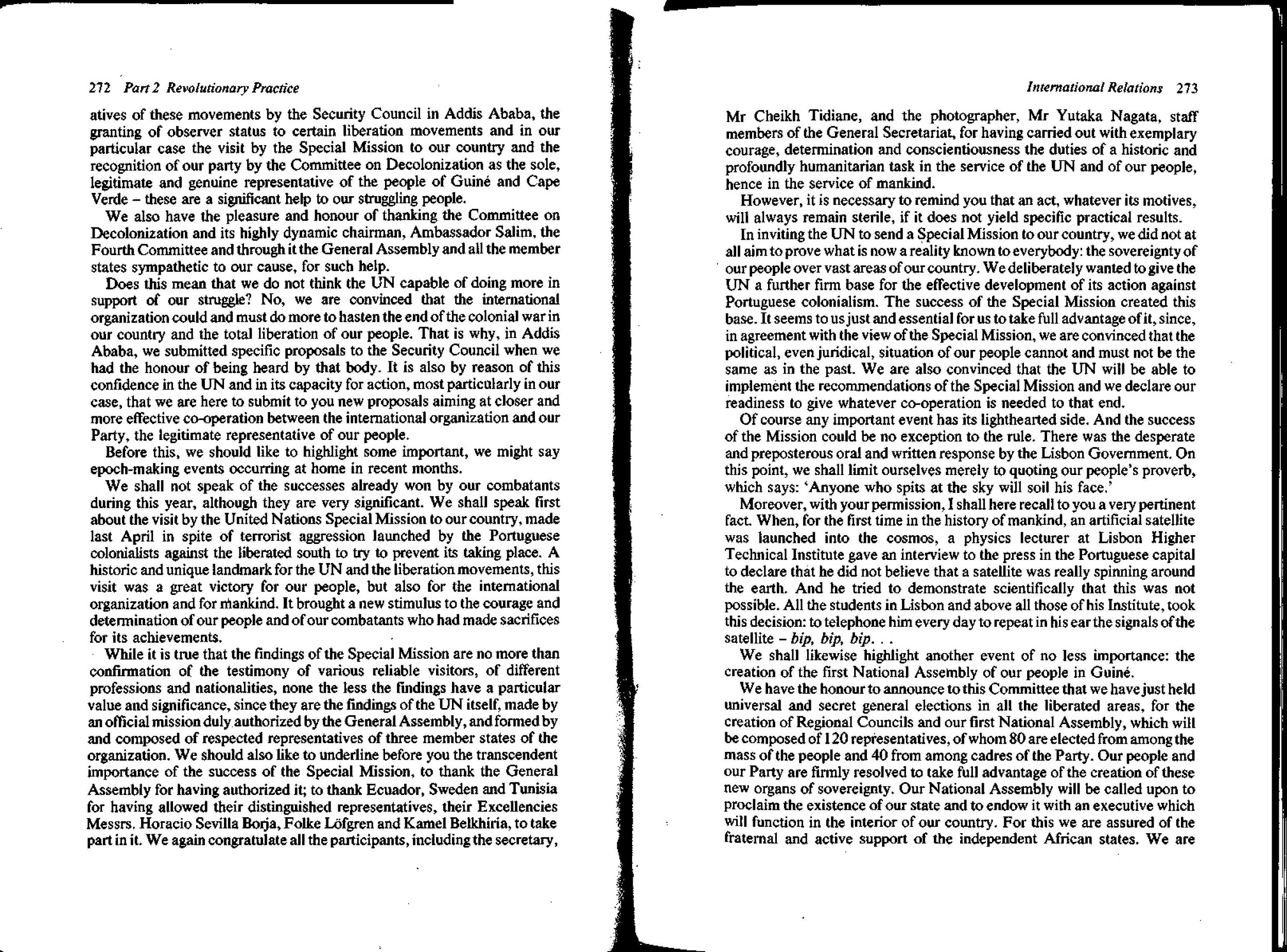
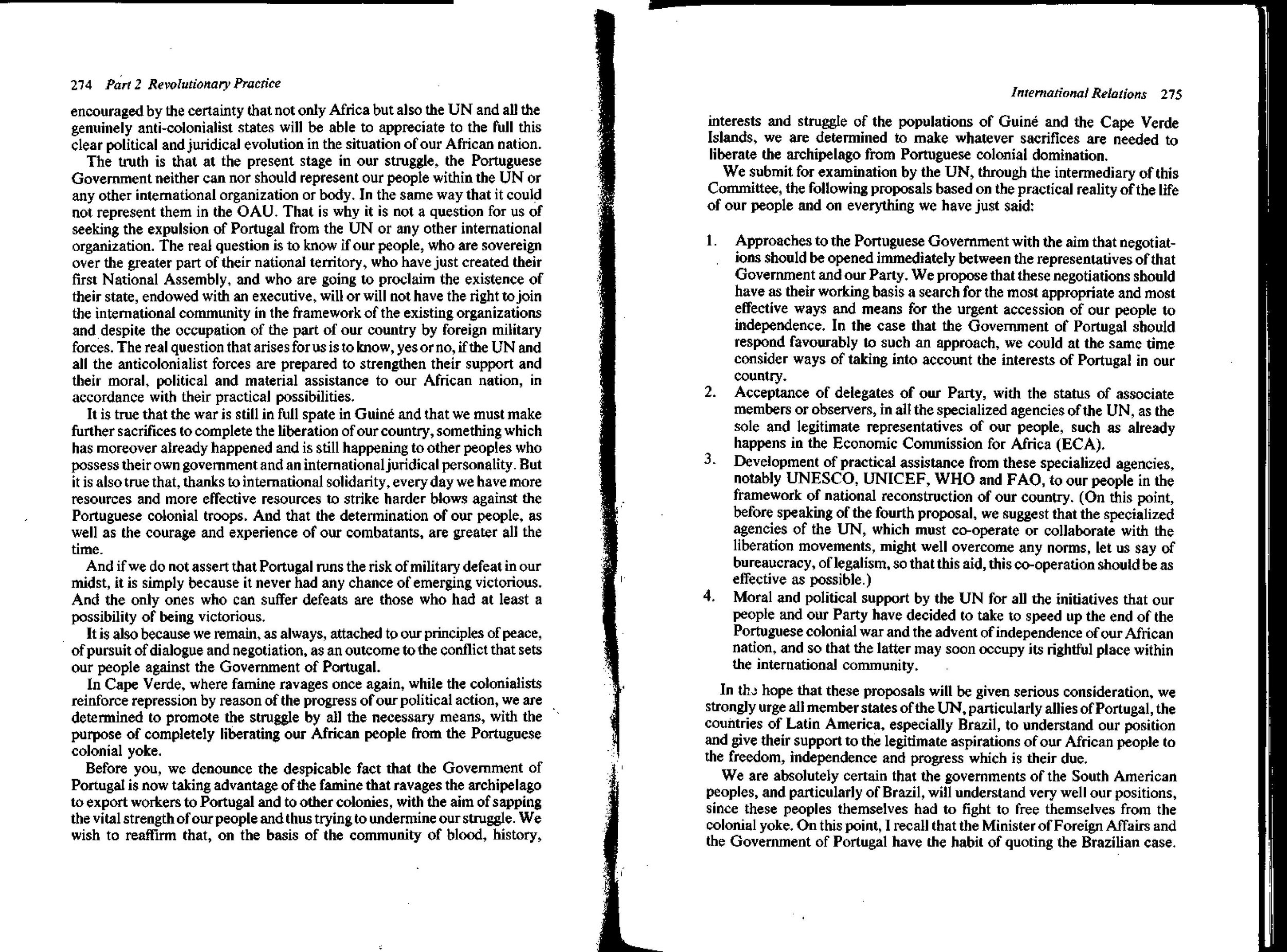
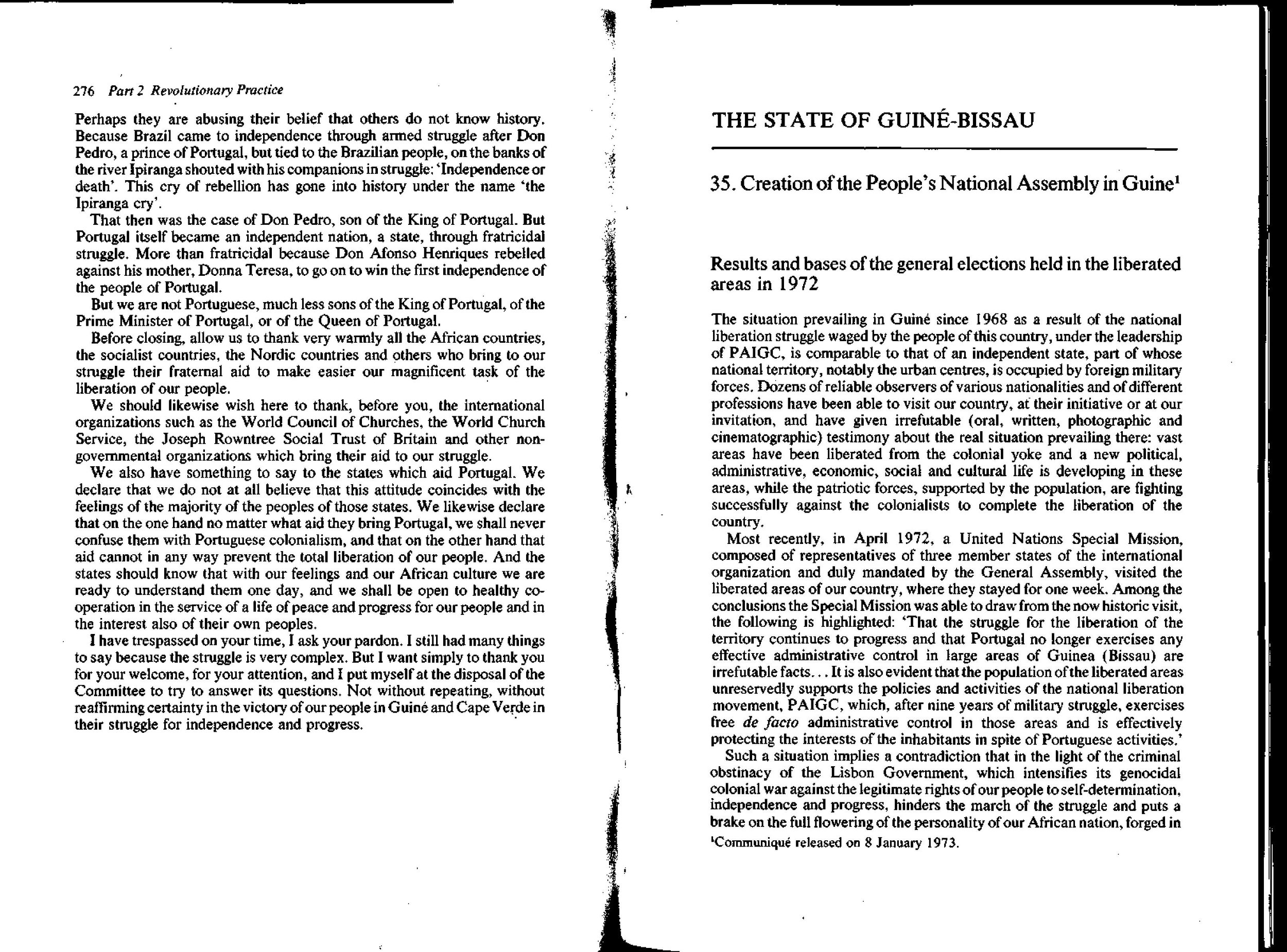
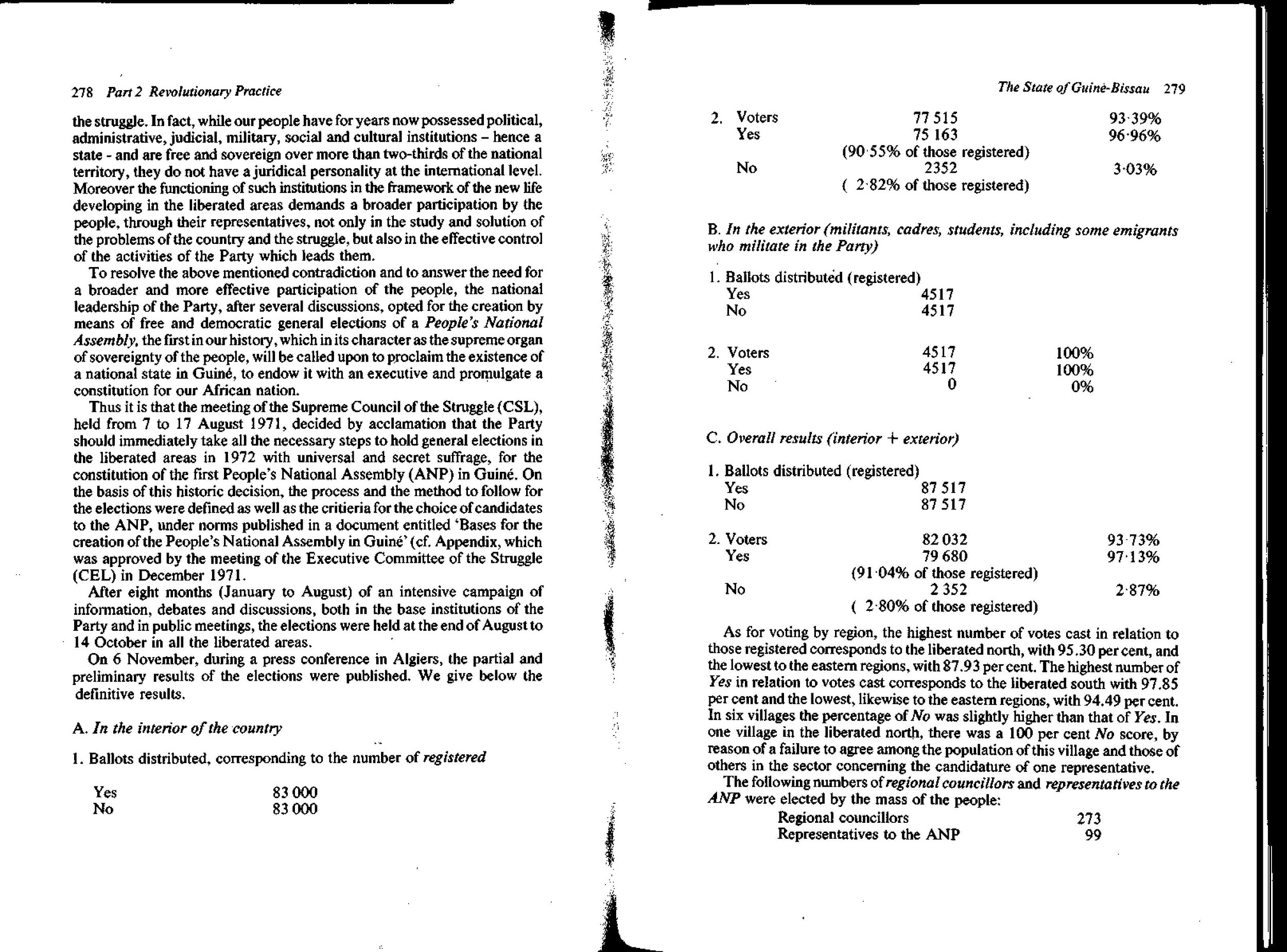
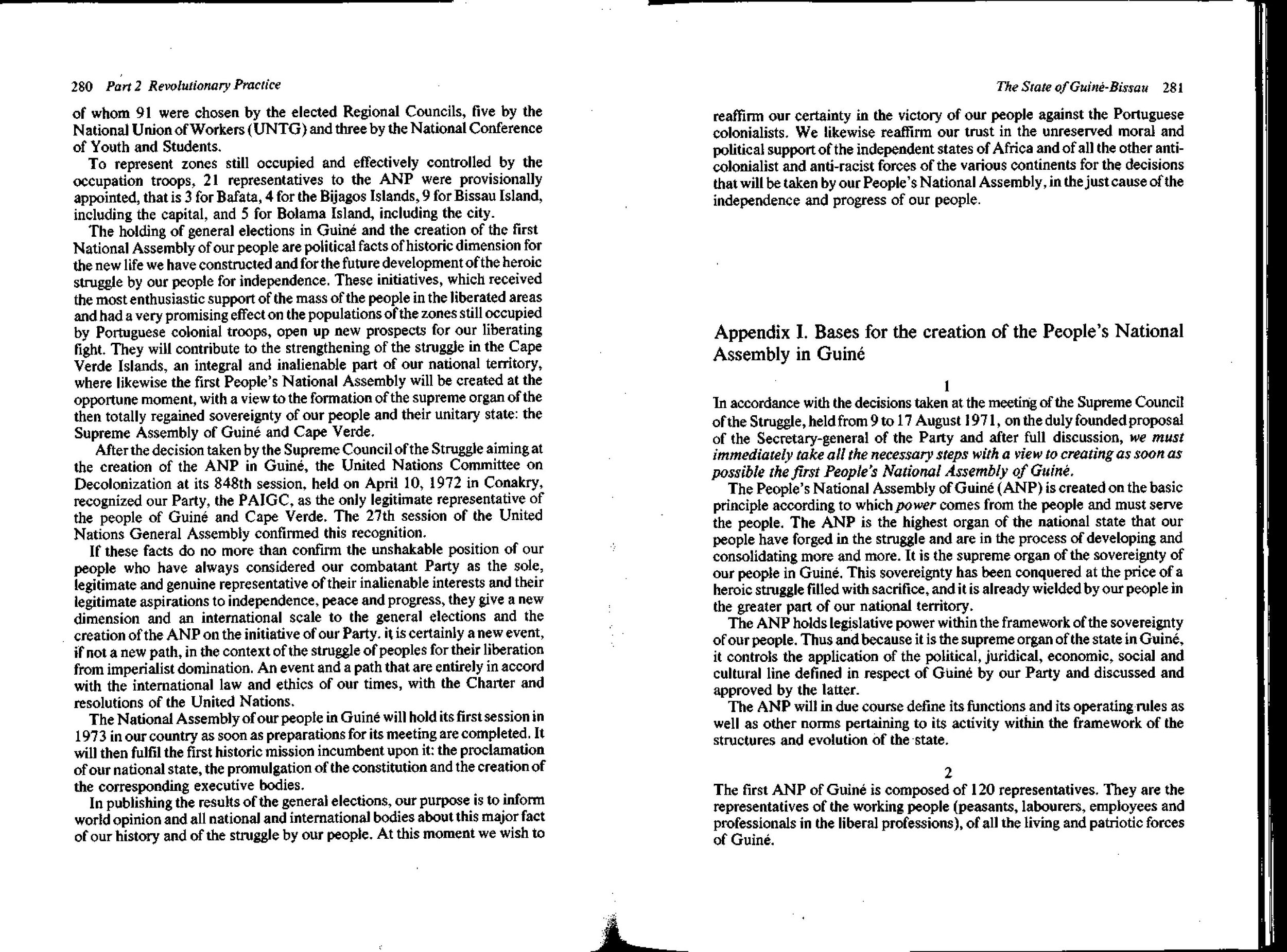
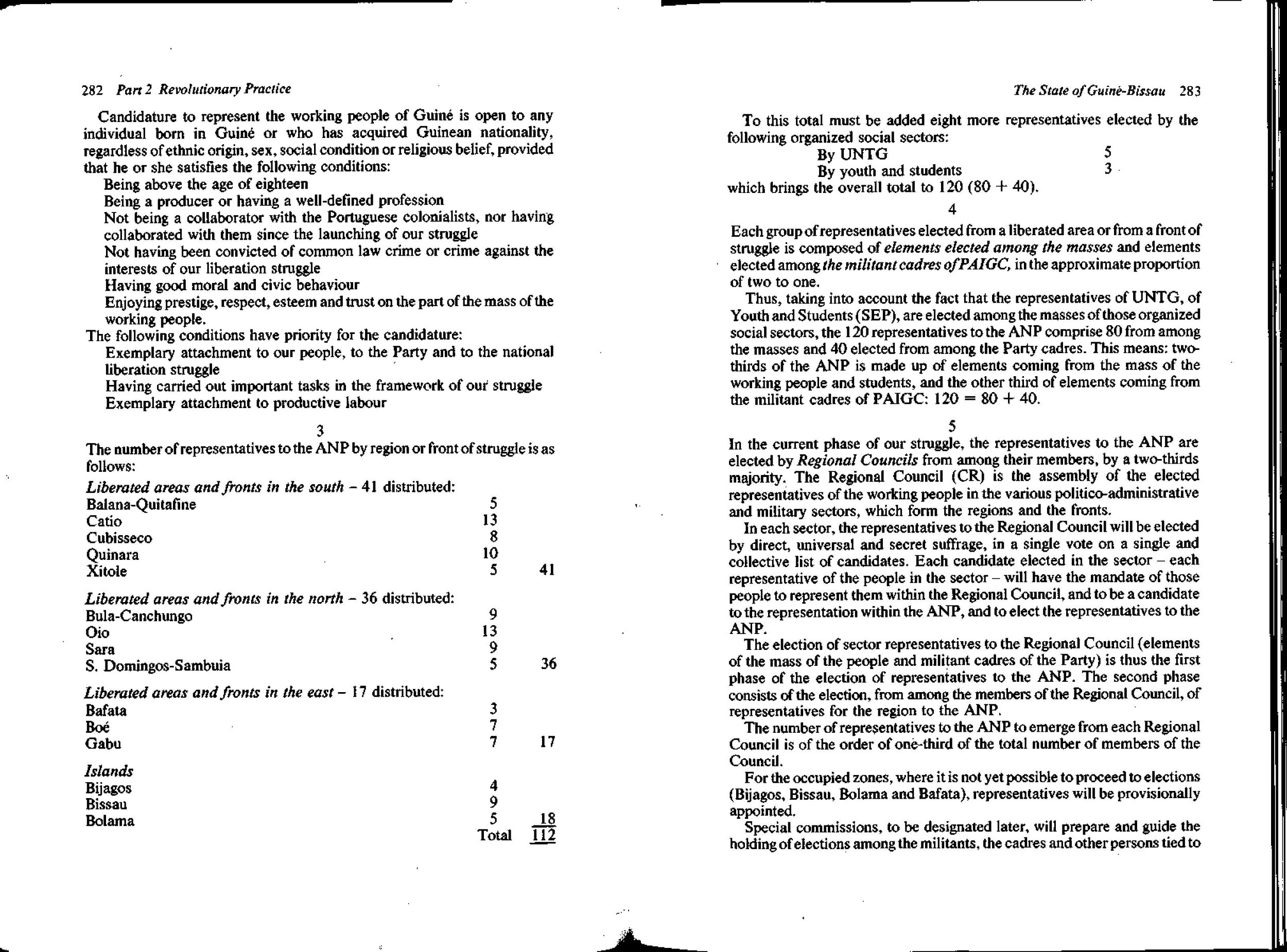
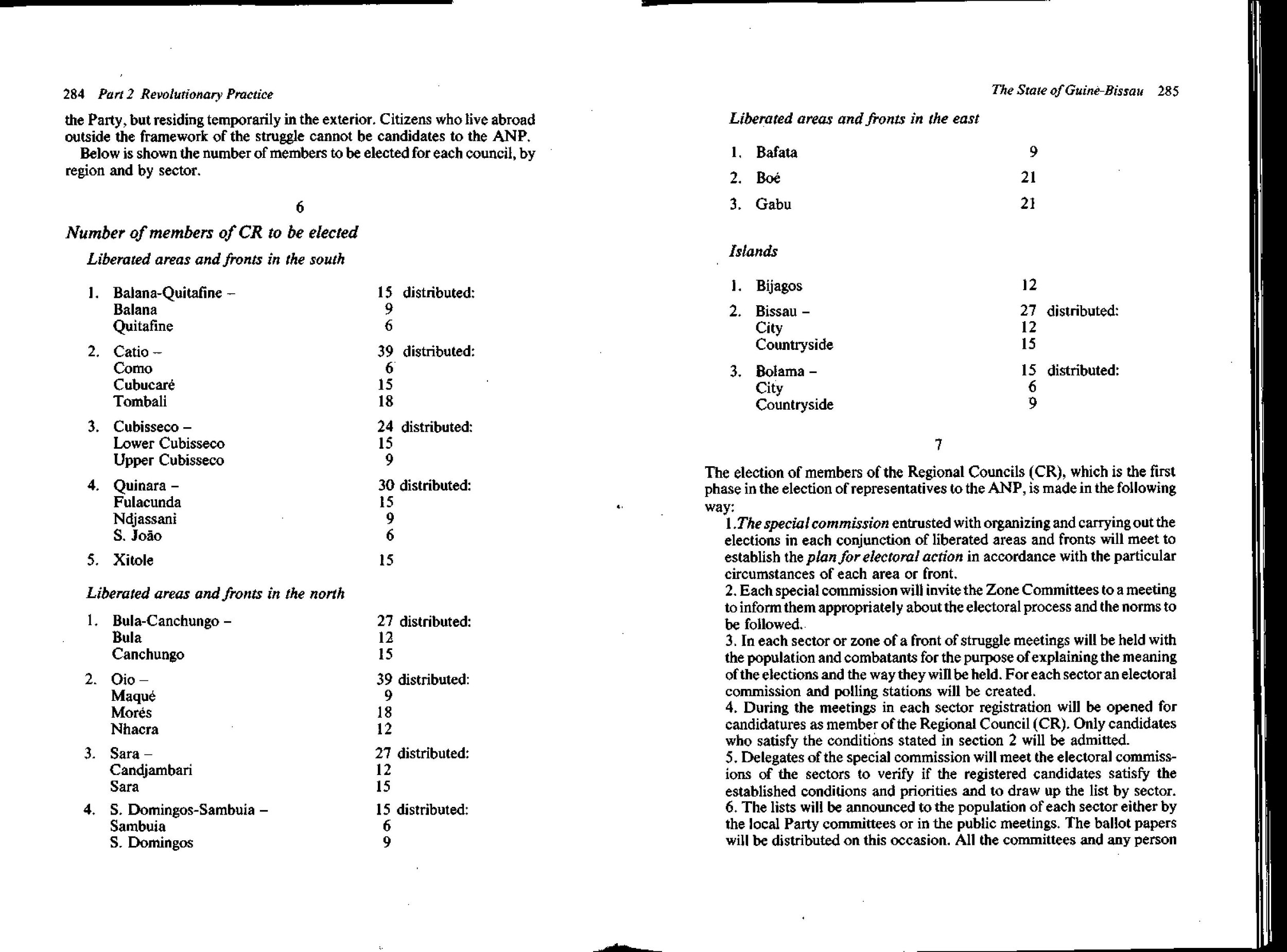
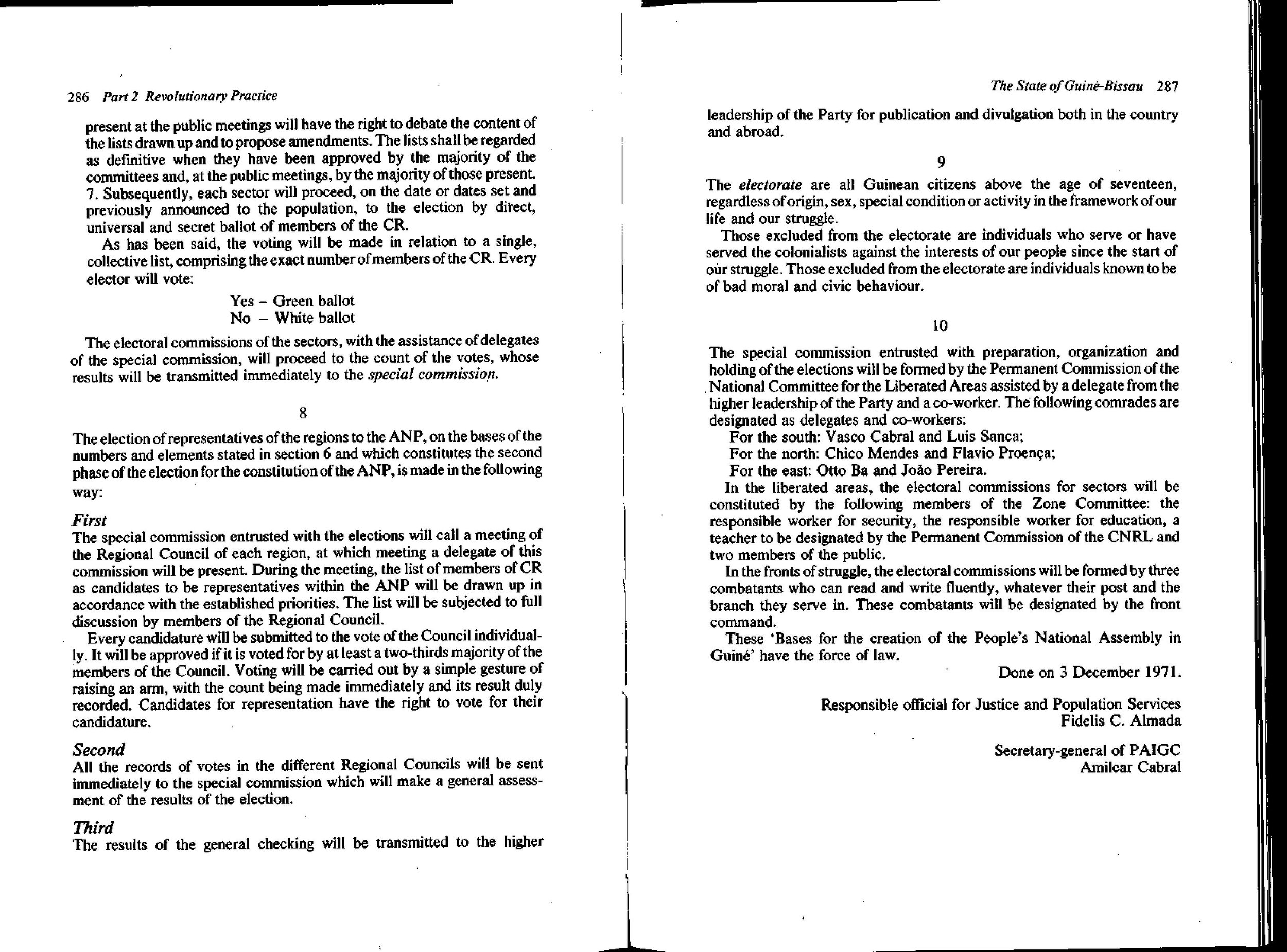
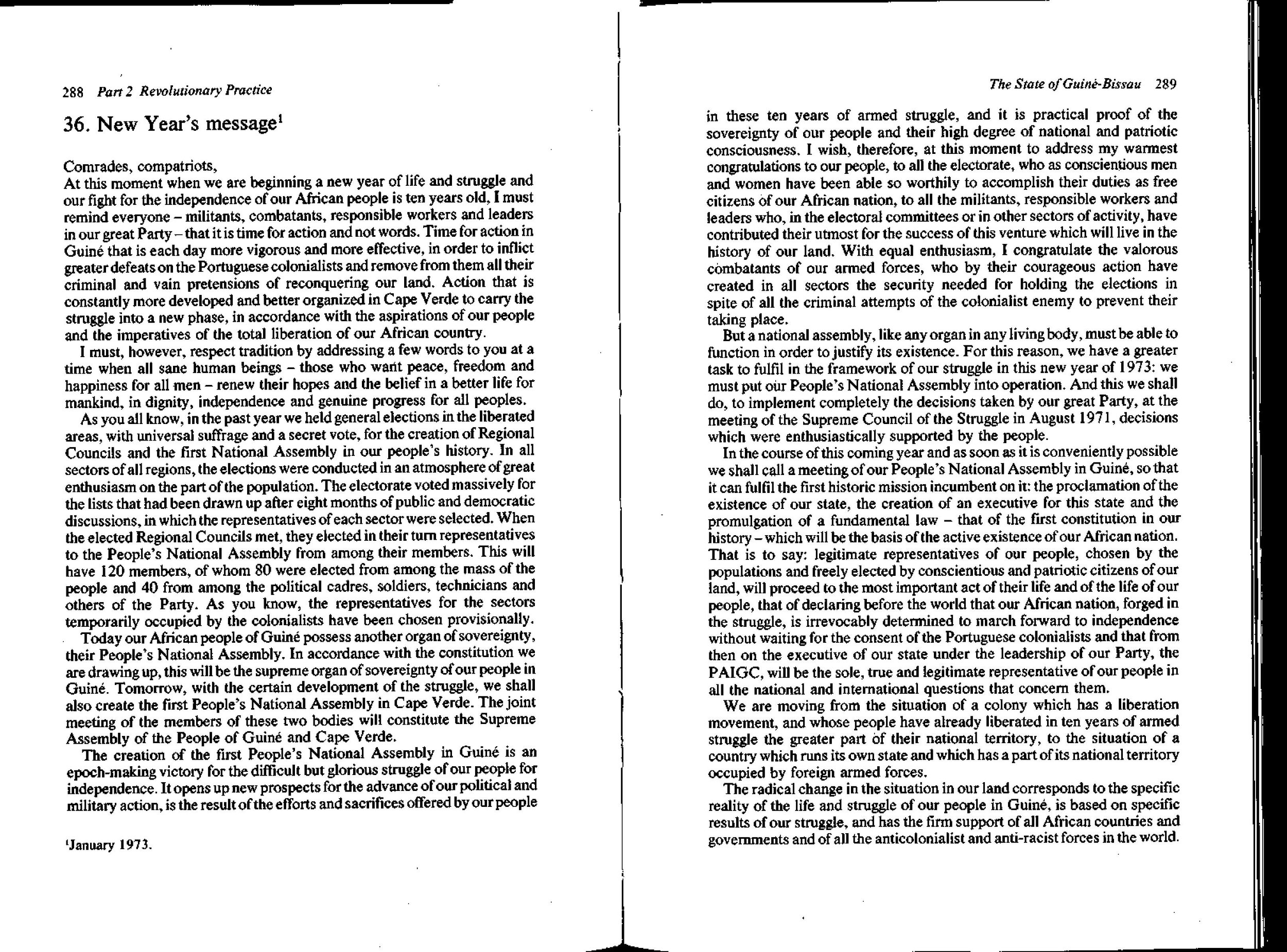
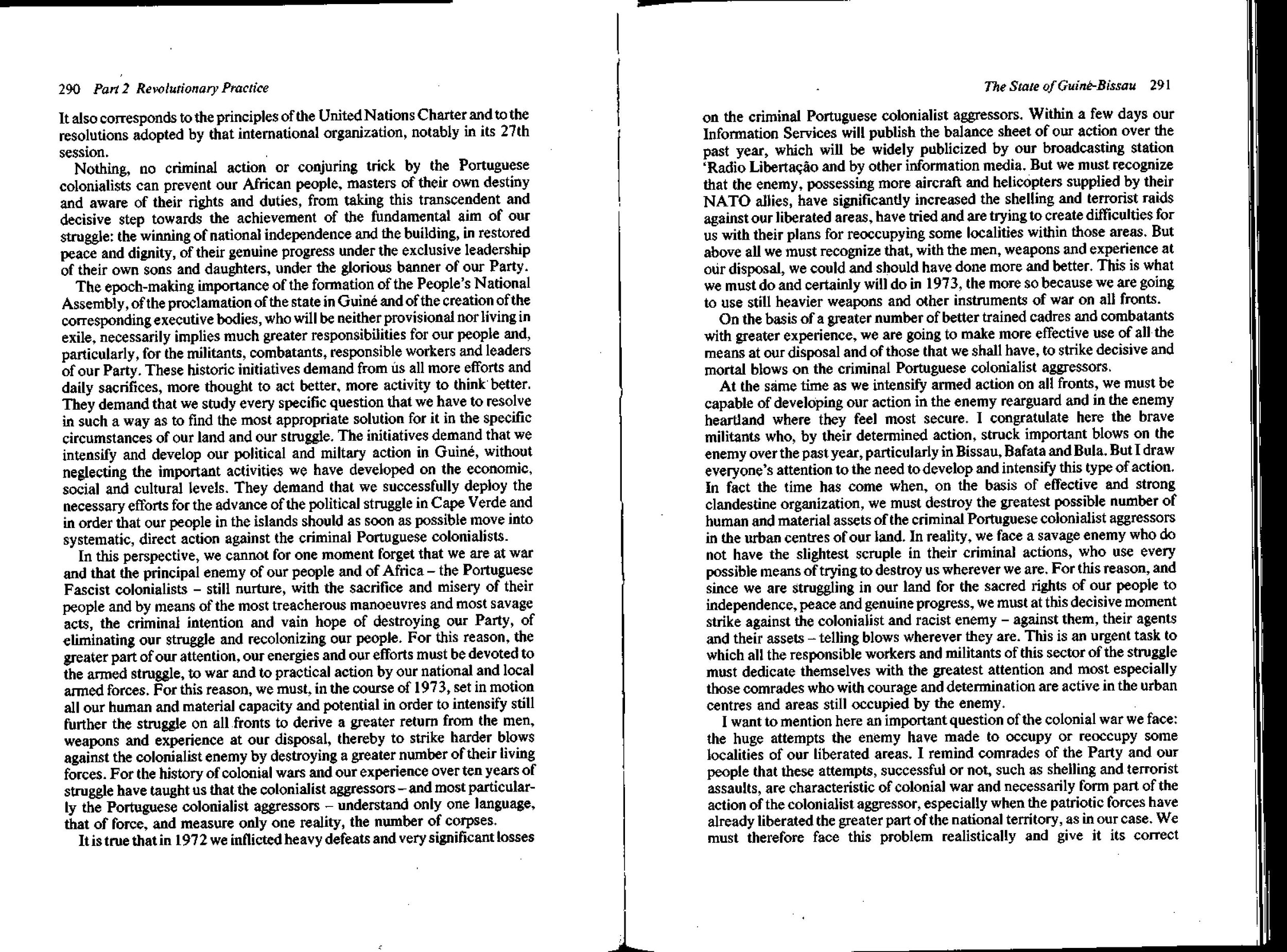
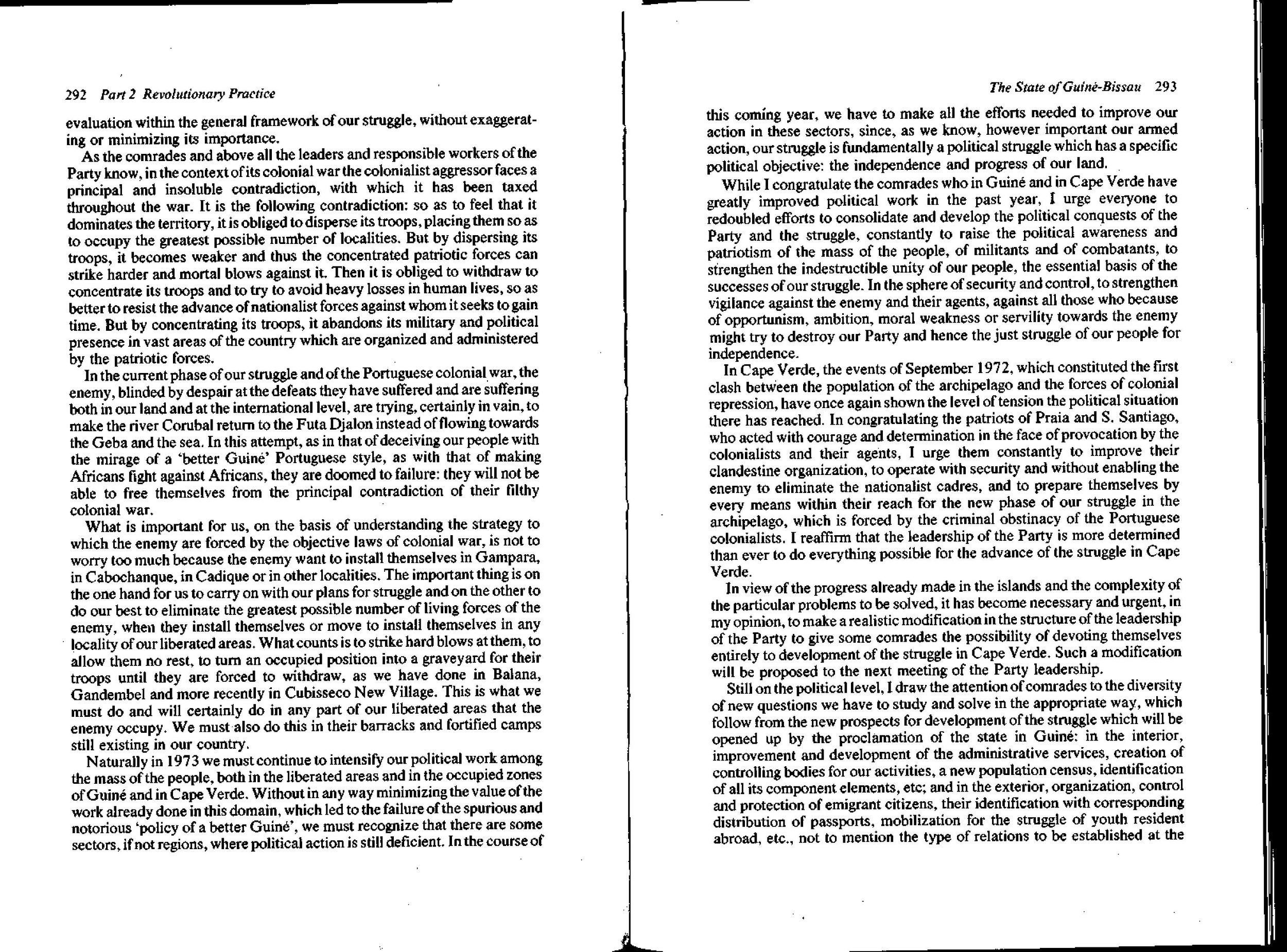
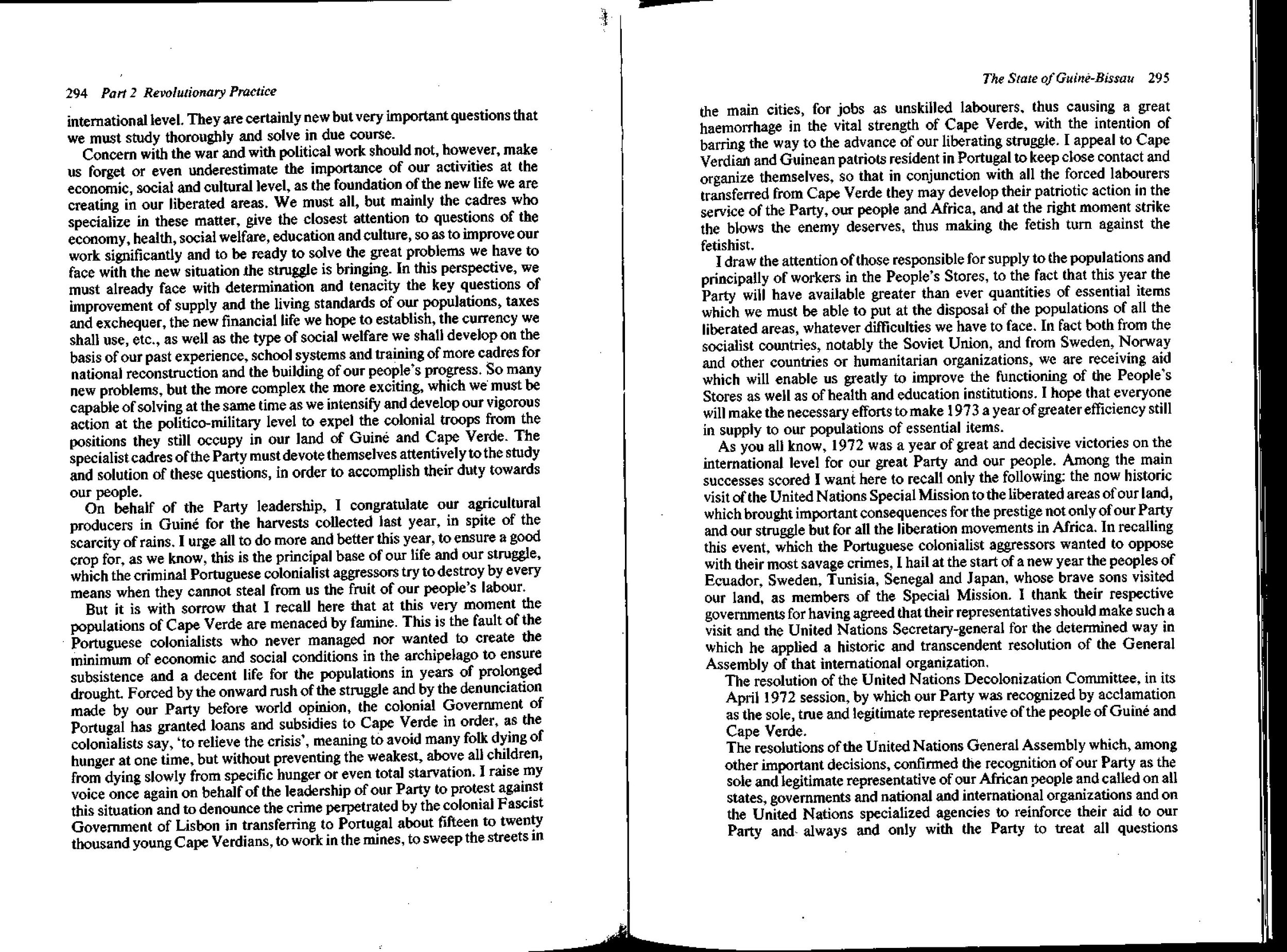
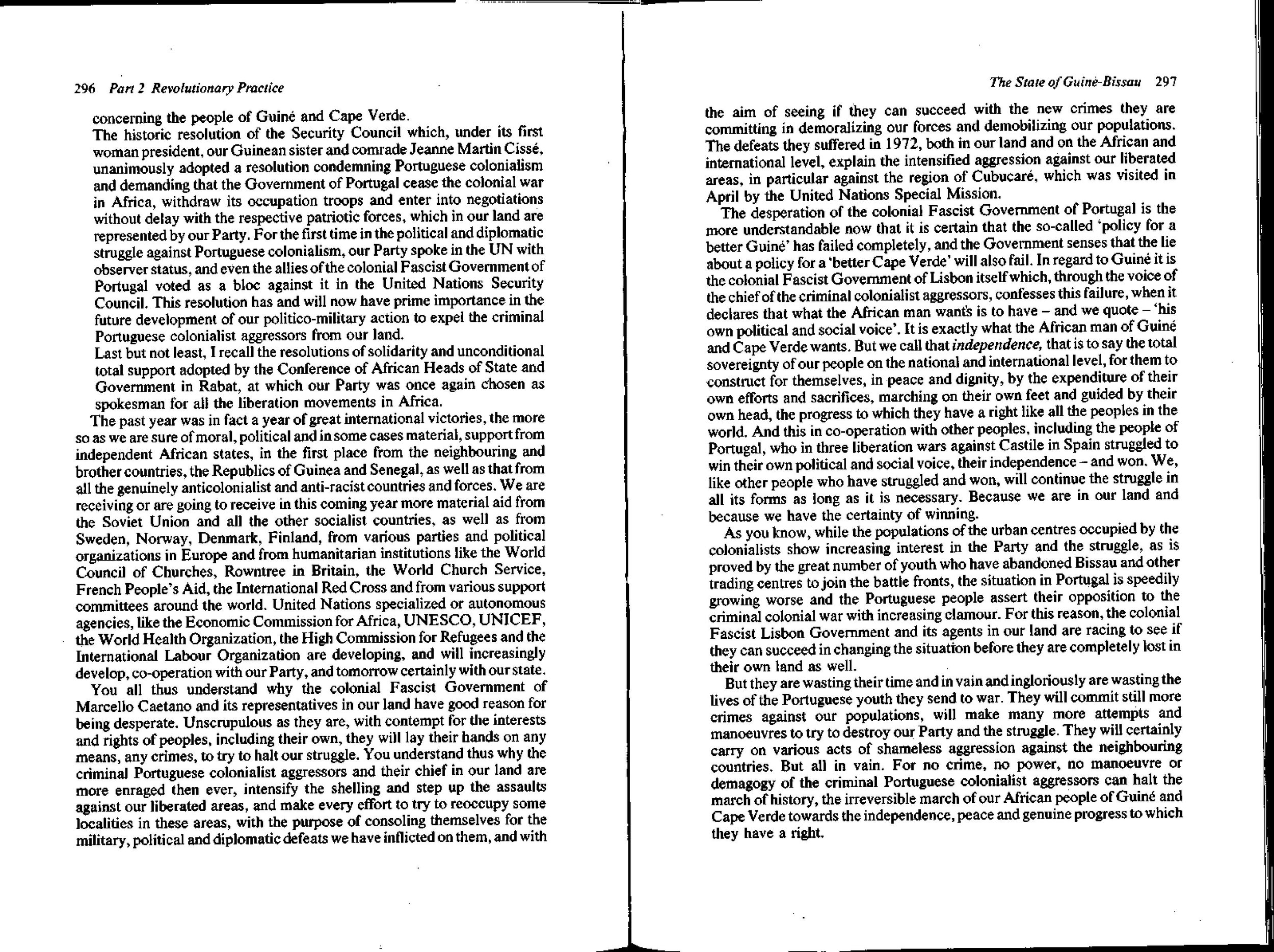
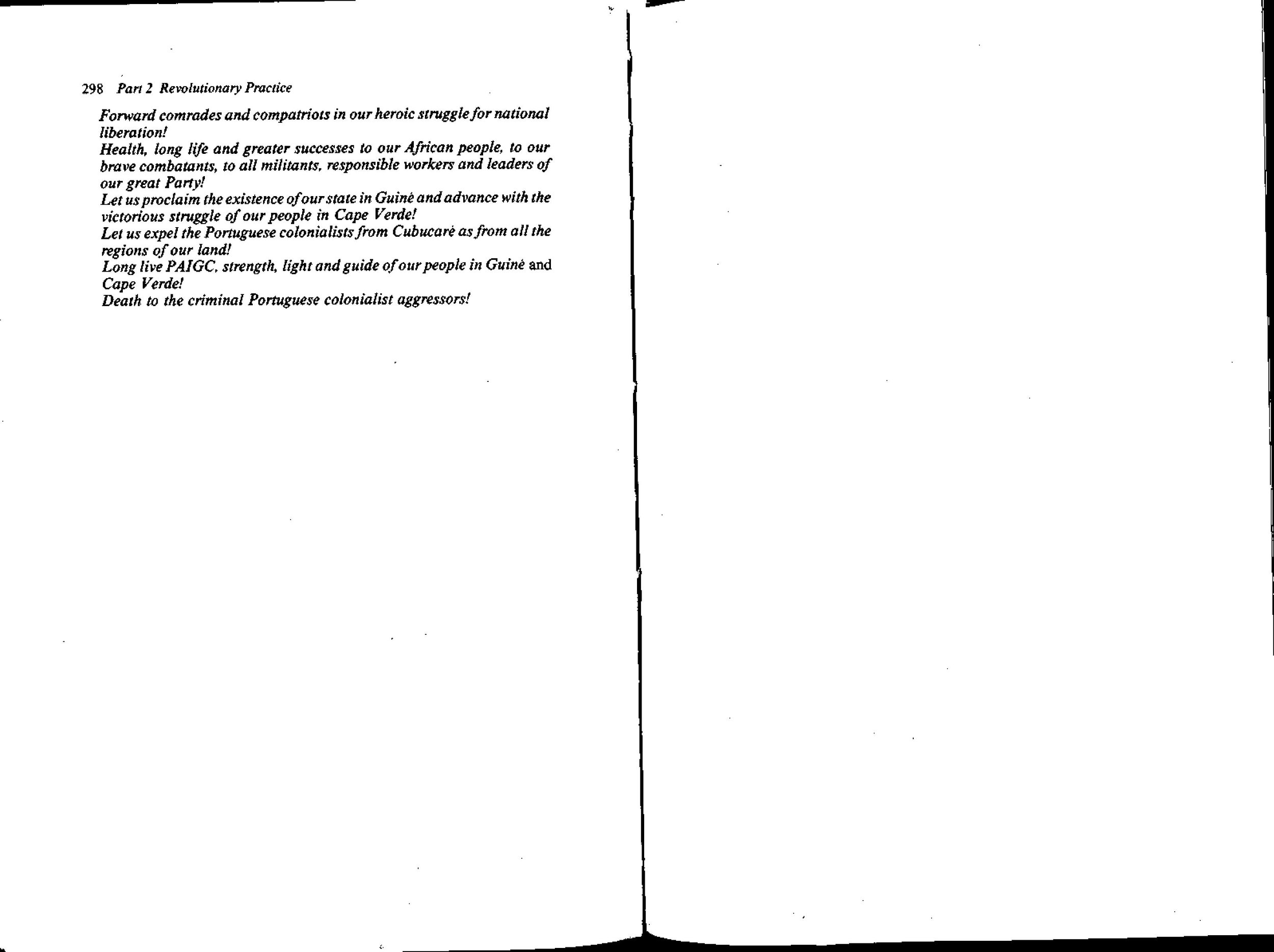
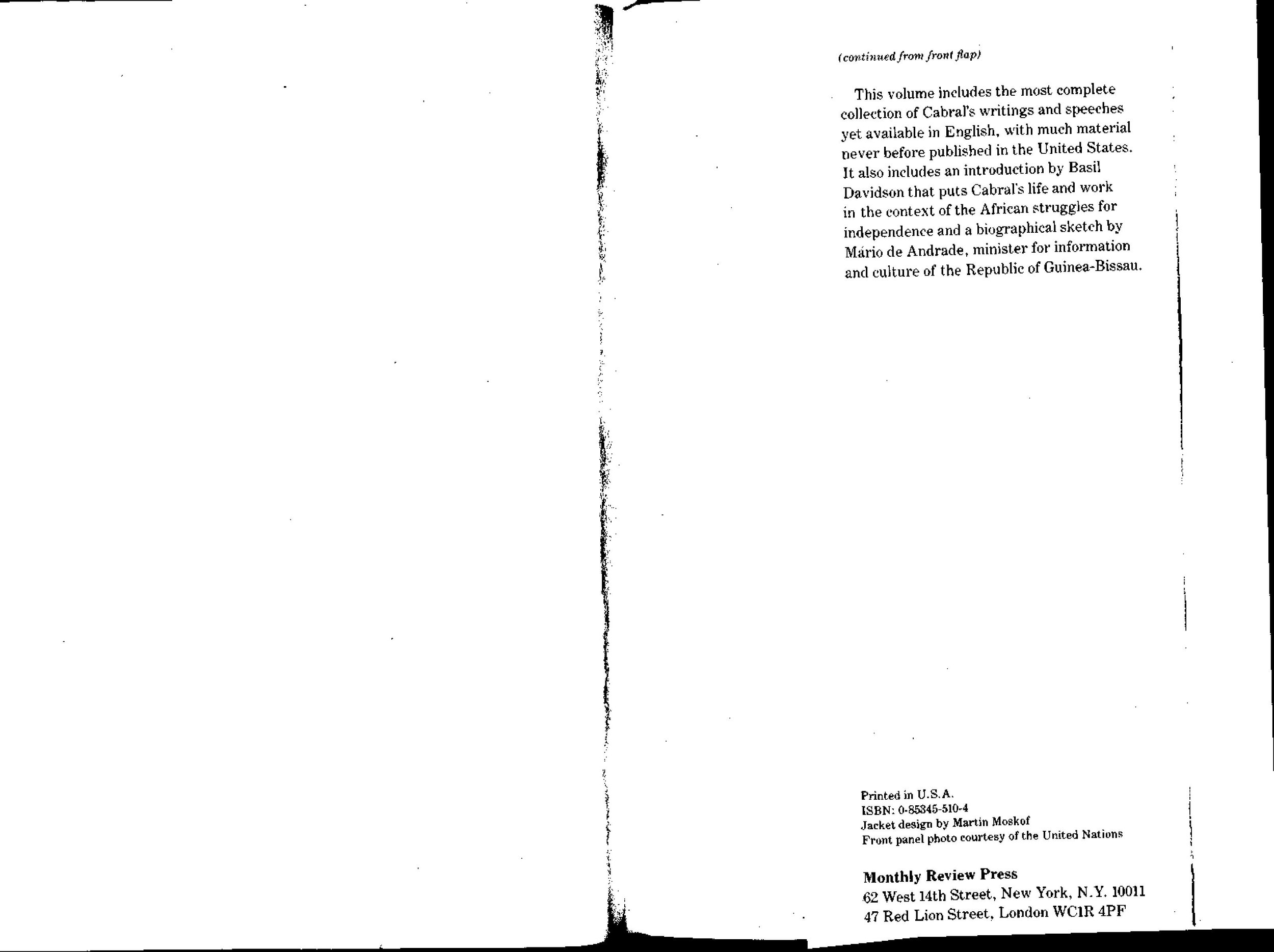












































































































































































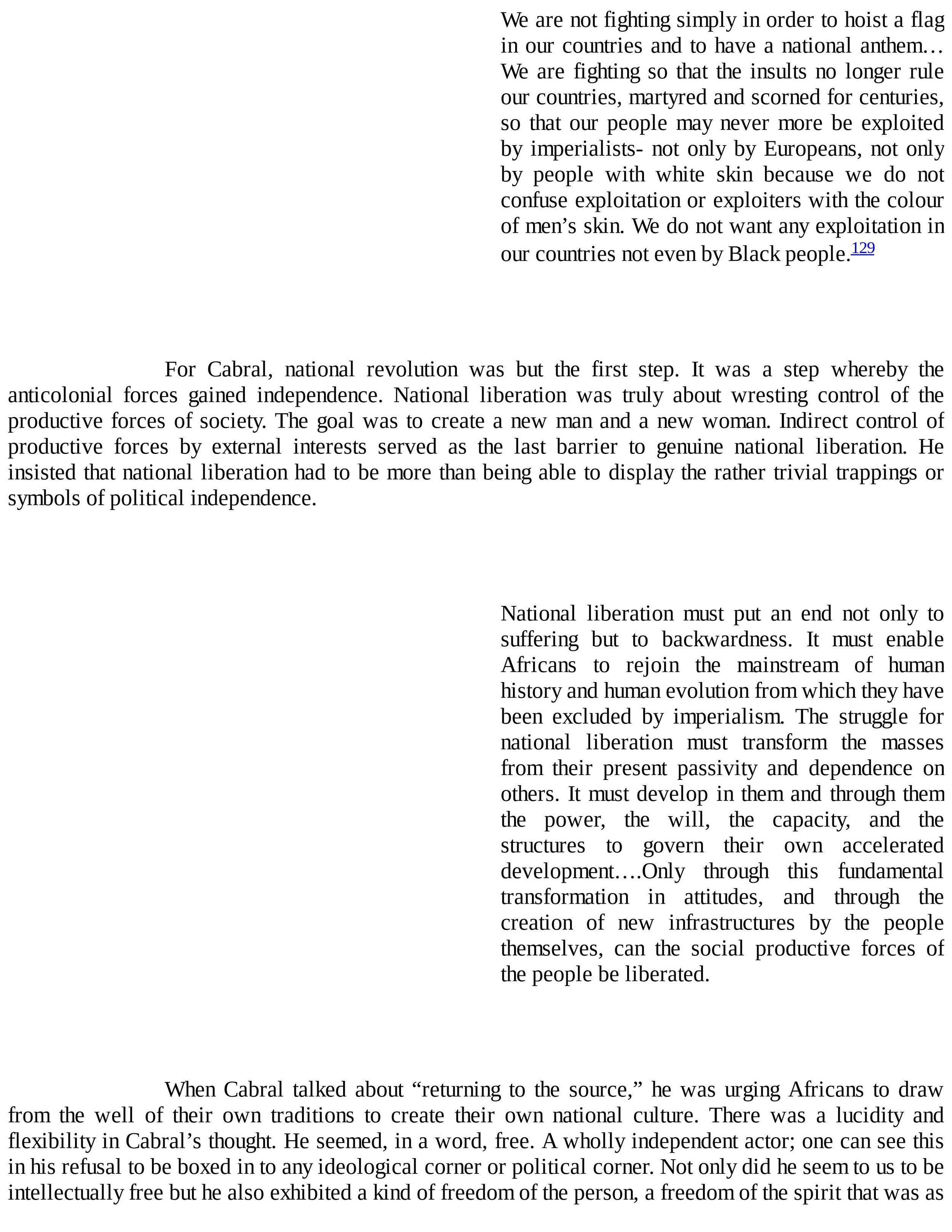
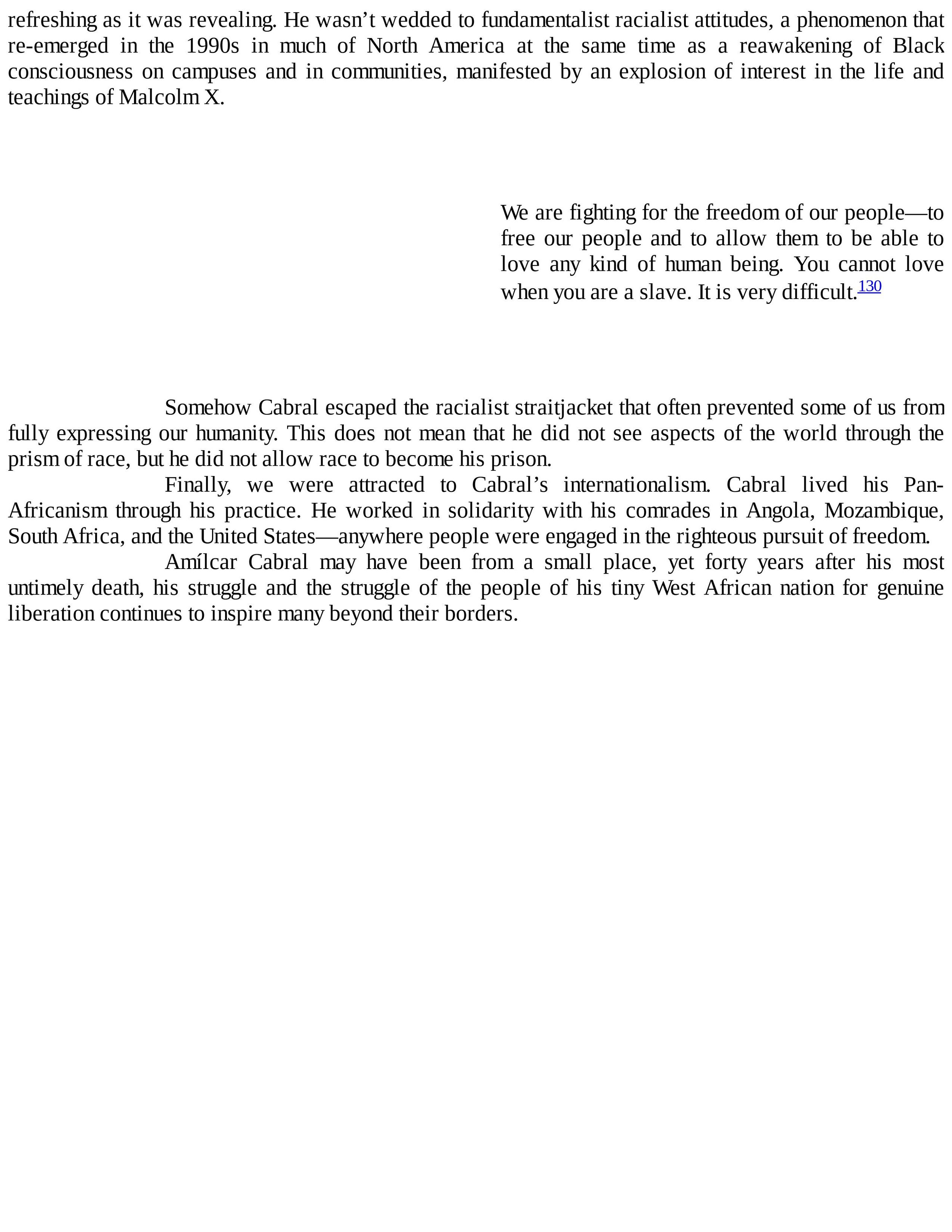
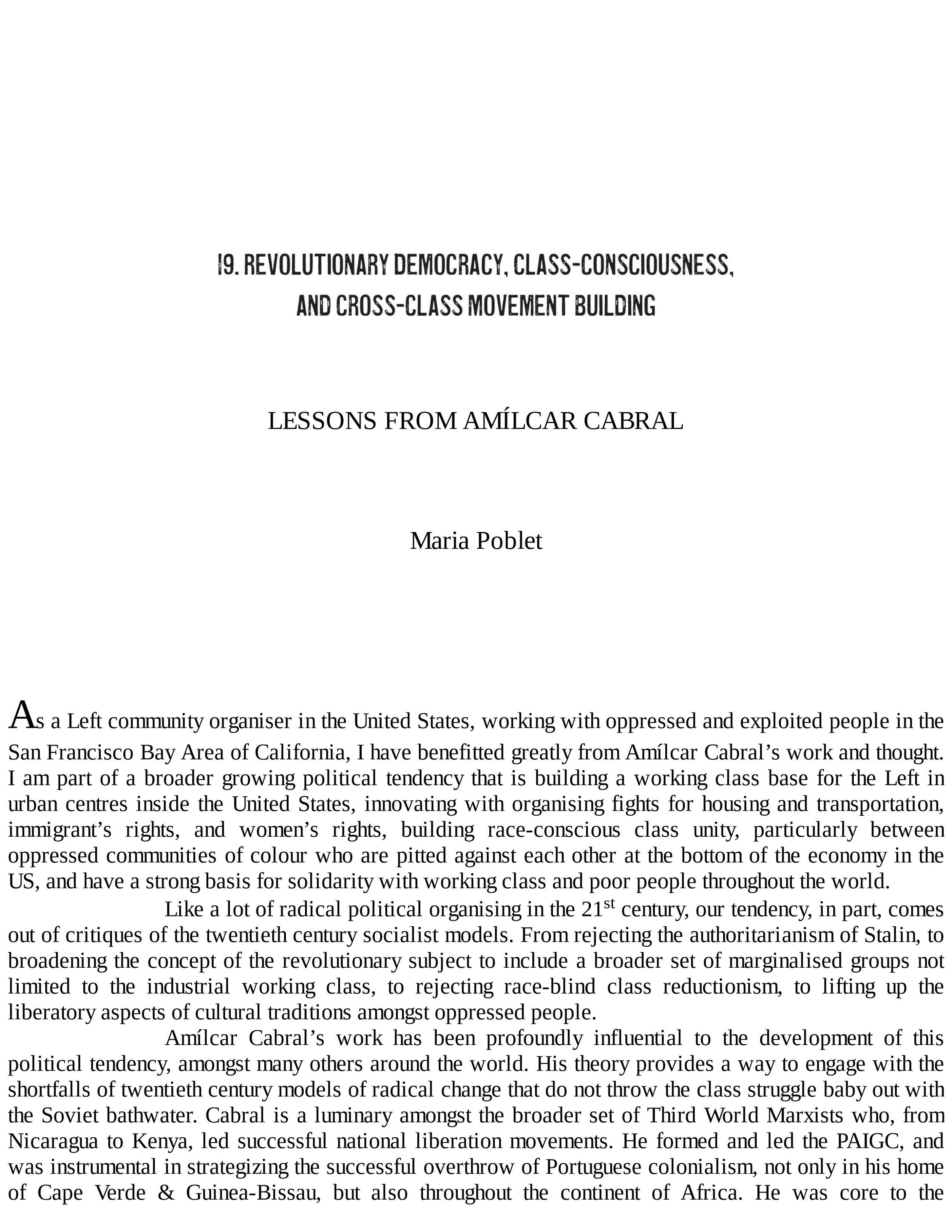
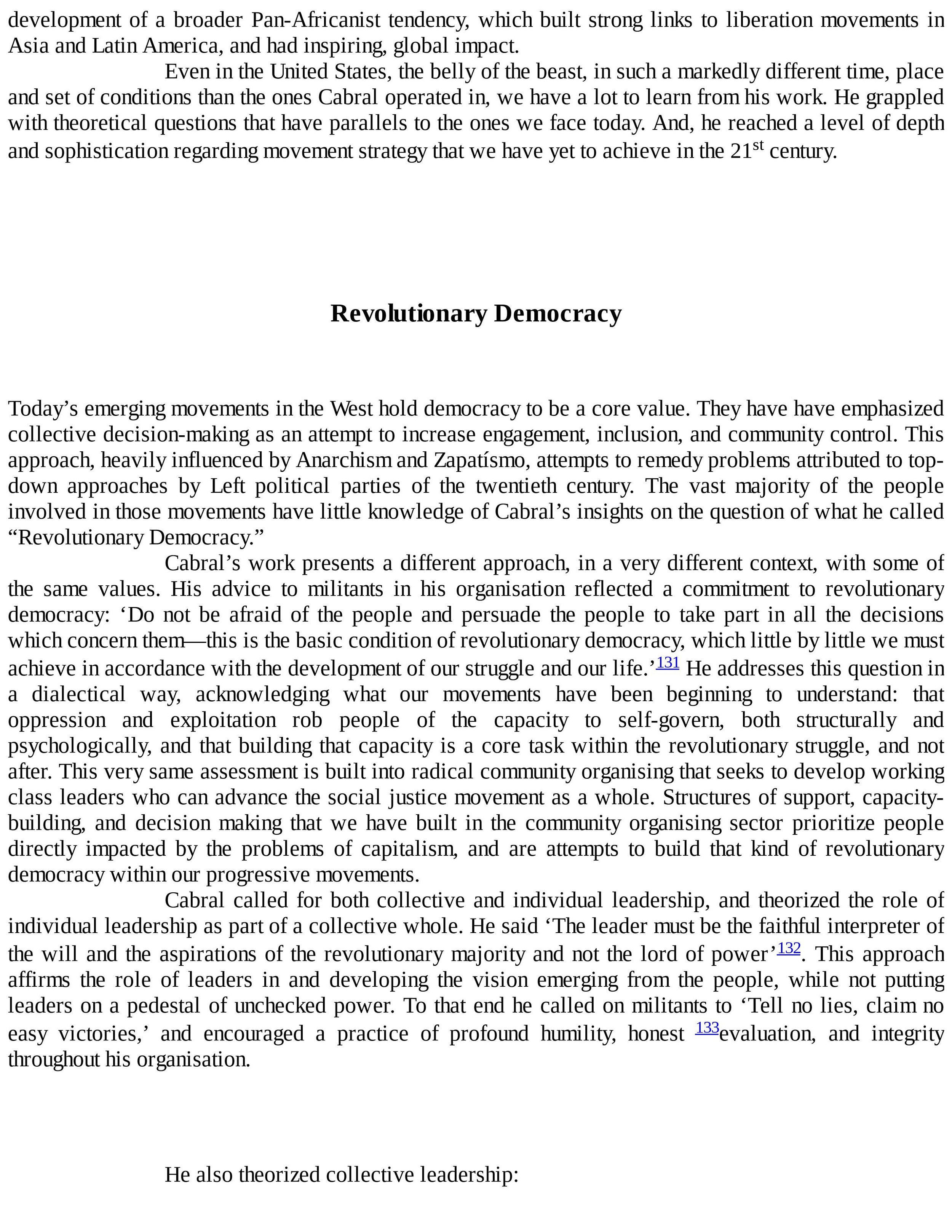
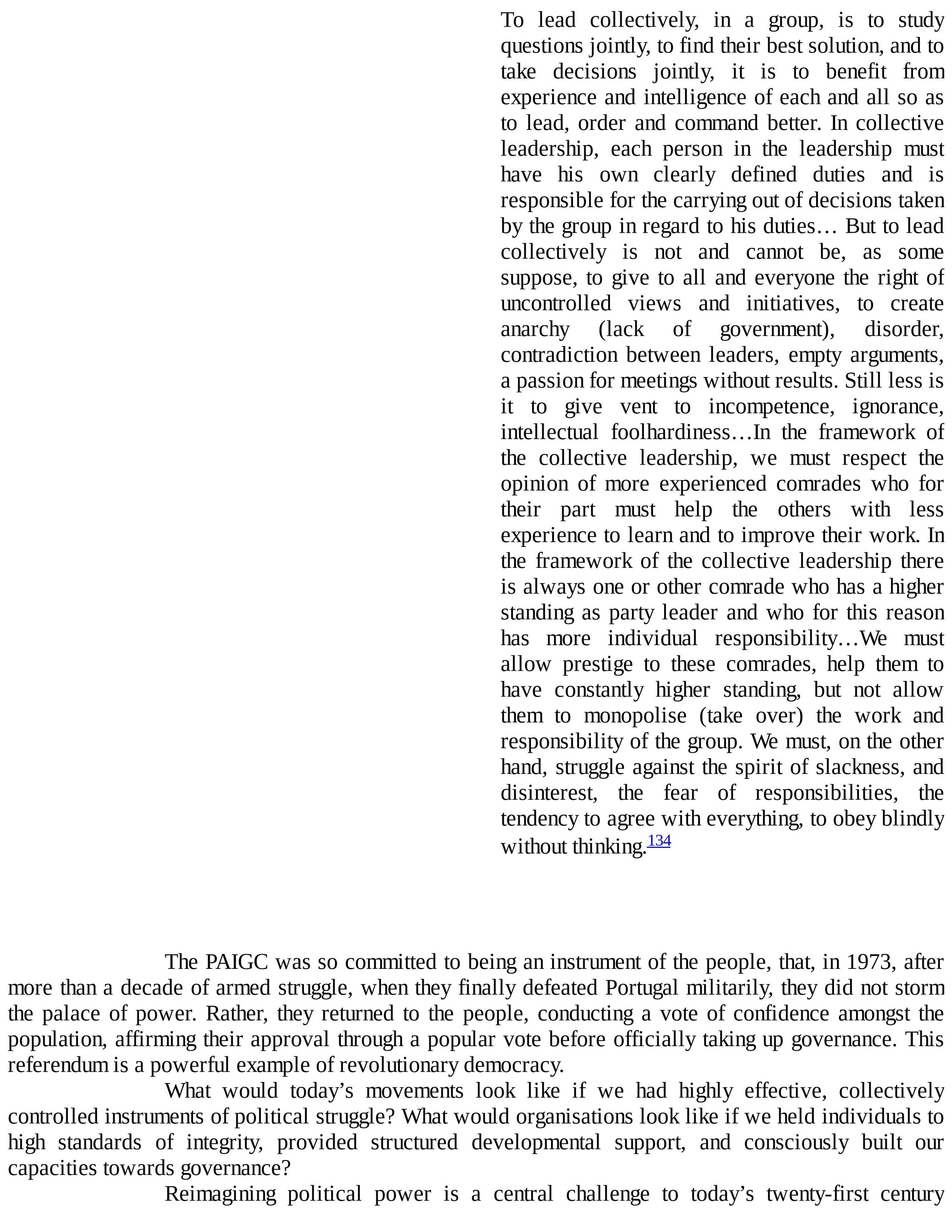
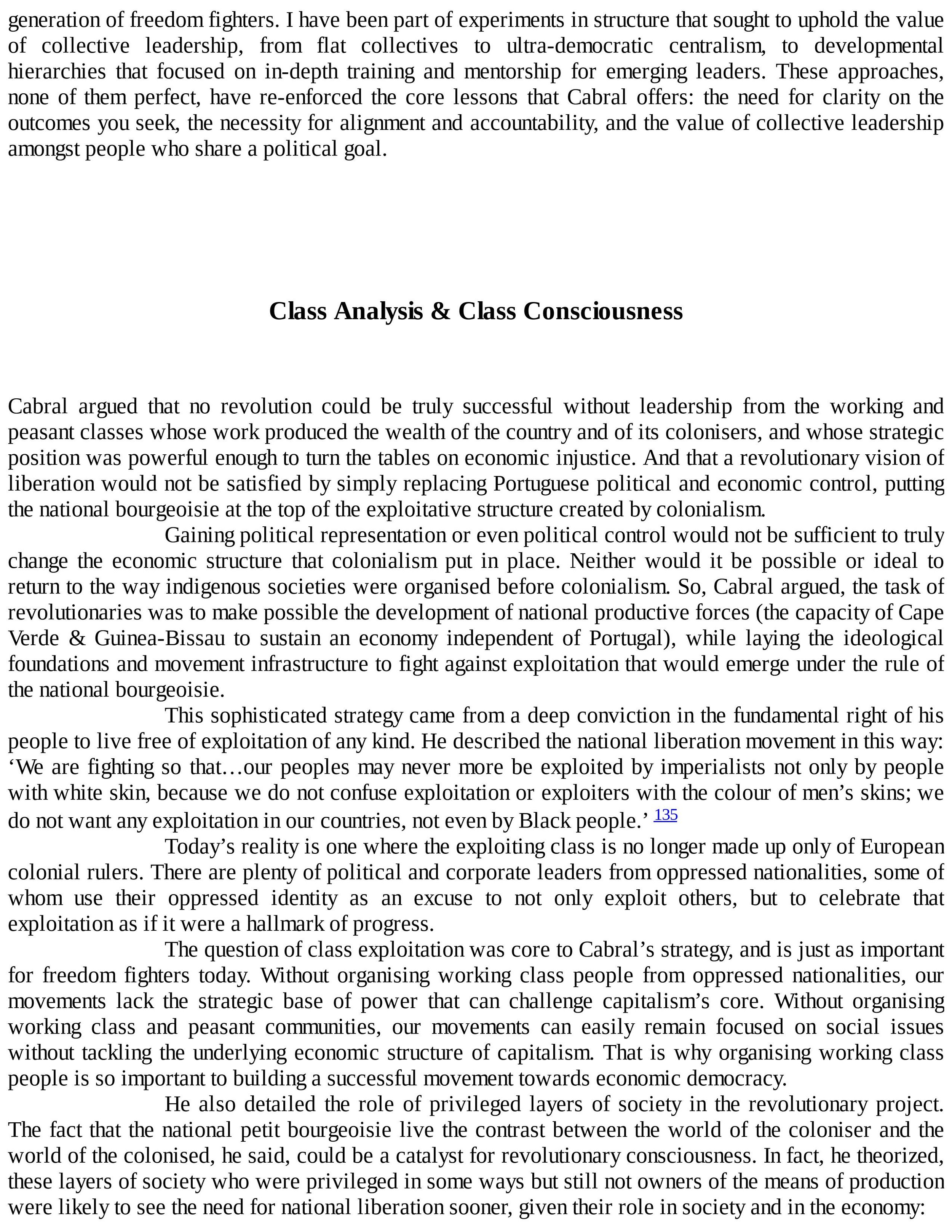
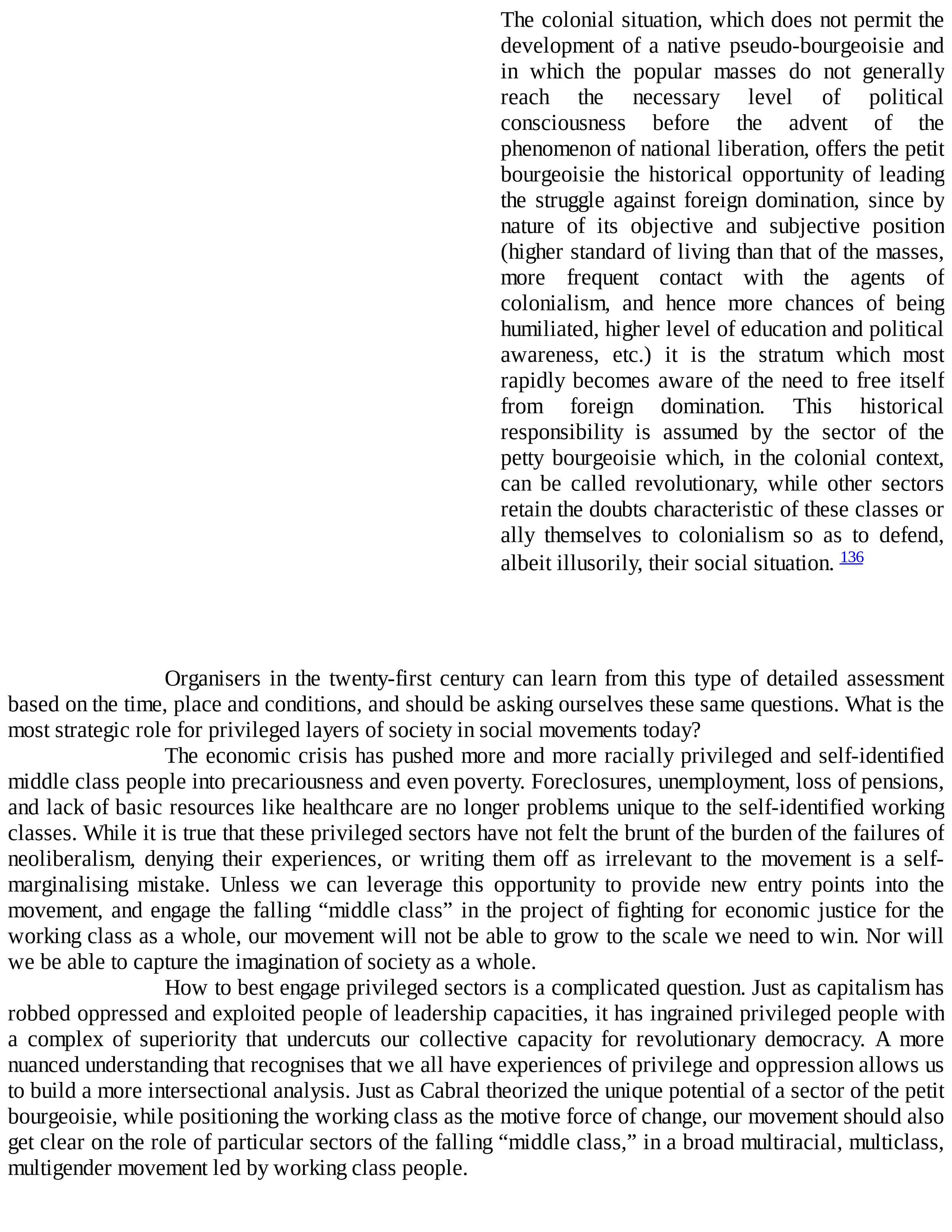
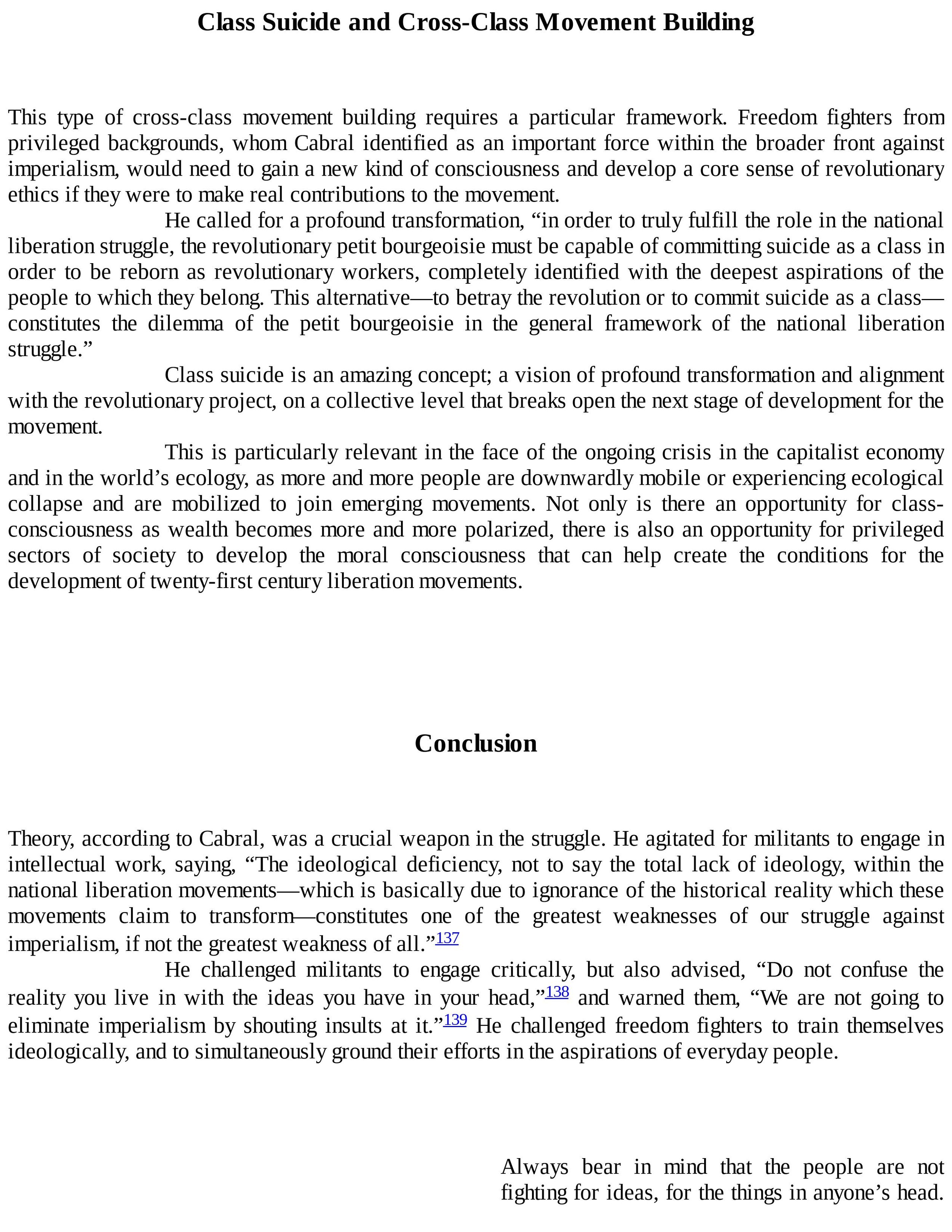
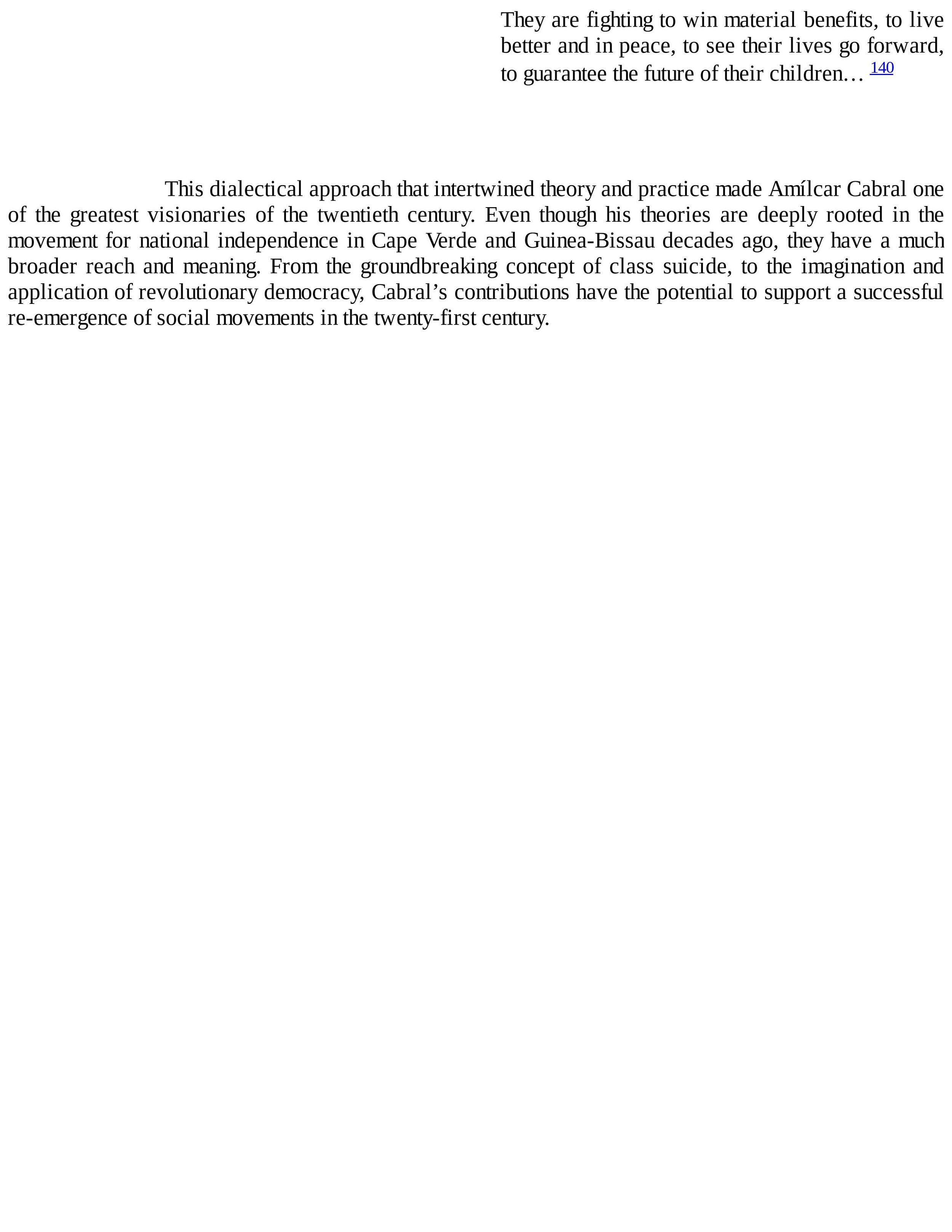
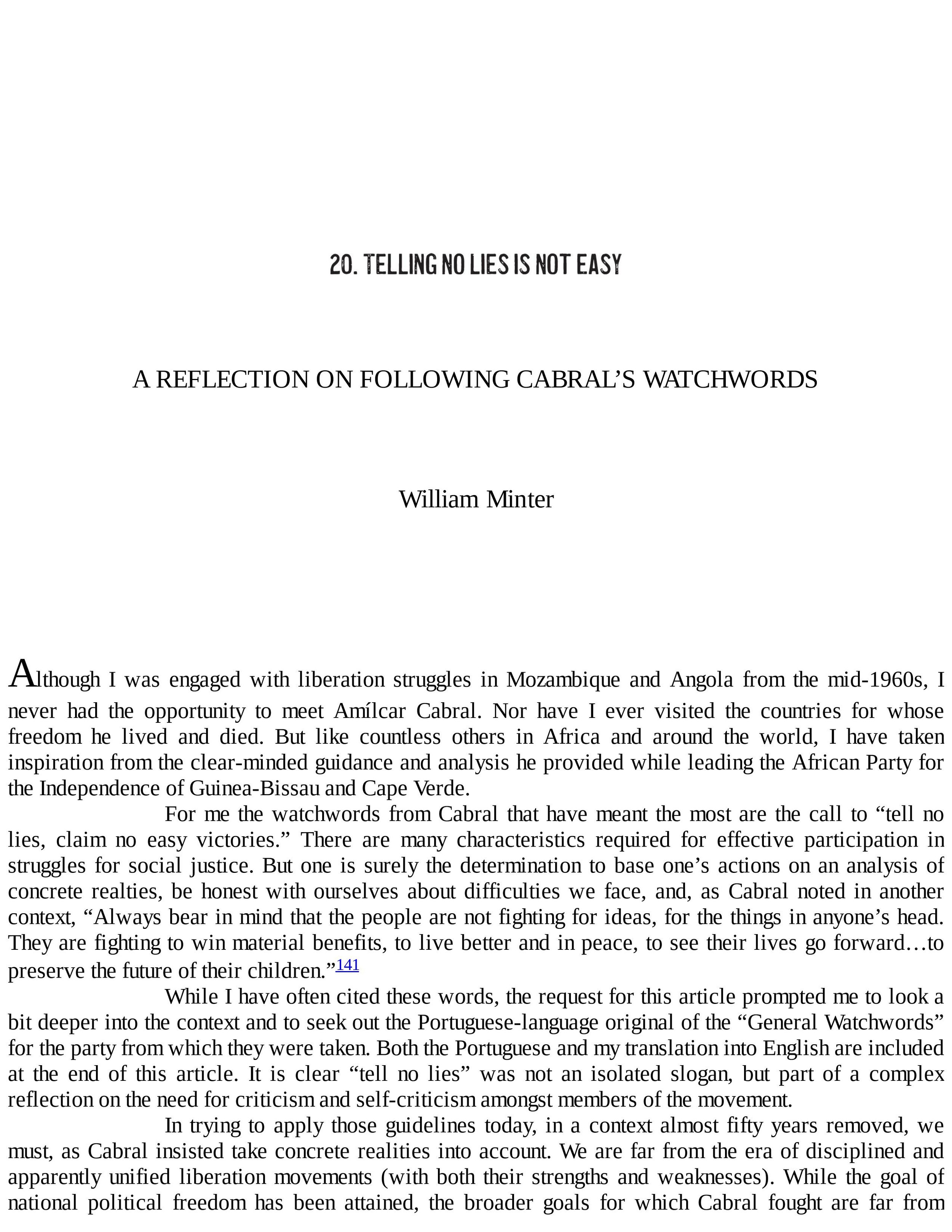
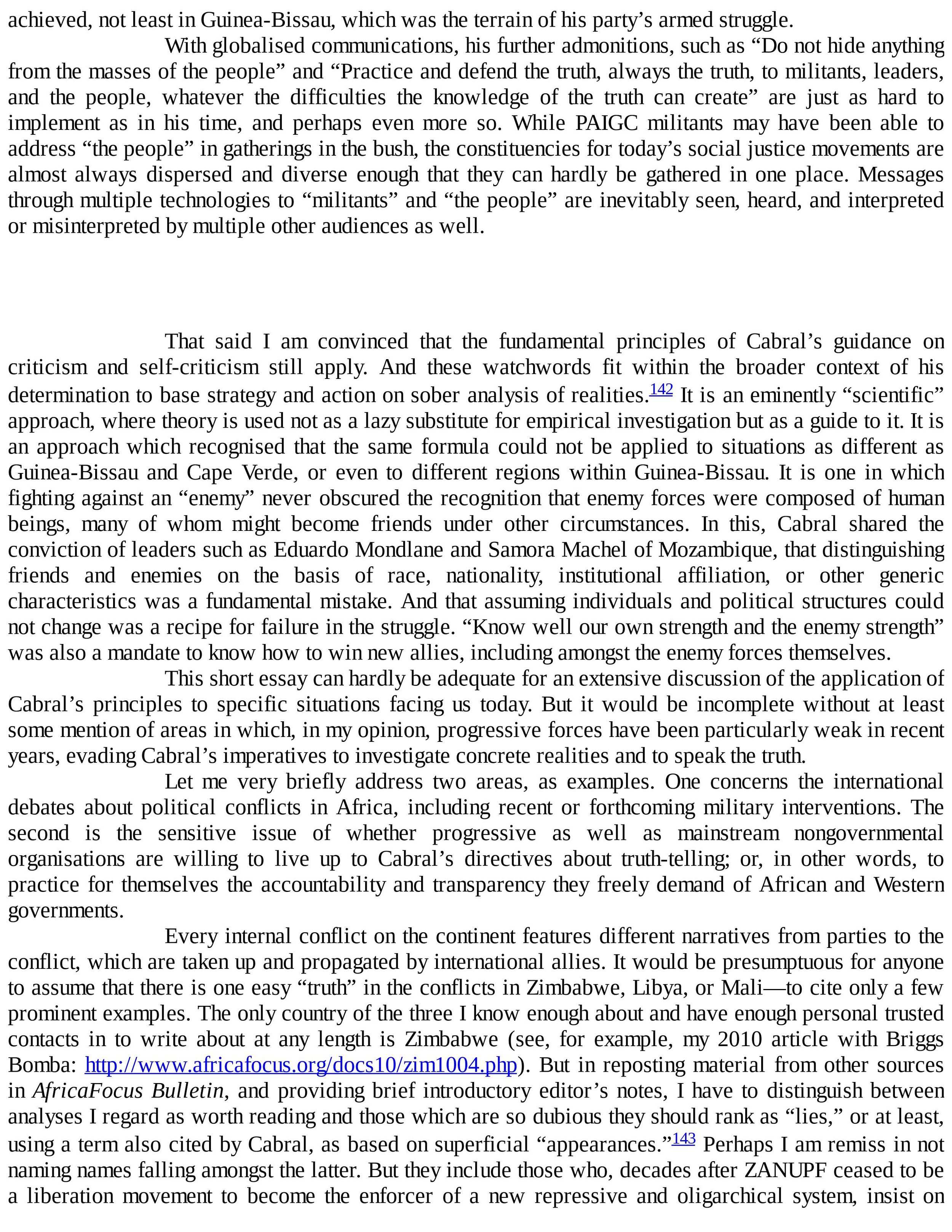
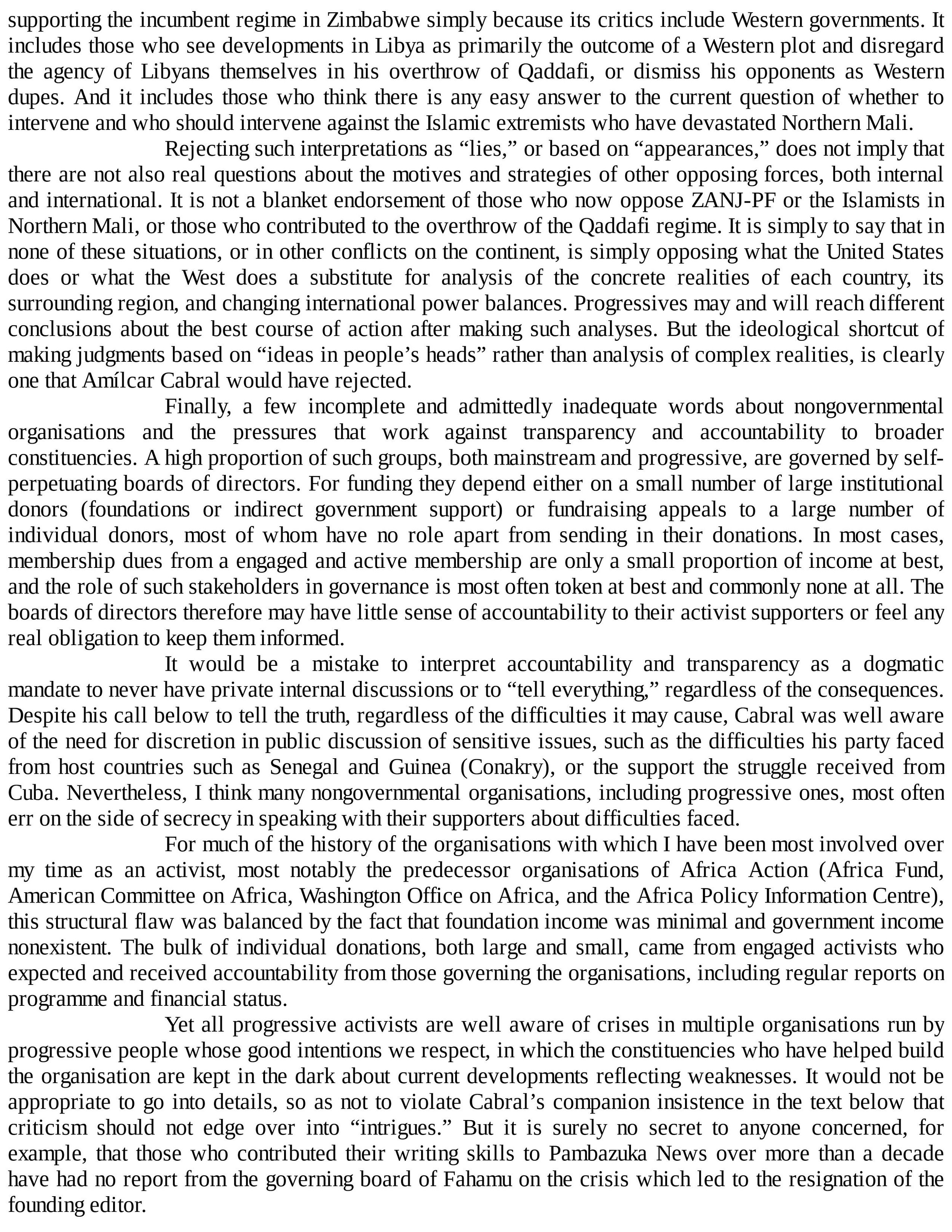
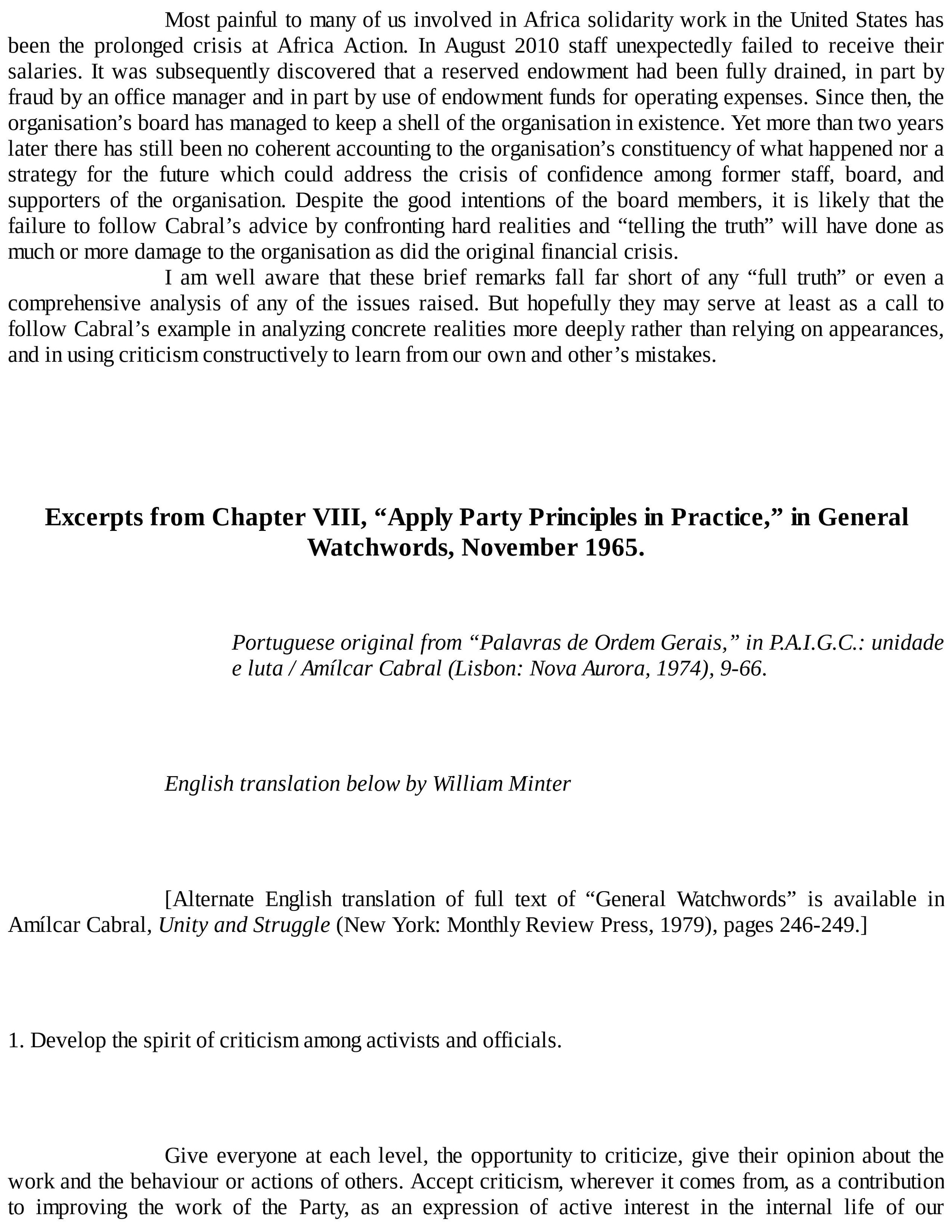
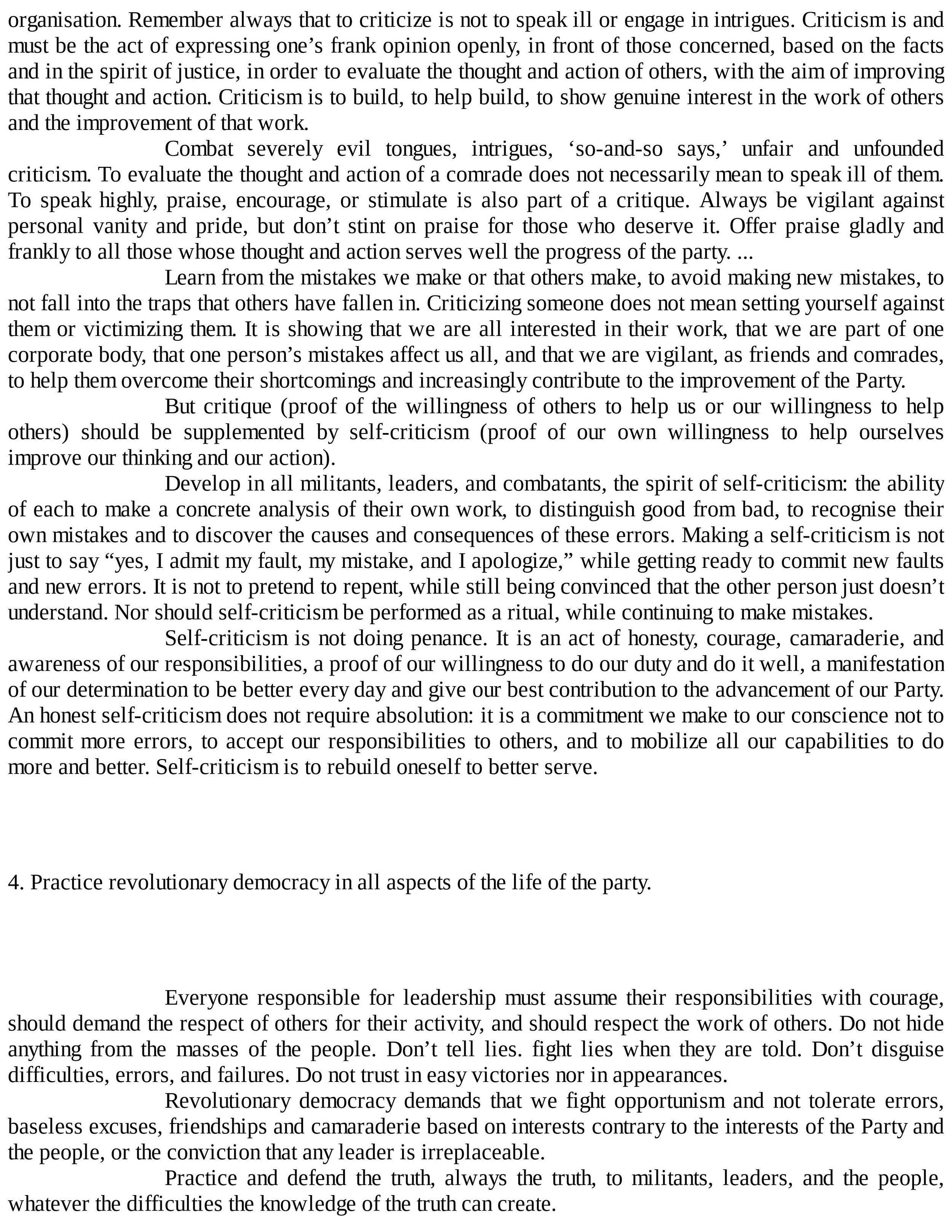
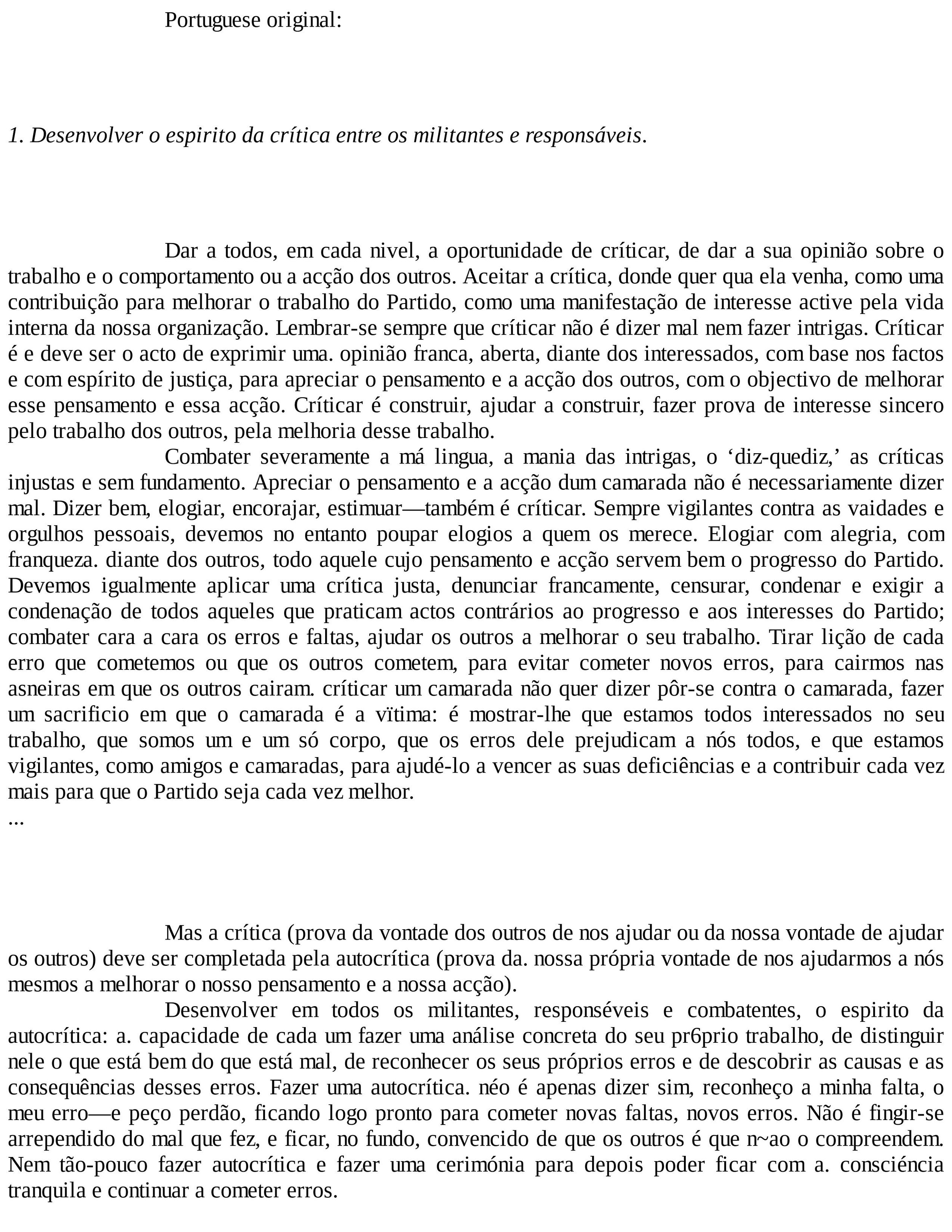
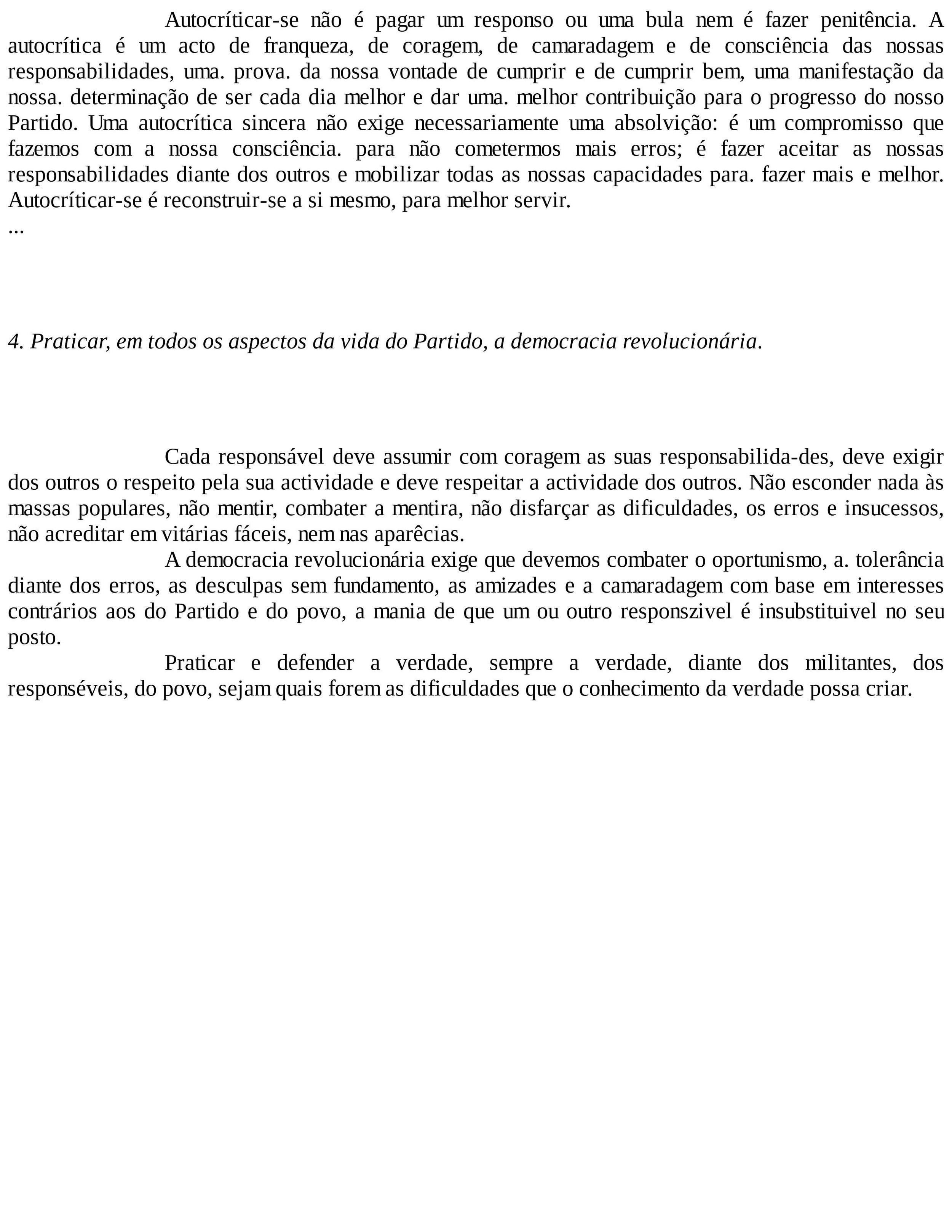
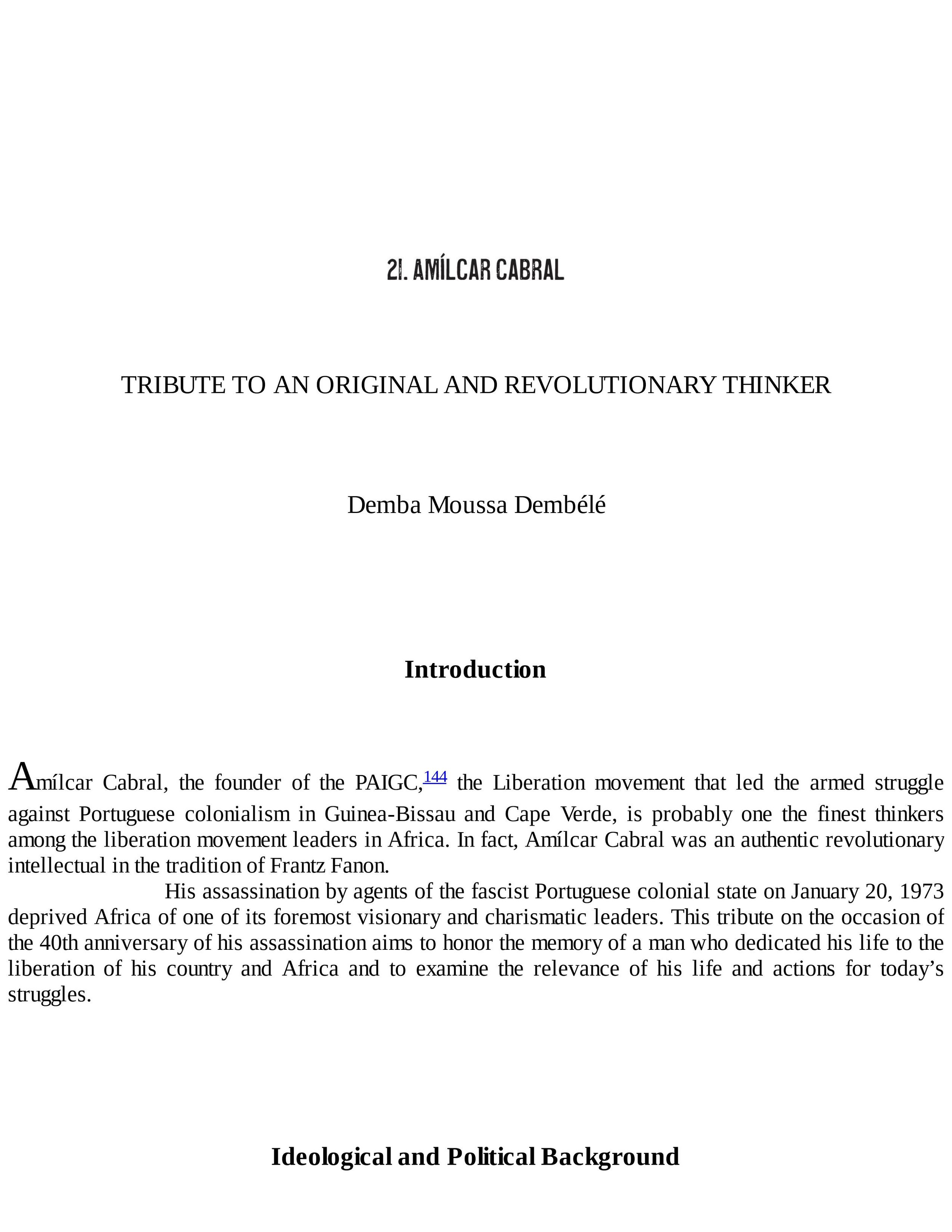
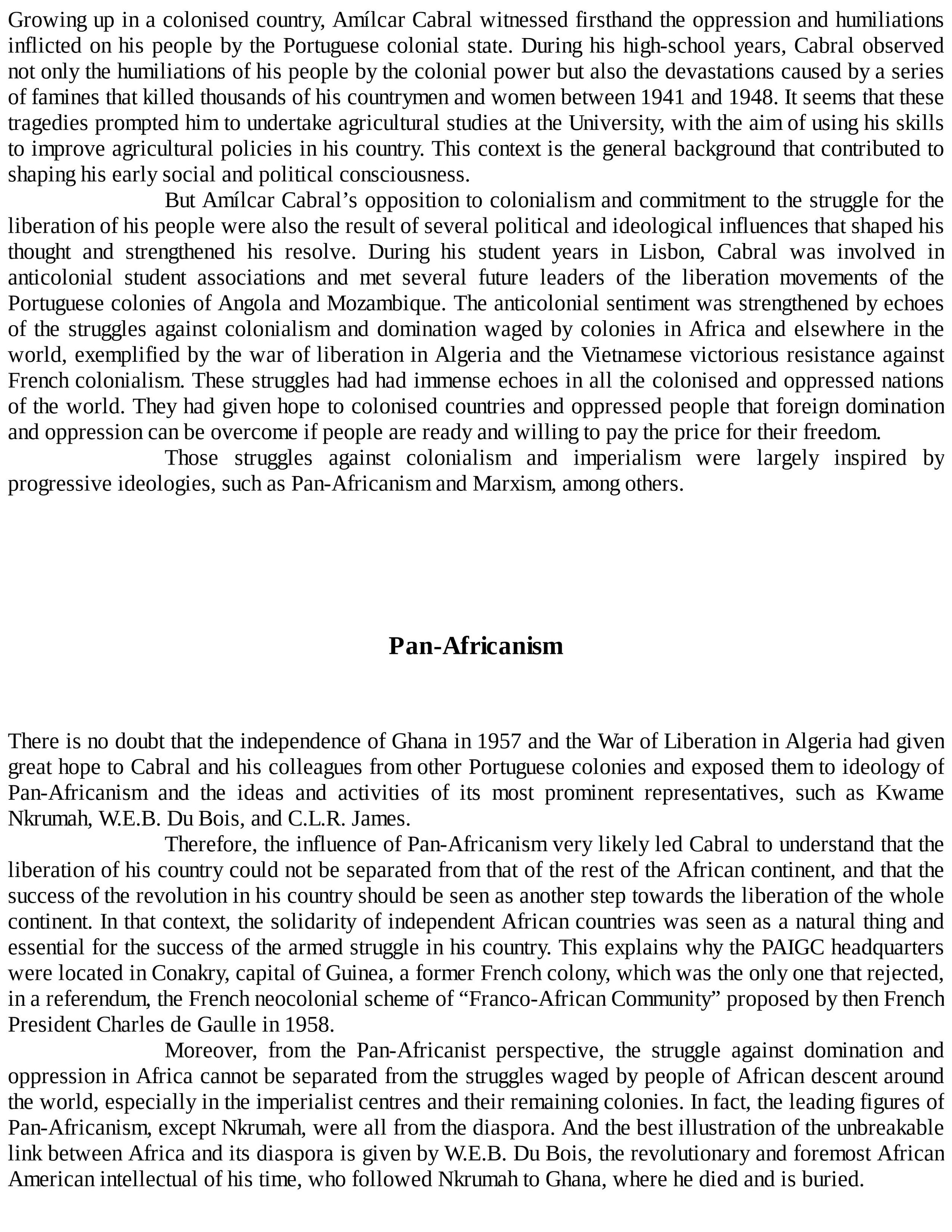
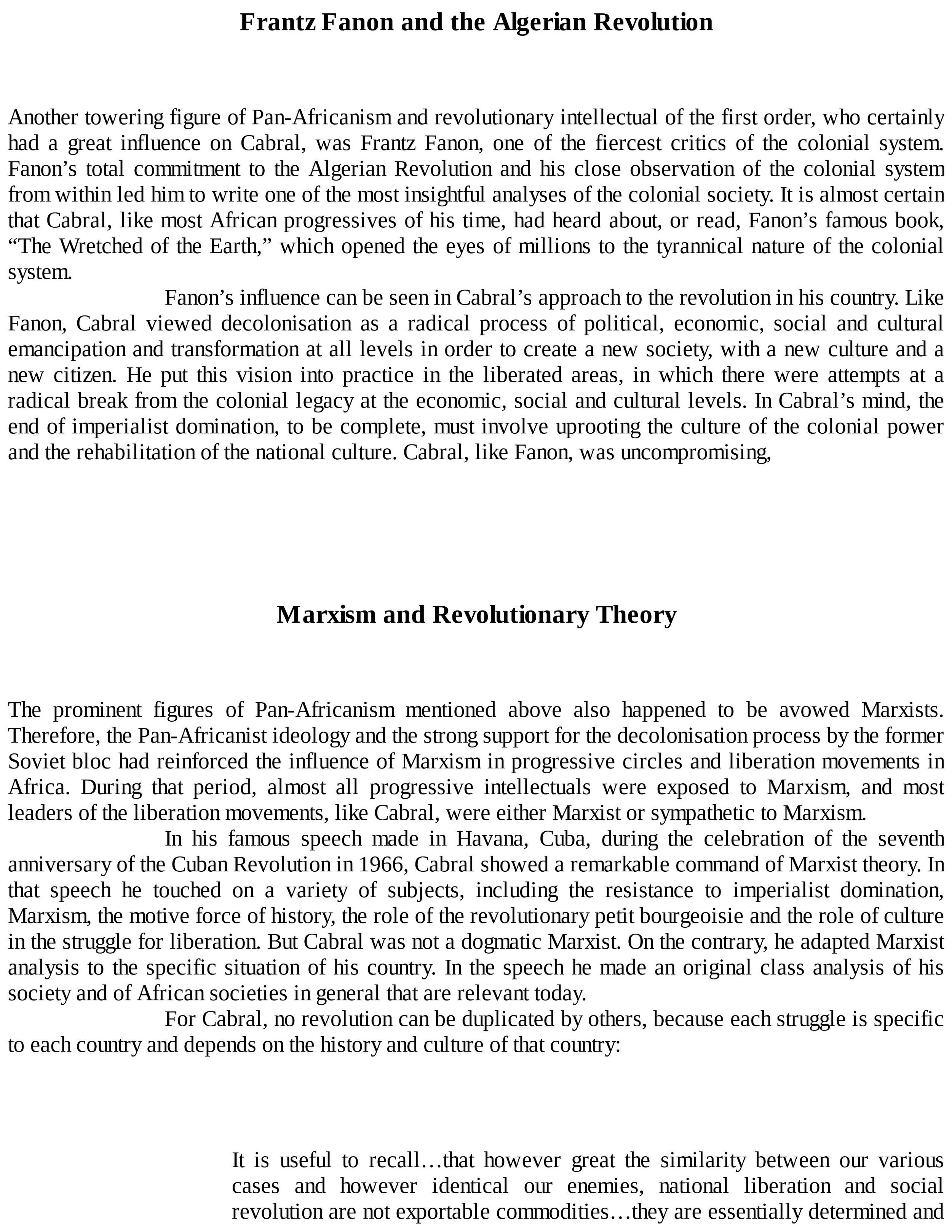
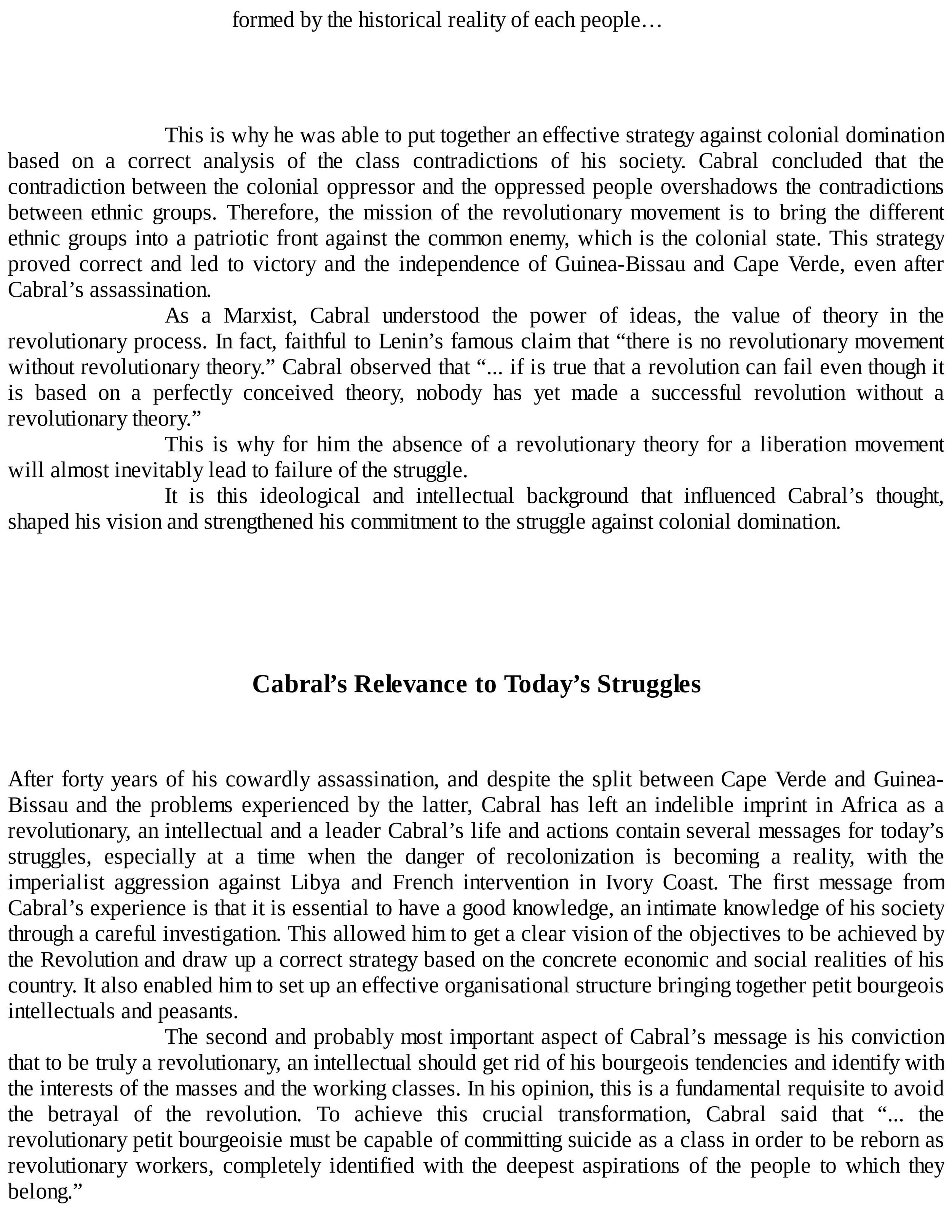
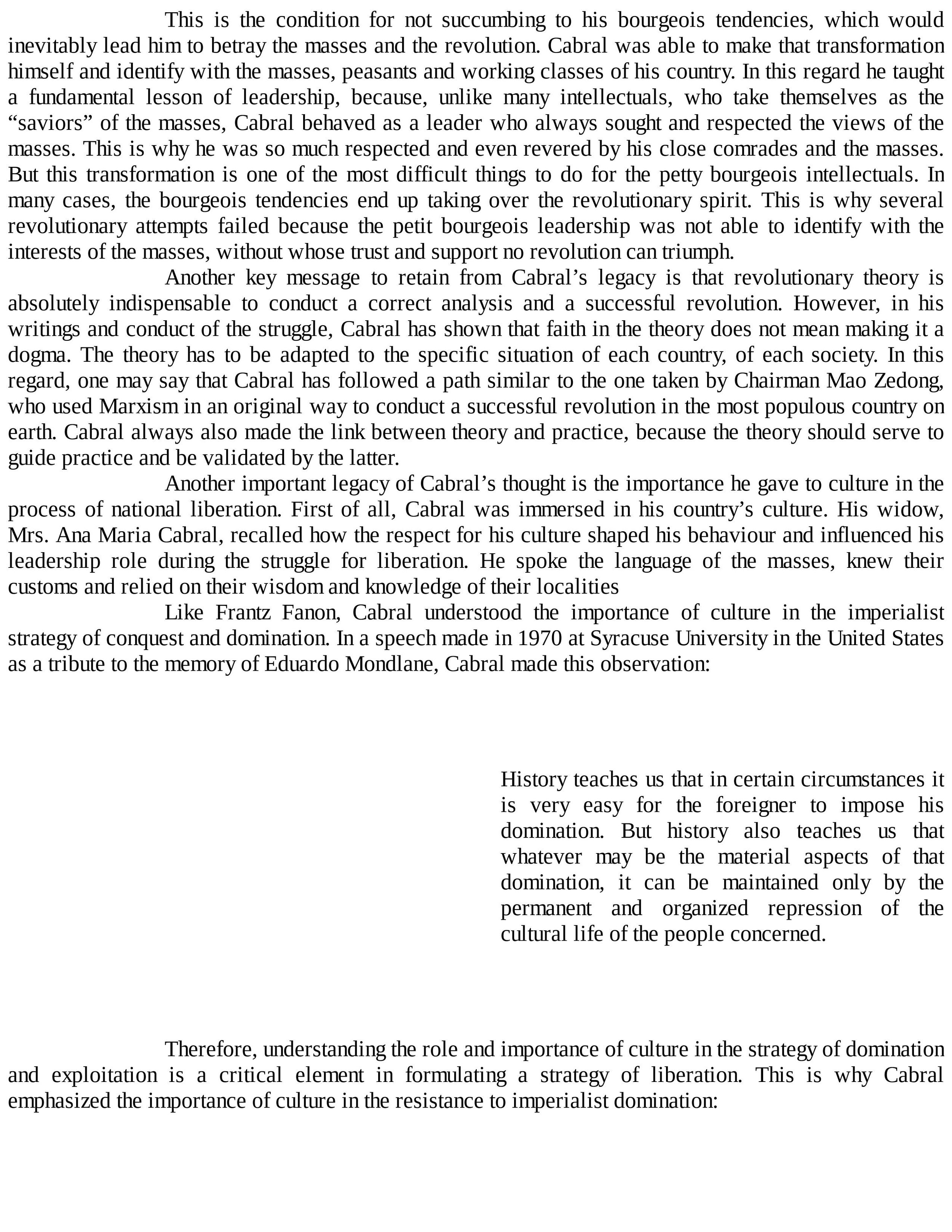
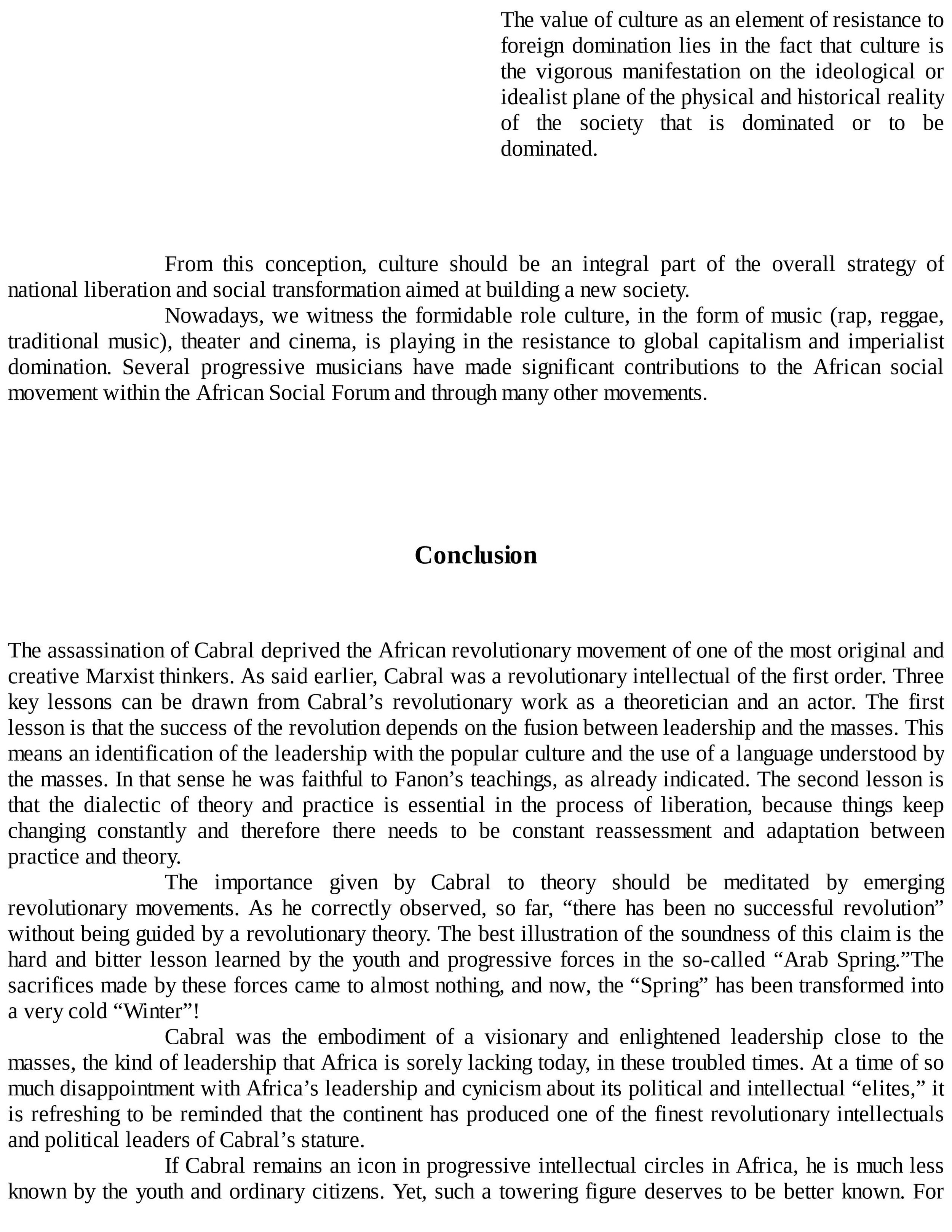
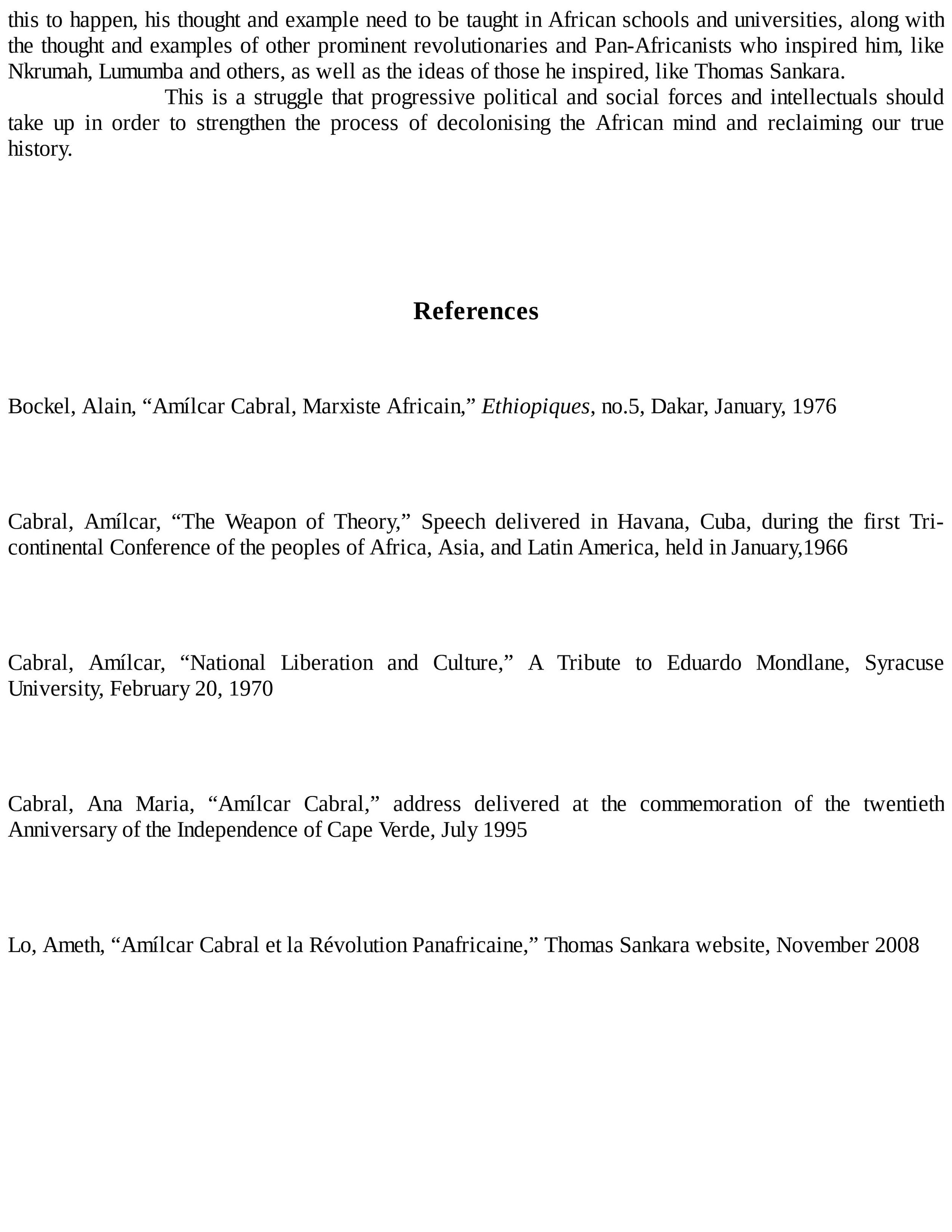
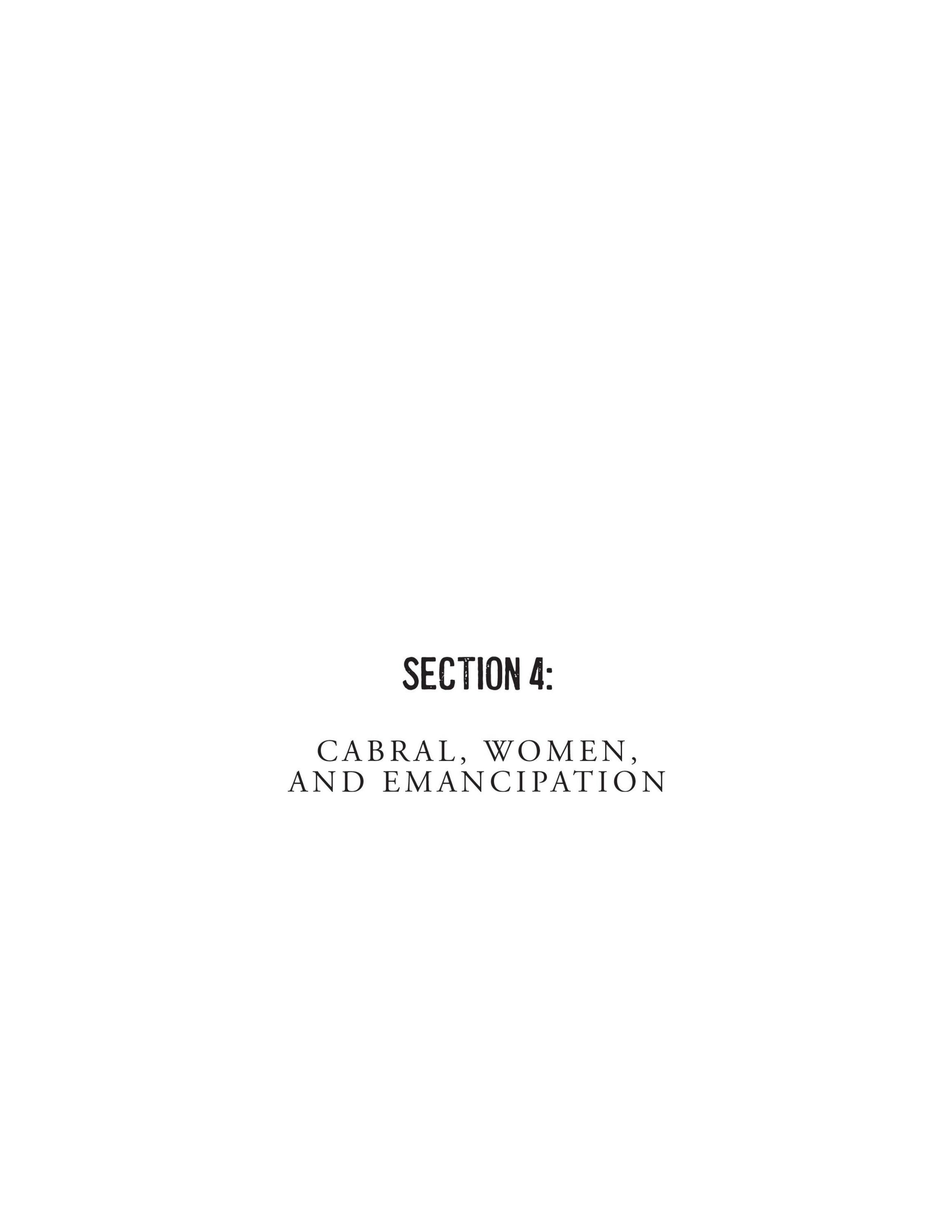
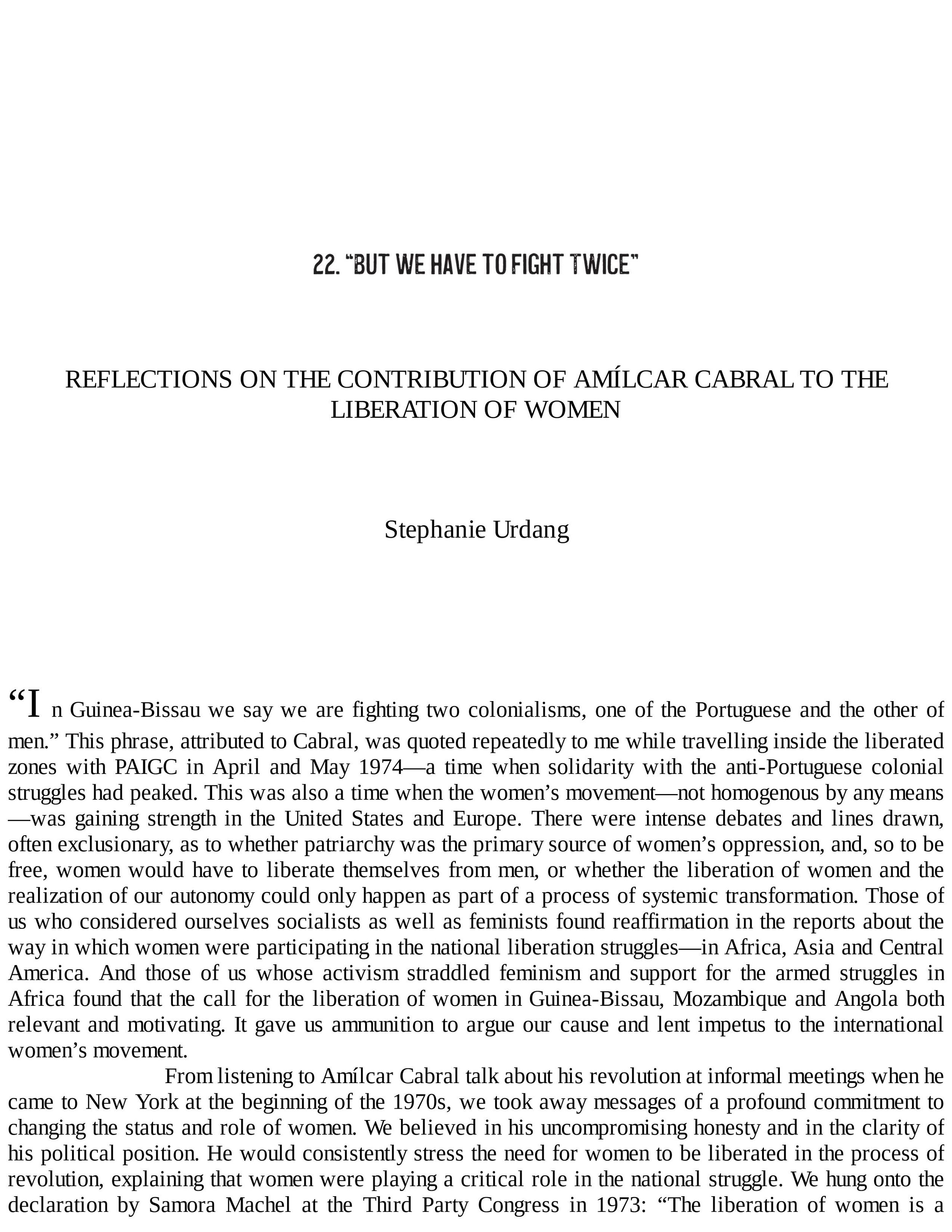

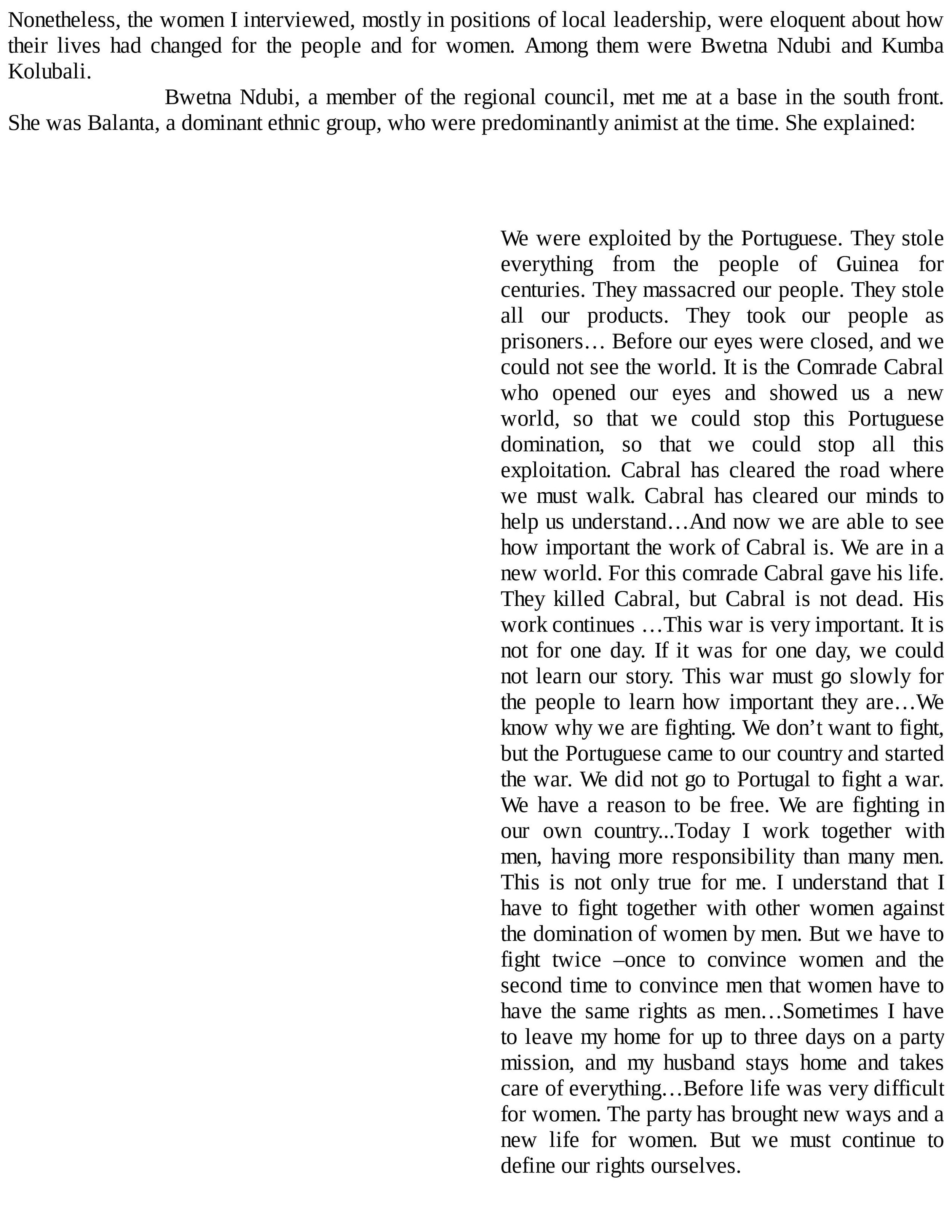
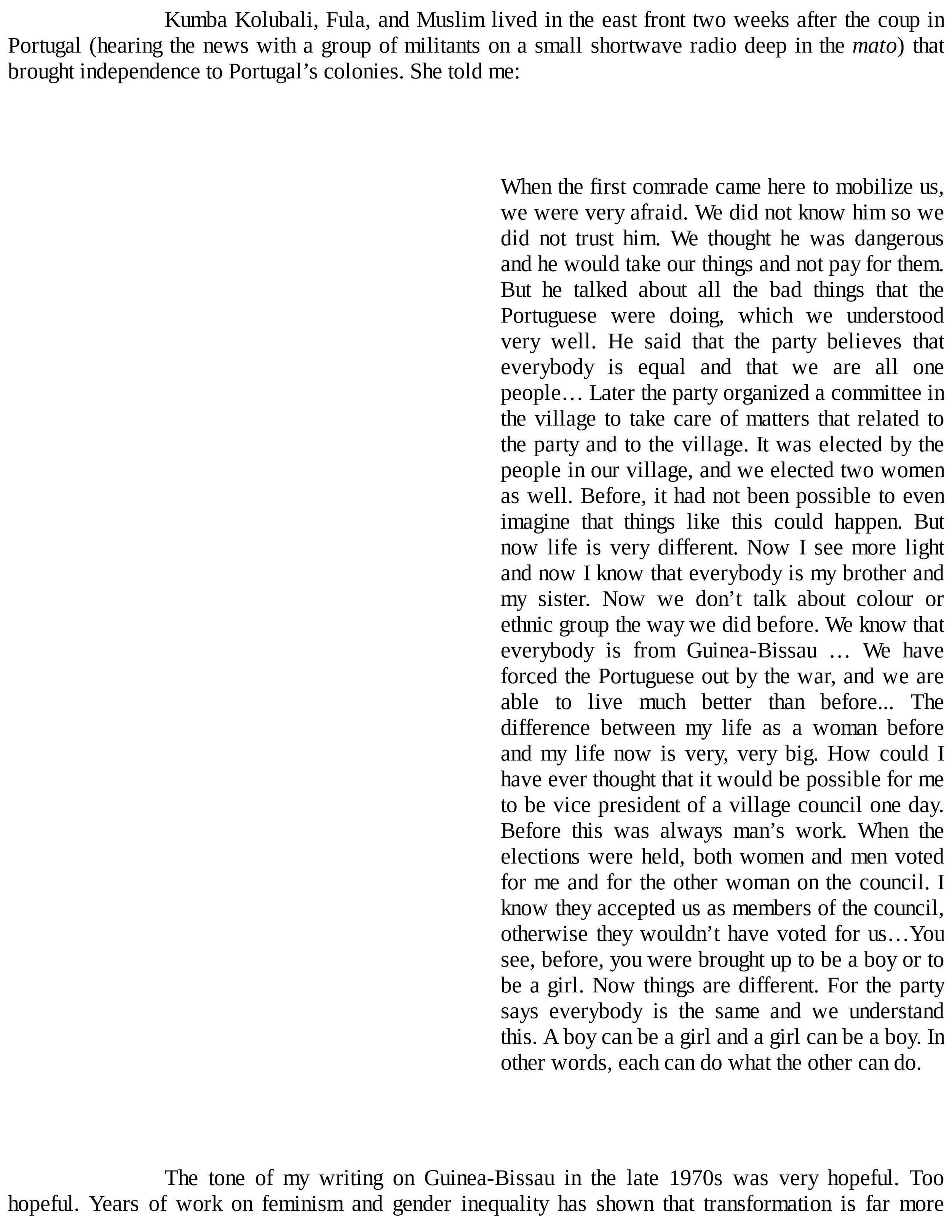


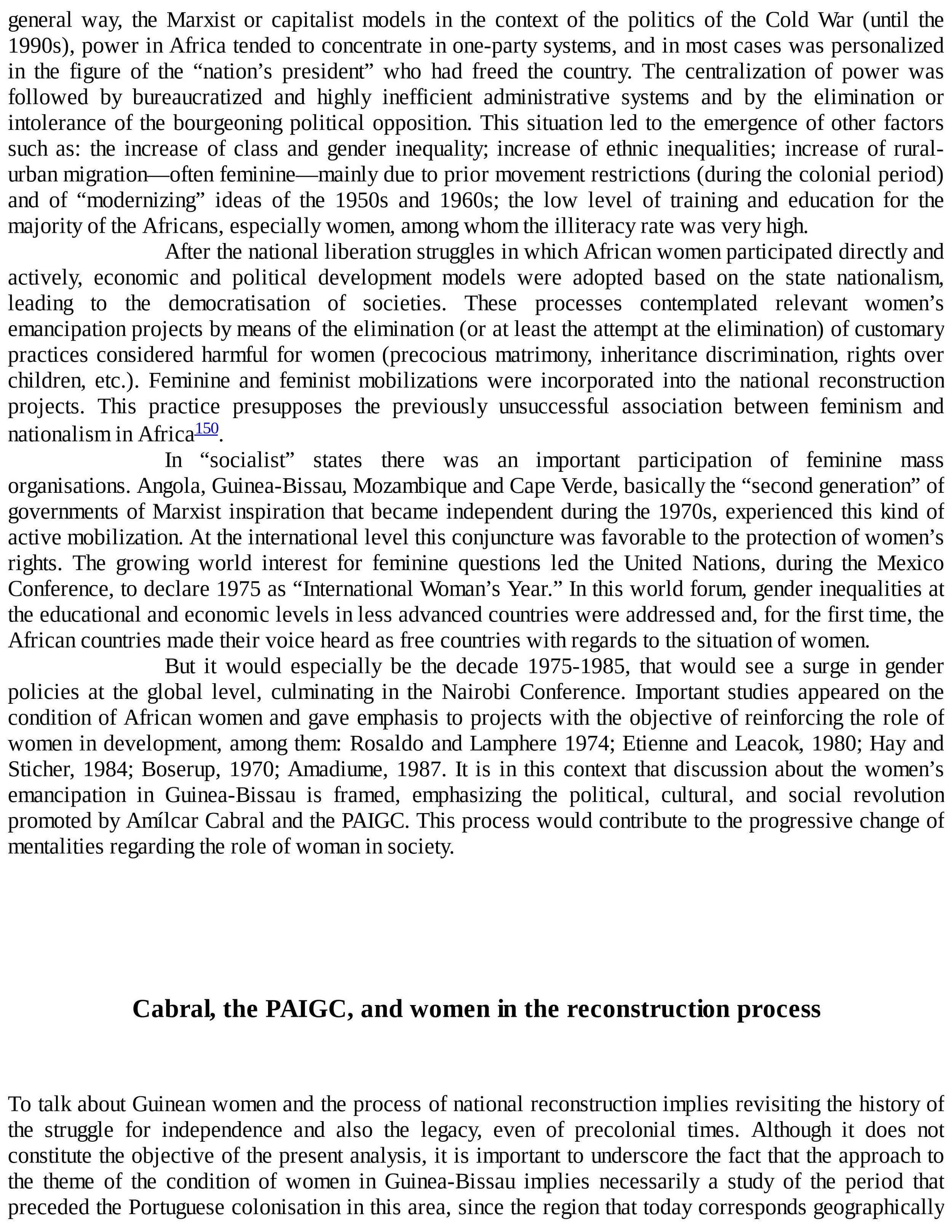
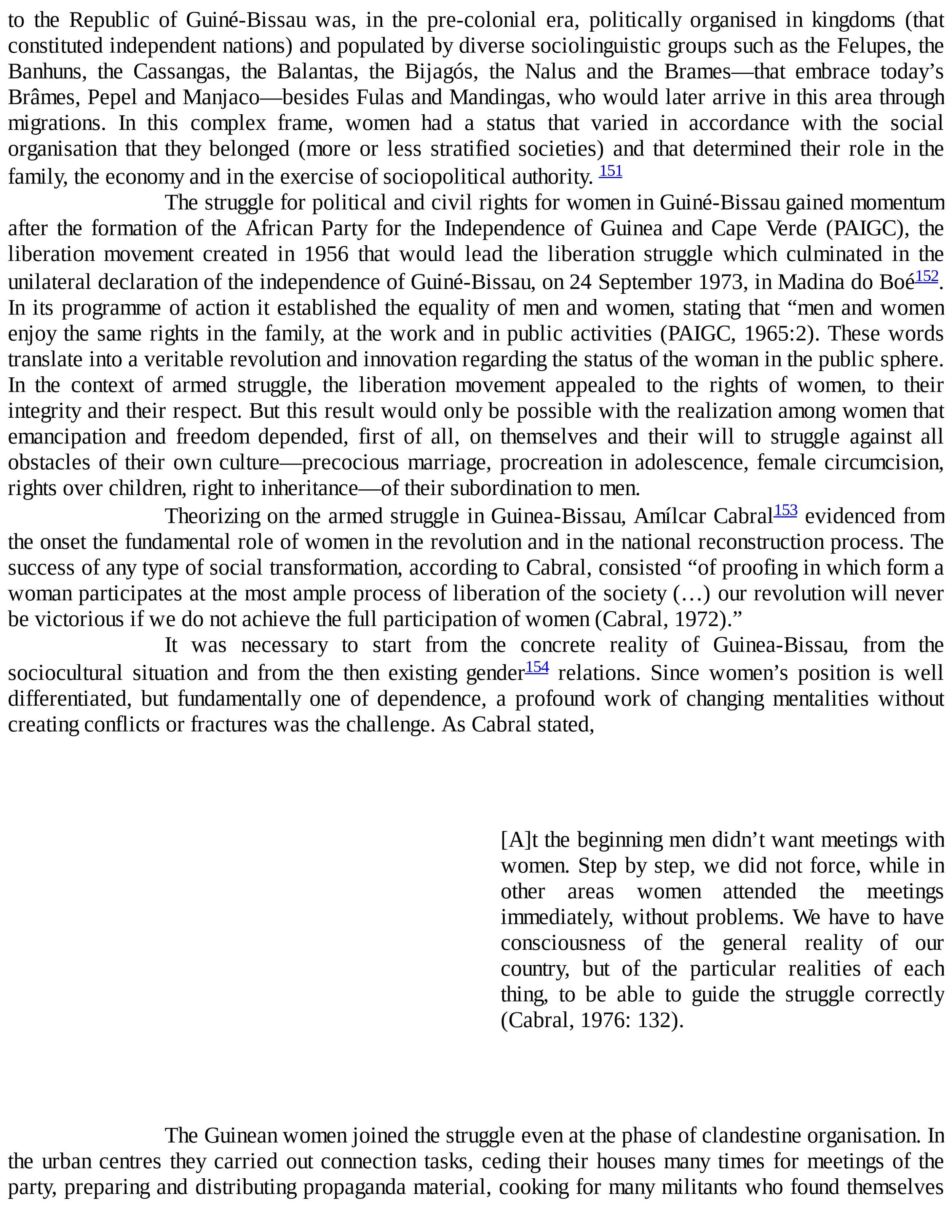
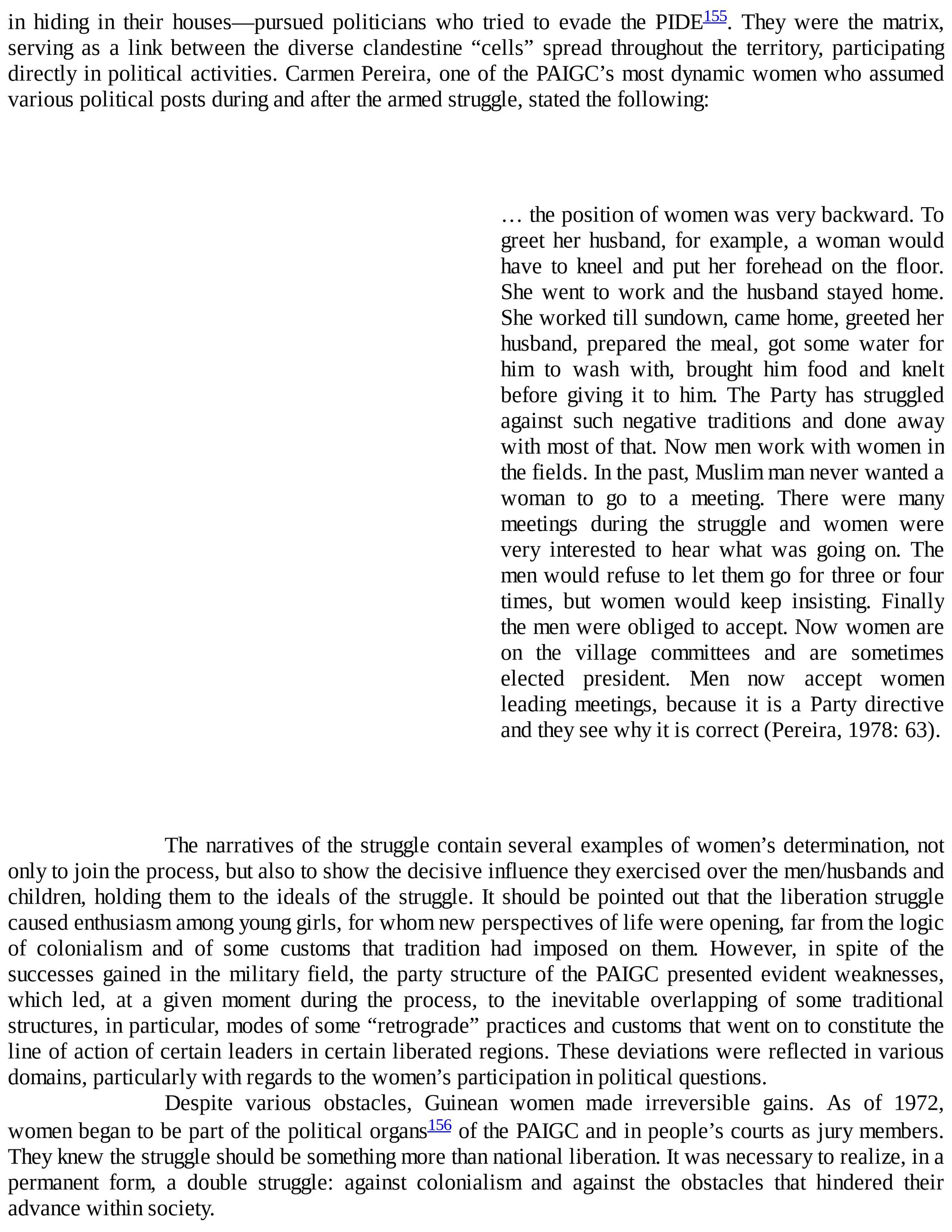
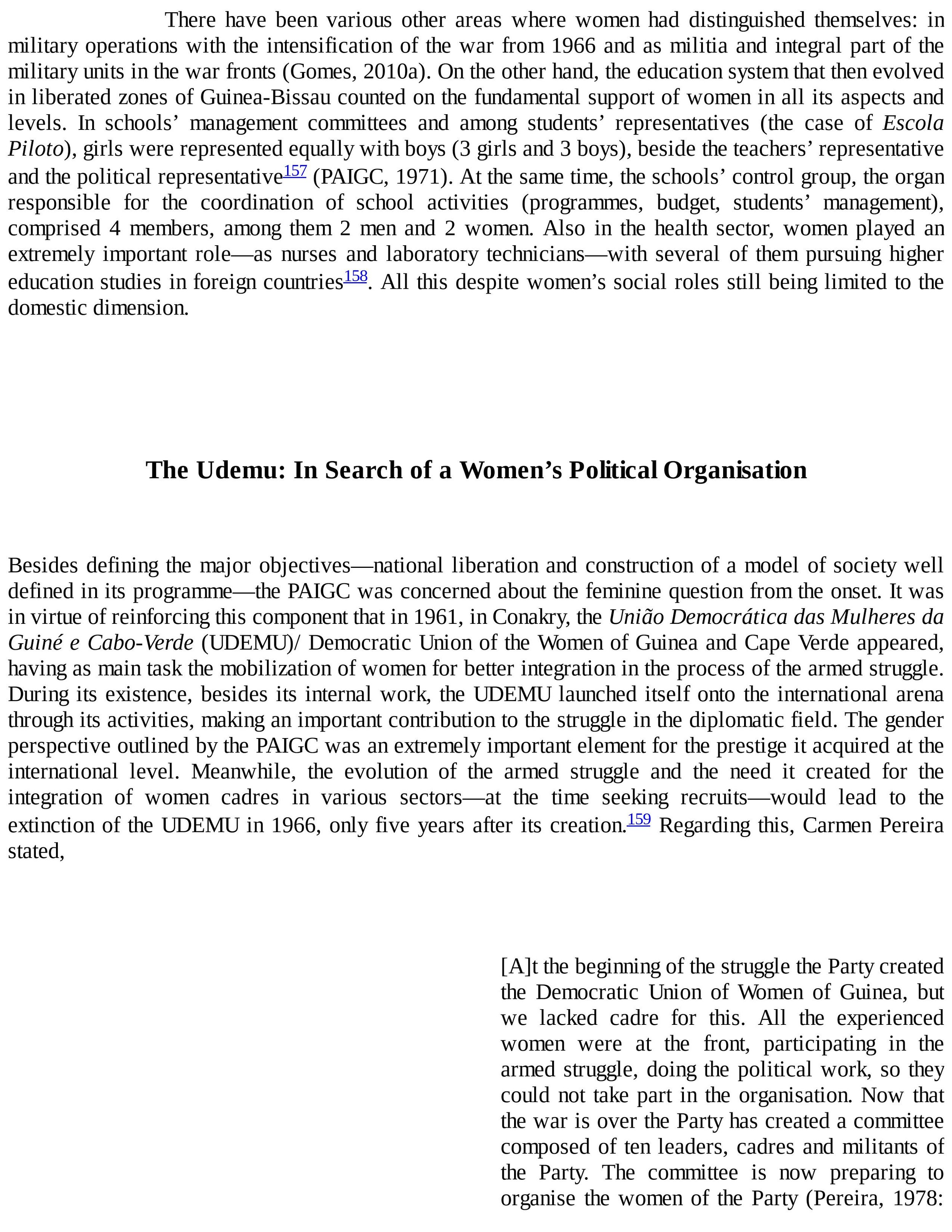
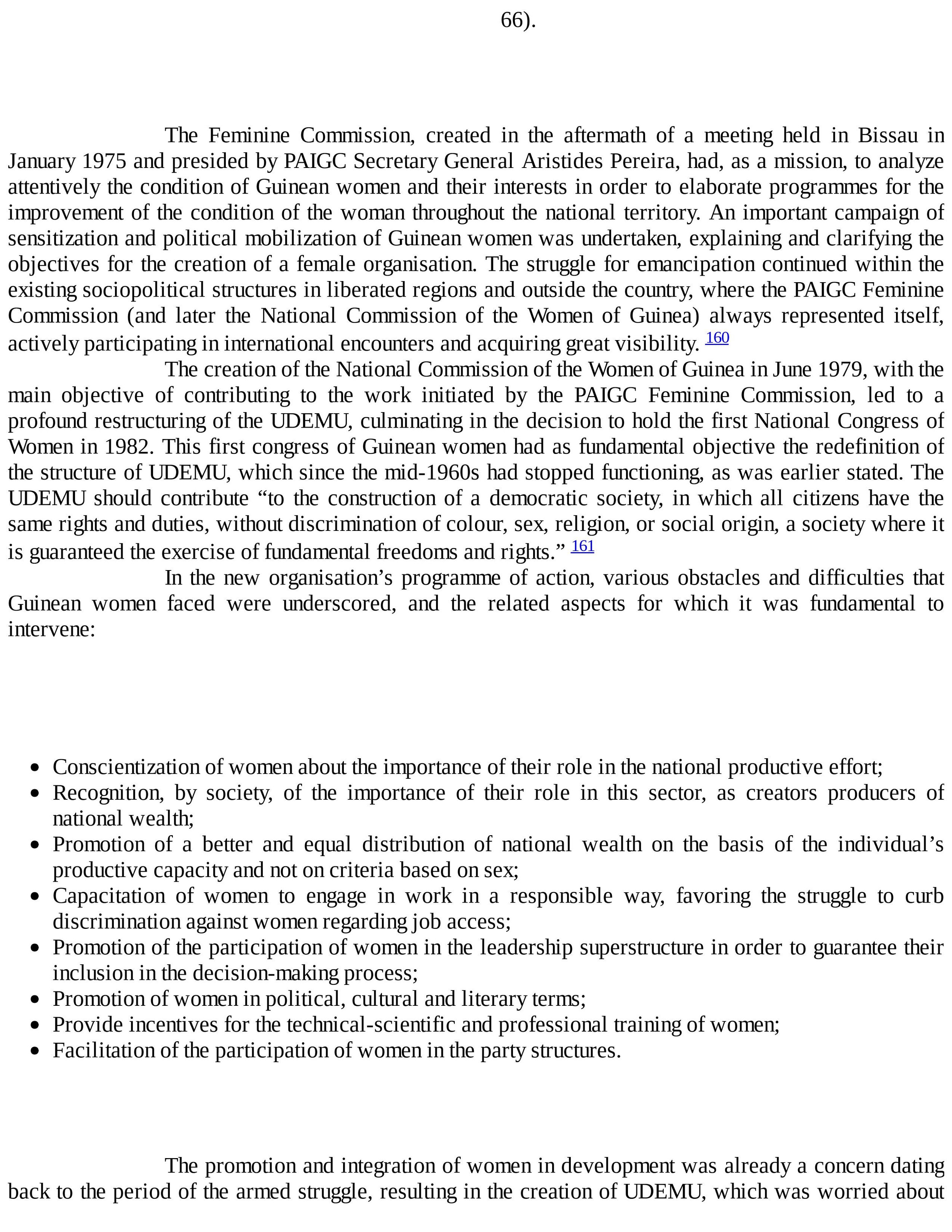
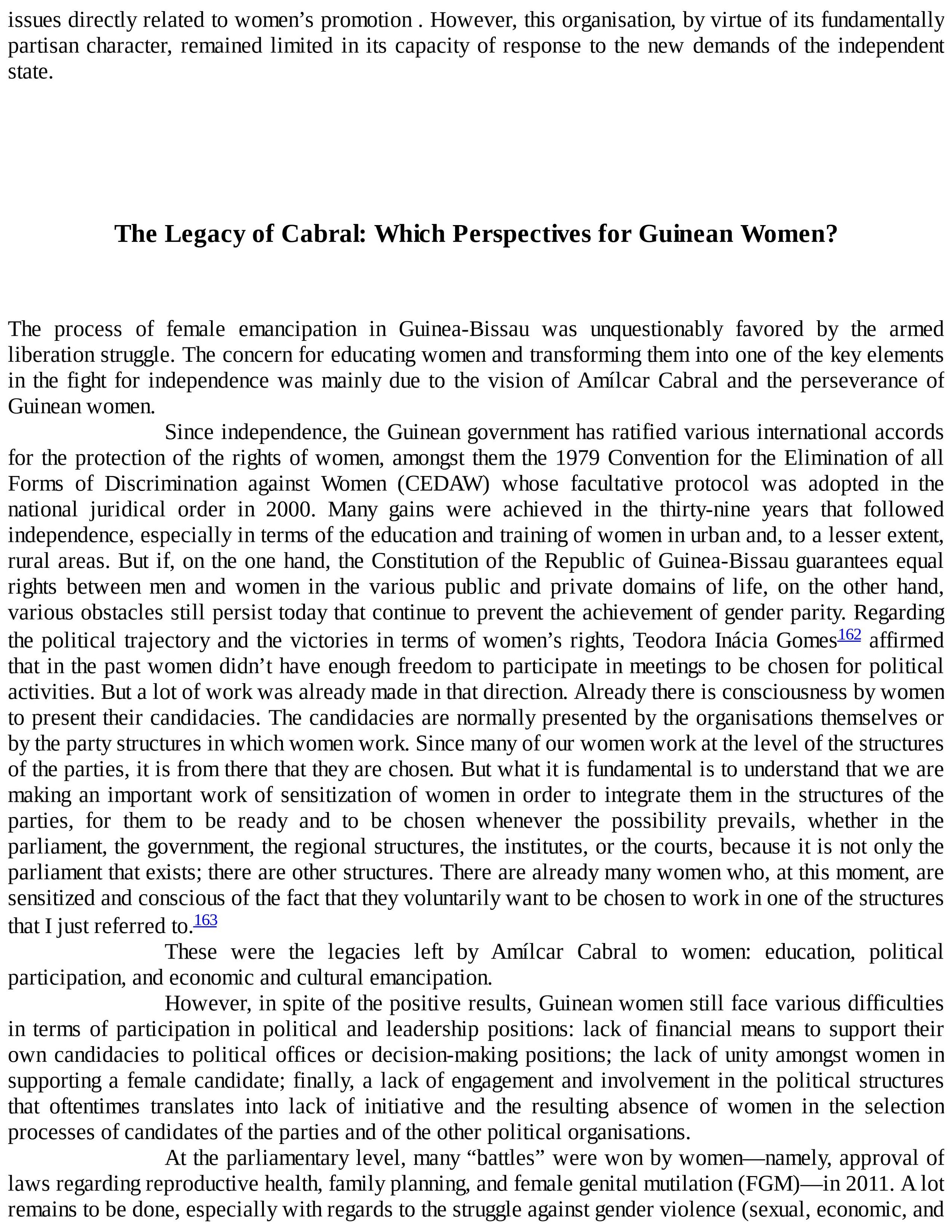
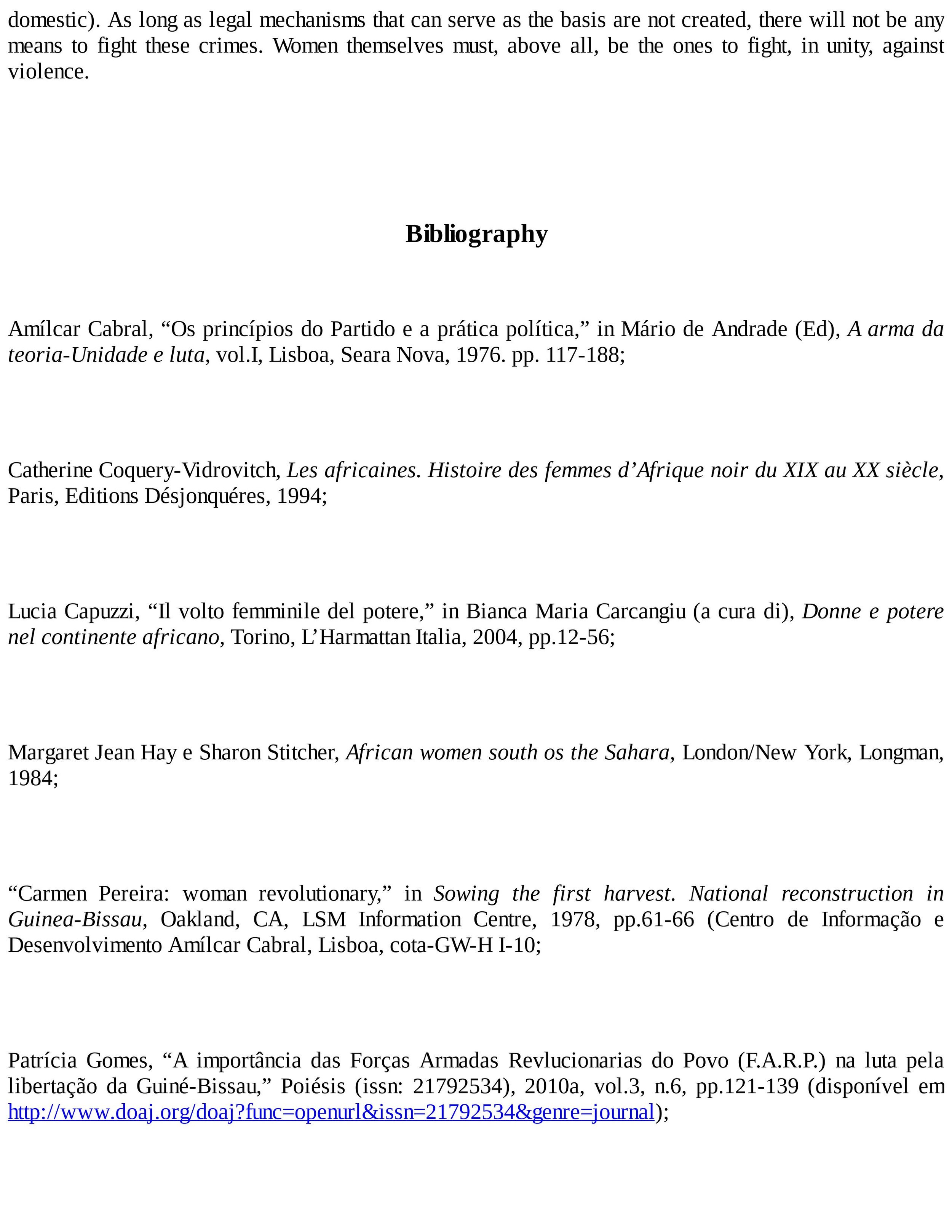
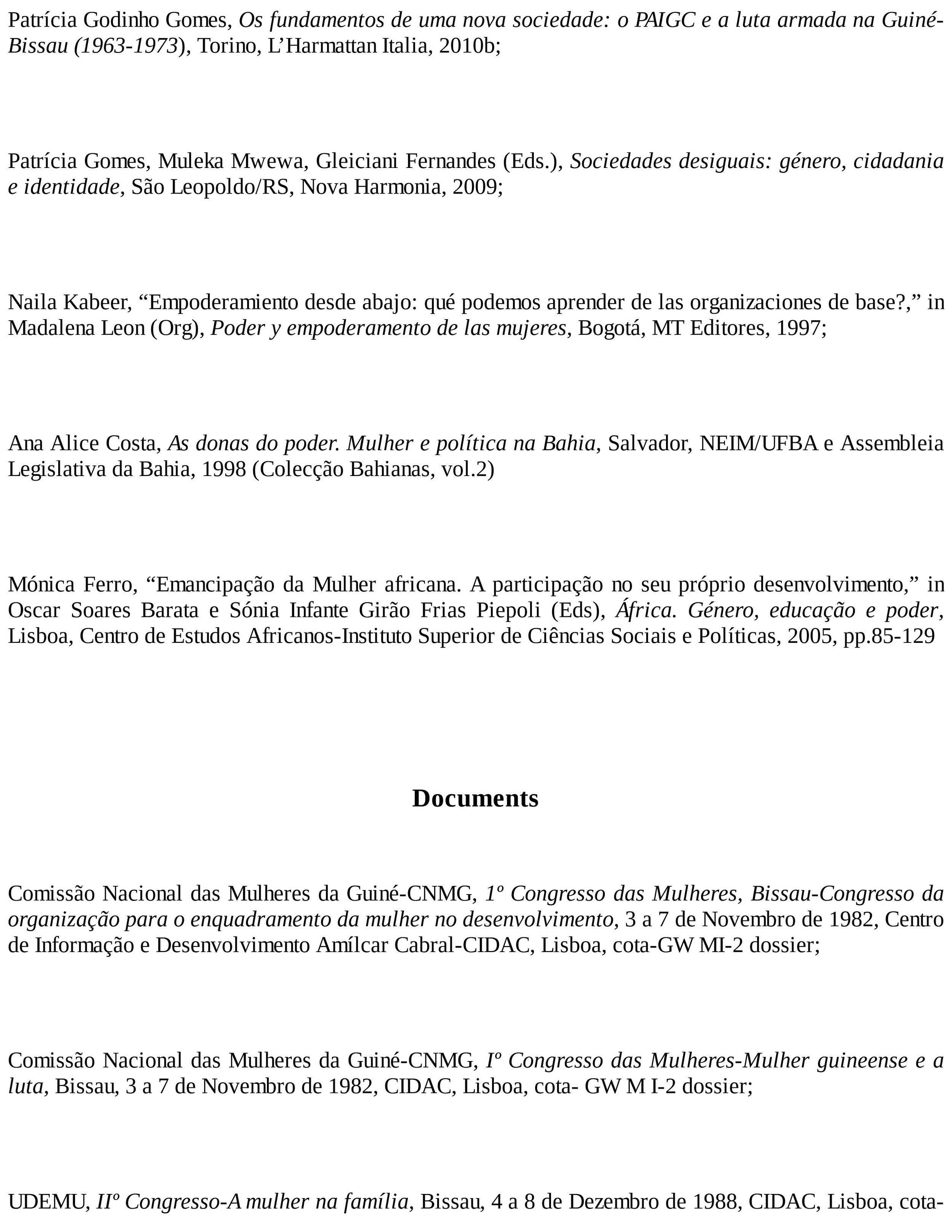
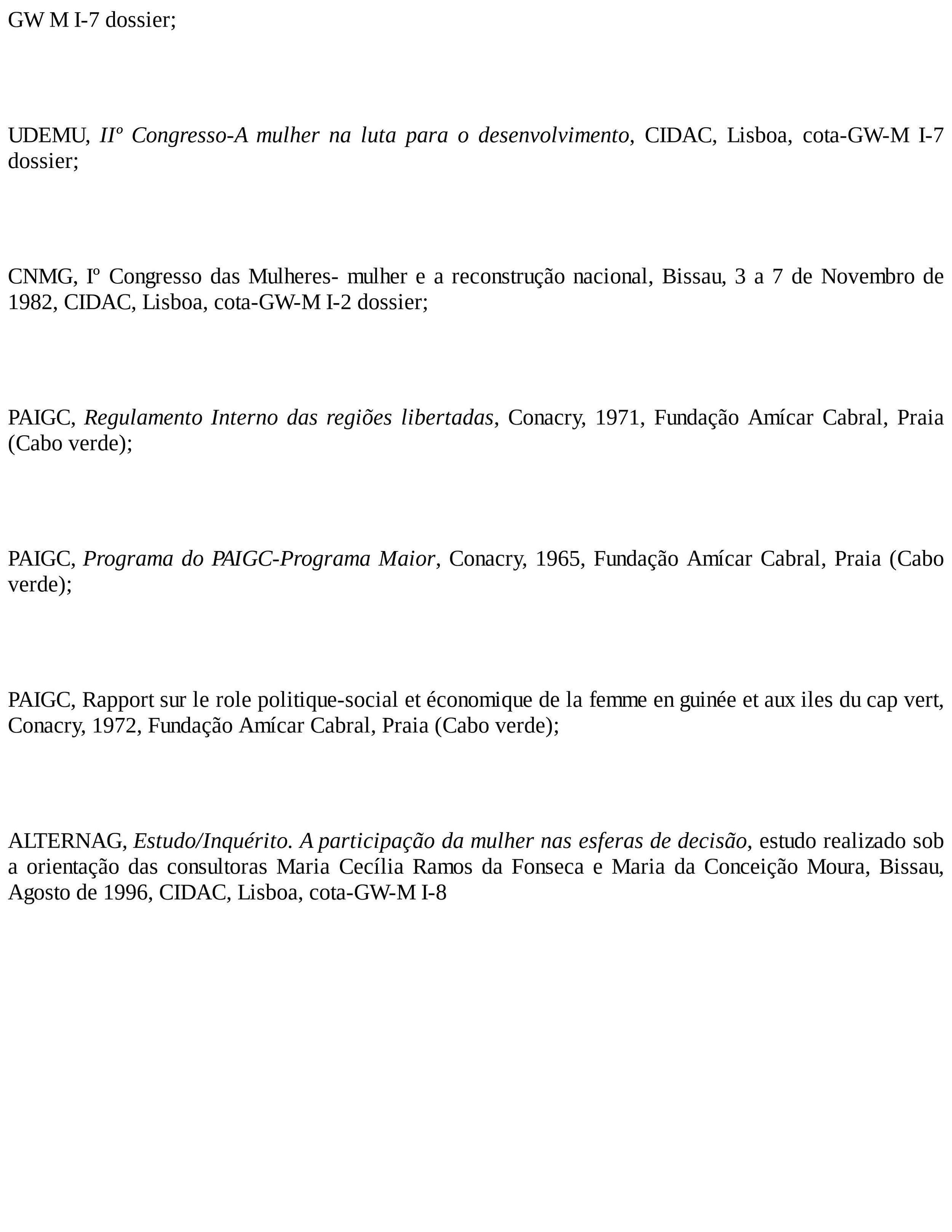
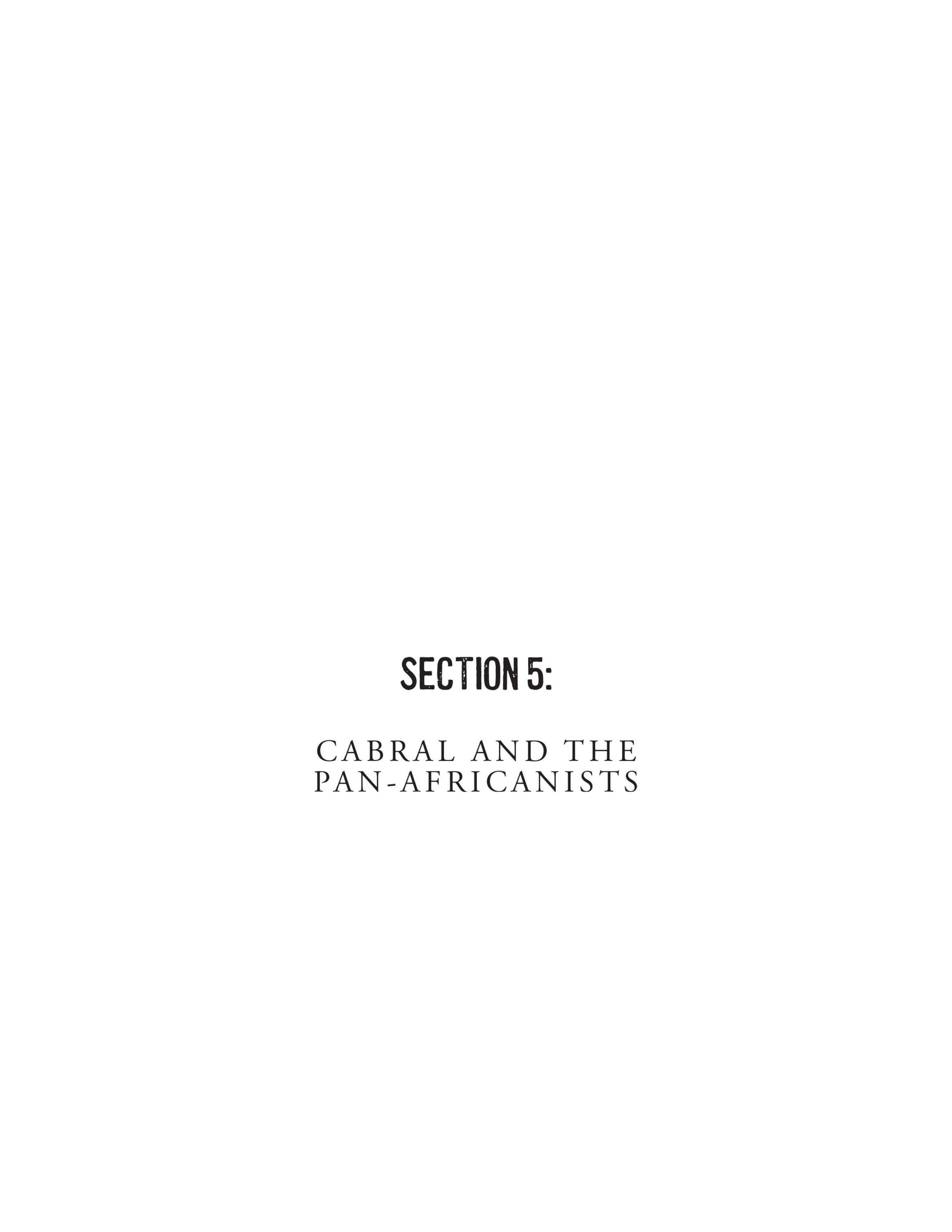
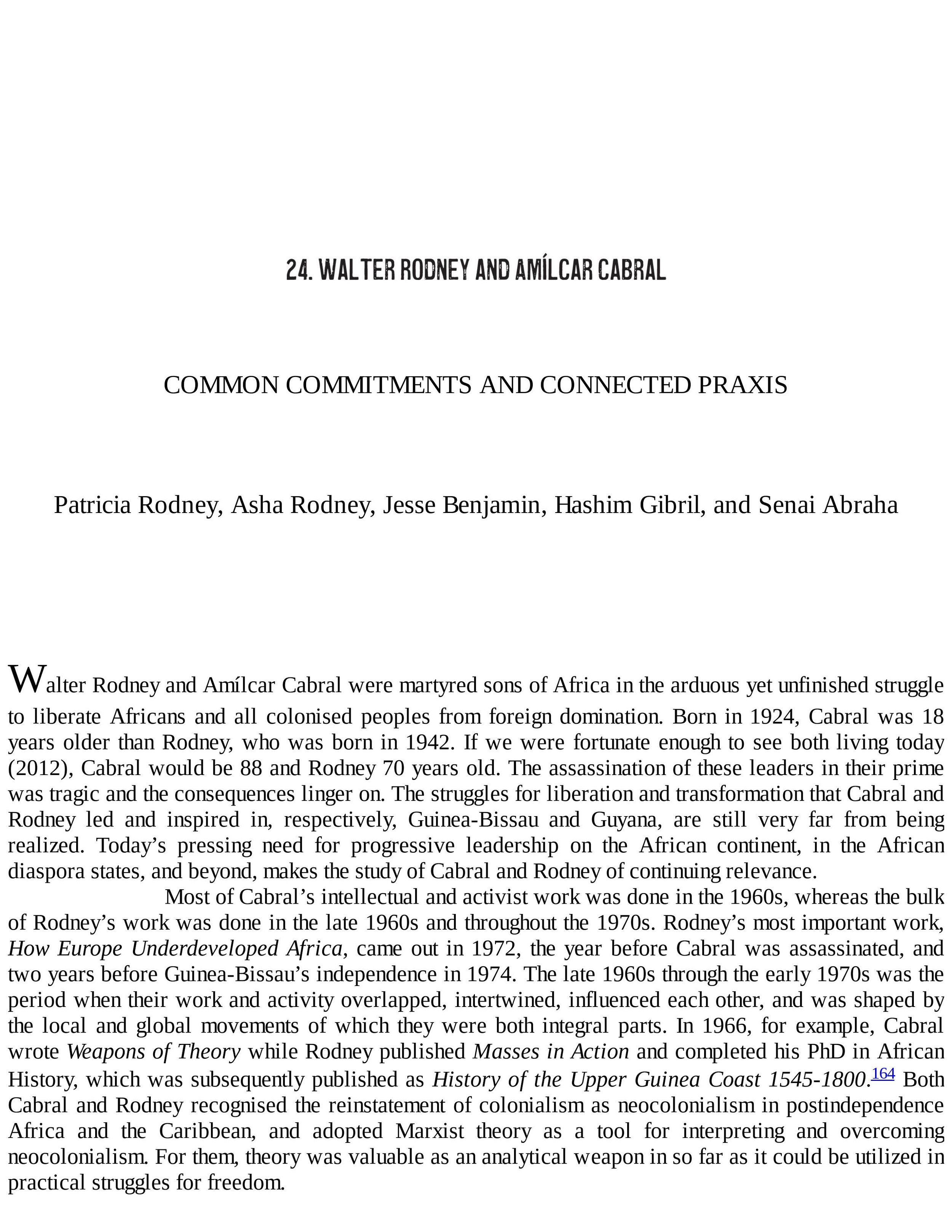
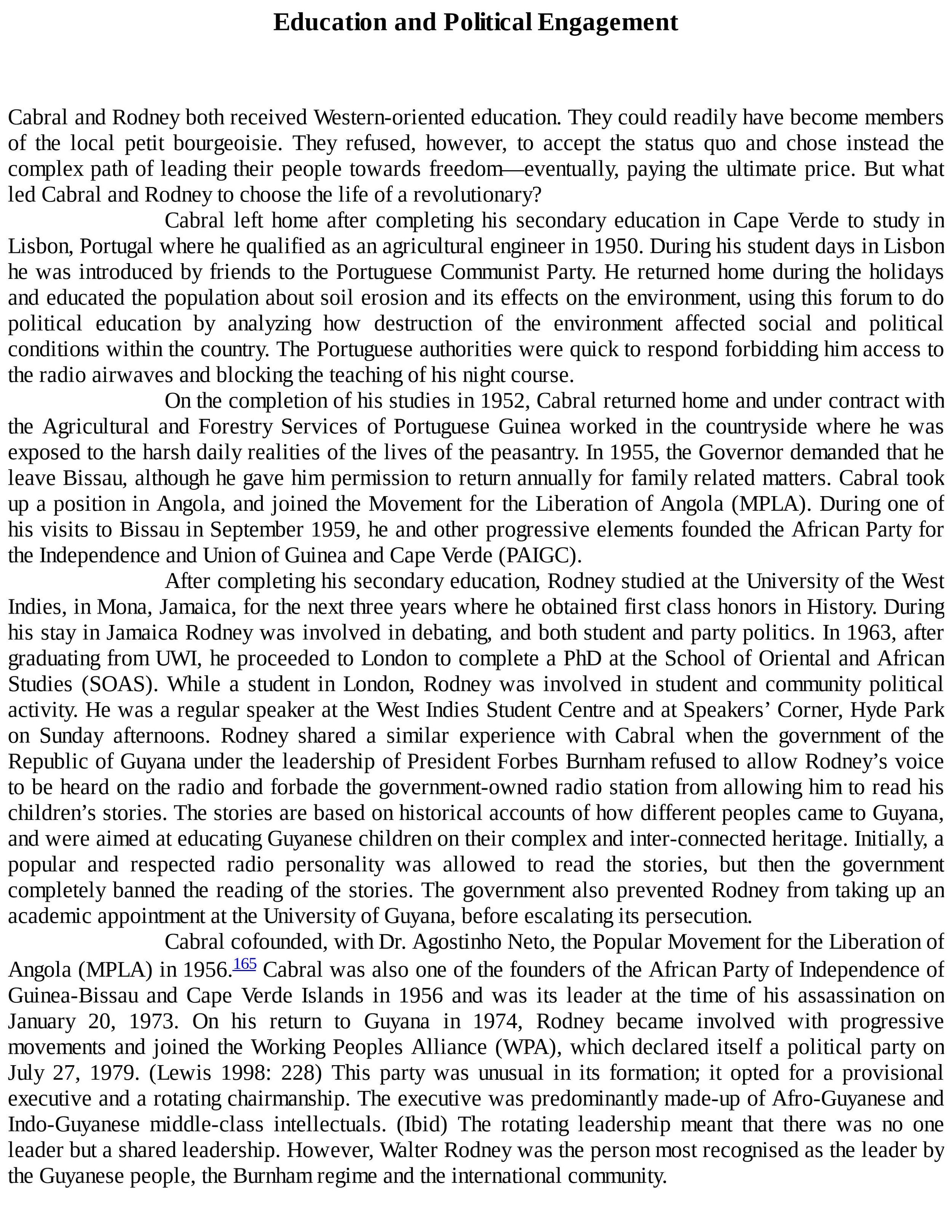
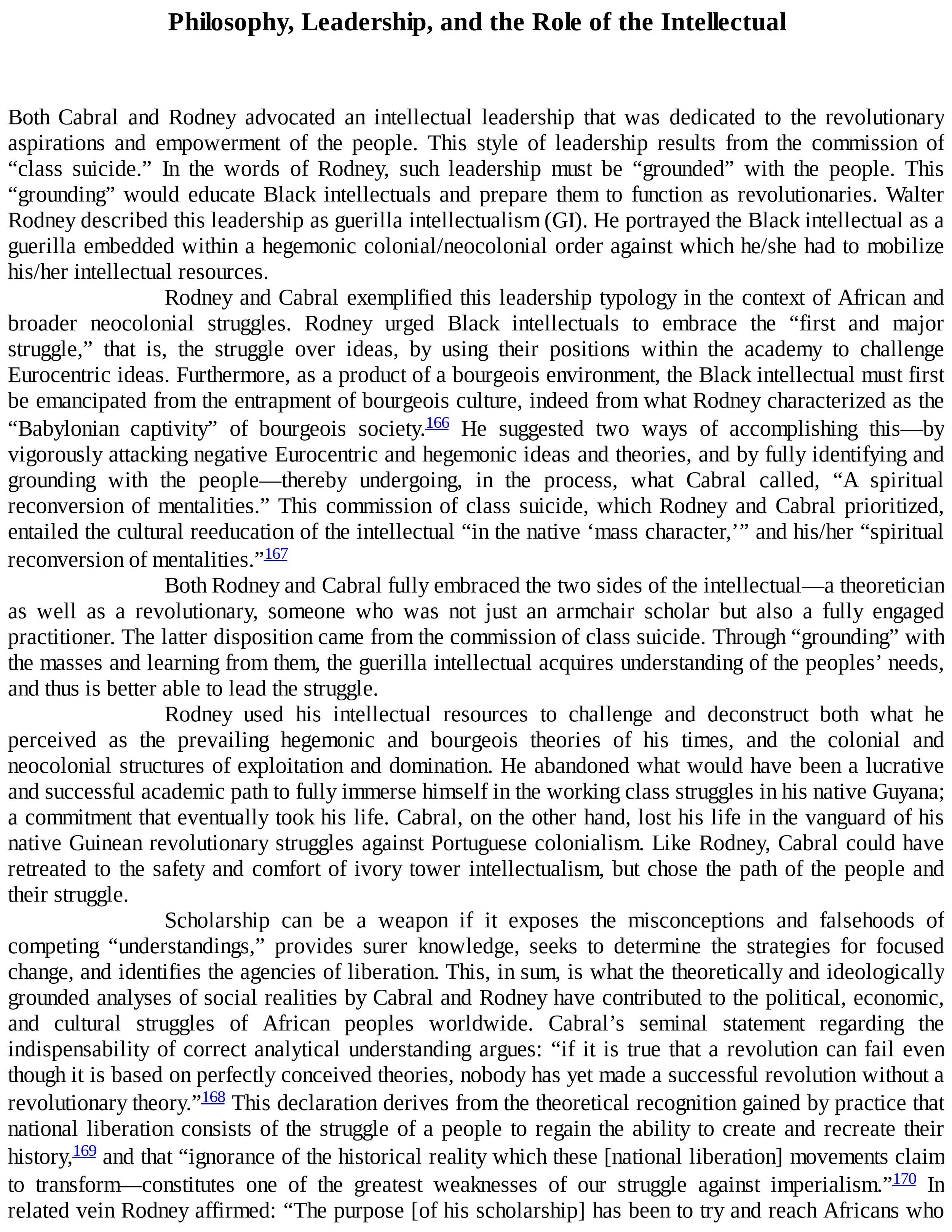
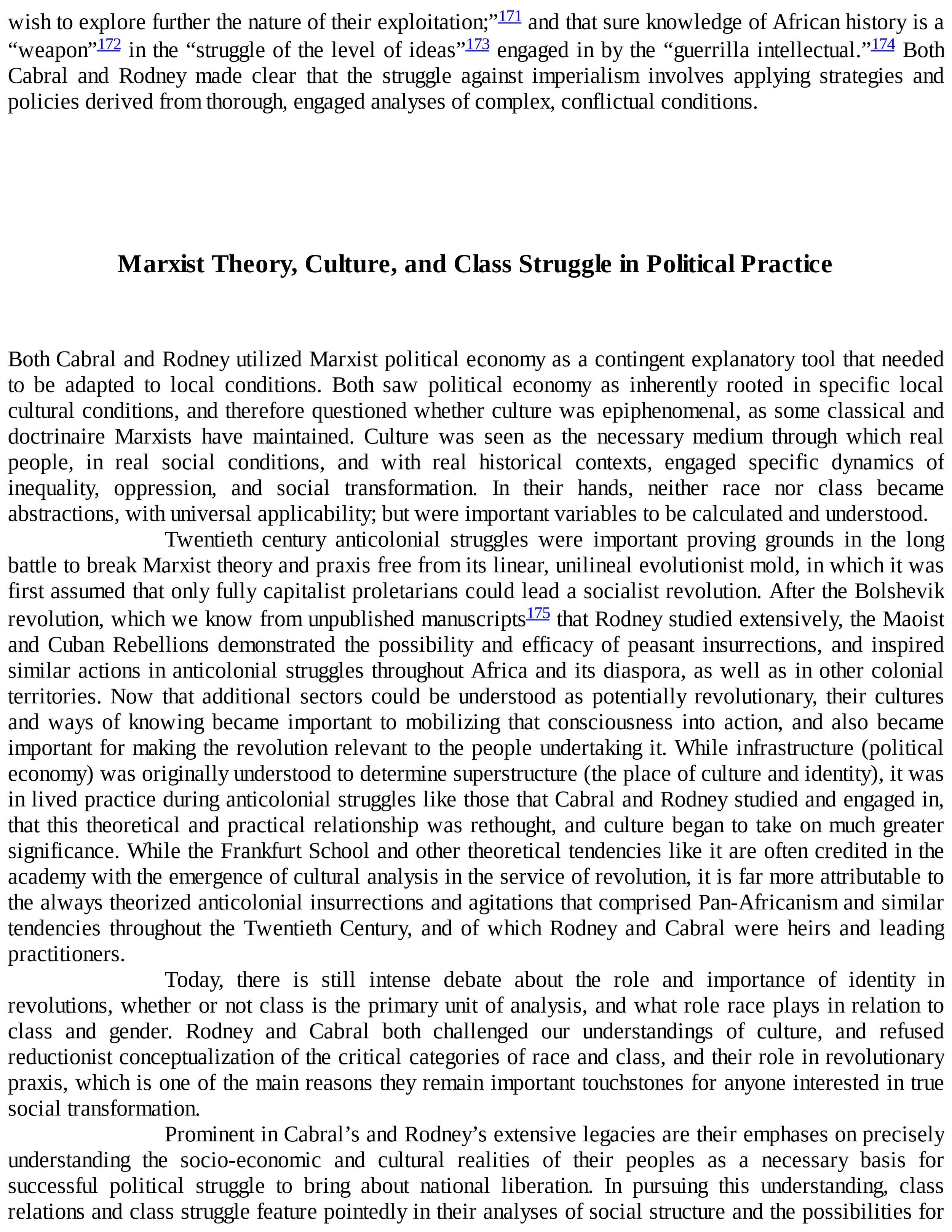
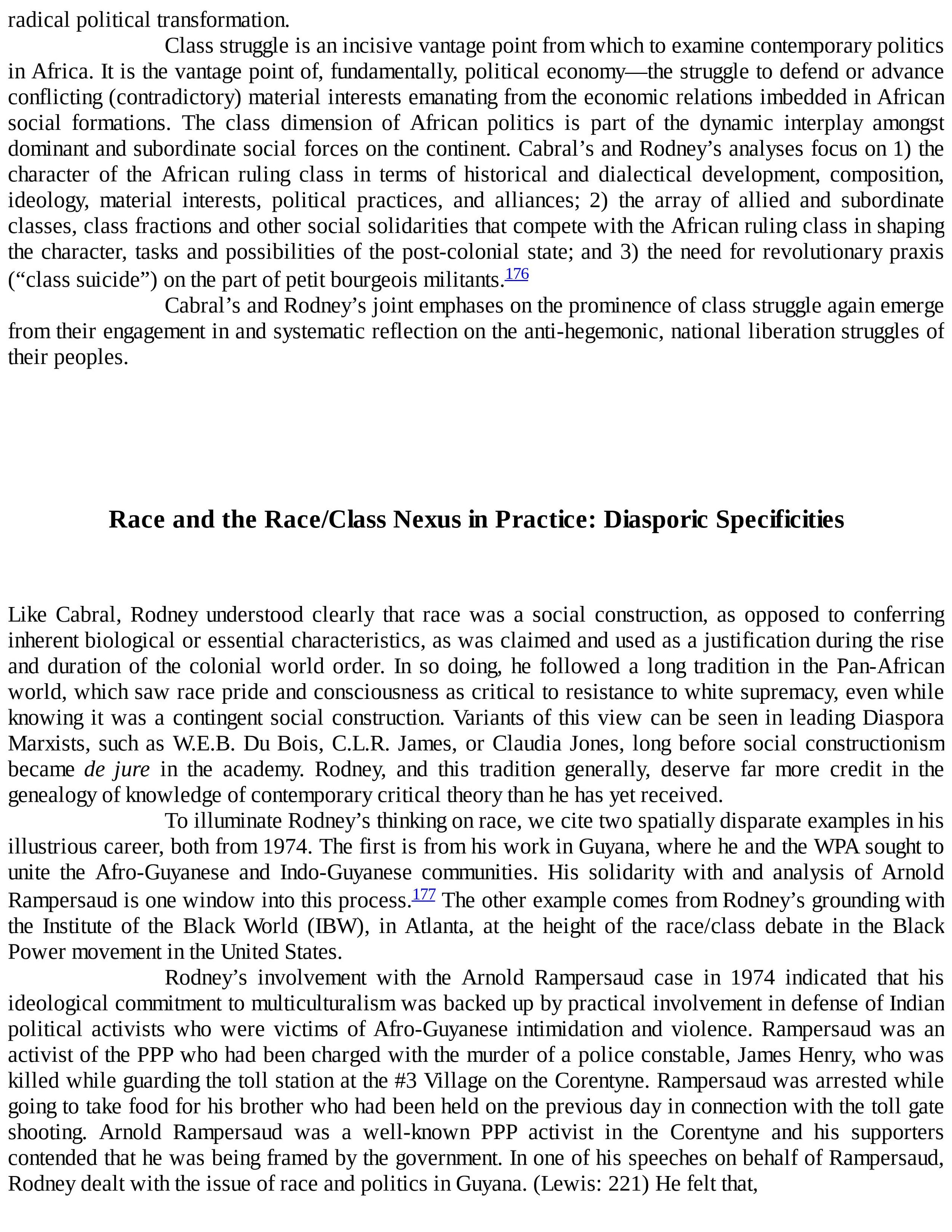
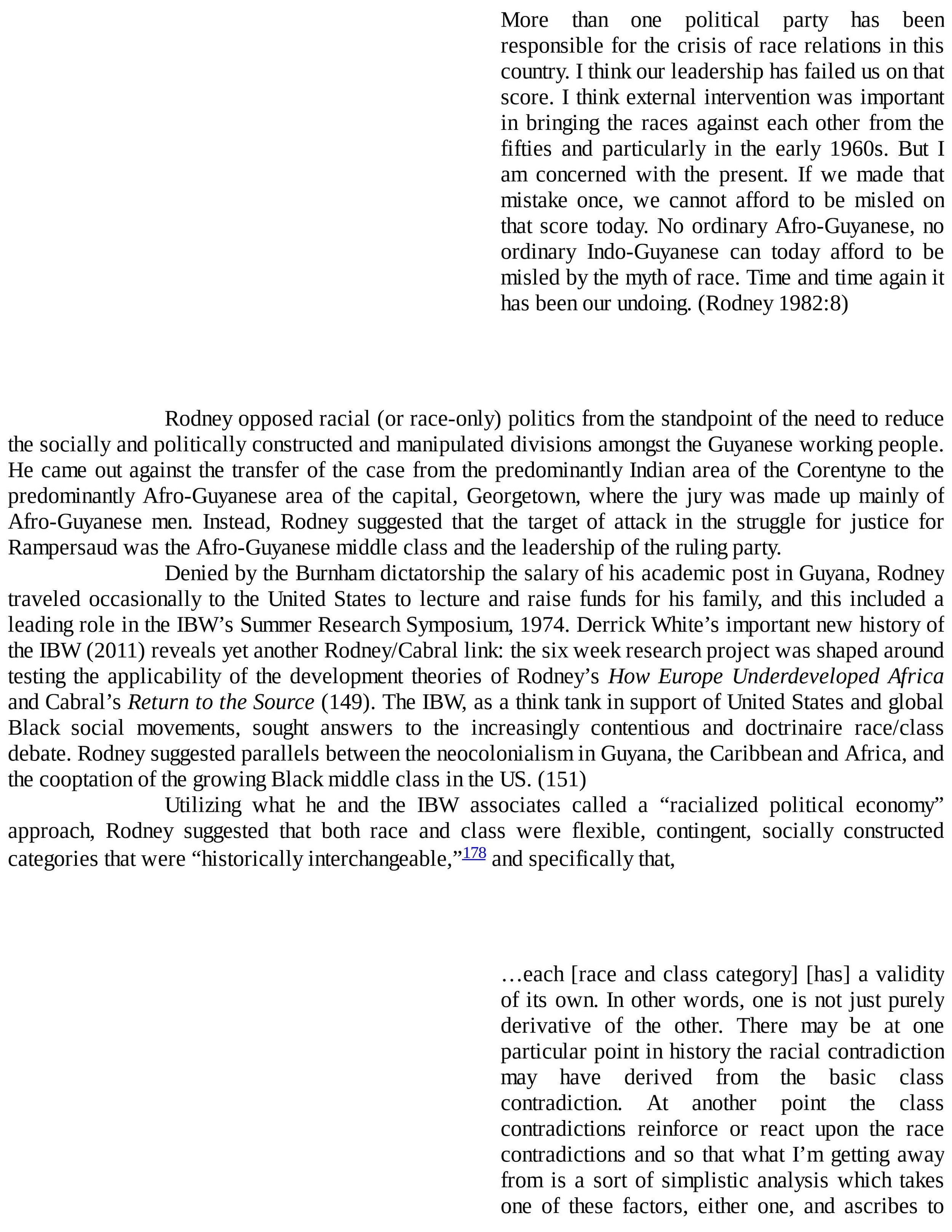
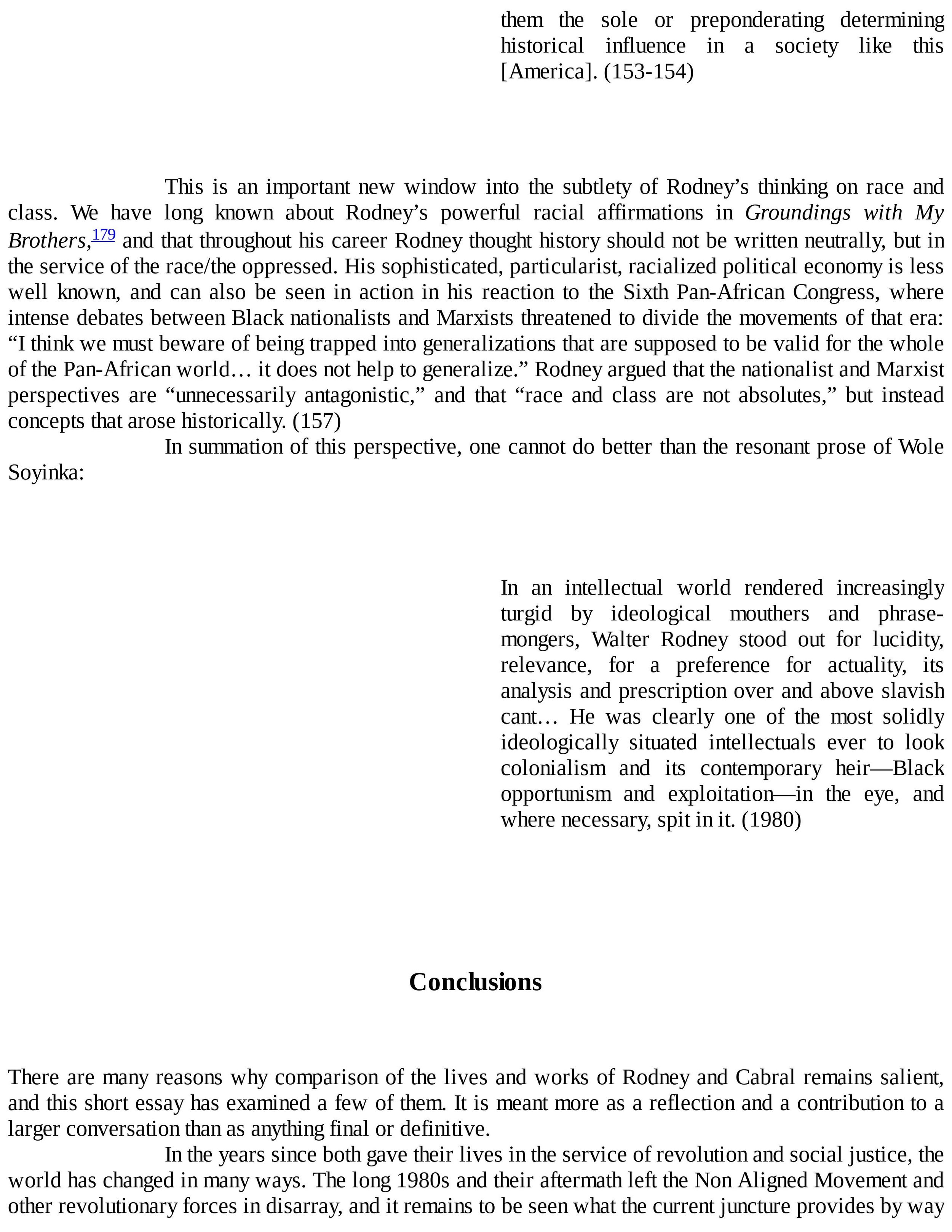

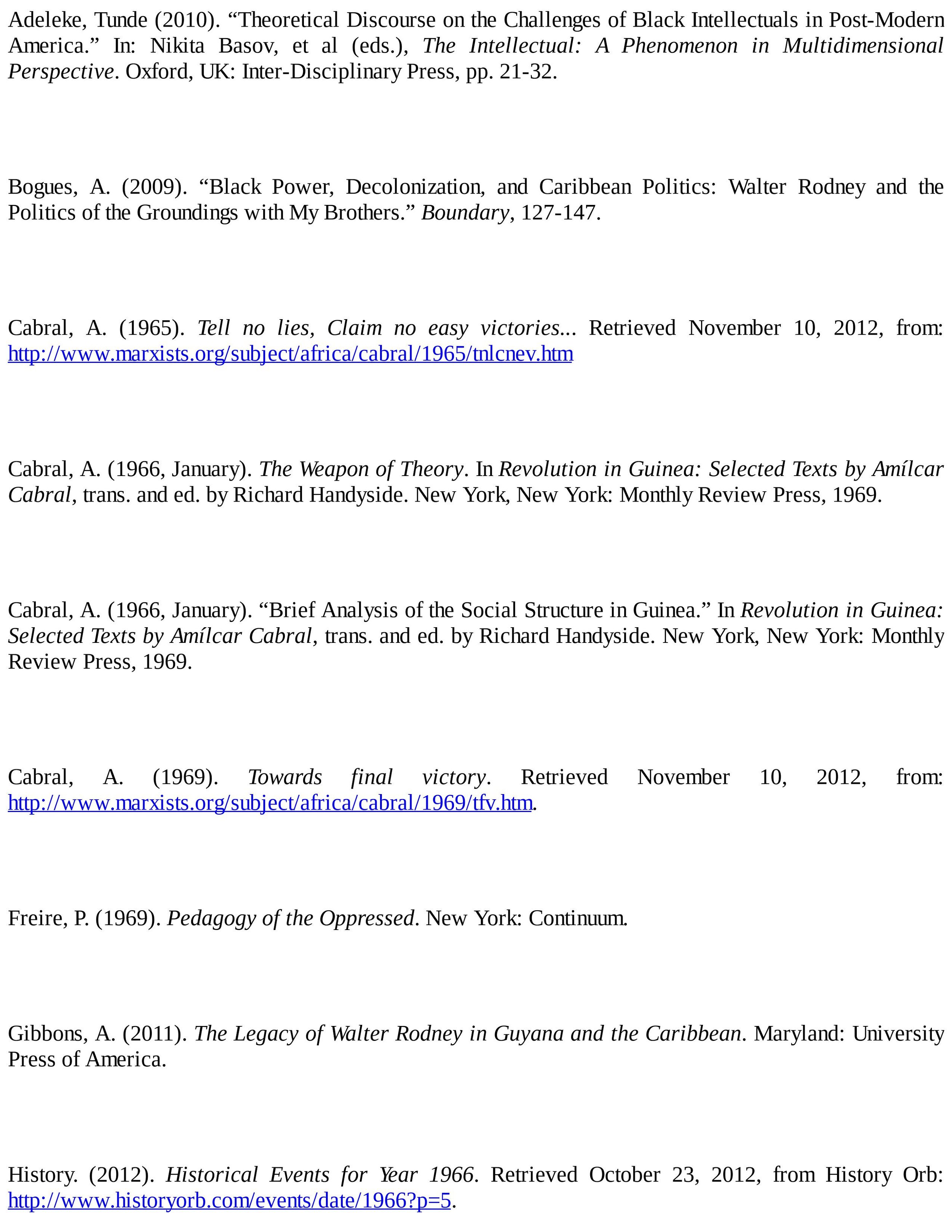

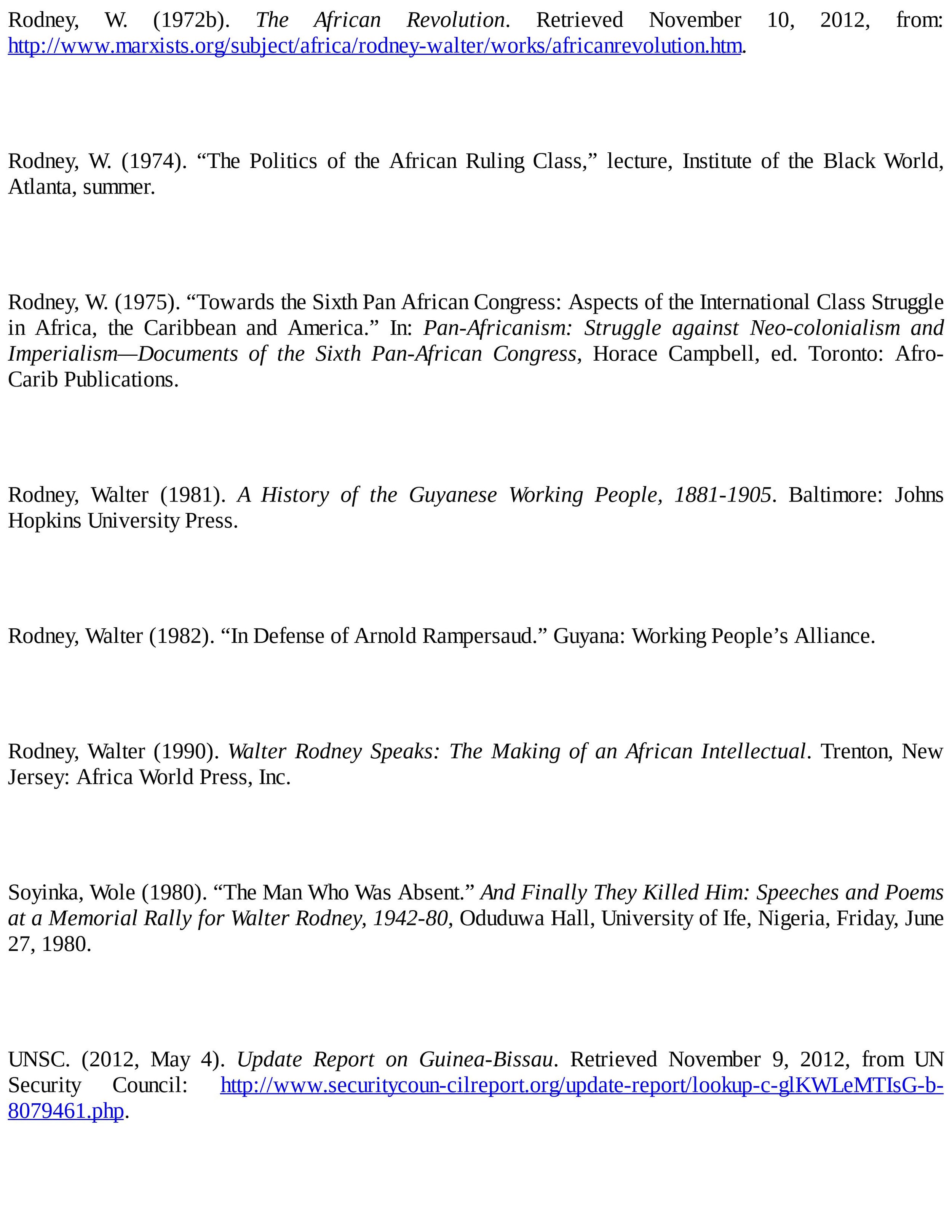
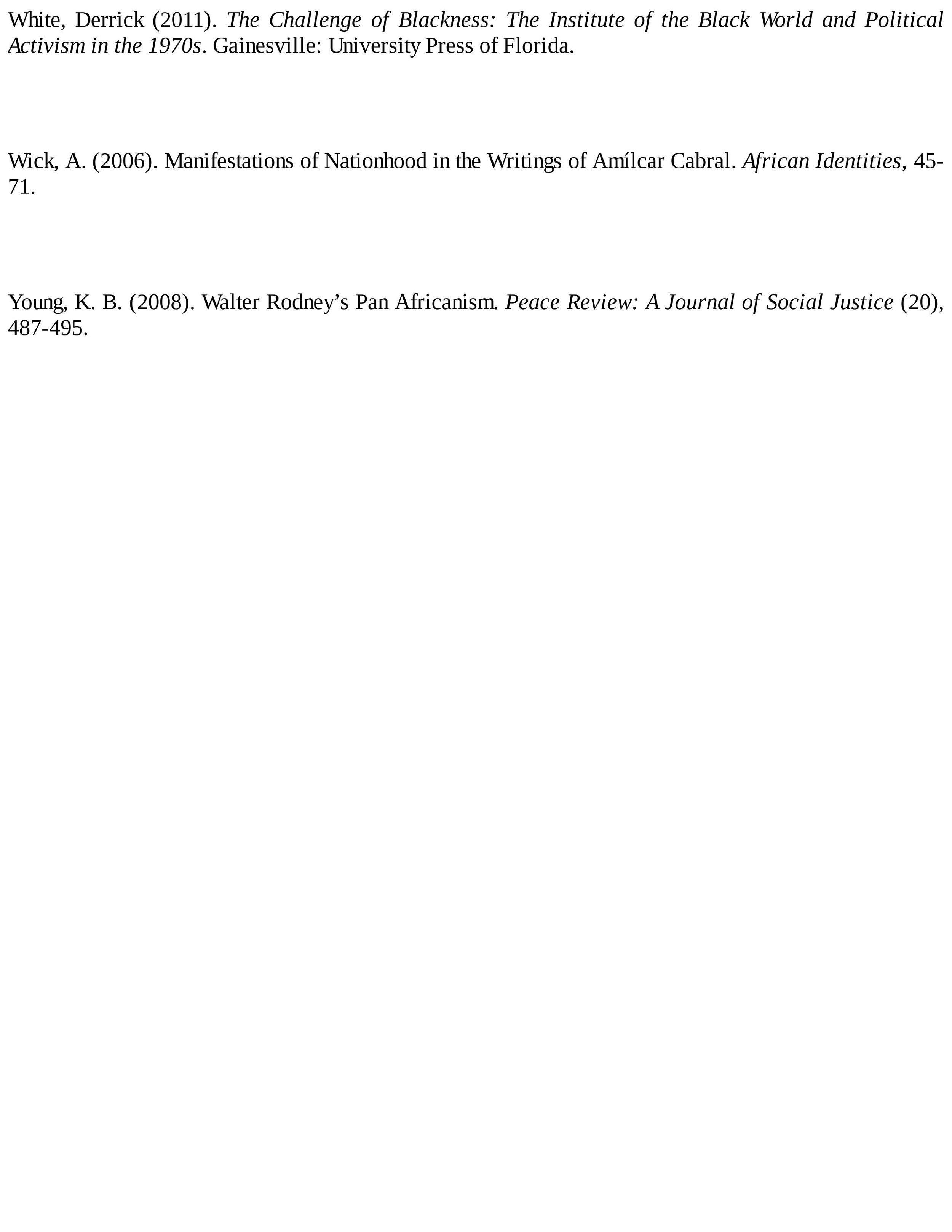
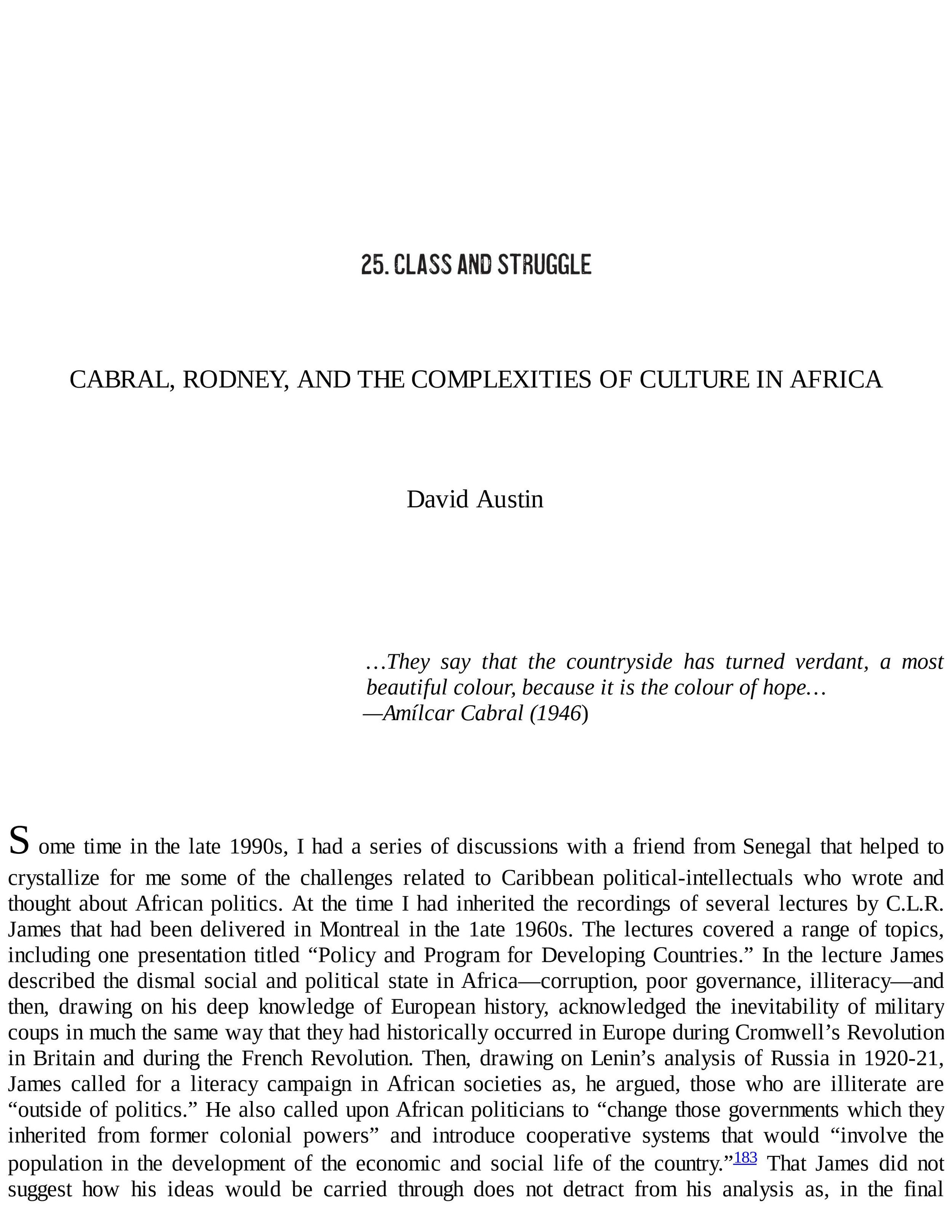
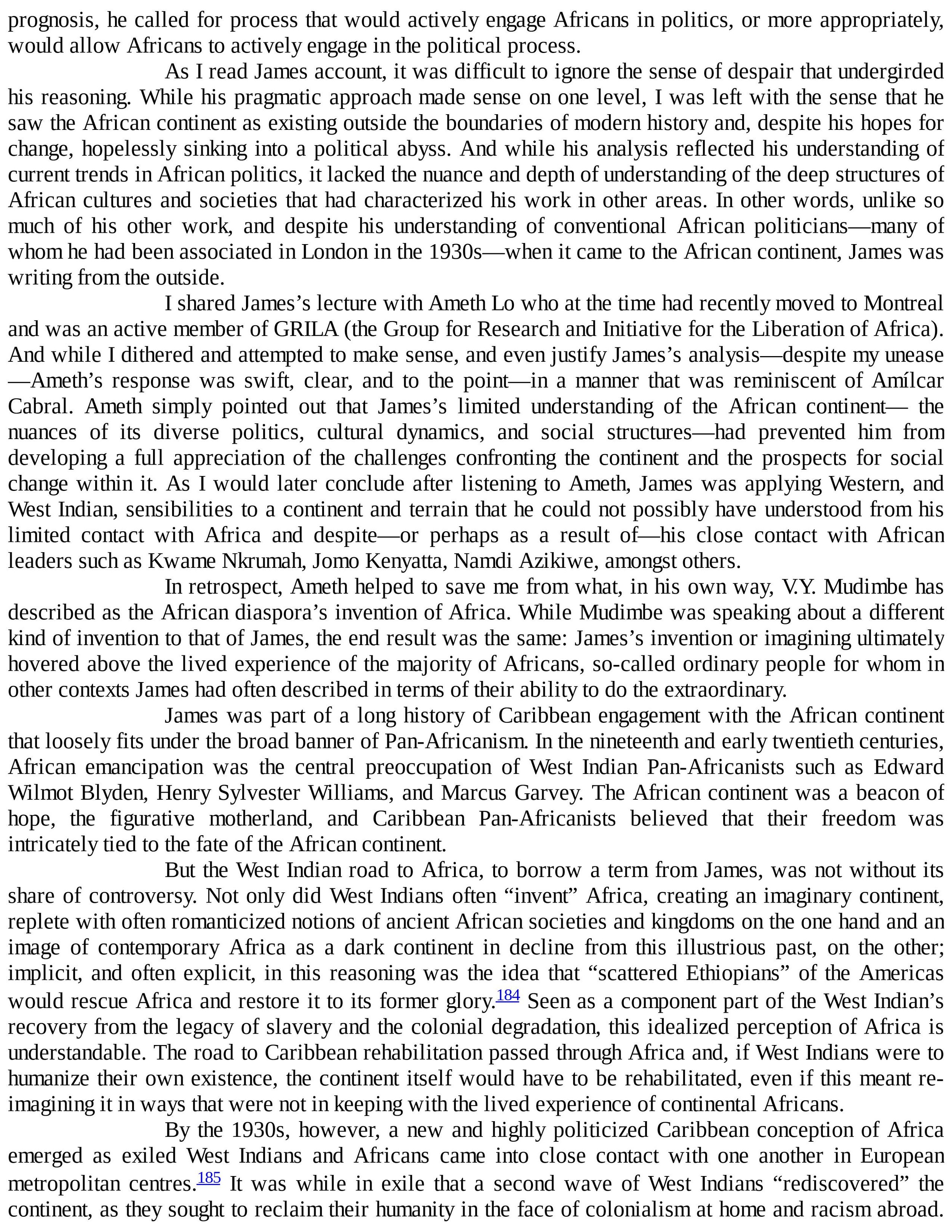
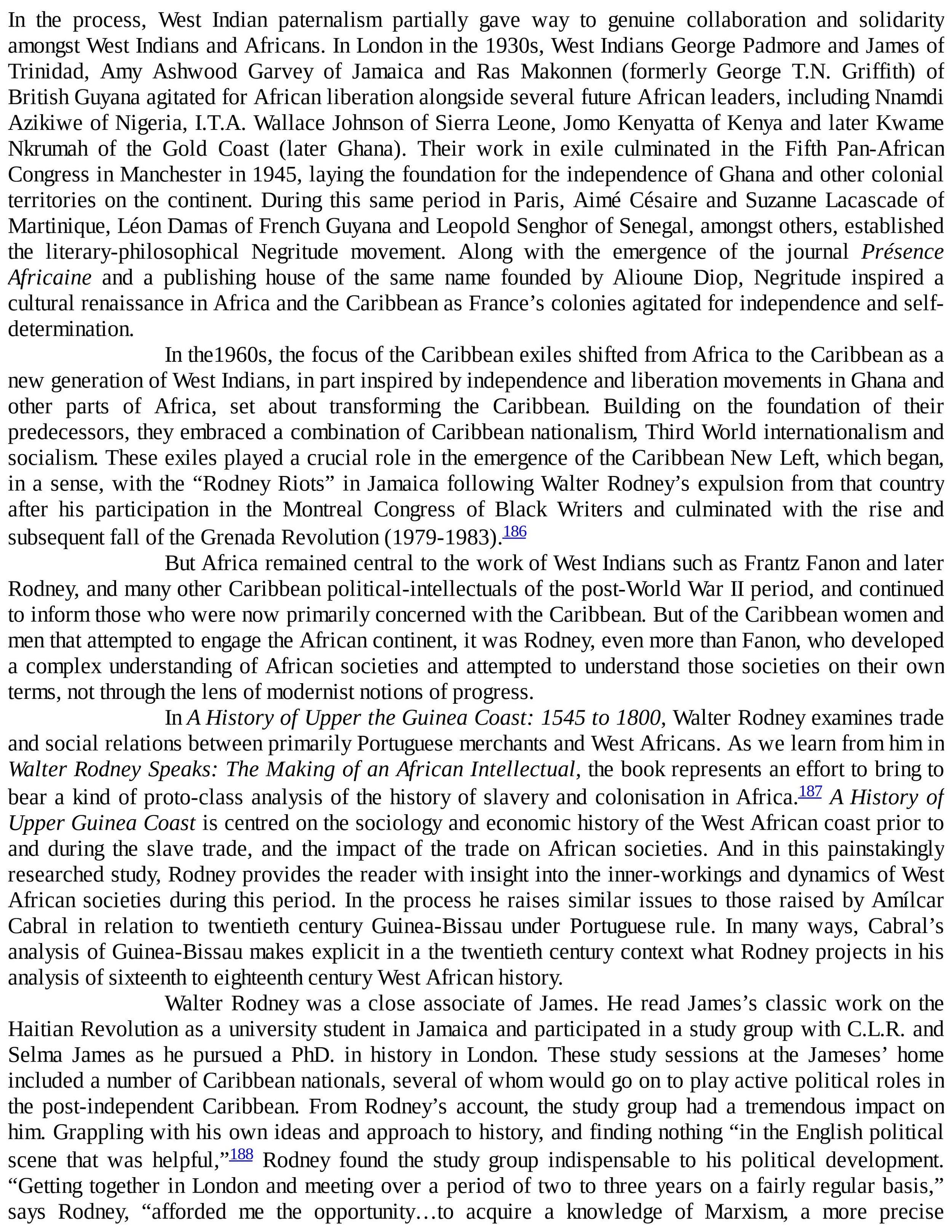
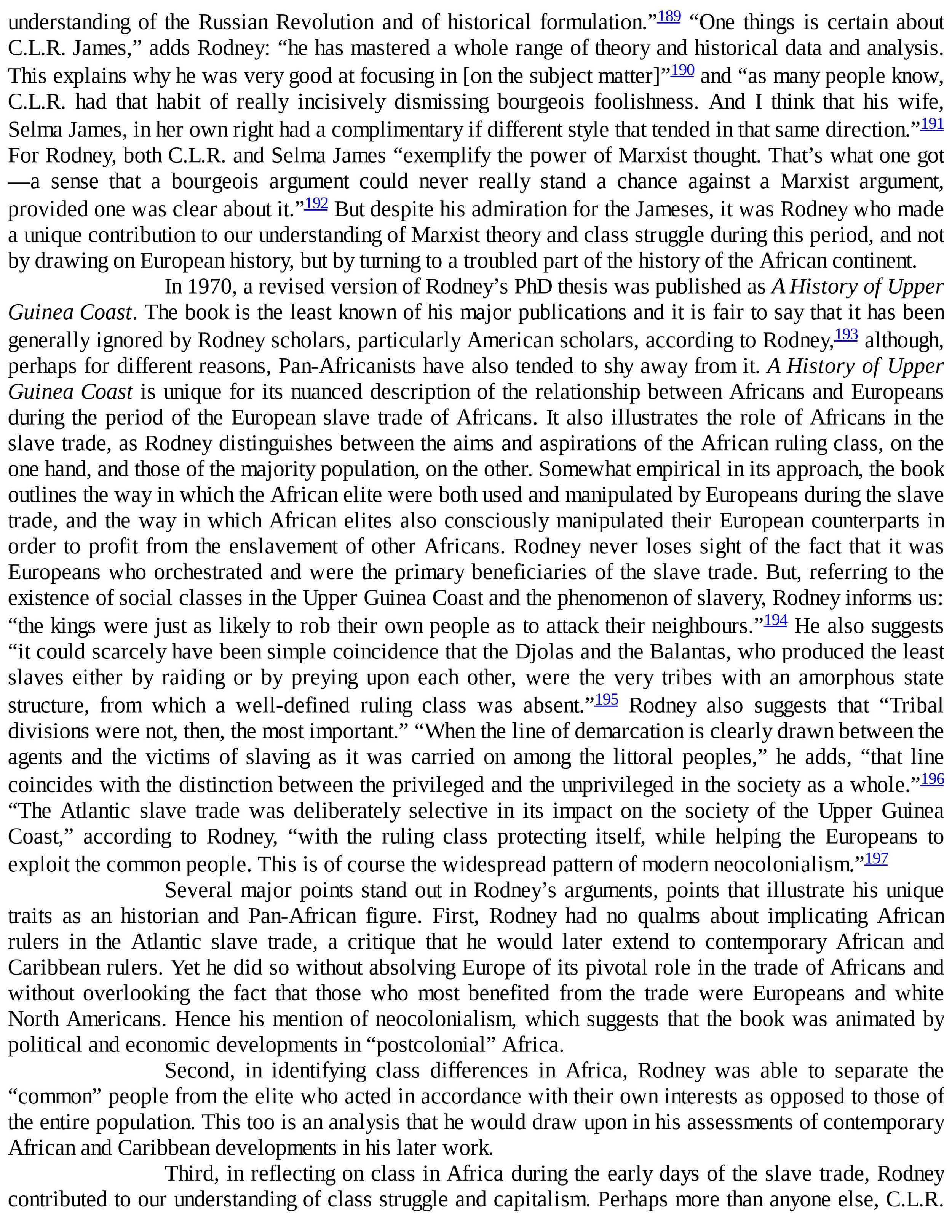
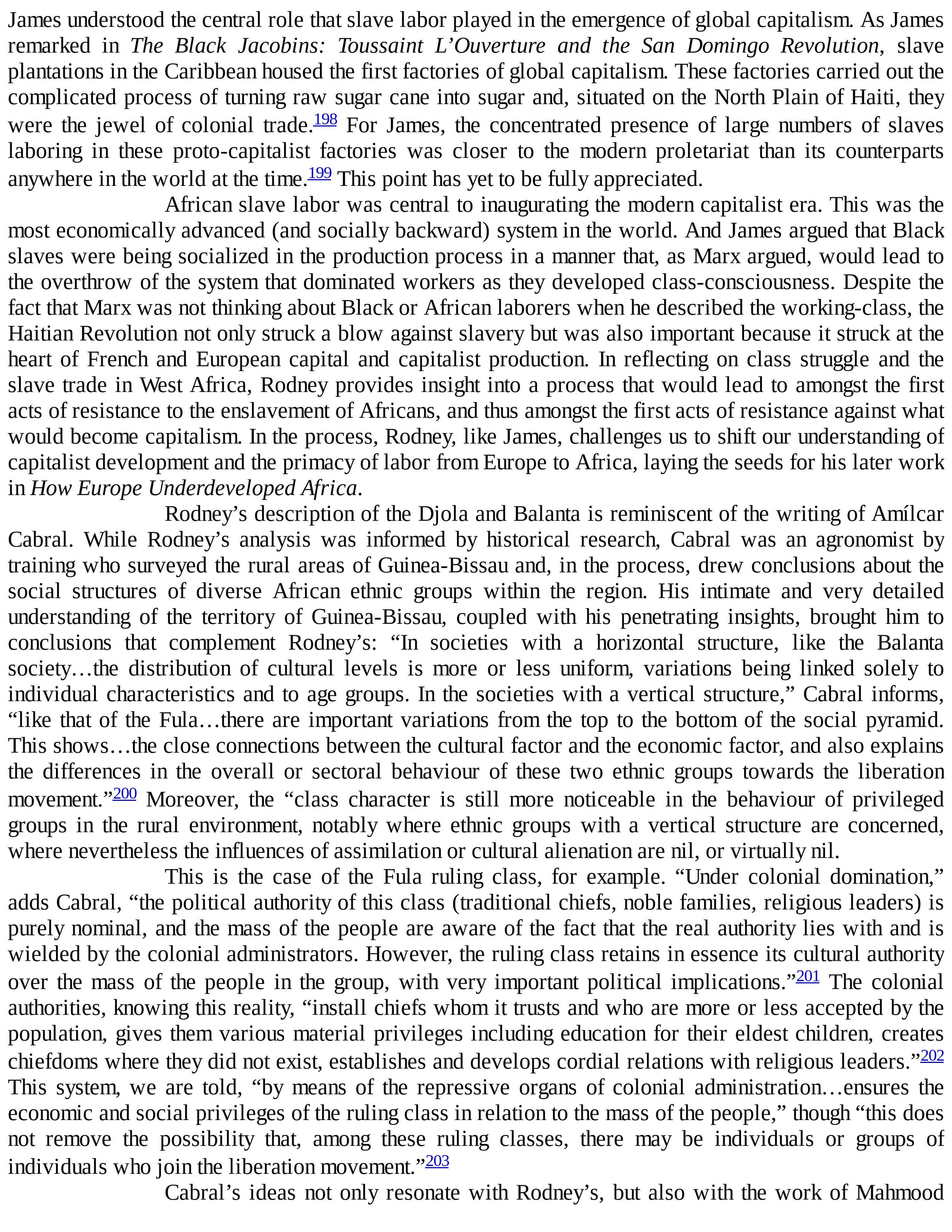
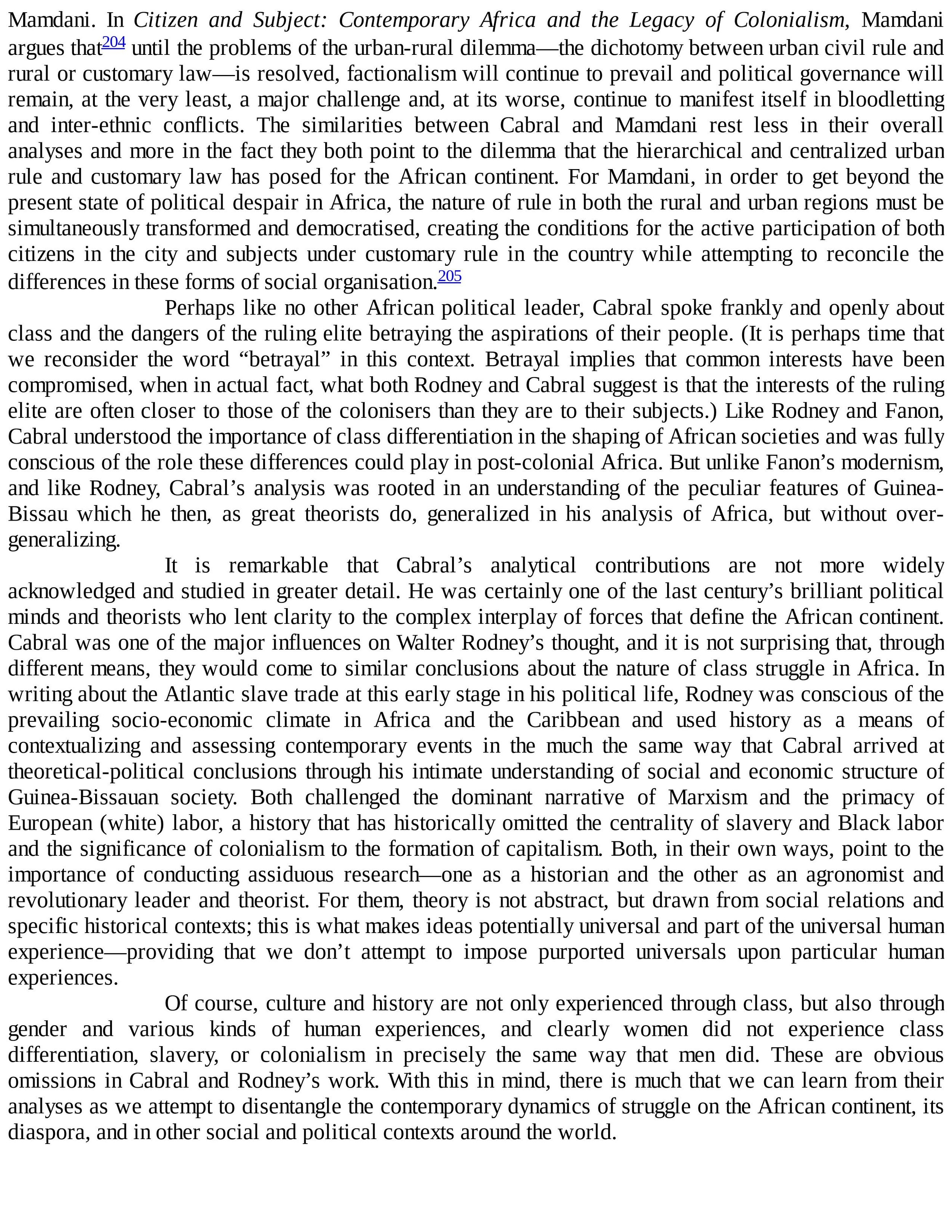
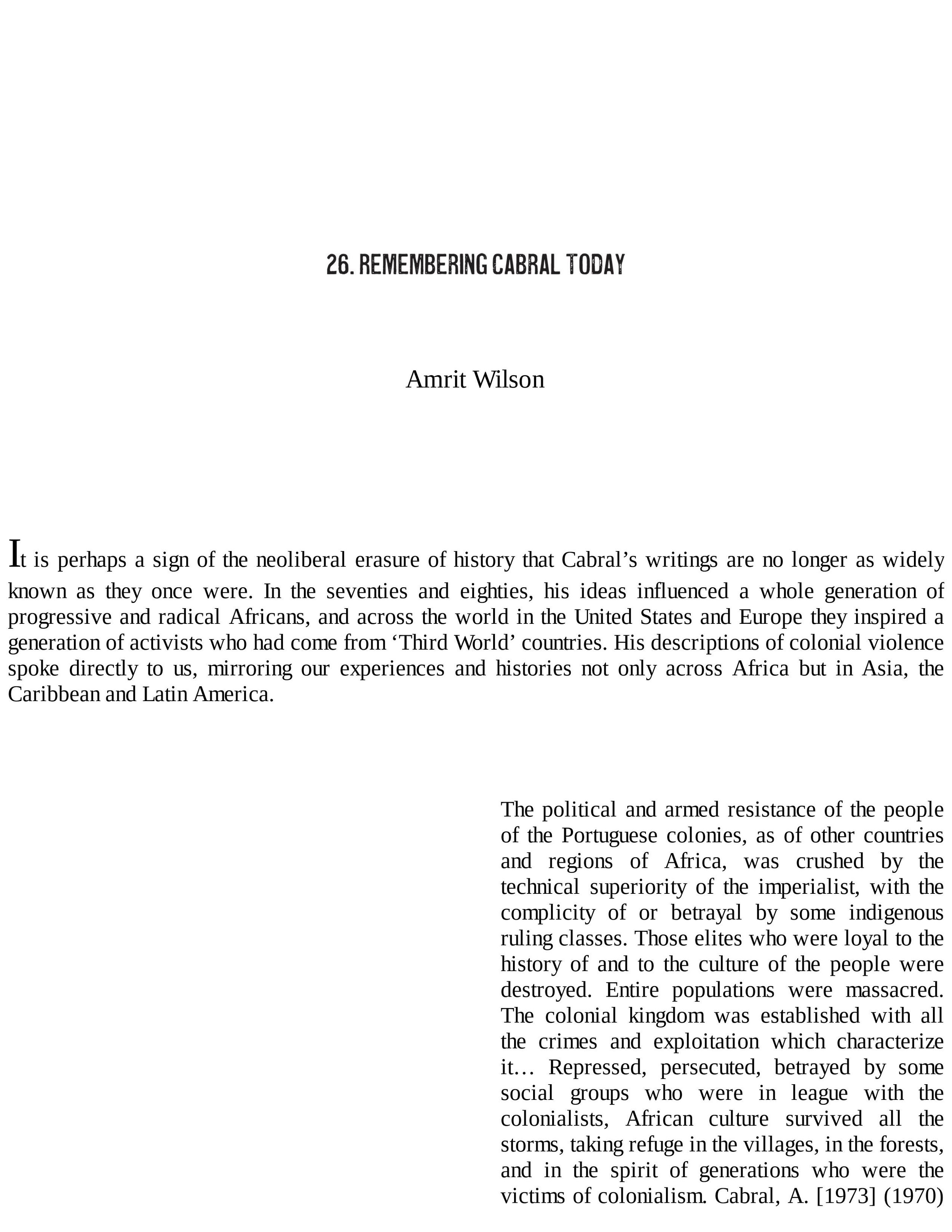
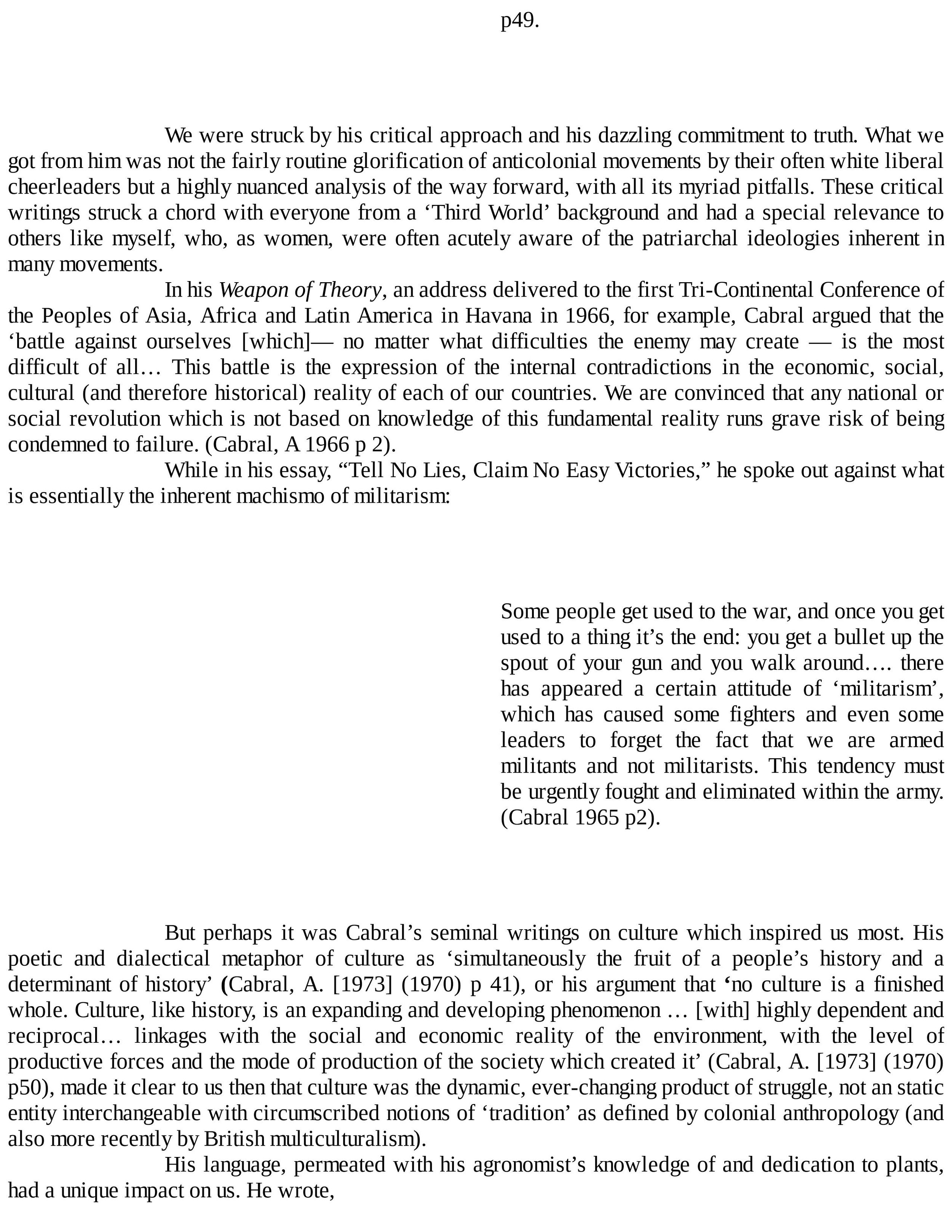
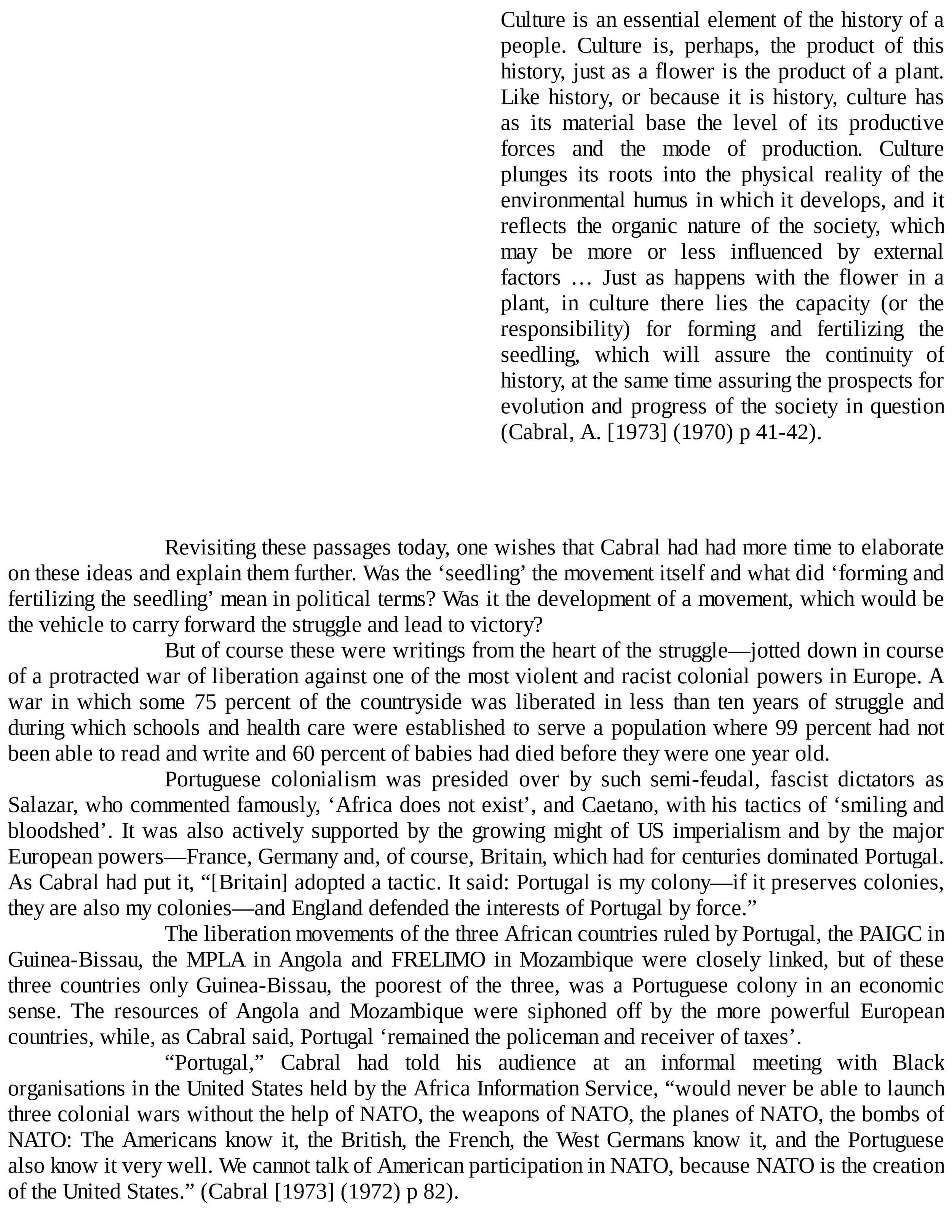
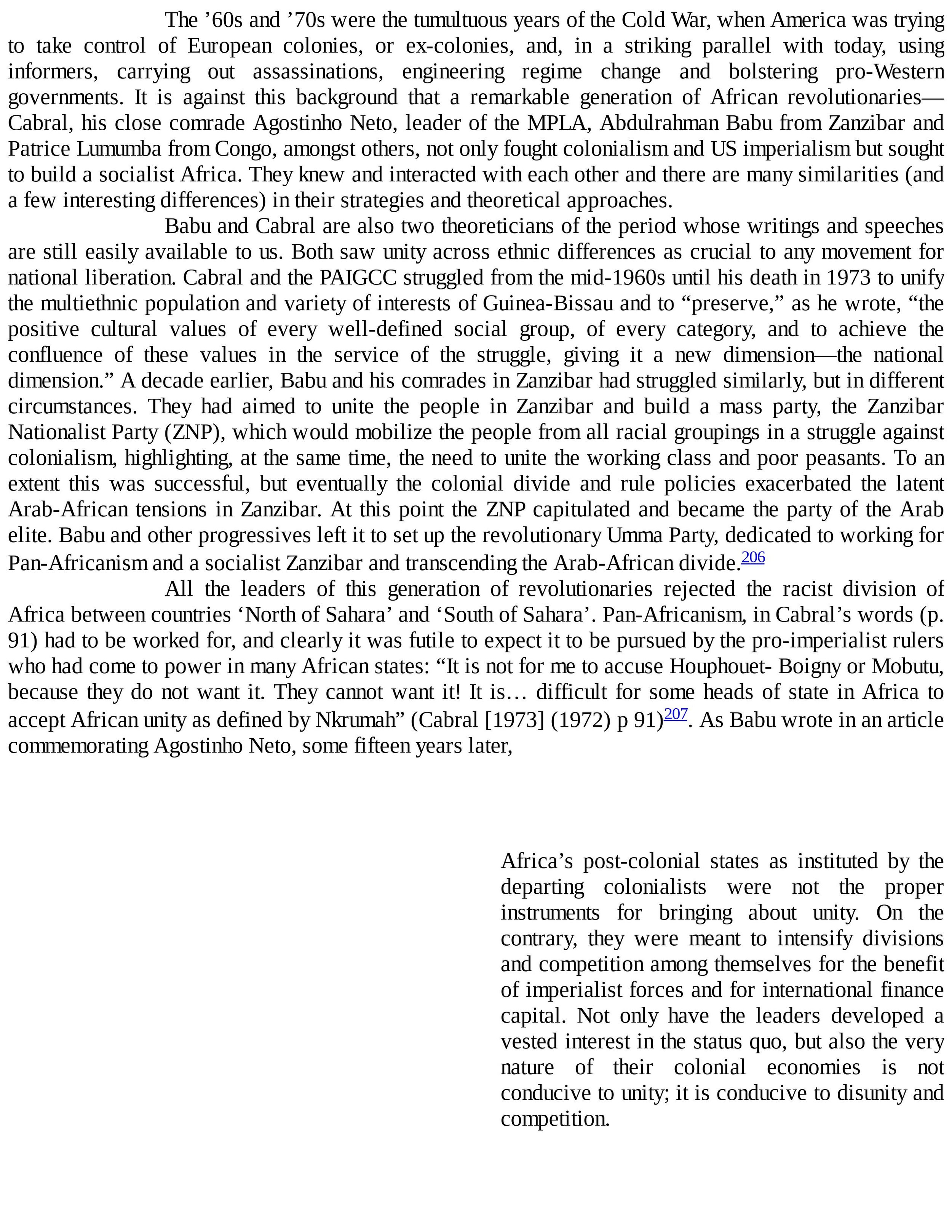
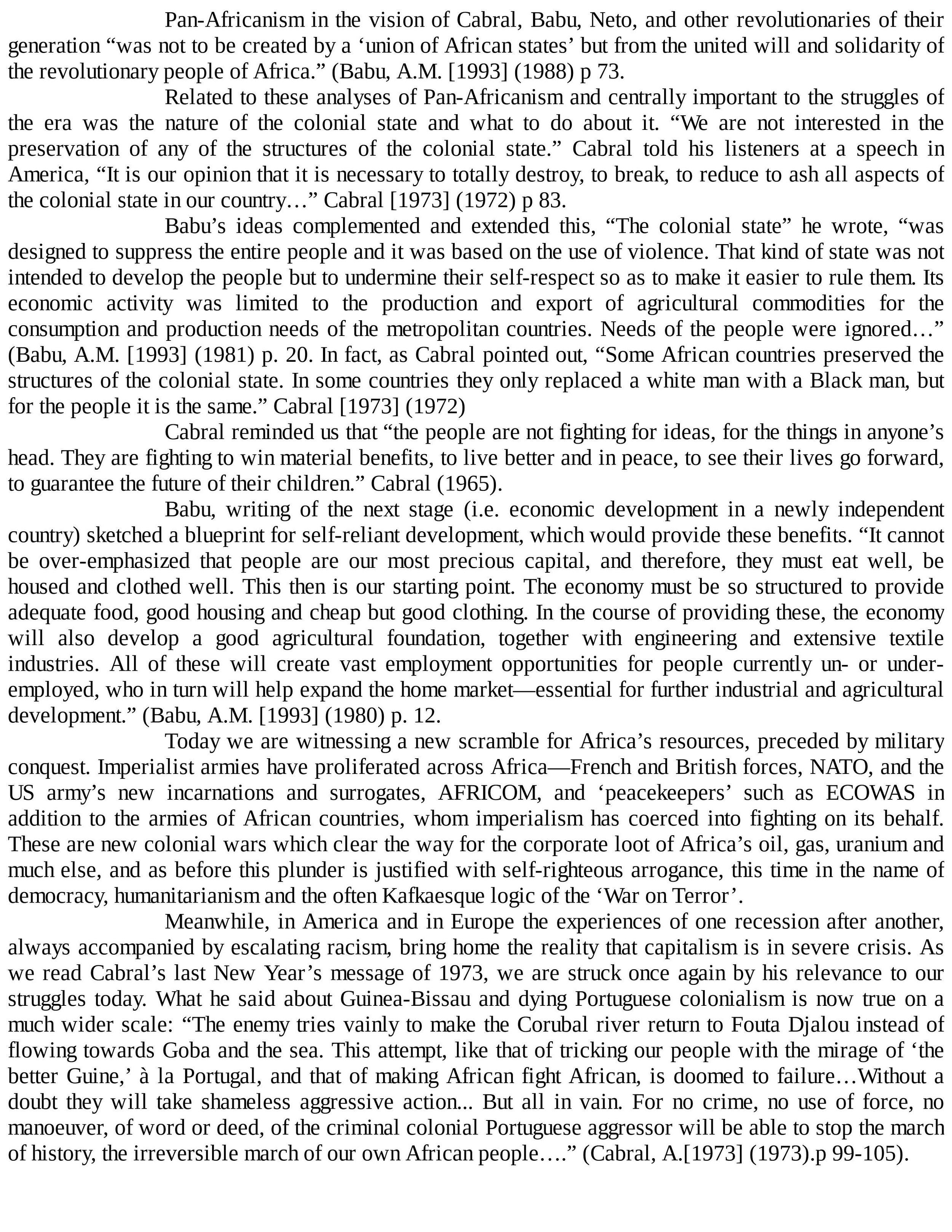
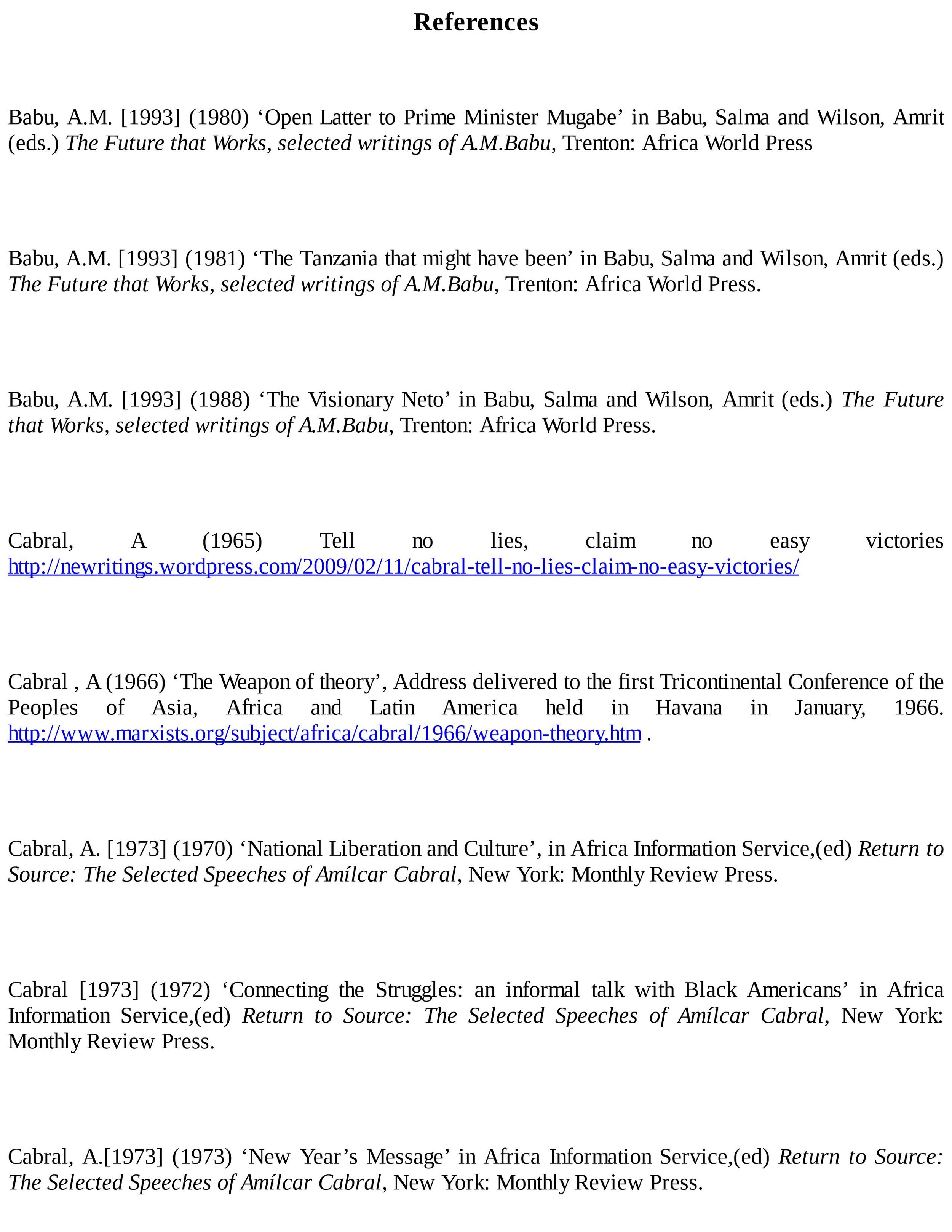
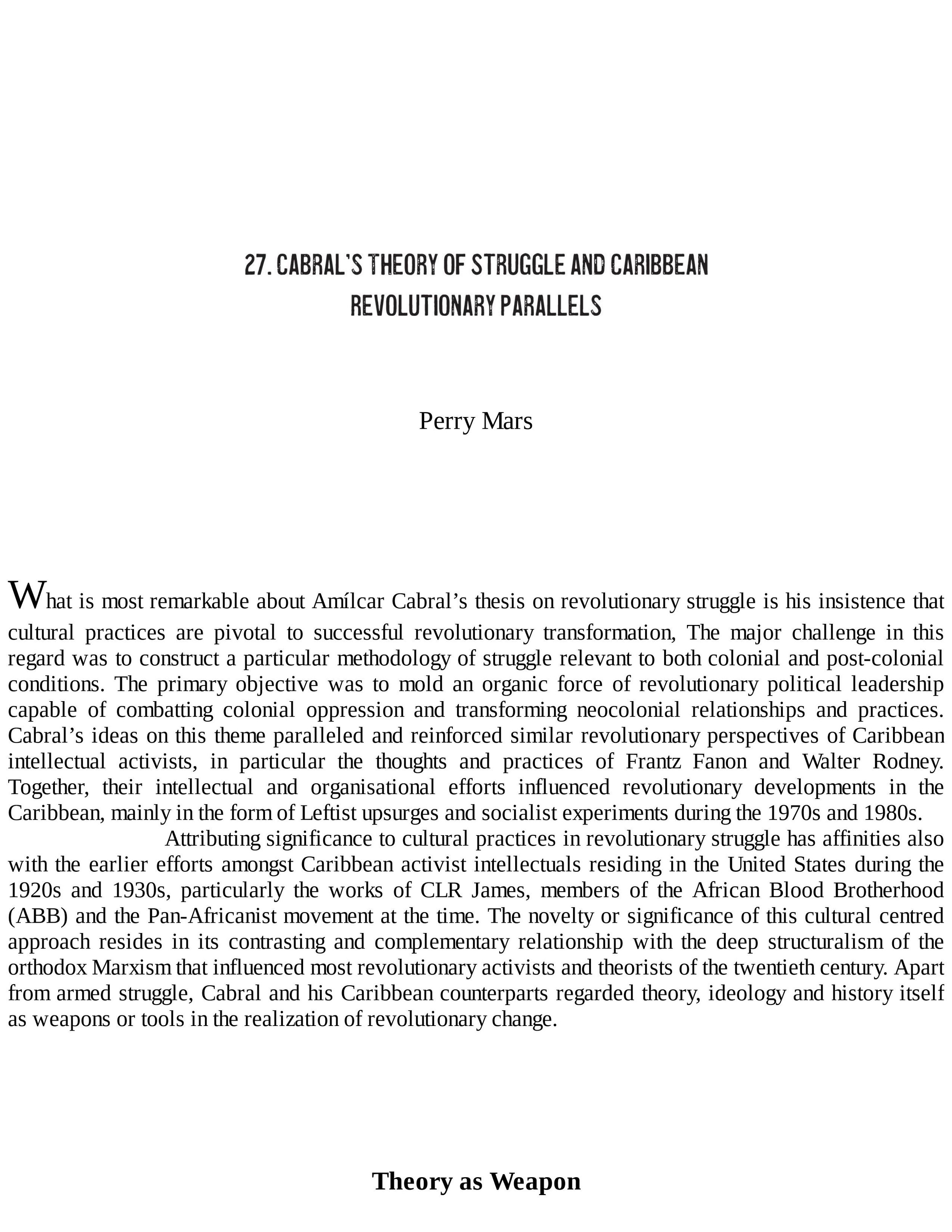
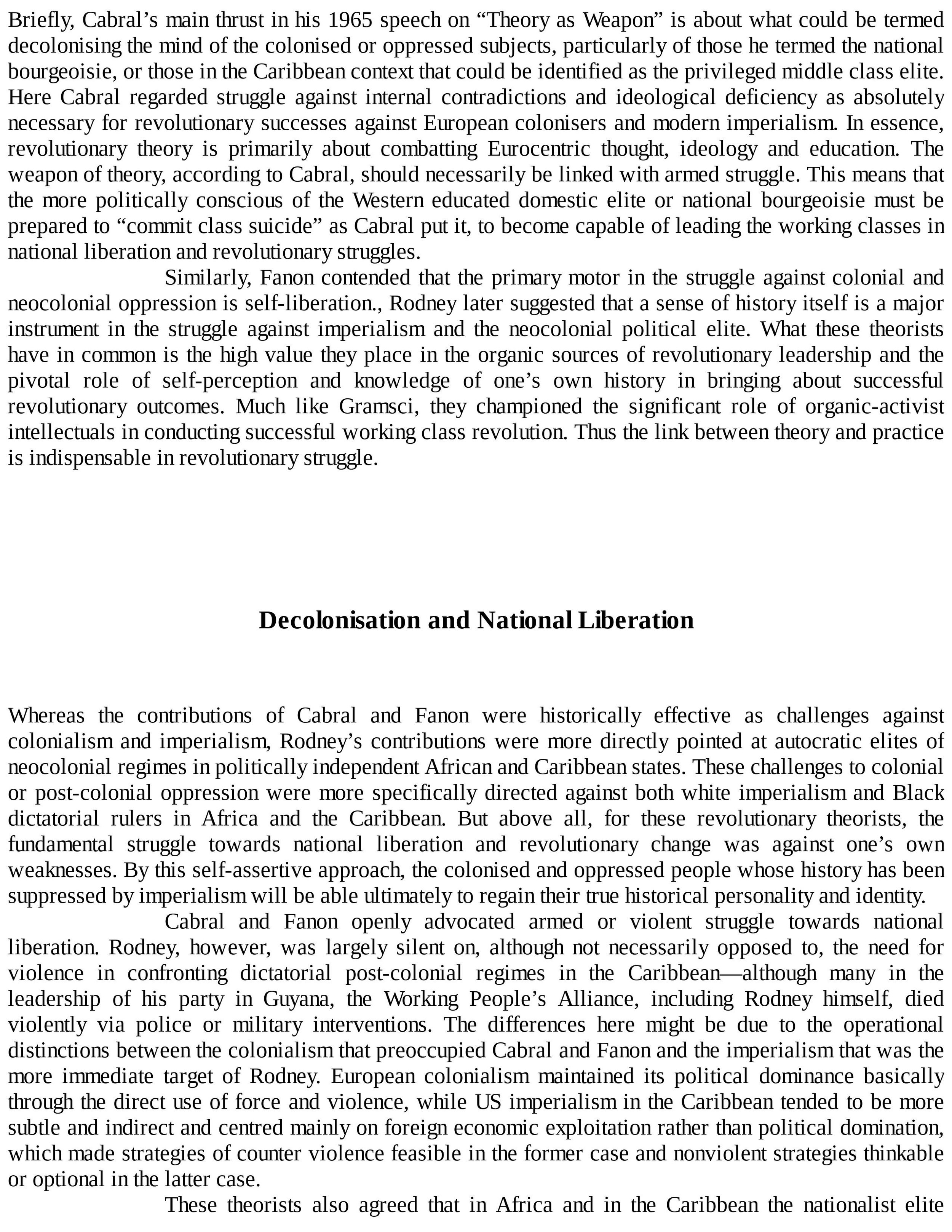
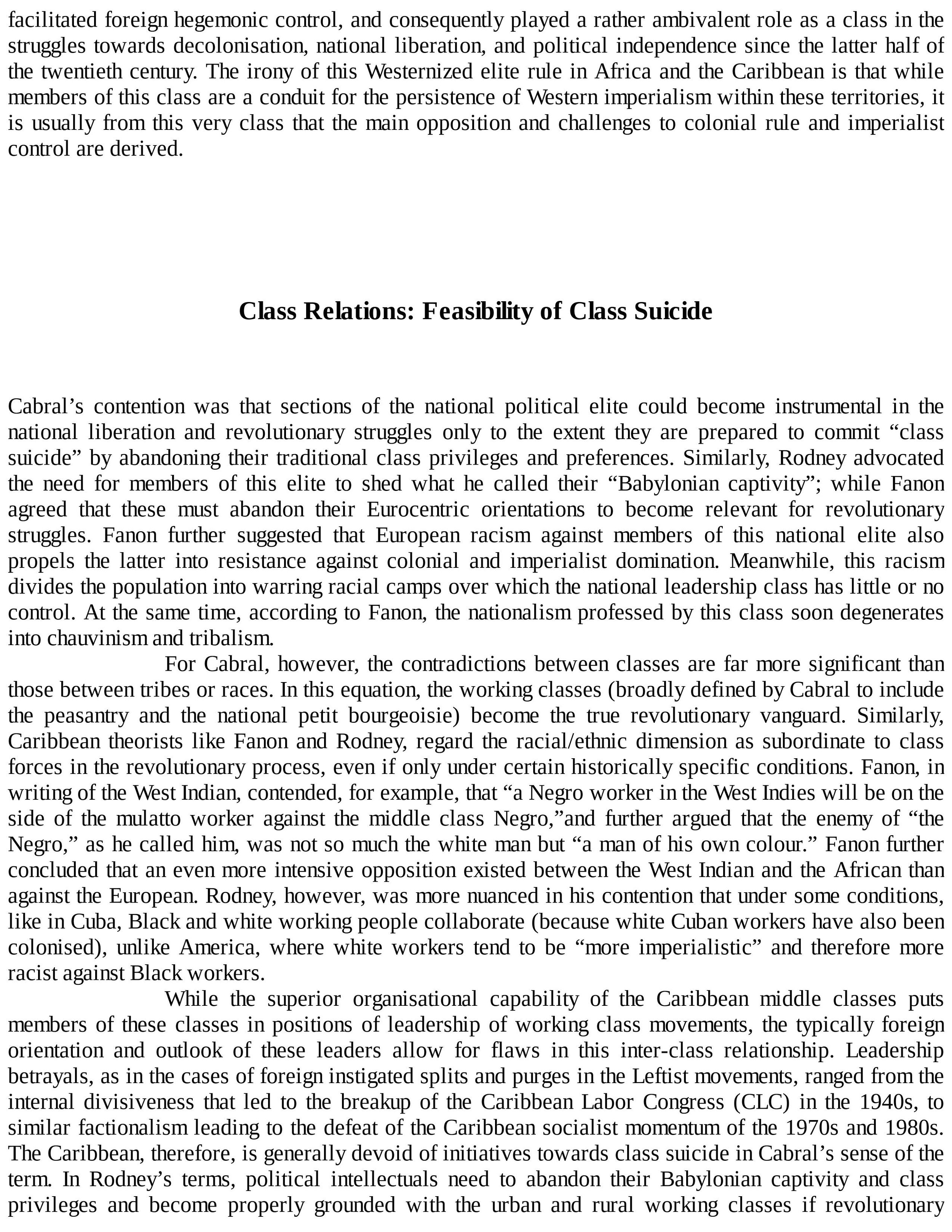
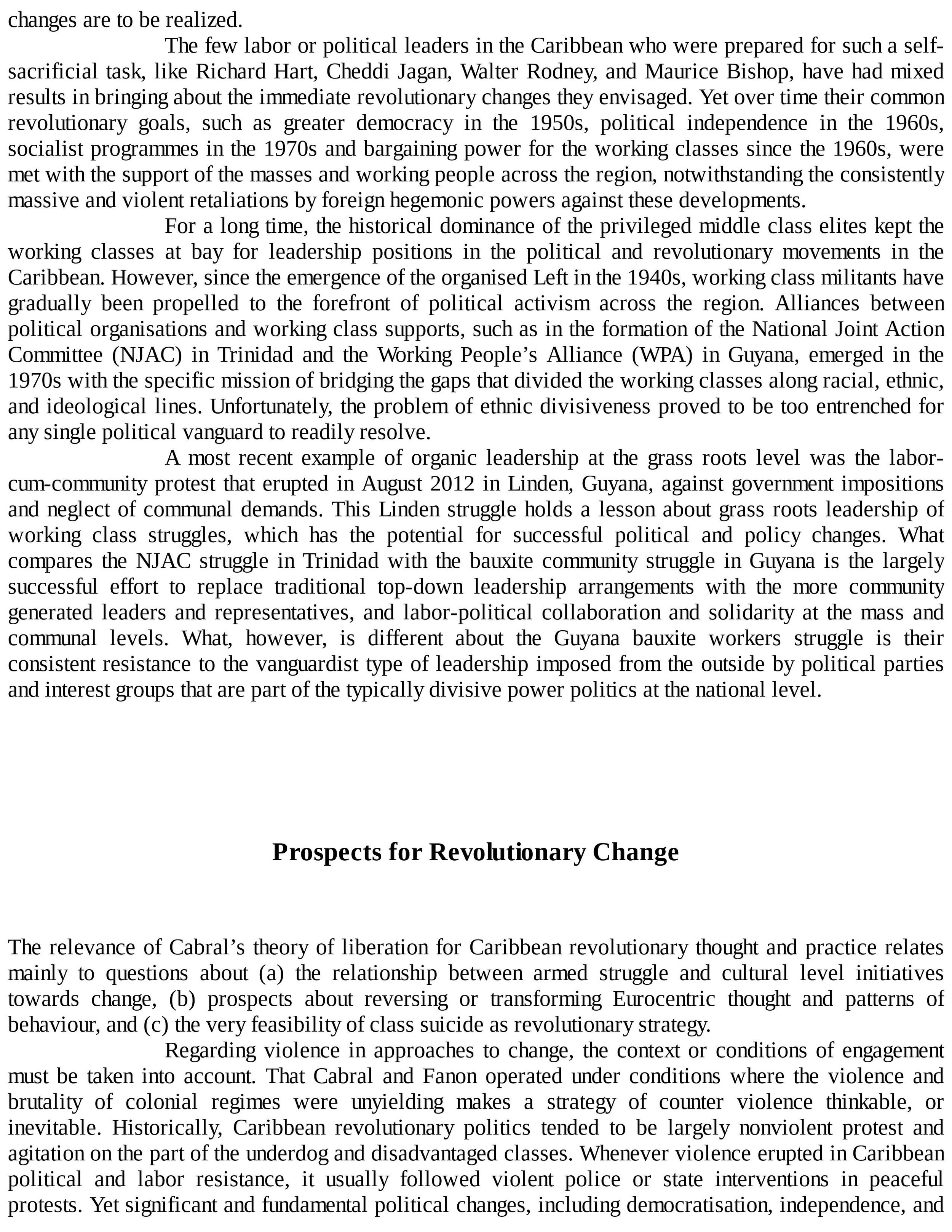
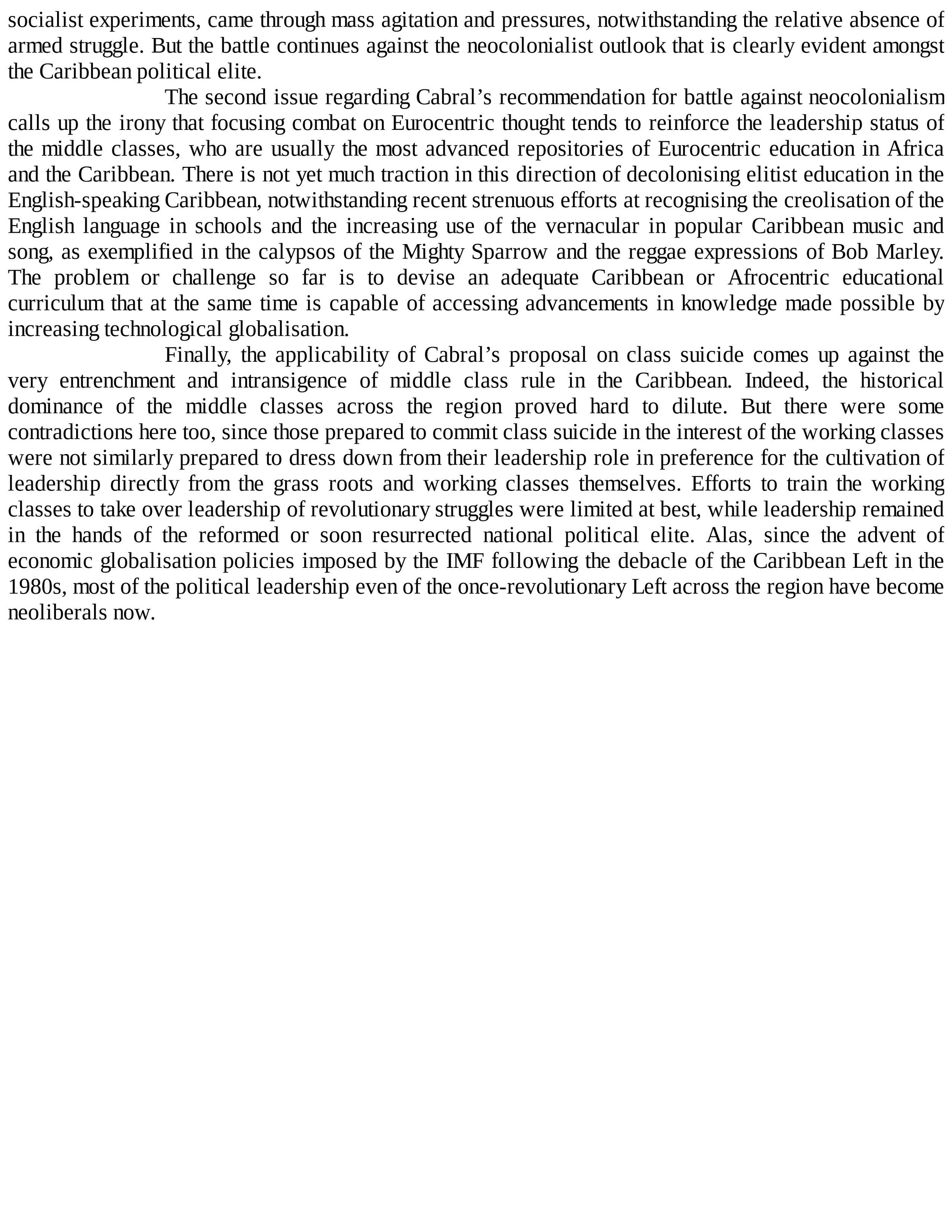
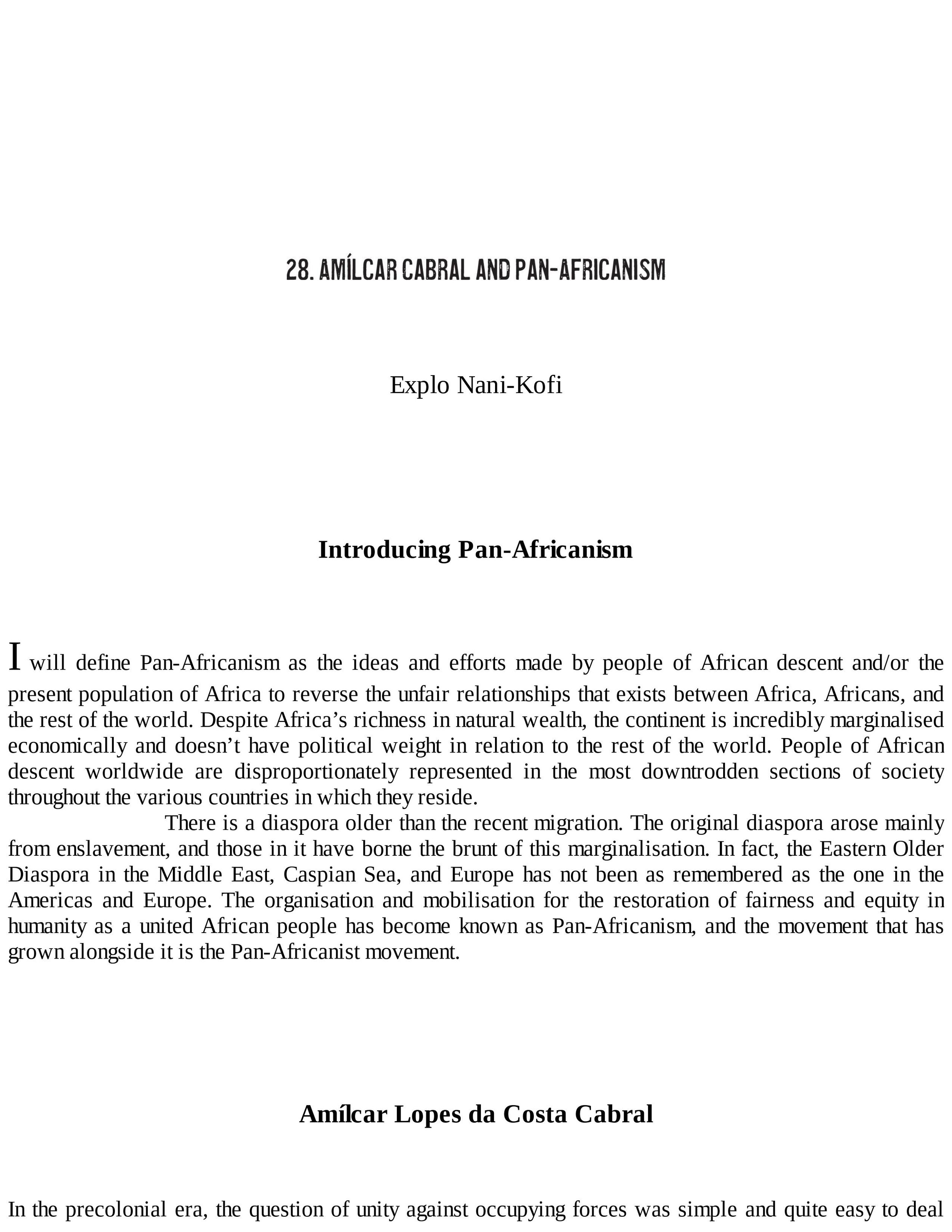
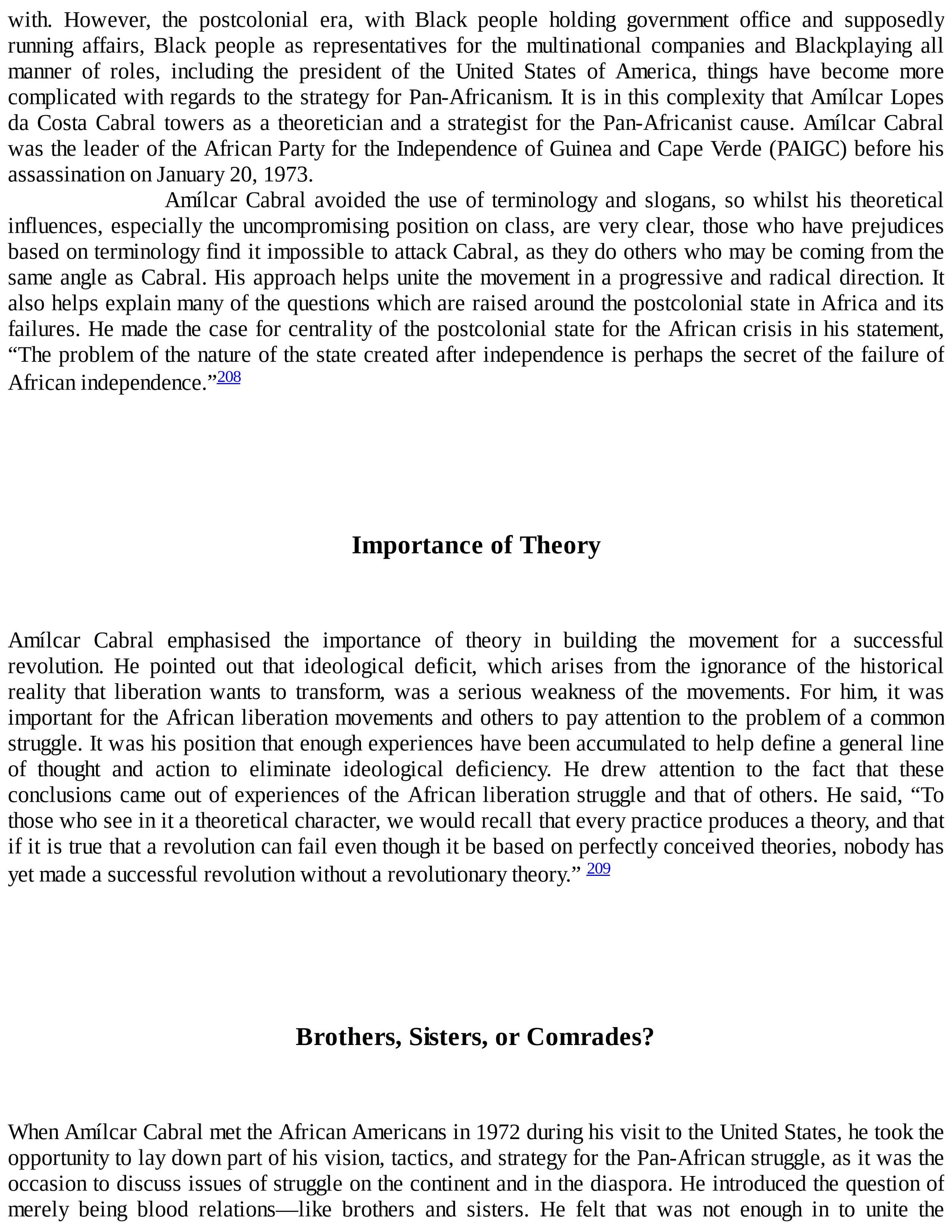
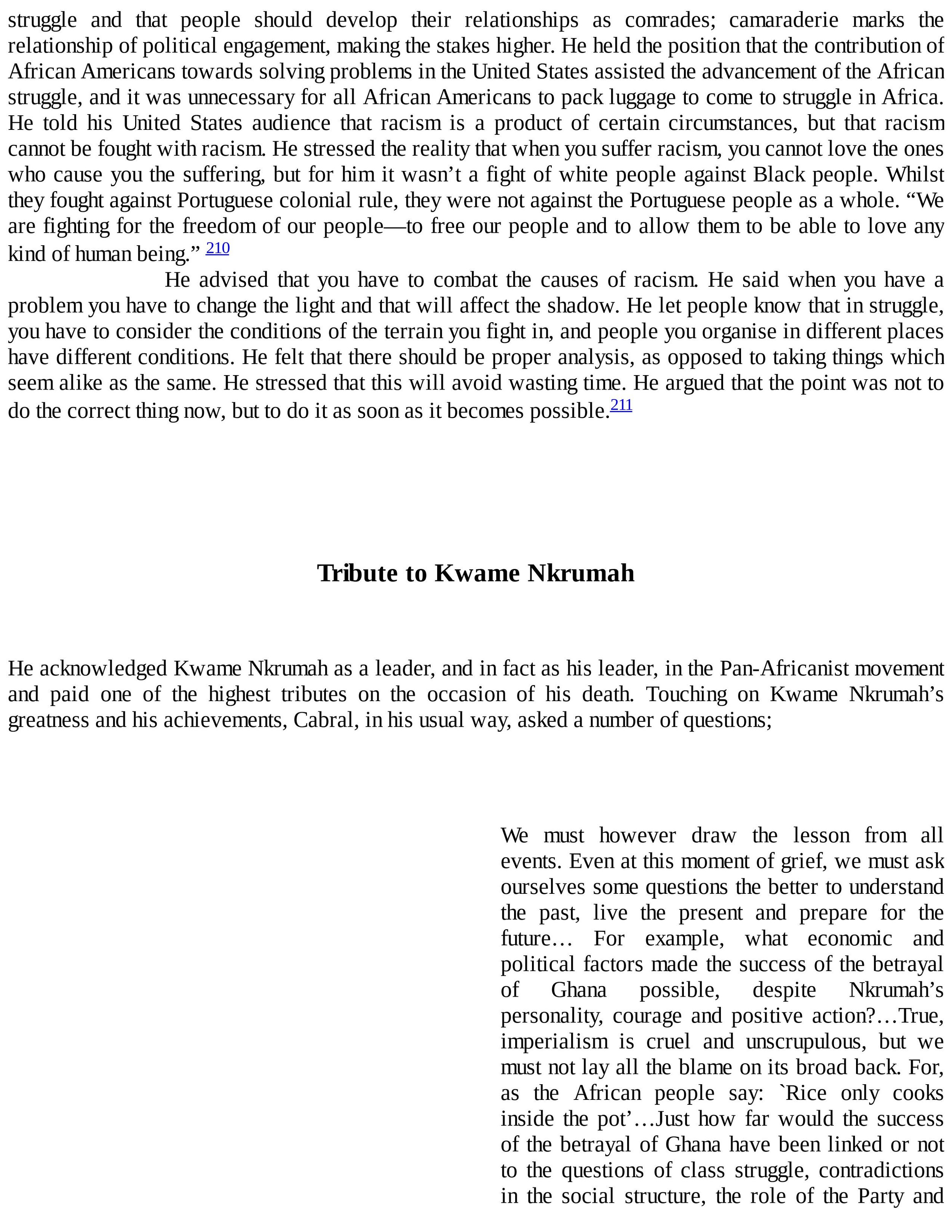
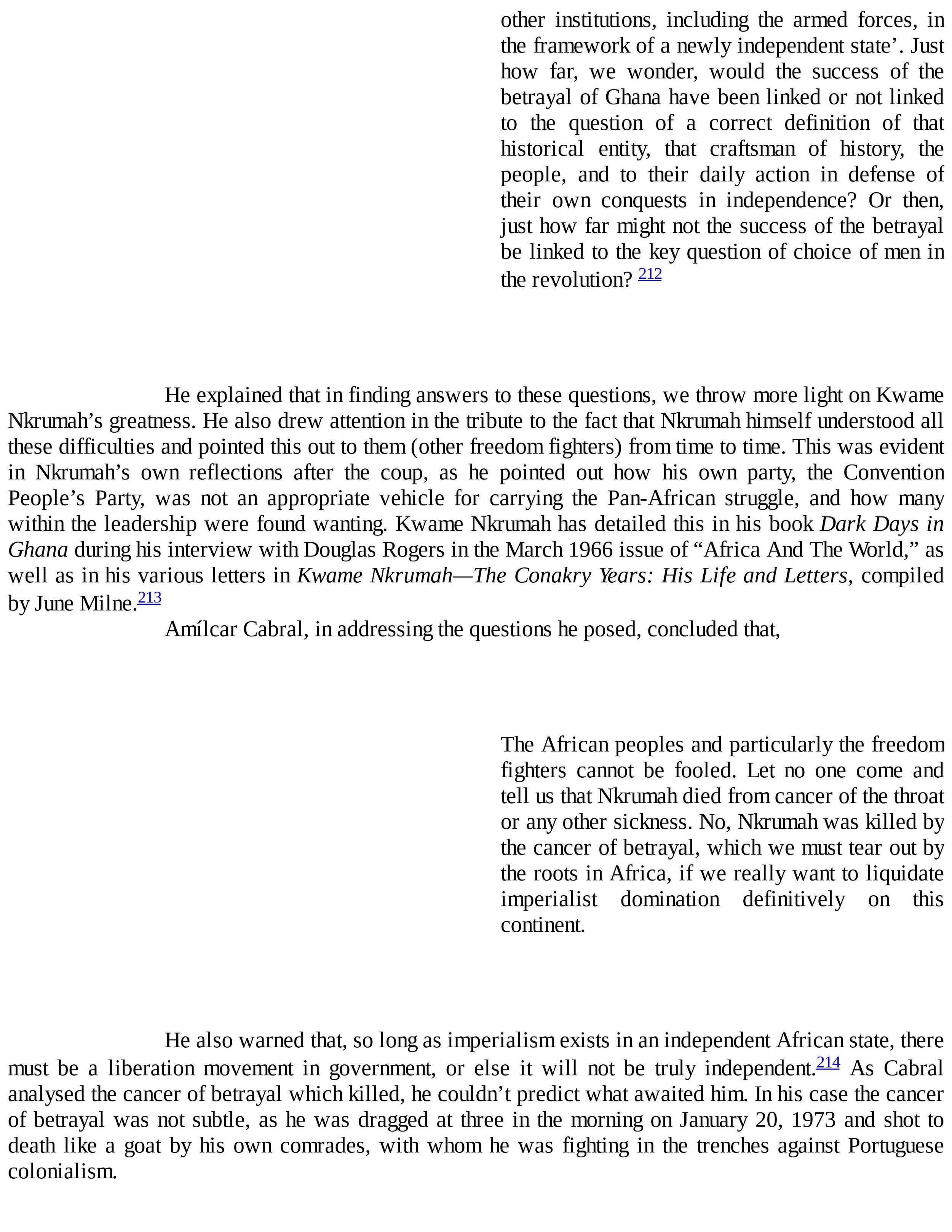
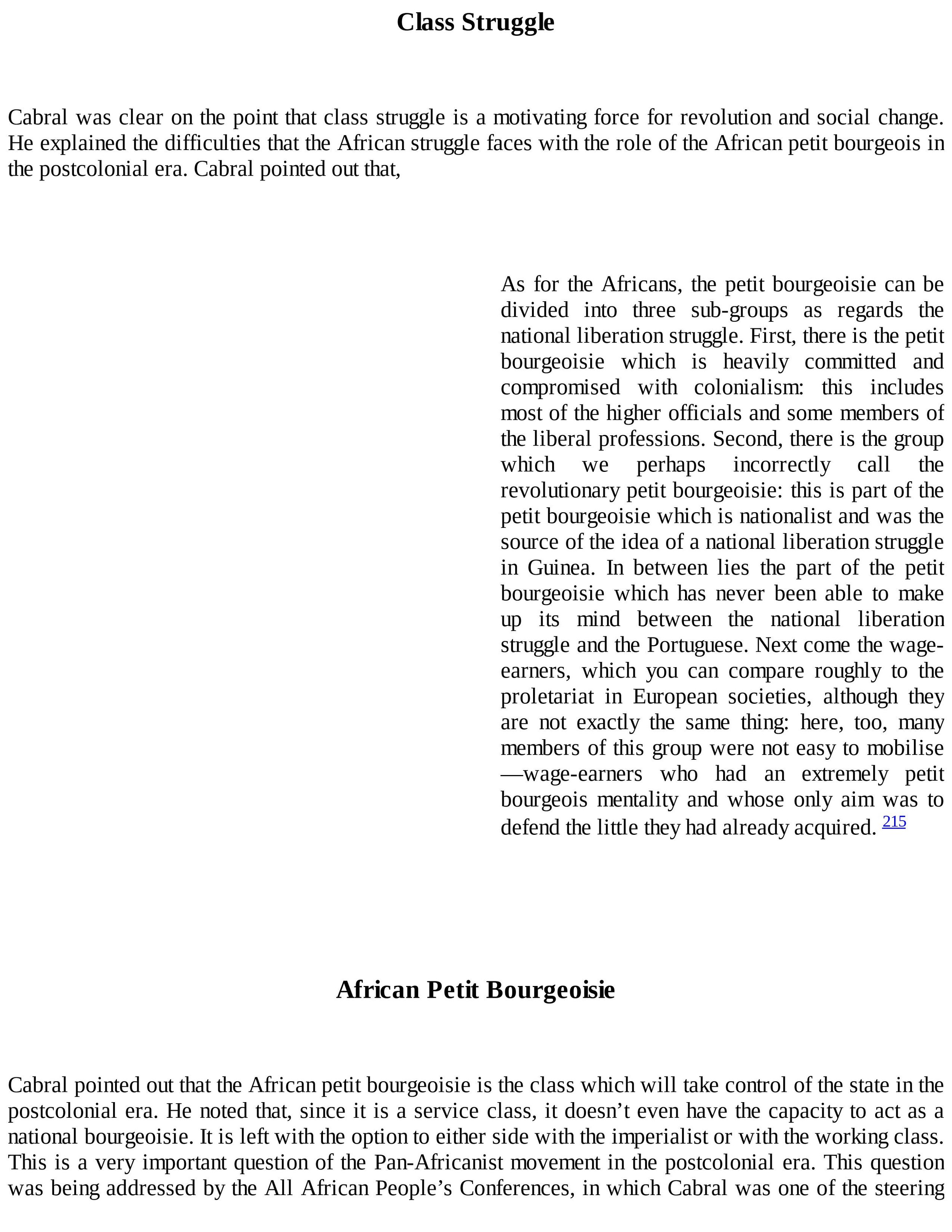
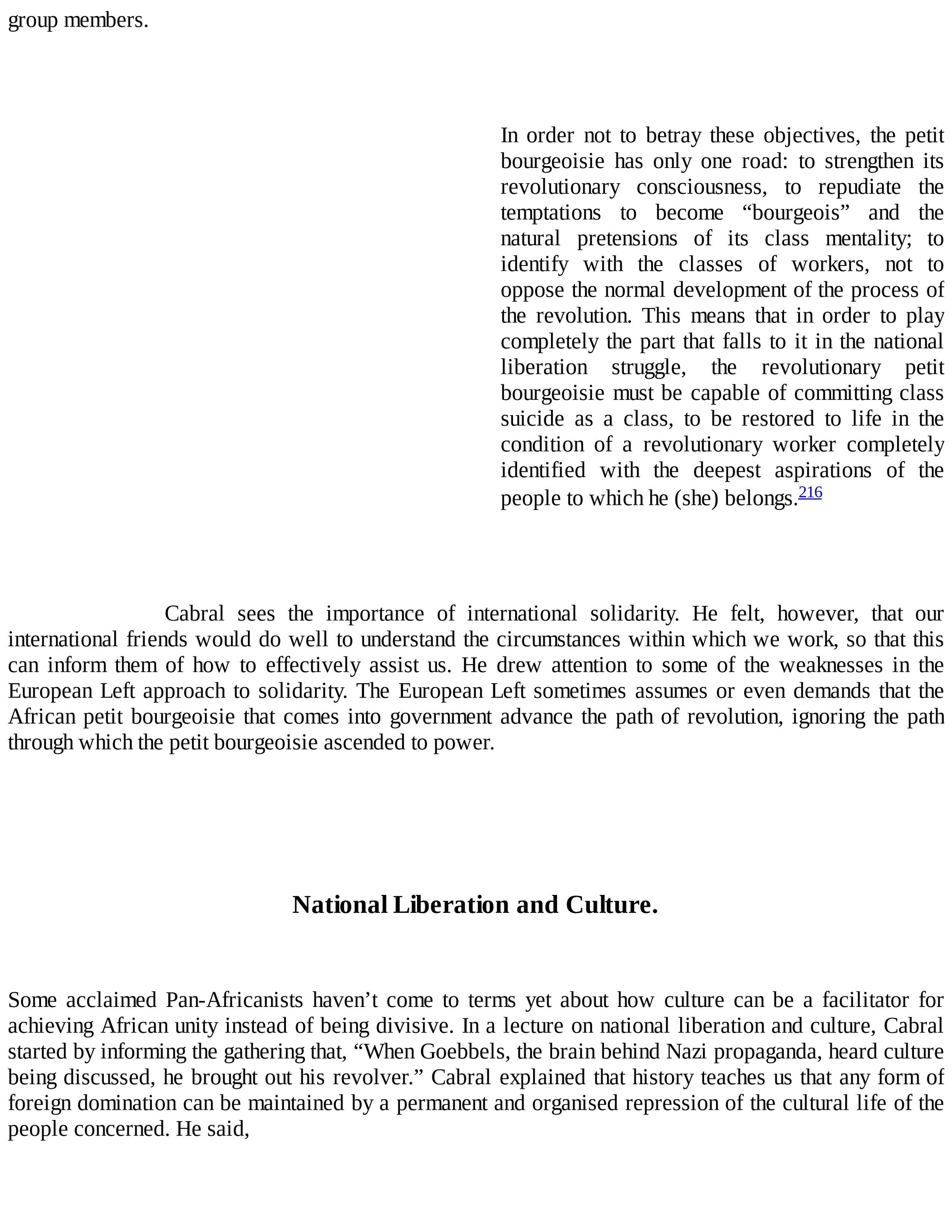
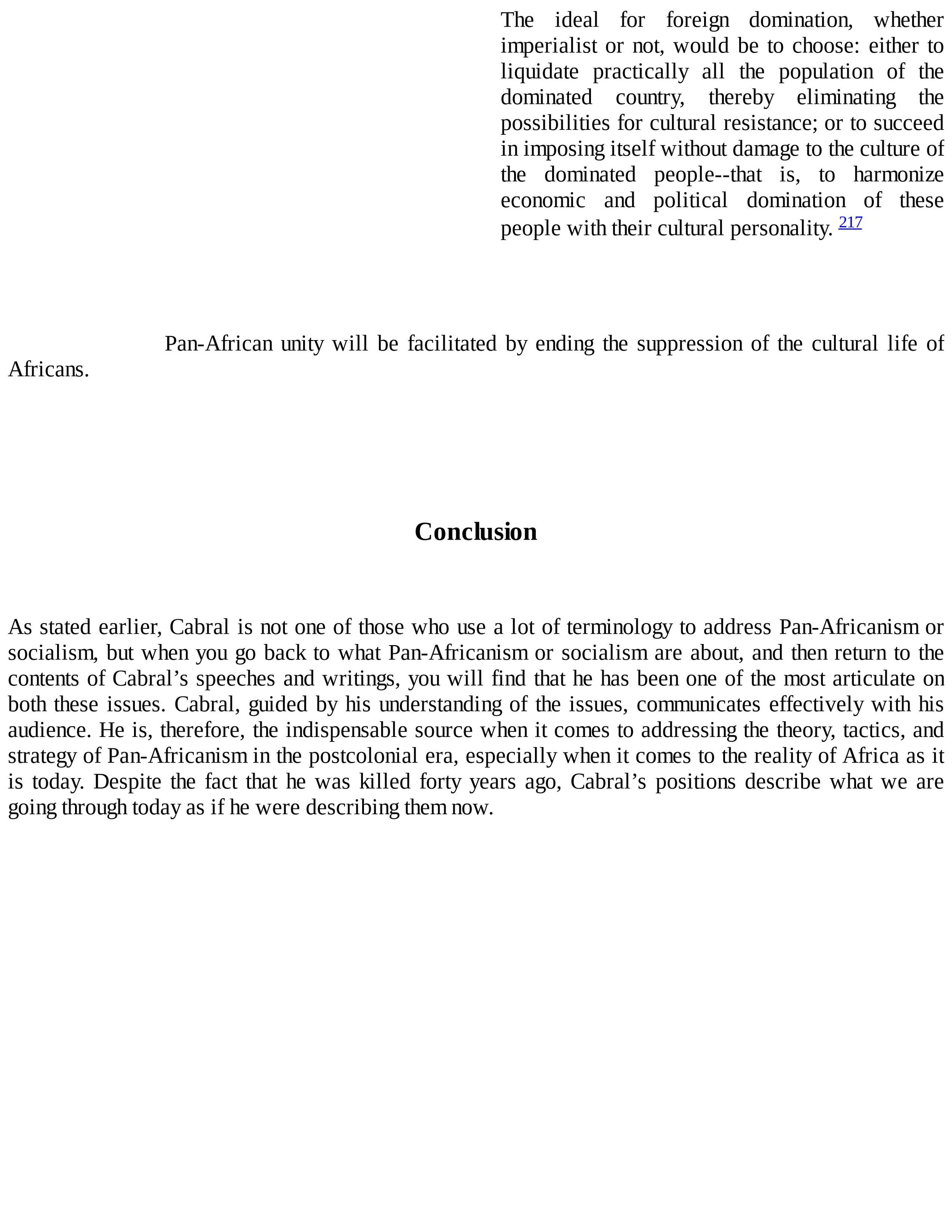
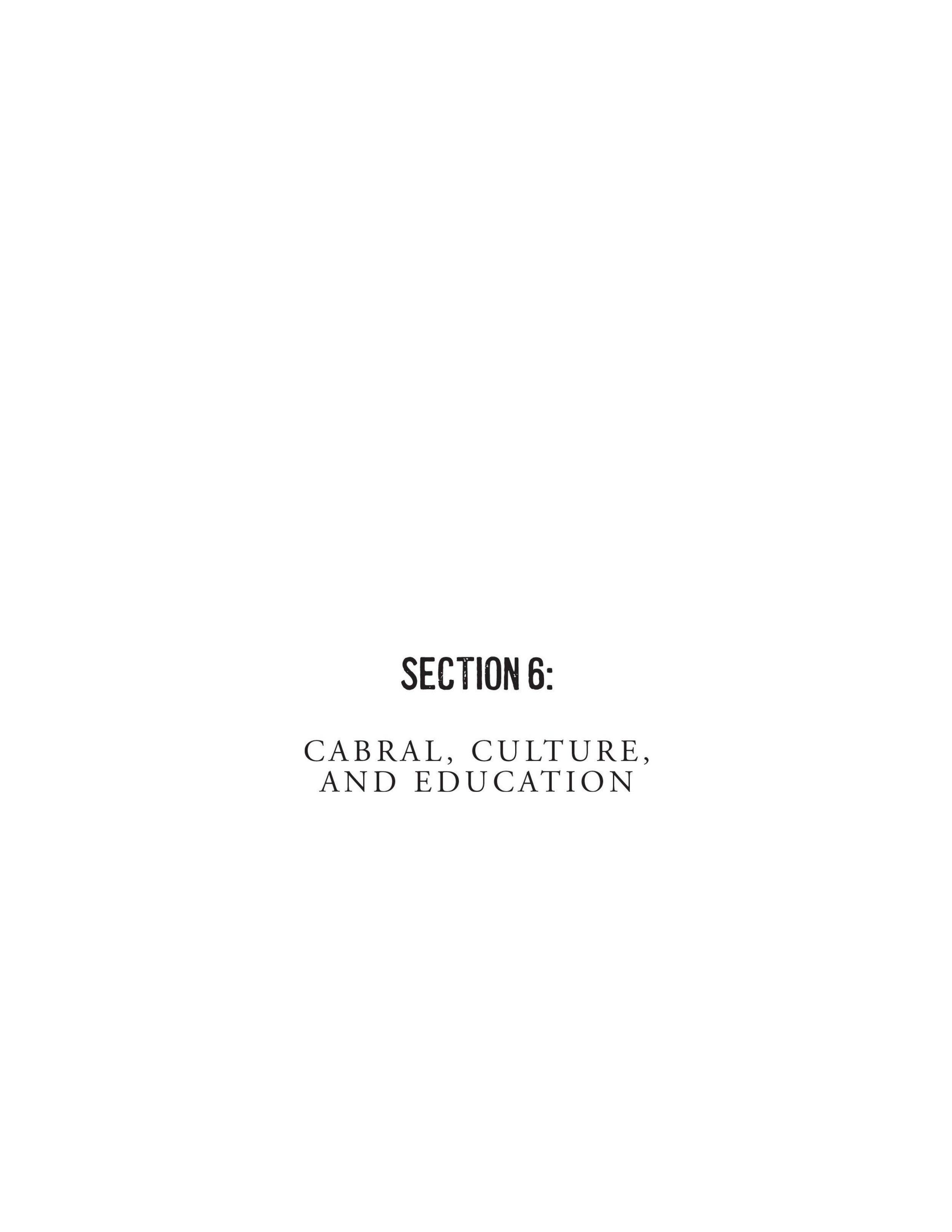

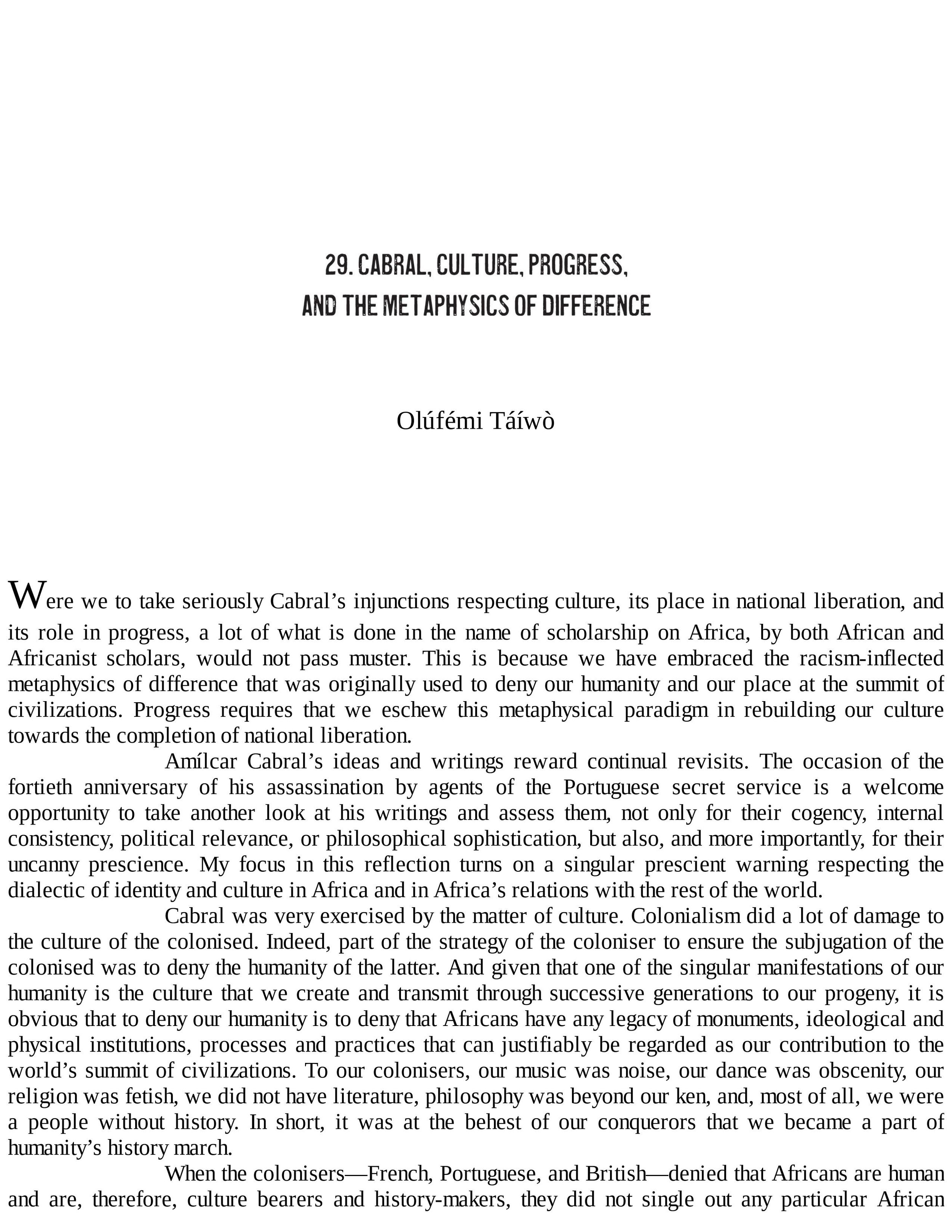
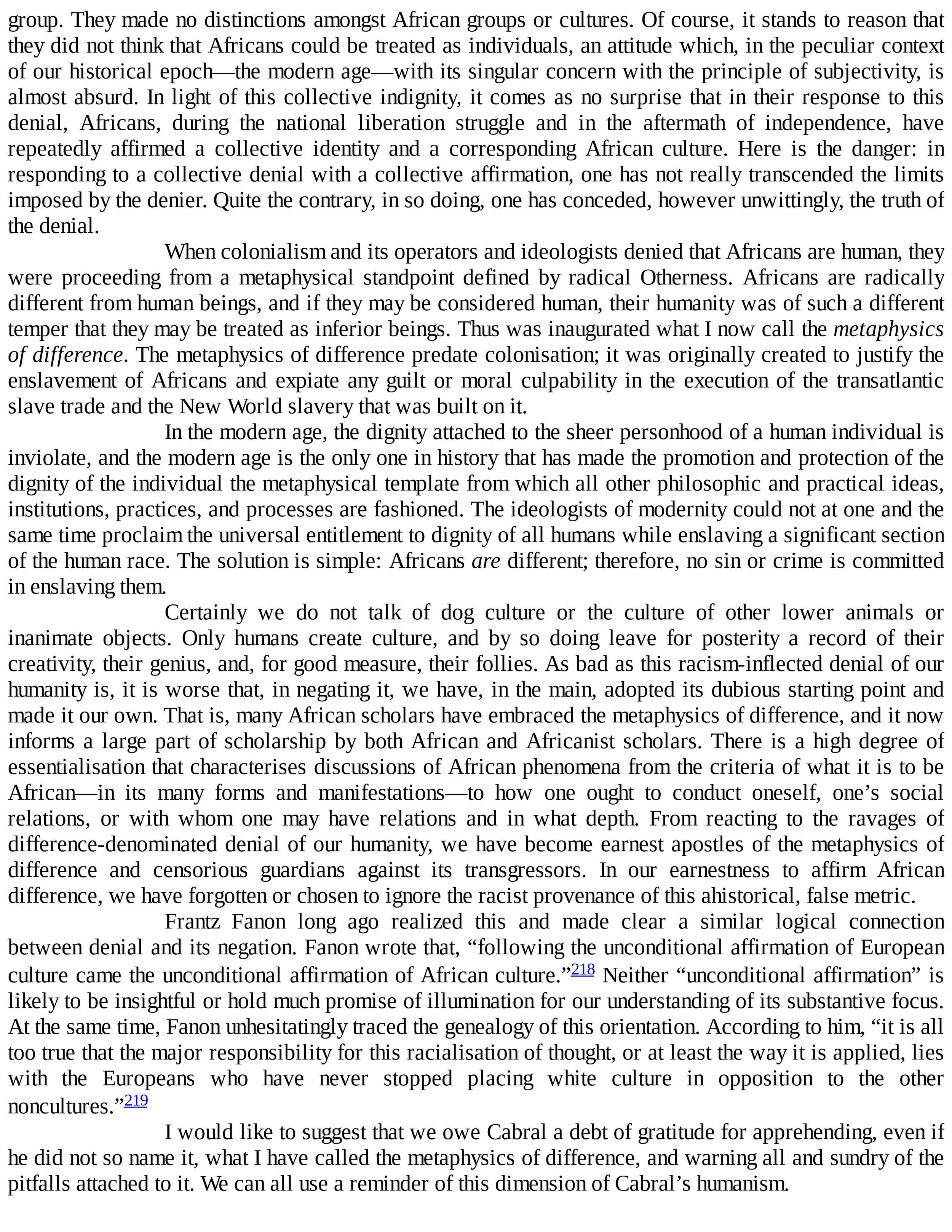
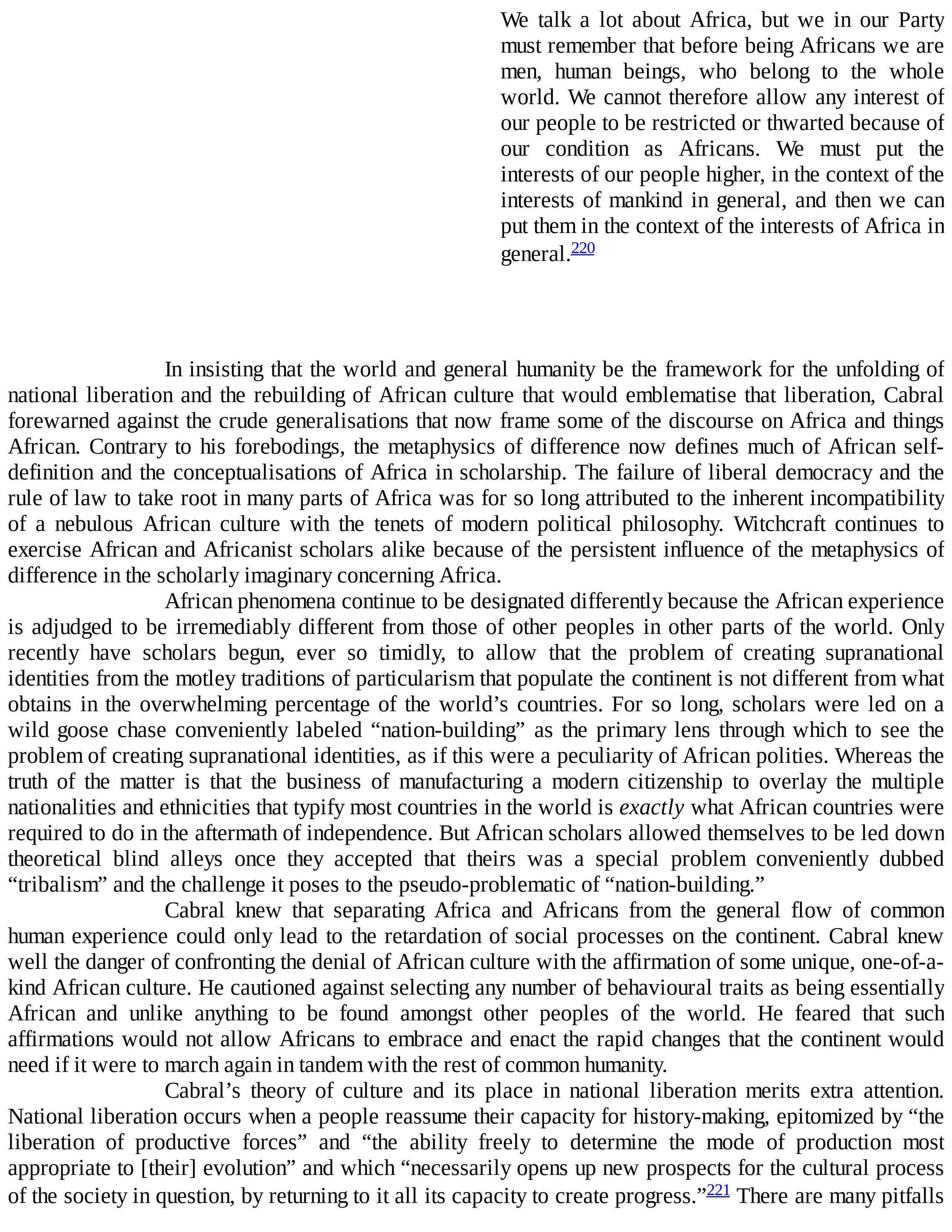
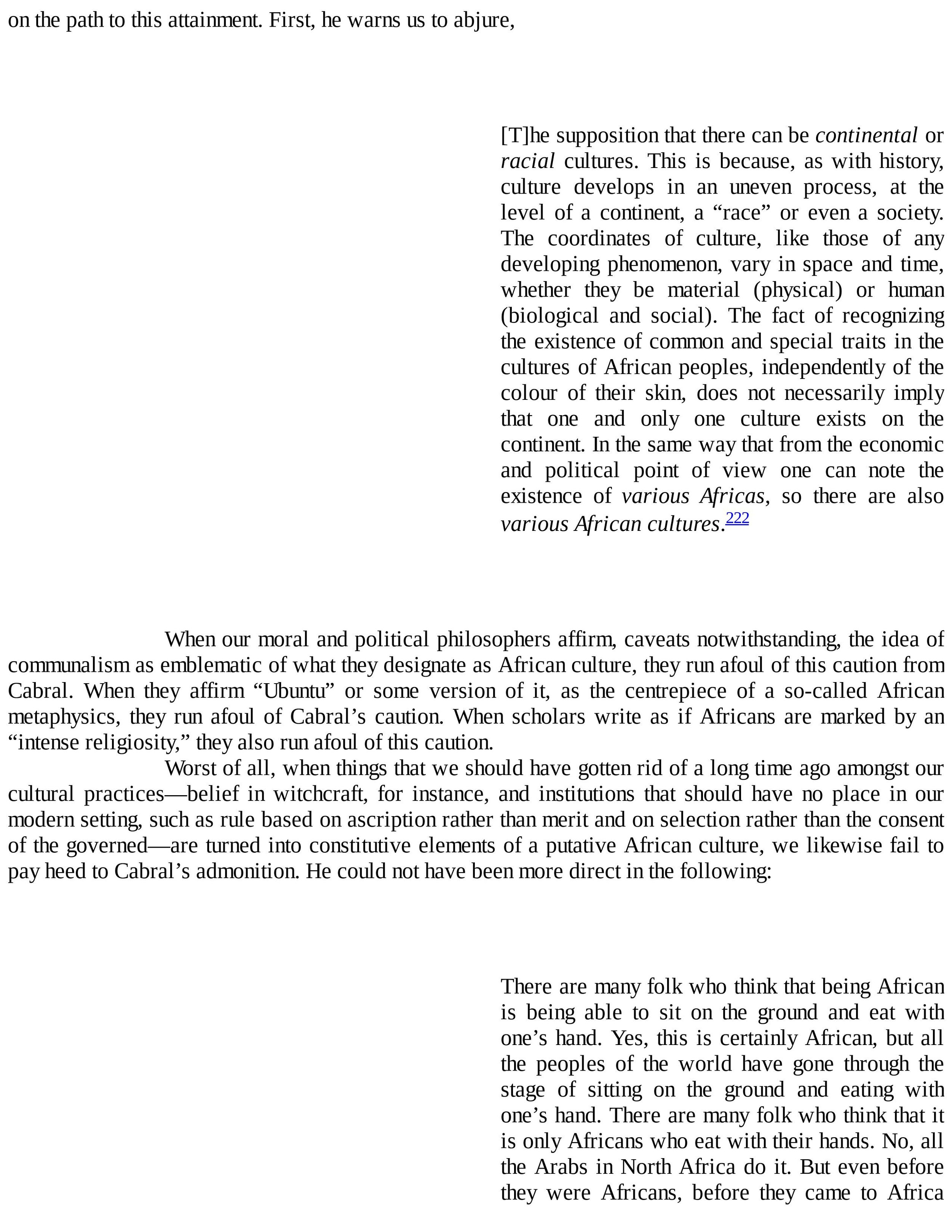
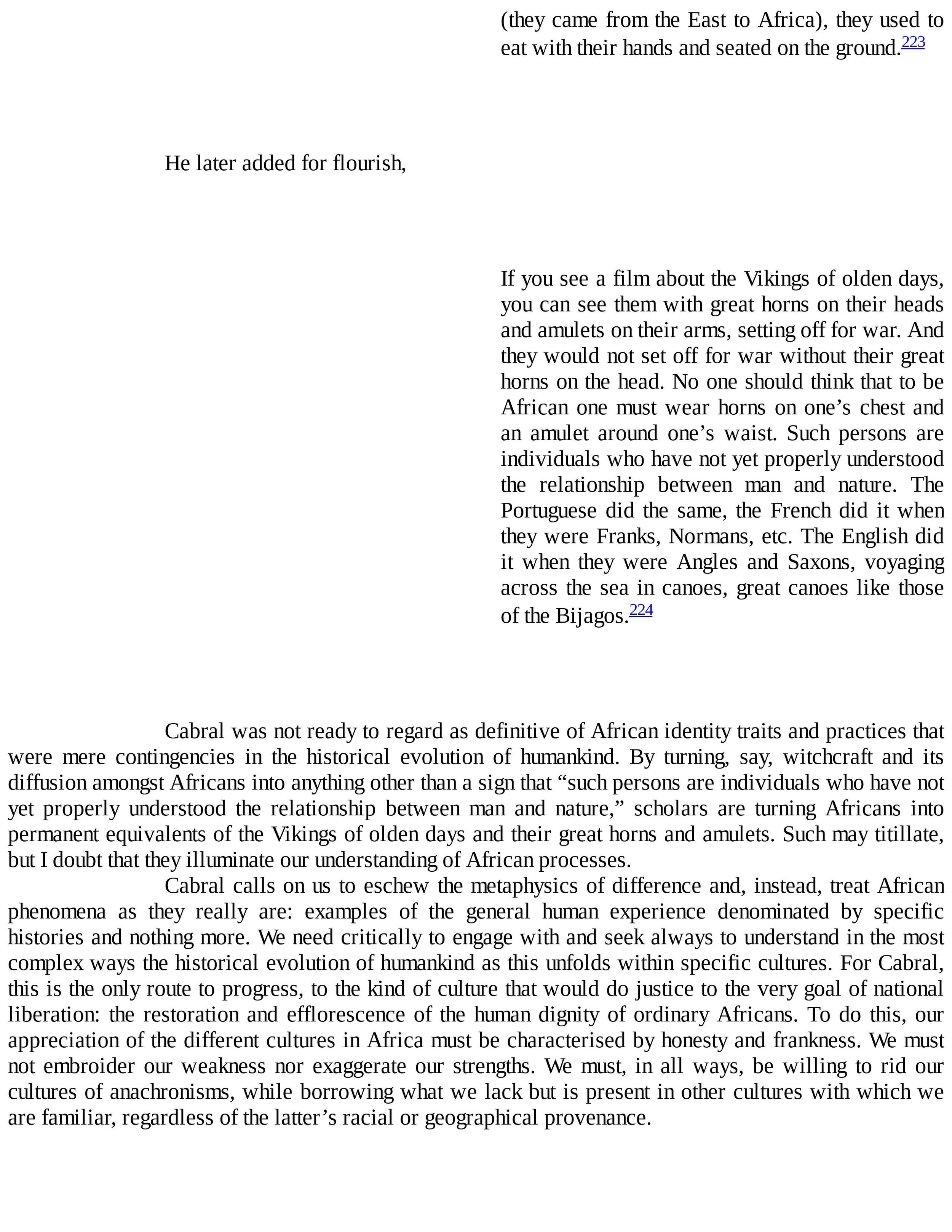
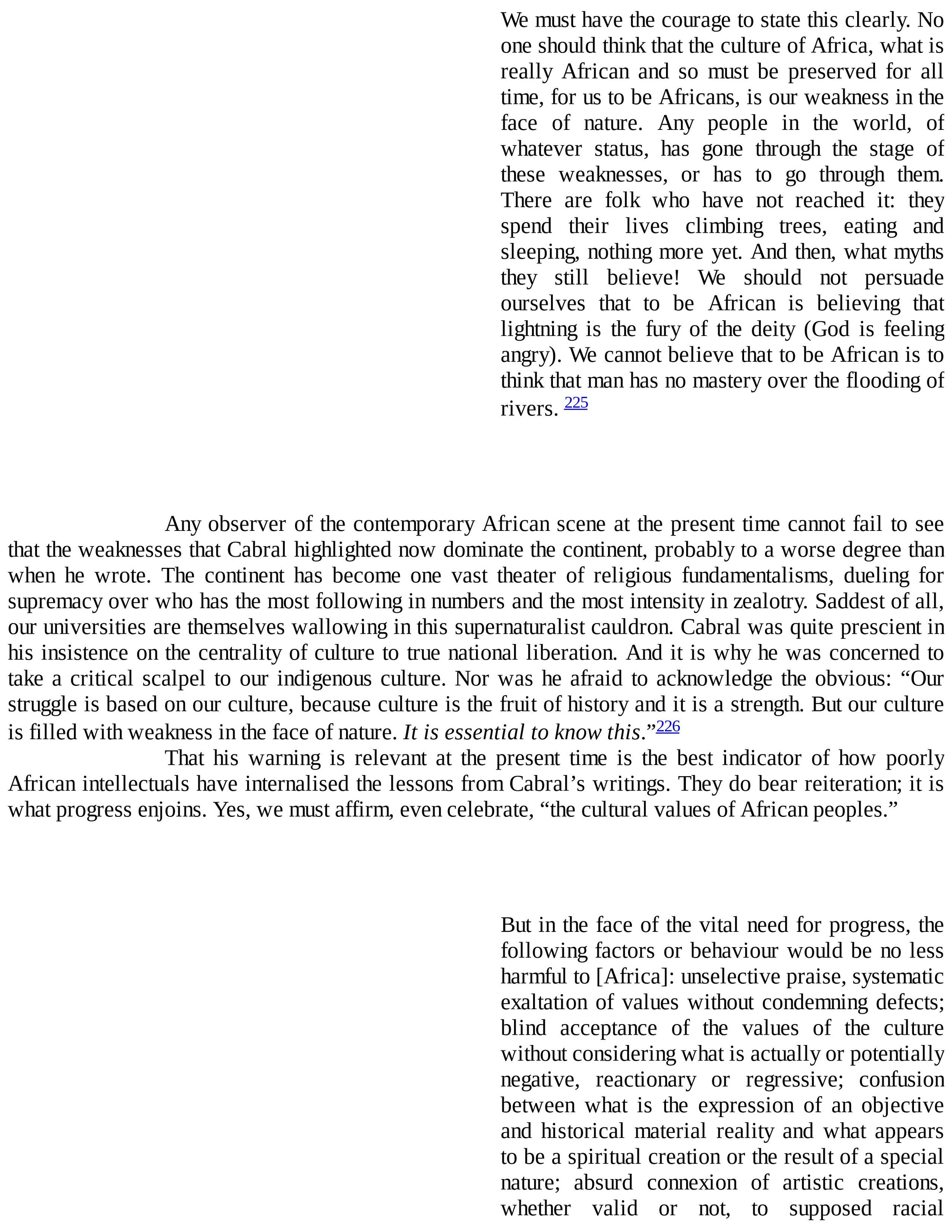
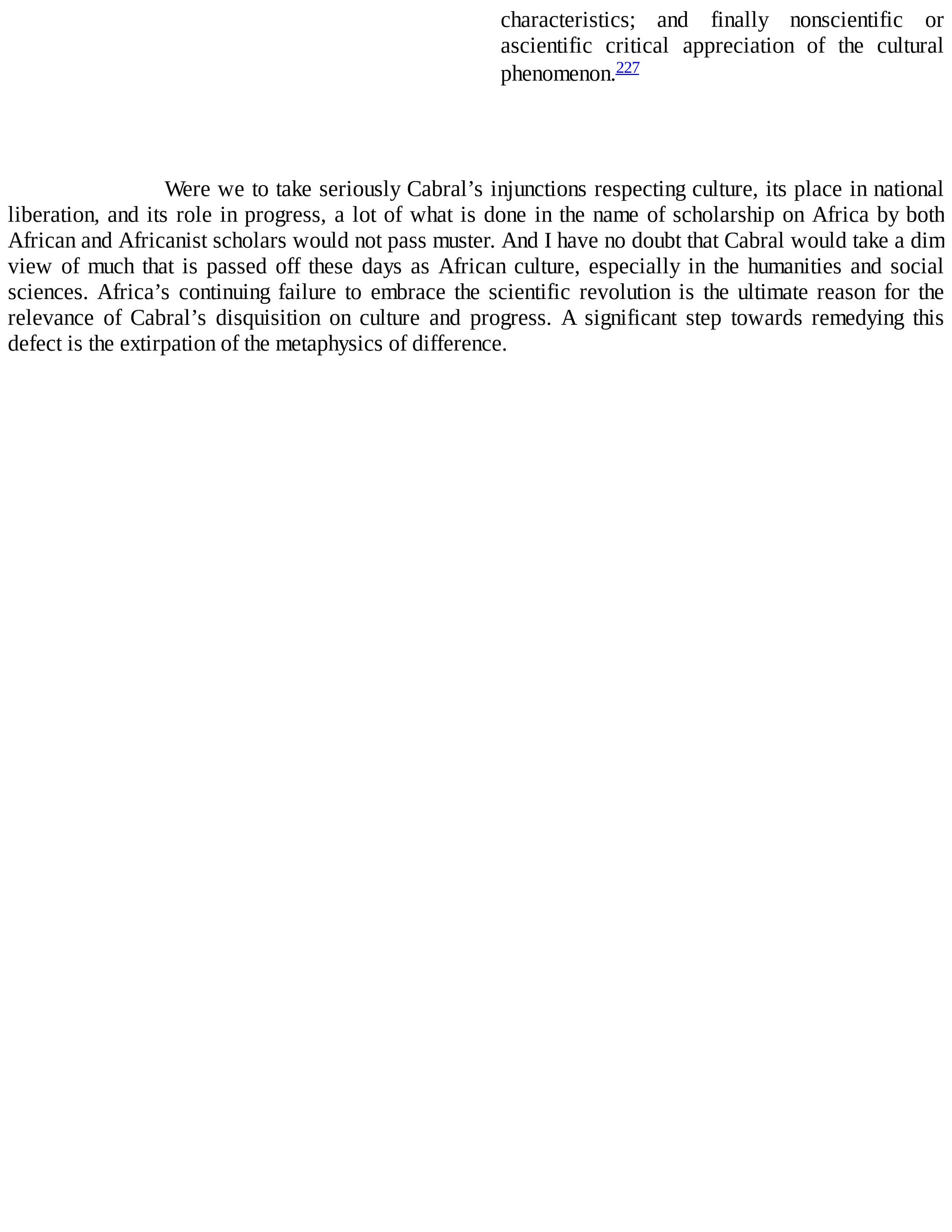
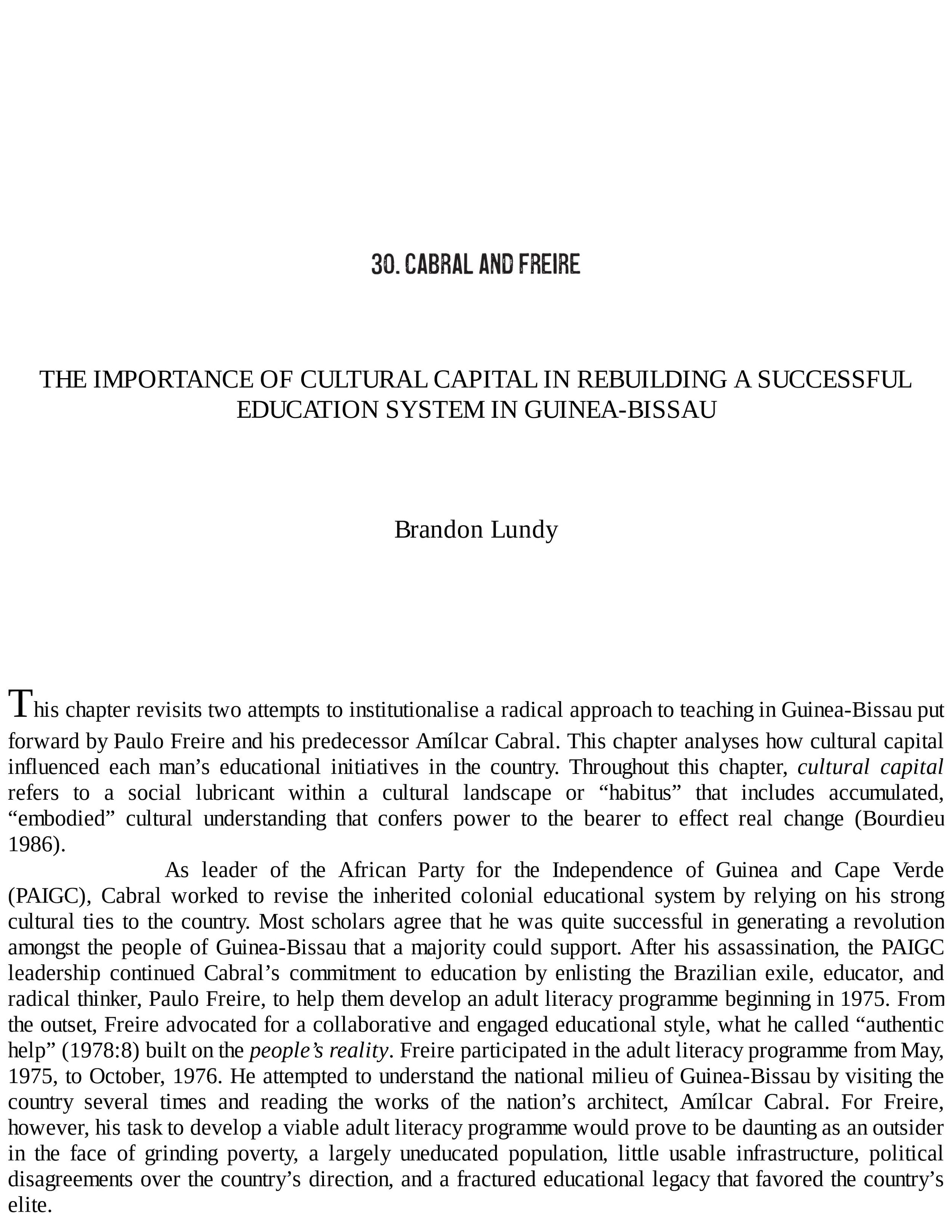
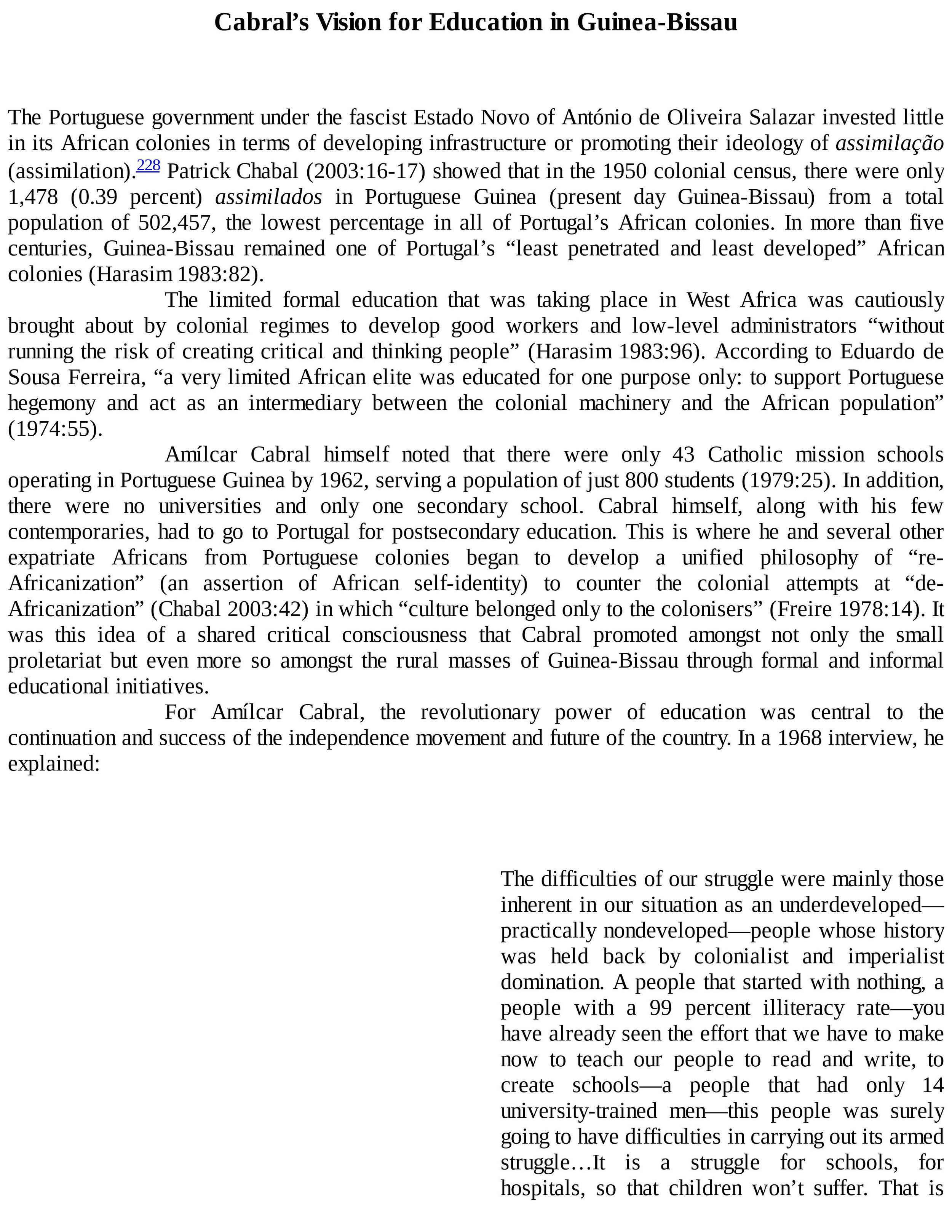
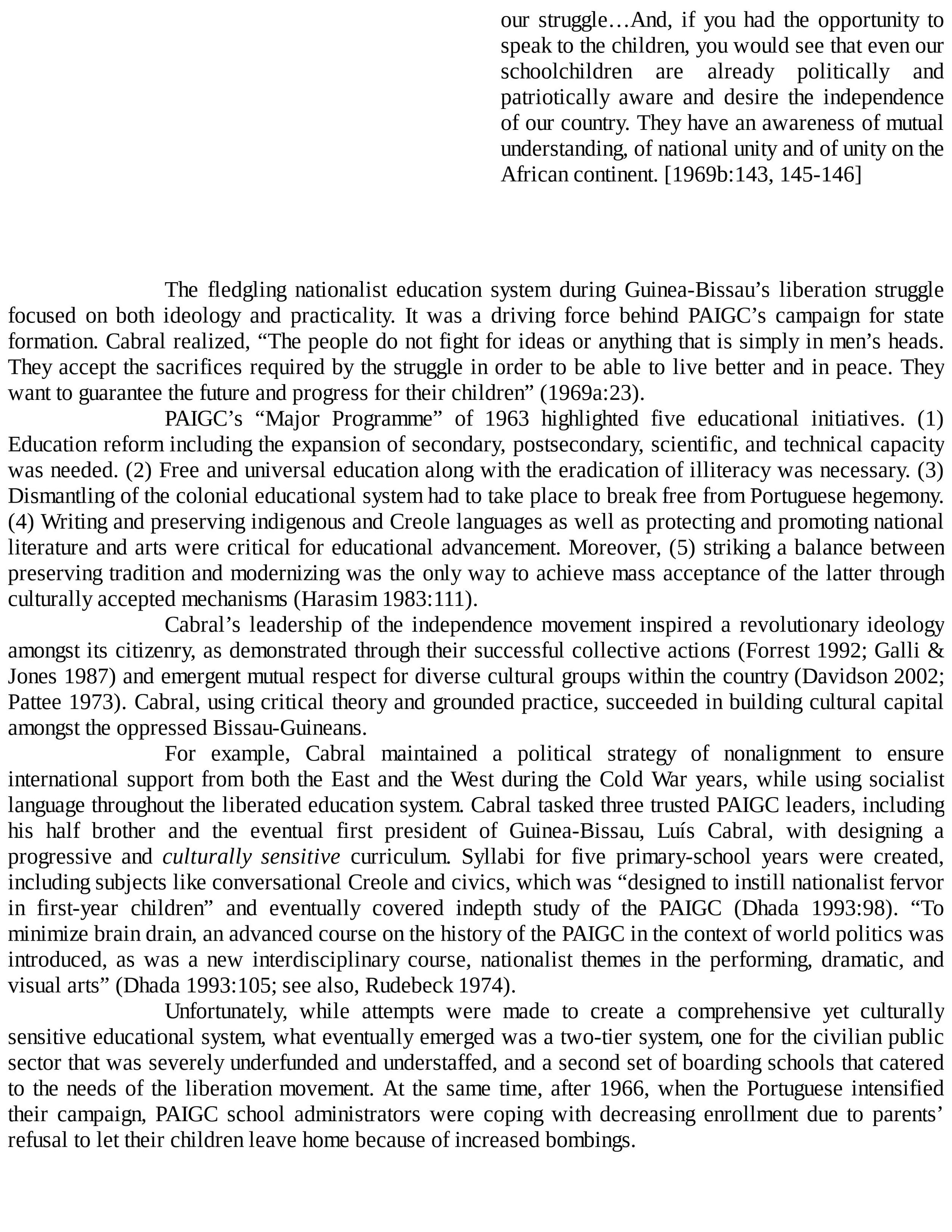

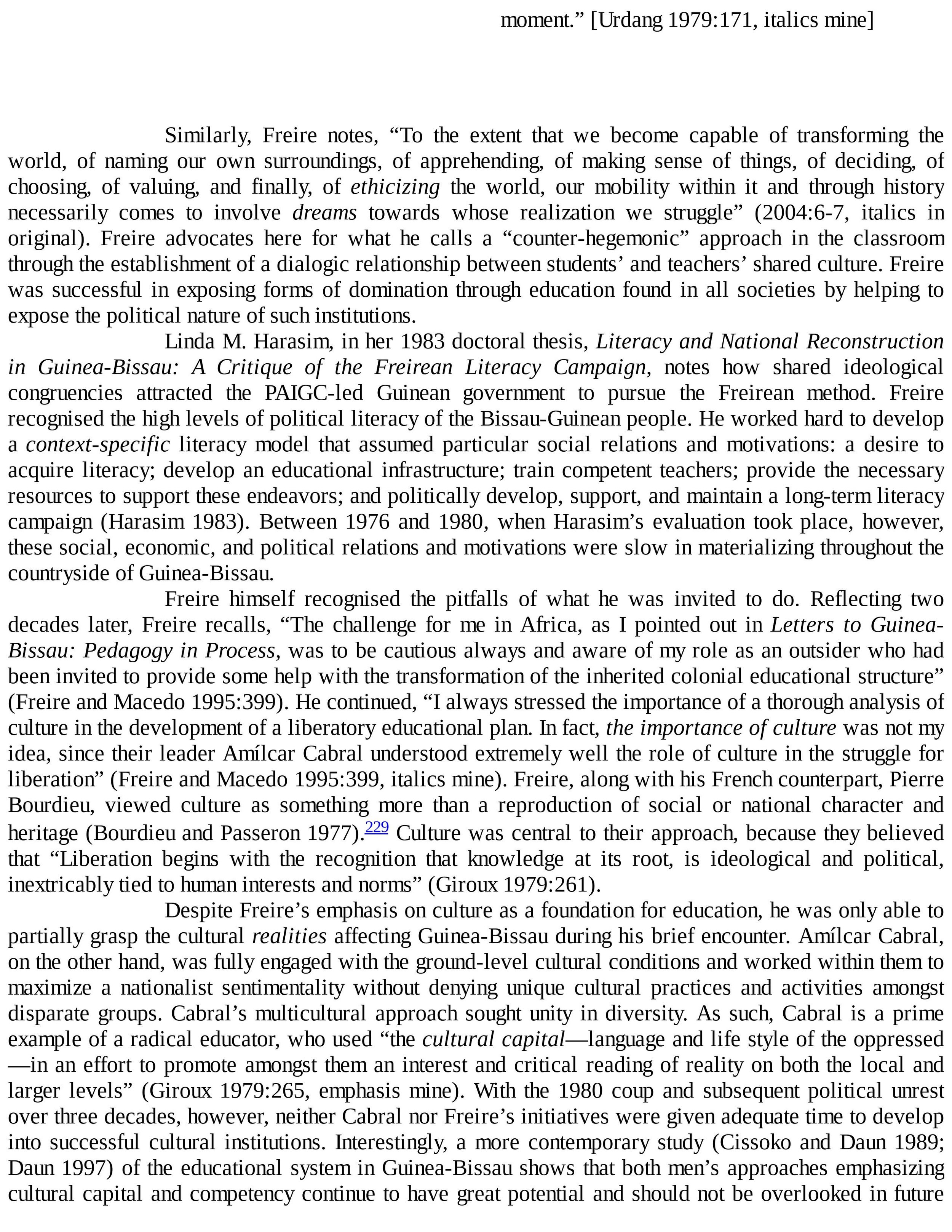

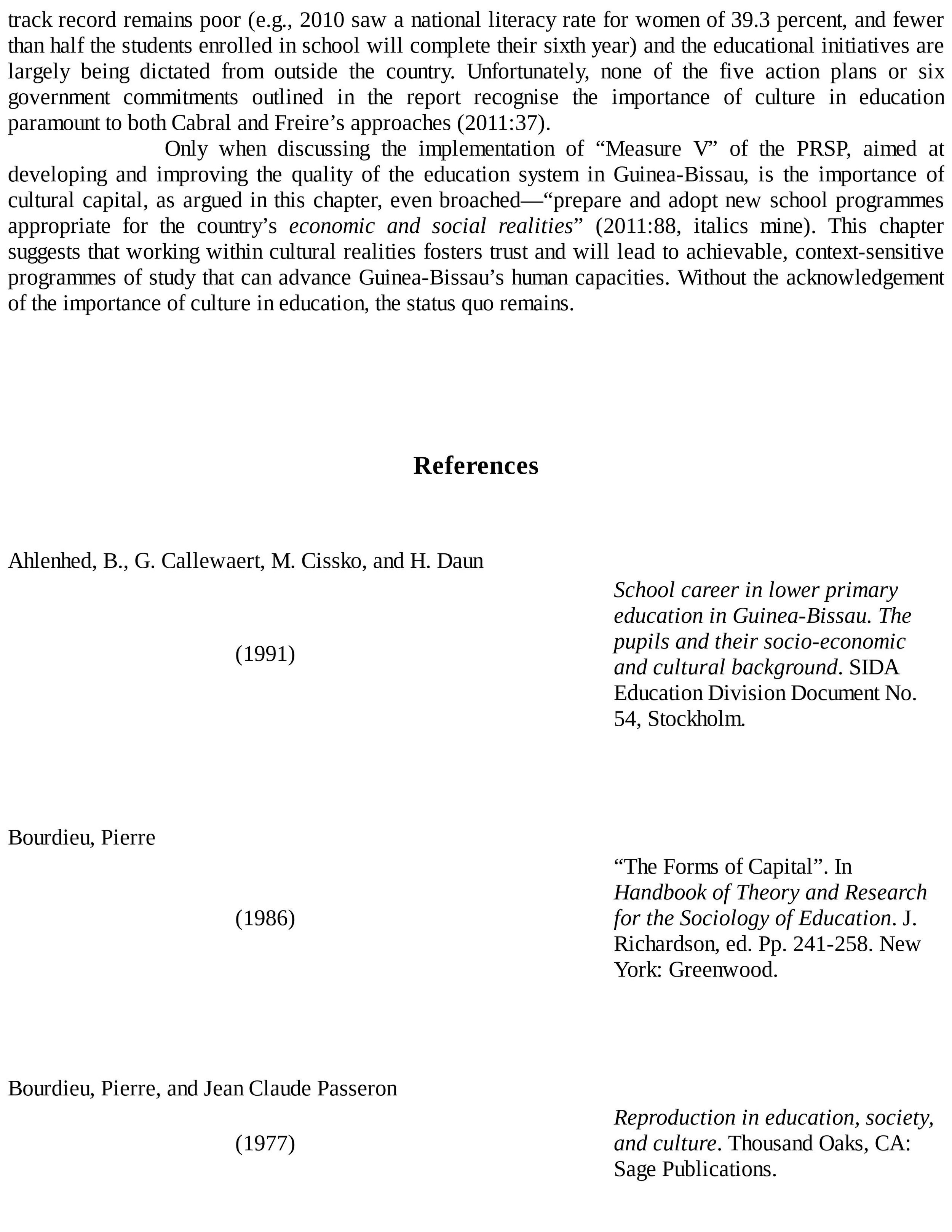
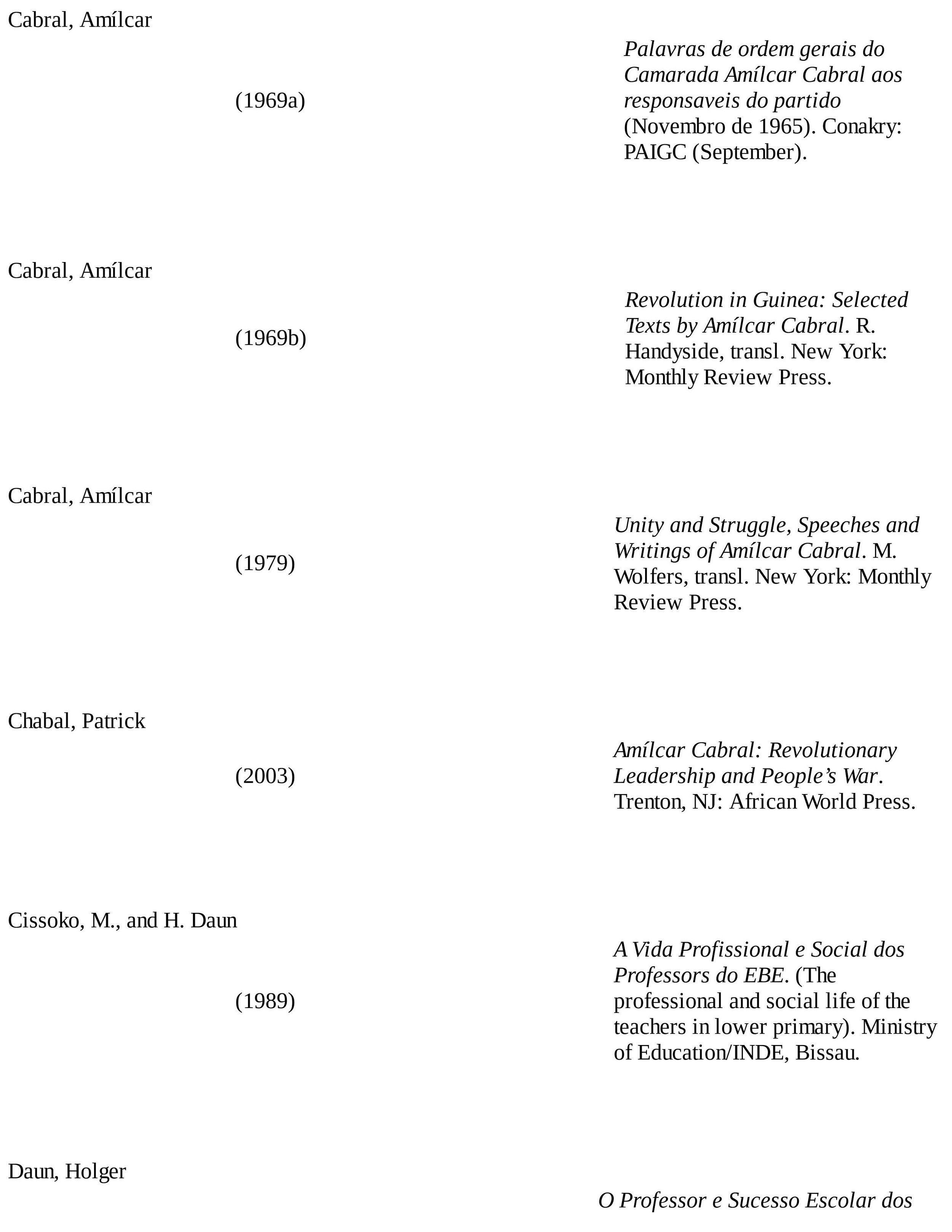
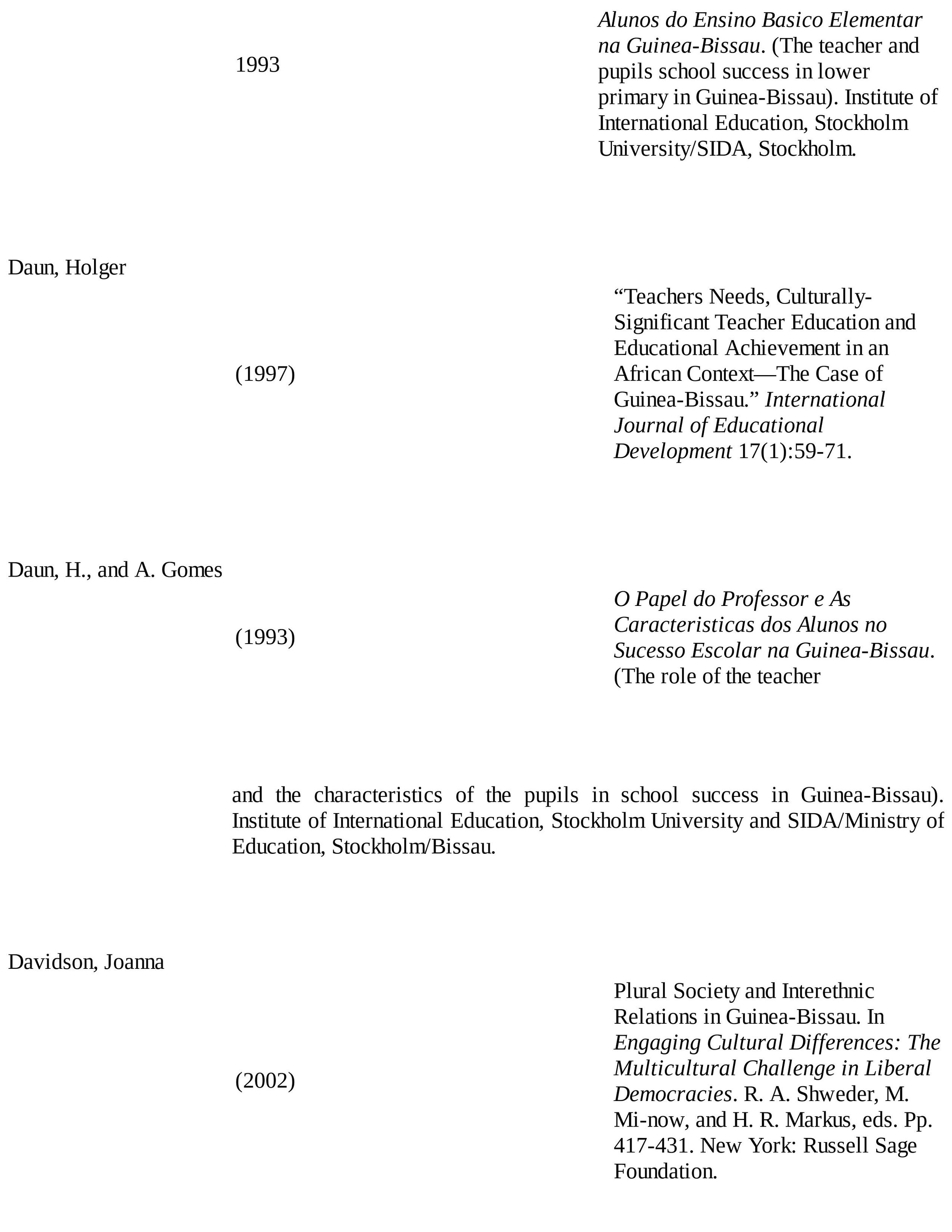
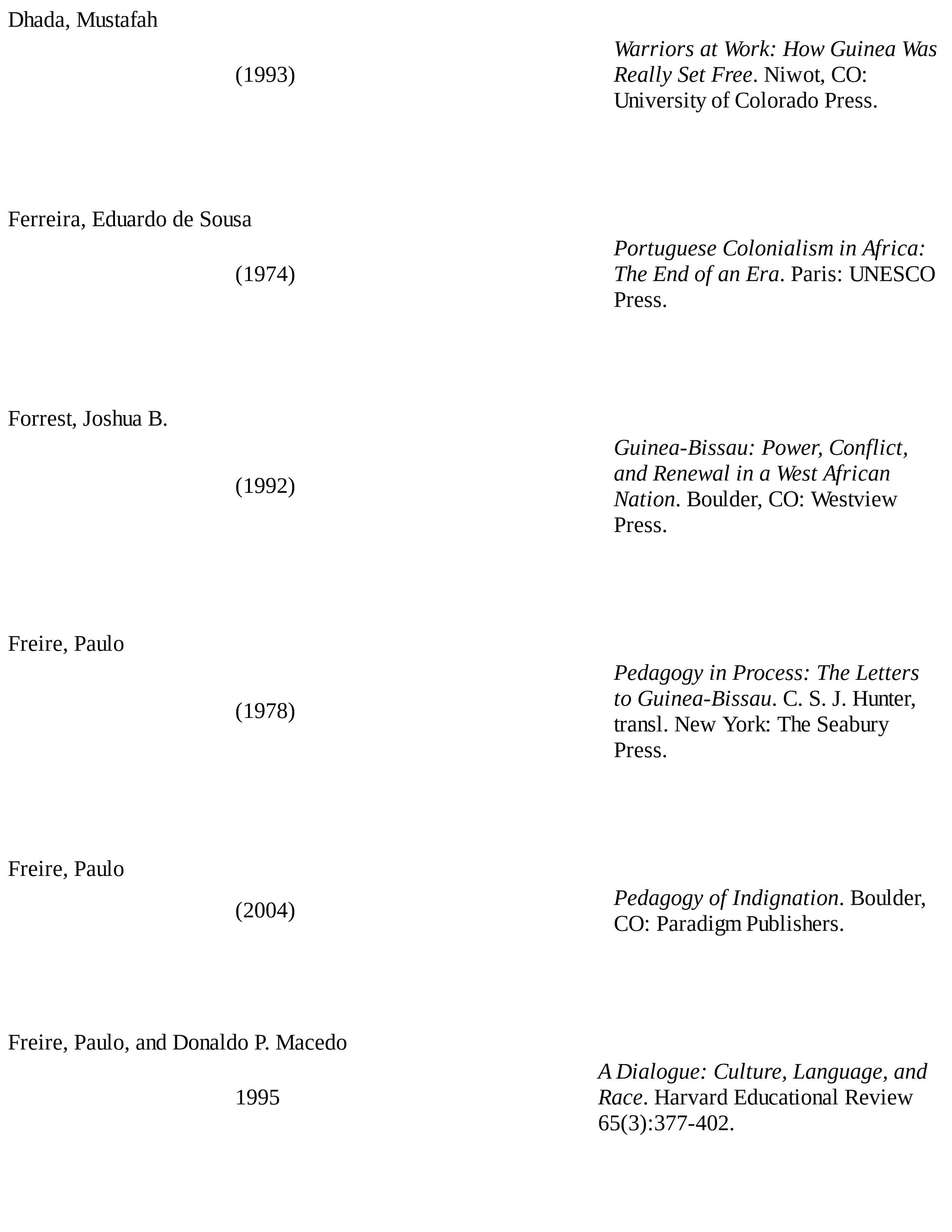
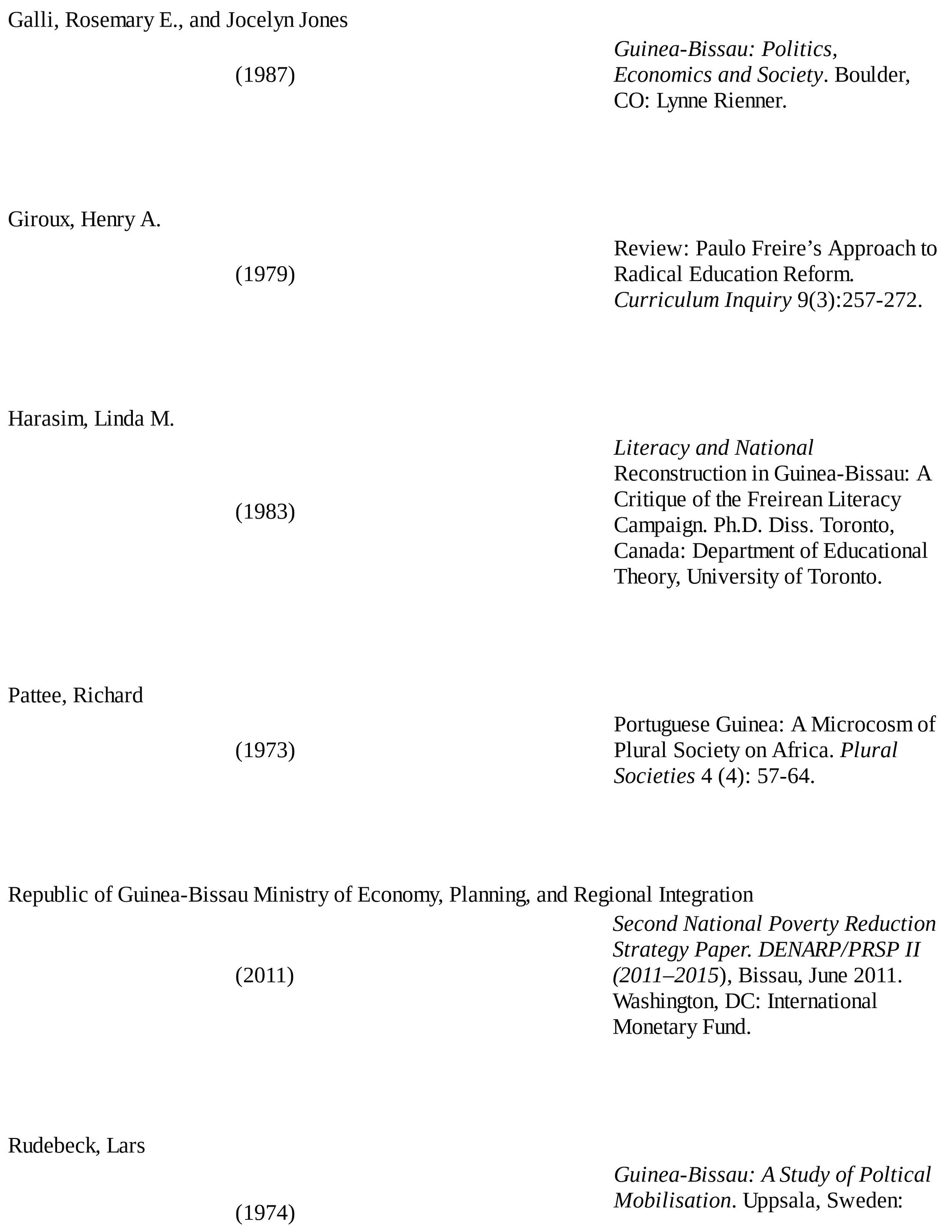
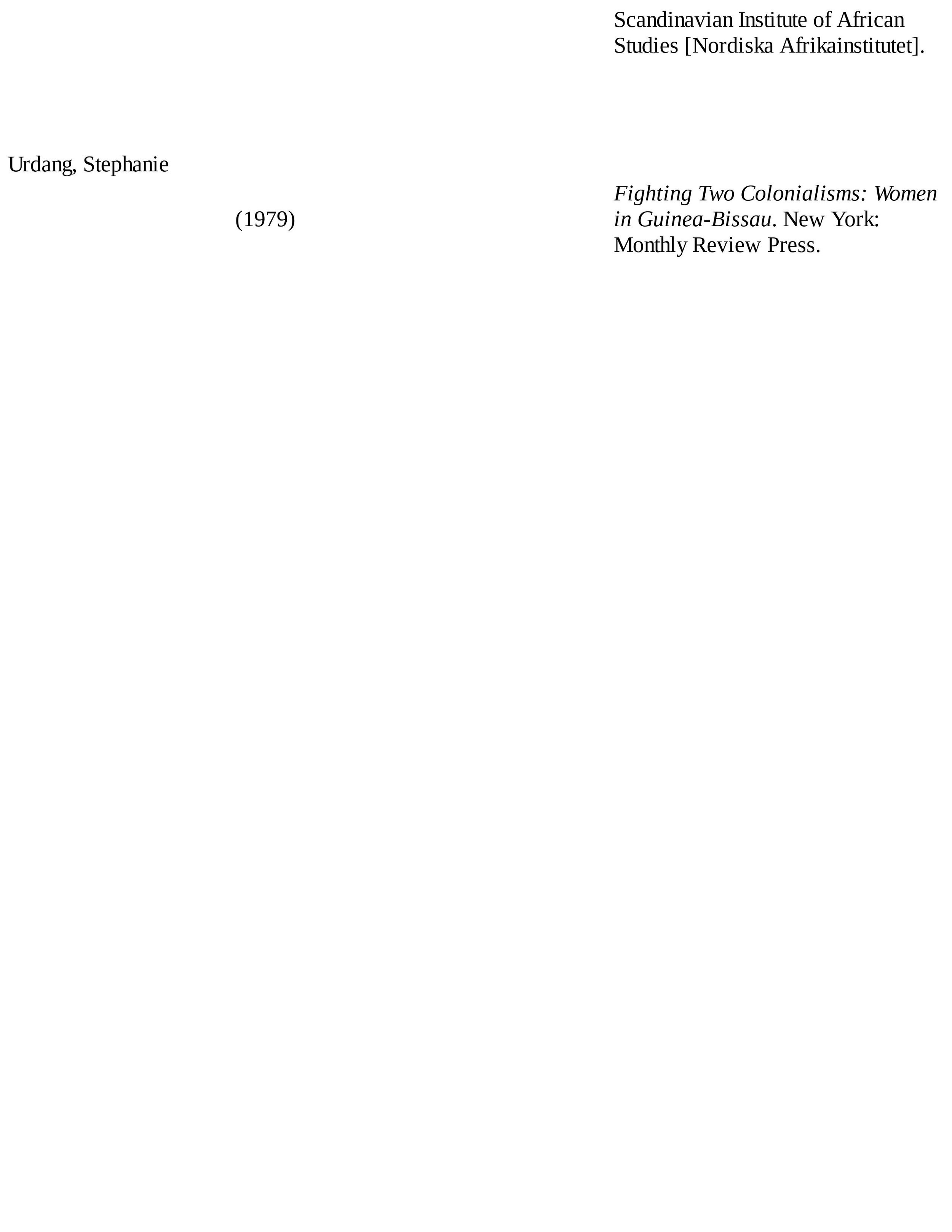
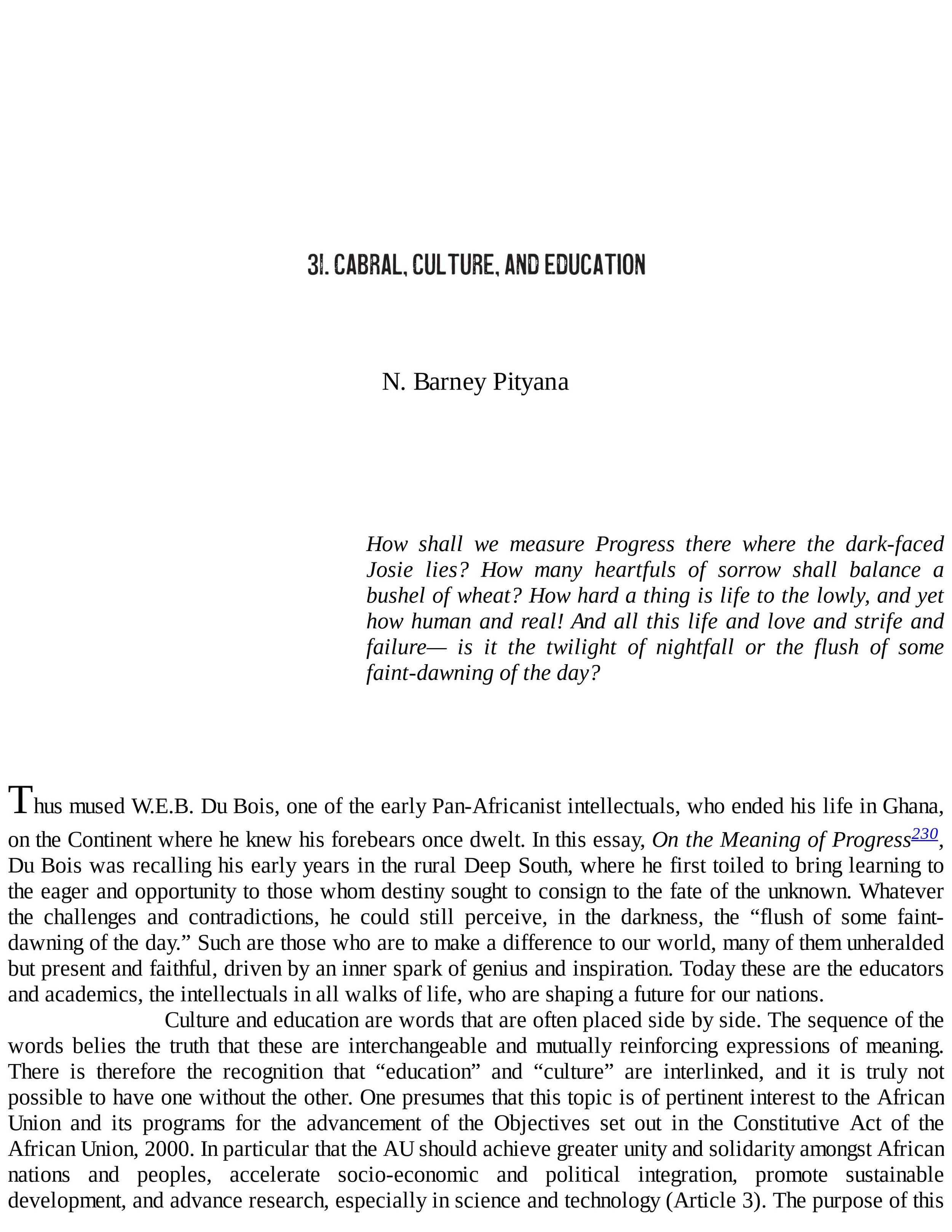
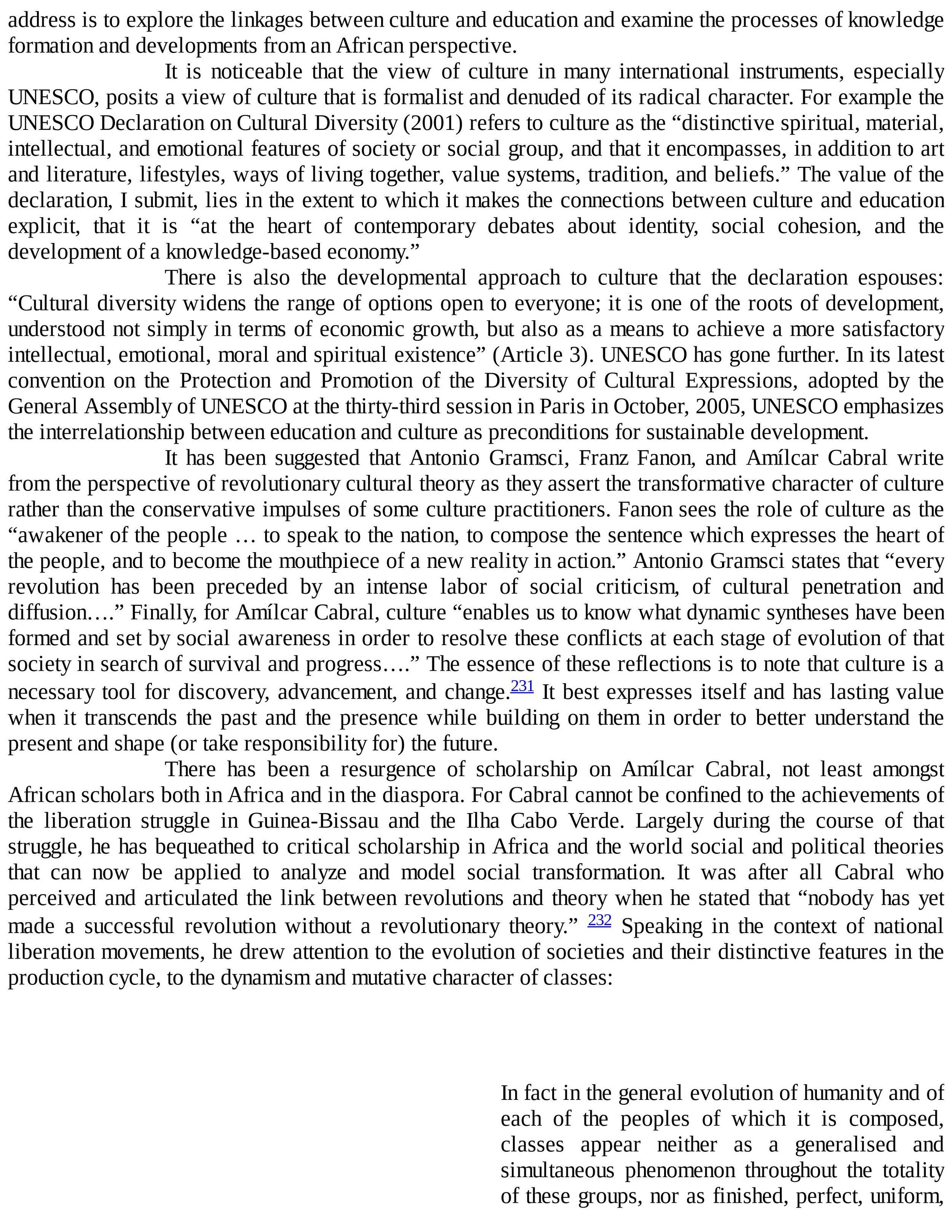

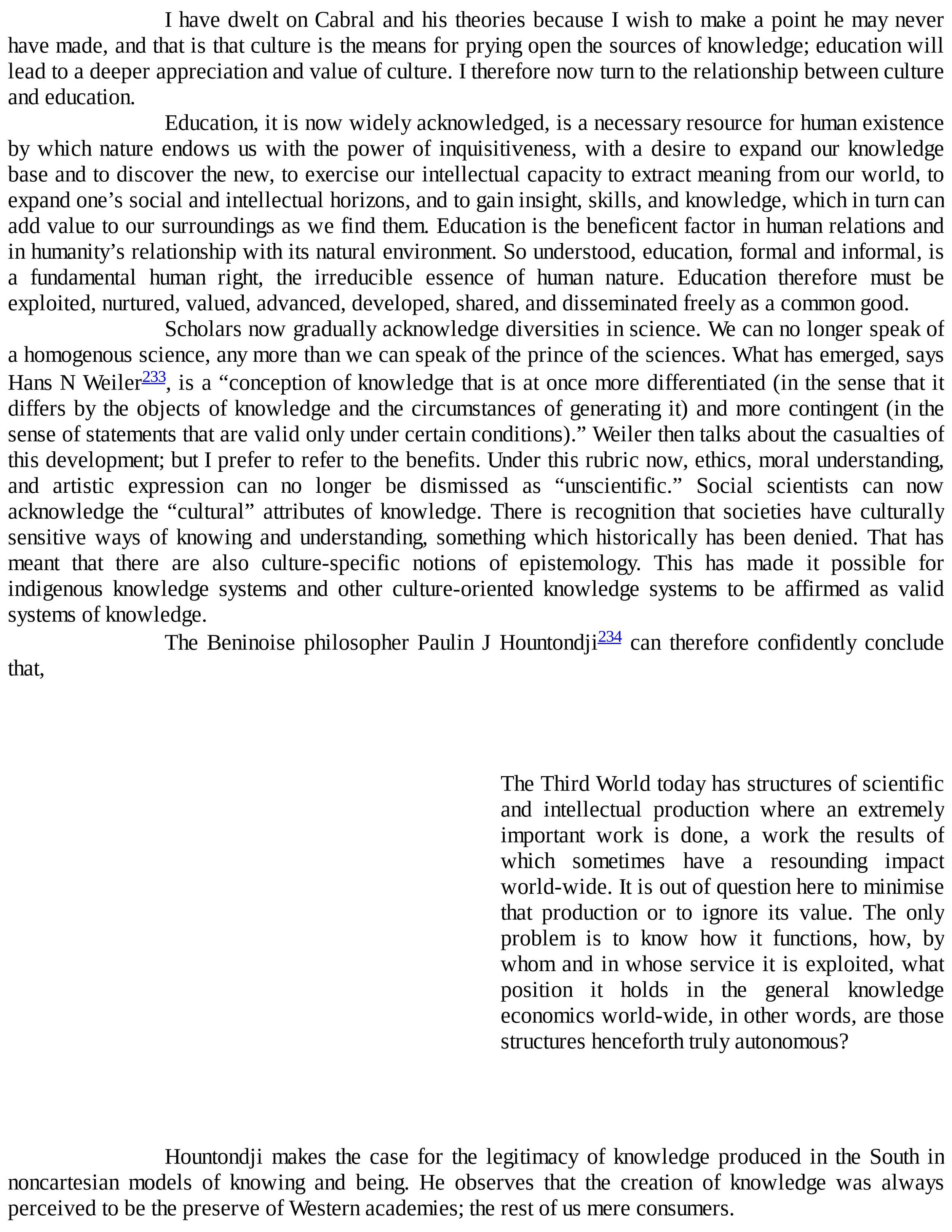
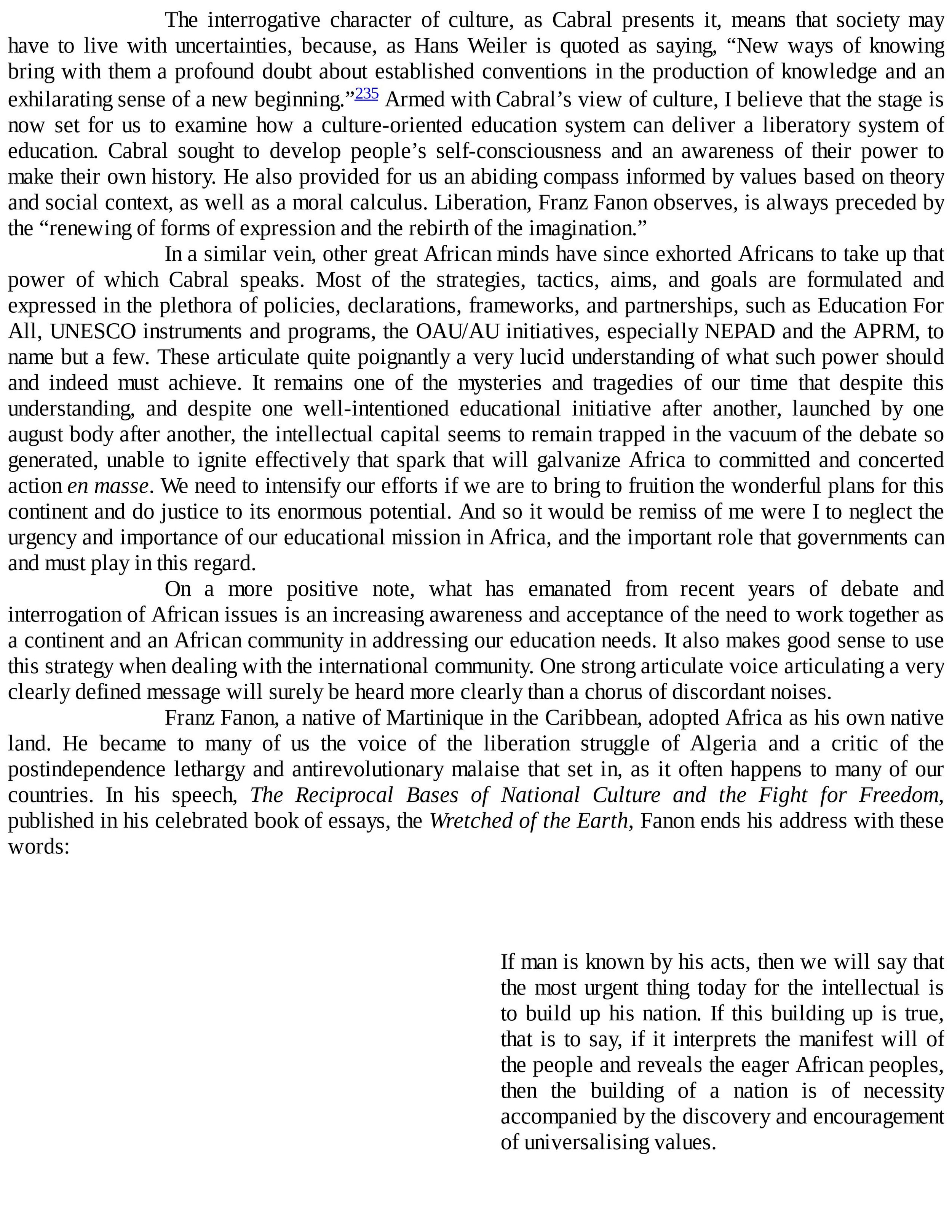

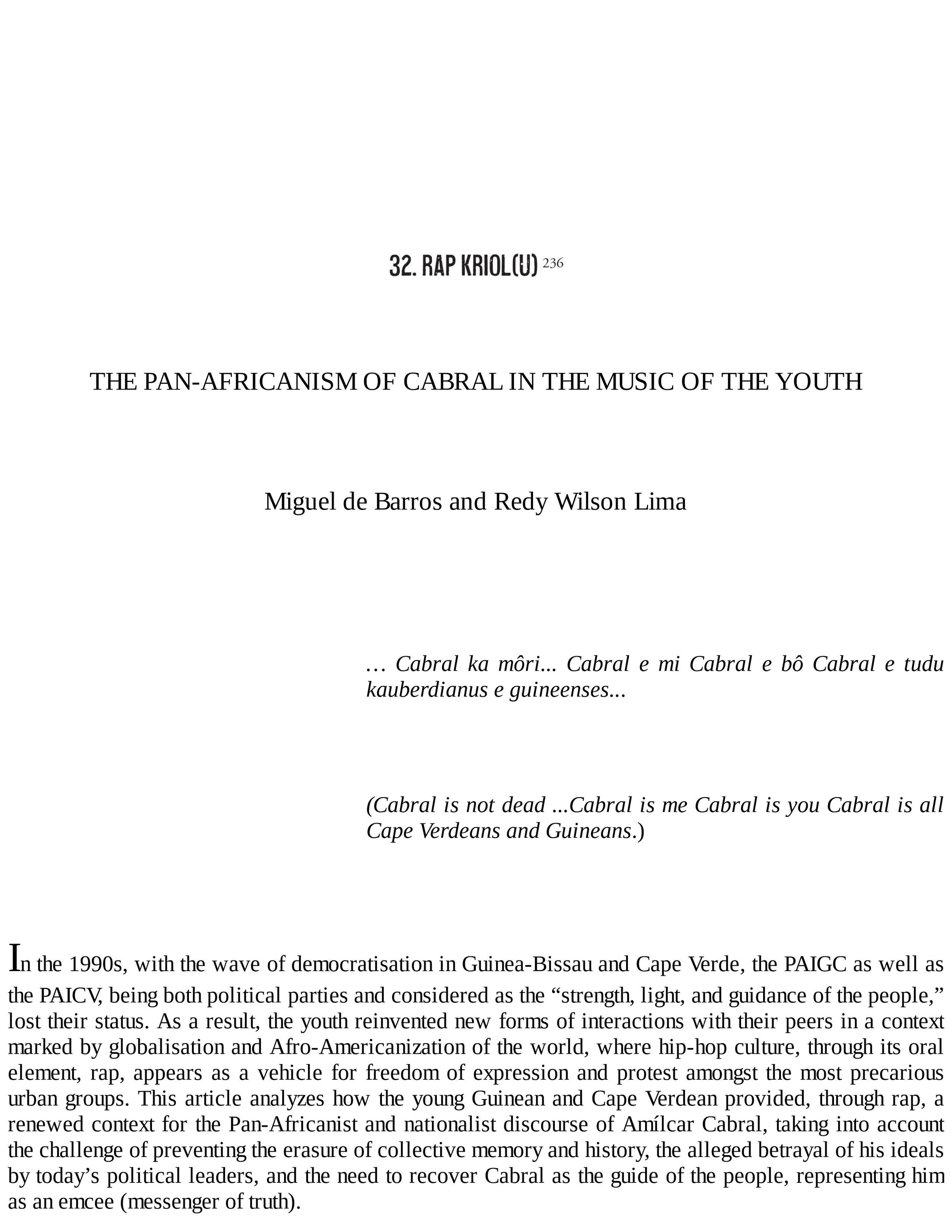
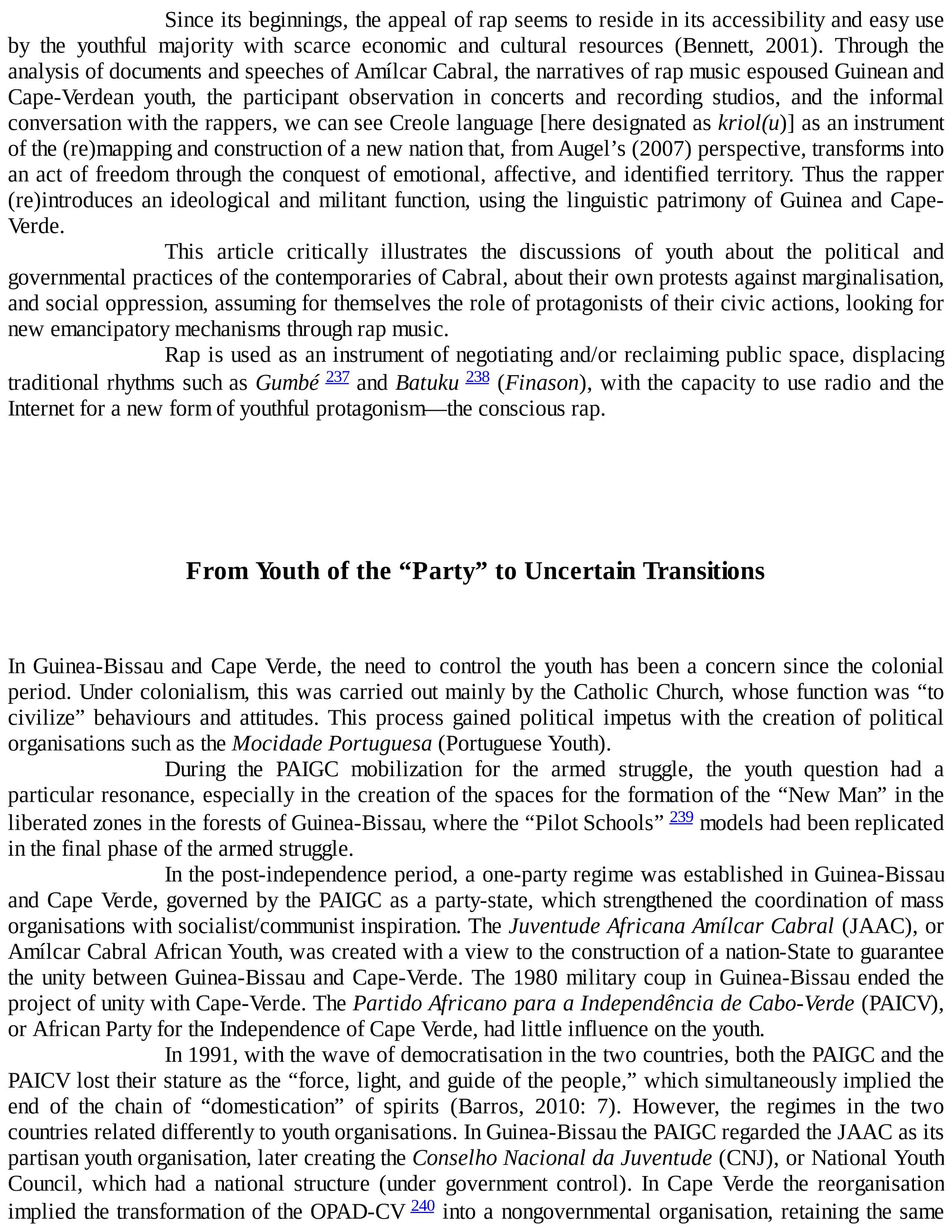
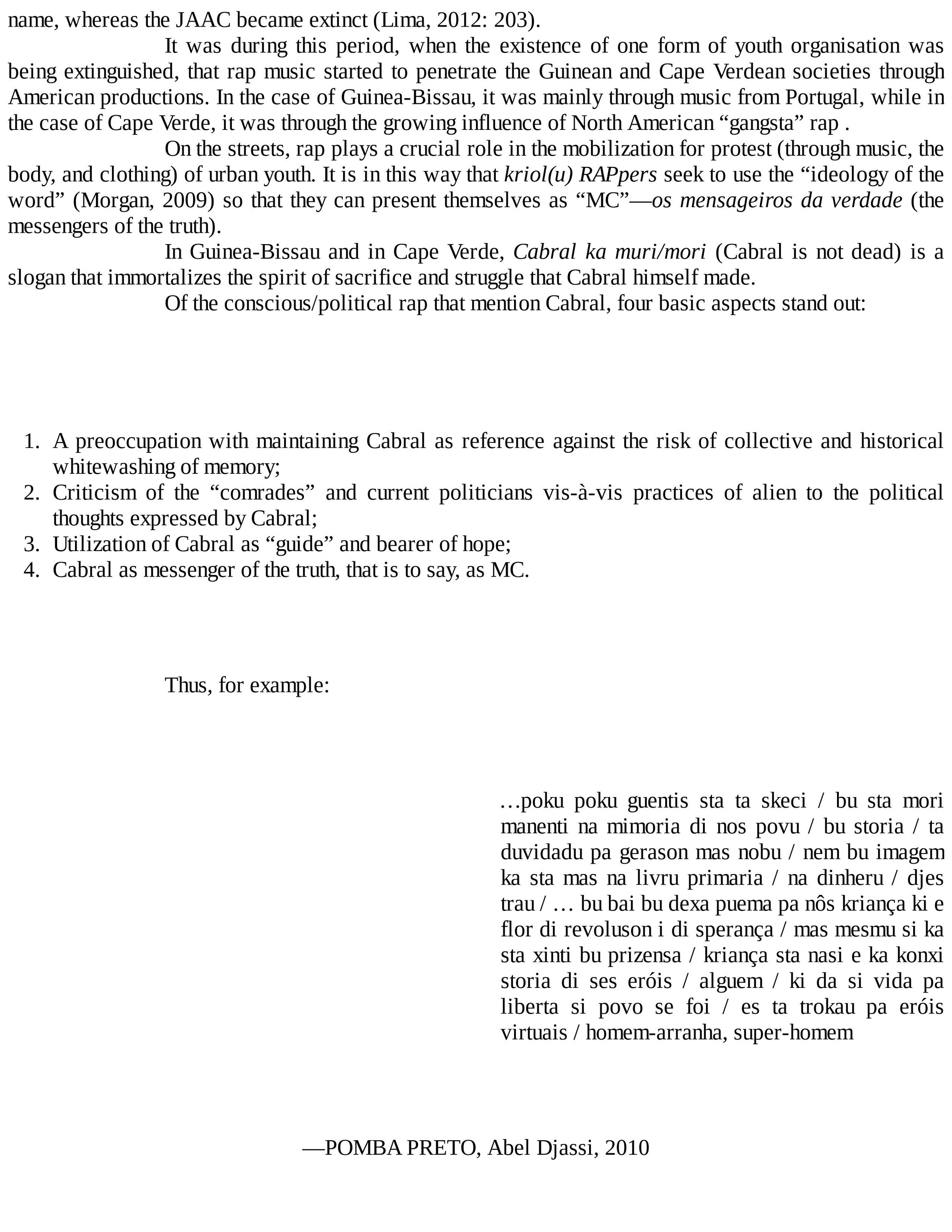
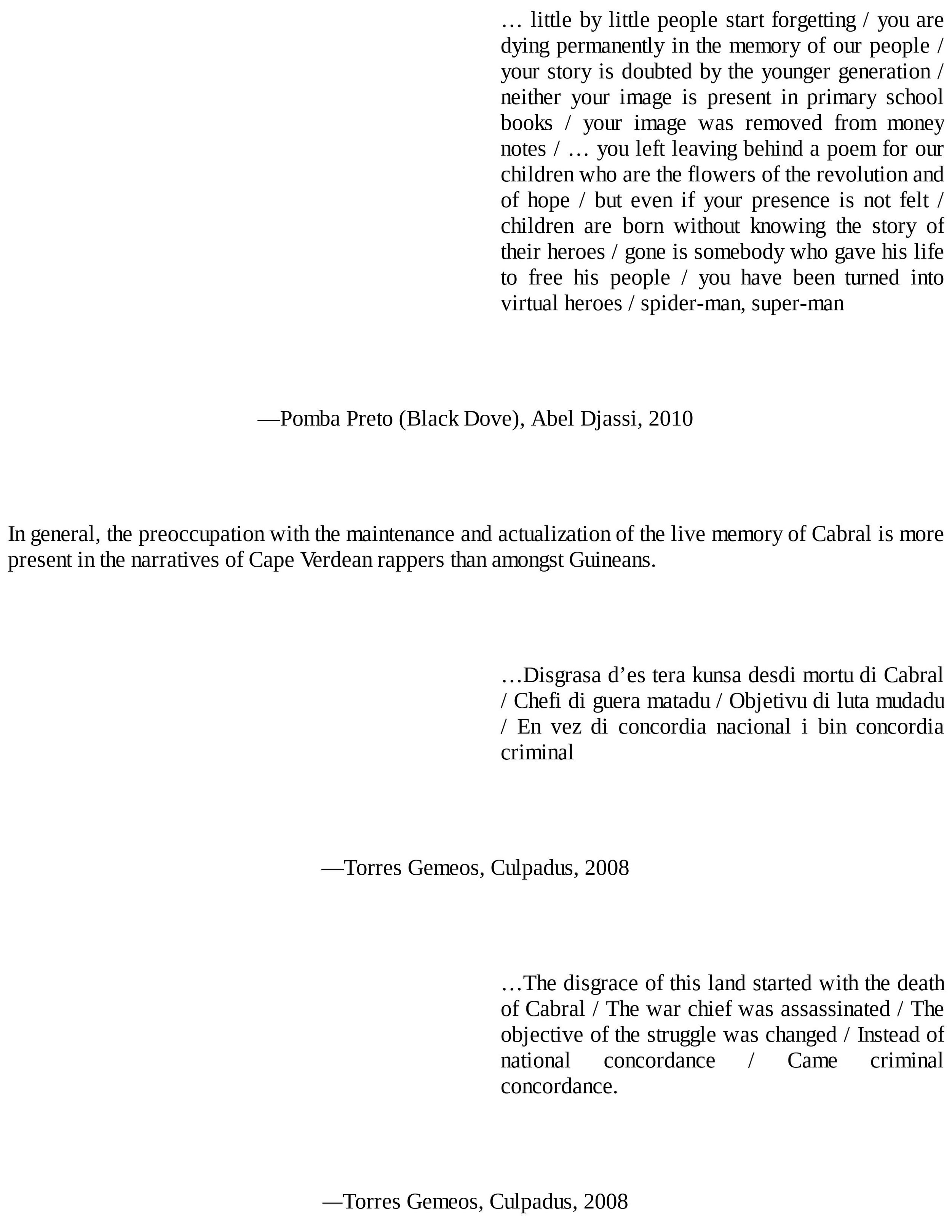
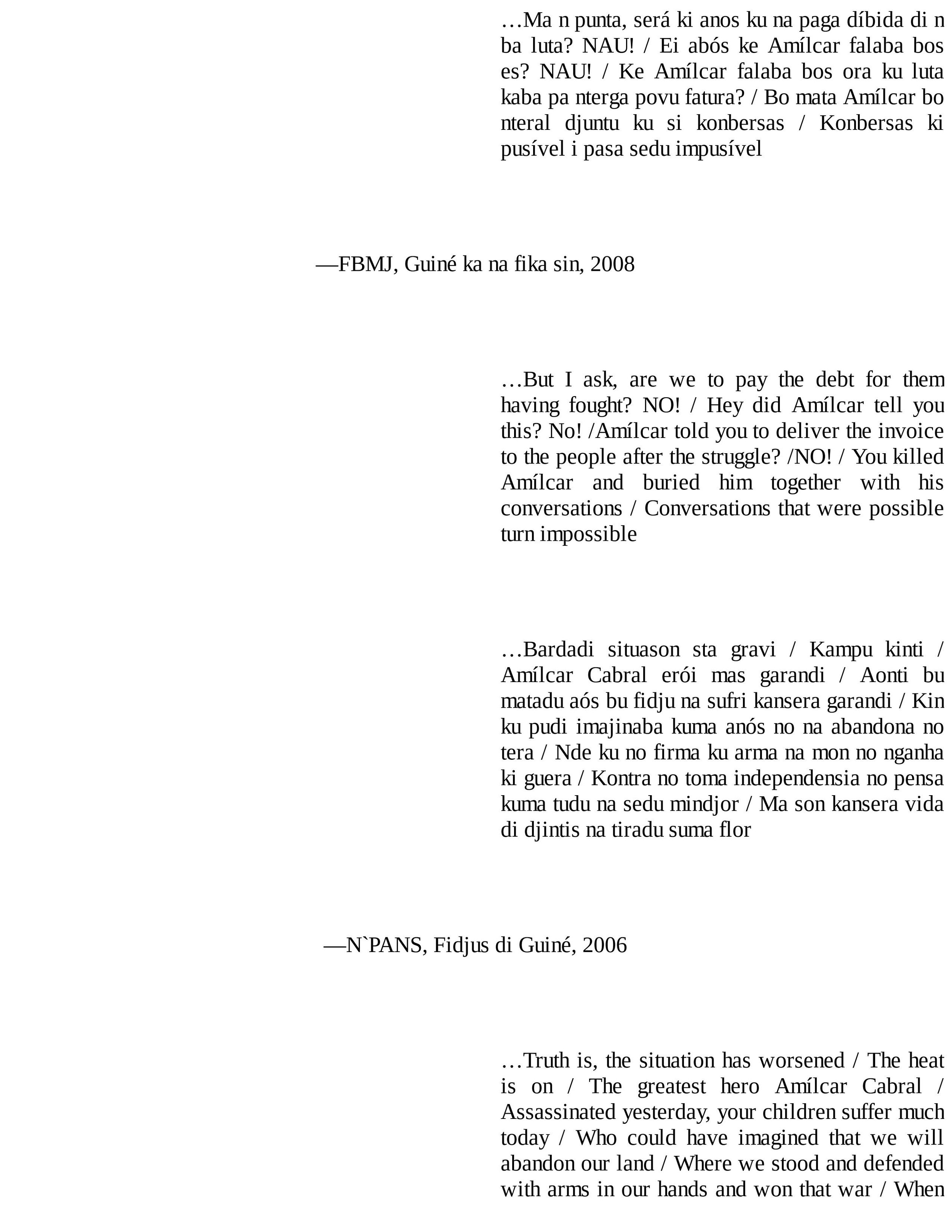
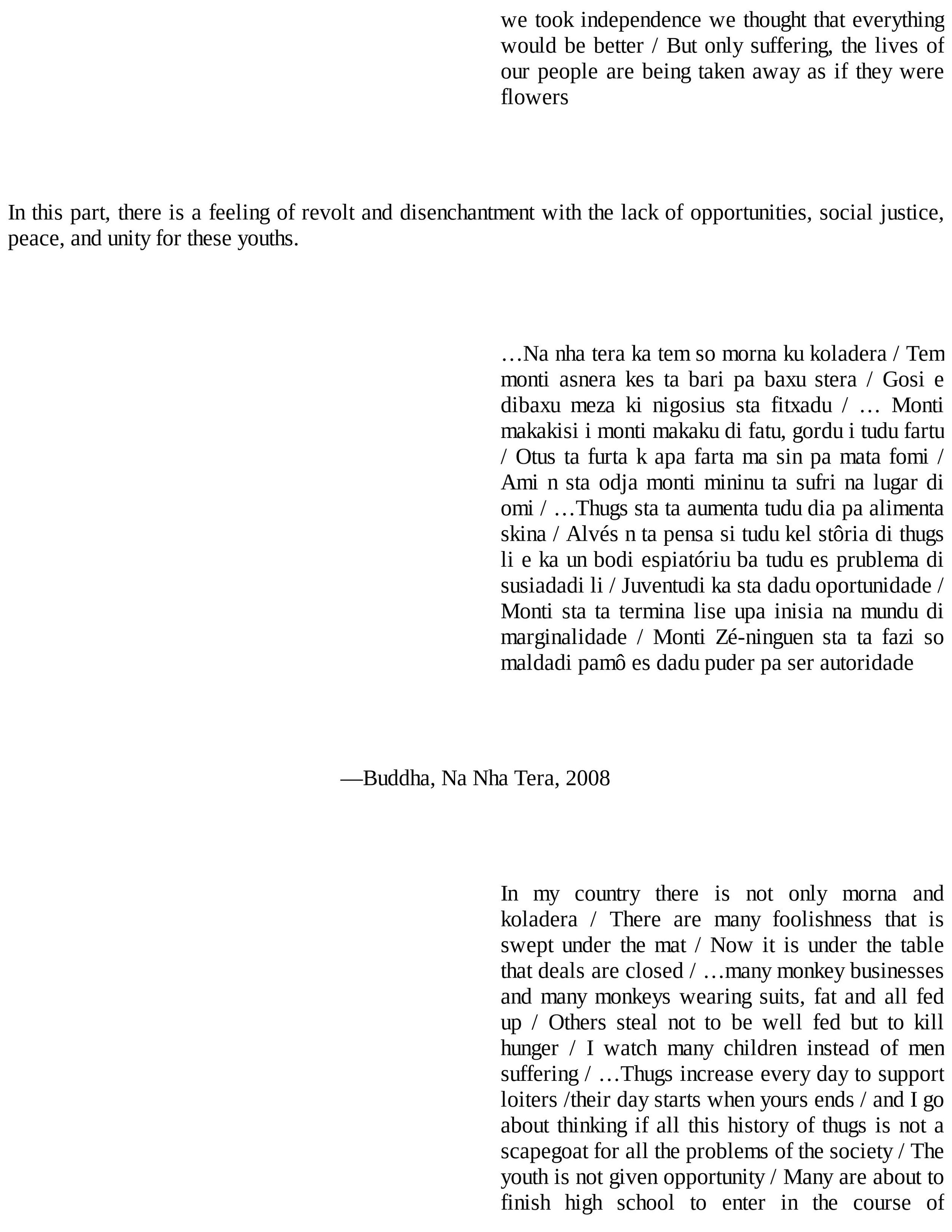
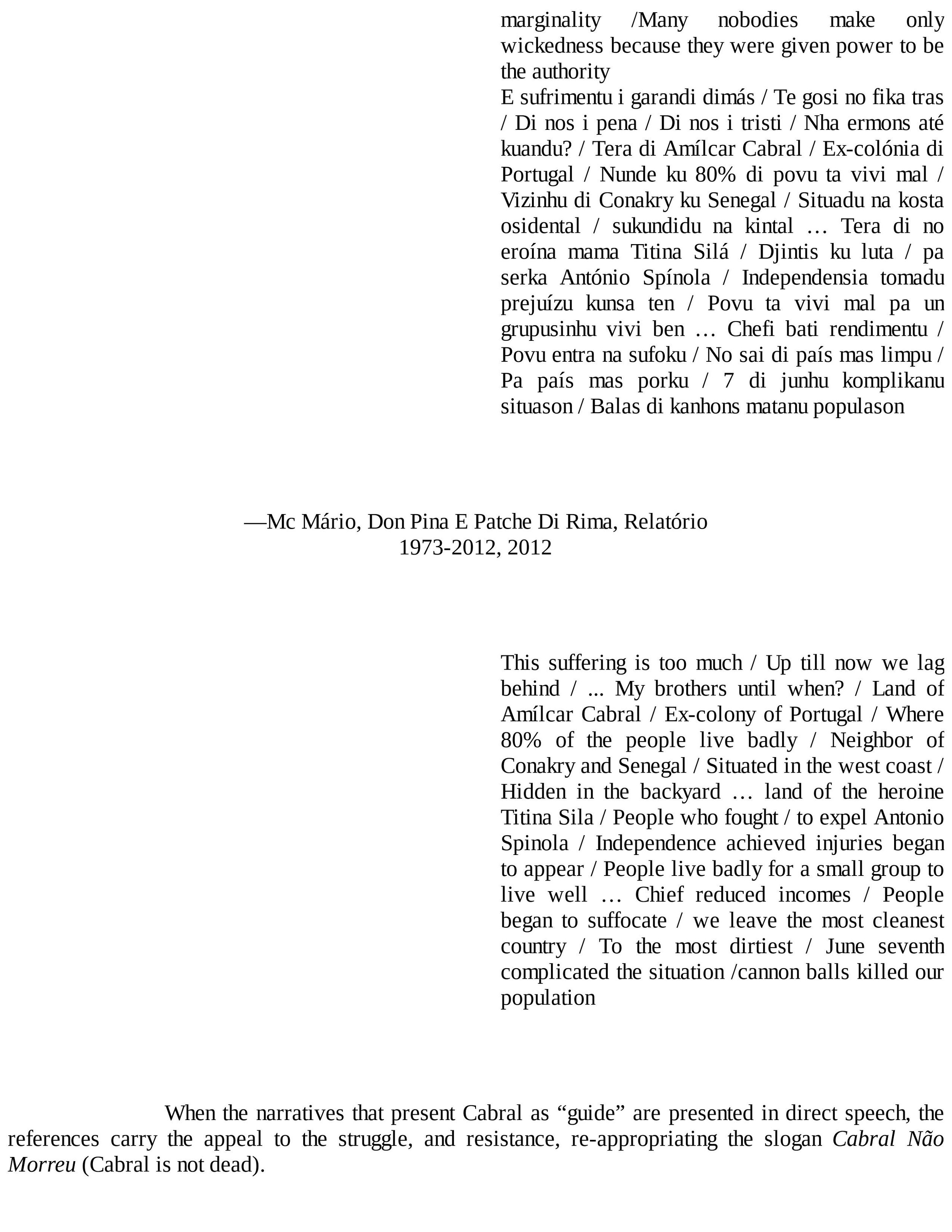
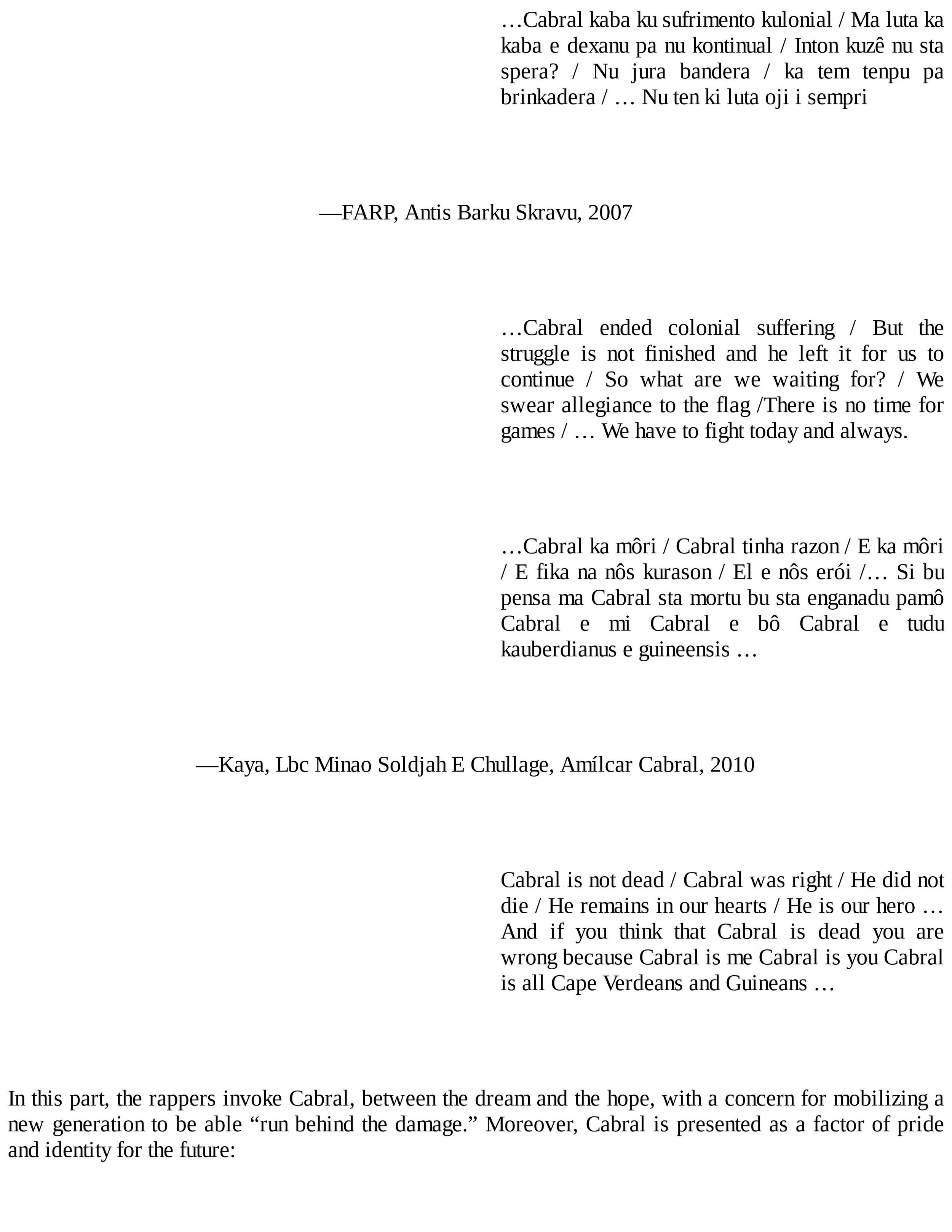
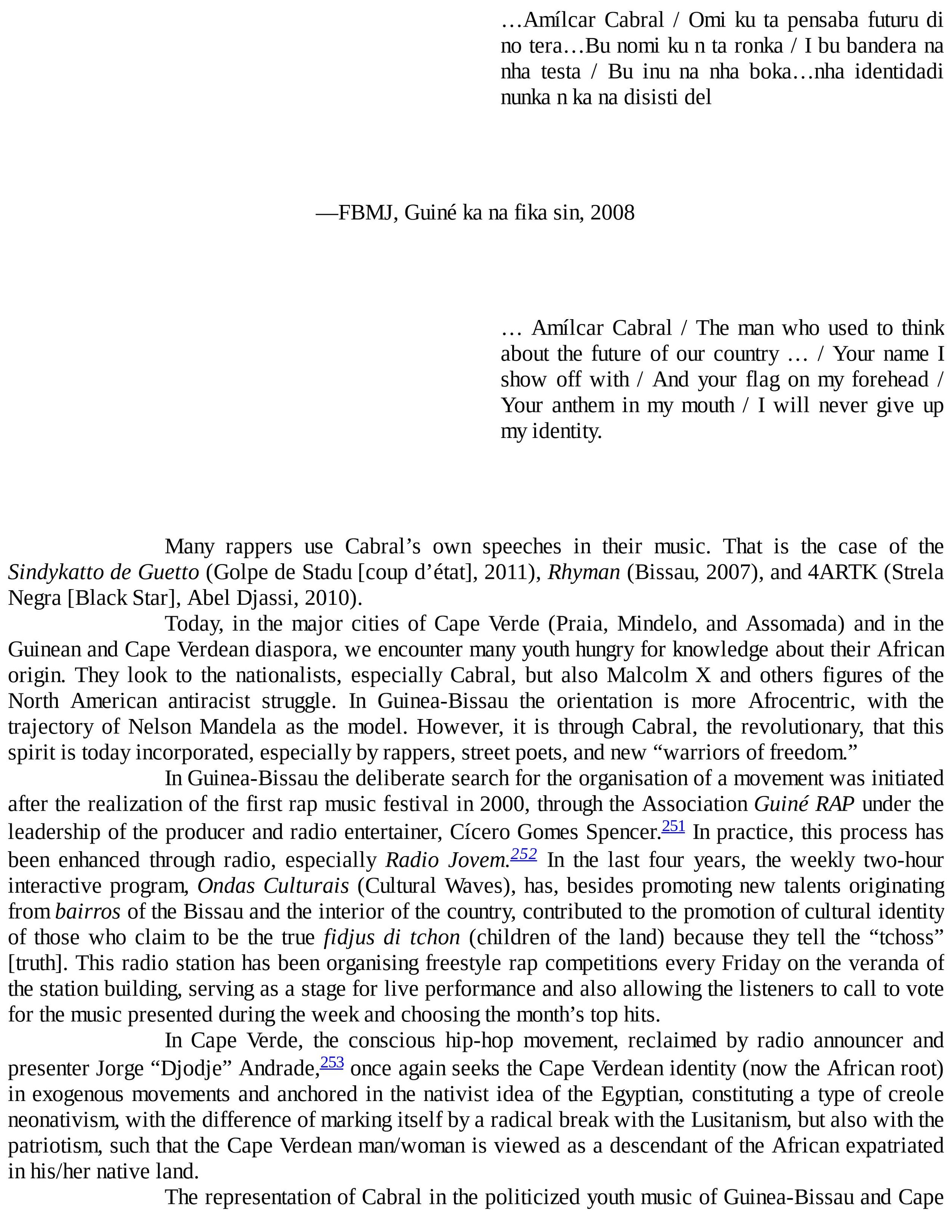
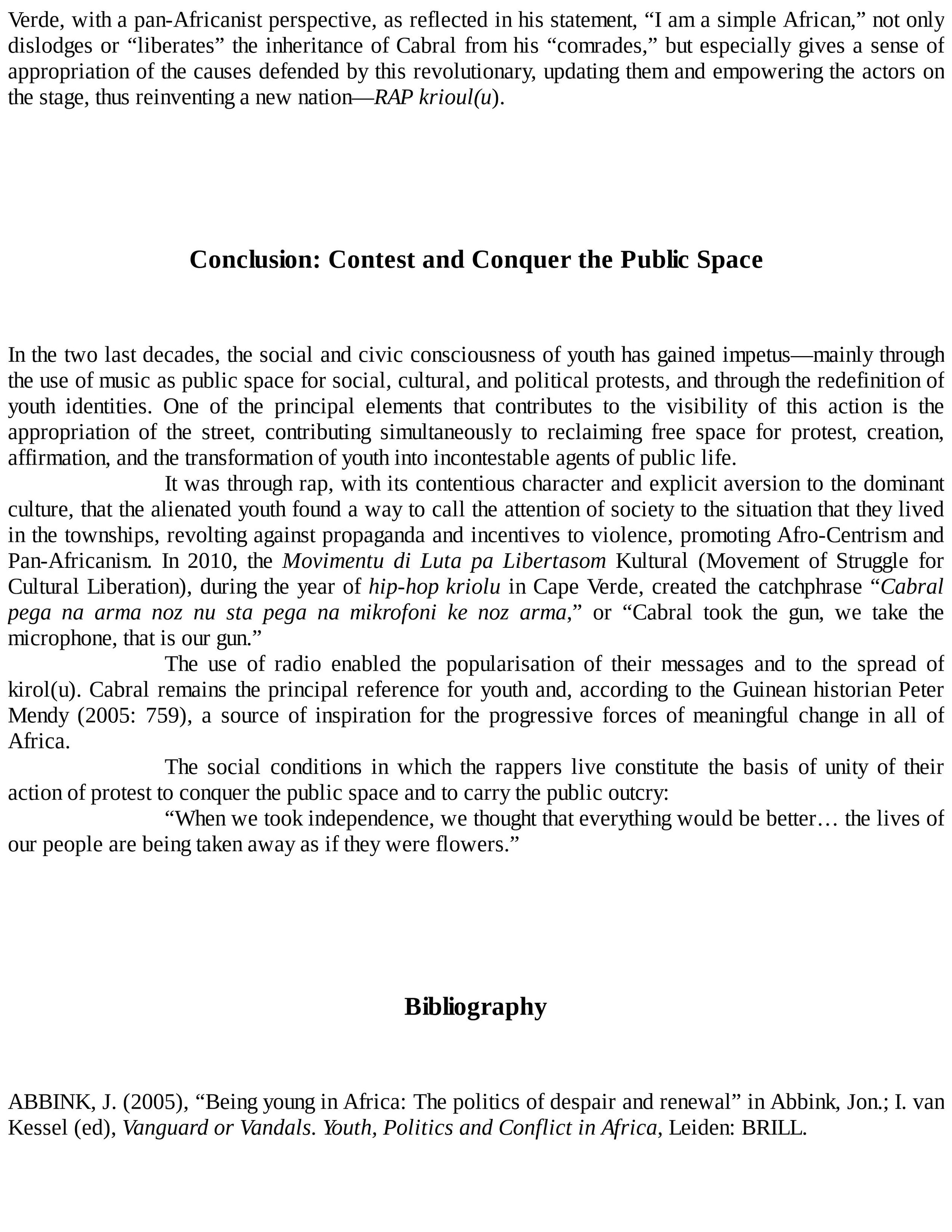
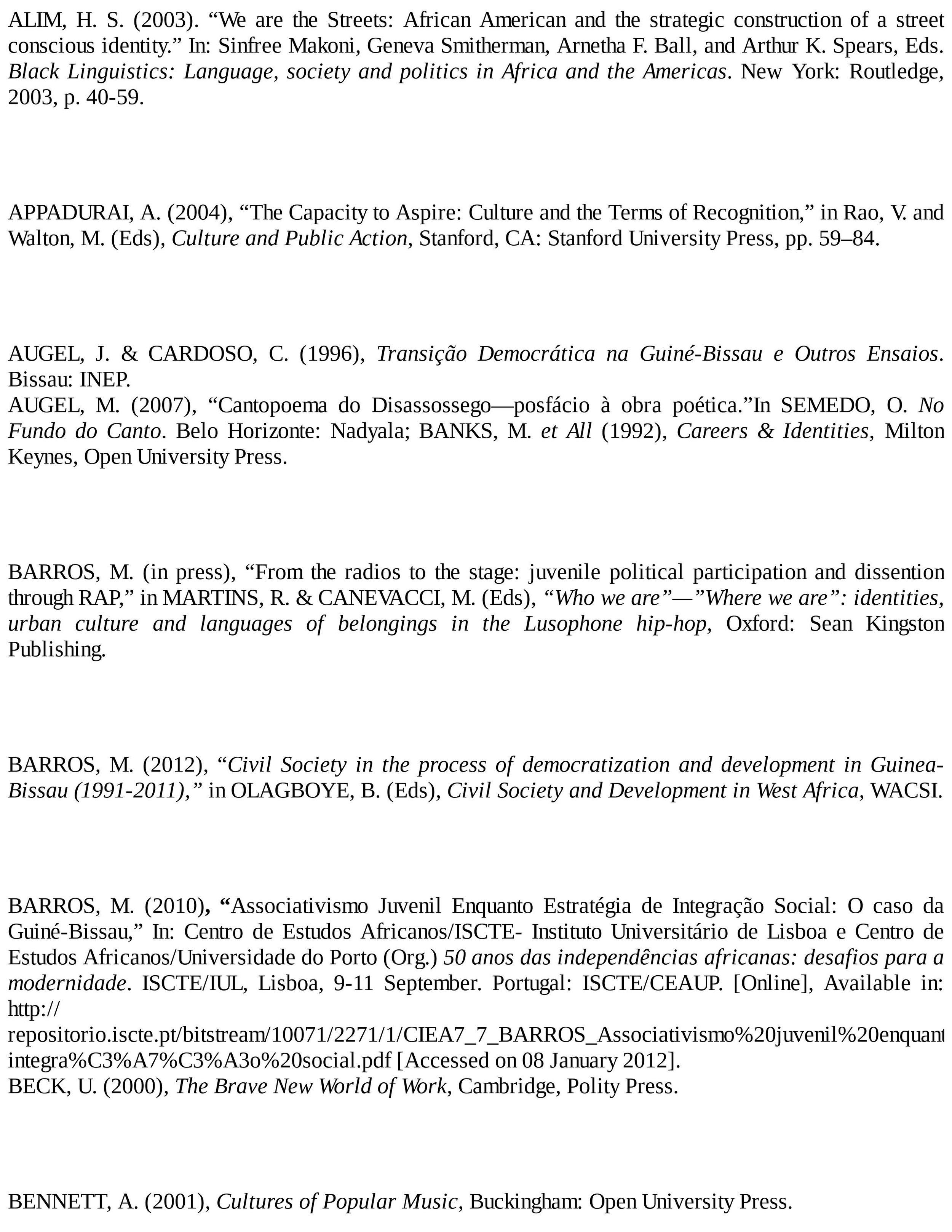
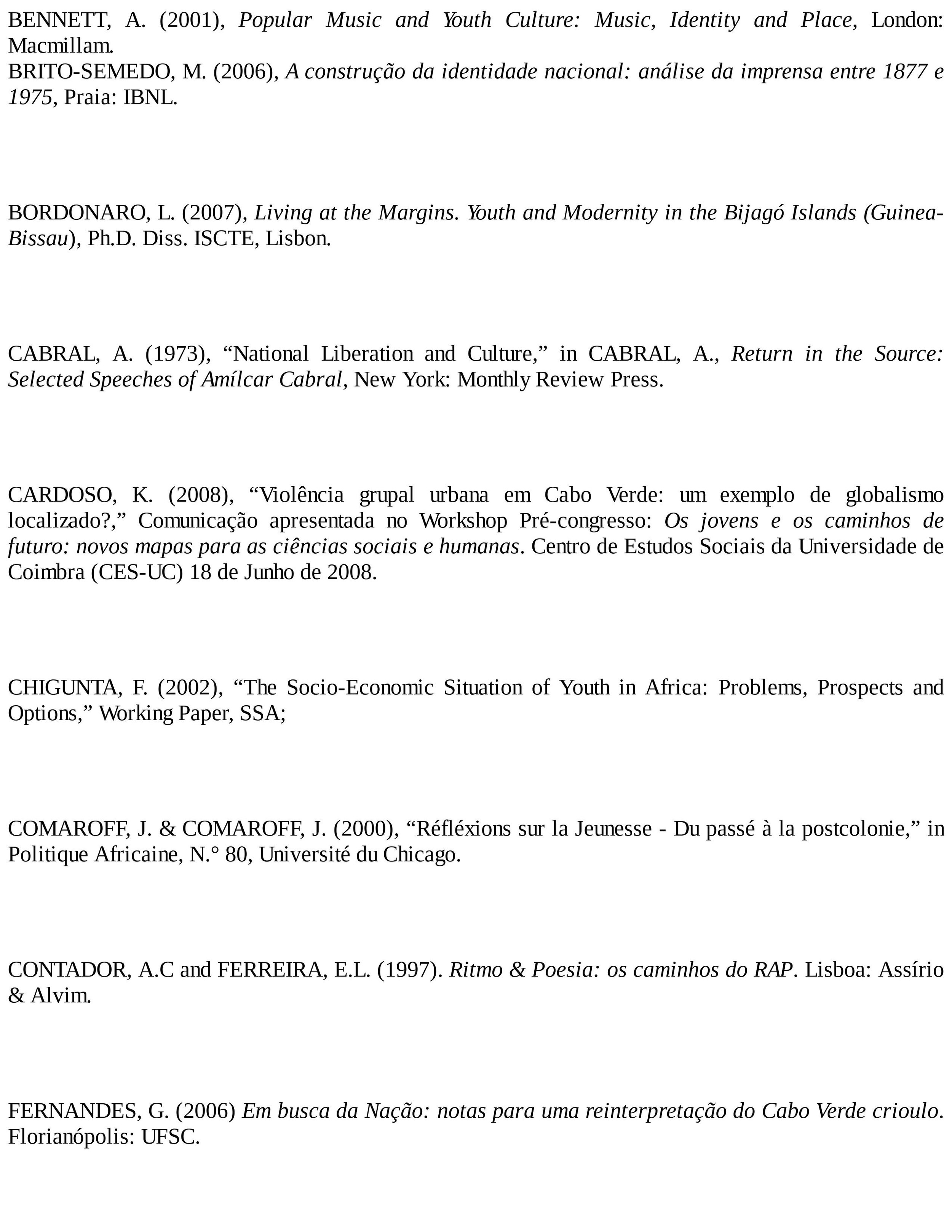
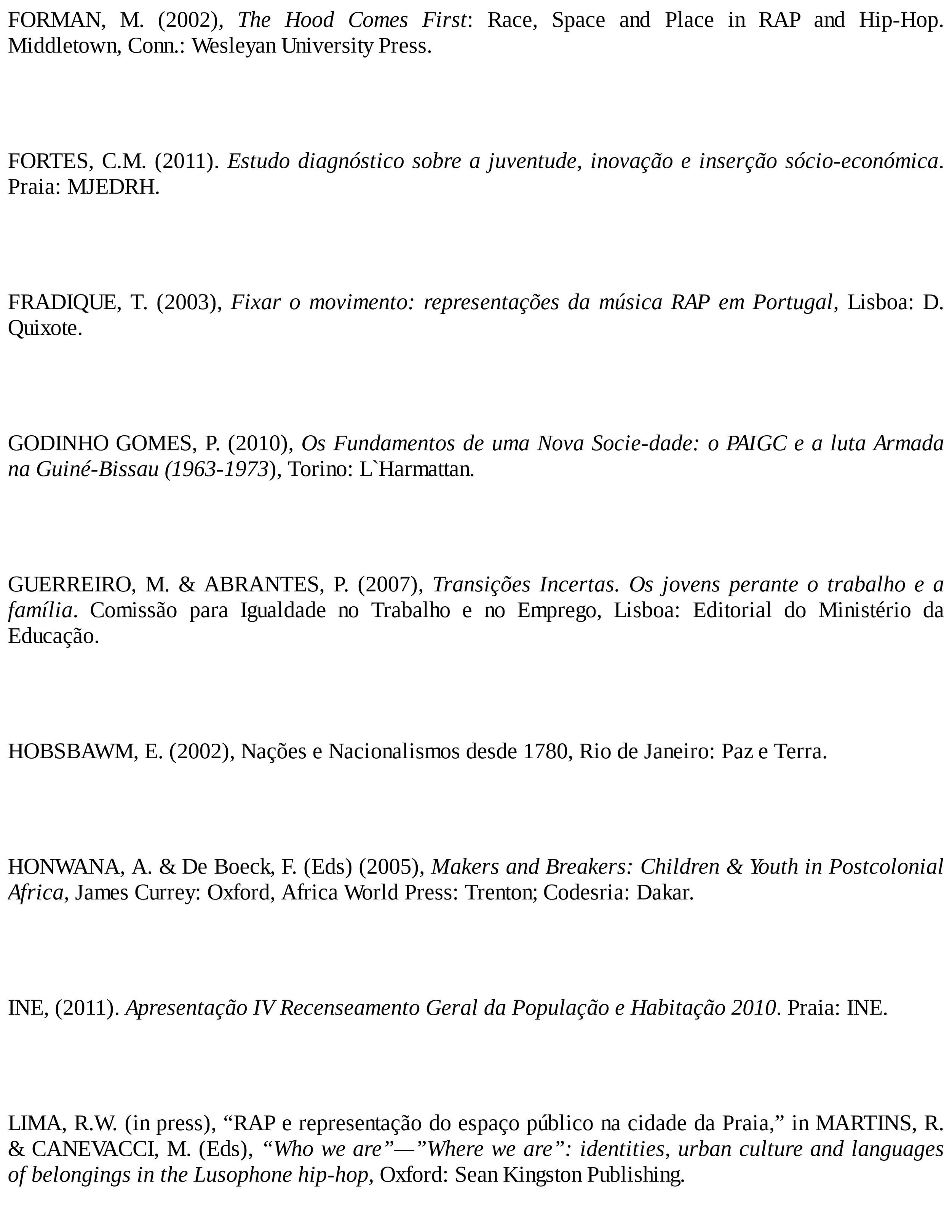
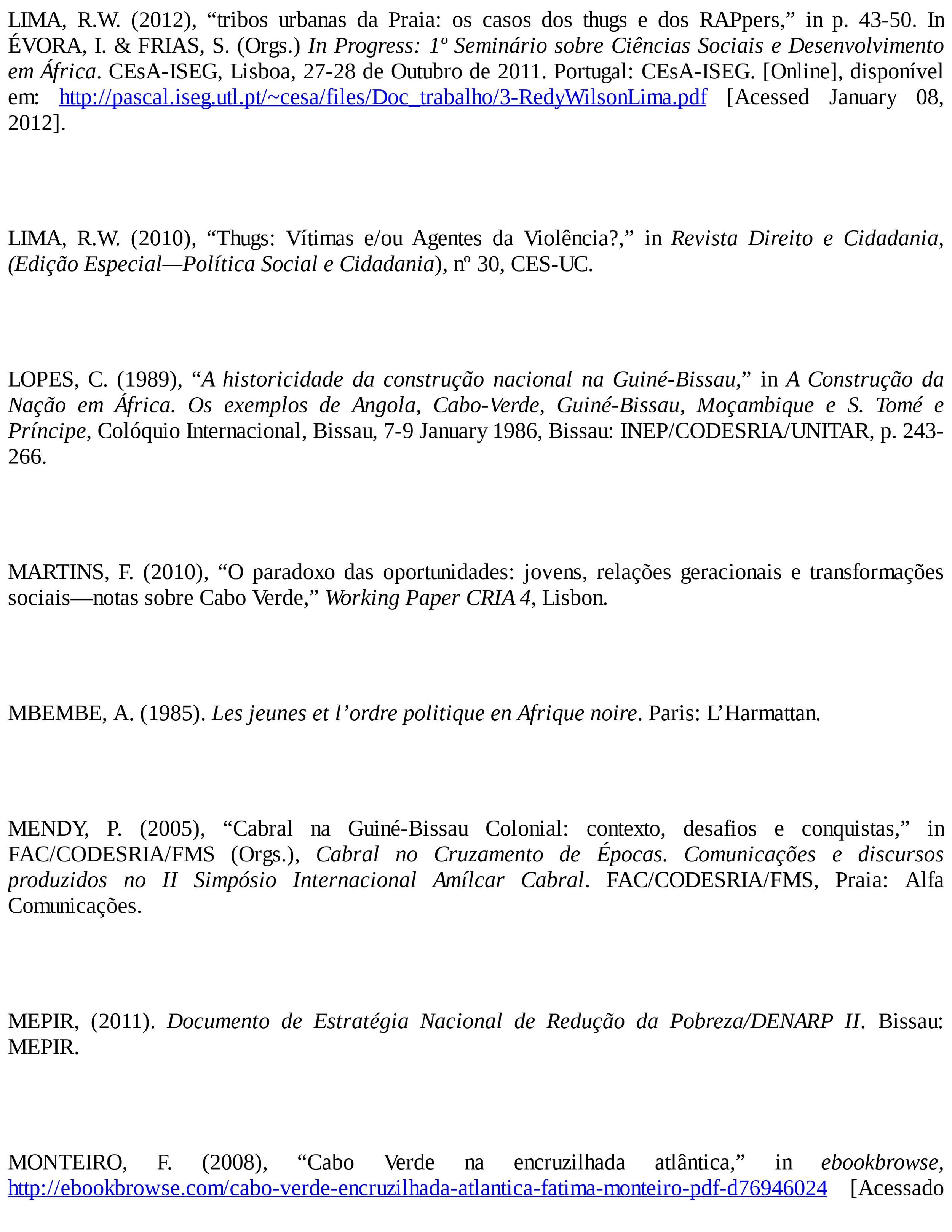
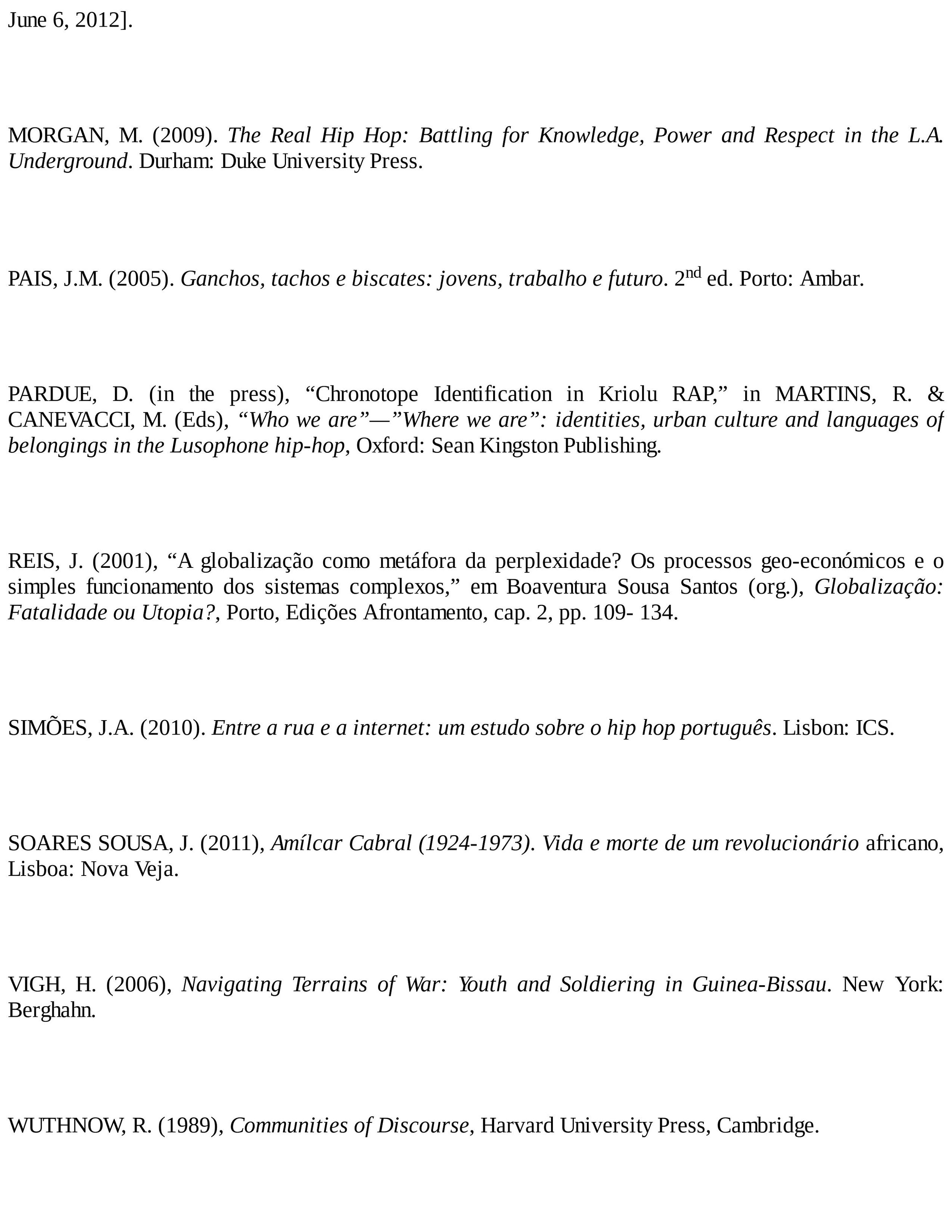

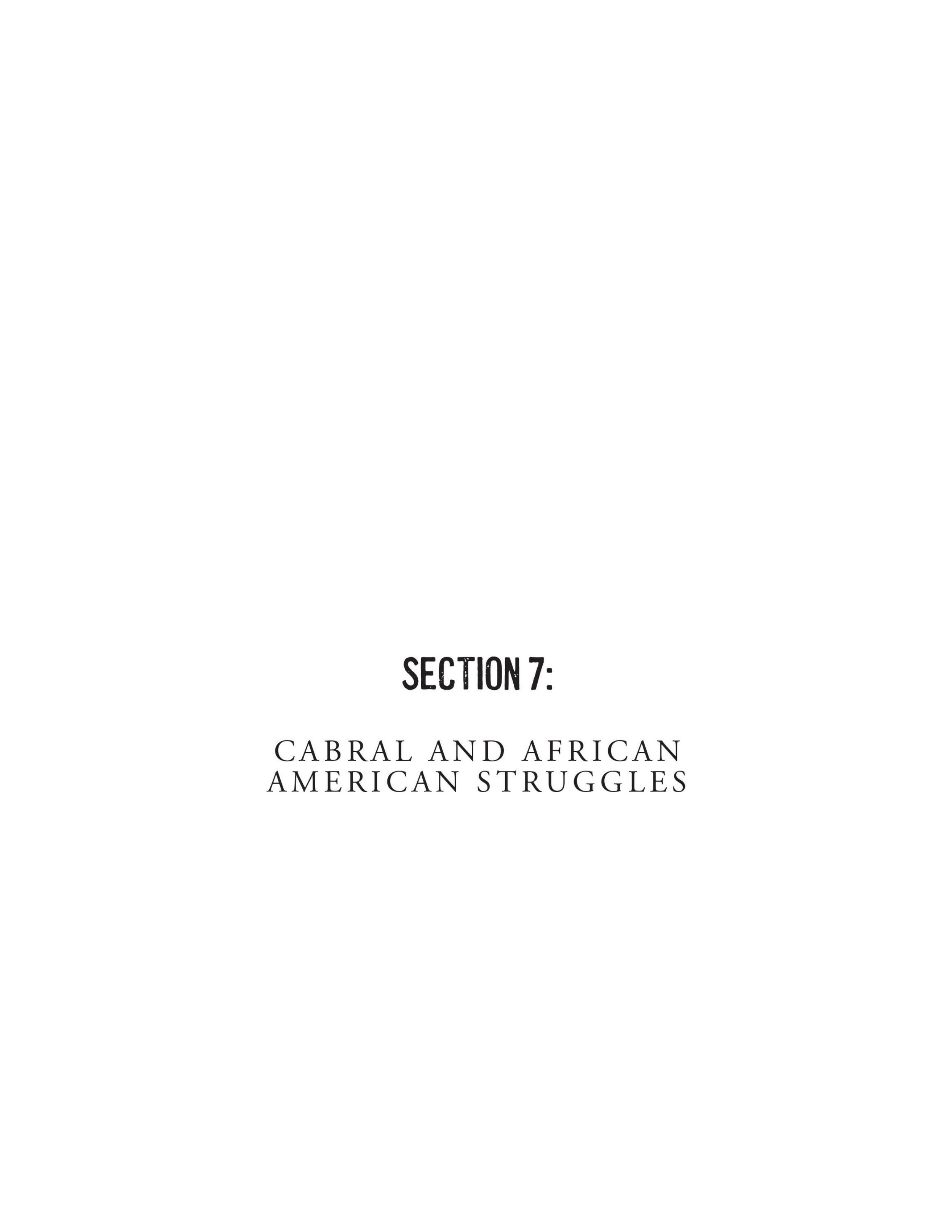
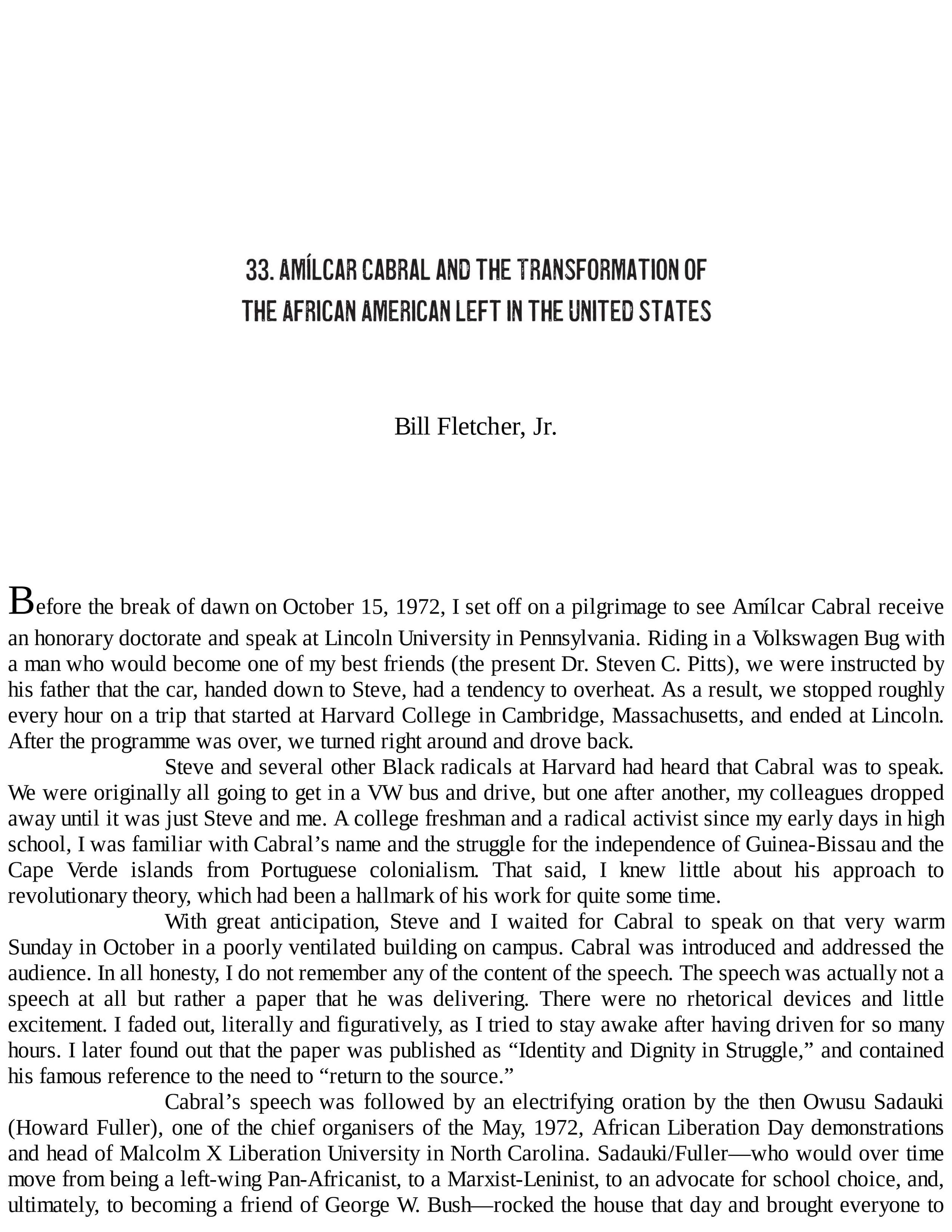
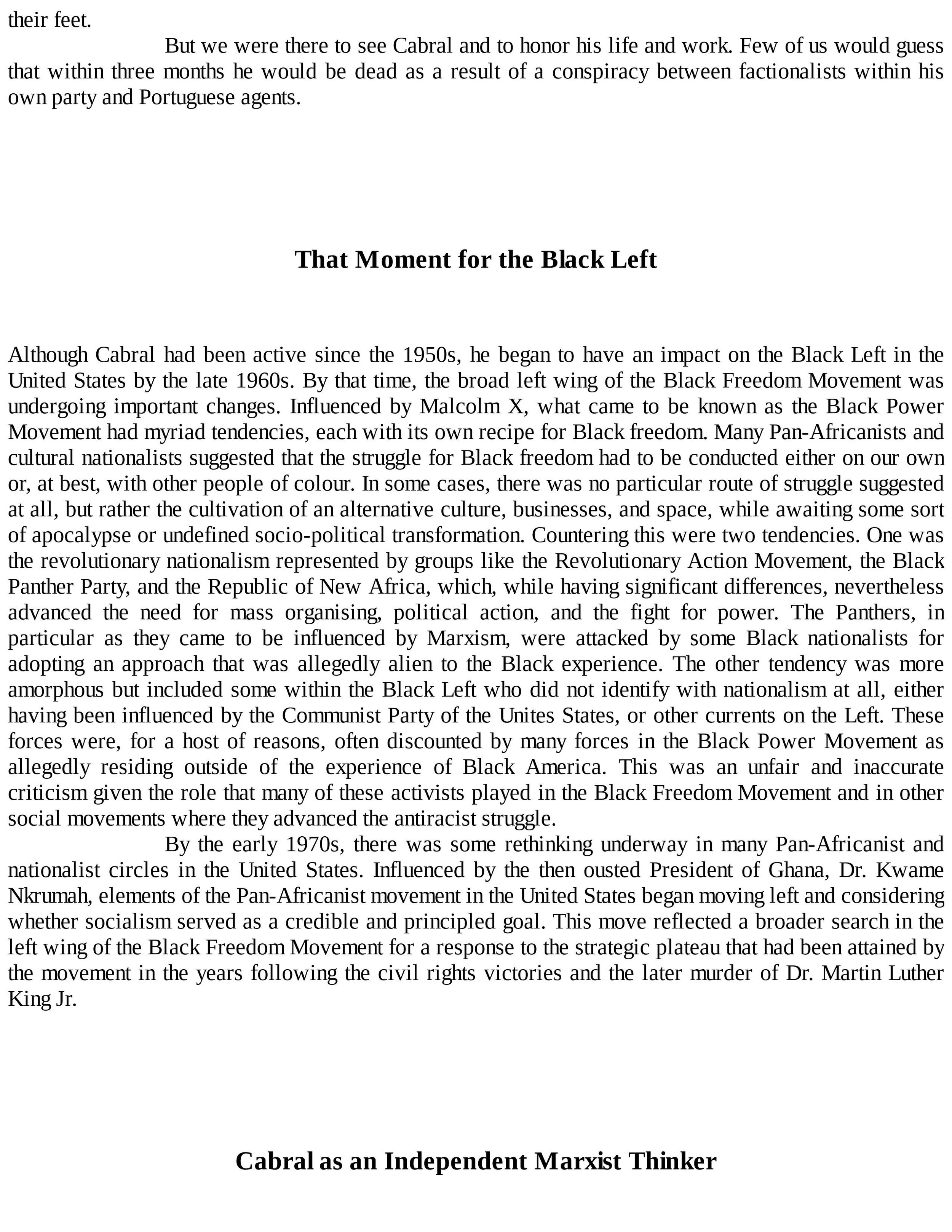
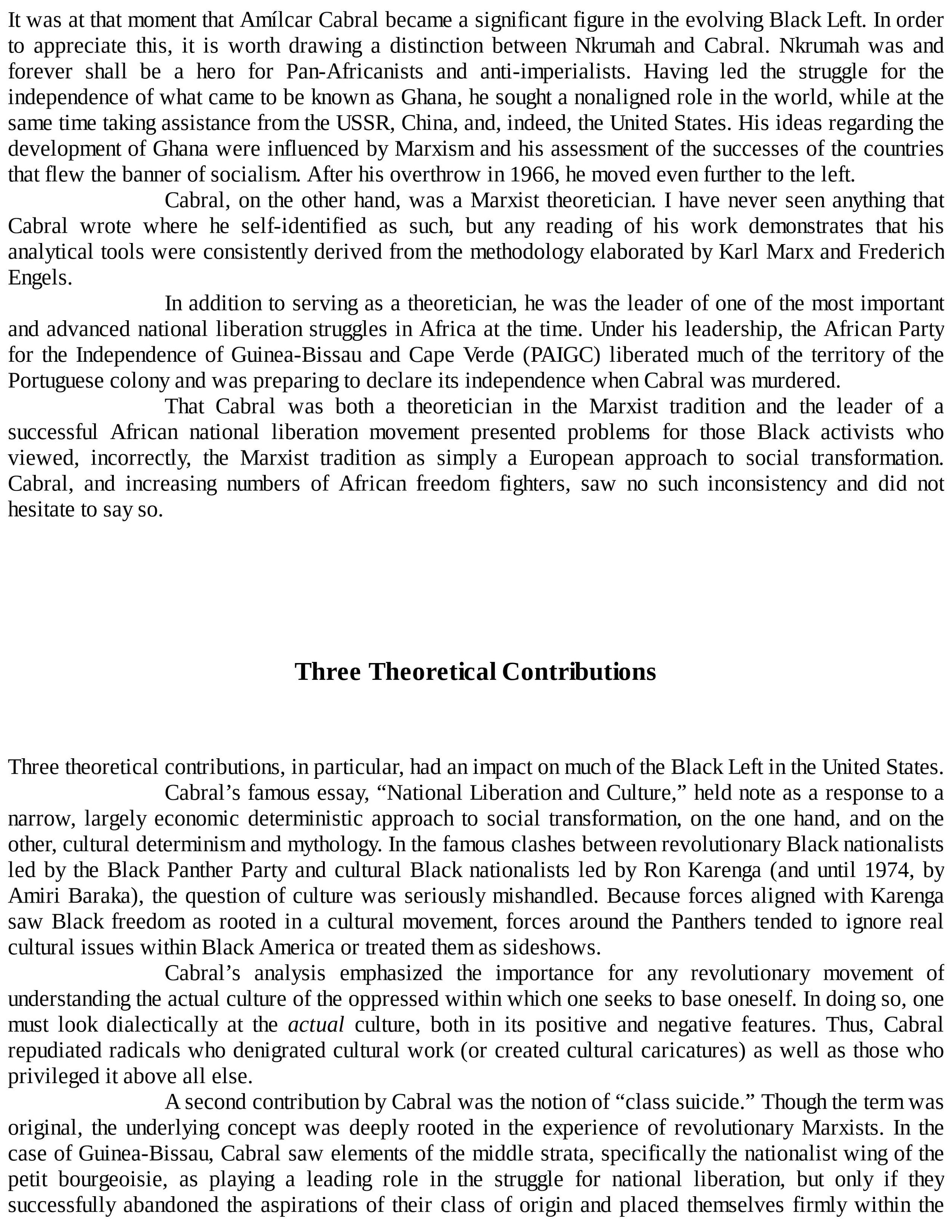
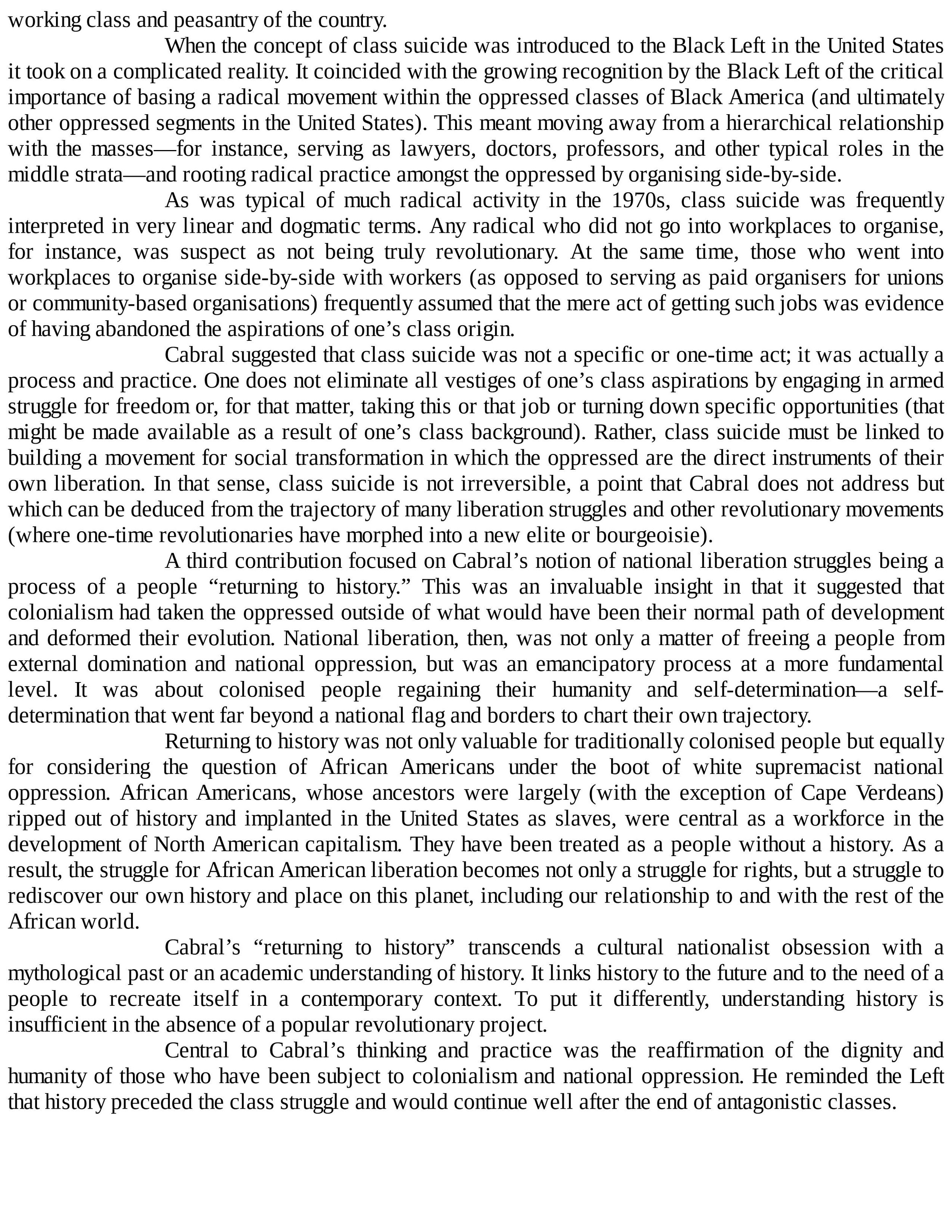
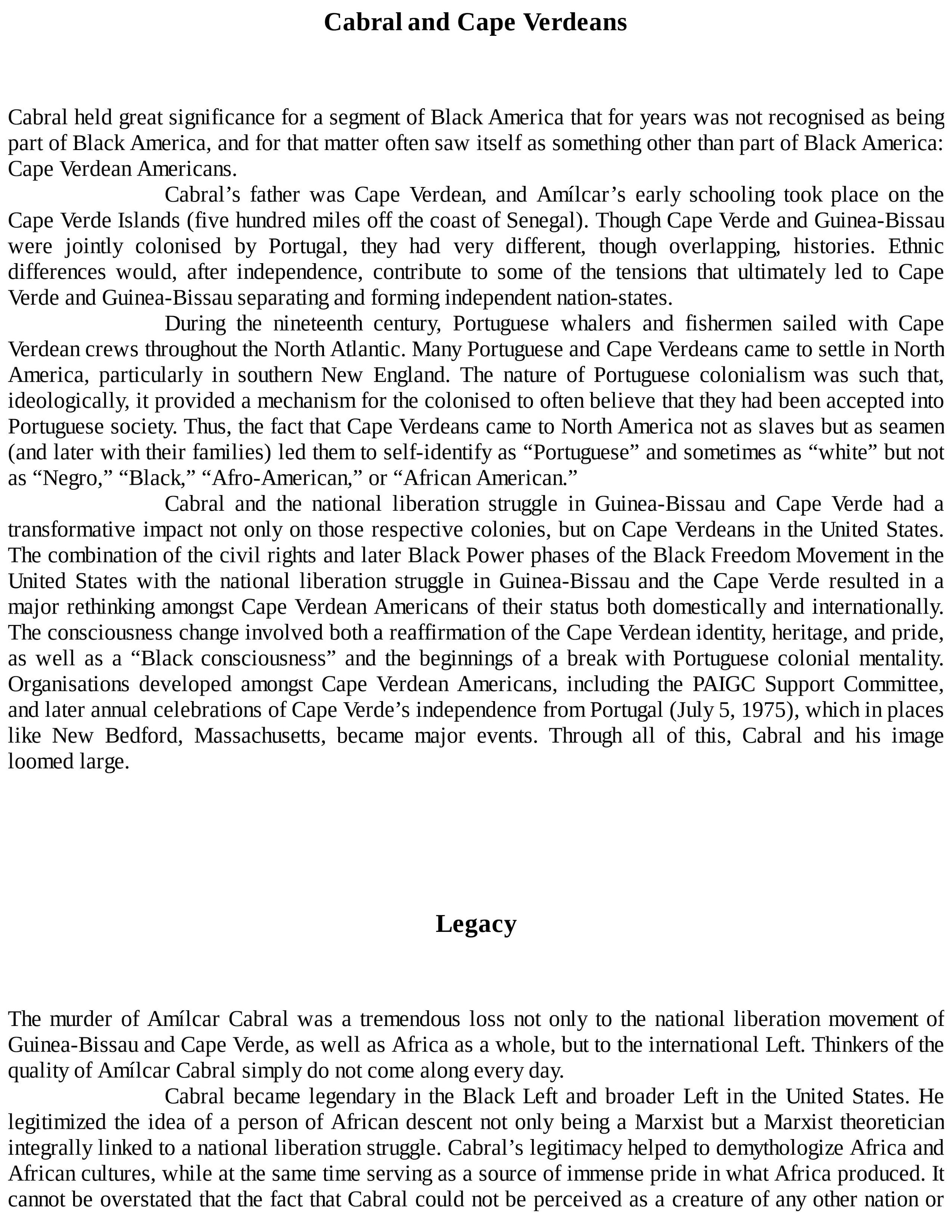
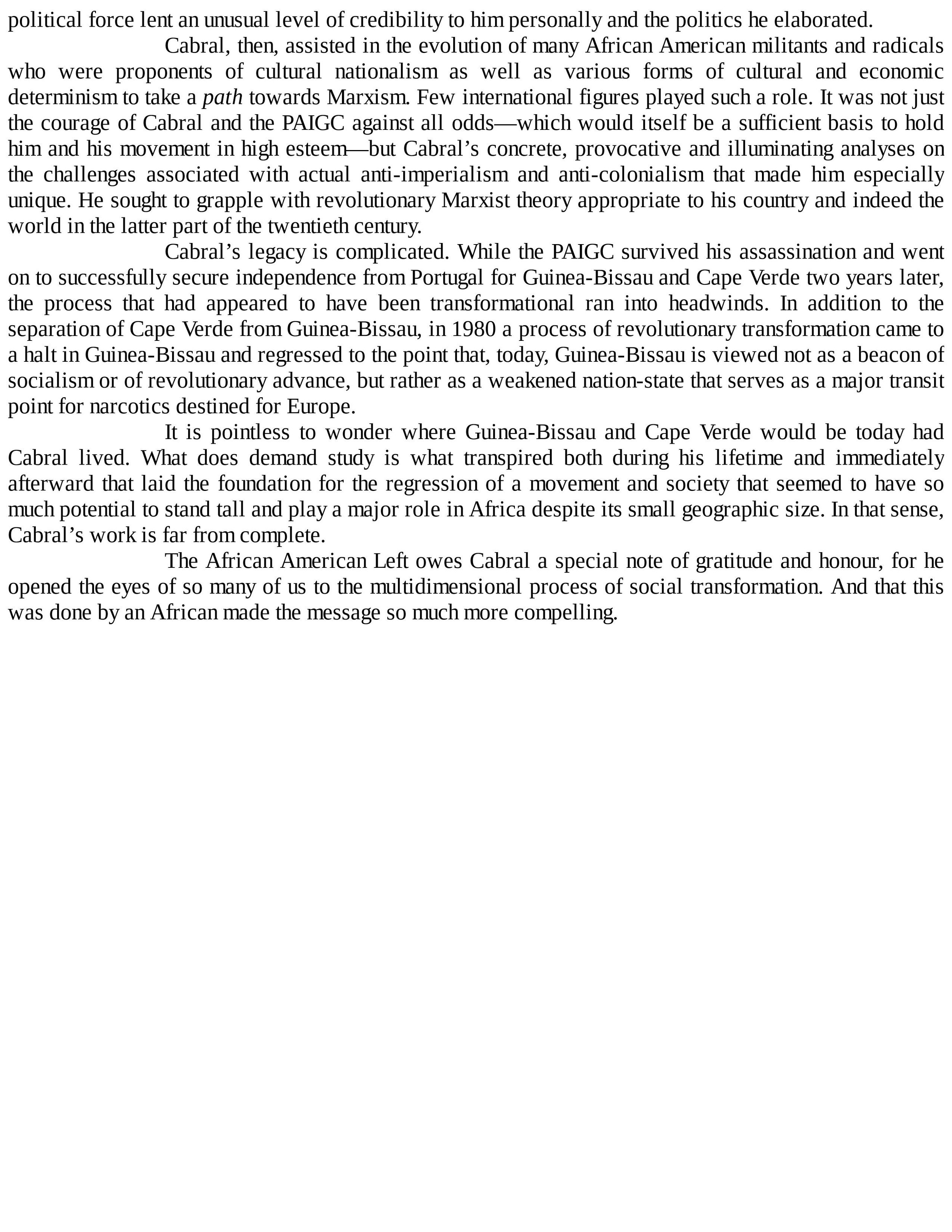
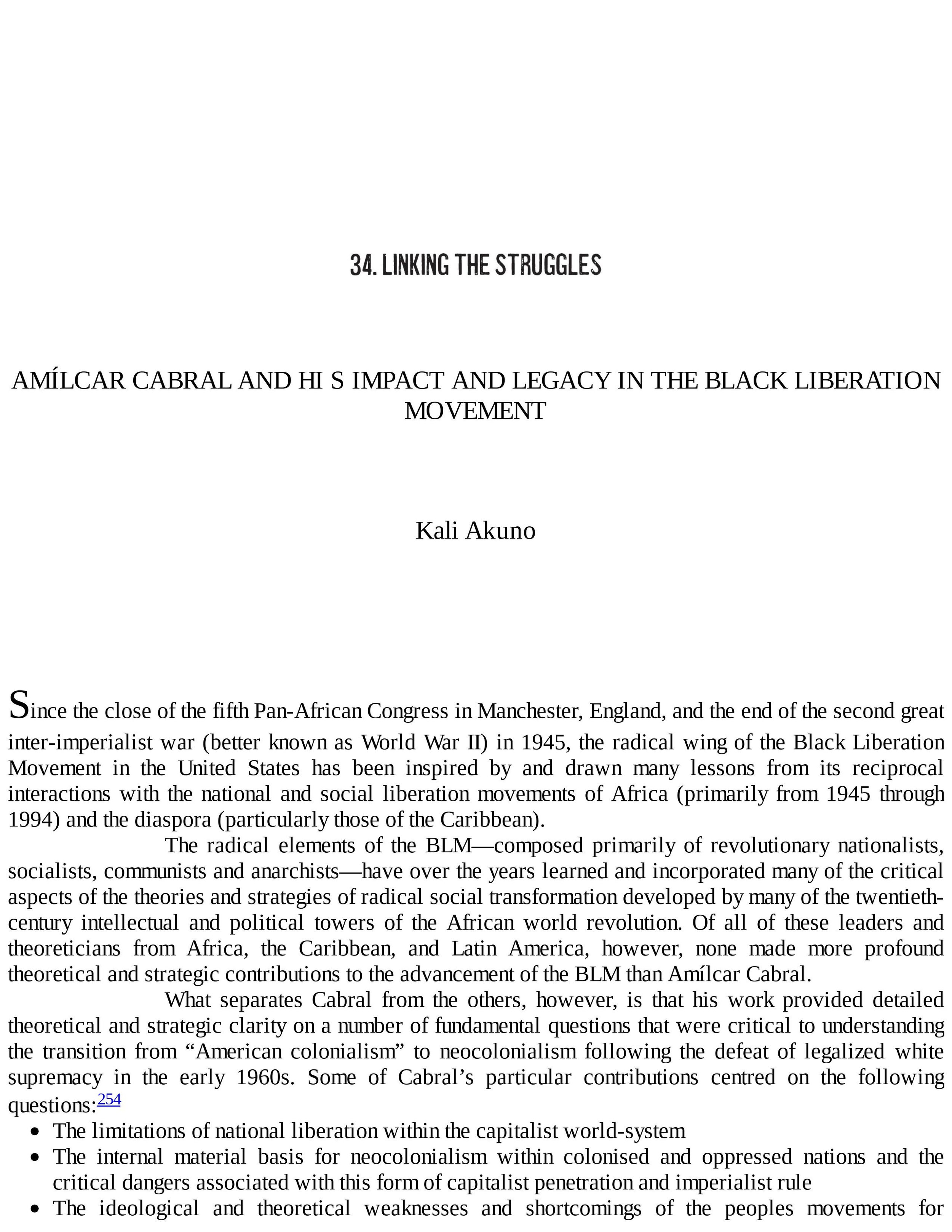
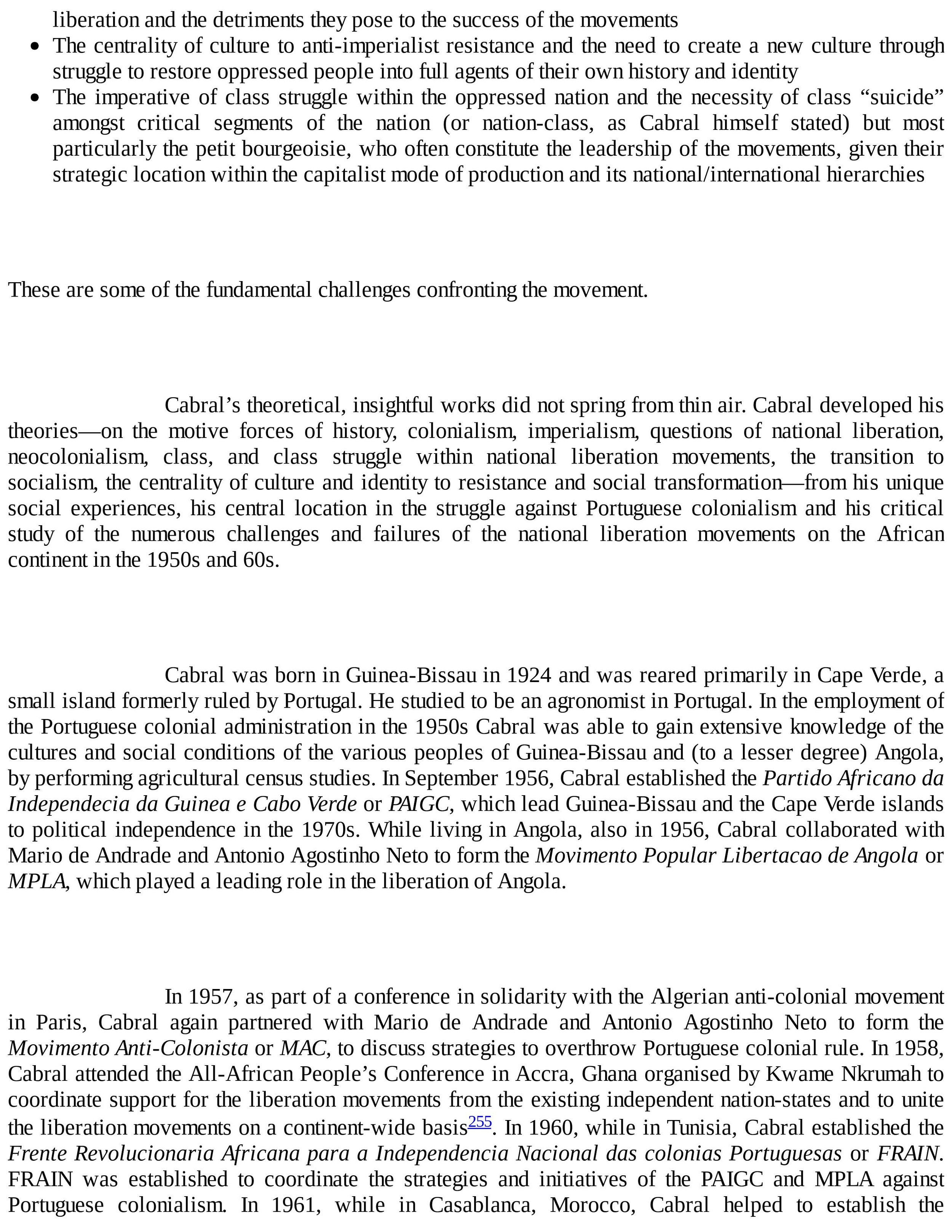
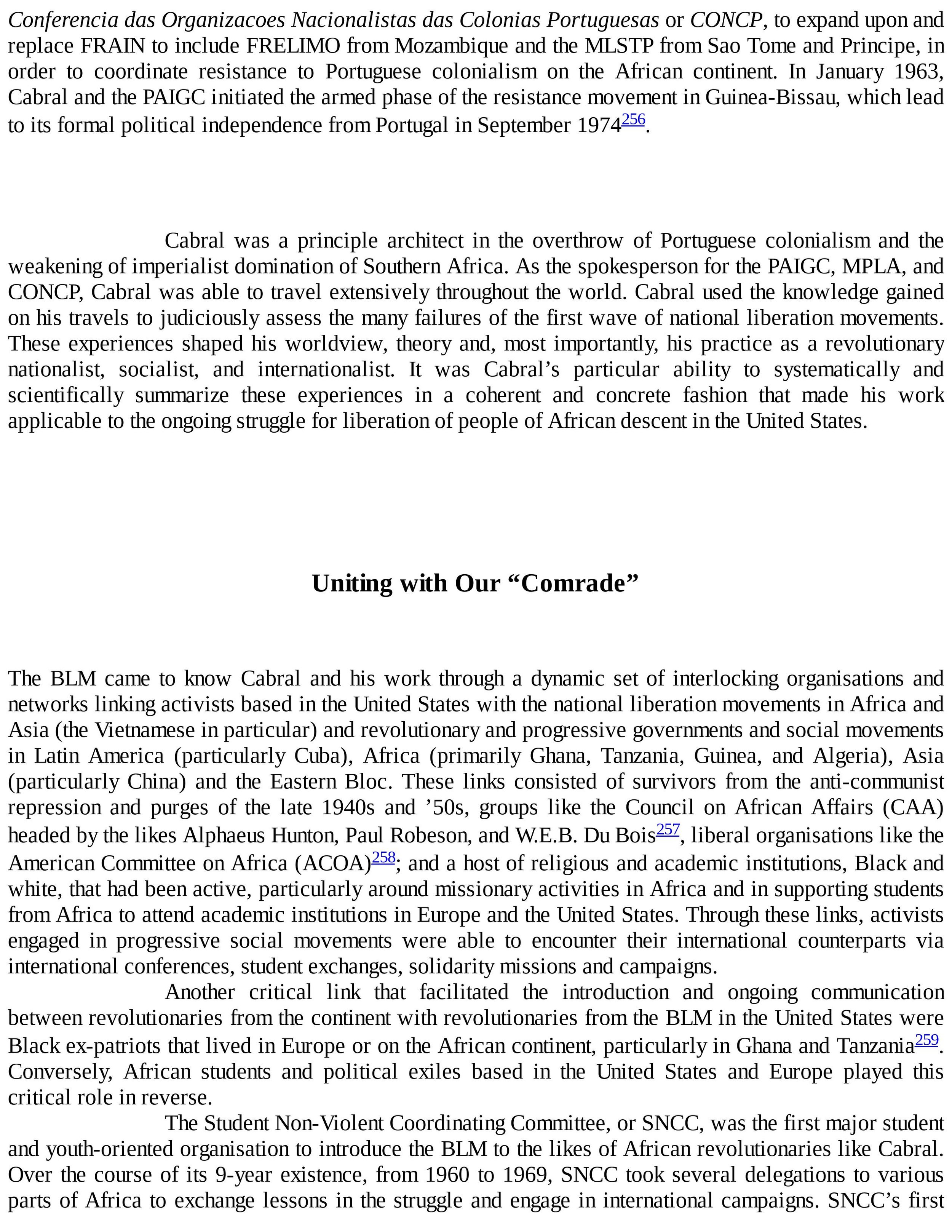
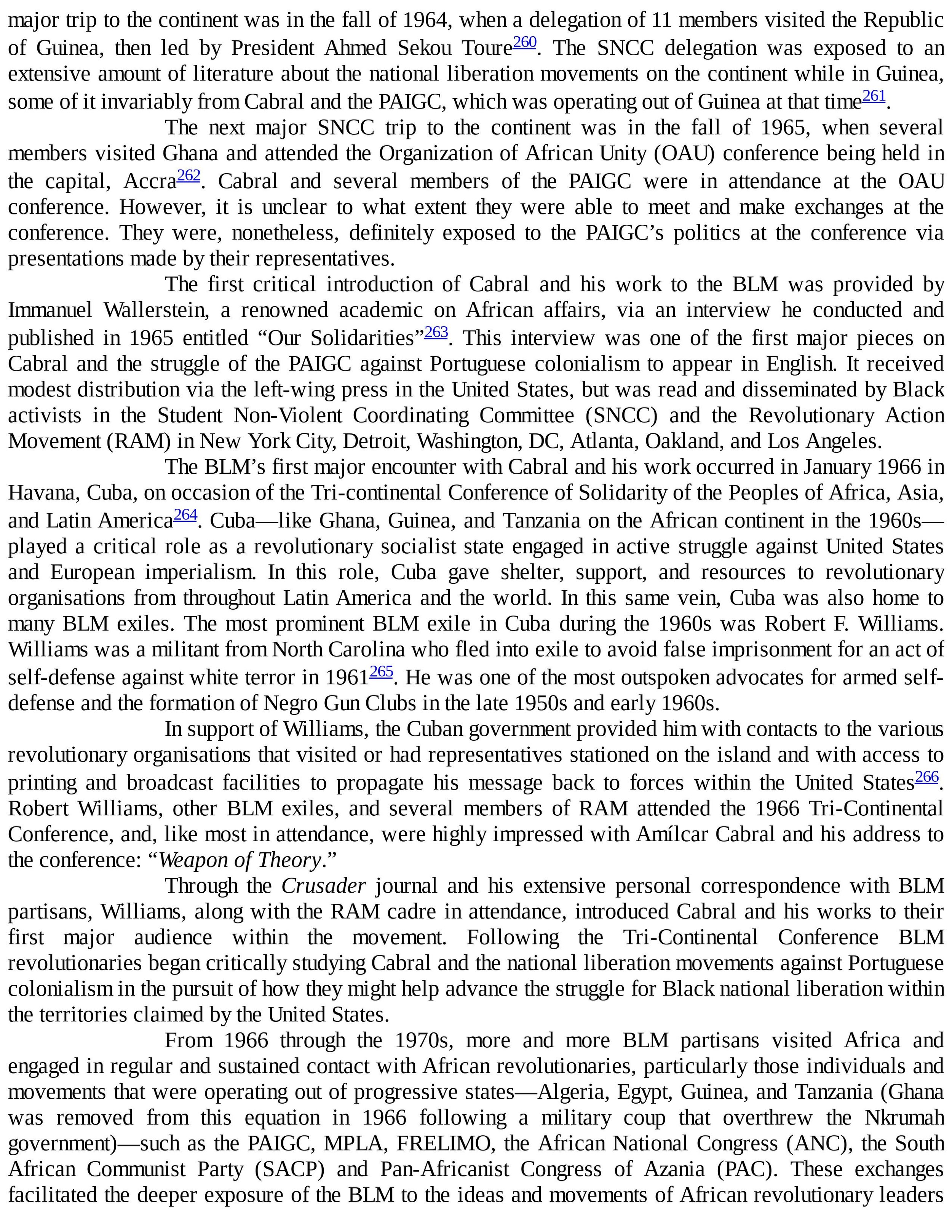
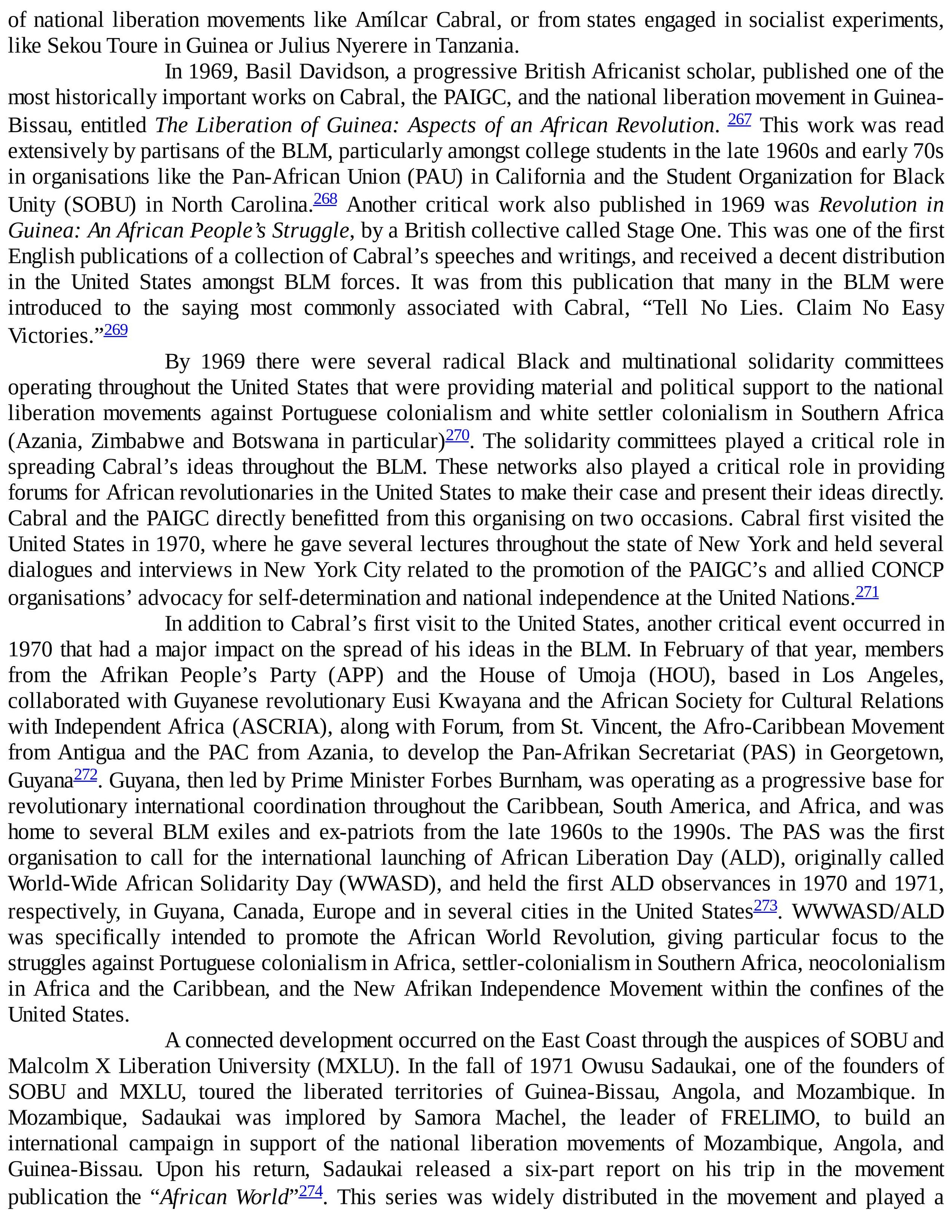
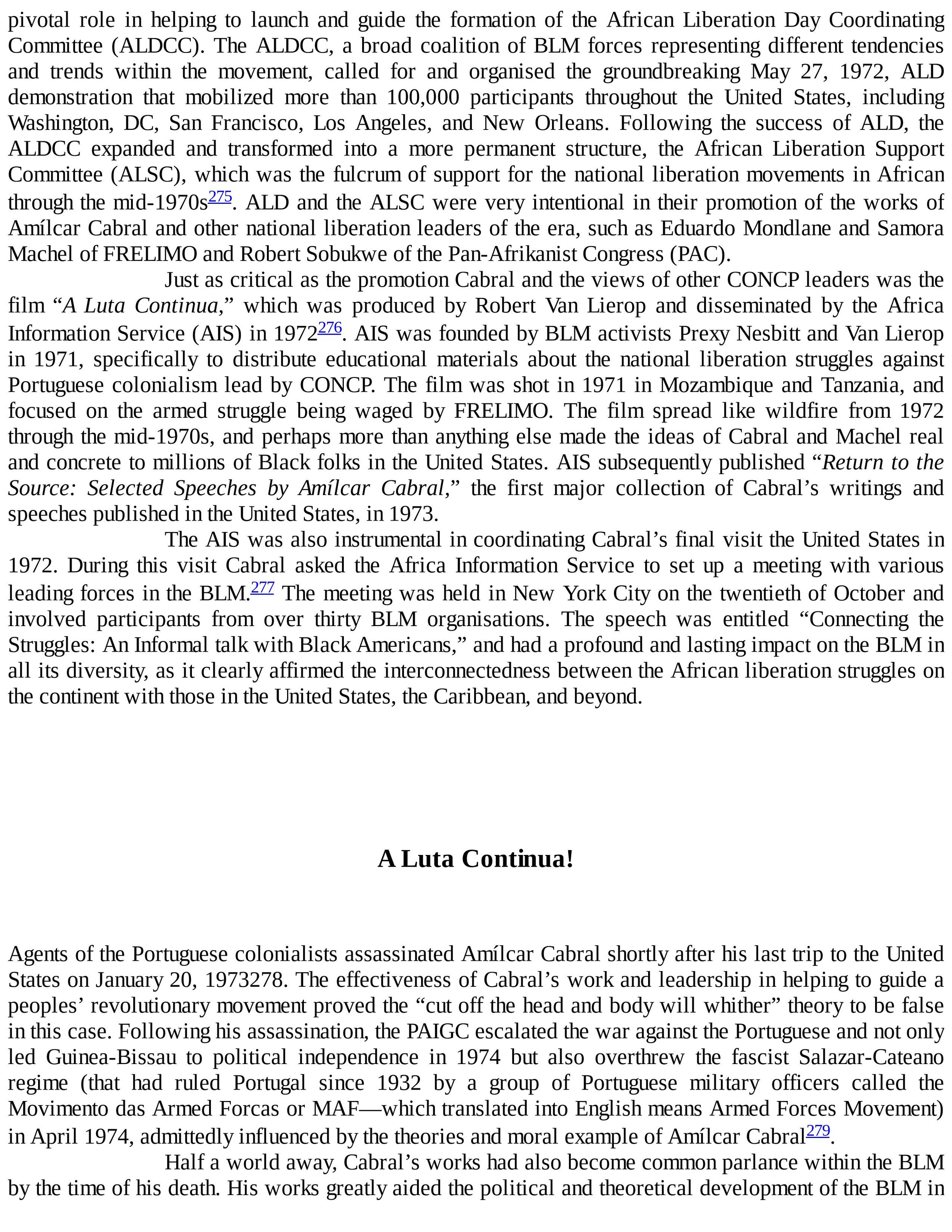
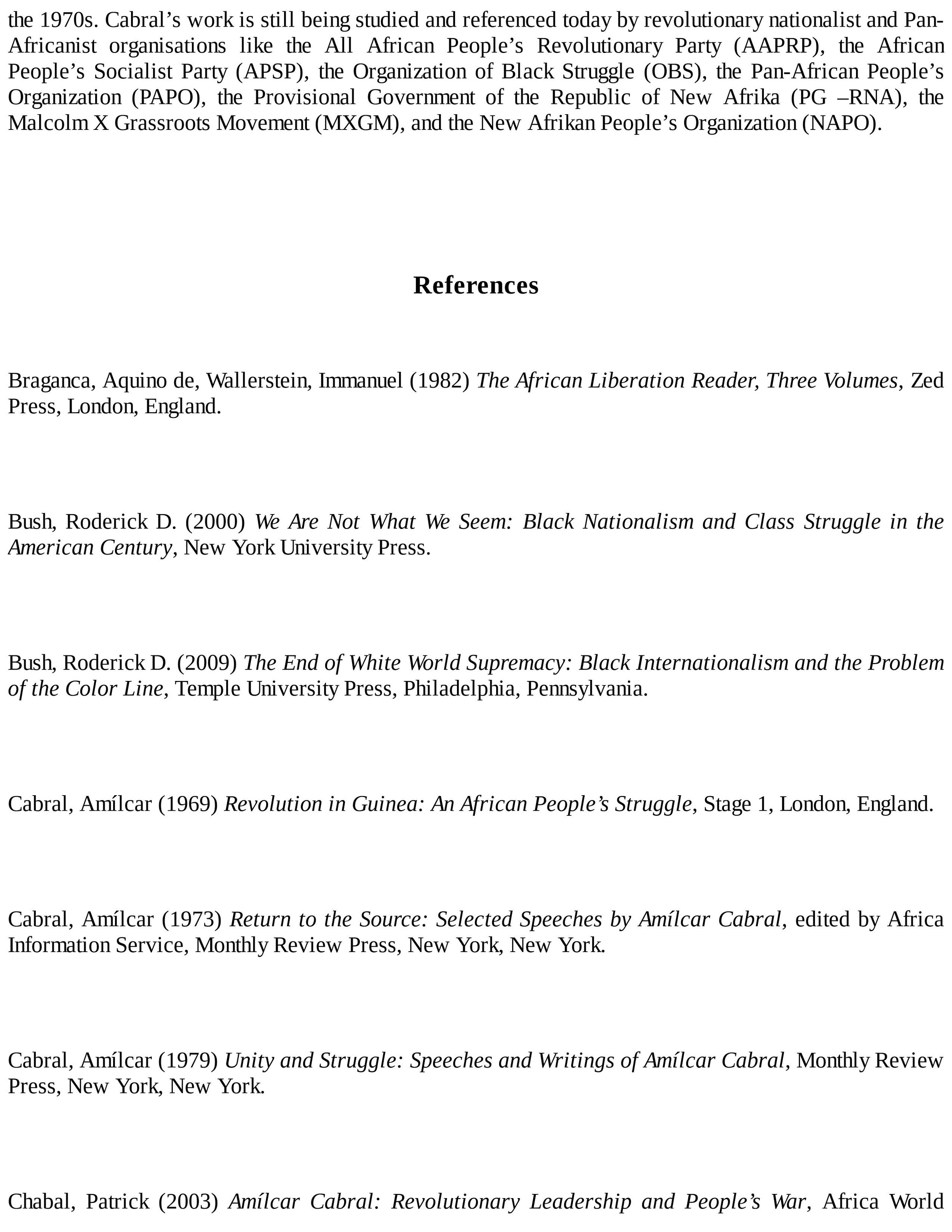
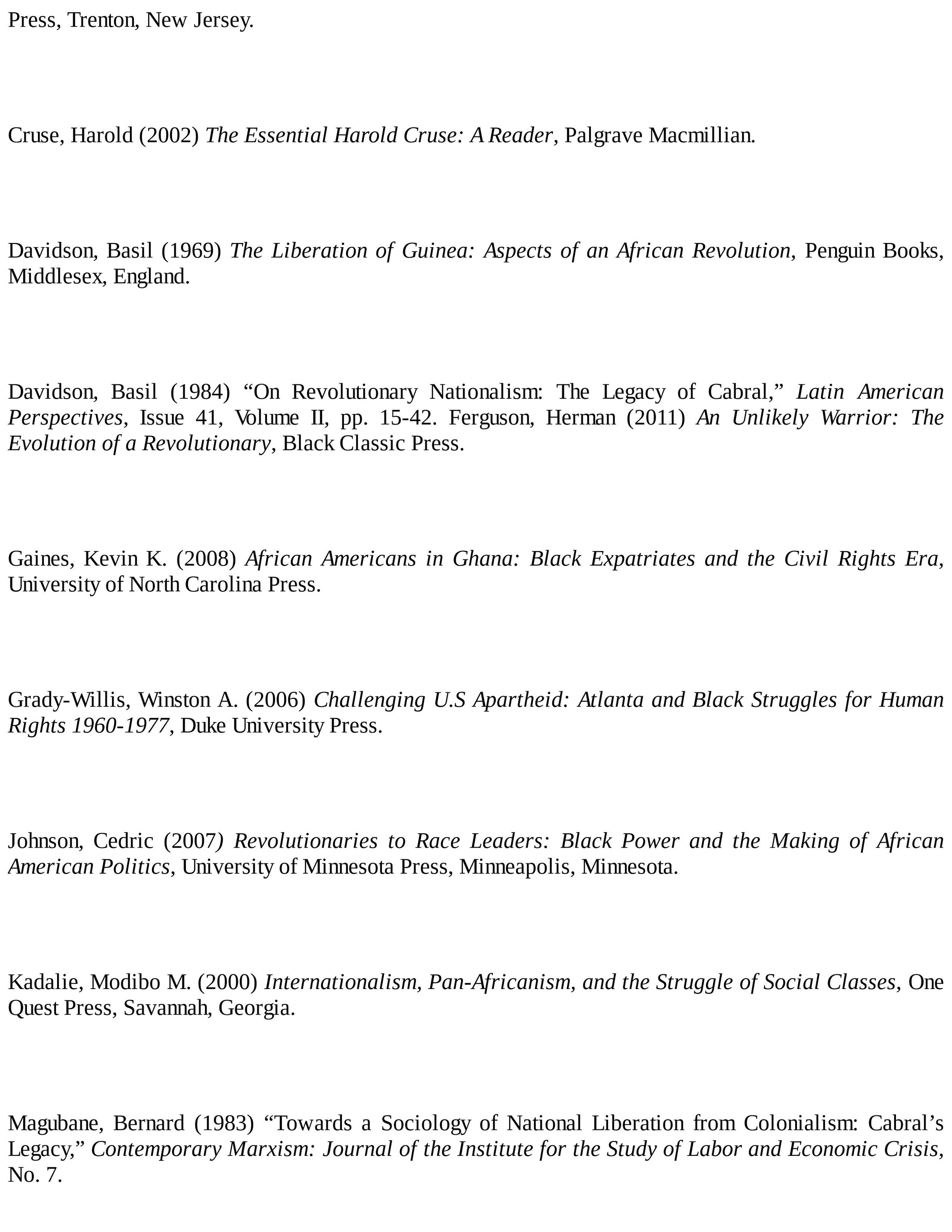
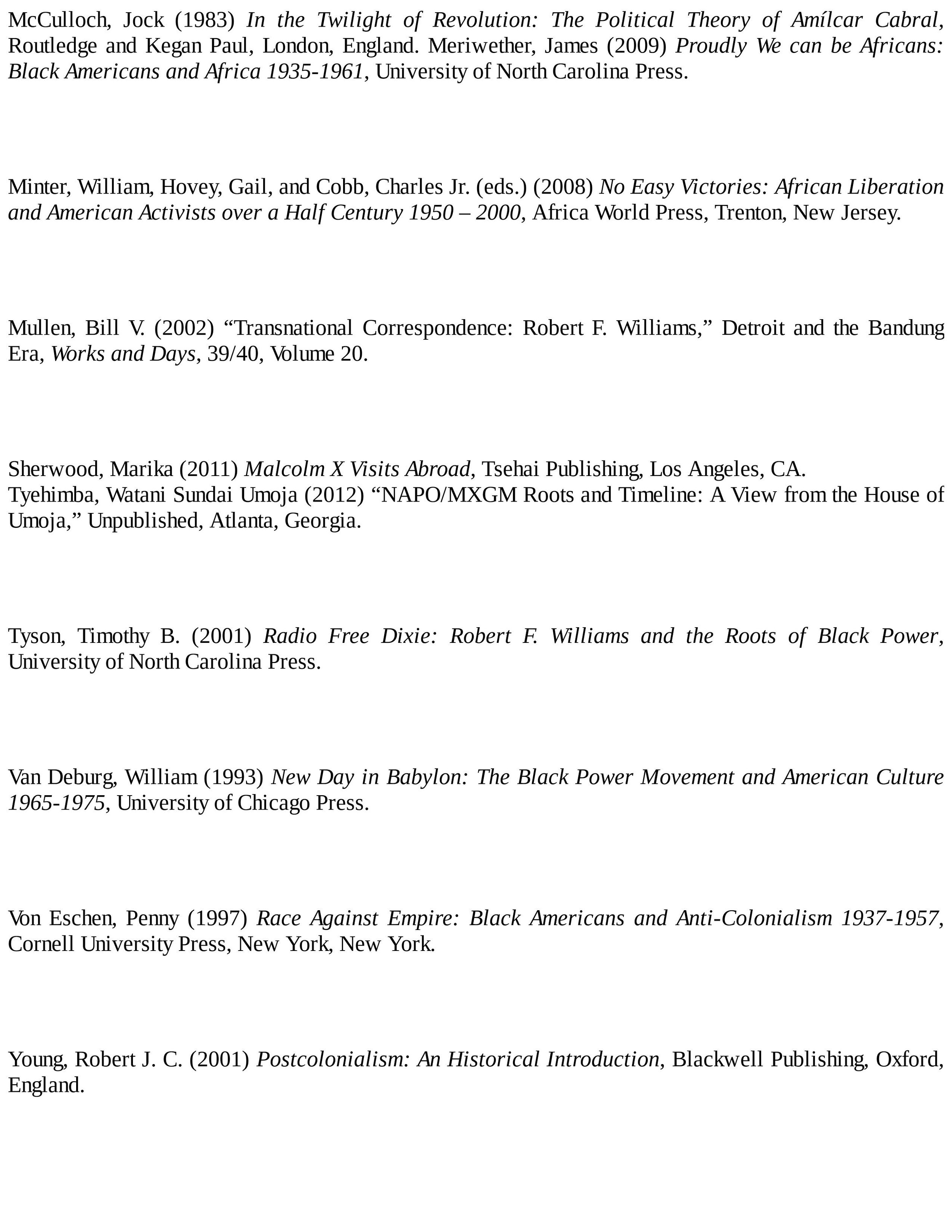
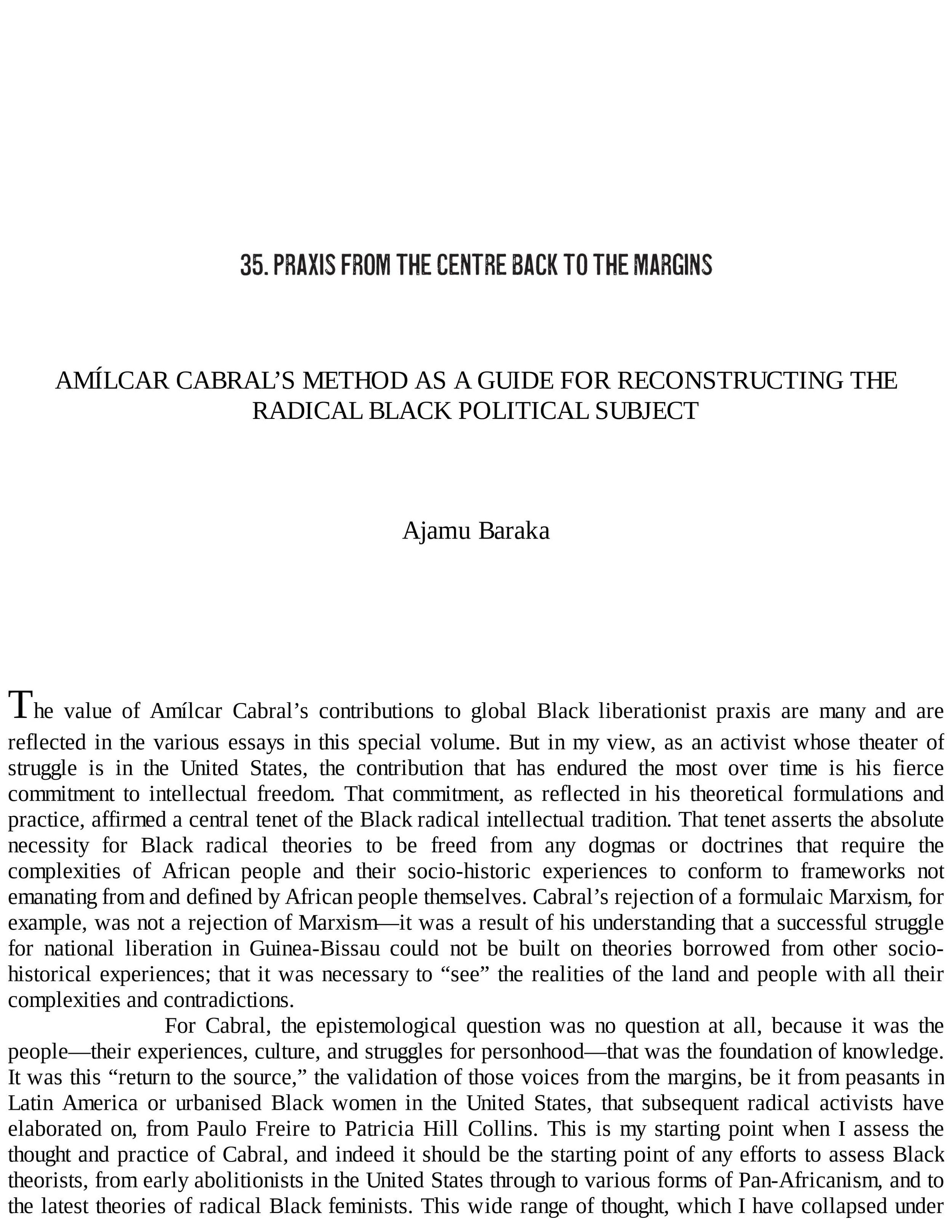
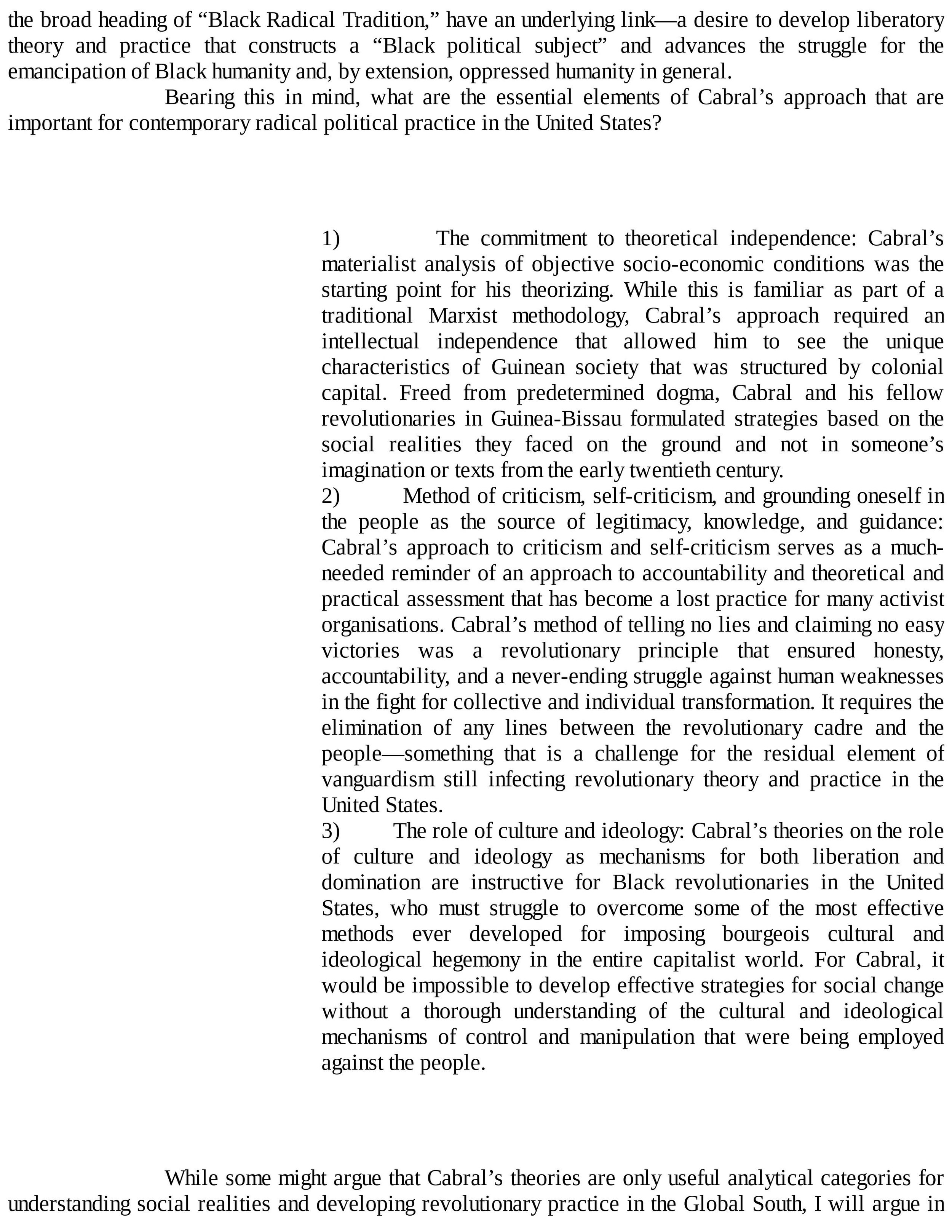
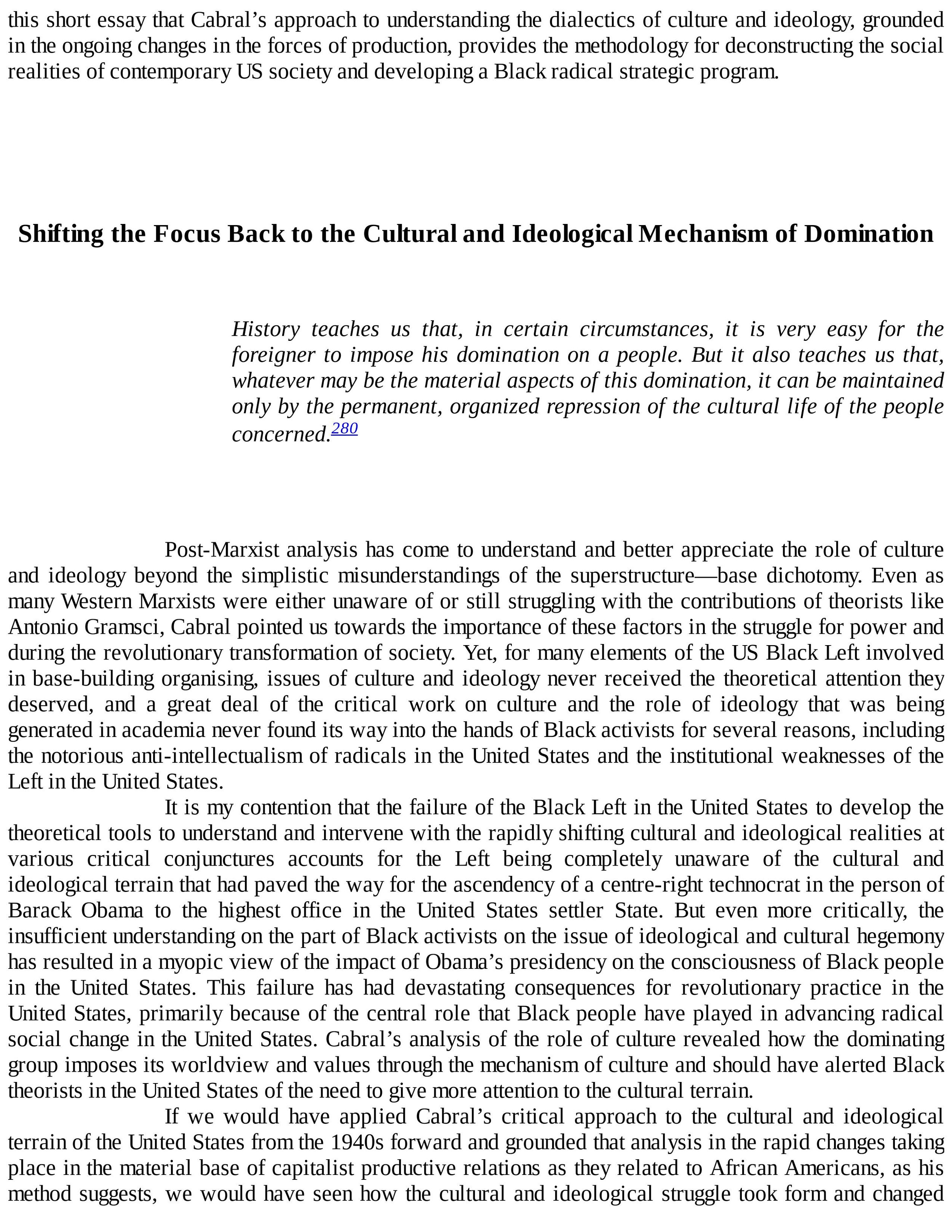
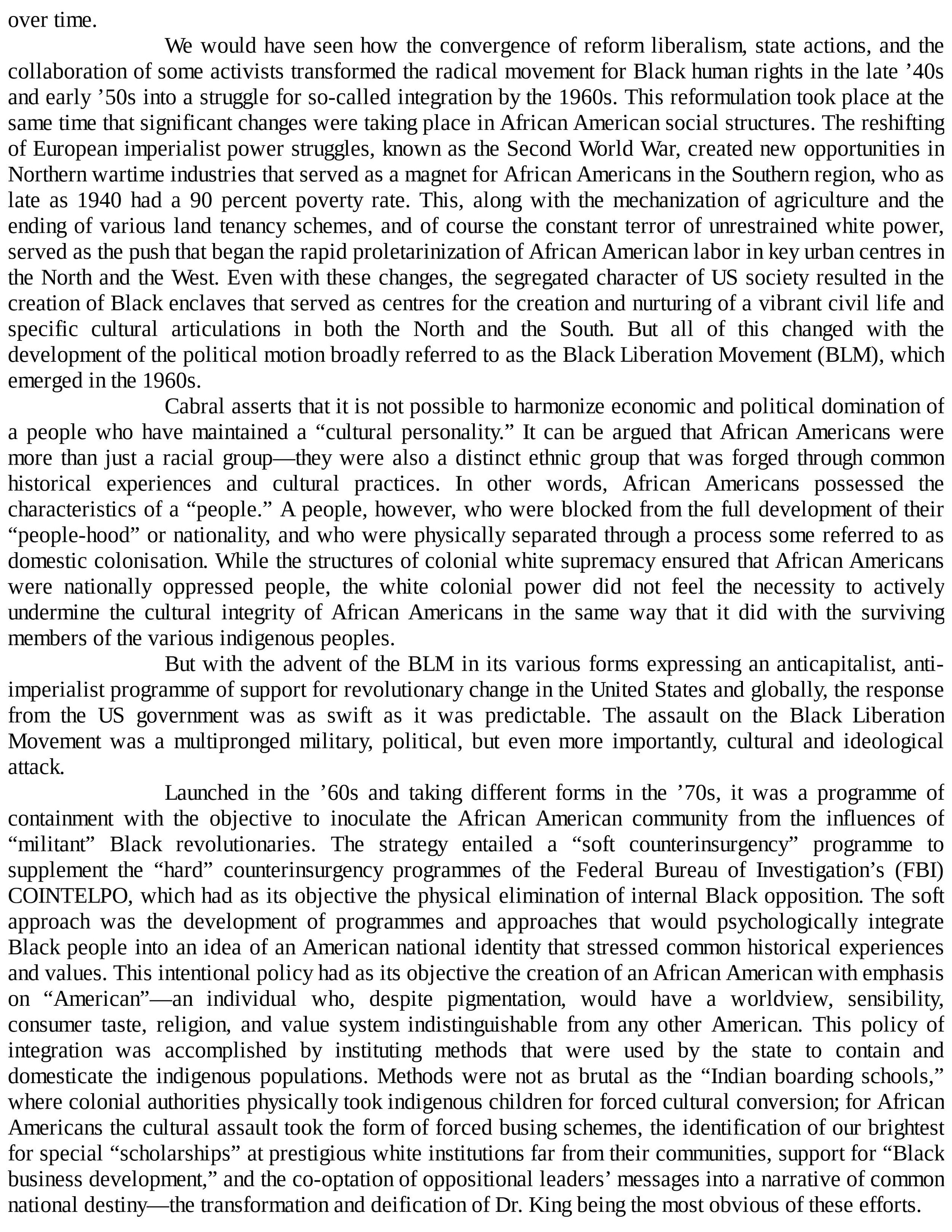
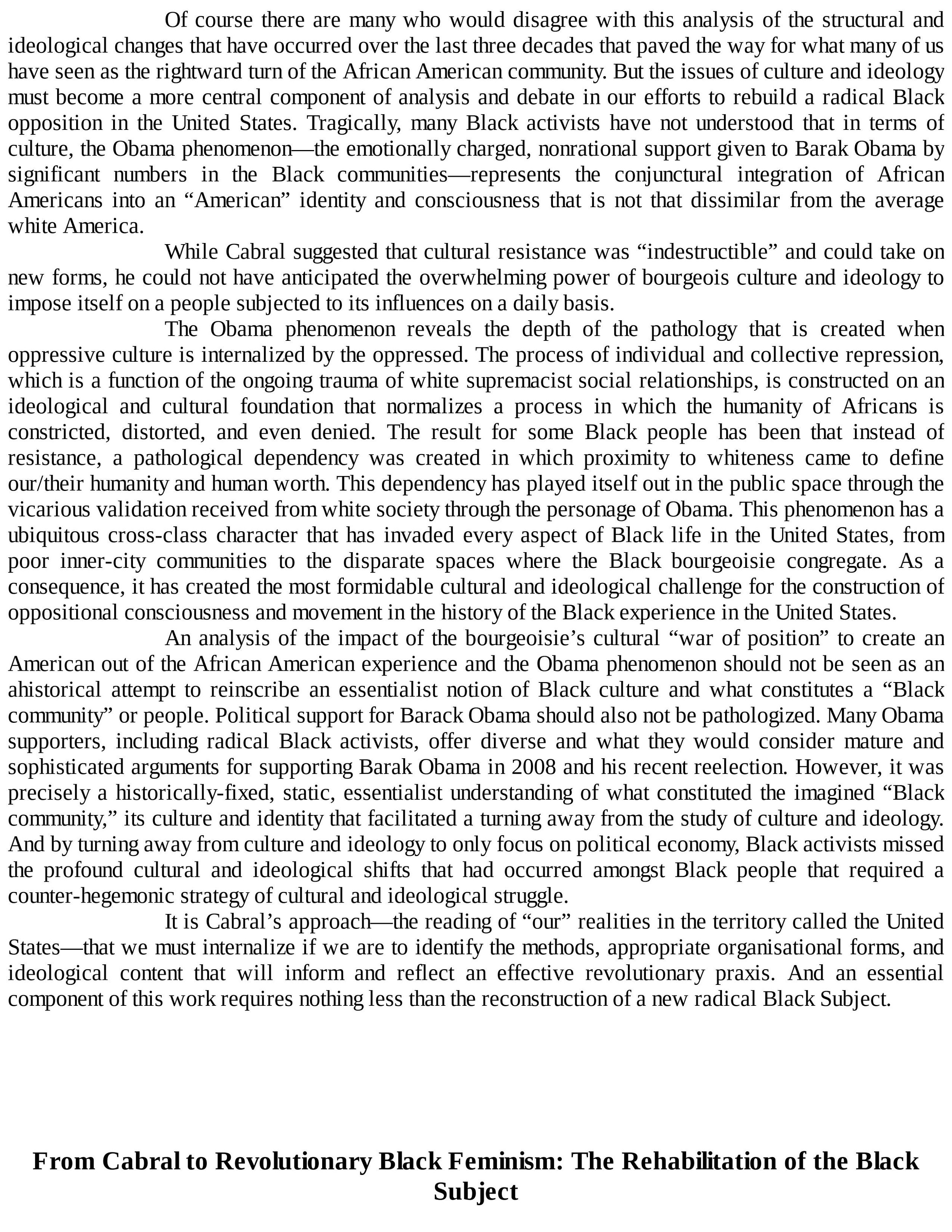
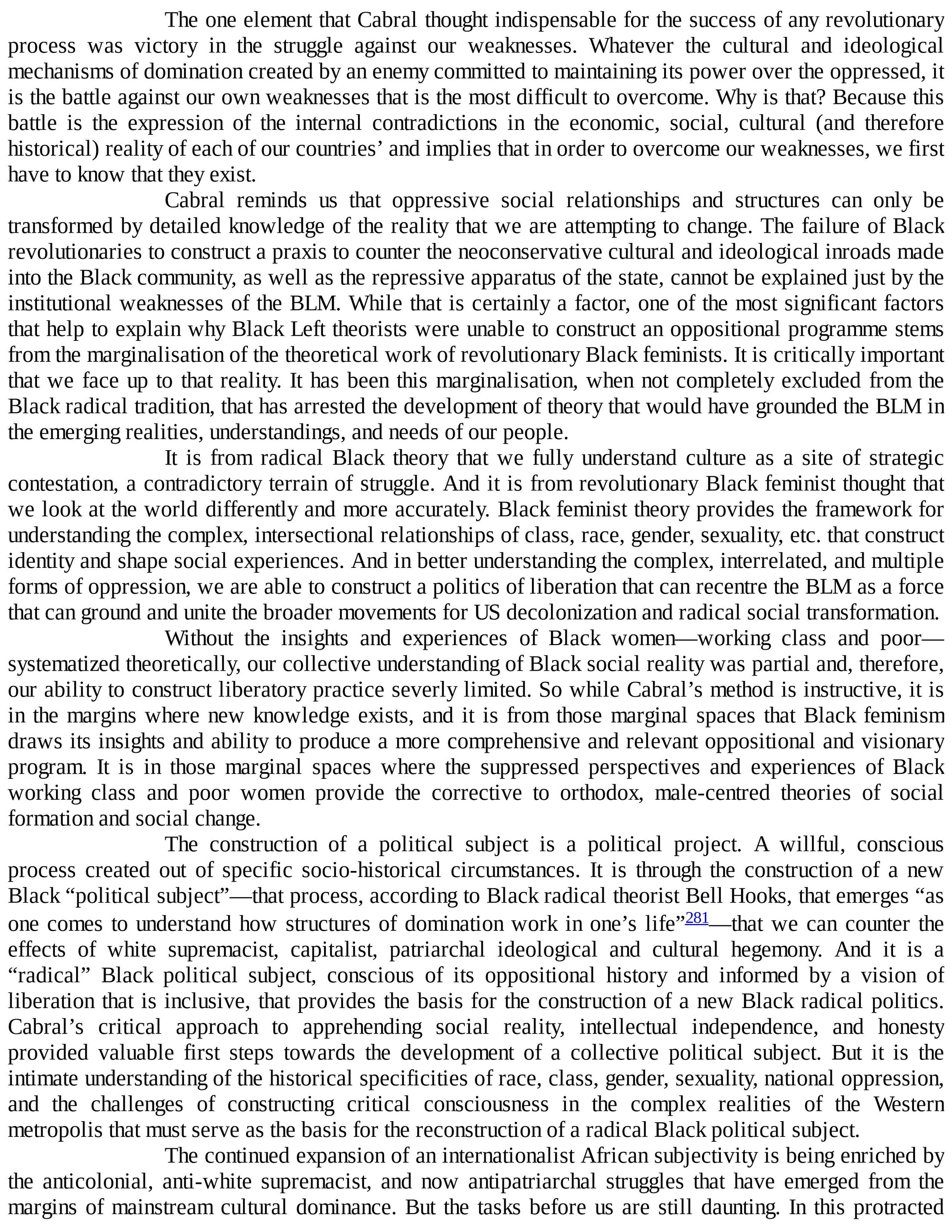
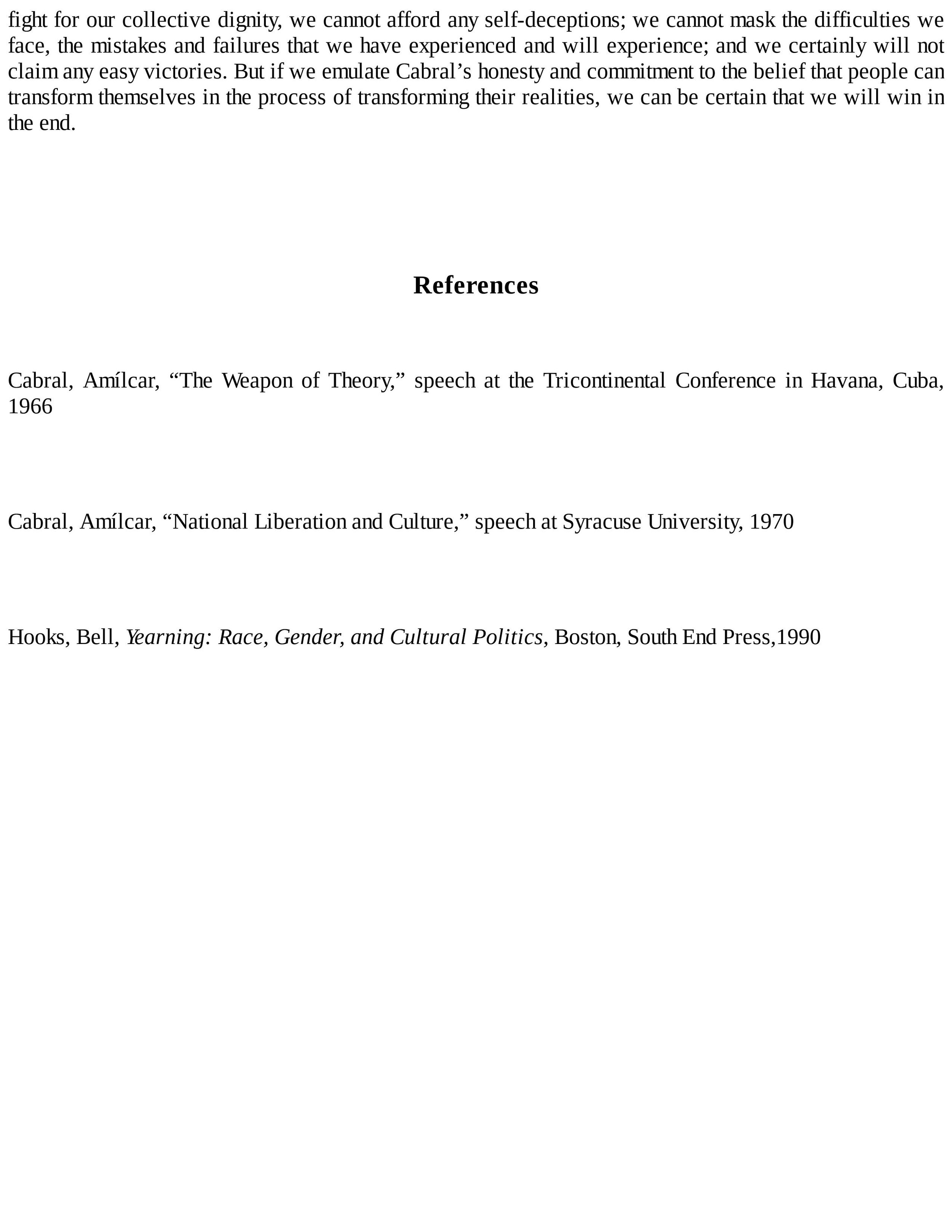
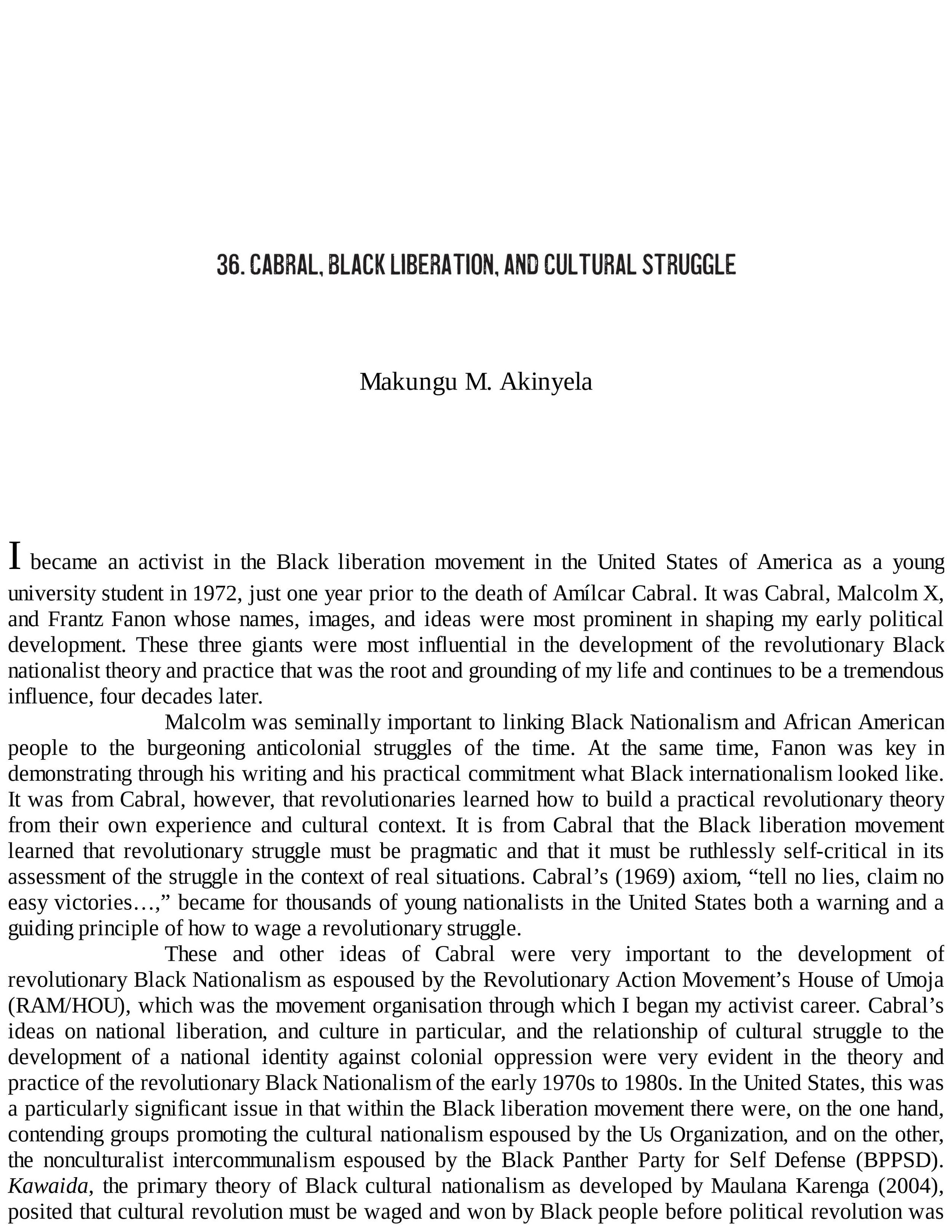
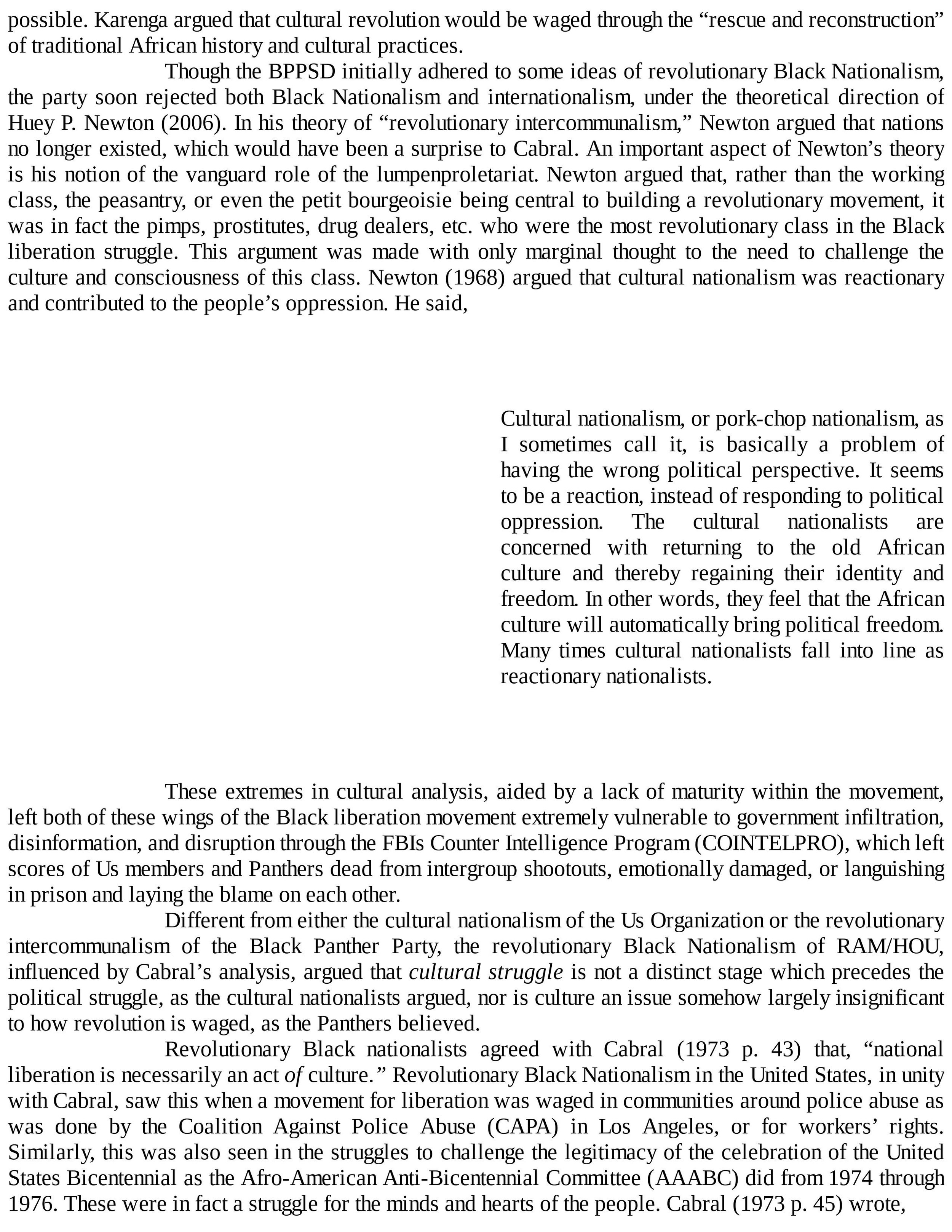
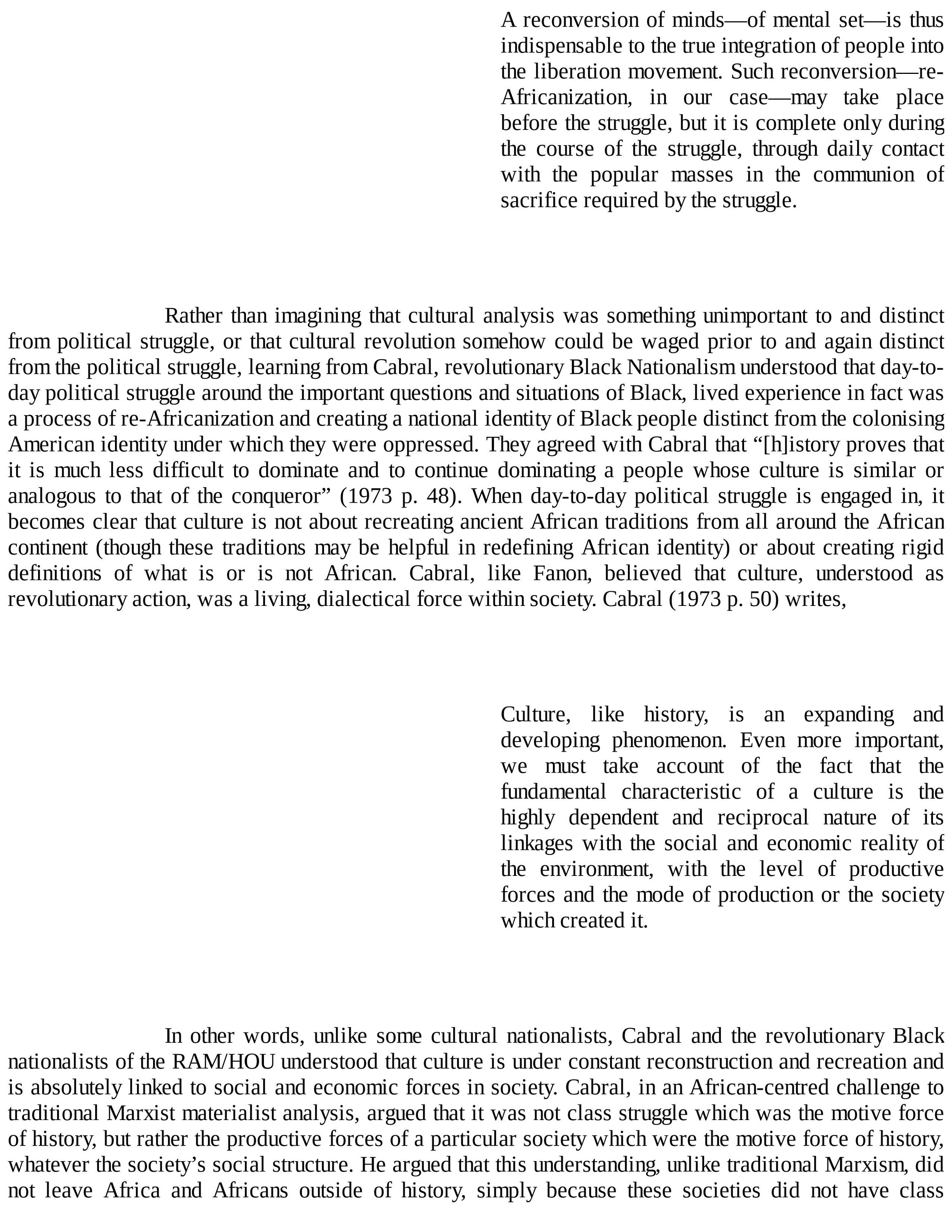
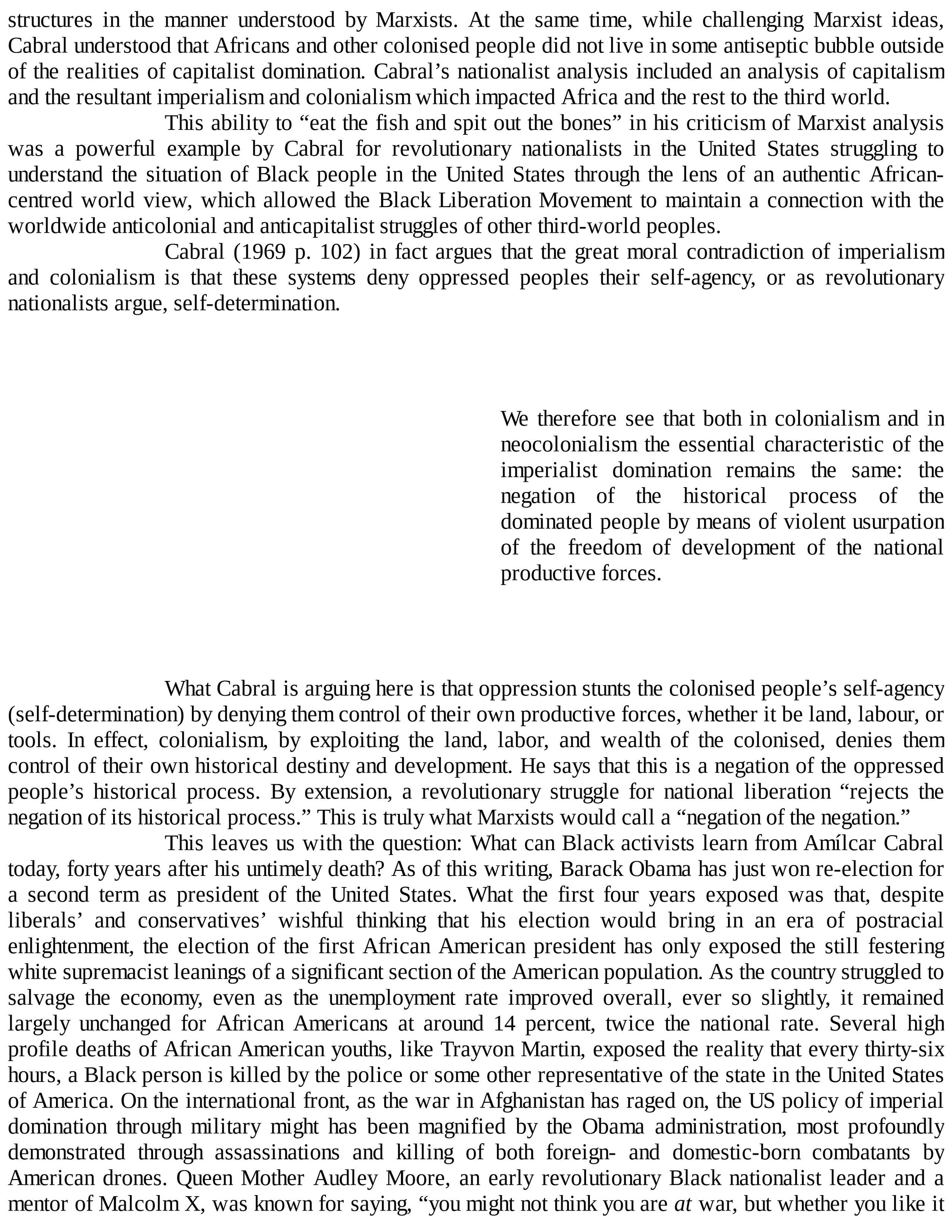
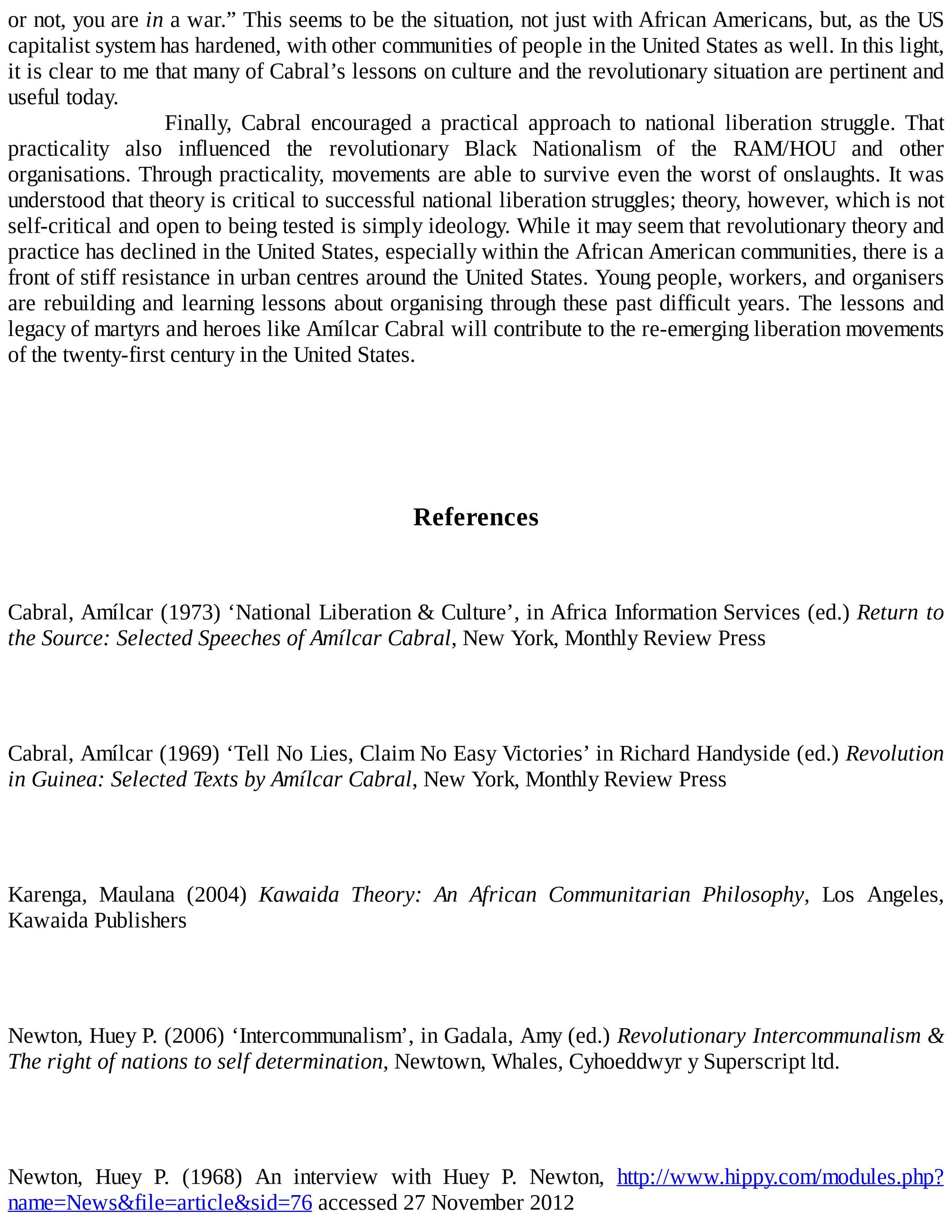
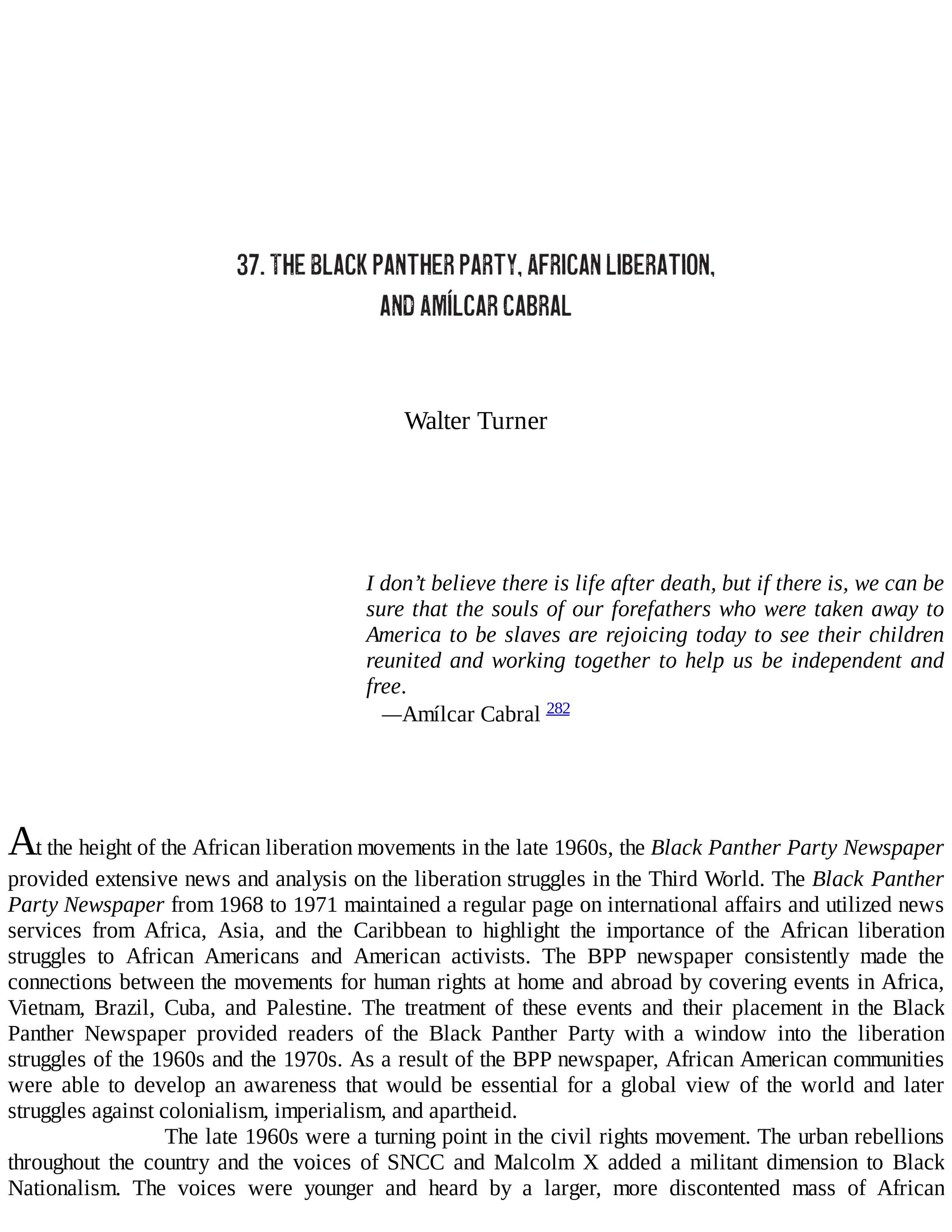
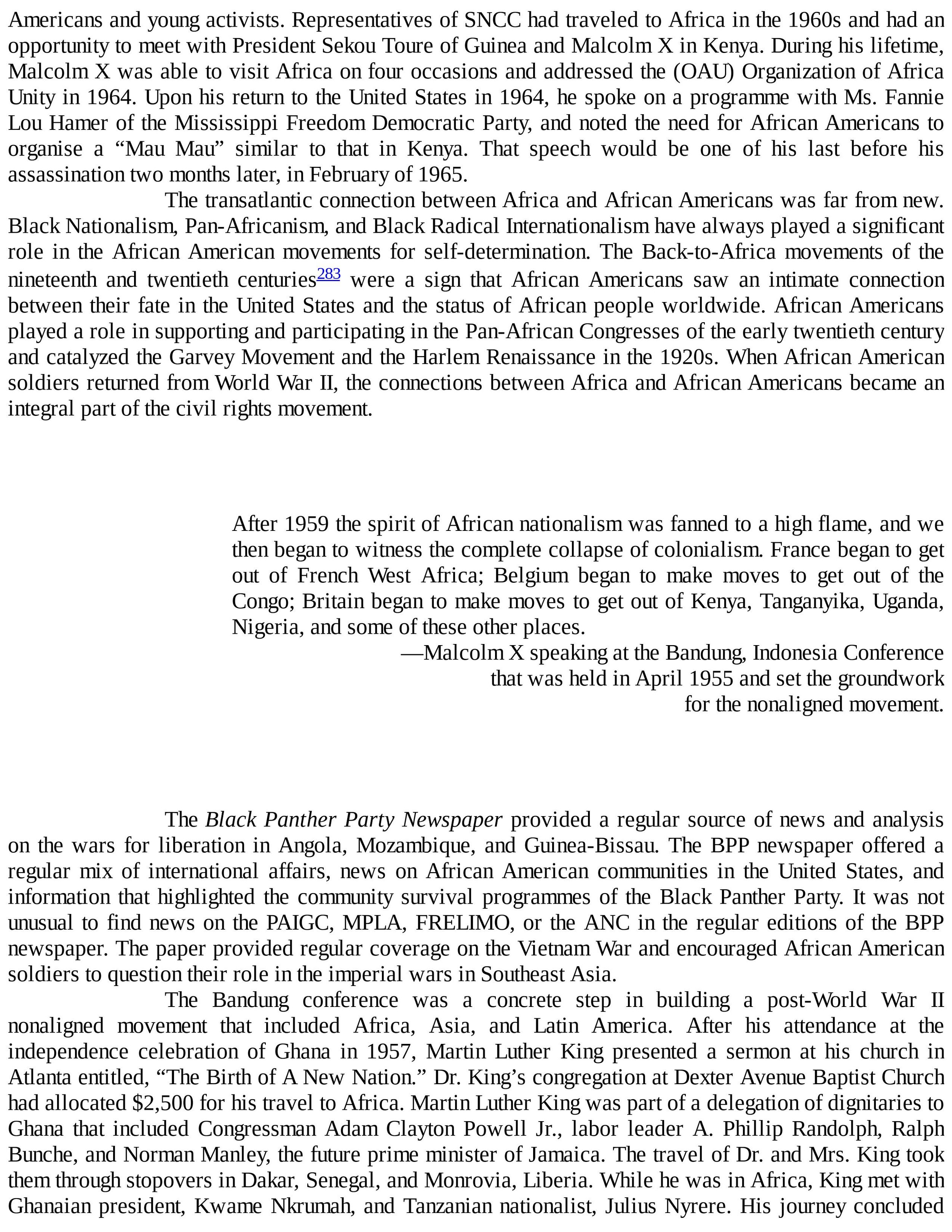
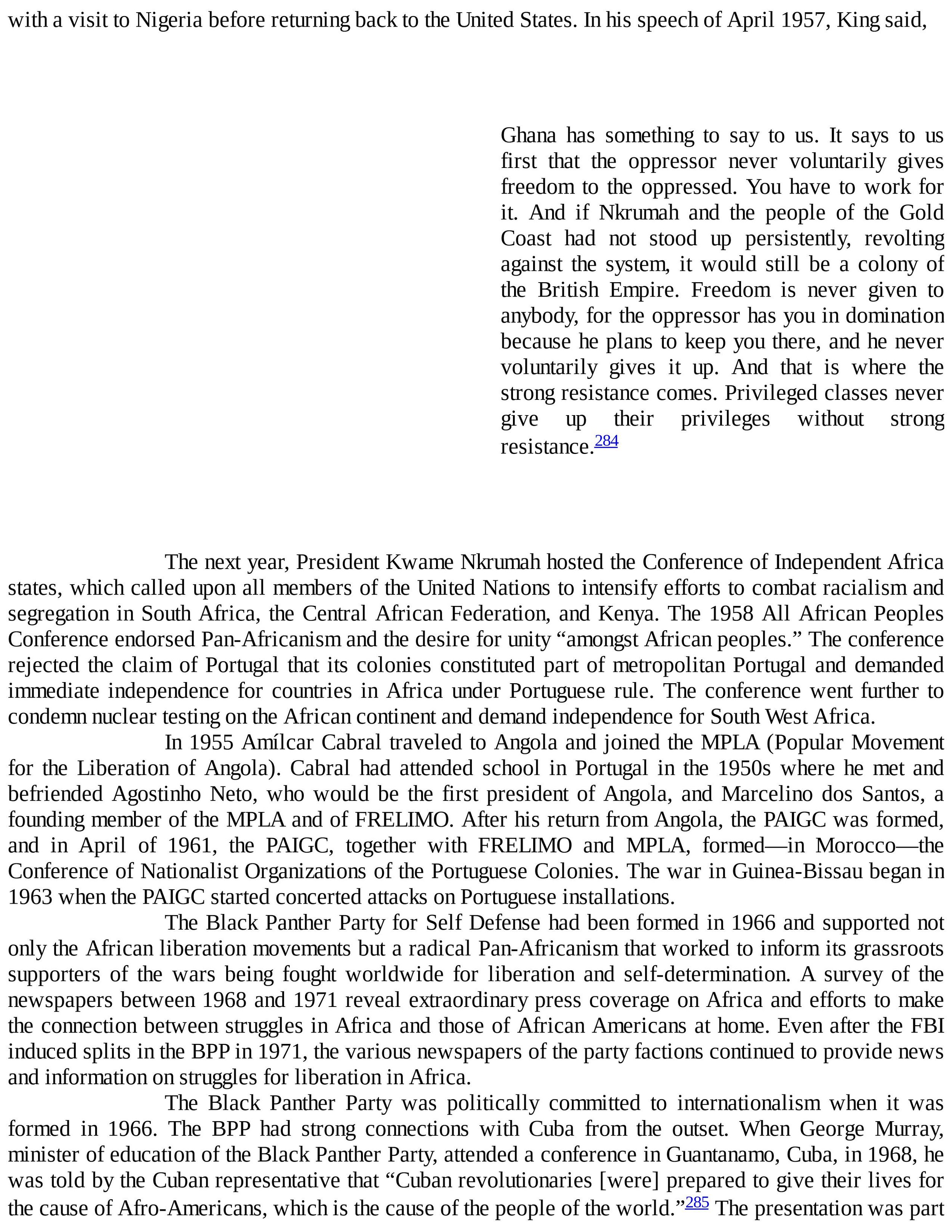
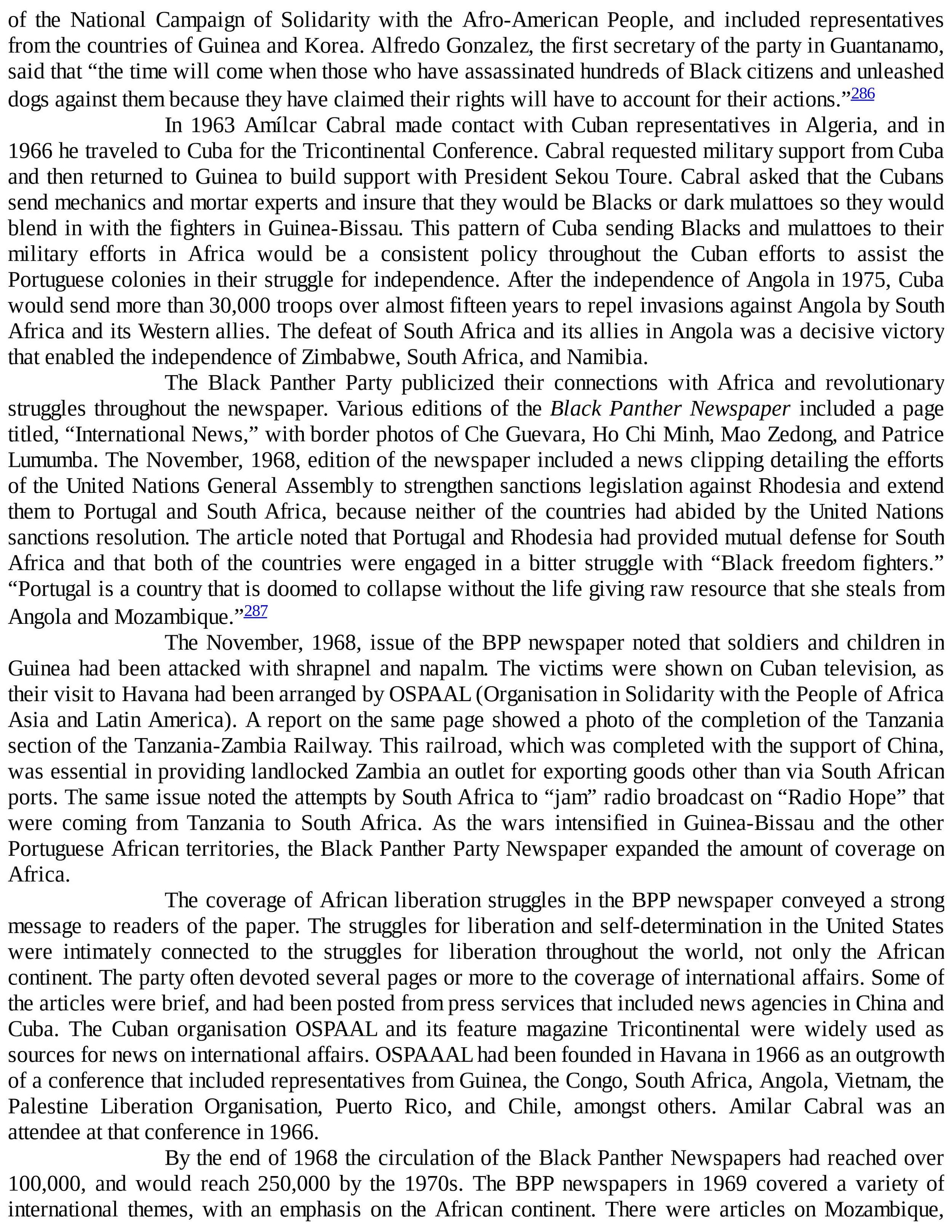
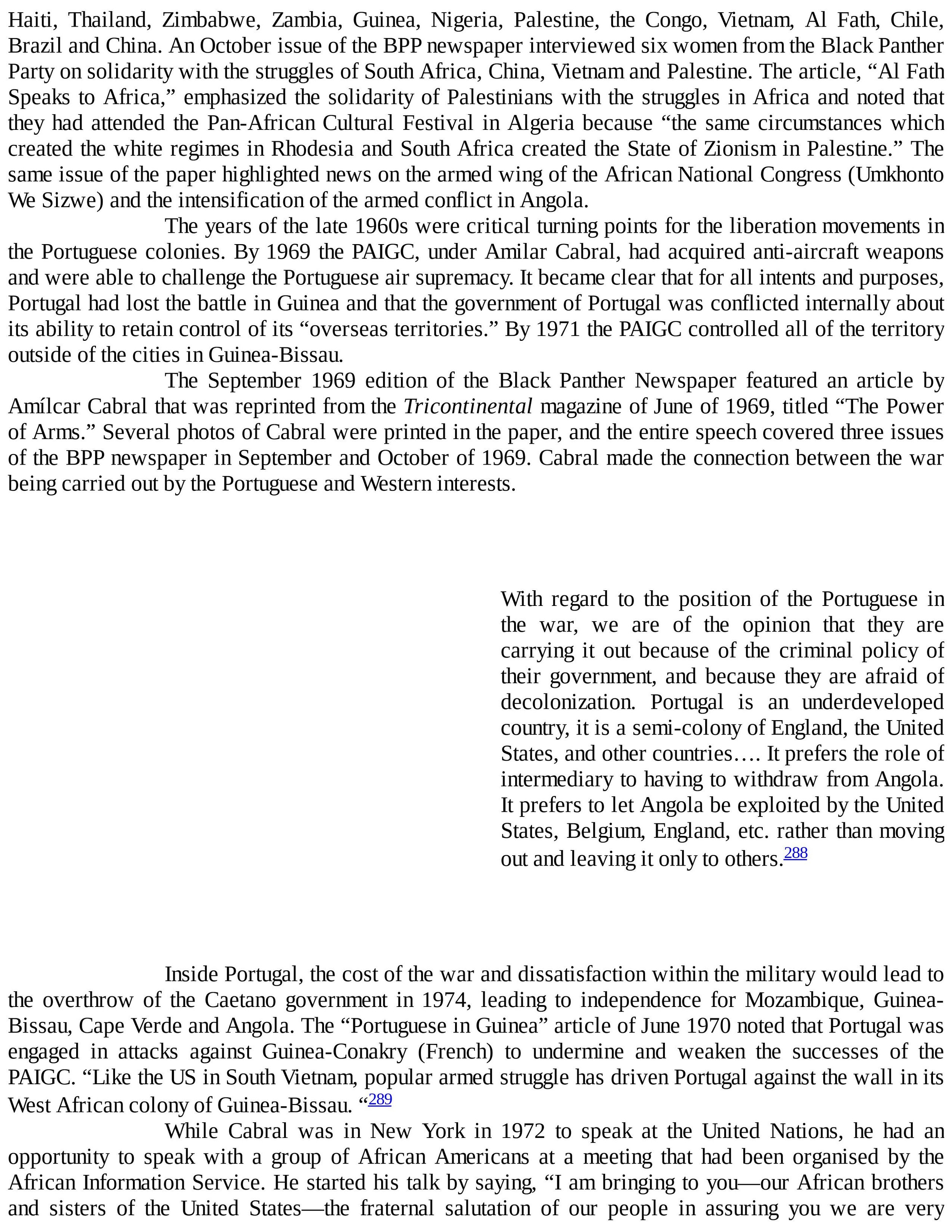

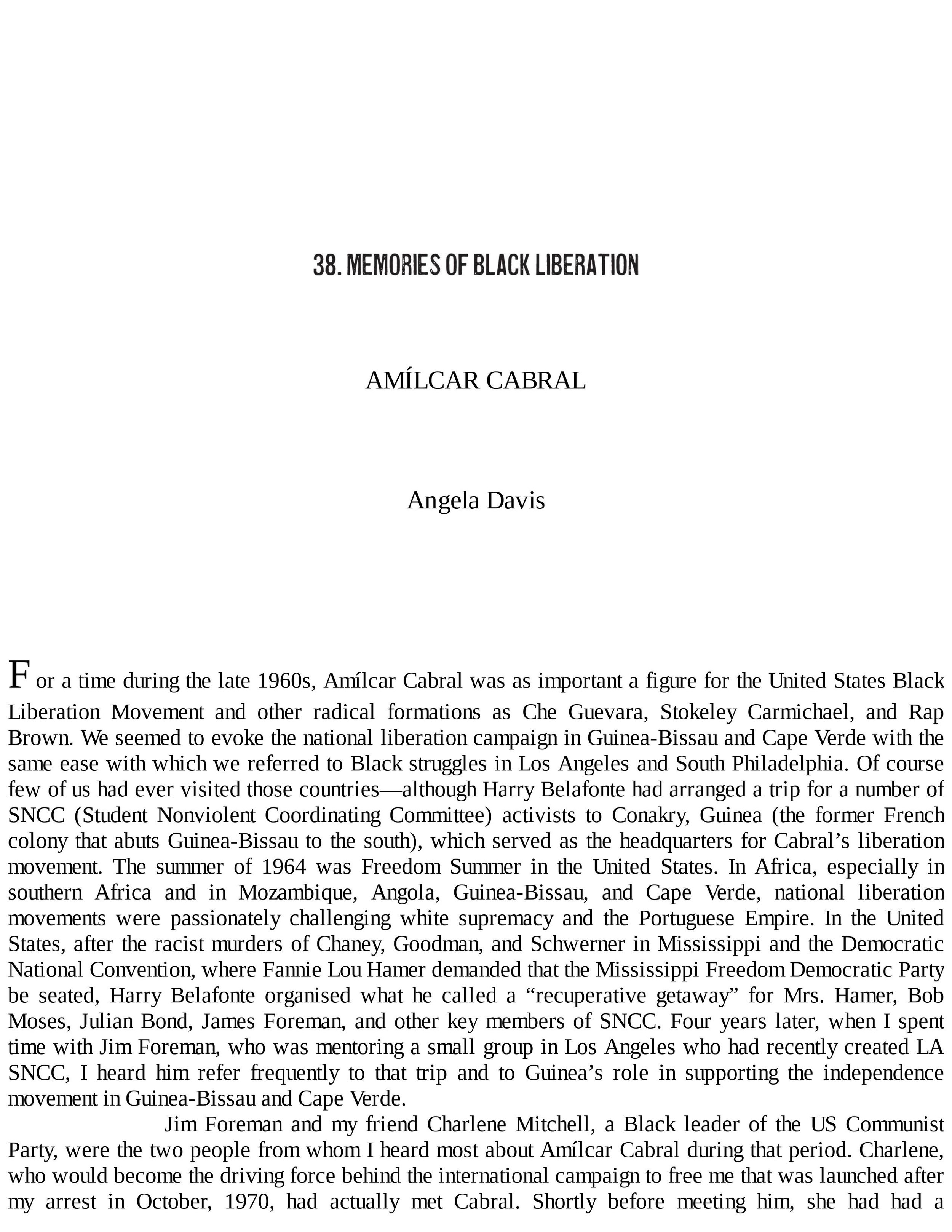
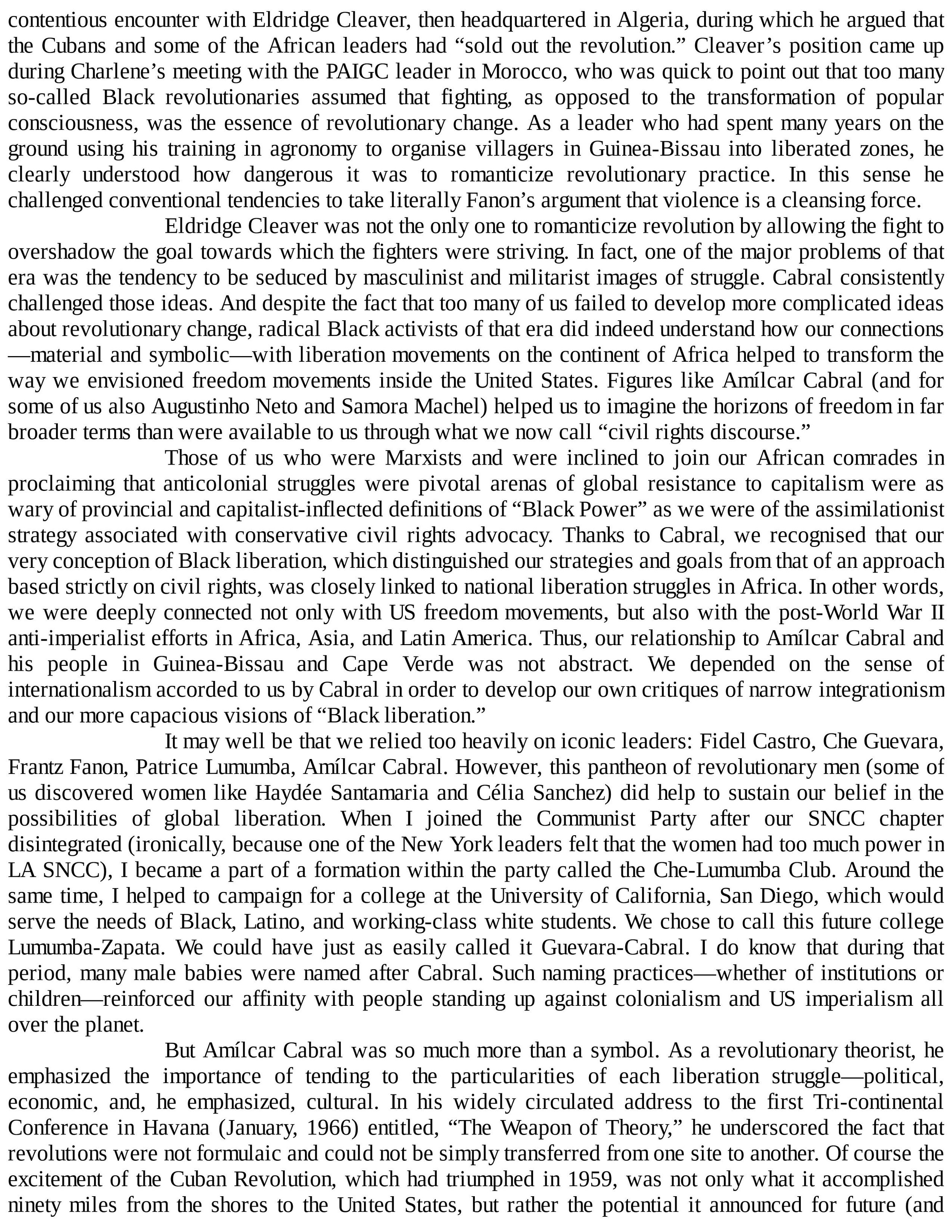
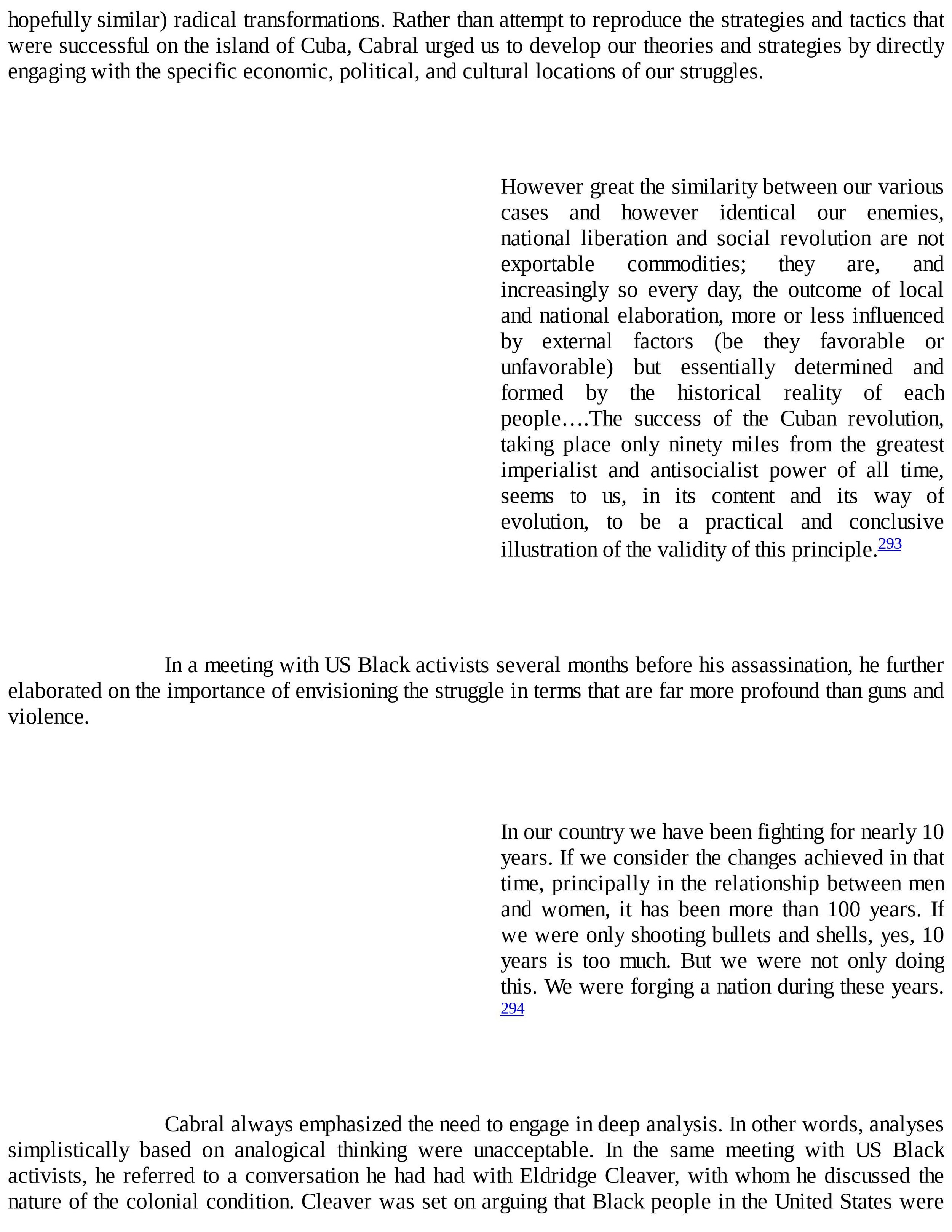
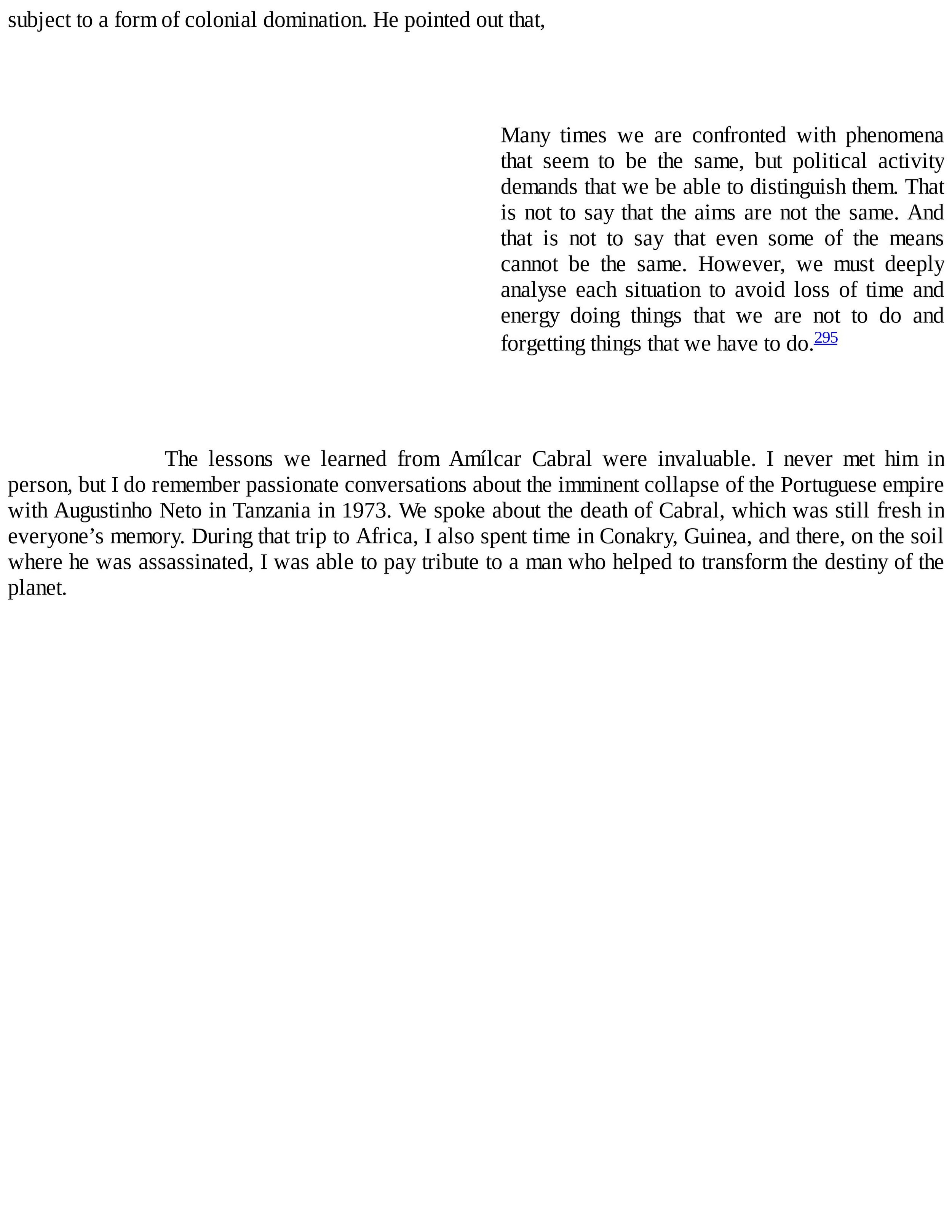

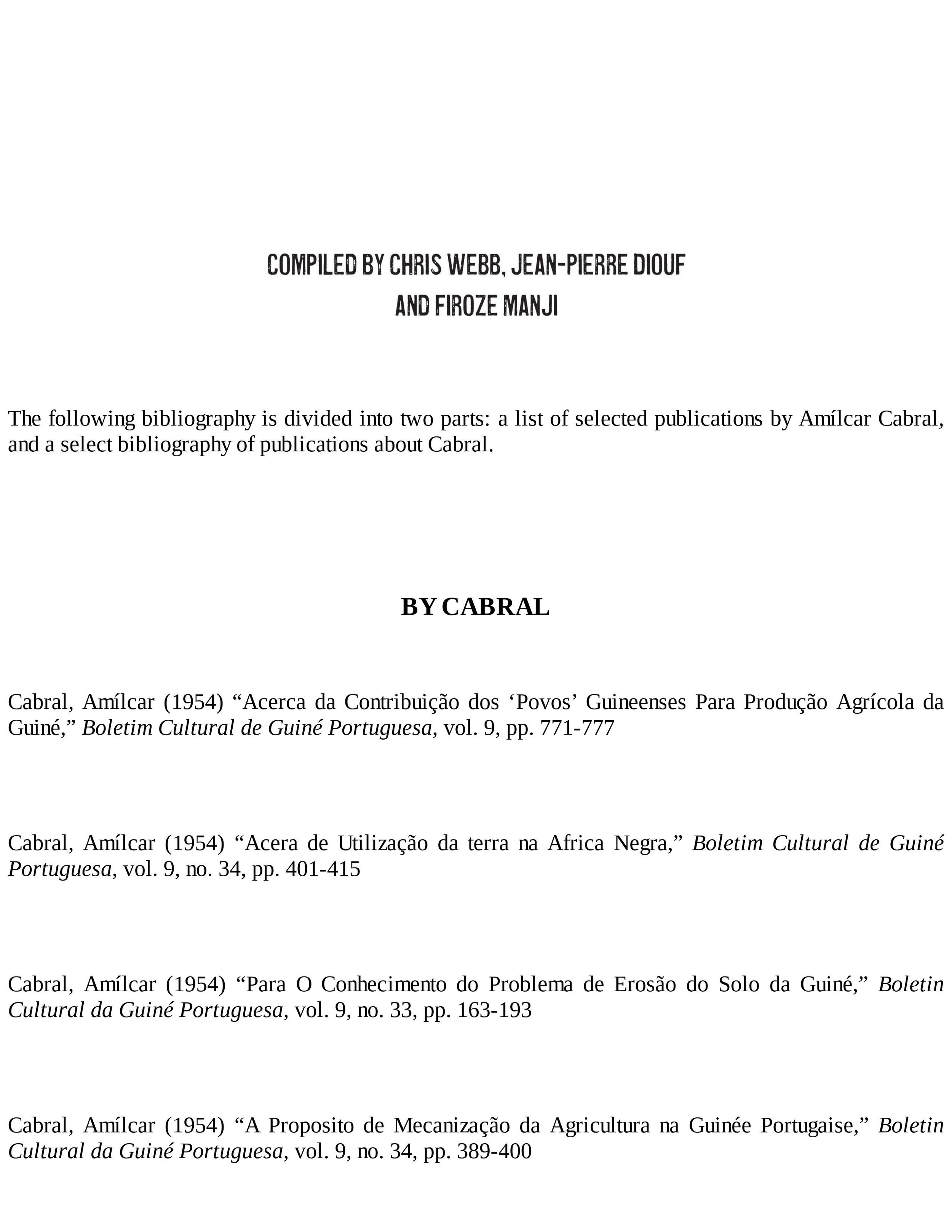
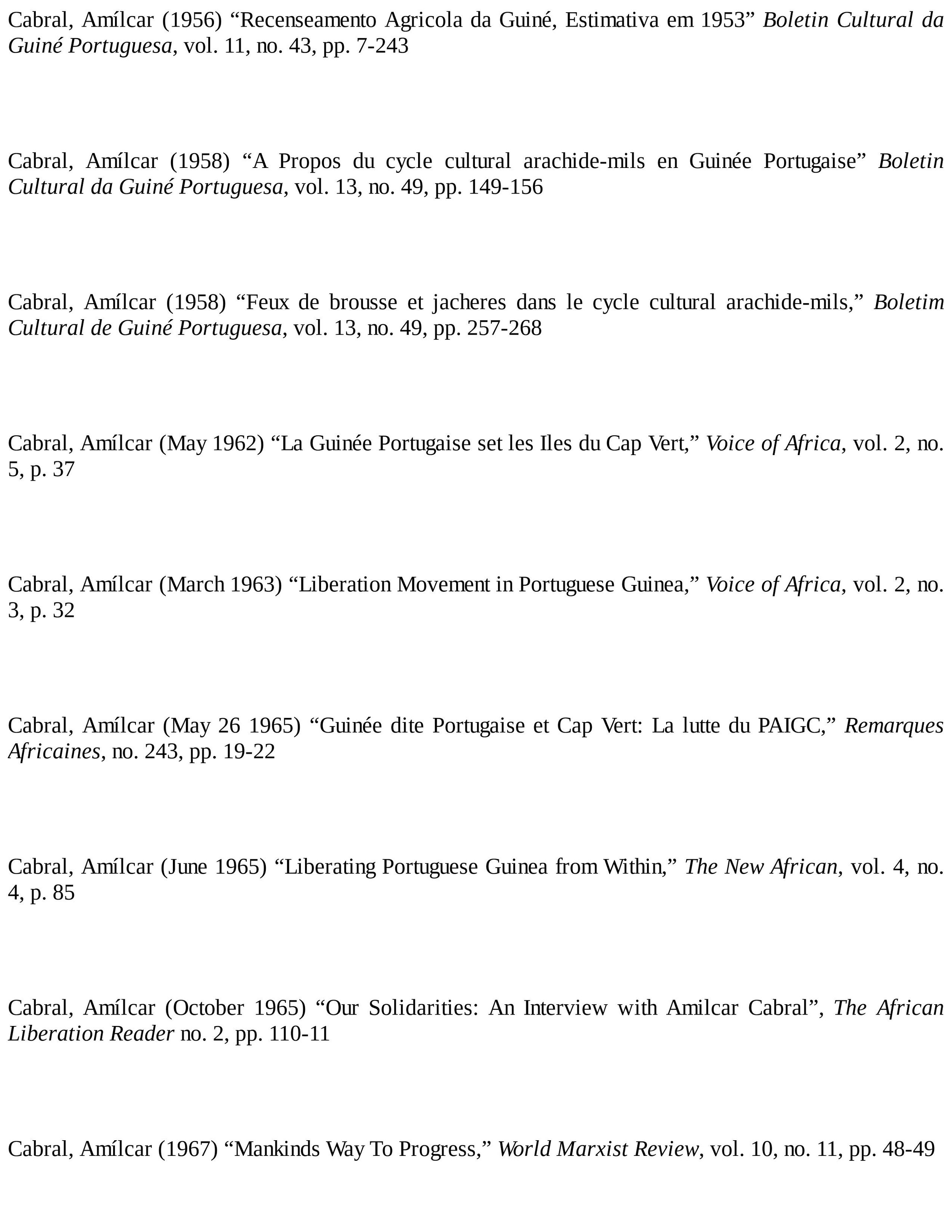
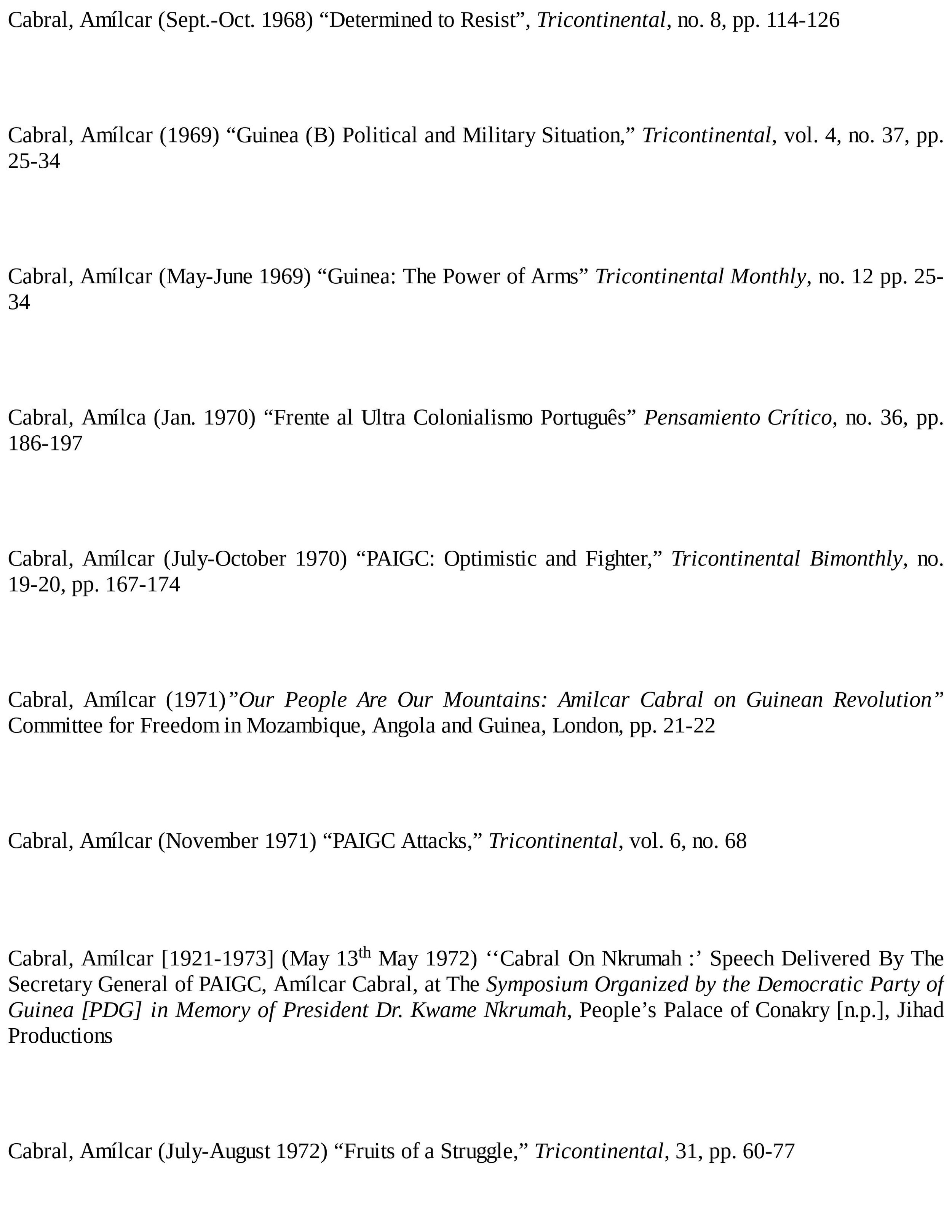
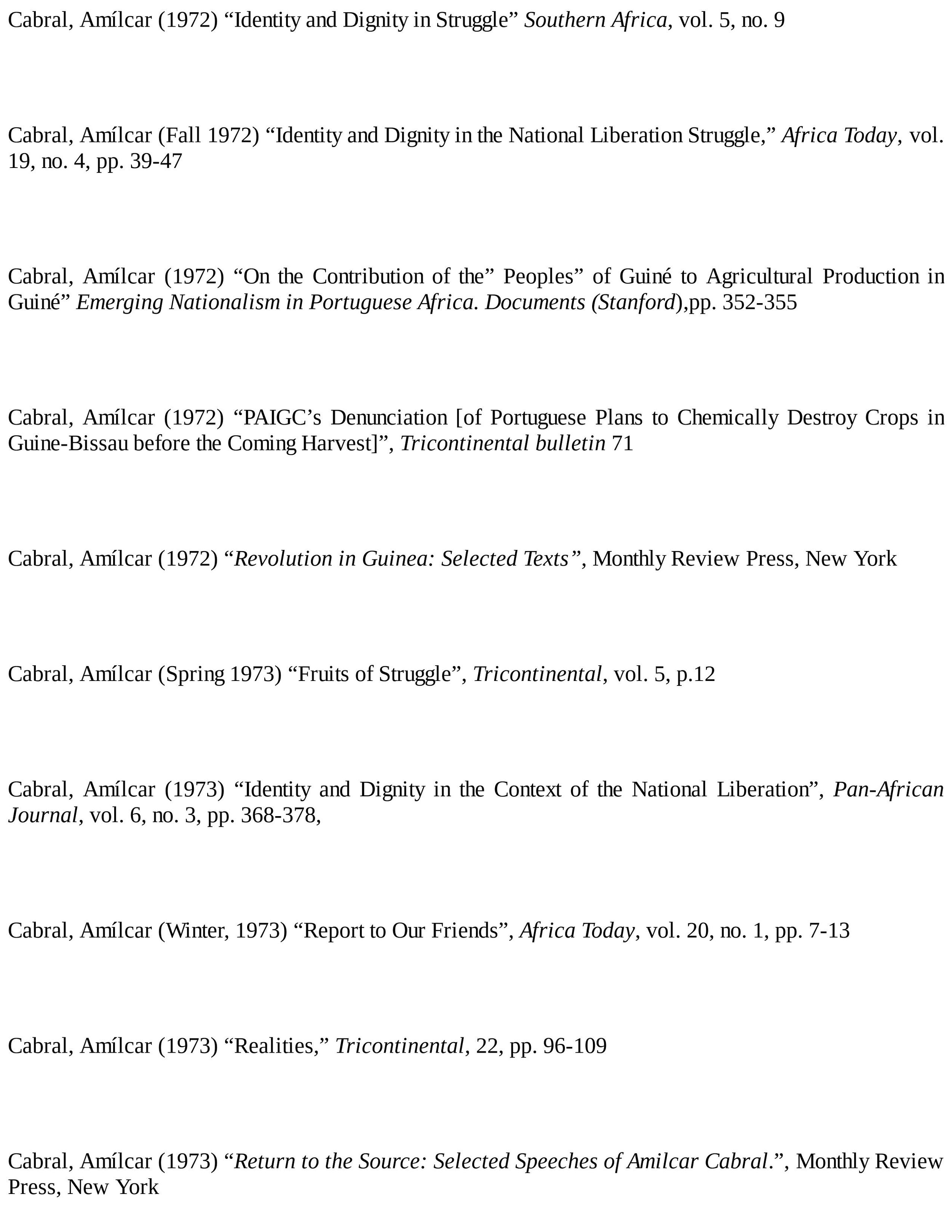
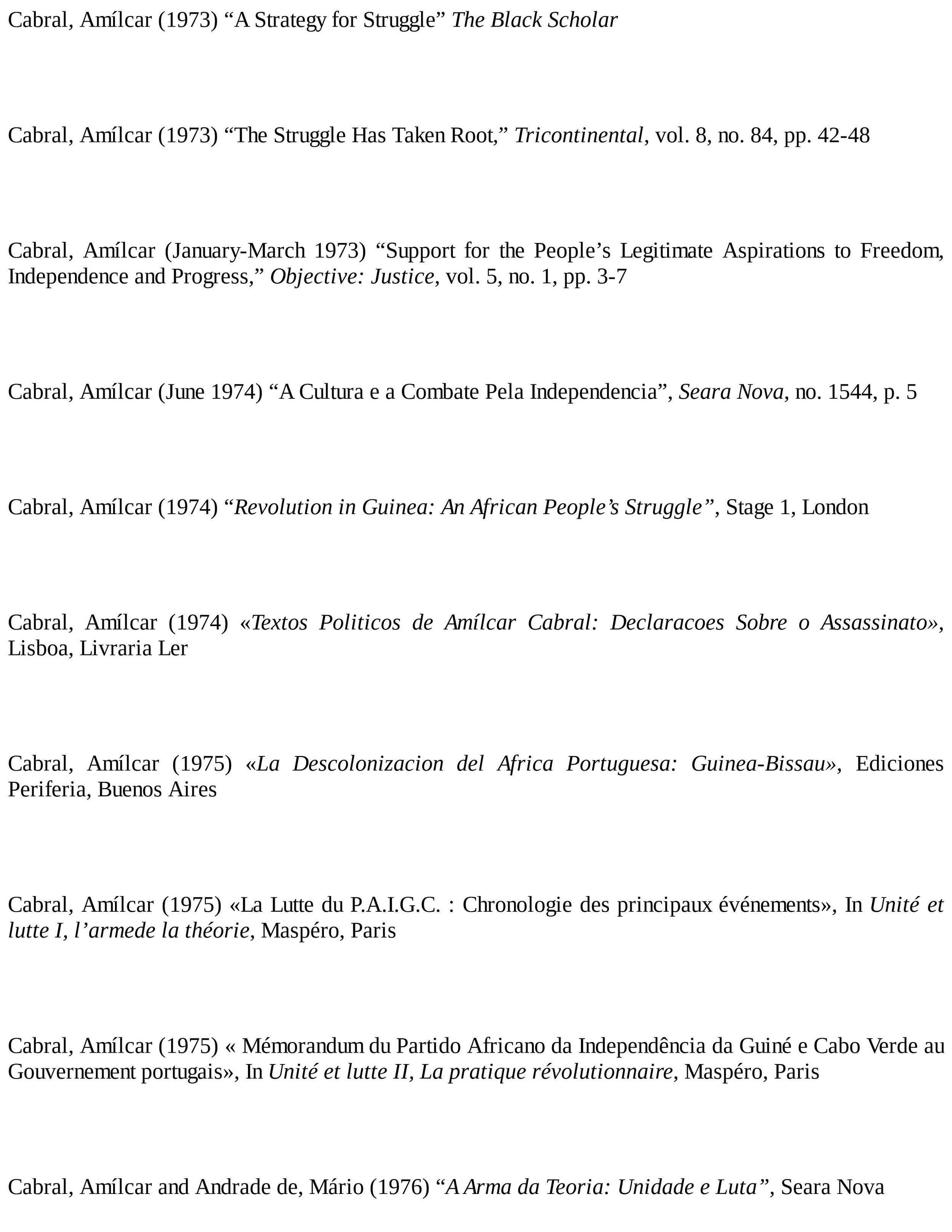
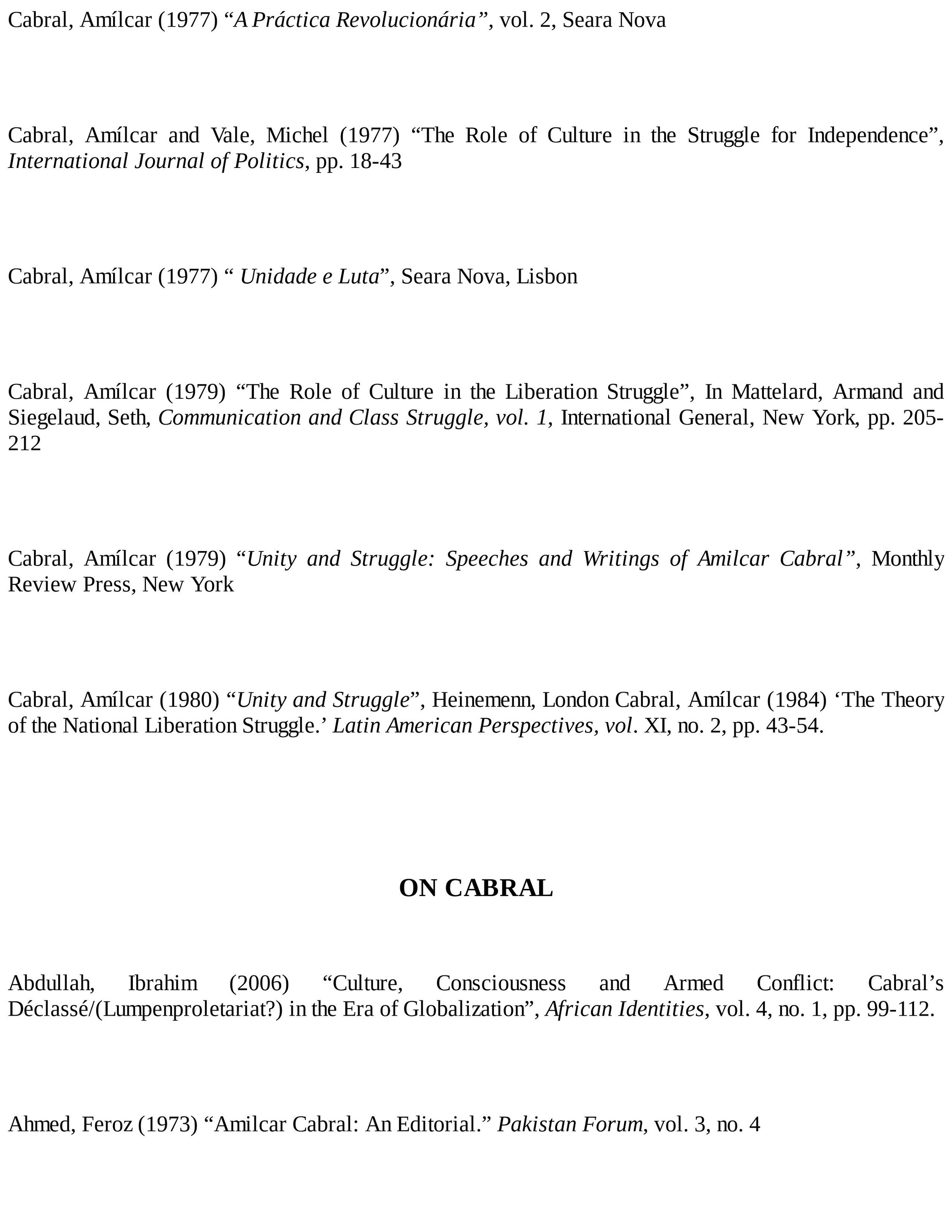
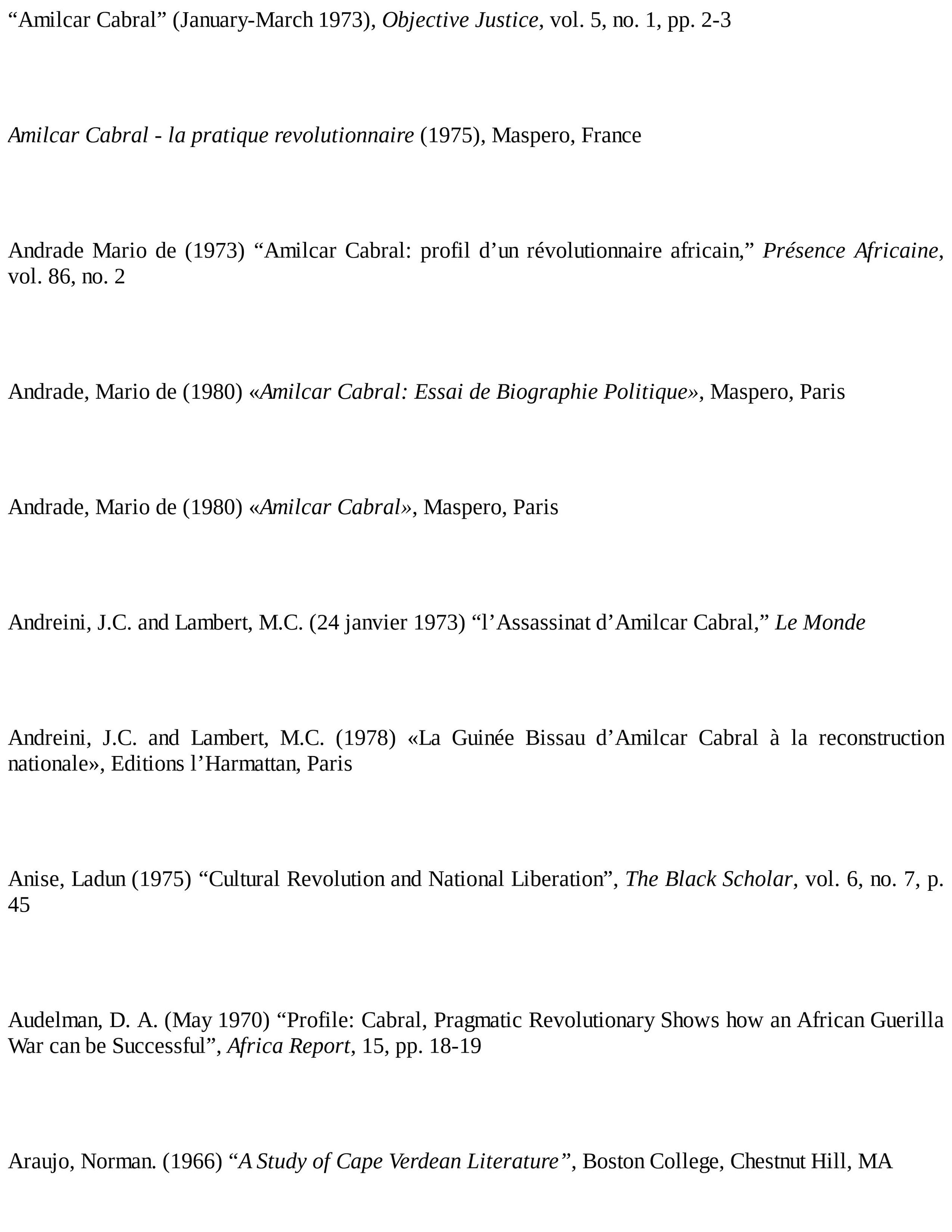

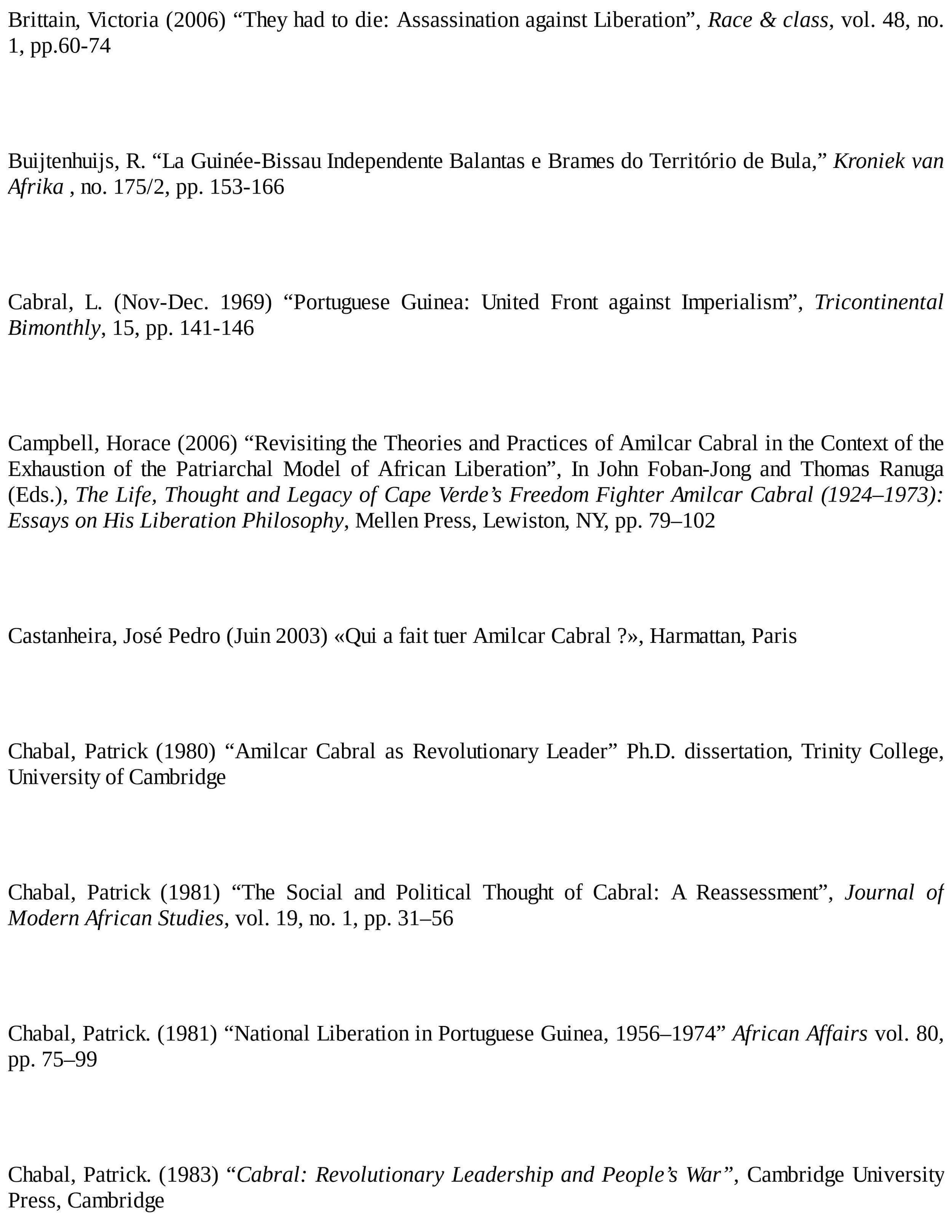
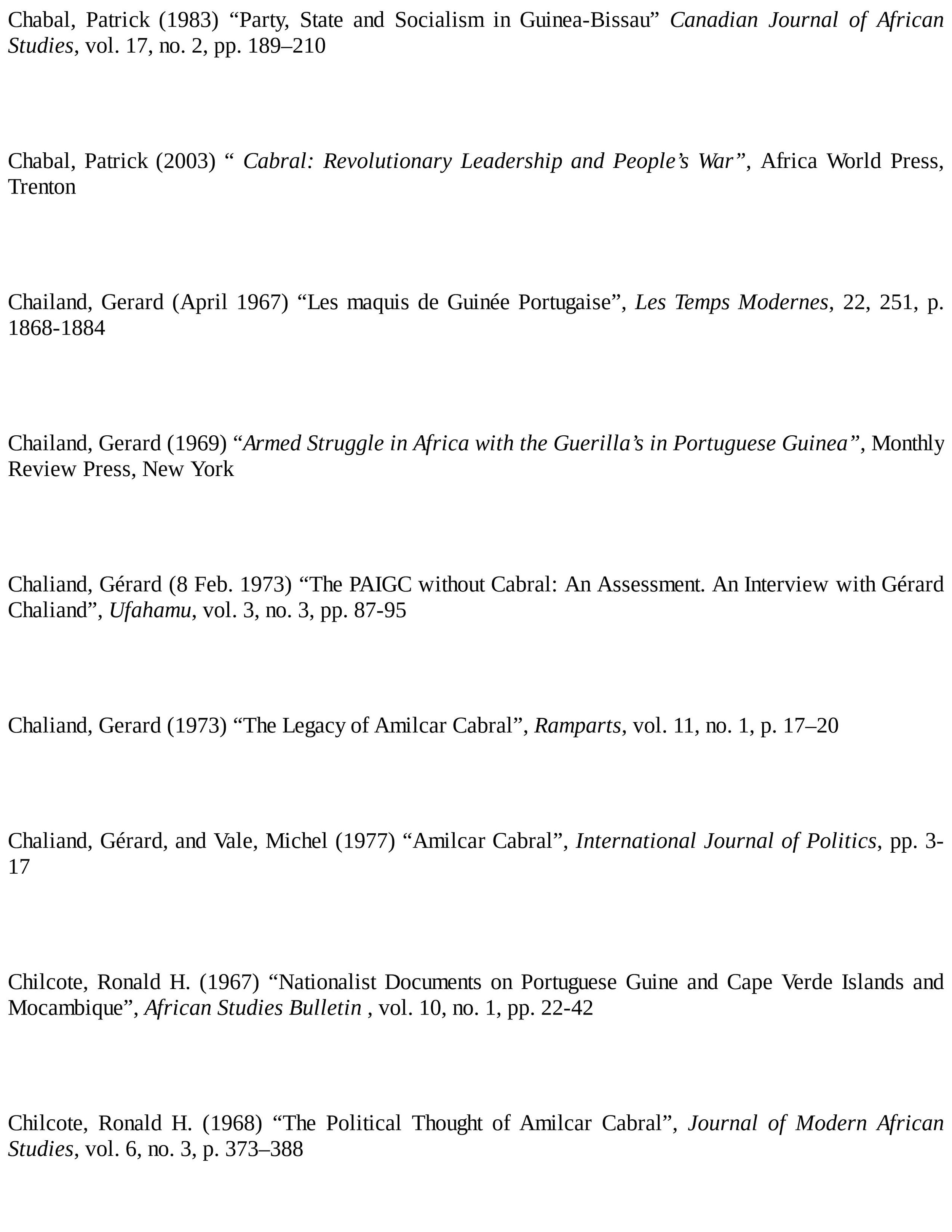
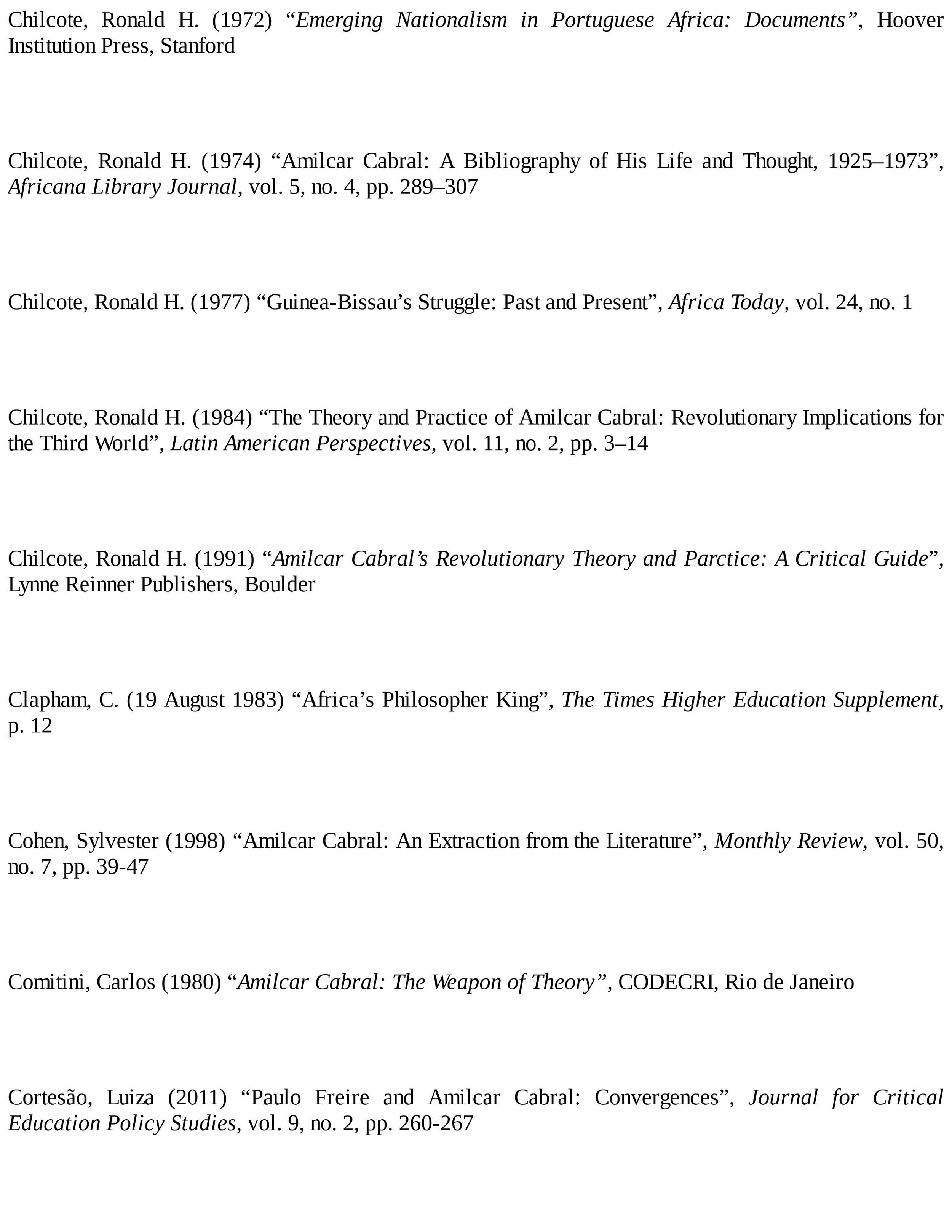
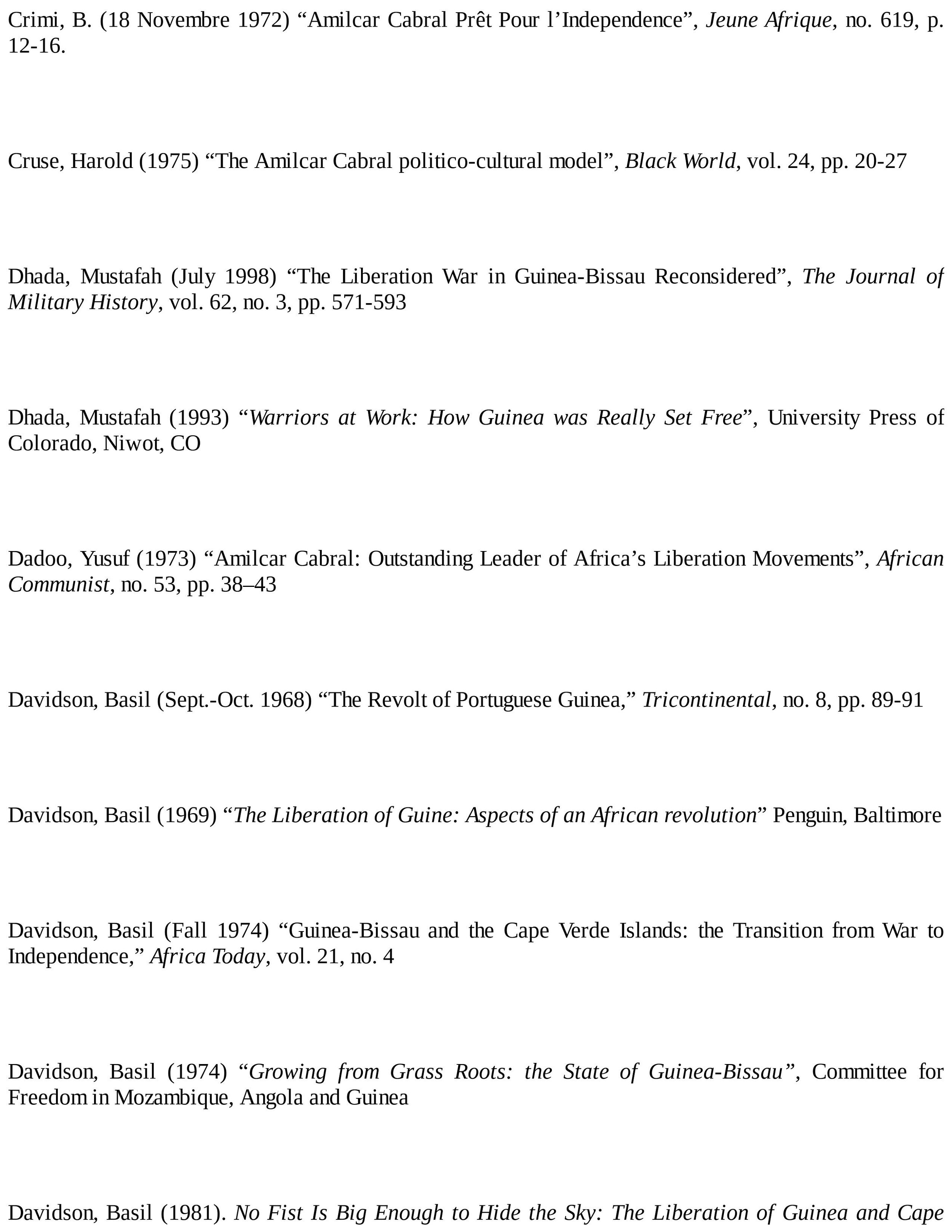
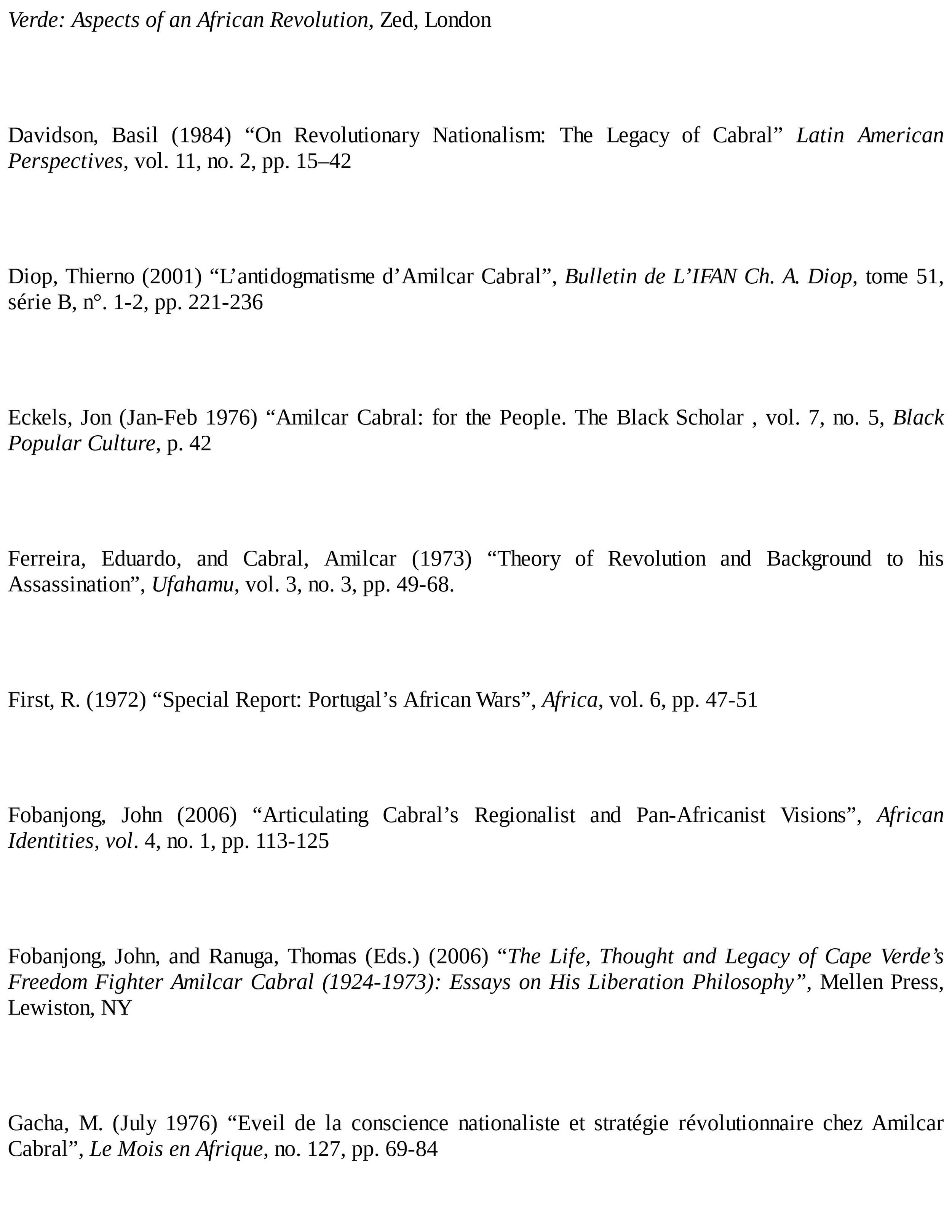
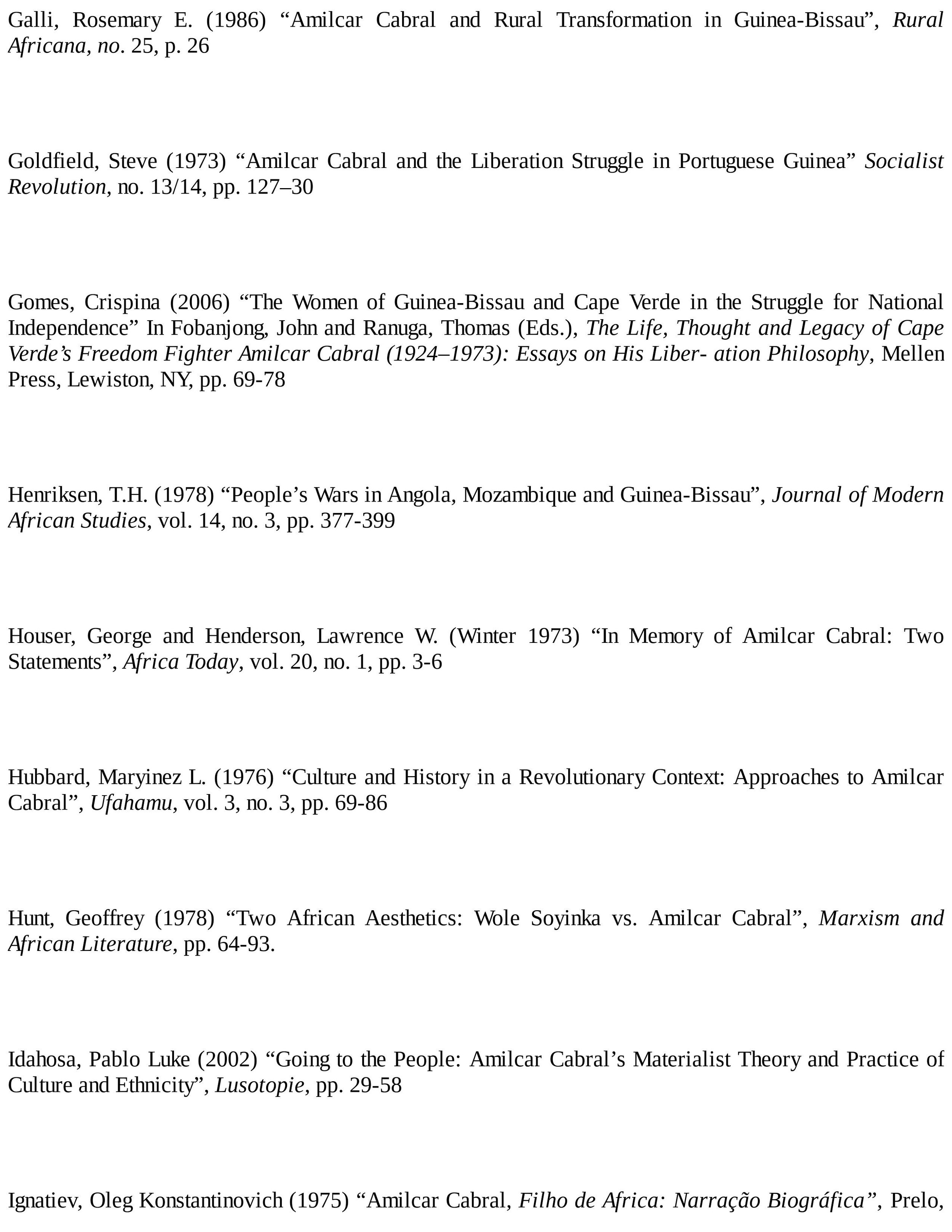
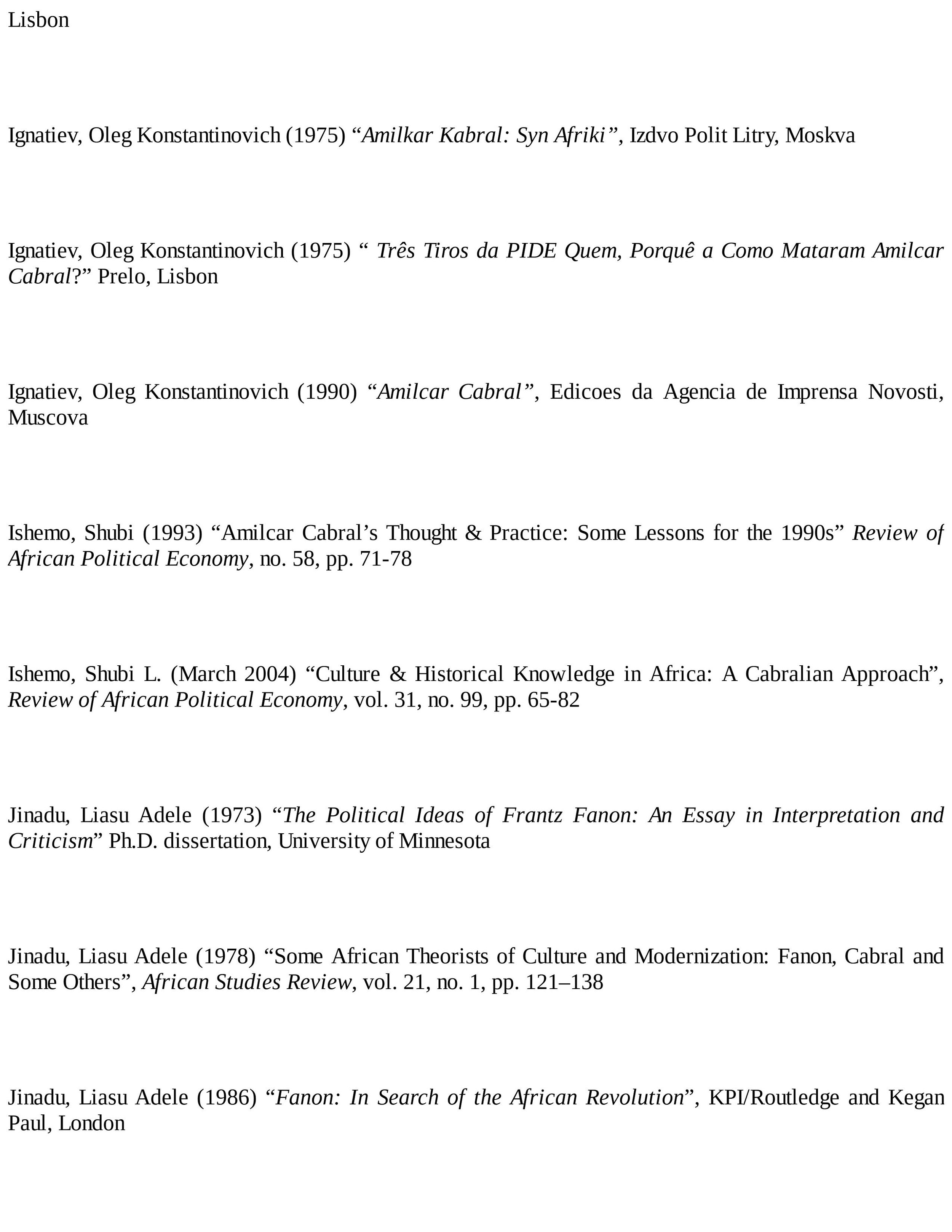
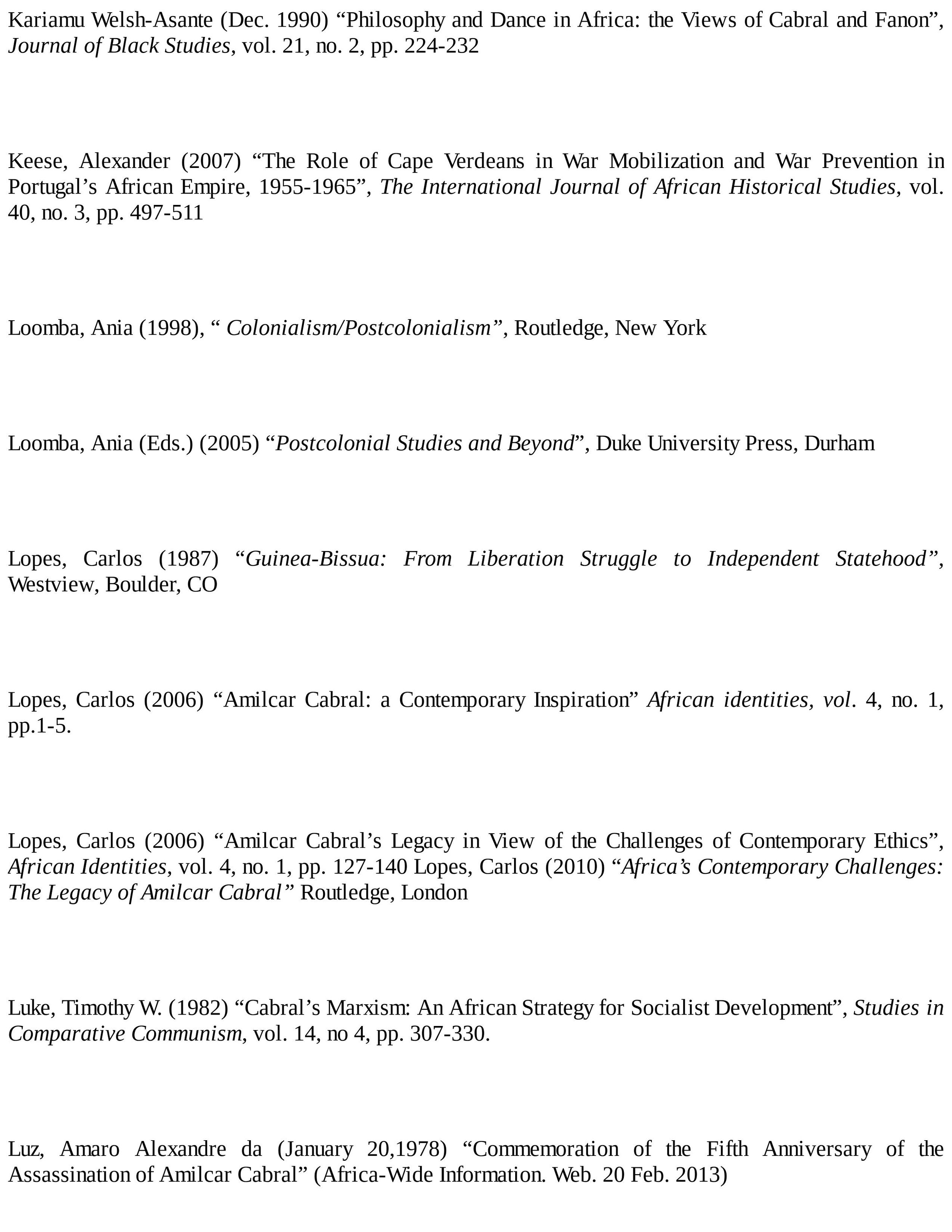
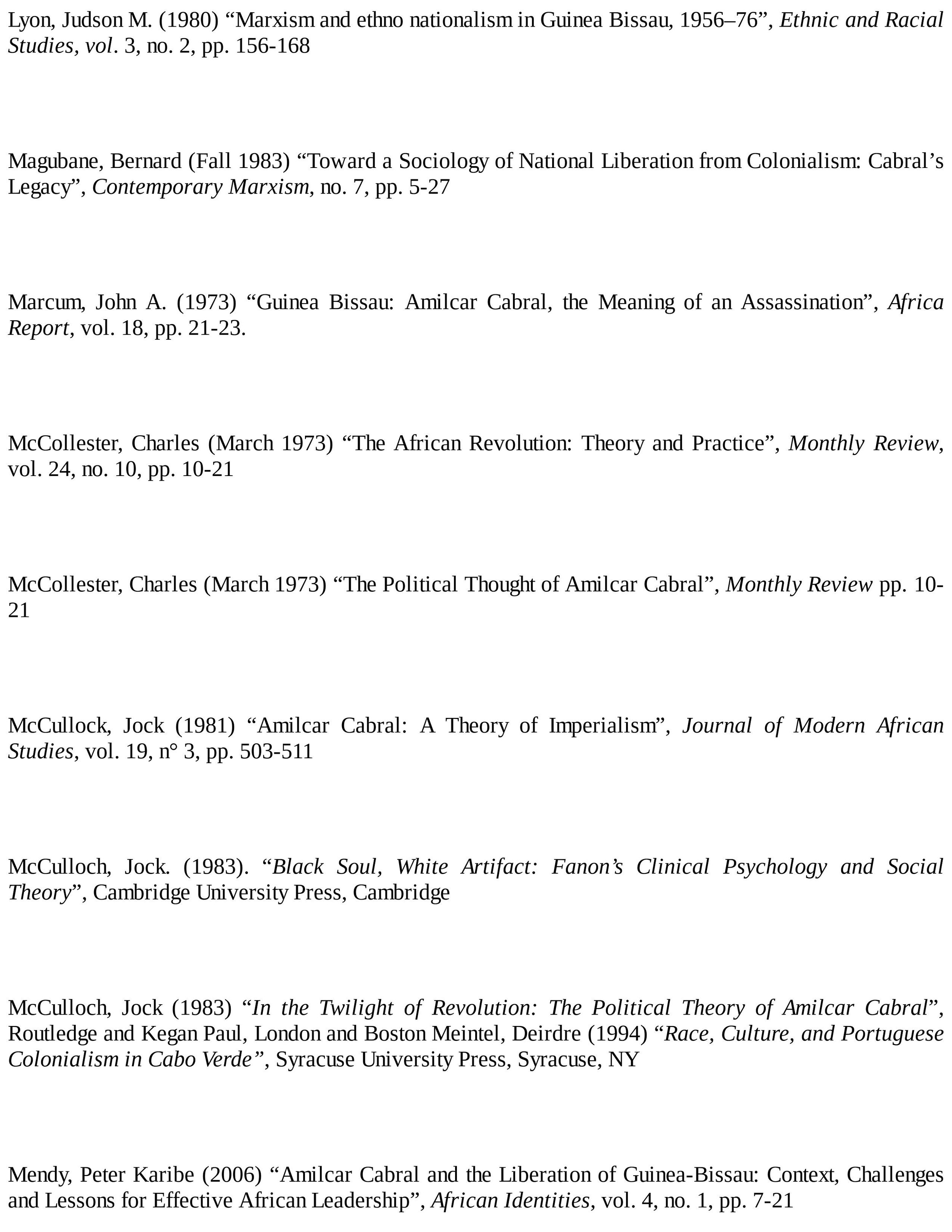
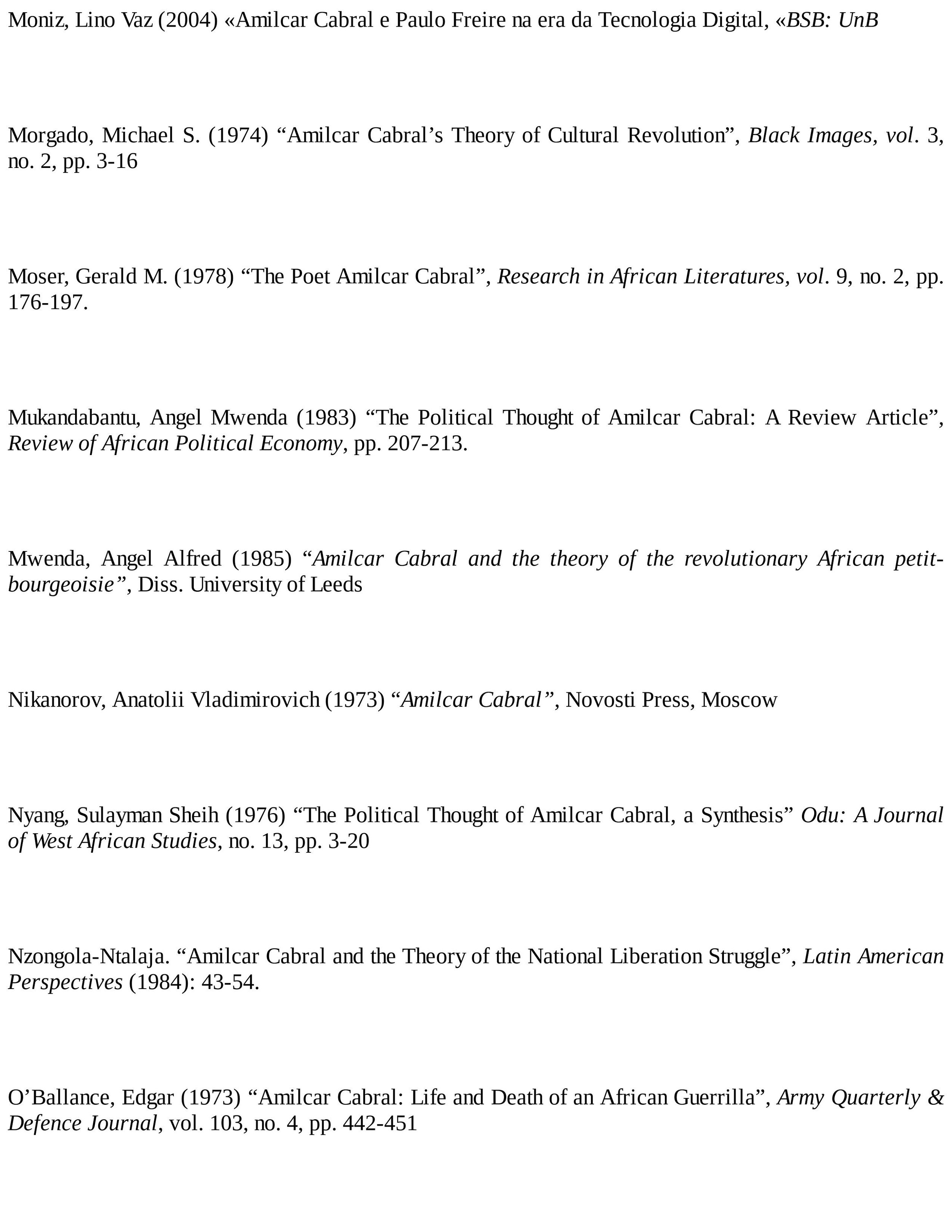
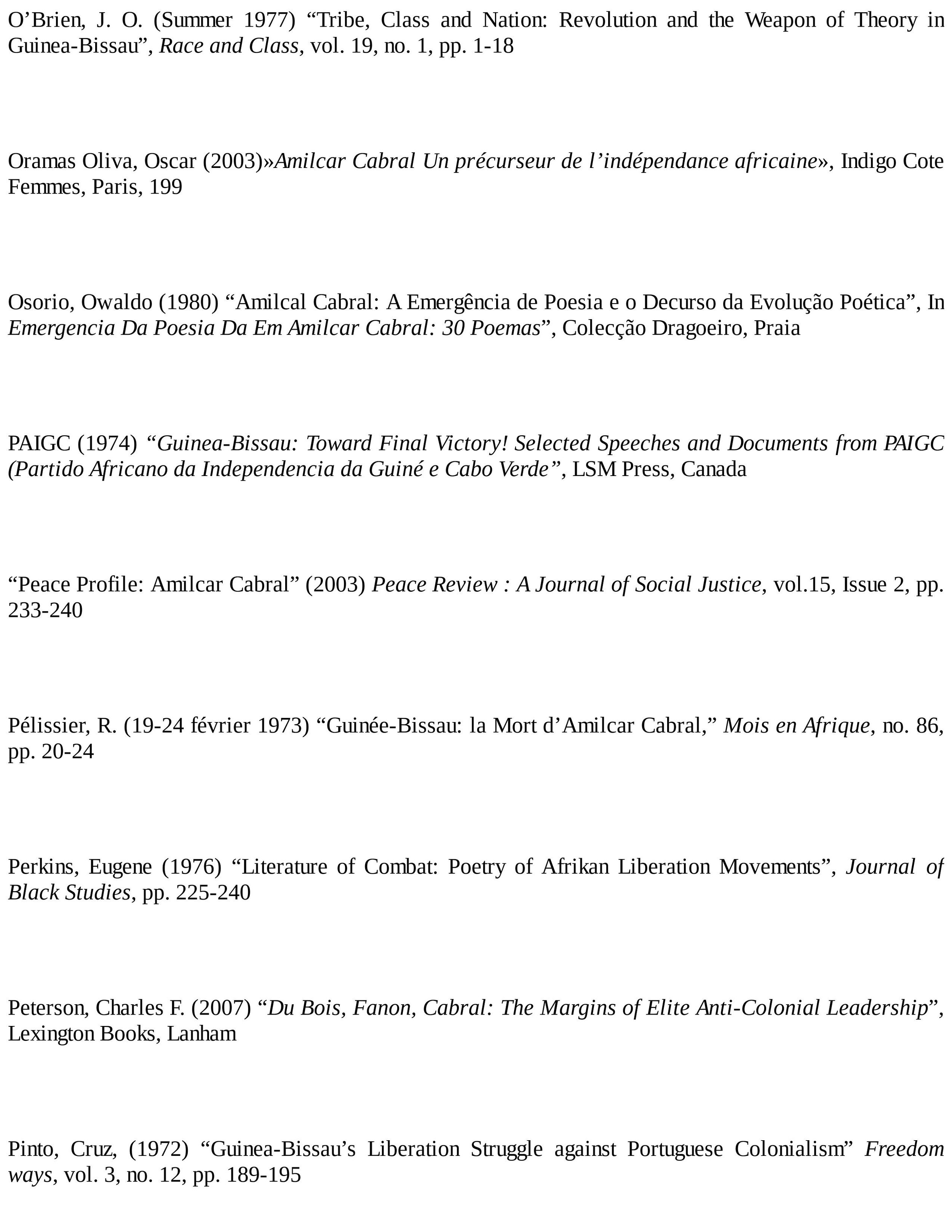
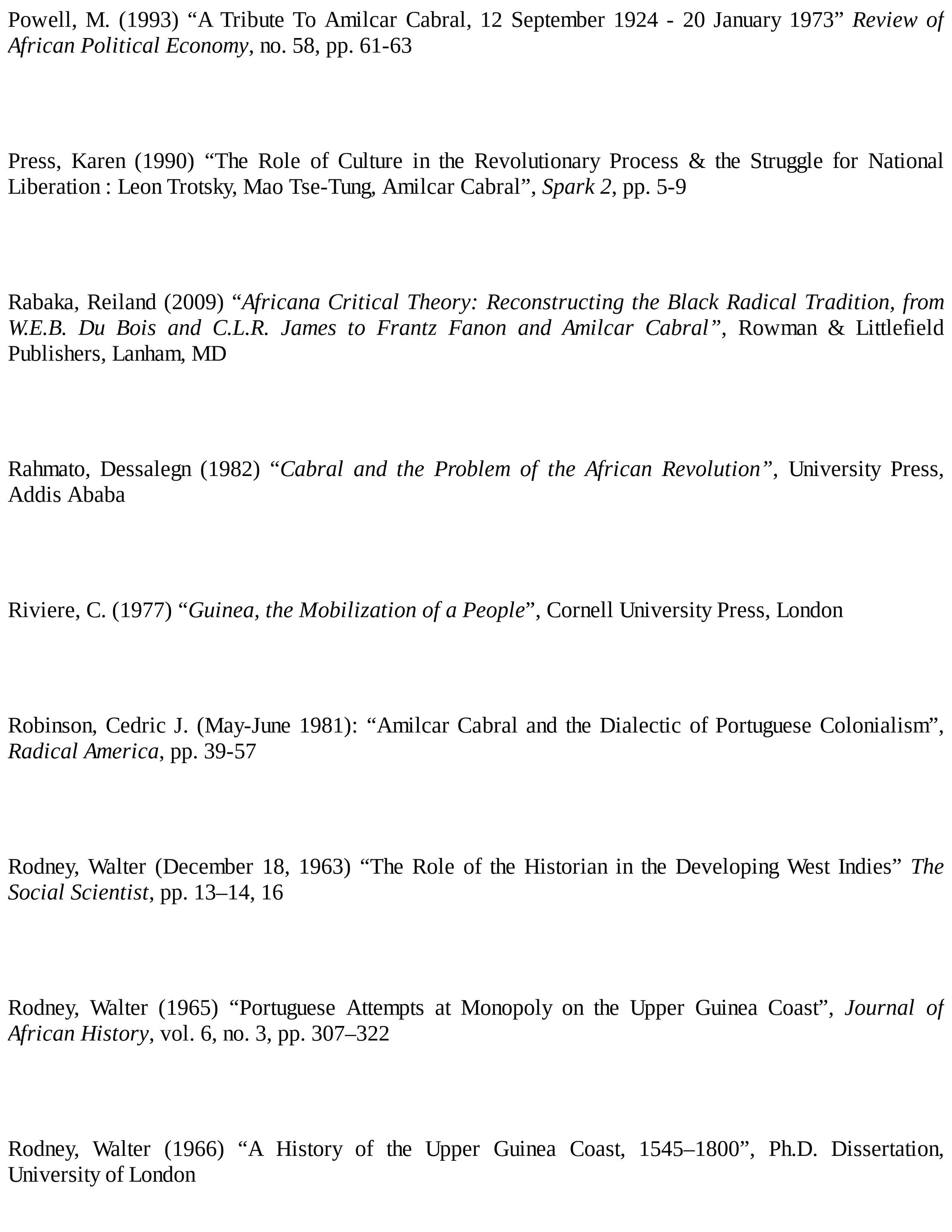
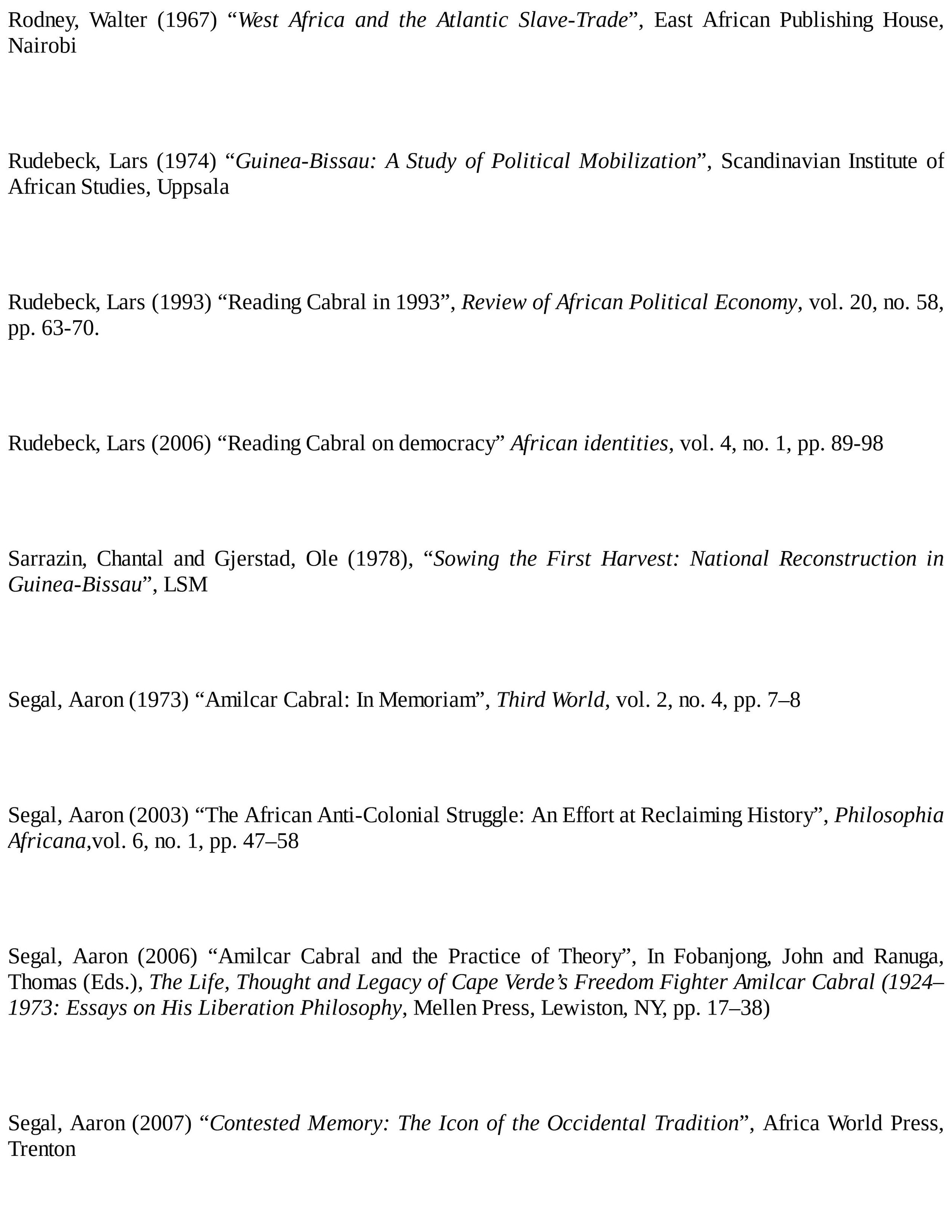
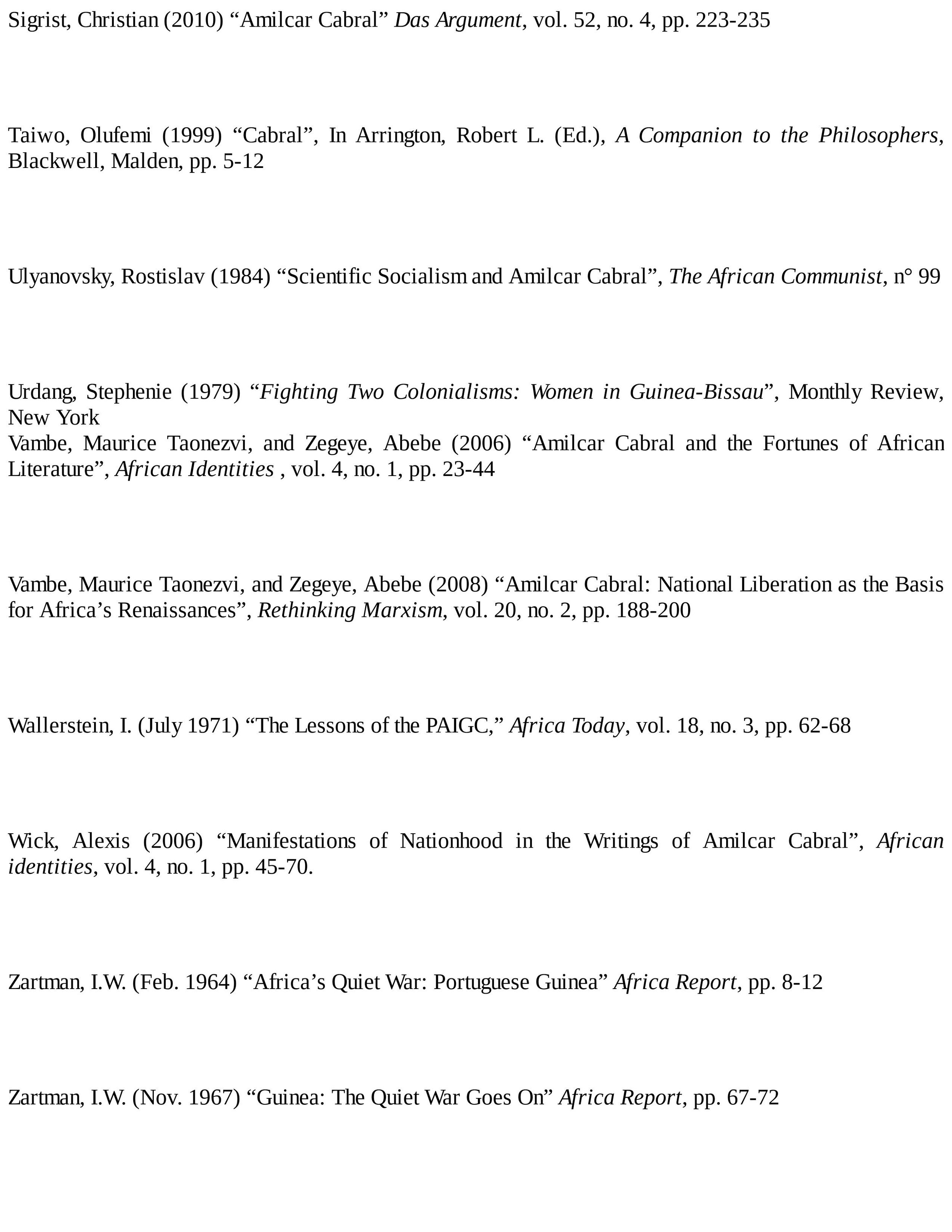
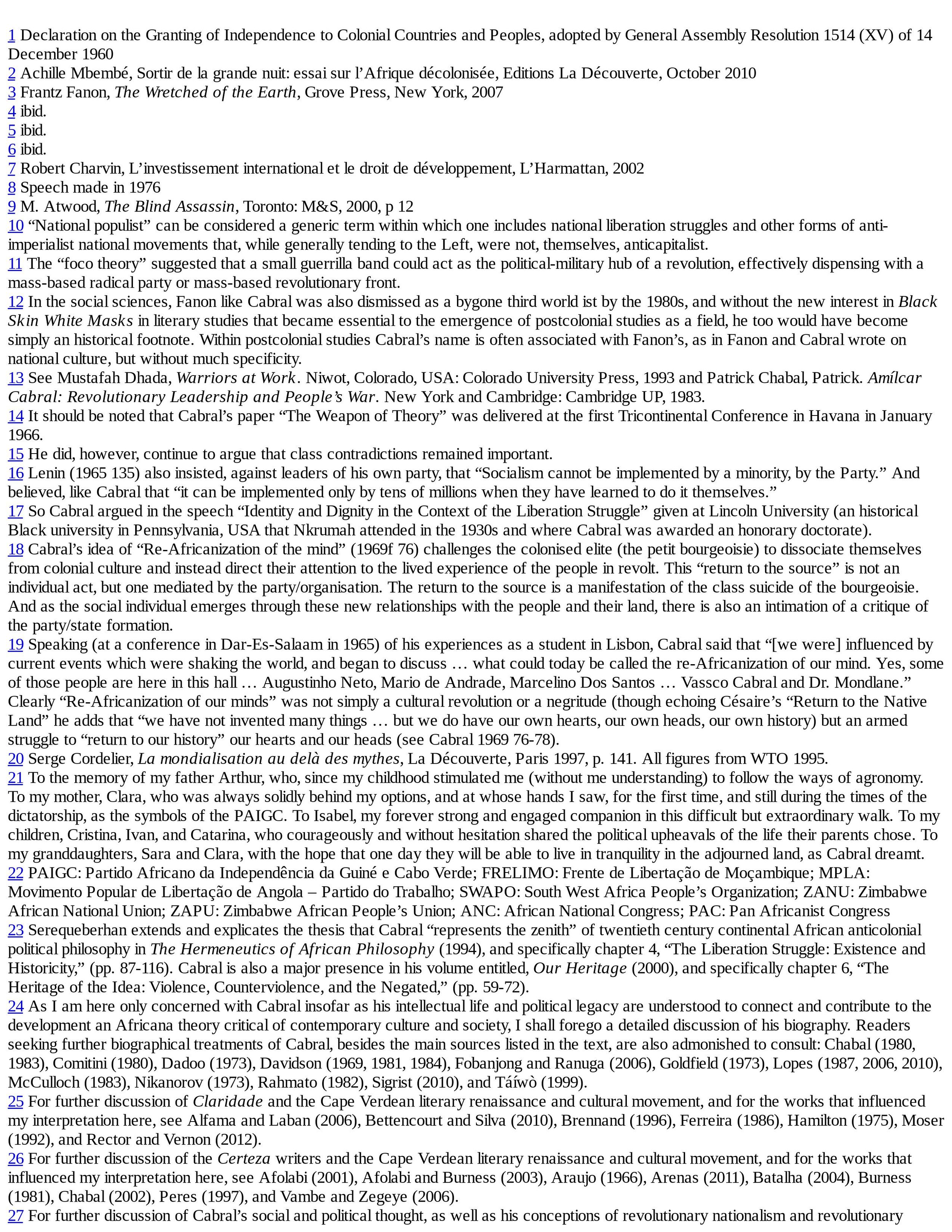
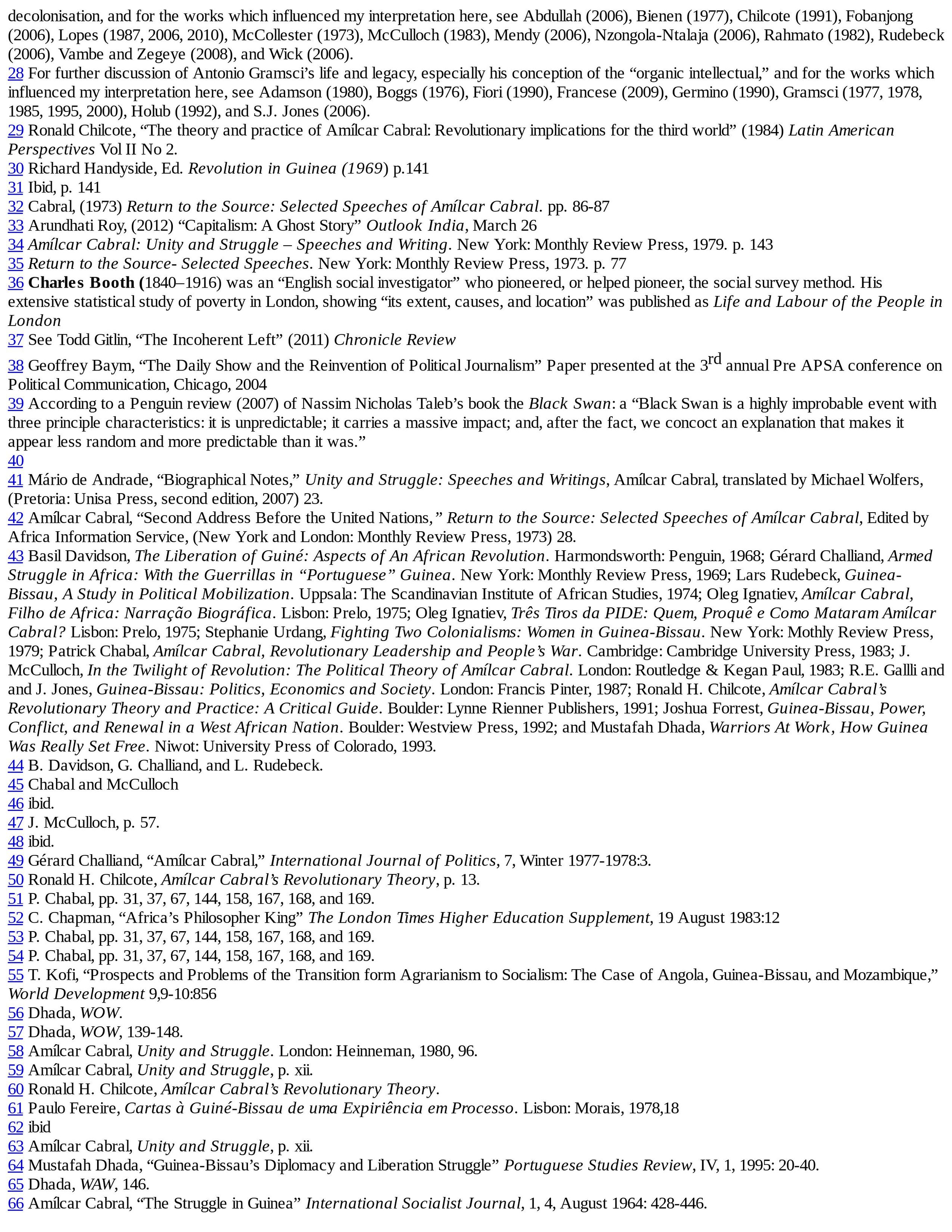
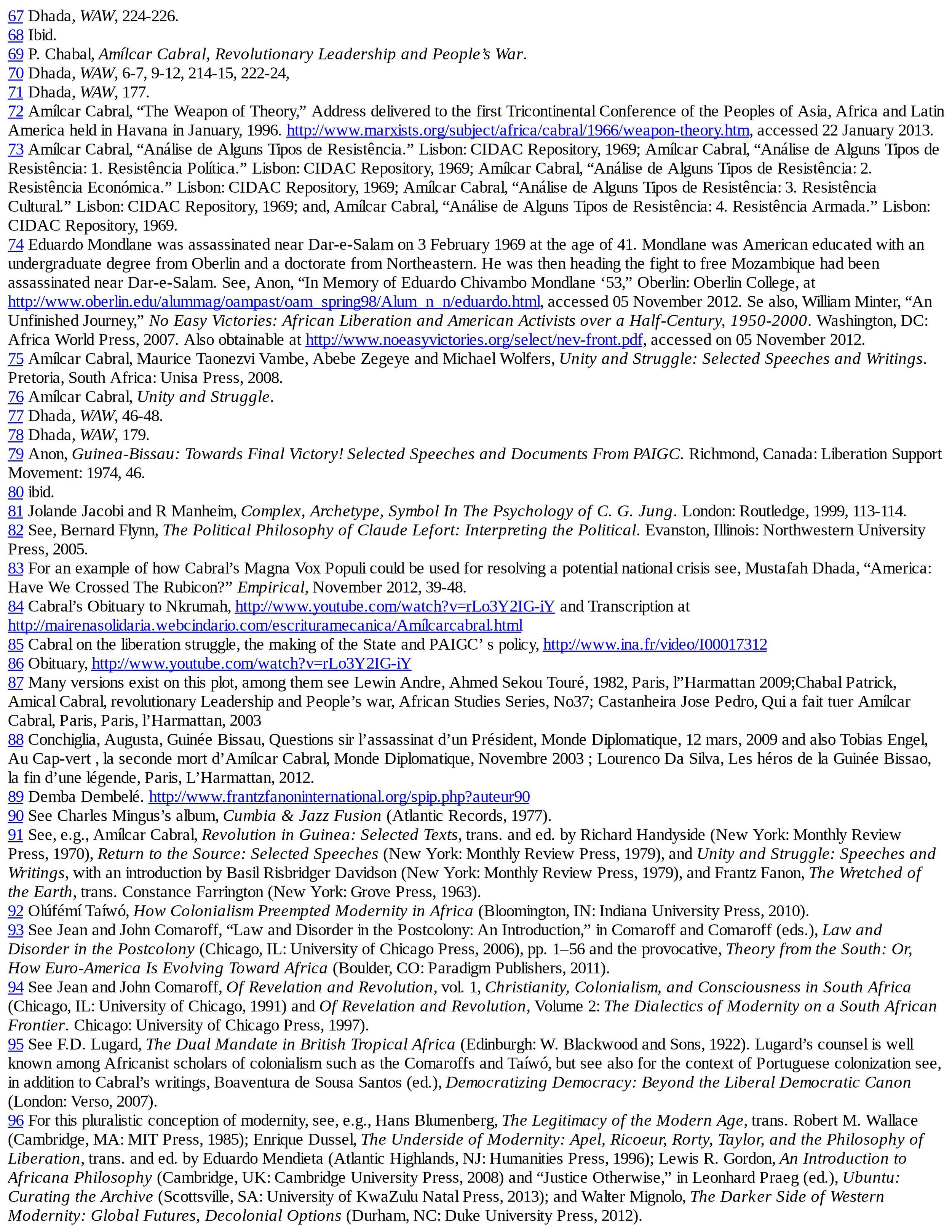
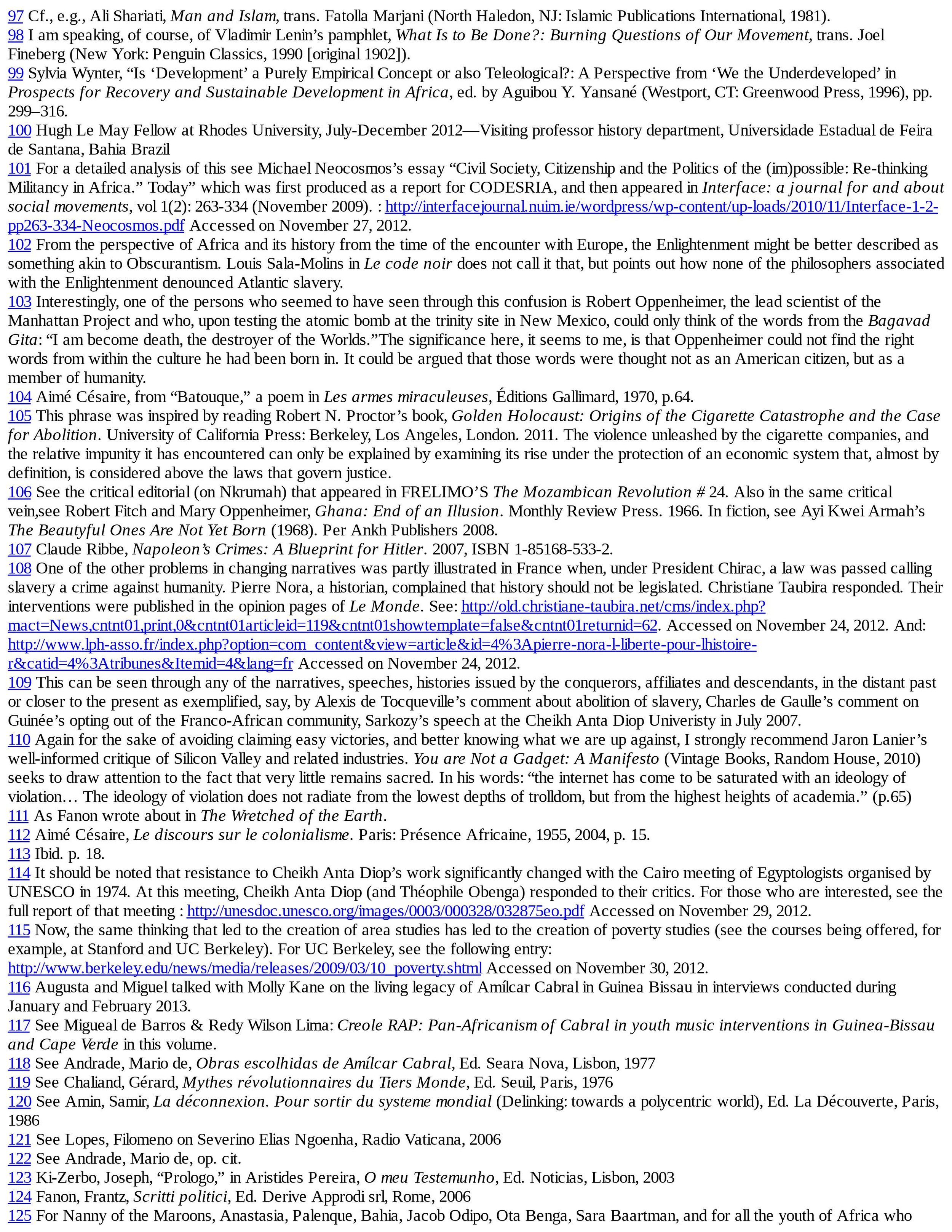
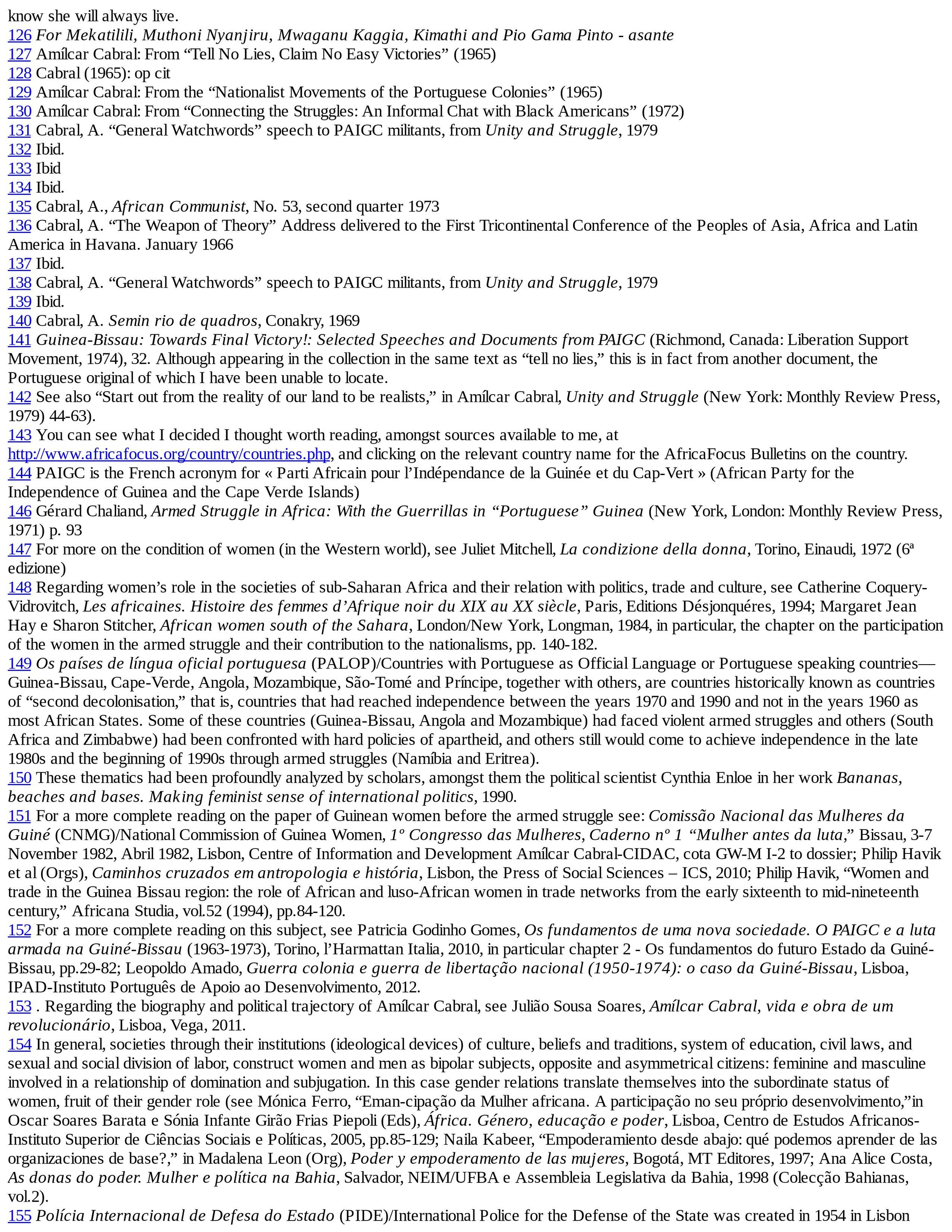
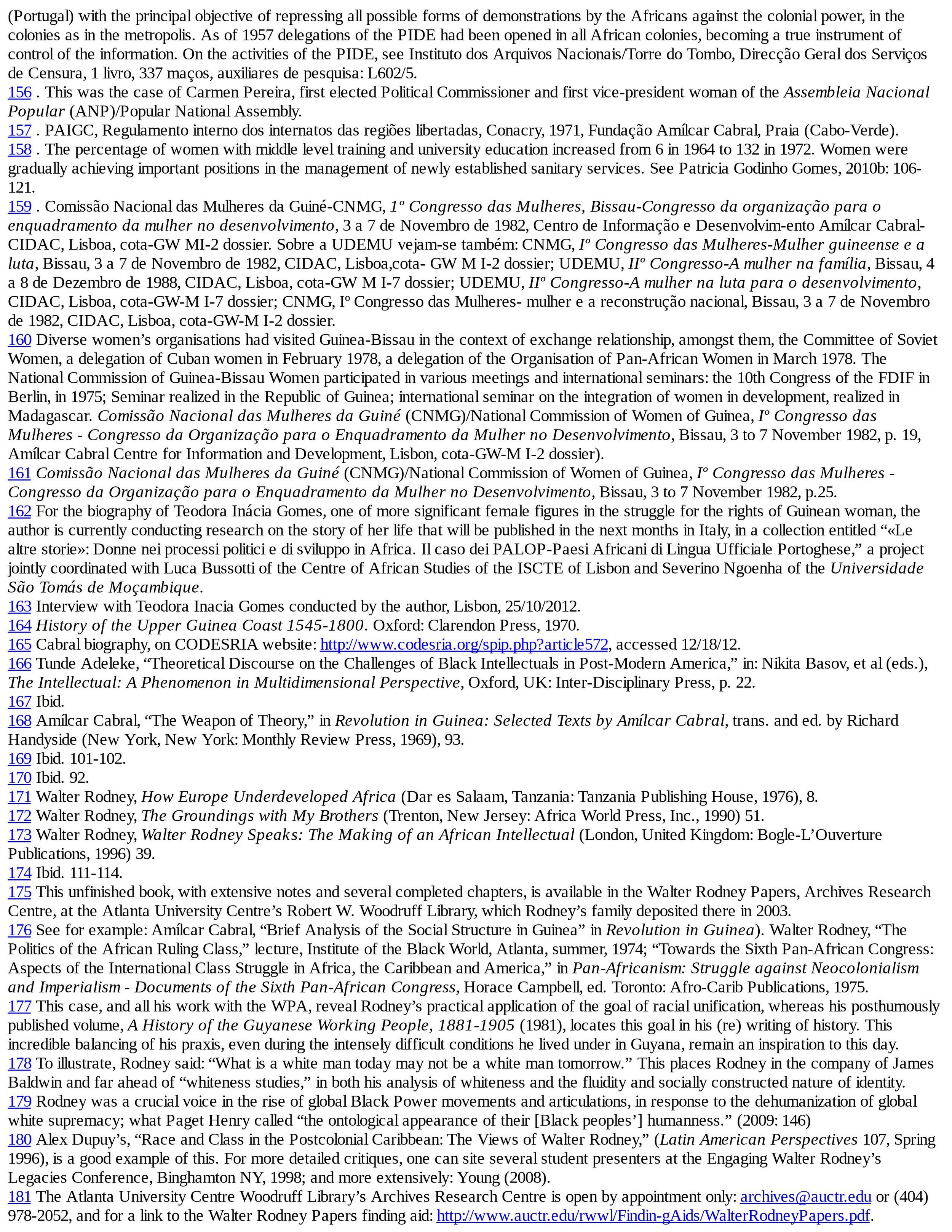
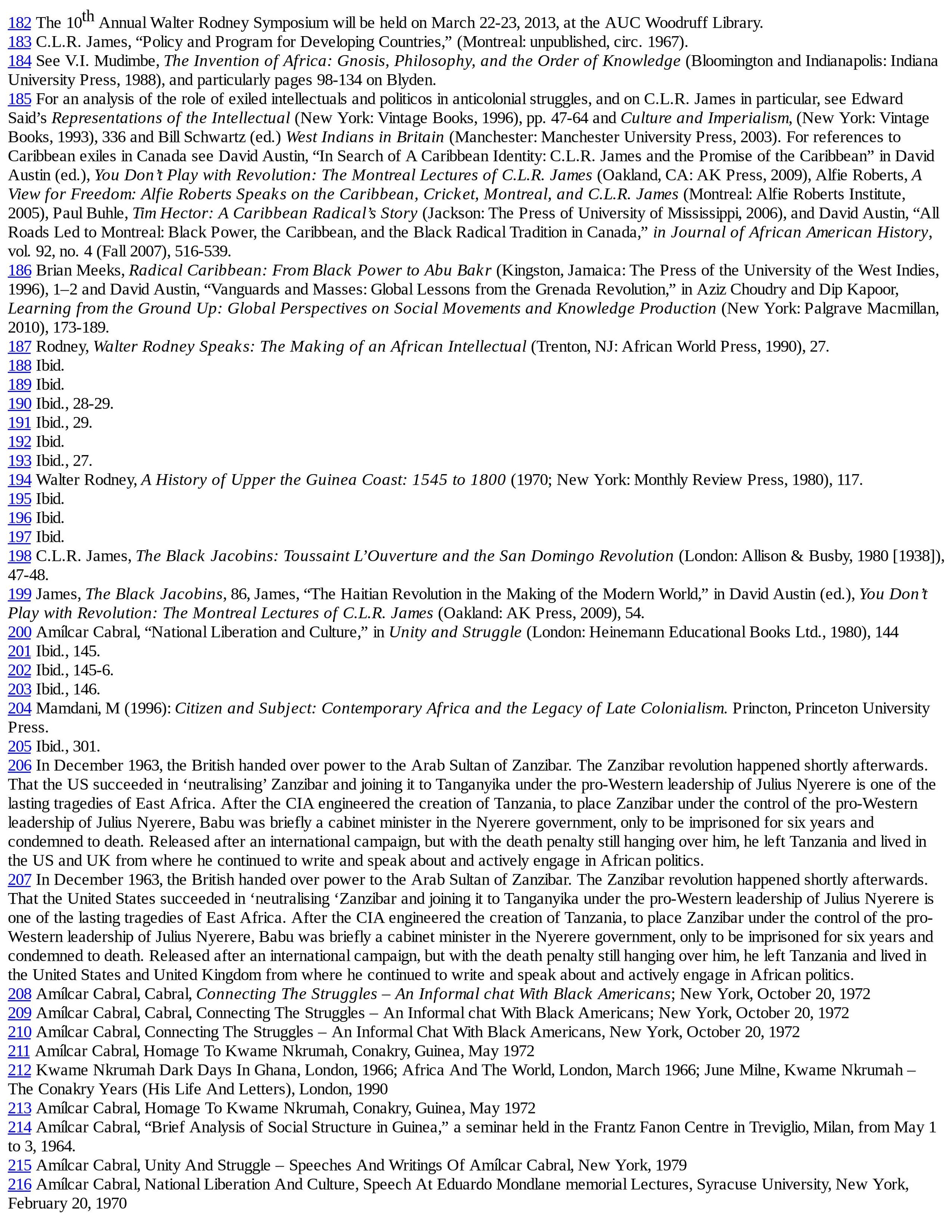
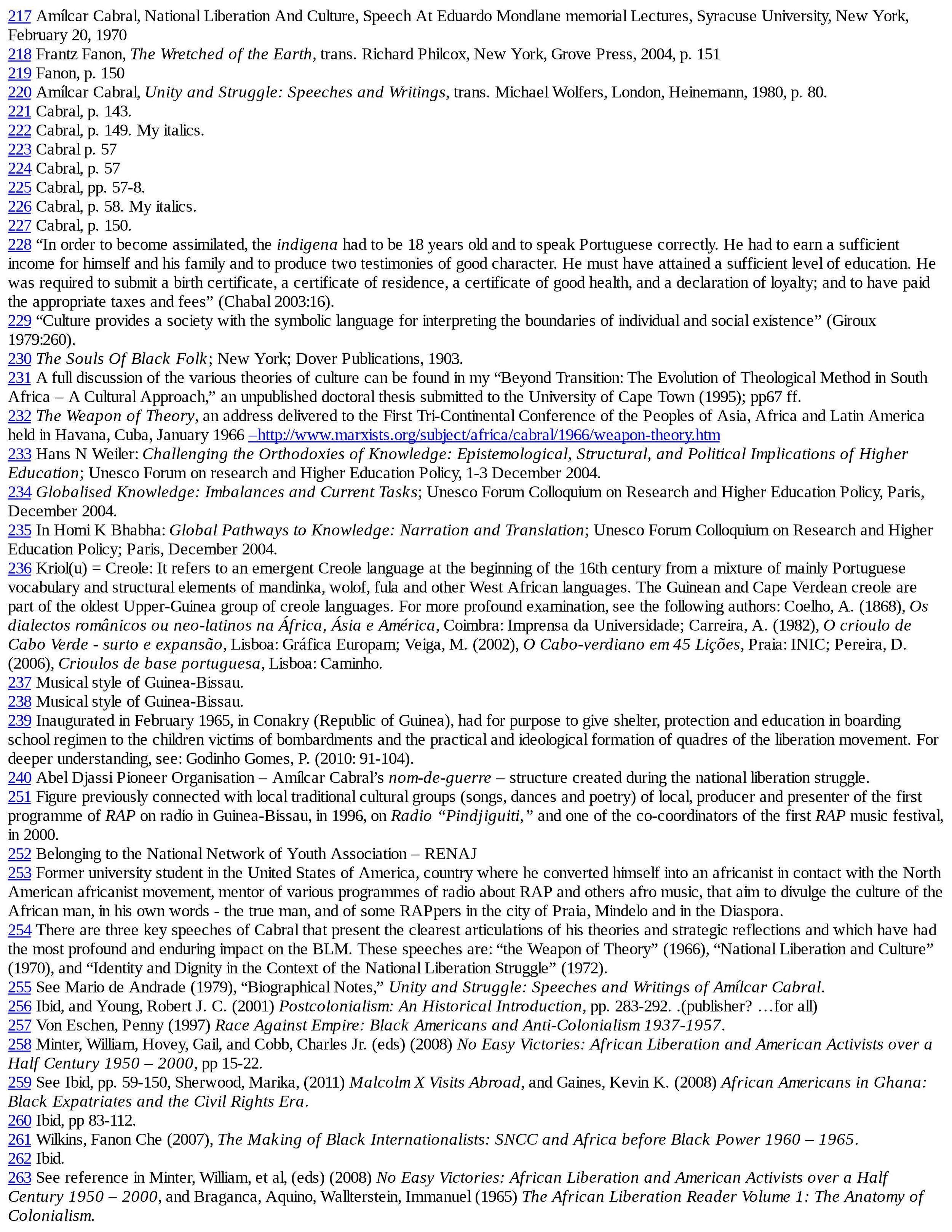
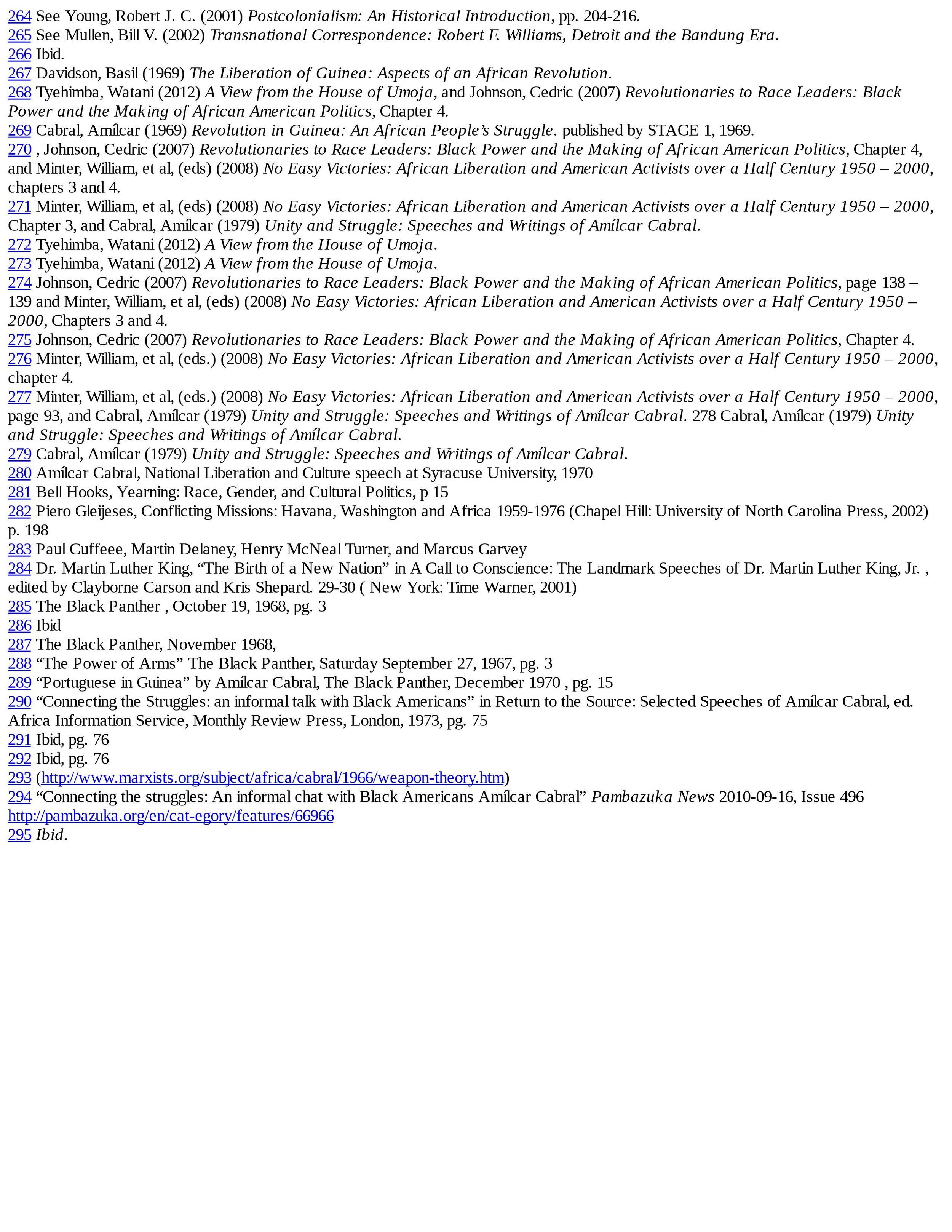
Works
Guinea and Cabo Verde Against Portuguese Colonialism, 1961
At the United Nations, 1962
Anonymous Soldiers for the United Nations, 1962
National Liberation and Peace, Cornerstones of Non-alignment, 1964
Brief Analysis of the Social Structure in Guinea, 1964
The Nationalist Movements of the Portuguese Colonies, 1965
Tell No Lies, Claim No Easy Victories ... , 1965
The Weapon of Theory, 1966
The Development of the Struggle, 1968
On Freeing Captured Portuguese Soldiers - I, 1968
On Freeing Captured Portuguese Soldiers - II, 1968
Practical Problems and Tactics, 1968
Message to the People of Portugal, 1969
Towards Final Victory, 1969
New Years Message, January 1969, 1969
Appendix: The PAIGC Programme
THE POTENTIAL OF A MINORITY REVOLUTION IN THE USA - The Crusader, August 1965
ROBERT F. WILLIAMS, Publisher -In Exile in Cuba
VOL. 7 -No. 1 AUGUST, 1965
USA THE POTENTIAL OF A MINORITY REVOLUTION
excerpt:
“Could a minority revolution succeed in racist America? It most certainly could! Theoretically, how could a minority segment win if it collectively decided to embark on such a serious course? Total unity would be required among the youth and a strong revolutionary nationalist spirit would have to prevail throughout the land. The segregationists, the hypocritical politicians and the terrorists have already paved the way for the latter. The spirit of self-sacrifice, selfless dedication to the triumph of a cause greater than any single individual, a feeling of self-confidence in ultimate victory, unshakable courage and identification with the struggling oppressed peoples of the world would be the necessary attributes for the success of a minority revolution.
Organization would require many facets . Groups dedicated to militant demonstrations would have to apply constant pressure to the power structure, create chaos and confusion and force the oppressor to unmask his ugly face before the world by reacting even more brutally and indiscriminately against Constitutional forces . This would expose the true nature of the power structure and inspire greater resistance to it .
Armed defense guards would have to be formed throughout the land. These groups would be organized within the confines of the law and when possible become sporting rifle clubs affiliated with the National Rifle Association. They would function only as defense units to safeguard life, limb and property in the ghetto communities. Some form of central direction would be necessary. A tightly organized and well disciplined underground guerilla force would also have to be formed to perform a more aggressive mission. It would have to be clandestinely organized and well versed in explo-segregationists, the hypocritical politicians and the terrorists have already paved the way for the latter . The spirit of self-sacrifice, selfless dedication to the triumph of a cause greater than any single individual, a feeling of self-confidence in ultimate victory, unshakable courage and identification with the struggling oppressed peoples of the world would be the necessary attributes for the success of a minority revolution.
Organization would require many facets . Groups dedicated to militant demonstrations would have to apply constant pressure to the power structure, create chaos and confusion and force the oppressor to unmask his ugly face before the world by reacting even more brutally and indiscriminately against Constitutional forces . This would expose the true nature of the power structure and inspire greater resistance to it .
Armed defense guards would have to be formed throughout the land . These groups would be organized within the confines of the law and when possible become sporting rifle clubs affiliated with the National Rifle Association. They would function only as defense units to safeguard life, limb and property in the ghetto communities. Some form of central direction would be necessary. A tightly organized and well disciplined underground guerilla force would also have to be formed to perform a more aggressive mission. It would have to be clandestinely organized and well versed in explo-sives. Its mission would be retaliation and a force used to pin down and disperse concentrated fascist power. It would prevent the power structure from rushing reinforcements to encircle and crush other defense groups engaged in battle against terrorist forces by ambushing, sniping, bombing bridges, booby-trapping and sabotaging highways. A welfare corps would have to be organized to build morale, raise funds, promote legal defense and take charge of the general welfare of the fighting forces and their families. Many of the members of the Welfare organization front would not understand its total function. They would be recruited on a humanitarian basis.
The most aggressive and irrepressible arm of the overall organization would be the fire teams. They would work in complete secrecy and would be totally divorced in the organizational sense from the main bodies of defense and other forces . They would enjoy complete autonomy. The group's only tangible loyalty to them would be in times of distress . Their legal aid in court defense would be rendered by Afro-Americans giving legal aid to victims of kangaroo court systems, as is commonly known where black people stand no chance of obtaining justice. This would be similar to, but more vigorous and militant than the NAACP's role.
The fire teams' mission would be sabotage. Thousands of these groups would be organized throughout racist America. These teams would consist of from three to four persons. They would only know the members of their immediate team. They would not identify with the civil rights movement. They would appear to be apathetic and even Uncle Toms. They would sometimes masquerade as super patriots, and be more than willing, in a deceptive way, to cooperate with the police. They would even infiltrate the police force and armed forces when possible, and work in the homes of officials as domestics. There would be no official meetings and discussions, only emergency calls and sudden missions.
The mission of these thousands of active fire teams would be setting strategic fires. They could render America's cities and countryside impotent. They could travel from city to city placing lighted candles covered by large paper bags in America's forests, and have time to be far removed from the scene by the time the lighted candle burned to the dried leaves. While unsparingly setting the torch to everything that would burn in the cities, and while concentrating on urban guerilla warfare, the rural countryside would not be neglected. Aside from the devastating damage that could be visited upon the countryside, such a mission could serve a twofold purpose. It would also divert enemy forces from the urban centers. State forces would be forced to spread their ranks and would not be able to sustain massive troop concentrations in a single community . The heat and smoke generated from the fires would render some of the highways impassable to repressive troop reinforcements.
The rural countryside covers vast areas and would require exhaustive man power, equipment and security forces . America cannot afford to allow its rich timber resources and crops to go up in smoke. The fire teams roving in automobiles would find unguarded rural objectives even more accessible. A few teams could start miles and miles of fires from one city to the other. The psychological impact would be tremendous . By day the billowing smoke would be seen for miles. By night the entire sky would reflect reddish flames that would elicit panic and a feeling of impending doom. Operating in teams of twos or threes, one freedom fighter could pour gasoline or lighter fluid from a small flask into public waste paper baskets, another could later enter and toss a lighted cigarette in the same container. Near closing time kitchen matches could be placed in the air conditioning systems of industrial and public buildings. The property of racists would be designated as priority objectives . Through this method, the racist oppressors could be reduced to poverty in a short span of time.
These fire teams could also go on pre-dawn missions just before the morning rush for work. Their objective would be to spread tacks fitted with wire bases to insure their upright position when thrown from a moving automobile in heavily travelled tunnels and freeways . Pure havoc would ensue. Sugar or sand in gas tanks could be used to knock out the engines of public vehicles . During police invasions of the ghetto, lye and acid bombs could be thrown from roof tops . Many forms of booby traps could be utilized.
Yes, a minority revolution could succeed in racist America. It could succeed because the winds of rebellion are rising against the racist oppressor throughout the world. It could triumph because the Afro-American struggle is part and parcel of the universal liberation struggle . It must be handled as such. It is only natural that the power structure would like to keep it isolated and provincial . The enemy's tactic is to divide and conquer. The Afro-American has sought to join the white American league since first arriving in chains in the new world. He has been brutally rejected. The racist whites have made it plain, in no uncertain terms, that the black American is never to be fully accepted in the mainstream of the so-called great society. It is as natural as water seeking its level for the Afro-American to turn to the oppressed peoples of the world to make common cause in the universal revolution for freedom and human dignity. What greater indication do we need, than centuries of barbaric oppression, that the U.S. power structure is our natural enemy?
With or without a common cause with the Afro-American the universal freedom forces are going to triumph over U.S . racist imperialism. The question is simply whether or not the black
American is going to perish with racist imperialist America as a party to her savage crimes against oppressed and progressive human-nity or whether he is going to contribute to the great victory of revolutionary humanity destined to fulfill its historical role .
In summary, let it be made clear that I am not advocating a minority revolution. I am merely exploring certain theoretical potentials as an alternative to passive submission to proposed genocide as projected by the racist, fascist and terrorist white groups now growing by leaps and bounds in the racist and imperialist USA. I hope that others, who are genuinely interested in the survival of black people in racist America, will analyze, debate and contribute to this thesis in a way that our people need never fear extermination under racial tyranny and fascism.
Each year rioting, as a result of police brutality and oppression, becomes more extensive and ferocious. We can neither pray nor hope our way out of this difficult situation. We must defend ourselves . We must fight, and we must fight to win. We must also consider the immediate necessity of effective self-defense and resist- ance to racist terror. During times of massive rioting too many of our people are forced to fight armed cops and troops with bare hands and stones . Cops and troops must be disarmed and their weapons turned against other cops to obtain weapons of defense. Tanks and armoured cars must be knocked out with molotov cocktails and captured when possible. Bazookas and mortars must be taken from troops and national guard armories to prevent heavy concentration of troops and invasion by overwhelming force. The Minutemen, Confederate Underground and other terrorist groups are arming and training with U.S. Army gear such as bazookas, mortars, hand grenades, machine guns and gas masks. Sub-machine guns are even being manufactured in small shops controlled by these fascist groups . These private arsenals must be located and raided for weapons and ammunition. These weapons can also be used to do extensive damage. Oil storage tanks and natural gas lines could be fired through delayed methods. The oppressor must be forced to pay heavily economically for his police brutality, pogroms, racist court frameups and white supremacy terror. The racist imperialist is an unmerciful bully when he can control a situation with his sophisticated weapons of death and destruction.
On the international scene, he will not hesitate to embark on the world's greatest campaign of slaughter in a desperate effort to save himself. The Afro-American liberation force is the only force in the world secure from fascist America's devastating nuclear force. He cannot use nuclear weapons against his own population, property and cities . In such a minority revolution, racist America's very essence of strength and power would become the Achilles' heel of her security and struggle for world domination.
The advanced technology of the affluent society has made it soft, nervous and hypersensitive . It is a society fearful of the cold realities of life . A society devoid of soul and humanism. A jungle society of dog eat dog, a society of frightful automation that is addicted to tranquilizers. Racist Americans are not psychologically prepared for fire storms, power, communications and transportation failures and long periods without public utilities. The Afro-American has been under siege since the very beginning of his days as a captive person in the so-called New World. Terror is a way of life for the great masses of Afro-Americans . Our people have practically become immune to the fear that flows from violence and brutality. Such a minority revolution could only succeed as an integral part of the universal liberation struggle. From this point of view, we would not be an isolated minority in racist America, but a highly concentrated sector of a majority revolution.
The Afro-American must take his fate into his own hands. He cannot rely on racist white brutes to dole out liberty like a welfare commodity. His only hope lies in concerted action with his oppressed brothers throughout the world. The racist imperialists are doomed. They cannot muster the power to save themselves. They are morally bankrupt . The vast majority of white Americans are racists who currently identify with U.S. imperialism. They have been deluded into believing that they have a vested interest in the oppressive and corrupt system . There is more hope, at this stage of struggle, for a rabid wolf than white supremacy orientated white workers allying themselves with racially oppressed Negroes. They are no more reliable in coming to the defense of persecuted Negroes than the German working class was in coming to the defense of the Jews under Hitler . The Afro-American is as alien to the so-called American way of life as a shoe shine boy is to Wall Street . The Afro-American is an outcast, the disinherited of the very society that he helped make affluent . The wilderness that his slave labor cleared; the sprawling cities that he helped build, his rebellious and freedom-starved spirit can make barren and desolate again.
While U.S. strength is spread around the world in a hypocritical gesture of making the world safe for so-called democracy, democracy goes begging at home. Let racist America be apprised of the fact that she can no longer count on a peaceful and united front at home so long as the Afro-American is brutally subjected to racial tyranny. Racism and imperialism are destroying the U.S .A. If her choice is doom rather than justice -if she prefers to emasculate and compromise the Constitution rather than to honor it ; then her irreversible choice most surely will be accommodated by the invincible historical tide of justice-loving humanity, gloriously storming the tyrannical bastions of imperialism and racism.
Our choice must be freedom or death. We must prepare ourselves to obtain freedom by any means. Let the phony liberals, the pseudo socialists, and their fellow-traveling avowed racists call us what they will . Our cause is just, our cause is freedom. Let us be labeled anything but pacifists suffering racial tyranny in a masochistic spirit of loving oppressive beasts. Yes, in racist America a minority revolution can succeed. Those who counsel patience and nonviolence, in the face of tyranny and aggression as against vigorous self-defense, are the vanguard puppets of U.S. imperialism, white supremacy and its oppressive status quo. They are foolhardy reactionaries, dreaming their psychotic dreams of a white supremacy slave kingdom, in ivory towers fast submerging in the quicksands of time. Yes, because of the relativity of righteous struggle, a minority revolution in racist America can succeed and bring about the establishment of a just and humanitarian government truly of the people, by the people, and for the people, dedicated to universal peace and brotherhood.”










